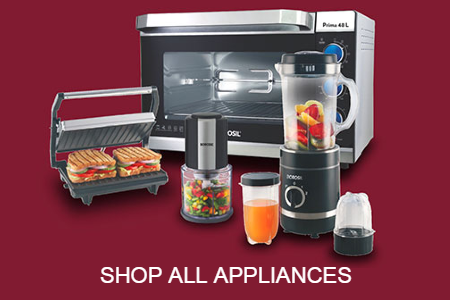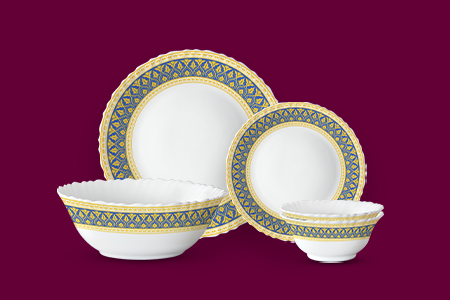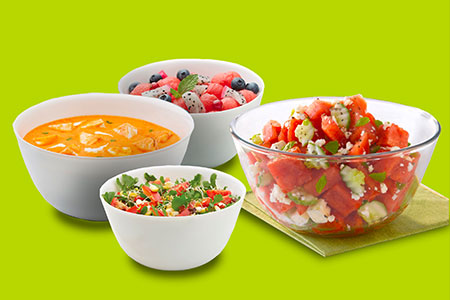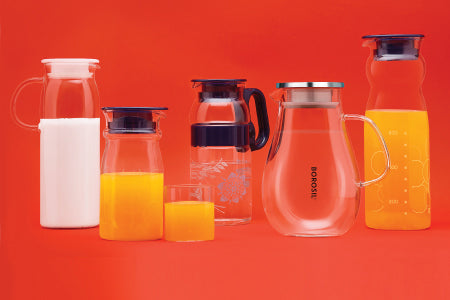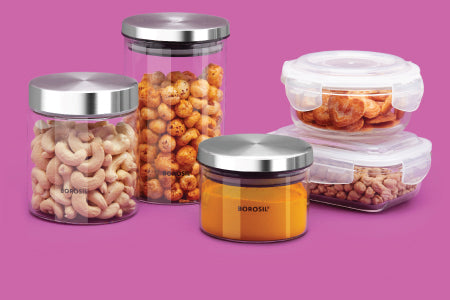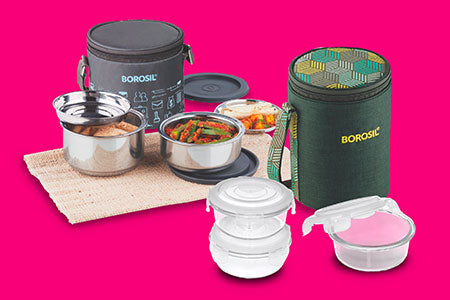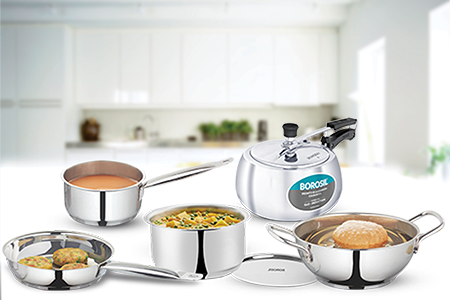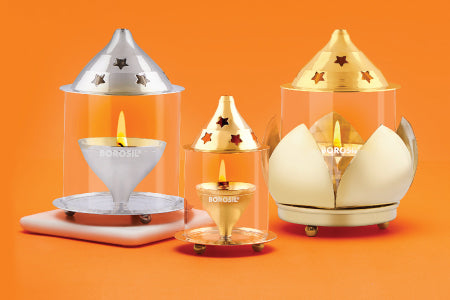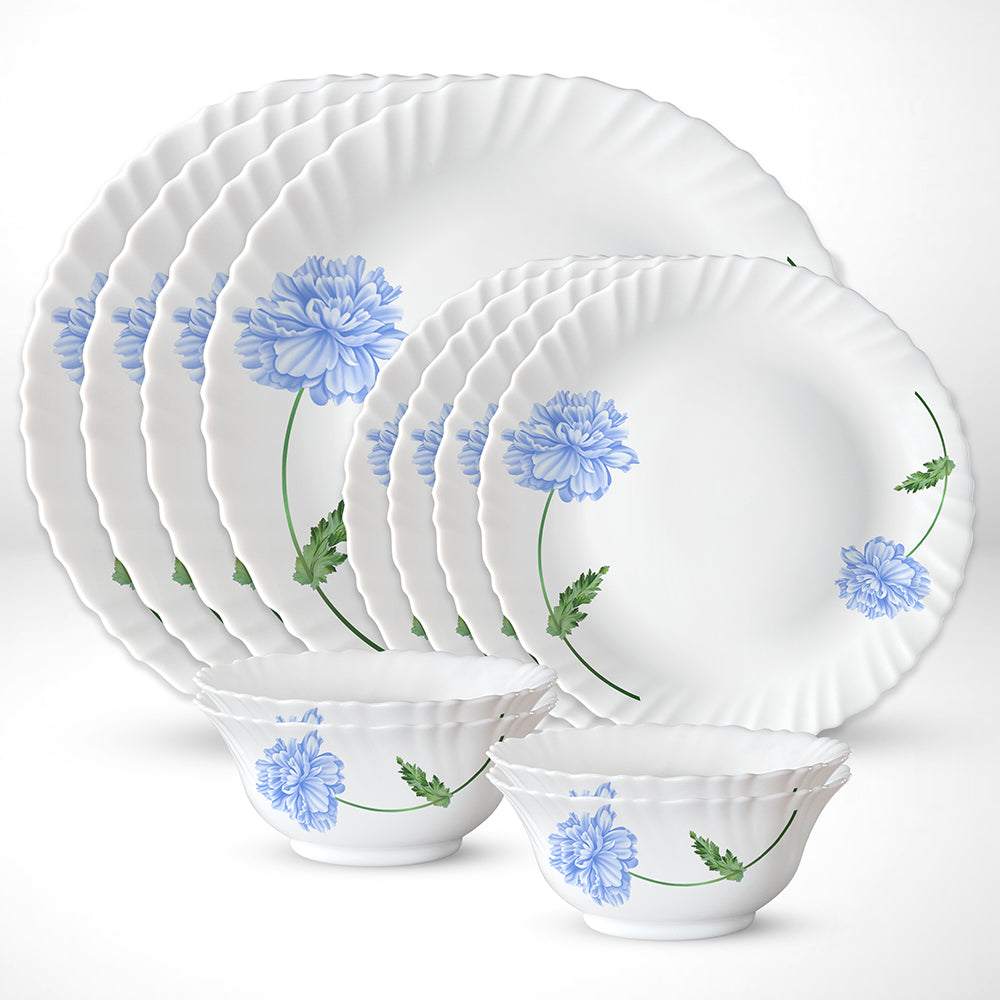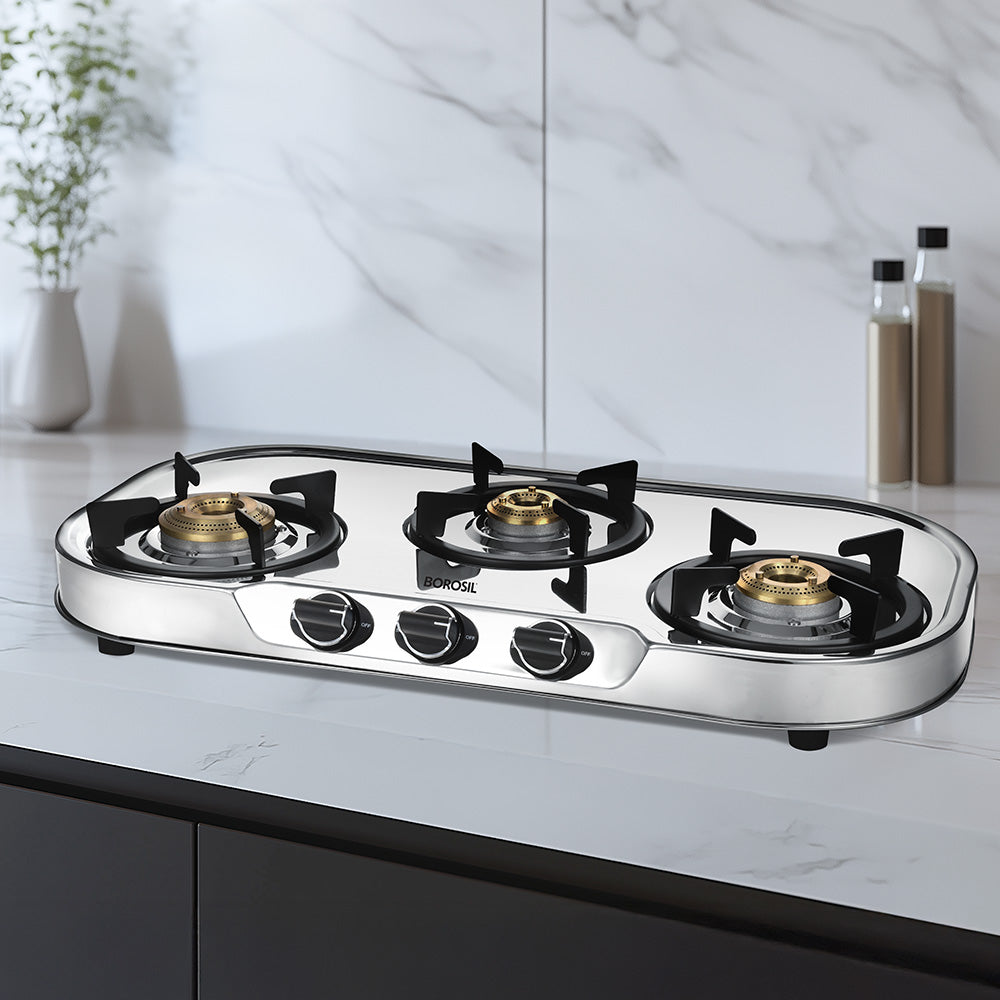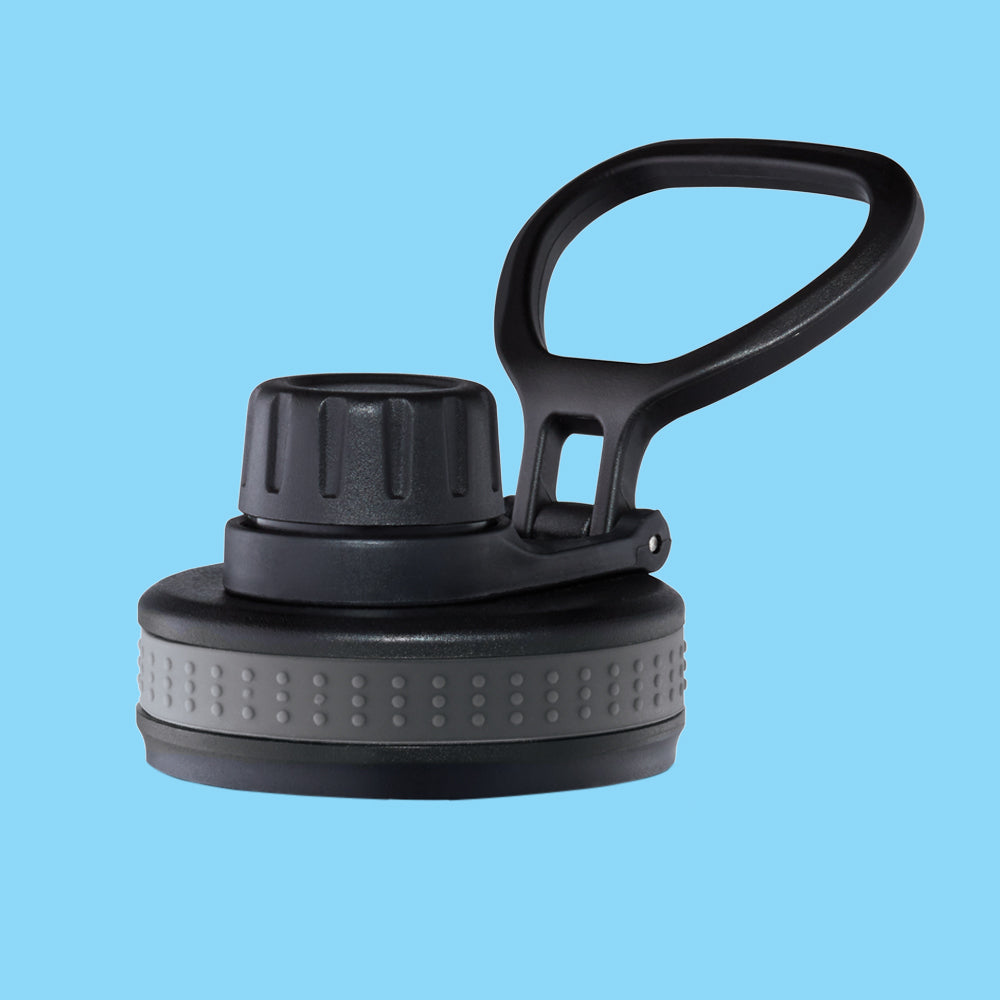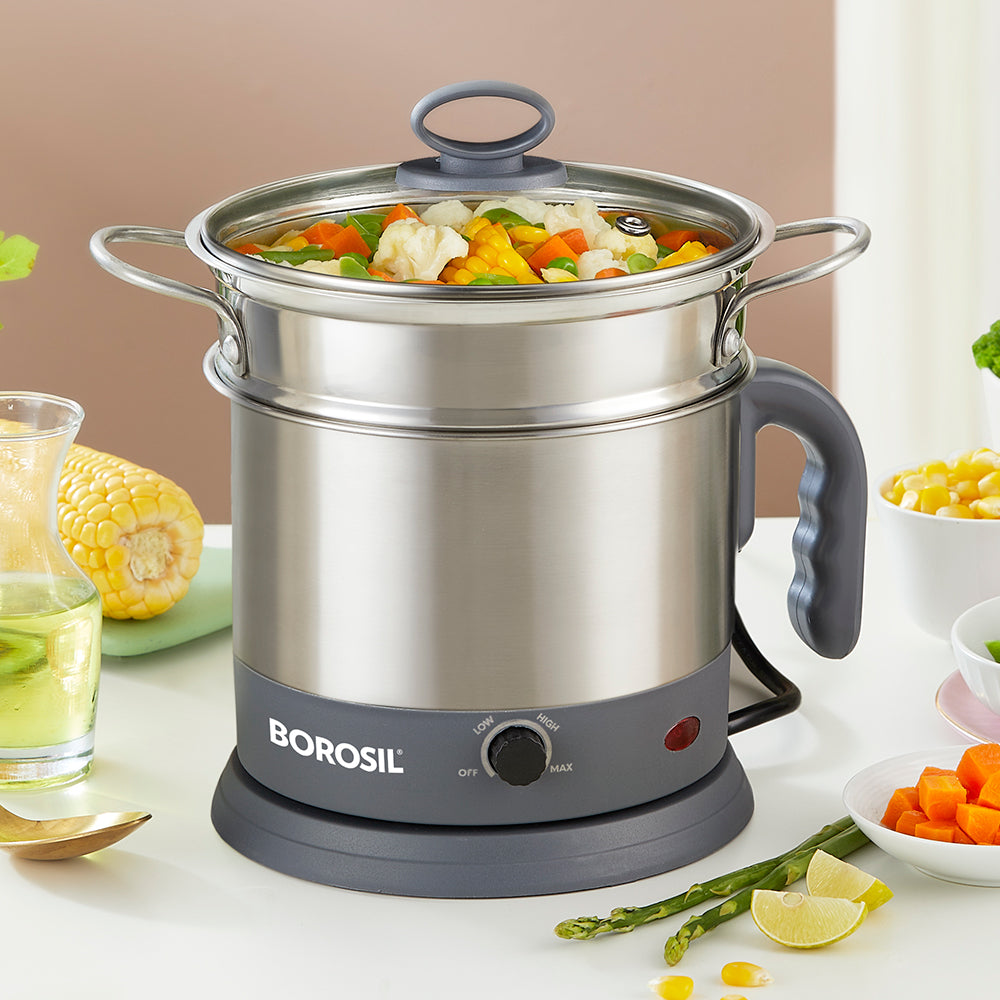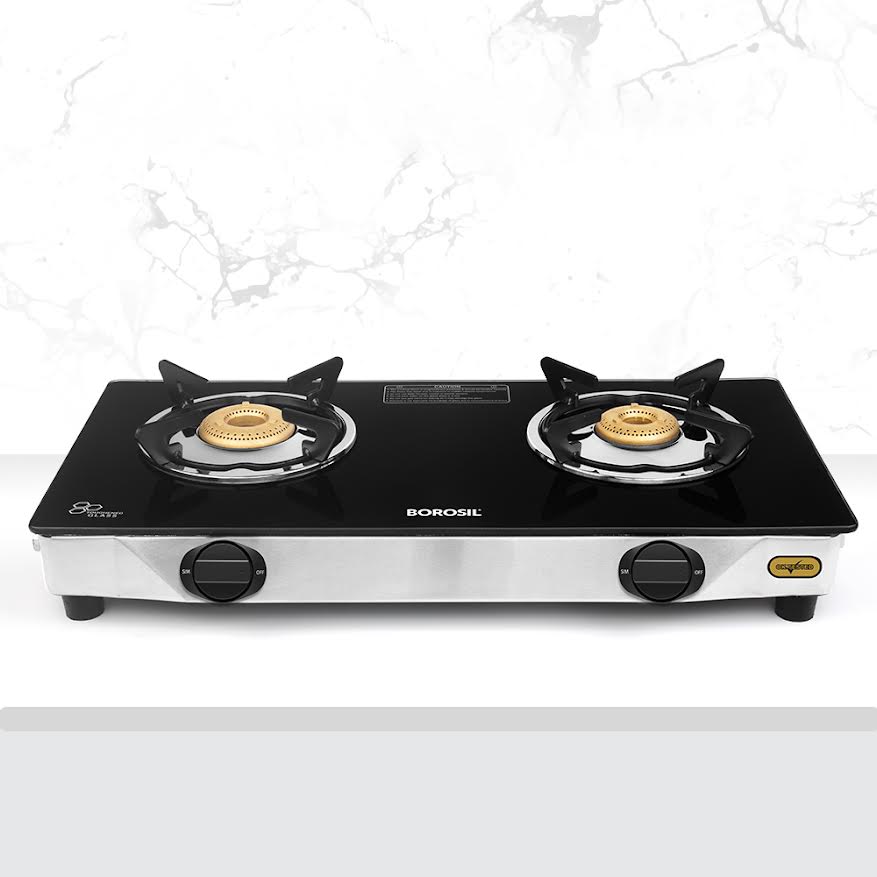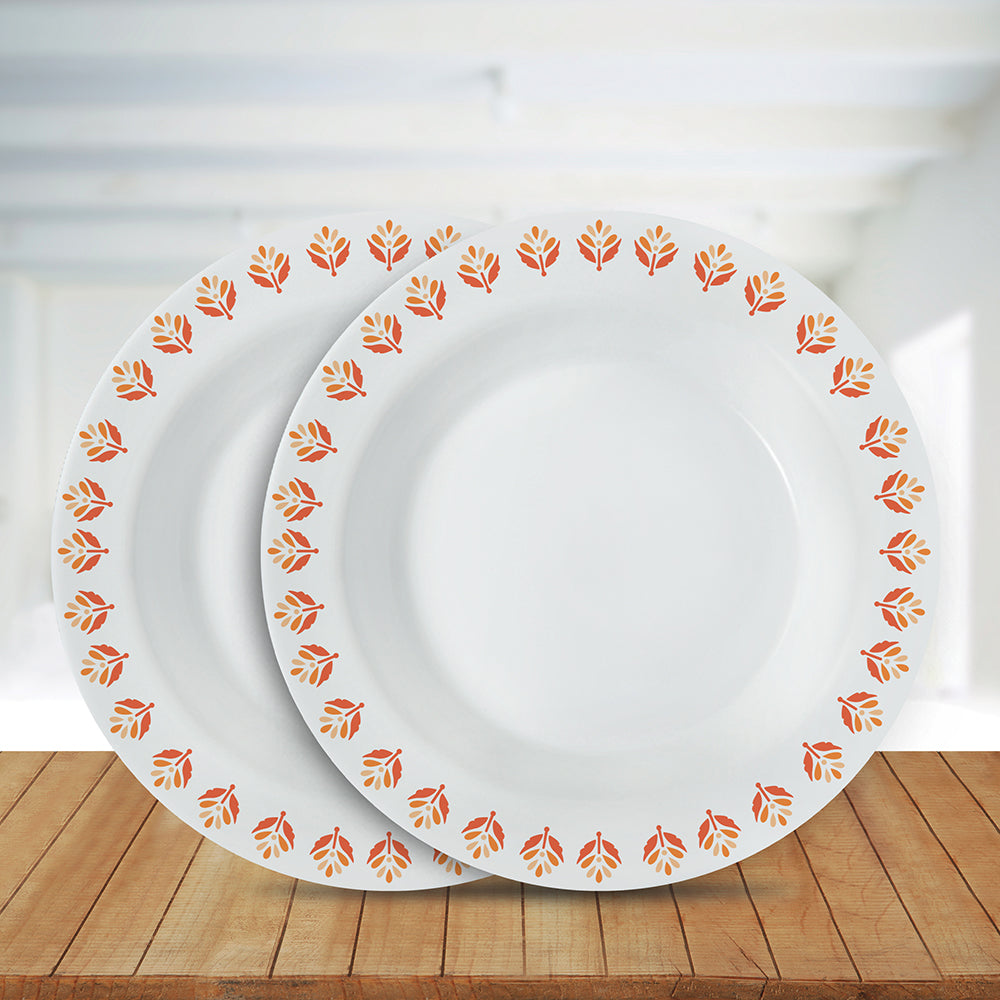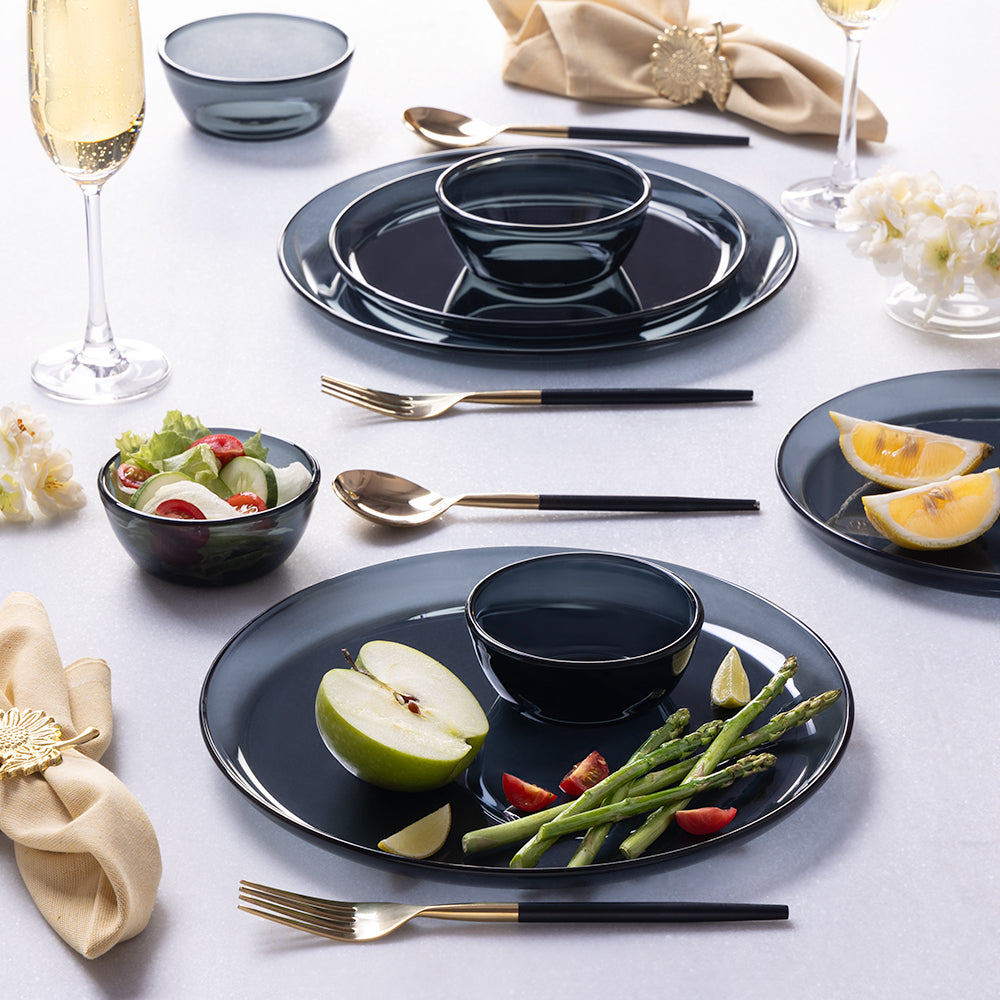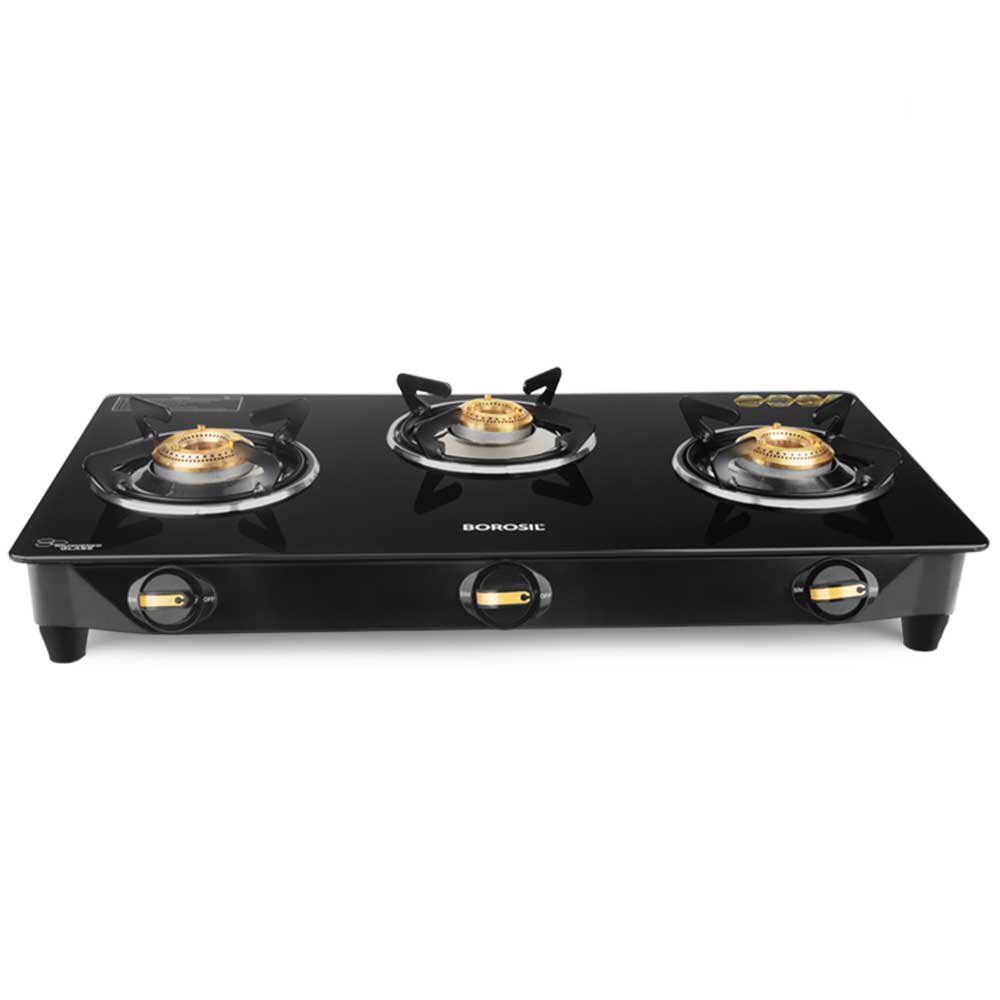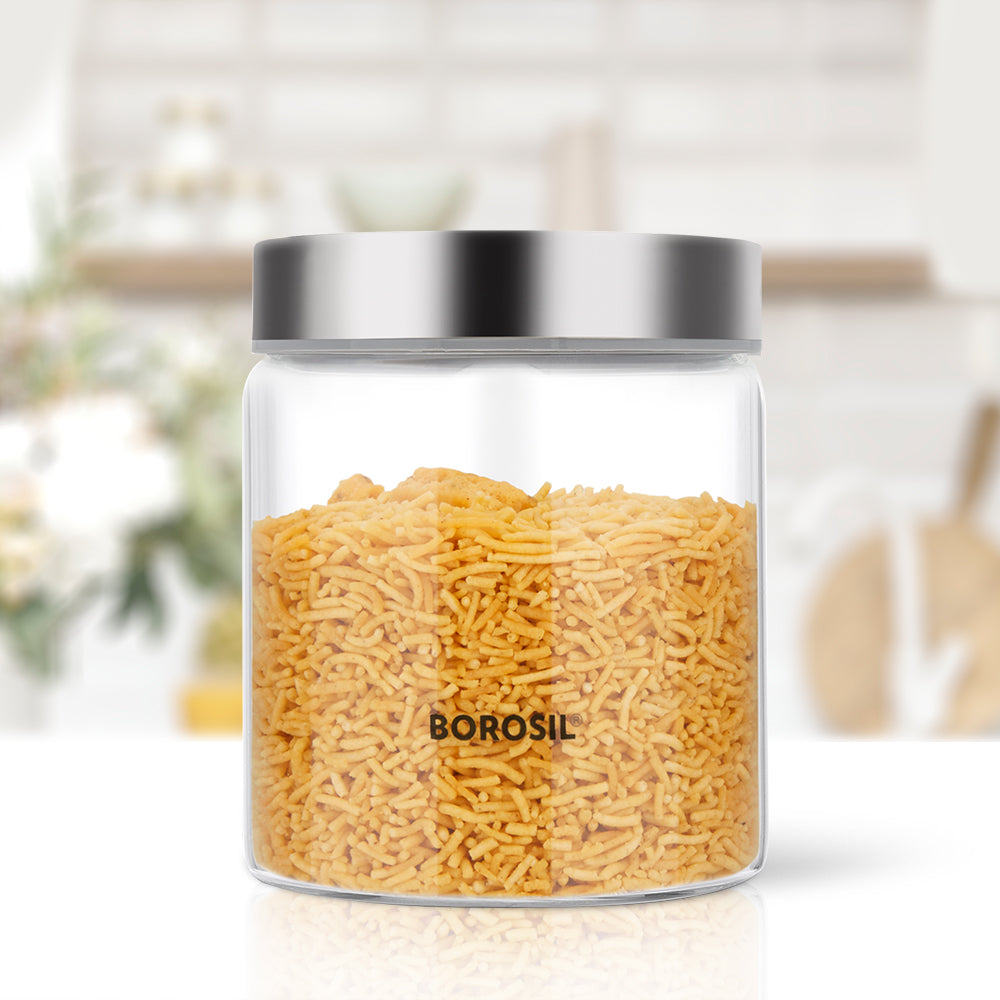window.flitsObjects && void 0!==window.flitsObjects||(window.flitsObjects={});
window.flitsObjects.global = {
partialCustomerHash: '717312a5dfd2e5d8b2a8f9eb4502f0591bec669bc6512470b31ebd71e8b2255e',
customerHash: '717312a5dfd2e5d8b2a8f9eb4502f0591bec669bc6512470b31ebd71e8b2255e',
shop_name: 'MyBorosil',
token: 'afbd52f0bdaa212752f9aec7d8235378',
base_url: '/' + 'apps' + '/' + 'flits' + '/' + 'api' + '/' + '1' + '/' + '26085',
proxy_name: 'flits',
app_id: 1,
shop_id: 26085,
shop_token: 'afbd52f0bdaa212752f9aec7d8235378',
chandle: 'flits_products_handle',
recent_handle: "flits_recently_products",
cemail: "flits_customer_email",
customJsURL:"https://cdn.shopify.com/extensions/019c763d-6694-737b-a903-476ba949f627/flits-81/assets/flits_custom.js",
shop_currency: 'INR',
shopCountryName: 'India',
defualtCountry: 'US',
money_format: '₹ {{amount_no_decimals}}',
money_format_replace: { moneyReplaceRegex:/((\,00)|(\.00))$/g, replaceTo: ''},
Metafields: {"APP_ID":"1","APP_NAMESPACE":"Flits","APP_PROXY":"flits","APP_SETTINGS_UPDATED":"1756987144","CREDIT_DISPLAY_ON":"checkout","CUSTOM_THEME_SETTINGS_135829160074":{"status":true,"data":{"accountSettings":{"template":2,"isCustomized":false,"colorSettings":{"navigationBGColor":"rgb(0, 71, 120)","navigationTextColor":"rgb(255, 255, 255)","navigationBorderColor":"rgb(0, 71, 120)","contentBGColor":"rgb(255, 255, 255, 0)","contentTextColor":"rgb(0, 0, 0)","primaryButtonBGColor":"rgb(12, 33, 84)","primaryButtonTextColor":"rgb(255, 255, 255)","secondaryButtonBGColor":"rgb(12, 33, 84)","secondaryButtonTextColor":"rgb(12, 33, 84)","badgeBGColor":"rgb(12, 33, 84)","badgeTextColor":"rgb(255, 255, 255)","linkColor":"rgb(12, 33, 84)"},"isAccountPageInJSON":false,"sections":[],"codeVersion":"4.5.4","themeStoreId":null},"microfront_remotes":{"pages_template":{"404":[{"component":"storeFrontCreditUsage","renderType":"remote"}],"article":[{"component":"storeFrontCreditUsage","renderType":"remote"}],"blog":[{"component":"storeFrontCreditUsage","renderType":"remote"}],"captcha":[{"component":"storeFrontCreditUsage","renderType":"remote"}],"cart":[{"component":"storeFrontCreditUsage","renderType":"remote"}],"collection":[{"component":"storeFrontCreditUsage","renderType":"remote"},{"component":"storeFrontWishListCollection","renderType":"remote"}],"list-collections":[{"component":"storeFrontCreditUsage","renderType":"remote"}],"customers\/account":[{"component":"storeFrontNavigation","renderType":"remote"},{"component":"storeFrontCreditUsage","renderType":"remote"}],"customers\/activate_account":[{"component":"storeFrontCreditUsage","renderType":"remote"}],"customers\/addresses":[{"component":"storeFrontCreditUsage","renderType":"remote"}],"customers\/login":[{"component":"storeFrontSocialLogin","renderType":"remote"}],"customers\/order":[{"component":"storeFrontCreditUsage","renderType":"remote"}],"customers\/register":[{"component":"storeFrontSocialLogin","renderType":"remote"},{"component":"storeFrontReferFriendRegisterPage","renderType":"remote"},{"component":"storeFrontRegisterPageCustomFields","renderType":"remote"}],"customers\/reset_password":[{"component":"storeFrontCreditUsage","renderType":"remote"}],"gift_card":[{"component":"storeFrontCreditUsage","renderType":"remote"}],"index":[{"component":"storeFrontCreditUsage","renderType":"remote"}],"metaobject":[{"component":"storeFrontCreditUsage","renderType":"remote"}],"page":[{"component":"storeFrontCreditUsage","renderType":"remote"}],"password":[{"component":"storeFrontCreditUsage","renderType":"remote"}],"policy":[{"component":"storeFrontCreditUsage","renderType":"remote"}],"product":[{"component":"storeFrontWishList","renderType":"remote"},{"component":"storeFrontRecentlyViewedProductPage","renderType":"remote"},{"component":"storeFrontCreditUsage","renderType":"remote"},{"component":"storeFrontWishListCollection","renderType":"remote"}],"search":[{"component":"storeFrontCreditUsage","renderType":"remote"}]},"remotes":{"storeFrontNavigation":{"remoteUrl":"defaultURL","moduleToLoad":"./storeFrontNavigation","remoteName":"storeFrontNavigation","localRoute":"storeFrontNavigation","skeletonToLoad":"SkeletonNavigation","states":[]},"storeFrontRegisterPageCustomFields":{"remoteUrl":"defaultURL","moduleToLoad":"./storeFrontRegisterPageCustomFields","remoteName":"storeFrontMyProfile","localRoute":"storeFrontMyProfile","required":["IS_CUSTOM_FIELDS_ENABLE"]},"storeFrontMyProfile":{"remoteUrl":"defaultURL","moduleToLoad":"./storeFrontMyProfile","remoteName":"storeFrontMyProfile","localRoute":"storeFrontMyProfile","skeletonToLoad":"LoadingWithOutShadow","jsonTemplate":[{"component":"MyProfileForm","renderType":"local"}]},"storeFrontChangePassword":{"remoteUrl":"defaultURL","moduleToLoad":"./storeFrontChangePassword","remoteName":"storeFrontChangePassword","localRoute":"storeFrontChangePassword","skeletonToLoad":"LoadingWithOutShadow","jsonTemplate":[{"component":"ChangePasswordFormComponent","renderType":"local"}]},"storeFrontWishList":{"remoteUrl":"defaultURL","moduleToLoad":"./storeFrontWishList","remoteName":"storeFrontWishList","localRoute":"storeFrontWishList","required":["IS_WISHLIST_ENABLE","IS_WISHLIST_PAID"]},"storeFrontWishListCollection":{"remoteUrl":"defaultURL","moduleToLoad":"./storeFrontWishListCollection","remoteName":"storeFrontWishList","localRoute":"storeFrontWishListCollection","required":["IS_WISHLIST_ENABLE","IS_WISHLIST_PAID"]},"storeFrontWishListPage":{"remoteUrl":"defaultURL","moduleToLoad":"./storeFrontWishListPage","remoteName":"storeFrontWishList","localRoute":"storeFrontWishListPage","skeletonToLoad":"Loading","jsonTemplate":[],"required":["IS_WISHLIST_ENABLE","IS_WISHLIST_PAID"]},"storeFrontCreditUsage":{"remoteUrl":"https:\/\/cdn.shopify.com\/s\/files\/1\/0658\/5601\/2456\/files\/store_front_credit._26085_135829160074_9e61bda8-e9ef-45bb-8c14-3c8ee338b865.js?v=1745410830","moduleToLoad":"./storeFrontCreditUsage","remoteName":"storeFrontCredit","localRoute":"storeFrontCreditUsage","required":["IS_STORE_CREDIT_PAID","is_store_credit_enable"],"requiredArray":[["IS_STORE_CREDIT_PAID","is_store_credit_enable"],["IS_REFUND_CREDIT_ENABLE"]],"jsonTemplate":[]},"storeFrontSocialLogin":{"remoteUrl":"defaultURL","moduleToLoad":"./storeFrontSocialLogin","remoteName":"storeFrontSocialLogin","localRoute":"storeFrontSocialLogin","jsonTemplate":[],"required":["IS_SOCIAL_LOGIN_PAID","IS_SOCIAL_LOGIN_ENABLE"]},"storeFrontReferFriendRegisterPage":{"remoteUrl":"defaultURL","moduleToLoad":"./storeFrontReferFriendRegisterPage","remoteName":"storeFrontReferFriend","localRoute":"storeFrontReferFriendRegisterPage","required":["IS_REFER_PROGRAM_ON","IS_STORE_CREDIT_PAID","is_store_credit_enable"]},"storeFrontReferFriend":{"remoteUrl":"defaultURL","moduleToLoad":"./storeFrontReferFriend","remoteName":"storeFrontReferFriend","localRoute":"storeFrontReferFriend","skeletonToLoad":"Loading","required":["IS_STORE_CREDIT_PAID","IS_REFER_PROGRAM_ON","is_store_credit_enable"]},"storeFrontHowToManageCredit":{"remoteUrl":"defaultURL","moduleToLoad":"./storeFrontHowToManageCredit","remoteName":"storeFrontHowToManageCredit","localRoute":"storeFrontHowToManageCredit","skeletonToLoad":"Loading","required":["is_store_credit_enable","IS_HOW_TO_EARN_CREDIT_DISPLAY","IS_STORE_CREDIT_PAID"],"jsonTemplate":[{"component":"HowToEarn","name":"edit","label":"flits.navigation.how_to_earn_credit","type":"button"},{"component":"HowToSpent","name":"edit","label":"flits.navigation.how_to_spend_credit","type":"button"},{"component":"FromStoreOwner","name":"edit","label":"flits.navigation.from_admin","type":"button"}]},"storeFrontCredit":{"remoteUrl":"https:\/\/cdn.shopify.com\/s\/files\/1\/0658\/5601\/2456\/files\/store_front_credit._26085_135829160074_9e61bda8-e9ef-45bb-8c14-3c8ee338b865.js?v=1745410830","moduleToLoad":"./storeFrontCredit","remoteName":"storeFrontCredit","localRoute":"storeFrontCredit","skeletonToLoad":"Loading","required":["IS_STORE_CREDIT_PAID","is_store_credit_enable"]},"storeFrontCreditEarn":{"remoteUrl":"https:\/\/cdn.shopify.com\/s\/files\/1\/0658\/5601\/2456\/files\/store_front_credit._26085_135829160074_9e61bda8-e9ef-45bb-8c14-3c8ee338b865.js?v=1745410830","moduleToLoad":"./storeFrontCreditEarn","remoteName":"storeFrontCredit","localRoute":"storeFrontCreditEarn","required":["IS_STORE_CREDIT_PAID","is_store_credit_enable"],"jsonTemplate":[]},"storeFrontOrder":{"remoteUrl":"https:\/\/cdn.shopify.com\/s\/files\/1\/0697\/1493\/6055\/files\/store_front_order._26085_135829160074_06-03-2025.js?v=1741293816","moduleToLoad":"./storeFrontOrder","remoteName":"storeFrontOrder","localRoute":"storeFrontOrder","skeletonToLoad":"Loading"},"storeFrontDeliveryAddress":{"remoteUrl":"defaultURL","moduleToLoad":"./storeFrontDeliveryAddress","remoteName":"storeFrontDeliveryAddress","localRoute":"storeFrontDeliveryAddress","skeletonToLoad":"LoadingWithOutShadow"},"storeFrontRecentlyViewedProducts":{"remoteUrl":"defaultURL","moduleToLoad":"./storeFrontRecentlyViewedProducts","remoteName":"storeFrontRecentlyViewedProducts","localRoute":"storeFrontRecentlyViewedProducts","skeletonToLoad":"Loading","required":["is_recently_view_enable"]},"storeFrontRecentlyViewedProductPage":{"remoteUrl":"defaultURL","moduleToLoad":"./storeFrontRecentlyViewedProductPage","remoteName":"storeFrontRecentlyViewedProducts","localRoute":"storeFrontRecentlyViewedProductPage","required":["is_recently_view_enable"]},"storeFrontTopOrderedProducts":{"remoteUrl":"defaultURL","moduleToLoad":"./storeFrontTopOrderedProducts","remoteName":"storeFrontTopOrderedProducts","localRoute":"storeFrontTopOrderedProducts","skeletonToLoad":"LoadingWithOutShadow","required":["IS_ADVANCE_DASHBOARD_ENABLE","IS_ADVANCE_DASHBOARD_PAID"]},"storeFrontRefundCredit":{"remoteUrl":"https:\/\/cdn.shopify.com\/s\/files\/1\/0658\/5601\/2456\/files\/store_front_credit._26085_135829160074_9e61bda8-e9ef-45bb-8c14-3c8ee338b865.js?v=1745410830","moduleToLoad":"./storeFrontRefundCredit","remoteName":"storeFrontCredit","localRoute":"storeFrontRefundCredit","skeletonToLoad":"Loading","required":["IS_REFUND_CREDIT_ENABLE"]}}},"multilanguage":"https:\/\/cdn.getflits.com\/locales\/26085\/135829160074\/en.json"},"flagSvgUrl":"https:\/\/cdn.shopify.com\/s\/files\/1\/0030\/7491\/6461\/files\/flags.svg?v=1646045459"},"CUSTOM_THEME_SETTINGS_141697810570":{"status":true,"data":{"accountSettings":{"template":2,"isCustomized":false,"colorSettings":{"navigationBGColor":"rgb(0, 71, 120)","navigationTextColor":"rgb(255, 255, 255)","navigationBorderColor":"rgb(0, 71, 120)","contentBGColor":"rgb(255, 255, 255, 0)","contentTextColor":"rgb(0, 0, 0)","primaryButtonBGColor":"rgb(12, 33, 84)","primaryButtonTextColor":"rgb(255, 255, 255)","secondaryButtonBGColor":"rgb(12, 33, 84)","secondaryButtonTextColor":"rgb(12, 33, 84)","badgeBGColor":"rgb(12, 33, 84)","badgeTextColor":"rgb(255, 255, 255)","linkColor":"rgb(12, 33, 84)"},"isAccountPageInJSON":false,"sections":[],"codeVersion":"2.2.0","themeStoreId":null},"microfront_remotes":{"pages_template":{"404":[{"component":"storeFrontCreditUsage","renderType":"remote"}],"article":[{"component":"storeFrontCreditUsage","renderType":"remote"}],"blog":[{"component":"storeFrontCreditUsage","renderType":"remote"}],"captcha":[{"component":"storeFrontCreditUsage","renderType":"remote"}],"cart":[{"component":"storeFrontCreditUsage","renderType":"remote"}],"collection":[{"component":"storeFrontCreditUsage","renderType":"remote"},{"component":"storeFrontWishListCollection","renderType":"remote"}],"list-collections":[{"component":"storeFrontCreditUsage","renderType":"remote"}],"customers\/account":[{"component":"storeFrontNavigation","renderType":"remote"},{"component":"storeFrontCreditUsage","renderType":"remote"}],"customers\/activate_account":[{"component":"storeFrontCreditUsage","renderType":"remote"}],"customers\/addresses":[{"component":"storeFrontCreditUsage","renderType":"remote"}],"customers\/login":[{"component":"storeFrontSocialLogin","renderType":"remote"}],"customers\/order":[{"component":"storeFrontCreditUsage","renderType":"remote"}],"customers\/register":[{"component":"storeFrontSocialLogin","renderType":"remote"},{"component":"storeFrontReferFriendRegisterPage","renderType":"remote"},{"component":"storeFrontRegisterPageCustomFields","renderType":"remote"}],"customers\/reset_password":[{"component":"storeFrontCreditUsage","renderType":"remote"}],"gift_card":[{"component":"storeFrontCreditUsage","renderType":"remote"}],"index":[{"component":"storeFrontCreditUsage","renderType":"remote"}],"metaobject":[{"component":"storeFrontCreditUsage","renderType":"remote"}],"page":[{"component":"storeFrontCreditUsage","renderType":"remote"}],"password":[{"component":"storeFrontCreditUsage","renderType":"remote"}],"policy":[{"component":"storeFrontCreditUsage","renderType":"remote"}],"product":[{"component":"storeFrontWishList","renderType":"remote"},{"component":"storeFrontRecentlyViewedProductPage","renderType":"remote"},{"component":"storeFrontCreditUsage","renderType":"remote"}],"search":[{"component":"storeFrontCreditUsage","renderType":"remote"}]},"remotes":{"storeFrontNavigation":{"remoteUrl":"defaultURL","moduleToLoad":"./storeFrontNavigation","remoteName":"storeFrontNavigation","localRoute":"storeFrontNavigation","skeletonToLoad":"SkeletonNavigation","states":[],"required":["IS_ACCOUNT_PAGE_ENABLE"]},"storeFrontRegisterPageCustomFields":{"remoteUrl":"defaultURL","moduleToLoad":"./storeFrontRegisterPageCustomFields","remoteName":"storeFrontMyProfile","localRoute":"storeFrontMyProfile","required":["IS_CUSTOM_FIELDS_ENABLE"]},"storeFrontMyProfile":{"remoteUrl":"defaultURL","moduleToLoad":"./storeFrontMyProfile","remoteName":"storeFrontMyProfile","localRoute":"storeFrontMyProfile","skeletonToLoad":"LoadingWithOutShadow","jsonTemplate":[{"component":"MyProfileForm","renderType":"local"}]},"storeFrontChangePassword":{"remoteUrl":"defaultURL","moduleToLoad":"./storeFrontChangePassword","remoteName":"storeFrontChangePassword","localRoute":"storeFrontChangePassword","skeletonToLoad":"LoadingWithOutShadow","jsonTemplate":[{"component":"ChangePasswordFormComponent","renderType":"local"}]},"storeFrontWishList":{"remoteUrl":"defaultURL","moduleToLoad":"./storeFrontWishList","remoteName":"storeFrontWishList","localRoute":"storeFrontWishList","required":["IS_WISHLIST_ENABLE","IS_WISHLIST_PAID"]},"storeFrontWishListCollection":{"remoteUrl":"defaultURL","moduleToLoad":"./storeFrontWishListCollection","remoteName":"storeFrontWishList","localRoute":"storeFrontWishListCollection","required":["IS_WISHLIST_ENABLE","IS_WISHLIST_PAID"]},"storeFrontWishListPage":{"remoteUrl":"defaultURL","moduleToLoad":"./storeFrontWishListPage","remoteName":"storeFrontWishList","localRoute":"storeFrontWishListPage","skeletonToLoad":"Loading","jsonTemplate":[],"required":["IS_WISHLIST_ENABLE","IS_WISHLIST_PAID"]},"storeFrontCreditUsage":{"remoteUrl":"defaultURL","moduleToLoad":"./storeFrontCreditUsage","remoteName":"storeFrontCredit","localRoute":"storeFrontCreditUsage","required":["IS_STORE_CREDIT_PAID","is_store_credit_enable"],"requiredArray":[["IS_STORE_CREDIT_PAID","is_store_credit_enable"],["IS_REFUND_CREDIT_ENABLE"]],"jsonTemplate":[]},"storeFrontSocialLogin":{"remoteUrl":"defaultURL","moduleToLoad":"./storeFrontSocialLogin","remoteName":"storeFrontSocialLogin","localRoute":"storeFrontSocialLogin","jsonTemplate":[],"required":["IS_SOCIAL_LOGIN_PAID","IS_SOCIAL_LOGIN_ENABLE"]},"storeFrontReferFriendRegisterPage":{"remoteUrl":"defaultURL","moduleToLoad":"./storeFrontReferFriendRegisterPage","remoteName":"storeFrontReferFriend","localRoute":"storeFrontReferFriendRegisterPage","required":["IS_REFER_PROGRAM_ON","IS_STORE_CREDIT_PAID","is_store_credit_enable"]},"storeFrontReferFriend":{"remoteUrl":"defaultURL","moduleToLoad":"./storeFrontReferFriend","remoteName":"storeFrontReferFriend","localRoute":"storeFrontReferFriend","skeletonToLoad":"Loading","required":["IS_STORE_CREDIT_PAID","IS_REFER_PROGRAM_ON","is_store_credit_enable"]},"storeFrontHowToManageCredit":{"remoteUrl":"defaultURL","moduleToLoad":"./storeFrontHowToManageCredit","remoteName":"storeFrontHowToManageCredit","localRoute":"storeFrontHowToManageCredit","skeletonToLoad":"Loading","required":["is_store_credit_enable","IS_HOW_TO_EARN_CREDIT_DISPLAY","IS_STORE_CREDIT_PAID"],"jsonTemplate":[{"component":"HowToEarn","name":"edit","label":"flits.navigation.how_to_earn_credit","type":"button"},{"component":"HowToSpent","name":"edit","label":"flits.navigation.how_to_spend_credit","type":"button"},{"component":"FromStoreOwner","name":"edit","label":"flits.navigation.from_admin","type":"button"}]},"storeFrontCredit":{"remoteUrl":"defaultURL","moduleToLoad":"./storeFrontCredit","remoteName":"storeFrontCredit","localRoute":"storeFrontCredit","skeletonToLoad":"Loading","required":["IS_STORE_CREDIT_PAID","is_store_credit_enable"]},"storeFrontOrder":{"remoteUrl":"defaultURL","moduleToLoad":"./storeFrontOrder","remoteName":"storeFrontOrder","localRoute":"storeFrontOrder","skeletonToLoad":"Loading"},"storeFrontDeliveryAddress":{"remoteUrl":"defaultURL","moduleToLoad":"./storeFrontDeliveryAddress","remoteName":"storeFrontDeliveryAddress","localRoute":"storeFrontDeliveryAddress","skeletonToLoad":"LoadingWithOutShadow"},"storeFrontRecentlyViewedProducts":{"remoteUrl":"defaultURL","moduleToLoad":"./storeFrontRecentlyViewedProducts","remoteName":"storeFrontRecentlyViewedProducts","localRoute":"storeFrontRecentlyViewedProducts","skeletonToLoad":"Loading","required":["is_recently_view_enable"]},"storeFrontRecentlyViewedProductPage":{"remoteUrl":"defaultURL","moduleToLoad":"./storeFrontRecentlyViewedProductPage","remoteName":"storeFrontRecentlyViewedProducts","localRoute":"storeFrontRecentlyViewedProductPage","required":["is_recently_view_enable"]},"storeFrontTopOrderedProducts":{"remoteUrl":"defaultURL","moduleToLoad":"./storeFrontTopOrderedProducts","remoteName":"storeFrontTopOrderedProducts","localRoute":"storeFrontTopOrderedProducts","skeletonToLoad":"LoadingWithOutShadow","required":["IS_ADVANCE_DASHBOARD_ENABLE","IS_ADVANCE_DASHBOARD_PAID"]},"storeFrontRefundCredit":{"remoteUrl":"defaultURL","moduleToLoad":"./storeFrontRefundCredit","remoteName":"storeFrontCredit","localRoute":"storeFrontRefundCredit","skeletonToLoad":"Loading","required":["IS_REFUND_CREDIT_ENABLE"]}}},"multilanguage":"https:\/\/cdn.getflits.com\/locales\/default\/en.json"},"flagSvgUrl":"https:\/\/cdn.shopify.com\/s\/files\/1\/0030\/7491\/6461\/files\/flags.svg?v=1646045459"},"CUSTOM_THEME_SETTINGS_142819098762":{"status":true,"data":{"accountSettings":{"template":2,"isCustomized":false,"colorSettings":{"navigationBGColor":"rgb(0, 71, 120)","navigationTextColor":"rgb(255, 255, 255)","navigationBorderColor":"rgb(0, 71, 120)","contentBGColor":"rgb(255, 255, 255, 0)","contentTextColor":"rgb(0, 0, 0)","primaryButtonBGColor":"rgb(0, 71, 120)","primaryButtonTextColor":"rgb(255, 255, 255)","secondaryButtonBGColor":"rgb(0, 71, 120)","secondaryButtonTextColor":"rgb(0, 71, 120)","badgeBGColor":"rgb(0, 71, 120)","badgeTextColor":"rgb(255, 255, 255)","linkColor":"rgb(12, 33, 84)"},"isAccountPageInJSON":false,"sections":[],"codeVersion":"4.5.4","themeStoreId":null},"microfront_remotes":{"pages_template":{"404":[{"component":"storeFrontCreditUsage","renderType":"remote"}],"article":[{"component":"storeFrontCreditUsage","renderType":"remote"}],"blog":[{"component":"storeFrontCreditUsage","renderType":"remote"}],"captcha":[{"component":"storeFrontCreditUsage","renderType":"remote"}],"cart":[{"component":"storeFrontCreditUsage","renderType":"remote"}],"collection":[{"component":"storeFrontCreditUsage","renderType":"remote"},{"component":"storeFrontWishListCollection","renderType":"remote"}],"list-collections":[{"component":"storeFrontCreditUsage","renderType":"remote"}],"customers\/account":[{"component":"storeFrontNavigation","renderType":"remote"},{"component":"storeFrontCreditUsage","renderType":"remote"}],"customers\/activate_account":[{"component":"storeFrontCreditUsage","renderType":"remote"}],"customers\/addresses":[{"component":"storeFrontCreditUsage","renderType":"remote"}],"customers\/login":[{"component":"storeFrontSocialLogin","renderType":"remote"}],"customers\/order":[{"component":"storeFrontCreditUsage","renderType":"remote"}],"customers\/register":[{"component":"storeFrontSocialLogin","renderType":"remote"},{"component":"storeFrontReferFriendRegisterPage","renderType":"remote"},{"component":"storeFrontRegisterPageCustomFields","renderType":"remote"}],"customers\/reset_password":[{"component":"storeFrontCreditUsage","renderType":"remote"}],"gift_card":[{"component":"storeFrontCreditUsage","renderType":"remote"}],"index":[{"component":"storeFrontCreditUsage","renderType":"remote"}],"metaobject":[{"component":"storeFrontCreditUsage","renderType":"remote"}],"page":[{"component":"storeFrontCreditUsage","renderType":"remote"}],"password":[{"component":"storeFrontCreditUsage","renderType":"remote"}],"policy":[{"component":"storeFrontCreditUsage","renderType":"remote"}],"product":[{"component":"storeFrontWishList","renderType":"remote"},{"component":"storeFrontRecentlyViewedProductPage","renderType":"remote"},{"component":"storeFrontCreditUsage","renderType":"remote"},{"component":"storeFrontWishListCollection","renderType":"remote"}],"search":[{"component":"storeFrontCreditUsage","renderType":"remote"}]},"remotes":{"storeFrontNavigation":{"remoteUrl":"defaultURL","moduleToLoad":"./storeFrontNavigation","remoteName":"storeFrontNavigation","localRoute":"storeFrontNavigation","skeletonToLoad":"SkeletonNavigation","states":[]},"storeFrontRegisterPageCustomFields":{"remoteUrl":"defaultURL","moduleToLoad":"./storeFrontRegisterPageCustomFields","remoteName":"storeFrontMyProfile","localRoute":"storeFrontMyProfile","required":["IS_CUSTOM_FIELDS_ENABLE"]},"storeFrontMyProfile":{"remoteUrl":"defaultURL","moduleToLoad":"./storeFrontMyProfile","remoteName":"storeFrontMyProfile","localRoute":"storeFrontMyProfile","skeletonToLoad":"LoadingWithOutShadow","jsonTemplate":[{"component":"MyProfileForm","renderType":"local"}]},"storeFrontChangePassword":{"remoteUrl":"defaultURL","moduleToLoad":"./storeFrontChangePassword","remoteName":"storeFrontChangePassword","localRoute":"storeFrontChangePassword","skeletonToLoad":"LoadingWithOutShadow","jsonTemplate":[{"component":"ChangePasswordFormComponent","renderType":"local"}]},"storeFrontWishList":{"remoteUrl":"defaultURL","moduleToLoad":"./storeFrontWishList","remoteName":"storeFrontWishList","localRoute":"storeFrontWishList","required":["IS_WISHLIST_ENABLE","IS_WISHLIST_PAID"]},"storeFrontWishListCollection":{"remoteUrl":"defaultURL","moduleToLoad":"./storeFrontWishListCollection","remoteName":"storeFrontWishList","localRoute":"storeFrontWishListCollection","required":["IS_WISHLIST_ENABLE","IS_WISHLIST_PAID"]},"storeFrontWishListPage":{"remoteUrl":"defaultURL","moduleToLoad":"./storeFrontWishListPage","remoteName":"storeFrontWishList","localRoute":"storeFrontWishListPage","skeletonToLoad":"Loading","jsonTemplate":[],"required":["IS_WISHLIST_ENABLE","IS_WISHLIST_PAID"]},"storeFrontCreditUsage":{"remoteUrl":"https:\/\/cdn.shopify.com\/s\/files\/1\/0658\/5601\/2456\/files\/store_front_credit._26085_135829160074_9e61bda8-e9ef-45bb-8c14-3c8ee338b865.js?v=1745410830","moduleToLoad":"./storeFrontCreditUsage","remoteName":"storeFrontCredit","localRoute":"storeFrontCreditUsage","required":["IS_STORE_CREDIT_PAID","is_store_credit_enable"],"requiredArray":[["IS_STORE_CREDIT_PAID","is_store_credit_enable"],["IS_REFUND_CREDIT_ENABLE"]],"jsonTemplate":[]},"storeFrontSocialLogin":{"remoteUrl":"defaultURL","moduleToLoad":"./storeFrontSocialLogin","remoteName":"storeFrontSocialLogin","localRoute":"storeFrontSocialLogin","jsonTemplate":[],"required":["IS_SOCIAL_LOGIN_PAID","IS_SOCIAL_LOGIN_ENABLE"]},"storeFrontReferFriendRegisterPage":{"remoteUrl":"defaultURL","moduleToLoad":"./storeFrontReferFriendRegisterPage","remoteName":"storeFrontReferFriend","localRoute":"storeFrontReferFriendRegisterPage","required":["IS_REFER_PROGRAM_ON","IS_STORE_CREDIT_PAID","is_store_credit_enable"]},"storeFrontReferFriend":{"remoteUrl":"defaultURL","moduleToLoad":"./storeFrontReferFriend","remoteName":"storeFrontReferFriend","localRoute":"storeFrontReferFriend","skeletonToLoad":"Loading","required":["IS_STORE_CREDIT_PAID","IS_REFER_PROGRAM_ON","is_store_credit_enable"]},"storeFrontHowToManageCredit":{"remoteUrl":"defaultURL","moduleToLoad":"./storeFrontHowToManageCredit","remoteName":"storeFrontHowToManageCredit","localRoute":"storeFrontHowToManageCredit","skeletonToLoad":"Loading","required":["is_store_credit_enable","IS_HOW_TO_EARN_CREDIT_DISPLAY","IS_STORE_CREDIT_PAID"],"jsonTemplate":[{"component":"HowToEarn","name":"edit","label":"flits.navigation.how_to_earn_credit","type":"button"},{"component":"HowToSpent","name":"edit","label":"flits.navigation.how_to_spend_credit","type":"button"},{"component":"FromStoreOwner","name":"edit","label":"flits.navigation.from_admin","type":"button"}]},"storeFrontCredit":{"remoteUrl":"https:\/\/cdn.shopify.com\/s\/files\/1\/0658\/5601\/2456\/files\/store_front_credit._26085_135829160074_9e61bda8-e9ef-45bb-8c14-3c8ee338b865.js?v=1745410830","moduleToLoad":"./storeFrontCredit","remoteName":"storeFrontCredit","localRoute":"storeFrontCredit","skeletonToLoad":"Loading","required":["IS_STORE_CREDIT_PAID","is_store_credit_enable"]},"storeFrontCreditEarn":{"remoteUrl":"https:\/\/cdn.shopify.com\/s\/files\/1\/0658\/5601\/2456\/files\/store_front_credit._26085_135829160074_9e61bda8-e9ef-45bb-8c14-3c8ee338b865.js?v=1745410830","moduleToLoad":"./storeFrontCreditEarn","remoteName":"storeFrontCredit","localRoute":"storeFrontCreditEarn","required":["IS_STORE_CREDIT_PAID","is_store_credit_enable"],"jsonTemplate":[]},"storeFrontOrder":{"remoteUrl":"https:\/\/cdn.shopify.com\/s\/files\/1\/0697\/1493\/6055\/files\/store_front_order._26085_135829160074_06-03-2025.js?v=1741293816","moduleToLoad":"./storeFrontOrder","remoteName":"storeFrontOrder","localRoute":"storeFrontOrder","skeletonToLoad":"Loading"},"storeFrontDeliveryAddress":{"remoteUrl":"defaultURL","moduleToLoad":"./storeFrontDeliveryAddress","remoteName":"storeFrontDeliveryAddress","localRoute":"storeFrontDeliveryAddress","skeletonToLoad":"LoadingWithOutShadow"},"storeFrontRecentlyViewedProducts":{"remoteUrl":"defaultURL","moduleToLoad":"./storeFrontRecentlyViewedProducts","remoteName":"storeFrontRecentlyViewedProducts","localRoute":"storeFrontRecentlyViewedProducts","skeletonToLoad":"Loading","required":["is_recently_view_enable"]},"storeFrontRecentlyViewedProductPage":{"remoteUrl":"defaultURL","moduleToLoad":"./storeFrontRecentlyViewedProductPage","remoteName":"storeFrontRecentlyViewedProducts","localRoute":"storeFrontRecentlyViewedProductPage","required":["is_recently_view_enable"]},"storeFrontTopOrderedProducts":{"remoteUrl":"defaultURL","moduleToLoad":"./storeFrontTopOrderedProducts","remoteName":"storeFrontTopOrderedProducts","localRoute":"storeFrontTopOrderedProducts","skeletonToLoad":"LoadingWithOutShadow","required":["IS_ADVANCE_DASHBOARD_ENABLE","IS_ADVANCE_DASHBOARD_PAID"]},"storeFrontRefundCredit":{"remoteUrl":"https:\/\/cdn.shopify.com\/s\/files\/1\/0658\/5601\/2456\/files\/store_front_credit._26085_135829160074_9e61bda8-e9ef-45bb-8c14-3c8ee338b865.js?v=1745410830","moduleToLoad":"./storeFrontRefundCredit","remoteName":"storeFrontCredit","localRoute":"storeFrontRefundCredit","skeletonToLoad":"Loading","required":["IS_REFUND_CREDIT_ENABLE"]}}},"multilanguage":"https:\/\/cdn.getflits.com\/locales\/26085\/142819098762\/en.json"},"flagSvgUrl":"https:\/\/cdn.shopify.com\/s\/files\/1\/0030\/7491\/6461\/files\/flags.svg?v=1646045459"},"CUSTOM_THEME_SETTINGS_142921498762":{"status":true,"data":{"accountSettings":{"template":2,"isCustomized":false,"colorSettings":{"navigationBGColor":"rgb(0, 71, 120)","navigationTextColor":"rgb(255, 255, 255)","navigationBorderColor":"rgb(0, 71, 120)","contentBGColor":"rgb(255, 255, 255, 0)","contentTextColor":"rgb(0, 0, 0)","primaryButtonBGColor":"rgb(12, 33, 84)","primaryButtonTextColor":"rgb(255, 255, 255)","secondaryButtonBGColor":"rgb(12, 33, 84)","secondaryButtonTextColor":"rgb(12, 33, 84)","badgeBGColor":"rgb(12, 33, 84)","badgeTextColor":"rgb(255, 255, 255)","linkColor":"rgb(12, 33, 84)"},"isAccountPageInJSON":false,"sections":[],"codeVersion":"2.2.0","themeStoreId":null},"microfront_remotes":{"pages_template":{"404":[{"component":"storeFrontCreditUsage","renderType":"remote"}],"article":[{"component":"storeFrontCreditUsage","renderType":"remote"}],"blog":[{"component":"storeFrontCreditUsage","renderType":"remote"}],"captcha":[{"component":"storeFrontCreditUsage","renderType":"remote"}],"cart":[{"component":"storeFrontCreditUsage","renderType":"remote"}],"collection":[{"component":"storeFrontCreditUsage","renderType":"remote"},{"component":"storeFrontWishListCollection","renderType":"remote"}],"list-collections":[{"component":"storeFrontCreditUsage","renderType":"remote"}],"customers\/account":[{"component":"storeFrontNavigation","renderType":"remote"},{"component":"storeFrontCreditUsage","renderType":"remote"}],"customers\/activate_account":[{"component":"storeFrontCreditUsage","renderType":"remote"}],"customers\/addresses":[{"component":"storeFrontCreditUsage","renderType":"remote"}],"customers\/login":[{"component":"storeFrontSocialLogin","renderType":"remote"}],"customers\/order":[{"component":"storeFrontCreditUsage","renderType":"remote"}],"customers\/register":[{"component":"storeFrontSocialLogin","renderType":"remote"},{"component":"storeFrontReferFriendRegisterPage","renderType":"remote"},{"component":"storeFrontRegisterPageCustomFields","renderType":"remote"}],"customers\/reset_password":[{"component":"storeFrontCreditUsage","renderType":"remote"}],"gift_card":[{"component":"storeFrontCreditUsage","renderType":"remote"}],"index":[{"component":"storeFrontCreditUsage","renderType":"remote"}],"metaobject":[{"component":"storeFrontCreditUsage","renderType":"remote"}],"page":[{"component":"storeFrontCreditUsage","renderType":"remote"}],"password":[{"component":"storeFrontCreditUsage","renderType":"remote"}],"policy":[{"component":"storeFrontCreditUsage","renderType":"remote"}],"product":[{"component":"storeFrontWishList","renderType":"remote"},{"component":"storeFrontRecentlyViewedProductPage","renderType":"remote"},{"component":"storeFrontCreditUsage","renderType":"remote"}],"search":[{"component":"storeFrontCreditUsage","renderType":"remote"}]},"remotes":{"storeFrontNavigation":{"remoteUrl":"defaultURL","moduleToLoad":"./storeFrontNavigation","remoteName":"storeFrontNavigation","localRoute":"storeFrontNavigation","skeletonToLoad":"SkeletonNavigation","states":[],"required":["IS_ACCOUNT_PAGE_ENABLE"]},"storeFrontRegisterPageCustomFields":{"remoteUrl":"defaultURL","moduleToLoad":"./storeFrontRegisterPageCustomFields","remoteName":"storeFrontMyProfile","localRoute":"storeFrontMyProfile","required":["IS_CUSTOM_FIELDS_ENABLE"]},"storeFrontMyProfile":{"remoteUrl":"defaultURL","moduleToLoad":"./storeFrontMyProfile","remoteName":"storeFrontMyProfile","localRoute":"storeFrontMyProfile","skeletonToLoad":"LoadingWithOutShadow","jsonTemplate":[{"component":"MyProfileForm","renderType":"local"}]},"storeFrontChangePassword":{"remoteUrl":"defaultURL","moduleToLoad":"./storeFrontChangePassword","remoteName":"storeFrontChangePassword","localRoute":"storeFrontChangePassword","skeletonToLoad":"LoadingWithOutShadow","jsonTemplate":[{"component":"ChangePasswordFormComponent","renderType":"local"}]},"storeFrontWishList":{"remoteUrl":"defaultURL","moduleToLoad":"./storeFrontWishList","remoteName":"storeFrontWishList","localRoute":"storeFrontWishList","required":["IS_WISHLIST_ENABLE","IS_WISHLIST_PAID"]},"storeFrontWishListCollection":{"remoteUrl":"defaultURL","moduleToLoad":"./storeFrontWishListCollection","remoteName":"storeFrontWishList","localRoute":"storeFrontWishListCollection","required":["IS_WISHLIST_ENABLE","IS_WISHLIST_PAID"]},"storeFrontWishListPage":{"remoteUrl":"defaultURL","moduleToLoad":"./storeFrontWishListPage","remoteName":"storeFrontWishList","localRoute":"storeFrontWishListPage","skeletonToLoad":"Loading","jsonTemplate":[],"required":["IS_WISHLIST_ENABLE","IS_WISHLIST_PAID"]},"storeFrontCreditUsage":{"remoteUrl":"defaultURL","moduleToLoad":"./storeFrontCreditUsage","remoteName":"storeFrontCredit","localRoute":"storeFrontCreditUsage","required":["IS_STORE_CREDIT_PAID","is_store_credit_enable"],"requiredArray":[["IS_STORE_CREDIT_PAID","is_store_credit_enable"],["IS_REFUND_CREDIT_ENABLE"]],"jsonTemplate":[]},"storeFrontSocialLogin":{"remoteUrl":"defaultURL","moduleToLoad":"./storeFrontSocialLogin","remoteName":"storeFrontSocialLogin","localRoute":"storeFrontSocialLogin","jsonTemplate":[],"required":["IS_SOCIAL_LOGIN_PAID","IS_SOCIAL_LOGIN_ENABLE"]},"storeFrontReferFriendRegisterPage":{"remoteUrl":"defaultURL","moduleToLoad":"./storeFrontReferFriendRegisterPage","remoteName":"storeFrontReferFriend","localRoute":"storeFrontReferFriendRegisterPage","required":["IS_REFER_PROGRAM_ON","IS_STORE_CREDIT_PAID","is_store_credit_enable"]},"storeFrontReferFriend":{"remoteUrl":"defaultURL","moduleToLoad":"./storeFrontReferFriend","remoteName":"storeFrontReferFriend","localRoute":"storeFrontReferFriend","skeletonToLoad":"Loading","required":["IS_STORE_CREDIT_PAID","IS_REFER_PROGRAM_ON","is_store_credit_enable"]},"storeFrontHowToManageCredit":{"remoteUrl":"defaultURL","moduleToLoad":"./storeFrontHowToManageCredit","remoteName":"storeFrontHowToManageCredit","localRoute":"storeFrontHowToManageCredit","skeletonToLoad":"Loading","required":["is_store_credit_enable","IS_HOW_TO_EARN_CREDIT_DISPLAY","IS_STORE_CREDIT_PAID"],"jsonTemplate":[{"component":"HowToEarn","name":"edit","label":"flits.navigation.how_to_earn_credit","type":"button"},{"component":"HowToSpent","name":"edit","label":"flits.navigation.how_to_spend_credit","type":"button"},{"component":"FromStoreOwner","name":"edit","label":"flits.navigation.from_admin","type":"button"}]},"storeFrontCredit":{"remoteUrl":"defaultURL","moduleToLoad":"./storeFrontCredit","remoteName":"storeFrontCredit","localRoute":"storeFrontCredit","skeletonToLoad":"Loading","required":["IS_STORE_CREDIT_PAID","is_store_credit_enable"]},"storeFrontOrder":{"remoteUrl":"defaultURL","moduleToLoad":"./storeFrontOrder","remoteName":"storeFrontOrder","localRoute":"storeFrontOrder","skeletonToLoad":"Loading"},"storeFrontDeliveryAddress":{"remoteUrl":"defaultURL","moduleToLoad":"./storeFrontDeliveryAddress","remoteName":"storeFrontDeliveryAddress","localRoute":"storeFrontDeliveryAddress","skeletonToLoad":"LoadingWithOutShadow"},"storeFrontRecentlyViewedProducts":{"remoteUrl":"defaultURL","moduleToLoad":"./storeFrontRecentlyViewedProducts","remoteName":"storeFrontRecentlyViewedProducts","localRoute":"storeFrontRecentlyViewedProducts","skeletonToLoad":"Loading","required":["is_recently_view_enable"]},"storeFrontRecentlyViewedProductPage":{"remoteUrl":"defaultURL","moduleToLoad":"./storeFrontRecentlyViewedProductPage","remoteName":"storeFrontRecentlyViewedProducts","localRoute":"storeFrontRecentlyViewedProductPage","required":["is_recently_view_enable"]},"storeFrontTopOrderedProducts":{"remoteUrl":"defaultURL","moduleToLoad":"./storeFrontTopOrderedProducts","remoteName":"storeFrontTopOrderedProducts","localRoute":"storeFrontTopOrderedProducts","skeletonToLoad":"LoadingWithOutShadow","required":["IS_ADVANCE_DASHBOARD_ENABLE","IS_ADVANCE_DASHBOARD_PAID"]},"storeFrontRefundCredit":{"remoteUrl":"defaultURL","moduleToLoad":"./storeFrontRefundCredit","remoteName":"storeFrontCredit","localRoute":"storeFrontRefundCredit","skeletonToLoad":"Loading","required":["IS_REFUND_CREDIT_ENABLE"]}}},"multilanguage":"https:\/\/cdn.getflits.com\/locales\/default\/en.json"},"flagSvgUrl":"https:\/\/cdn.shopify.com\/s\/files\/1\/0030\/7491\/6461\/files\/flags.svg?v=1646045459"},"CUSTOM_THEME_SETTINGS_142925496458":{"status":true,"data":{"accountSettings":{"template":2,"isCustomized":false,"colorSettings":{"navigationBGColor":"rgb(68, 170, 0)","navigationTextColor":"rgb(255, 255, 255)","navigationBorderColor":"rgb(68, 170, 0)","contentBGColor":"rgb(255, 255, 255, 0)","contentTextColor":"rgb(0, 0, 0)","primaryButtonBGColor":"rgb(68, 170, 0)","primaryButtonTextColor":"rgb(255, 255, 255)","secondaryButtonBGColor":"rgb(68, 170, 0)","secondaryButtonTextColor":"rgb(68, 170, 0)","badgeBGColor":"rgb(68, 170, 0)","badgeTextColor":"rgb(255, 255, 255)","linkColor":"rgb(12, 33, 84)"},"isAccountPageInJSON":false,"sections":[],"codeVersion":"4.5.4","themeStoreId":null},"microfront_remotes":{"pages_template":{"404":[{"component":"storeFrontCreditUsage","renderType":"remote"}],"article":[{"component":"storeFrontCreditUsage","renderType":"remote"}],"blog":[{"component":"storeFrontCreditUsage","renderType":"remote"}],"captcha":[{"component":"storeFrontCreditUsage","renderType":"remote"}],"cart":[{"component":"storeFrontCreditUsage","renderType":"remote"}],"collection":[{"component":"storeFrontCreditUsage","renderType":"remote"},{"component":"storeFrontWishListCollection","renderType":"remote"}],"list-collections":[{"component":"storeFrontCreditUsage","renderType":"remote"}],"customers\/account":[{"component":"storeFrontNavigation","renderType":"remote"},{"component":"storeFrontCreditUsage","renderType":"remote"}],"customers\/activate_account":[{"component":"storeFrontCreditUsage","renderType":"remote"}],"customers\/addresses":[{"component":"storeFrontCreditUsage","renderType":"remote"}],"customers\/login":[{"component":"storeFrontSocialLogin","renderType":"remote"}],"customers\/order":[{"component":"storeFrontCreditUsage","renderType":"remote"}],"customers\/register":[{"component":"storeFrontSocialLogin","renderType":"remote"},{"component":"storeFrontReferFriendRegisterPage","renderType":"remote"},{"component":"storeFrontRegisterPageCustomFields","renderType":"remote"}],"customers\/reset_password":[{"component":"storeFrontCreditUsage","renderType":"remote"}],"gift_card":[{"component":"storeFrontCreditUsage","renderType":"remote"}],"index":[{"component":"storeFrontCreditUsage","renderType":"remote"}],"metaobject":[{"component":"storeFrontCreditUsage","renderType":"remote"}],"page":[{"component":"storeFrontCreditUsage","renderType":"remote"}],"password":[{"component":"storeFrontCreditUsage","renderType":"remote"}],"policy":[{"component":"storeFrontCreditUsage","renderType":"remote"}],"product":[{"component":"storeFrontWishList","renderType":"remote"},{"component":"storeFrontRecentlyViewedProductPage","renderType":"remote"},{"component":"storeFrontCreditUsage","renderType":"remote"},{"component":"storeFrontWishListCollection","renderType":"remote"}],"search":[{"component":"storeFrontCreditUsage","renderType":"remote"}]},"remotes":{"storeFrontNavigation":{"remoteUrl":"defaultURL","moduleToLoad":"./storeFrontNavigation","remoteName":"storeFrontNavigation","localRoute":"storeFrontNavigation","skeletonToLoad":"SkeletonNavigation","states":[]},"storeFrontRegisterPageCustomFields":{"remoteUrl":"defaultURL","moduleToLoad":"./storeFrontRegisterPageCustomFields","remoteName":"storeFrontMyProfile","localRoute":"storeFrontMyProfile","required":["IS_CUSTOM_FIELDS_ENABLE"]},"storeFrontMyProfile":{"remoteUrl":"defaultURL","moduleToLoad":"./storeFrontMyProfile","remoteName":"storeFrontMyProfile","localRoute":"storeFrontMyProfile","skeletonToLoad":"LoadingWithOutShadow","jsonTemplate":[{"component":"MyProfileForm","renderType":"local"}]},"storeFrontChangePassword":{"remoteUrl":"defaultURL","moduleToLoad":"./storeFrontChangePassword","remoteName":"storeFrontChangePassword","localRoute":"storeFrontChangePassword","skeletonToLoad":"LoadingWithOutShadow","jsonTemplate":[{"component":"ChangePasswordFormComponent","renderType":"local"}]},"storeFrontWishList":{"remoteUrl":"https:\/\/cdn.shopify.com\/s\/files\/1\/0666\/1200\/3110\/files\/storeFront_wishList._26085_142925496458.js?v=1748452107","moduleToLoad":"./storeFrontWishList","remoteName":"storeFrontWishList","localRoute":"storeFrontWishList","required":["IS_WISHLIST_ENABLE","IS_WISHLIST_PAID"]},"storeFrontWishListCollection":{"remoteUrl":"https:\/\/cdn.shopify.com\/s\/files\/1\/0666\/1200\/3110\/files\/storeFront_wishList._26085_142925496458.js?v=1748452107","moduleToLoad":"./storeFrontWishListCollection","remoteName":"storeFrontWishList","localRoute":"storeFrontWishListCollection","required":["IS_WISHLIST_ENABLE","IS_WISHLIST_PAID"]},"storeFrontWishListPage":{"remoteUrl":"https:\/\/cdn.shopify.com\/s\/files\/1\/0666\/1200\/3110\/files\/storeFront_wishList._26085_142925496458.js?v=1748452107","moduleToLoad":"./storeFrontWishListPage","remoteName":"storeFrontWishList","localRoute":"storeFrontWishListPage","skeletonToLoad":"Loading","jsonTemplate":[],"required":["IS_WISHLIST_ENABLE","IS_WISHLIST_PAID"]},"storeFrontCreditUsage":{"remoteUrl":"https:\/\/cdn.shopify.com\/s\/files\/1\/0658\/5601\/2456\/files\/store_front_credit._26085_135829160074_9e61bda8-e9ef-45bb-8c14-3c8ee338b865.js?v=1745410830","moduleToLoad":"./storeFrontCreditUsage","remoteName":"storeFrontCredit","localRoute":"storeFrontCreditUsage","required":["IS_STORE_CREDIT_PAID","is_store_credit_enable"],"requiredArray":[["IS_STORE_CREDIT_PAID","is_store_credit_enable"],["IS_REFUND_CREDIT_ENABLE"]],"jsonTemplate":[]},"storeFrontSocialLogin":{"remoteUrl":"defaultURL","moduleToLoad":"./storeFrontSocialLogin","remoteName":"storeFrontSocialLogin","localRoute":"storeFrontSocialLogin","jsonTemplate":[],"required":["IS_SOCIAL_LOGIN_PAID","IS_SOCIAL_LOGIN_ENABLE"]},"storeFrontReferFriendRegisterPage":{"remoteUrl":"defaultURL","moduleToLoad":"./storeFrontReferFriendRegisterPage","remoteName":"storeFrontReferFriend","localRoute":"storeFrontReferFriendRegisterPage","required":["IS_REFER_PROGRAM_ON","IS_STORE_CREDIT_PAID","is_store_credit_enable"]},"storeFrontReferFriend":{"remoteUrl":"defaultURL","moduleToLoad":"./storeFrontReferFriend","remoteName":"storeFrontReferFriend","localRoute":"storeFrontReferFriend","skeletonToLoad":"Loading","required":["IS_STORE_CREDIT_PAID","IS_REFER_PROGRAM_ON","is_store_credit_enable"]},"storeFrontHowToManageCredit":{"remoteUrl":"defaultURL","moduleToLoad":"./storeFrontHowToManageCredit","remoteName":"storeFrontHowToManageCredit","localRoute":"storeFrontHowToManageCredit","skeletonToLoad":"Loading","required":["is_store_credit_enable","IS_HOW_TO_EARN_CREDIT_DISPLAY","IS_STORE_CREDIT_PAID"],"jsonTemplate":[{"component":"HowToEarn","name":"edit","label":"flits.navigation.how_to_earn_credit","type":"button"},{"component":"HowToSpent","name":"edit","label":"flits.navigation.how_to_spend_credit","type":"button"},{"component":"FromStoreOwner","name":"edit","label":"flits.navigation.from_admin","type":"button"}]},"storeFrontCredit":{"remoteUrl":"https:\/\/cdn.shopify.com\/s\/files\/1\/0658\/5601\/2456\/files\/store_front_credit._26085_135829160074_9e61bda8-e9ef-45bb-8c14-3c8ee338b865.js?v=1745410830","moduleToLoad":"./storeFrontCredit","remoteName":"storeFrontCredit","localRoute":"storeFrontCredit","skeletonToLoad":"Loading","required":["IS_STORE_CREDIT_PAID","is_store_credit_enable"]},"storeFrontCreditEarn":{"remoteUrl":"https:\/\/cdn.shopify.com\/s\/files\/1\/0658\/5601\/2456\/files\/store_front_credit._26085_135829160074_9e61bda8-e9ef-45bb-8c14-3c8ee338b865.js?v=1745410830","moduleToLoad":"./storeFrontCreditEarn","remoteName":"storeFrontCredit","localRoute":"storeFrontCreditEarn","required":["IS_STORE_CREDIT_PAID","is_store_credit_enable"],"jsonTemplate":[]},"storeFrontOrder":{"remoteUrl":"https:\/\/cdn.shopify.com\/s\/files\/1\/0666\/1200\/3110\/files\/store_front_order._26085_135829160074_27-05-2025.js?v=1748354889","moduleToLoad":"./storeFrontOrder","remoteName":"storeFrontOrder","localRoute":"storeFrontOrder","skeletonToLoad":"Loading"},"storeFrontDeliveryAddress":{"remoteUrl":"defaultURL","moduleToLoad":"./storeFrontDeliveryAddress","remoteName":"storeFrontDeliveryAddress","localRoute":"storeFrontDeliveryAddress","skeletonToLoad":"LoadingWithOutShadow"},"storeFrontRecentlyViewedProducts":{"remoteUrl":"defaultURL","moduleToLoad":"./storeFrontRecentlyViewedProducts","remoteName":"storeFrontRecentlyViewedProducts","localRoute":"storeFrontRecentlyViewedProducts","skeletonToLoad":"Loading","required":["is_recently_view_enable"]},"storeFrontRecentlyViewedProductPage":{"remoteUrl":"defaultURL","moduleToLoad":"./storeFrontRecentlyViewedProductPage","remoteName":"storeFrontRecentlyViewedProducts","localRoute":"storeFrontRecentlyViewedProductPage","required":["is_recently_view_enable"]},"storeFrontTopOrderedProducts":{"remoteUrl":"defaultURL","moduleToLoad":"./storeFrontTopOrderedProducts","remoteName":"storeFrontTopOrderedProducts","localRoute":"storeFrontTopOrderedProducts","skeletonToLoad":"LoadingWithOutShadow","required":["IS_ADVANCE_DASHBOARD_ENABLE","IS_ADVANCE_DASHBOARD_PAID"]},"storeFrontRefundCredit":{"remoteUrl":"https:\/\/cdn.shopify.com\/s\/files\/1\/0658\/5601\/2456\/files\/store_front_credit._26085_135829160074_9e61bda8-e9ef-45bb-8c14-3c8ee338b865.js?v=1745410830","moduleToLoad":"./storeFrontRefundCredit","remoteName":"storeFrontCredit","localRoute":"storeFrontRefundCredit","skeletonToLoad":"Loading","required":["IS_REFUND_CREDIT_ENABLE"]}}},"multilanguage":"https:\/\/cdn.getflits.com\/locales\/26085\/142925496458\/en.json"},"flagSvgUrl":"https:\/\/cdn.shopify.com\/s\/files\/1\/0030\/7491\/6461\/files\/flags.svg?v=1646045459"},"CUSTOM_THEME_SETTINGS_142997848202":{"status":true,"data":{"accountSettings":{"template":2,"isCustomized":false,"colorSettings":{"navigationBGColor":"rgb(0, 71, 120)","navigationTextColor":"rgb(255, 255, 255)","navigationBorderColor":"rgb(0, 71, 120)","contentBGColor":"rgb(255, 255, 255, 0)","contentTextColor":"rgb(0, 0, 0)","primaryButtonBGColor":"rgb(12, 33, 84)","primaryButtonTextColor":"rgb(255, 255, 255)","secondaryButtonBGColor":"rgb(12, 33, 84)","secondaryButtonTextColor":"rgb(12, 33, 84)","badgeBGColor":"rgb(12, 33, 84)","badgeTextColor":"rgb(255, 255, 255)","linkColor":"rgb(12, 33, 84)"},"isAccountPageInJSON":false,"sections":[],"codeVersion":"2.2.0","themeStoreId":null},"microfront_remotes":{"pages_template":{"404":[{"component":"storeFrontCreditUsage","renderType":"remote"}],"article":[{"component":"storeFrontCreditUsage","renderType":"remote"}],"blog":[{"component":"storeFrontCreditUsage","renderType":"remote"}],"captcha":[{"component":"storeFrontCreditUsage","renderType":"remote"}],"cart":[{"component":"storeFrontCreditUsage","renderType":"remote"}],"collection":[{"component":"storeFrontCreditUsage","renderType":"remote"},{"component":"storeFrontWishListCollection","renderType":"remote"}],"list-collections":[{"component":"storeFrontCreditUsage","renderType":"remote"}],"customers\/account":[{"component":"storeFrontNavigation","renderType":"remote"},{"component":"storeFrontCreditUsage","renderType":"remote"}],"customers\/activate_account":[{"component":"storeFrontCreditUsage","renderType":"remote"}],"customers\/addresses":[{"component":"storeFrontCreditUsage","renderType":"remote"}],"customers\/login":[{"component":"storeFrontSocialLogin","renderType":"remote"}],"customers\/order":[{"component":"storeFrontCreditUsage","renderType":"remote"}],"customers\/register":[{"component":"storeFrontSocialLogin","renderType":"remote"},{"component":"storeFrontReferFriendRegisterPage","renderType":"remote"},{"component":"storeFrontRegisterPageCustomFields","renderType":"remote"}],"customers\/reset_password":[{"component":"storeFrontCreditUsage","renderType":"remote"}],"gift_card":[{"component":"storeFrontCreditUsage","renderType":"remote"}],"index":[{"component":"storeFrontCreditUsage","renderType":"remote"}],"metaobject":[{"component":"storeFrontCreditUsage","renderType":"remote"}],"page":[{"component":"storeFrontCreditUsage","renderType":"remote"}],"password":[{"component":"storeFrontCreditUsage","renderType":"remote"}],"policy":[{"component":"storeFrontCreditUsage","renderType":"remote"}],"product":[{"component":"storeFrontWishList","renderType":"remote"},{"component":"storeFrontRecentlyViewedProductPage","renderType":"remote"},{"component":"storeFrontCreditUsage","renderType":"remote"}],"search":[{"component":"storeFrontCreditUsage","renderType":"remote"}]},"remotes":{"storeFrontNavigation":{"remoteUrl":"defaultURL","moduleToLoad":"./storeFrontNavigation","remoteName":"storeFrontNavigation","localRoute":"storeFrontNavigation","skeletonToLoad":"SkeletonNavigation","states":[],"required":["IS_ACCOUNT_PAGE_ENABLE"]},"storeFrontRegisterPageCustomFields":{"remoteUrl":"defaultURL","moduleToLoad":"./storeFrontRegisterPageCustomFields","remoteName":"storeFrontMyProfile","localRoute":"storeFrontMyProfile","required":["IS_CUSTOM_FIELDS_ENABLE"]},"storeFrontMyProfile":{"remoteUrl":"defaultURL","moduleToLoad":"./storeFrontMyProfile","remoteName":"storeFrontMyProfile","localRoute":"storeFrontMyProfile","skeletonToLoad":"LoadingWithOutShadow","jsonTemplate":[{"component":"MyProfileForm","renderType":"local"}]},"storeFrontChangePassword":{"remoteUrl":"defaultURL","moduleToLoad":"./storeFrontChangePassword","remoteName":"storeFrontChangePassword","localRoute":"storeFrontChangePassword","skeletonToLoad":"LoadingWithOutShadow","jsonTemplate":[{"component":"ChangePasswordFormComponent","renderType":"local"}]},"storeFrontWishList":{"remoteUrl":"defaultURL","moduleToLoad":"./storeFrontWishList","remoteName":"storeFrontWishList","localRoute":"storeFrontWishList","required":["IS_WISHLIST_ENABLE","IS_WISHLIST_PAID"]},"storeFrontWishListCollection":{"remoteUrl":"defaultURL","moduleToLoad":"./storeFrontWishListCollection","remoteName":"storeFrontWishList","localRoute":"storeFrontWishListCollection","required":["IS_WISHLIST_ENABLE","IS_WISHLIST_PAID"]},"storeFrontWishListPage":{"remoteUrl":"defaultURL","moduleToLoad":"./storeFrontWishListPage","remoteName":"storeFrontWishList","localRoute":"storeFrontWishListPage","skeletonToLoad":"Loading","jsonTemplate":[],"required":["IS_WISHLIST_ENABLE","IS_WISHLIST_PAID"]},"storeFrontCreditUsage":{"remoteUrl":"defaultURL","moduleToLoad":"./storeFrontCreditUsage","remoteName":"storeFrontCredit","localRoute":"storeFrontCreditUsage","required":["IS_STORE_CREDIT_PAID","is_store_credit_enable"],"requiredArray":[["IS_STORE_CREDIT_PAID","is_store_credit_enable"],["IS_REFUND_CREDIT_ENABLE"]],"jsonTemplate":[]},"storeFrontSocialLogin":{"remoteUrl":"defaultURL","moduleToLoad":"./storeFrontSocialLogin","remoteName":"storeFrontSocialLogin","localRoute":"storeFrontSocialLogin","jsonTemplate":[],"required":["IS_SOCIAL_LOGIN_PAID","IS_SOCIAL_LOGIN_ENABLE"]},"storeFrontReferFriendRegisterPage":{"remoteUrl":"defaultURL","moduleToLoad":"./storeFrontReferFriendRegisterPage","remoteName":"storeFrontReferFriend","localRoute":"storeFrontReferFriendRegisterPage","required":["IS_REFER_PROGRAM_ON","IS_STORE_CREDIT_PAID","is_store_credit_enable"]},"storeFrontReferFriend":{"remoteUrl":"defaultURL","moduleToLoad":"./storeFrontReferFriend","remoteName":"storeFrontReferFriend","localRoute":"storeFrontReferFriend","skeletonToLoad":"Loading","required":["IS_STORE_CREDIT_PAID","IS_REFER_PROGRAM_ON","is_store_credit_enable"]},"storeFrontHowToManageCredit":{"remoteUrl":"defaultURL","moduleToLoad":"./storeFrontHowToManageCredit","remoteName":"storeFrontHowToManageCredit","localRoute":"storeFrontHowToManageCredit","skeletonToLoad":"Loading","required":["is_store_credit_enable","IS_HOW_TO_EARN_CREDIT_DISPLAY","IS_STORE_CREDIT_PAID"],"jsonTemplate":[{"component":"HowToEarn","name":"edit","label":"flits.navigation.how_to_earn_credit","type":"button"},{"component":"HowToSpent","name":"edit","label":"flits.navigation.how_to_spend_credit","type":"button"},{"component":"FromStoreOwner","name":"edit","label":"flits.navigation.from_admin","type":"button"}]},"storeFrontCredit":{"remoteUrl":"defaultURL","moduleToLoad":"./storeFrontCredit","remoteName":"storeFrontCredit","localRoute":"storeFrontCredit","skeletonToLoad":"Loading","required":["IS_STORE_CREDIT_PAID","is_store_credit_enable"]},"storeFrontOrder":{"remoteUrl":"defaultURL","moduleToLoad":"./storeFrontOrder","remoteName":"storeFrontOrder","localRoute":"storeFrontOrder","skeletonToLoad":"Loading"},"storeFrontDeliveryAddress":{"remoteUrl":"defaultURL","moduleToLoad":"./storeFrontDeliveryAddress","remoteName":"storeFrontDeliveryAddress","localRoute":"storeFrontDeliveryAddress","skeletonToLoad":"LoadingWithOutShadow"},"storeFrontRecentlyViewedProducts":{"remoteUrl":"defaultURL","moduleToLoad":"./storeFrontRecentlyViewedProducts","remoteName":"storeFrontRecentlyViewedProducts","localRoute":"storeFrontRecentlyViewedProducts","skeletonToLoad":"Loading","required":["is_recently_view_enable"]},"storeFrontRecentlyViewedProductPage":{"remoteUrl":"defaultURL","moduleToLoad":"./storeFrontRecentlyViewedProductPage","remoteName":"storeFrontRecentlyViewedProducts","localRoute":"storeFrontRecentlyViewedProductPage","required":["is_recently_view_enable"]},"storeFrontTopOrderedProducts":{"remoteUrl":"defaultURL","moduleToLoad":"./storeFrontTopOrderedProducts","remoteName":"storeFrontTopOrderedProducts","localRoute":"storeFrontTopOrderedProducts","skeletonToLoad":"LoadingWithOutShadow","required":["IS_ADVANCE_DASHBOARD_ENABLE","IS_ADVANCE_DASHBOARD_PAID"]},"storeFrontRefundCredit":{"remoteUrl":"defaultURL","moduleToLoad":"./storeFrontRefundCredit","remoteName":"storeFrontCredit","localRoute":"storeFrontRefundCredit","skeletonToLoad":"Loading","required":["IS_REFUND_CREDIT_ENABLE"]}}},"multilanguage":"https:\/\/cdn.getflits.com\/locales\/default\/en.json"},"flagSvgUrl":"https:\/\/cdn.shopify.com\/s\/files\/1\/0030\/7491\/6461\/files\/flags.svg?v=1646045459"},"CUSTOM_THEME_SETTINGS_143097593994":{"status":true,"data":{"accountSettings":{"template":2,"isCustomized":false,"colorSettings":{"navigationBGColor":"rgb(0, 71, 120)","navigationTextColor":"rgb(255, 255, 255)","navigationBorderColor":"rgb(0, 71, 120)","contentBGColor":"rgb(255, 255, 255, 0)","contentTextColor":"rgb(0, 0, 0)","primaryButtonBGColor":"rgb(12, 33, 84)","primaryButtonTextColor":"rgb(255, 255, 255)","secondaryButtonBGColor":"rgb(12, 33, 84)","secondaryButtonTextColor":"rgb(12, 33, 84)","badgeBGColor":"rgb(12, 33, 84)","badgeTextColor":"rgb(255, 255, 255)","linkColor":"rgb(12, 33, 84)"},"isAccountPageInJSON":false,"sections":[],"codeVersion":"2.2.0","themeStoreId":null},"microfront_remotes":{"pages_template":{"404":[{"component":"storeFrontCreditUsage","renderType":"remote"}],"article":[{"component":"storeFrontCreditUsage","renderType":"remote"}],"blog":[{"component":"storeFrontCreditUsage","renderType":"remote"}],"captcha":[{"component":"storeFrontCreditUsage","renderType":"remote"}],"cart":[{"component":"storeFrontCreditUsage","renderType":"remote"}],"collection":[{"component":"storeFrontCreditUsage","renderType":"remote"},{"component":"storeFrontWishListCollection","renderType":"remote"}],"list-collections":[{"component":"storeFrontCreditUsage","renderType":"remote"}],"customers\/account":[{"component":"storeFrontNavigation","renderType":"remote"},{"component":"storeFrontCreditUsage","renderType":"remote"}],"customers\/activate_account":[{"component":"storeFrontCreditUsage","renderType":"remote"}],"customers\/addresses":[{"component":"storeFrontCreditUsage","renderType":"remote"}],"customers\/login":[{"component":"storeFrontSocialLogin","renderType":"remote"}],"customers\/order":[{"component":"storeFrontCreditUsage","renderType":"remote"}],"customers\/register":[{"component":"storeFrontSocialLogin","renderType":"remote"},{"component":"storeFrontReferFriendRegisterPage","renderType":"remote"},{"component":"storeFrontRegisterPageCustomFields","renderType":"remote"}],"customers\/reset_password":[{"component":"storeFrontCreditUsage","renderType":"remote"}],"gift_card":[{"component":"storeFrontCreditUsage","renderType":"remote"}],"index":[{"component":"storeFrontCreditUsage","renderType":"remote"}],"metaobject":[{"component":"storeFrontCreditUsage","renderType":"remote"}],"page":[{"component":"storeFrontCreditUsage","renderType":"remote"}],"password":[{"component":"storeFrontCreditUsage","renderType":"remote"}],"policy":[{"component":"storeFrontCreditUsage","renderType":"remote"}],"product":[{"component":"storeFrontWishList","renderType":"remote"},{"component":"storeFrontRecentlyViewedProductPage","renderType":"remote"},{"component":"storeFrontCreditUsage","renderType":"remote"}],"search":[{"component":"storeFrontCreditUsage","renderType":"remote"}]},"remotes":{"storeFrontNavigation":{"remoteUrl":"defaultURL","moduleToLoad":"./storeFrontNavigation","remoteName":"storeFrontNavigation","localRoute":"storeFrontNavigation","skeletonToLoad":"SkeletonNavigation","states":[],"required":["IS_ACCOUNT_PAGE_ENABLE"]},"storeFrontRegisterPageCustomFields":{"remoteUrl":"defaultURL","moduleToLoad":"./storeFrontRegisterPageCustomFields","remoteName":"storeFrontMyProfile","localRoute":"storeFrontMyProfile","required":["IS_CUSTOM_FIELDS_ENABLE"]},"storeFrontMyProfile":{"remoteUrl":"defaultURL","moduleToLoad":"./storeFrontMyProfile","remoteName":"storeFrontMyProfile","localRoute":"storeFrontMyProfile","skeletonToLoad":"LoadingWithOutShadow","jsonTemplate":[{"component":"MyProfileForm","renderType":"local"}]},"storeFrontChangePassword":{"remoteUrl":"defaultURL","moduleToLoad":"./storeFrontChangePassword","remoteName":"storeFrontChangePassword","localRoute":"storeFrontChangePassword","skeletonToLoad":"LoadingWithOutShadow","jsonTemplate":[{"component":"ChangePasswordFormComponent","renderType":"local"}]},"storeFrontWishList":{"remoteUrl":"defaultURL","moduleToLoad":"./storeFrontWishList","remoteName":"storeFrontWishList","localRoute":"storeFrontWishList","required":["IS_WISHLIST_ENABLE","IS_WISHLIST_PAID"]},"storeFrontWishListCollection":{"remoteUrl":"defaultURL","moduleToLoad":"./storeFrontWishListCollection","remoteName":"storeFrontWishList","localRoute":"storeFrontWishListCollection","required":["IS_WISHLIST_ENABLE","IS_WISHLIST_PAID"]},"storeFrontWishListPage":{"remoteUrl":"defaultURL","moduleToLoad":"./storeFrontWishListPage","remoteName":"storeFrontWishList","localRoute":"storeFrontWishListPage","skeletonToLoad":"Loading","jsonTemplate":[],"required":["IS_WISHLIST_ENABLE","IS_WISHLIST_PAID"]},"storeFrontCreditUsage":{"remoteUrl":"defaultURL","moduleToLoad":"./storeFrontCreditUsage","remoteName":"storeFrontCredit","localRoute":"storeFrontCreditUsage","required":["IS_STORE_CREDIT_PAID","is_store_credit_enable"],"requiredArray":[["IS_STORE_CREDIT_PAID","is_store_credit_enable"],["IS_REFUND_CREDIT_ENABLE"]],"jsonTemplate":[]},"storeFrontSocialLogin":{"remoteUrl":"defaultURL","moduleToLoad":"./storeFrontSocialLogin","remoteName":"storeFrontSocialLogin","localRoute":"storeFrontSocialLogin","jsonTemplate":[],"required":["IS_SOCIAL_LOGIN_PAID","IS_SOCIAL_LOGIN_ENABLE"]},"storeFrontReferFriendRegisterPage":{"remoteUrl":"defaultURL","moduleToLoad":"./storeFrontReferFriendRegisterPage","remoteName":"storeFrontReferFriend","localRoute":"storeFrontReferFriendRegisterPage","required":["IS_REFER_PROGRAM_ON","IS_STORE_CREDIT_PAID","is_store_credit_enable"]},"storeFrontReferFriend":{"remoteUrl":"defaultURL","moduleToLoad":"./storeFrontReferFriend","remoteName":"storeFrontReferFriend","localRoute":"storeFrontReferFriend","skeletonToLoad":"Loading","required":["IS_STORE_CREDIT_PAID","IS_REFER_PROGRAM_ON","is_store_credit_enable"]},"storeFrontHowToManageCredit":{"remoteUrl":"defaultURL","moduleToLoad":"./storeFrontHowToManageCredit","remoteName":"storeFrontHowToManageCredit","localRoute":"storeFrontHowToManageCredit","skeletonToLoad":"Loading","required":["is_store_credit_enable","IS_HOW_TO_EARN_CREDIT_DISPLAY","IS_STORE_CREDIT_PAID"],"jsonTemplate":[{"component":"HowToEarn","name":"edit","label":"flits.navigation.how_to_earn_credit","type":"button"},{"component":"HowToSpent","name":"edit","label":"flits.navigation.how_to_spend_credit","type":"button"},{"component":"FromStoreOwner","name":"edit","label":"flits.navigation.from_admin","type":"button"}]},"storeFrontCredit":{"remoteUrl":"defaultURL","moduleToLoad":"./storeFrontCredit","remoteName":"storeFrontCredit","localRoute":"storeFrontCredit","skeletonToLoad":"Loading","required":["IS_STORE_CREDIT_PAID","is_store_credit_enable"]},"storeFrontOrder":{"remoteUrl":"defaultURL","moduleToLoad":"./storeFrontOrder","remoteName":"storeFrontOrder","localRoute":"storeFrontOrder","skeletonToLoad":"Loading"},"storeFrontDeliveryAddress":{"remoteUrl":"defaultURL","moduleToLoad":"./storeFrontDeliveryAddress","remoteName":"storeFrontDeliveryAddress","localRoute":"storeFrontDeliveryAddress","skeletonToLoad":"LoadingWithOutShadow"},"storeFrontRecentlyViewedProducts":{"remoteUrl":"defaultURL","moduleToLoad":"./storeFrontRecentlyViewedProducts","remoteName":"storeFrontRecentlyViewedProducts","localRoute":"storeFrontRecentlyViewedProducts","skeletonToLoad":"Loading","required":["is_recently_view_enable"]},"storeFrontRecentlyViewedProductPage":{"remoteUrl":"defaultURL","moduleToLoad":"./storeFrontRecentlyViewedProductPage","remoteName":"storeFrontRecentlyViewedProducts","localRoute":"storeFrontRecentlyViewedProductPage","required":["is_recently_view_enable"]},"storeFrontTopOrderedProducts":{"remoteUrl":"defaultURL","moduleToLoad":"./storeFrontTopOrderedProducts","remoteName":"storeFrontTopOrderedProducts","localRoute":"storeFrontTopOrderedProducts","skeletonToLoad":"LoadingWithOutShadow","required":["IS_ADVANCE_DASHBOARD_ENABLE","IS_ADVANCE_DASHBOARD_PAID"]},"storeFrontRefundCredit":{"remoteUrl":"defaultURL","moduleToLoad":"./storeFrontRefundCredit","remoteName":"storeFrontCredit","localRoute":"storeFrontRefundCredit","skeletonToLoad":"Loading","required":["IS_REFUND_CREDIT_ENABLE"]}}},"multilanguage":"https:\/\/cdn.getflits.com\/locales\/default\/en.json"},"flagSvgUrl":"https:\/\/cdn.shopify.com\/s\/files\/1\/0030\/7491\/6461\/files\/flags.svg?v=1646045459"},"CUSTOM_THEME_SETTINGS_143433662602":{"status":true,"data":{"accountSettings":{"template":2,"isCustomized":false,"colorSettings":{"navigationBGColor":"rgb(0, 71, 120)","navigationTextColor":"rgb(255, 255, 255)","navigationBorderColor":"rgb(0, 71, 120)","contentBGColor":"rgb(255, 255, 255, 0)","contentTextColor":"rgb(0, 0, 0)","primaryButtonBGColor":"rgb(12, 33, 84)","primaryButtonTextColor":"rgb(255, 255, 255)","secondaryButtonBGColor":"rgb(12, 33, 84)","secondaryButtonTextColor":"rgb(12, 33, 84)","badgeBGColor":"rgb(12, 33, 84)","badgeTextColor":"rgb(255, 255, 255)","linkColor":"rgb(12, 33, 84)"},"isAccountPageInJSON":false,"sections":[],"codeVersion":"2.2.0","themeStoreId":null},"microfront_remotes":{"pages_template":{"404":[{"component":"storeFrontCreditUsage","renderType":"remote"}],"article":[{"component":"storeFrontCreditUsage","renderType":"remote"}],"blog":[{"component":"storeFrontCreditUsage","renderType":"remote"}],"captcha":[{"component":"storeFrontCreditUsage","renderType":"remote"}],"cart":[{"component":"storeFrontCreditUsage","renderType":"remote"}],"collection":[{"component":"storeFrontCreditUsage","renderType":"remote"},{"component":"storeFrontWishListCollection","renderType":"remote"}],"list-collections":[{"component":"storeFrontCreditUsage","renderType":"remote"}],"customers\/account":[{"component":"storeFrontNavigation","renderType":"remote"},{"component":"storeFrontCreditUsage","renderType":"remote"}],"customers\/activate_account":[{"component":"storeFrontCreditUsage","renderType":"remote"}],"customers\/addresses":[{"component":"storeFrontCreditUsage","renderType":"remote"}],"customers\/login":[{"component":"storeFrontSocialLogin","renderType":"remote"}],"customers\/order":[{"component":"storeFrontCreditUsage","renderType":"remote"}],"customers\/register":[{"component":"storeFrontSocialLogin","renderType":"remote"},{"component":"storeFrontReferFriendRegisterPage","renderType":"remote"},{"component":"storeFrontRegisterPageCustomFields","renderType":"remote"}],"customers\/reset_password":[{"component":"storeFrontCreditUsage","renderType":"remote"}],"gift_card":[{"component":"storeFrontCreditUsage","renderType":"remote"}],"index":[{"component":"storeFrontCreditUsage","renderType":"remote"}],"metaobject":[{"component":"storeFrontCreditUsage","renderType":"remote"}],"page":[{"component":"storeFrontCreditUsage","renderType":"remote"}],"password":[{"component":"storeFrontCreditUsage","renderType":"remote"}],"policy":[{"component":"storeFrontCreditUsage","renderType":"remote"}],"product":[{"component":"storeFrontWishList","renderType":"remote"},{"component":"storeFrontRecentlyViewedProductPage","renderType":"remote"},{"component":"storeFrontCreditUsage","renderType":"remote"}],"search":[{"component":"storeFrontCreditUsage","renderType":"remote"}]},"remotes":{"storeFrontNavigation":{"remoteUrl":"defaultURL","moduleToLoad":"./storeFrontNavigation","remoteName":"storeFrontNavigation","localRoute":"storeFrontNavigation","skeletonToLoad":"SkeletonNavigation","states":[],"required":["IS_ACCOUNT_PAGE_ENABLE"]},"storeFrontRegisterPageCustomFields":{"remoteUrl":"defaultURL","moduleToLoad":"./storeFrontRegisterPageCustomFields","remoteName":"storeFrontMyProfile","localRoute":"storeFrontMyProfile","required":["IS_CUSTOM_FIELDS_ENABLE"]},"storeFrontMyProfile":{"remoteUrl":"defaultURL","moduleToLoad":"./storeFrontMyProfile","remoteName":"storeFrontMyProfile","localRoute":"storeFrontMyProfile","skeletonToLoad":"LoadingWithOutShadow","jsonTemplate":[{"component":"MyProfileForm","renderType":"local"}]},"storeFrontChangePassword":{"remoteUrl":"defaultURL","moduleToLoad":"./storeFrontChangePassword","remoteName":"storeFrontChangePassword","localRoute":"storeFrontChangePassword","skeletonToLoad":"LoadingWithOutShadow","jsonTemplate":[{"component":"ChangePasswordFormComponent","renderType":"local"}]},"storeFrontWishList":{"remoteUrl":"defaultURL","moduleToLoad":"./storeFrontWishList","remoteName":"storeFrontWishList","localRoute":"storeFrontWishList","required":["IS_WISHLIST_ENABLE","IS_WISHLIST_PAID"]},"storeFrontWishListCollection":{"remoteUrl":"defaultURL","moduleToLoad":"./storeFrontWishListCollection","remoteName":"storeFrontWishList","localRoute":"storeFrontWishListCollection","required":["IS_WISHLIST_ENABLE","IS_WISHLIST_PAID"]},"storeFrontWishListPage":{"remoteUrl":"defaultURL","moduleToLoad":"./storeFrontWishListPage","remoteName":"storeFrontWishList","localRoute":"storeFrontWishListPage","skeletonToLoad":"Loading","jsonTemplate":[],"required":["IS_WISHLIST_ENABLE","IS_WISHLIST_PAID"]},"storeFrontCreditUsage":{"remoteUrl":"defaultURL","moduleToLoad":"./storeFrontCreditUsage","remoteName":"storeFrontCredit","localRoute":"storeFrontCreditUsage","required":["IS_STORE_CREDIT_PAID","is_store_credit_enable"],"requiredArray":[["IS_STORE_CREDIT_PAID","is_store_credit_enable"],["IS_REFUND_CREDIT_ENABLE"]],"jsonTemplate":[]},"storeFrontSocialLogin":{"remoteUrl":"defaultURL","moduleToLoad":"./storeFrontSocialLogin","remoteName":"storeFrontSocialLogin","localRoute":"storeFrontSocialLogin","jsonTemplate":[],"required":["IS_SOCIAL_LOGIN_PAID","IS_SOCIAL_LOGIN_ENABLE"]},"storeFrontReferFriendRegisterPage":{"remoteUrl":"defaultURL","moduleToLoad":"./storeFrontReferFriendRegisterPage","remoteName":"storeFrontReferFriend","localRoute":"storeFrontReferFriendRegisterPage","required":["IS_REFER_PROGRAM_ON","IS_STORE_CREDIT_PAID","is_store_credit_enable"]},"storeFrontReferFriend":{"remoteUrl":"defaultURL","moduleToLoad":"./storeFrontReferFriend","remoteName":"storeFrontReferFriend","localRoute":"storeFrontReferFriend","skeletonToLoad":"Loading","required":["IS_STORE_CREDIT_PAID","IS_REFER_PROGRAM_ON","is_store_credit_enable"]},"storeFrontHowToManageCredit":{"remoteUrl":"defaultURL","moduleToLoad":"./storeFrontHowToManageCredit","remoteName":"storeFrontHowToManageCredit","localRoute":"storeFrontHowToManageCredit","skeletonToLoad":"Loading","required":["is_store_credit_enable","IS_STORE_CREDIT_PAID"],"jsonTemplate":[{"component":"HowToEarn","name":"edit","label":"flits.navigation.how_to_earn_credit","type":"button"},{"component":"HowToSpent","name":"edit","label":"flits.navigation.how_to_spend_credit","type":"button"},{"component":"FromStoreOwner","name":"edit","label":"flits.navigation.from_admin","type":"button"}]},"storeFrontCredit":{"remoteUrl":"defaultURL","moduleToLoad":"./storeFrontCredit","remoteName":"storeFrontCredit","localRoute":"storeFrontCredit","skeletonToLoad":"Loading","required":["IS_STORE_CREDIT_PAID","is_store_credit_enable"]},"storeFrontOrder":{"remoteUrl":"defaultURL","moduleToLoad":"./storeFrontOrder","remoteName":"storeFrontOrder","localRoute":"storeFrontOrder","skeletonToLoad":"Loading"},"storeFrontDeliveryAddress":{"remoteUrl":"defaultURL","moduleToLoad":"./storeFrontDeliveryAddress","remoteName":"storeFrontDeliveryAddress","localRoute":"storeFrontDeliveryAddress","skeletonToLoad":"LoadingWithOutShadow"},"storeFrontRecentlyViewedProducts":{"remoteUrl":"defaultURL","moduleToLoad":"./storeFrontRecentlyViewedProducts","remoteName":"storeFrontRecentlyViewedProducts","localRoute":"storeFrontRecentlyViewedProducts","skeletonToLoad":"Loading","required":["is_recently_view_enable"]},"storeFrontRecentlyViewedProductPage":{"remoteUrl":"defaultURL","moduleToLoad":"./storeFrontRecentlyViewedProductPage","remoteName":"storeFrontRecentlyViewedProducts","localRoute":"storeFrontRecentlyViewedProductPage","required":["is_recently_view_enable"]},"storeFrontTopOrderedProducts":{"remoteUrl":"defaultURL","moduleToLoad":"./storeFrontTopOrderedProducts","remoteName":"storeFrontTopOrderedProducts","localRoute":"storeFrontTopOrderedProducts","skeletonToLoad":"LoadingWithOutShadow","required":["IS_ADVANCE_DASHBOARD_ENABLE","IS_ADVANCE_DASHBOARD_PAID"]},"storeFrontRefundCredit":{"remoteUrl":"defaultURL","moduleToLoad":"./storeFrontRefundCredit","remoteName":"storeFrontCredit","localRoute":"storeFrontRefundCredit","skeletonToLoad":"Loading","required":["IS_REFUND_CREDIT_ENABLE"]}}},"multilanguage":"https:\/\/cdn.getflits.com\/locales\/default\/en.json"},"flagSvgUrl":"https:\/\/cdn.shopify.com\/s\/files\/1\/0030\/7491\/6461\/files\/flags.svg?v=1646045459"},"CUSTOM_THEME_SETTINGS_143657304202":{"status":true,"data":{"accountSettings":{"template":2,"isCustomized":false,"colorSettings":{"navigationBGColor":"rgb(68, 170, 0)","navigationTextColor":"rgb(255, 255, 255)","navigationBorderColor":"rgb(68, 170, 0)","contentBGColor":"rgb(255, 255, 255, 0)","contentTextColor":"rgb(0, 0, 0)","primaryButtonBGColor":"rgb(68, 170, 0)","primaryButtonTextColor":"rgb(255, 255, 255)","secondaryButtonBGColor":"rgb(68, 170, 0)","secondaryButtonTextColor":"rgb(68, 170, 0)","badgeBGColor":"rgb(68, 170, 0)","badgeTextColor":"rgb(255, 255, 255)","linkColor":"rgb(12, 33, 84)"},"isAccountPageInJSON":false,"sections":[],"codeVersion":"4.5.4","themeStoreId":null},"microfront_remotes":{"pages_template":{"404":[{"component":"storeFrontCreditUsage","renderType":"remote"}],"article":[{"component":"storeFrontCreditUsage","renderType":"remote"}],"blog":[{"component":"storeFrontCreditUsage","renderType":"remote"}],"captcha":[{"component":"storeFrontCreditUsage","renderType":"remote"}],"cart":[{"component":"storeFrontCreditUsage","renderType":"remote"}],"collection":[{"component":"storeFrontCreditUsage","renderType":"remote"},{"component":"storeFrontWishListCollection","renderType":"remote"}],"list-collections":[{"component":"storeFrontCreditUsage","renderType":"remote"}],"customers\/account":[{"component":"storeFrontNavigation","renderType":"remote"},{"component":"storeFrontCreditUsage","renderType":"remote"}],"customers\/activate_account":[{"component":"storeFrontCreditUsage","renderType":"remote"}],"customers\/addresses":[{"component":"storeFrontCreditUsage","renderType":"remote"}],"customers\/login":[{"component":"storeFrontSocialLogin","renderType":"remote"}],"customers\/order":[{"component":"storeFrontCreditUsage","renderType":"remote"}],"customers\/register":[{"component":"storeFrontSocialLogin","renderType":"remote"},{"component":"storeFrontReferFriendRegisterPage","renderType":"remote"},{"component":"storeFrontRegisterPageCustomFields","renderType":"remote"}],"customers\/reset_password":[{"component":"storeFrontCreditUsage","renderType":"remote"}],"gift_card":[{"component":"storeFrontCreditUsage","renderType":"remote"}],"index":[{"component":"storeFrontCreditUsage","renderType":"remote"}],"metaobject":[{"component":"storeFrontCreditUsage","renderType":"remote"}],"page":[{"component":"storeFrontCreditUsage","renderType":"remote"}],"password":[{"component":"storeFrontCreditUsage","renderType":"remote"}],"policy":[{"component":"storeFrontCreditUsage","renderType":"remote"}],"product":[{"component":"storeFrontWishList","renderType":"remote"},{"component":"storeFrontRecentlyViewedProductPage","renderType":"remote"},{"component":"storeFrontCreditUsage","renderType":"remote"},{"component":"storeFrontWishListCollection","renderType":"remote"}],"search":[{"component":"storeFrontCreditUsage","renderType":"remote"}]},"remotes":{"storeFrontNavigation":{"remoteUrl":"defaultURL","moduleToLoad":"./storeFrontNavigation","remoteName":"storeFrontNavigation","localRoute":"storeFrontNavigation","skeletonToLoad":"SkeletonNavigation","states":[]},"storeFrontRegisterPageCustomFields":{"remoteUrl":"defaultURL","moduleToLoad":"./storeFrontRegisterPageCustomFields","remoteName":"storeFrontMyProfile","localRoute":"storeFrontMyProfile","required":["IS_CUSTOM_FIELDS_ENABLE"]},"storeFrontMyProfile":{"remoteUrl":"defaultURL","moduleToLoad":"./storeFrontMyProfile","remoteName":"storeFrontMyProfile","localRoute":"storeFrontMyProfile","skeletonToLoad":"LoadingWithOutShadow","jsonTemplate":[{"component":"MyProfileForm","renderType":"local"}]},"storeFrontChangePassword":{"remoteUrl":"defaultURL","moduleToLoad":"./storeFrontChangePassword","remoteName":"storeFrontChangePassword","localRoute":"storeFrontChangePassword","skeletonToLoad":"LoadingWithOutShadow","jsonTemplate":[{"component":"ChangePasswordFormComponent","renderType":"local"}]},"storeFrontWishList":{"remoteUrl":"https:\/\/cdn.shopify.com\/s\/files\/1\/0666\/1200\/3110\/files\/storeFront_wishList._26085_142925496458.js?v=1748452107","moduleToLoad":"./storeFrontWishList","remoteName":"storeFrontWishList","localRoute":"storeFrontWishList","required":["IS_WISHLIST_ENABLE","IS_WISHLIST_PAID"]},"storeFrontWishListCollection":{"remoteUrl":"https:\/\/cdn.shopify.com\/s\/files\/1\/0666\/1200\/3110\/files\/storeFront_wishList._26085_142925496458.js?v=1748452107","moduleToLoad":"./storeFrontWishListCollection","remoteName":"storeFrontWishList","localRoute":"storeFrontWishListCollection","required":["IS_WISHLIST_ENABLE","IS_WISHLIST_PAID"]},"storeFrontWishListPage":{"remoteUrl":"https:\/\/cdn.shopify.com\/s\/files\/1\/0666\/1200\/3110\/files\/storeFront_wishList._26085_142925496458.js?v=1748452107","moduleToLoad":"./storeFrontWishListPage","remoteName":"storeFrontWishList","localRoute":"storeFrontWishListPage","skeletonToLoad":"Loading","jsonTemplate":[],"required":["IS_WISHLIST_ENABLE","IS_WISHLIST_PAID"]},"storeFrontCreditUsage":{"remoteUrl":"https:\/\/cdn.shopify.com\/s\/files\/1\/0658\/5601\/2456\/files\/store_front_credit._26085_135829160074_9e61bda8-e9ef-45bb-8c14-3c8ee338b865.js?v=1745410830","moduleToLoad":"./storeFrontCreditUsage","remoteName":"storeFrontCredit","localRoute":"storeFrontCreditUsage","required":["IS_STORE_CREDIT_PAID","is_store_credit_enable"],"requiredArray":[["IS_STORE_CREDIT_PAID","is_store_credit_enable"],["IS_REFUND_CREDIT_ENABLE"]],"jsonTemplate":[]},"storeFrontSocialLogin":{"remoteUrl":"defaultURL","moduleToLoad":"./storeFrontSocialLogin","remoteName":"storeFrontSocialLogin","localRoute":"storeFrontSocialLogin","jsonTemplate":[],"required":["IS_SOCIAL_LOGIN_PAID","IS_SOCIAL_LOGIN_ENABLE"]},"storeFrontReferFriendRegisterPage":{"remoteUrl":"defaultURL","moduleToLoad":"./storeFrontReferFriendRegisterPage","remoteName":"storeFrontReferFriend","localRoute":"storeFrontReferFriendRegisterPage","required":["IS_REFER_PROGRAM_ON","IS_STORE_CREDIT_PAID","is_store_credit_enable"]},"storeFrontReferFriend":{"remoteUrl":"defaultURL","moduleToLoad":"./storeFrontReferFriend","remoteName":"storeFrontReferFriend","localRoute":"storeFrontReferFriend","skeletonToLoad":"Loading","required":["IS_STORE_CREDIT_PAID","IS_REFER_PROGRAM_ON","is_store_credit_enable"]},"storeFrontHowToManageCredit":{"remoteUrl":"defaultURL","moduleToLoad":"./storeFrontHowToManageCredit","remoteName":"storeFrontHowToManageCredit","localRoute":"storeFrontHowToManageCredit","skeletonToLoad":"Loading","required":["is_store_credit_enable","IS_HOW_TO_EARN_CREDIT_DISPLAY","IS_STORE_CREDIT_PAID"],"jsonTemplate":[{"component":"HowToEarn","name":"edit","label":"flits.navigation.how_to_earn_credit","type":"button"},{"component":"HowToSpent","name":"edit","label":"flits.navigation.how_to_spend_credit","type":"button"},{"component":"FromStoreOwner","name":"edit","label":"flits.navigation.from_admin","type":"button"}]},"storeFrontCredit":{"remoteUrl":"https:\/\/cdn.shopify.com\/s\/files\/1\/0658\/5601\/2456\/files\/store_front_credit._26085_135829160074_9e61bda8-e9ef-45bb-8c14-3c8ee338b865.js?v=1745410830","moduleToLoad":"./storeFrontCredit","remoteName":"storeFrontCredit","localRoute":"storeFrontCredit","skeletonToLoad":"Loading","required":["IS_STORE_CREDIT_PAID","is_store_credit_enable"]},"storeFrontCreditEarn":{"remoteUrl":"https:\/\/cdn.shopify.com\/s\/files\/1\/0658\/5601\/2456\/files\/store_front_credit._26085_135829160074_9e61bda8-e9ef-45bb-8c14-3c8ee338b865.js?v=1745410830","moduleToLoad":"./storeFrontCreditEarn","remoteName":"storeFrontCredit","localRoute":"storeFrontCreditEarn","required":["IS_STORE_CREDIT_PAID","is_store_credit_enable"],"jsonTemplate":[]},"storeFrontOrder":{"remoteUrl":"https:\/\/localhost:3014\/files\/store_front_order._26085_135829160074_27-05-2025.js","moduleToLoad":"./storeFrontOrder","remoteName":"storeFrontOrder","localRoute":"storeFrontOrder","skeletonToLoad":"Loading"},"storeFrontDeliveryAddress":{"remoteUrl":"defaultURL","moduleToLoad":"./storeFrontDeliveryAddress","remoteName":"storeFrontDeliveryAddress","localRoute":"storeFrontDeliveryAddress","skeletonToLoad":"LoadingWithOutShadow"},"storeFrontRecentlyViewedProducts":{"remoteUrl":"defaultURL","moduleToLoad":"./storeFrontRecentlyViewedProducts","remoteName":"storeFrontRecentlyViewedProducts","localRoute":"storeFrontRecentlyViewedProducts","skeletonToLoad":"Loading","required":["is_recently_view_enable"]},"storeFrontRecentlyViewedProductPage":{"remoteUrl":"defaultURL","moduleToLoad":"./storeFrontRecentlyViewedProductPage","remoteName":"storeFrontRecentlyViewedProducts","localRoute":"storeFrontRecentlyViewedProductPage","required":["is_recently_view_enable"]},"storeFrontTopOrderedProducts":{"remoteUrl":"defaultURL","moduleToLoad":"./storeFrontTopOrderedProducts","remoteName":"storeFrontTopOrderedProducts","localRoute":"storeFrontTopOrderedProducts","skeletonToLoad":"LoadingWithOutShadow","required":["IS_ADVANCE_DASHBOARD_ENABLE","IS_ADVANCE_DASHBOARD_PAID"]},"storeFrontRefundCredit":{"remoteUrl":"https:\/\/cdn.shopify.com\/s\/files\/1\/0658\/5601\/2456\/files\/store_front_credit._26085_135829160074_9e61bda8-e9ef-45bb-8c14-3c8ee338b865.js?v=1745410830","moduleToLoad":"./storeFrontRefundCredit","remoteName":"storeFrontCredit","localRoute":"storeFrontRefundCredit","skeletonToLoad":"Loading","required":["IS_REFUND_CREDIT_ENABLE"]}}},"multilanguage":"https:\/\/cdn.getflits.com\/locales\/default\/en.json"},"flagSvgUrl":"https:\/\/cdn.shopify.com\/s\/files\/1\/0030\/7491\/6461\/files\/flags.svg?v=1646045459"},"ENABLED_FEATURES_FOR_ONLINE_STORE":{"status":true,"cdnURL":"https:\/\/cdn.getflits.com","features":{"settings.wishlist":1,"settings.credit.customer_eligibility":1,"settings.credit":1,"account_page":1,"settings.credit.referrer_friend":1,"settings.credit.integration.judgeme":true,"settings.credit.integration.clevertap":1}},"FLITS_EXTENSION_MULTILANGUAGE_CONTENT_en":{"flits":{"general":{"greeting":"Hello","morning":"Good morning","afternoon":"Good afternoon","evening":"Good evening","cant_add_more_quantity":"You have reached the maximum limit. You cannot add any more items.","cart_updated":"Some items are no longer available. Your cart has been updated.","something_went_wrong":"Something went wrong. Please try again.","select_country_placeholder":"Select a country"},"navigation":{"profile":"My profile","delivery_address":"Delivery address","my_orders":"Order history","appstle_subscription":"My subscription","top_ordered_products":"My top products","wishlist":"My wishlist","recently_viewed_products":"Recently viewed","reward_credit":"Loyalty points","how_to_manage_credit":"Loyalty rules","how_to_earn_credit":"How to earn","how_to_spend_credit":"How to redeem","from_admin":"From store owner","refer_friend":"Refer \u0026 earn","store_credit":"Store credits","change_password":"Change password","log_out":"Log out"},"profile_page":{"first_name":"First name","last_name":"Last name","email":"Email","contact_number":"Contact number","birthdate":"Birthdate","gender":"Gender","select_gender_placeholder":"Select a gender","male":"Male","female":"Female","other":"Other","edit_button":"Edit","cancel_button":"Cancel","save_button":"Save","invalid_email":"Email is not valid","invalid_email_domain":"Email contains an invalid domain name","email_already_taken":"This email is already in use. Please enter a different email address.","invalid_contact_number":"Enter valid contact number","contact_number_already_taken":"This contact number is already in use. Please enter a different contact number.","save_details":"Saving profile details","saved_successfully":"Profile updated"},"custom_fields":{"file_type_invalid_error_message":"Please check file type and try again","file_size_exceed_error_message":"File size exceeds 1MB, please resize and upload"},"address_page":{"add_new_address":"Add new address","first_name":"First name","last_name":"Last name","address1":"Address line 1","address2":"Address line 2","company":"Company","zip":"Postal\/Zip Code","contact_number":"Contact number","city":"City","country":"Country","province":"Province","mark_as_default_checkbox":"Set as default","cancel_button":"Cancel","save_button":"Save","first_name_is_long":"First name is too long (maximum is 255 characters)","last_name_is_long":"Last name is too long (maximum is 255 characters)","address1_is_long":"Address line 1 is too long (maximum is 255 characters)","address2_is_long":"Address line 2 is too long (maximum is 255 characters)","company_name_is_long":"Company name is too long (maximum is 255 characters)","city_is_long":"City is too long (maximum is 255 characters)","zip_is_long":"Zip is too long (maximum is 255 characters)","invalid_contact_number":"Contact number is not valid","address_already_taken":"Address already exists","country_invalid":"Invalid country name","adding_new_address":"Adding new address","address_added_successfully":"New address added","default_address_label":"Default","mark_as_default_button":"Mark as default","edit_button":"Edit","edit_address":"Edit address","updating_address":"Updating address","address_updated_successfully":"Address updated","delete_button":"Delete","delete_confirmation_message":"Are you sure you want to delete this address?","yes":"Yes","no":"No","deleting_address":"Deleting address","address_deleted_successfully":"Address deleted"},"order_page":{"blank_screen_line_1_html":"Your past orders will appear here.\u003cbr\u003eIt looks like you haven't placed any orders yet.","blank_screen_line_2_html":"Then let's get started with discovering our amazing collection now!","blank_screen_button_text":"View collection","order_date":"Order placed","order_number":"Order no.","total_items":"Total items","payment_status":"Payment method","show_order_details":"View details","hide_order_details":"Hide details","reorder":"Re-order","product_unavailable":"Unavailable","sold_out":"Sold out","some_products_unavailable":"Some of the products are unavailable","one_product_unavailable":"One of the products is unavailable","some_products_sold_out":"Some of the products are sold out","one_product_sold_out":"One of the products is sold out","cost_breakup":"Cost breakup","subtotal":"Sub total","discount_code":"Discount","shipping_and_handling":"Shipping cost","grand_total":"Grand total","address":"Address","shipping_address":"Shipping address","billing_address":"Billing address","cancel_at":"Cancelled at","fulfillment_status":"Fulfillment status","payment_type":"Payment type","track_order":"Track Order","return":"Return","edit_or_cancel":"Edit or Cancel","view":"View"},"order_contact_us":{"contact_us_button":"Contact us","form_title":"Contact us","header_text":"Your satisfaction is our top priority","first_name_label":"First name","first_name_placeholder":"James","last_name_label":"Last name","last_name_placeholder":"Grey","email_label":"Email","email_placeholder":"example@email.com","email_required_warning":"Email is required","invalid_email_warning":"Please enter a valid email address","contact_number_label":"Contact number","contact_number_placeholder":"1234567890","invalid_contact_number_warning":"Please enter a valid contact number","reason_label":"Reason for contacting","select_any_reason":"Select a reason","order_cancel_related_reason":"Cancel order","order_and_shipping_related_reason":"Order\/Shipping","return_and_exchange_related_reason":"Return\/Exchange","product_related_reason":"Product","price_related_reason":"Price","other_reason":"Other","reason_required_warning":"Please select a reason","message_label":"Message","message_placeholder":"Hello,\r\nEagerly waiting for my order. When can I expect it?","message_required_warning":"Message required","attachment_link_label":"Attachment link","attachment_link_placeholder":"You can upload files on your drive and paste the link here","invalid_attachment_link_warning":"Please enter a valid attachment link","submit_button":"Submit","success_button":"Ok","success_message_line_1":"Your request has been submitted","success_message_line_2":"You will receive a reply in the email address which you have submitted in the contact form","success_message_line_3":"Thank you for contacting us","already_contacted_message":"You have contacted us last on {{ date_time }}"},"top_ordered_products_page":{"blank_screen_line_1_html":"You haven't ordered enough to see your most ordered products yet.\u003cbr\u003eWe are sure you'll find products worth buying repeatedly from our amazing collection.\u003cbr\u003e\r\nStart exploring now!","blank_screen_button_text":"Explore products","search_placeholder":"Search by product name","search_product_not_found":"No products found\u003cbr\u003ePlease try changing search terms or filter option","filter":"Filter","sort_by":"Sort by","none":"All","sort_by_price_low_to_high":"Price: Low to high","sort_by_price_high_to_low":"Price: High to low","number_of_order_low_to_high":"Order count: Low to high","number_of_order_high_to_low":"Order count: High to low","last_30_days":"Last 30 days","last_60_days":"Last 60 days","number_of_order":"Total quantity ordered till now"},"wishlisted_product_page":{"blank_screen_line_1_html":"Your wishlist is currently empty because you haven't added any products yet.","blank_screen_line_2_html":"Start browsing and save your favorite items by adding them to your wishlist.\u003cbr\u003eThey'll stay here, available for when you're ready to shop!","blank_screen_button_text":"Browse products","add_to_wishlist_button":"Add to wishlist","remove_from_wishlist_button":"Added to wishlist","product_added_to_wishlist":"Product has been added to your wishlist","product_remove_from_wishlist":"Product removed from your wishlist","what_is_your_email":"What's your email?","email_placeholder":"example@email.com","create_account_through":"Please create account\/login through {{ customer_email }} email","invalid_email_warning":"Please enter a valid email address","view_your_wishlist_message":"You can view your wishlist by creating account or logging-in an existing account","login":"Login","register":"Register","remove_from_wishlist":"Remove","loadMore":"Load more products","view_wishlist_button":"View wishlist products","wishlist_count_text":"Number of wishlisted products","view_product_button_text":"Browse products"},"recently_viewed_product_page":{"blank_screen_line_1_html":"You haven't viewed any products yet, so this space is empty for now.\u003cbr\u003eThe products you view will be saved here for easy access later!","blank_screen_line_2_html":"Start browsing now!","blank_screen_button_text":"Browse products"},"credit_page":{"blank_screen_line_1_html":"Your points activity will appear here.\u003cbr\u003eYou haven't earned any rewards yet.","blank_screen_line_2_html":"Start your earning journey today, shop now and start collecting points!","header_line_html":"\u003cstrong\u003eEarn to Redeem \u0026 Save\u003cstrong\u003e","blank_screen_button_text":"Start shopping","chart1_header":"Points infosphere","earned_credit":"Earned points","how_to_earn":"How to earn?","spent_credit":"Redeemed points","how_to_spend":"How to redeem?","current_credit":"Balance","credit_activity":"Recent transactions","time":"Date","reason_for_credit":"Reason","credit":"Cr\/Dr","balance":"Balance","reward":"My rewards","loadMore":"View more","refund_credit_header_text_1":"Store credit","refund_credit_header_text_2":"Refund balance","refund_made_easy":"Use refunds as store credits instantly","store_credit_chart1_header":"Store credit infosphere","refund_shop_now":"Continue shopping","refund_blank_screen_line_1_html":"You haven't received any store credits yet.","refund_blank_screen_line_2_html":"Store credit transactions will appear here."},"how_to_earn_credit_page":{"header_line_html":"\u003cstrong\u003eEarn more by Shopping more\u003c\/strong\u003e","chart1_header":"Your earned points","register_credit_rule_title":"Sign-up points","register_credit_rule_description":"Earn {{ credit }} points on signing up","register_rule_btn_text":"Register","subscribe_credit_rule_title":"Subscriber points","subscribe_credit_rule_description":"Earn {{ credit }} points on subscribing to our newsletter","subscribe_rule_btn_text":"Subscribe","subscribing_email":"Request to subscribe accepted","subscribed_successfully":"Please check your mail inbox to confirm subscription","birthdate_credit_rule_title":"Birthday points","birthdate_credit_rule_description_1":"Add your birthdate to your profile \u0026 earn {{ credit }} points on your birthday","birthdate_credit_rule_description_2":"{{ days }} day\/s left to earn {{ credit }} points on your birthday","birthdate_credit_rule_description_3":"*You can avail these points once a year","birthdate_rule_btn_text":"Add birthdate","add_birthdate":"Add birthdate","specific_order_credit_rule_title":"Points on order","specific_order_credit_rule_description":"Earn {{ credit }} points on your order number {{ order_count }}","order_number_rule_btn_text":"Place order","specific_order_percentage_credit_rule_title":"Points on order ","specific_order_percentage_credit_rule_description":"Earn {{ credit }} of the order value as points on your order number {{ order_count }}","specific_order_percentage_credit_rule_btn_text":"Place order","specific_order_and_next_orders_credit_rule_title":"Points on continuing orders","specific_order_and_next_orders_credit_rule_description":"Earn {{ credit }} points on all orders from order no. {{ order_count }} onwards (order no. {{ order_count+1 }}, {{ order_count+2 }}…{{ order_count+n }})","specific_order_and_next_orders_credit_rule_btn_text":"Place order","specific_order_and_next_orders_percentage_credit_rule_title":"Points on continuing orders","specific_order_and_next_orders_percentage_credit_rule_description":"Earn {{ credit }} of the order value as points on all orders from order no. {{ order_count }} onwards (order no. {{ order_count+1 }}, {{ order_count+2 }}…{{ order_count+n }})","specific_order_and_next_orders_percentage_credit_rule_btn_text":"Place order","product_tag_credit_rule_title":"Points on specific products","product_tag_credit_rule_description":"Earn {{ credit }} points on purchasing products tagged with: {{ tag }}","product_tag_rule_btn_text":"View products","product_tag_percentage_credit_rule_title":"Points on specific products","product_tag_percentage_credit_rule_description":"Earn {{ credit }} of the order value as points on products tagged with: {{ tag }}","product_tag_percentage_credit_rule_btn_text":"View products","product_review_credit_rule_title":"Points on product review ","product_review_credit_rule_description":"Earn {{ credit }} points on leaving a product review","product_review_rule_btn_text":"Leave review","unlock_fixed_credit":"Unlock {{ credit }}","unlock_some_percentage_credit":"Unlock {{ credit }} cashback","redeem_now_button_text":"Redeem now","no_rule_found":"The store has not set up any rules yet.\u003cbr\u003eKeep checking this space for more information.\u003cbr\u003eMeanwhile let's continue shopping.","blank_screen_button_text":"Start shopping","rule_not_applicable":"*Not applicable","why_rule_not_applicable_description":"Rule may have been set up on a later date.","total_earned_credit_by_rule":"Total points earned: {{ credit }}"},"how_to_spend_credit_page":{"header_line_html":"\u003cstrong\u003eRedeem \u0026 Save\u003c\/strong\u003e","chart1_header":"Your total savings","chart2_header":"Your current balance","still_you_have_remaining_credit":"You have {{ credit }} points remaining","no_rule_found":"The store has not set up any rules yet.\u003cbr\u003eKeep checking this space for more information.\u003cbr\u003eMeanwhile let's continue shopping.","blank_screen_button_text":"Start shopping","select_cart_value":"Click on the circles to see redeemable points based on cart value","how_to_spend_credit_header":"How to redeem points?","how_to_spend_credit_step_1":"Add product to cart","how_to_spend_credit_step_2":"Choose available points to maximise savings","how_to_spend_credit_step_3":"Proceed to checkout","spend_credit_on_cart_rule_title":"Redeem on cart","spend_credit_on_cart_rule_description_1":"If cart value is between {{ min_cart_value }}-{{ max_cart_value }}, you can redeem up to {{ credit }} points","spend_percentage_credit_on_cart_rule_title":"Redeem on cart","spend_credit_on_cart_rule_description_2":"If cart value is between {{ min_cart_value }}–{{ max_cart_value }}, you can redeem up to {{ credit }} of cart value as points","spend_credit_on_rest_cart_rule_title":"Redeem on cart","spend_credit_on_cart_rule_description_3":"If cart value is {{ min_cart_value }} or more, you can redeem up to {{ credit }} points","spend_percentage_credit_on_rest_cart_rule_title":"Redeem on cart","spend_credit_on_cart_rule_description_4":"If cart value is {{ min_cart_value }} or more, you can redeem up to {{ credit }} of cart value as points","max_spent_credit":"You can redeem a maximum of {{ max_spent_value }} points","cart_rule_btn_text_member":"Redeem","cart_rule_btn_text_guest":"Login","spend_credit_on_shipping_rule_title":"Free Shipping","spend_credit_on_shipping_rule_description":"You can use your points on shipping charges."},"refer_friend_page":{"popup_greetings":"Welcome aboard!","popup_message":"You've been referred by {{ inviter_name }}! Sign up now to start earning rewards and enjoy exclusive benefits.","chart1_header":"Your earned points","referrer_credit_rule_title":"Refer family \u0026 friends","referrer_credit_rule_description":"Invite friends via referral link \u0026 earn {{ credit }} points when they sign up","referrer_friend_rule_btn_text":"Refer \u0026 earn","referee_credit_rule_title":"Points for family \u0026 friends","referee_credit_rule_description":"Your friend will earn {{ credit }} points on signing up via referral link","referee_credit_rule_btn_text":"Refer \u0026 earn","credit_on_number_of_referrals_rule_title":"Referral milestone","credit_on_number_of_referrals_rule_description":"Earn {{ credit }} points by giving {{ referral_count }} successful referrals","referrals_total_number_rule_btn_text":"Refer \u0026 earn","referrals_specific_order_credit_rule_title":"Order by referral","referrals_specific_order_credit_rule_description":"Earn {{ credit }} points on order number {{ order_count }} by your referral","referrals_order_number_rule_btn_text":"Give referral","referrals_specific_order_percentage_credit_rule_title":"Order by referral","referrals_specific_order_percentage_credit_rule_description":"Earn {{ credit }} of order value as points on order number {{ order_count }} by your referral","referrals_specific_order_percentage_credit_rule_btn_text":"Give referral","referrals_specific_order_and_next_orders_credit_rule_title":"Continuing orders by referral","referrals_specific_order_and_next_orders_credit_rule_description":"Earn {{ credit }} points on all referral's orders from order no. {{ order_count }} onwards (order no. {{ order_count+1 }}, {{ order_count+2 }}...)","referrals_specific_order_and_next_orders_credit_rule_btn_text":"Give referral","referrals_specific_order_and_next_orders_percentage_credit_rule_title":"Continuing orders by referral","referrals_specific_order_and_next_orders_percentage_credit_rule_description":"Earn {{ credit }} of order value as points on all referral's orders from order no. {{ order_count }} onwards (order no. {{ order_count+1 }}, {{ order_count+2 }}...)","referrals_specific_order_and_next_orders_percentage_credit_rule_btn_text":"Give referral","credit_on_referrals_total_spent_amount_rule_title":"Referral's spending","credit_on_referrals_total_spent_amount_rule_description":"Earn {{ credit }} points when referral spends {{ total_spent_amount }} or more","referrals_total_spent_rule_btn_text":"Give referral","credit_on_referrals_total_spent_amount_percentage_rule_title":"Referral's spending","credit_on_referrals_total_spent_amount_percentage_rule_description":"Earn {{ credit }} of the referral's spend as points when they spend {{ total_spent_amount }} or more","referrals_total_spent_percentage_rule_btn_text":"Give referral","refer_program_how_it_work_title":"How referral works?","refer_program_how_it_work_step_1":"Copy\/share the referral link","refer_program_how_it_work_step_2":"They sign up via referral link","refer_program_how_it_work_step_3":"You receive referral points","unlock_referral_rewards":"Unlock your referral rewards","blank_screen_line_1_html":"You haven’t made any referrals yet. \u003cbr\u003eInvite your friends and earn rewards!","blank_screen_line_2_html":"Love our products? Then share our link \u0026 get rewarded","blank_screen_button_text":"Start shopping","total_referral":"Total referrals","copy":"Copy","referral_link_copied":"Link copied","share_referral_link_title":"Share referral link via","facebook_share":"Share","whatsapp_share":"Share","share":"Share","referral_program_invitation_message":"I love {{ shop_name }}'s products \u0026 I am sure you will too. To start earning loyalty points sign up via : {{ link }}","credit_activity":"Referral history","earned_credit":"Earned points","referral_customer_name":"Referred To","referral_customer_email":"Referral's Email","credit":"Points","time":"Referred since","you_are_referred_by":"Referred by","customer_deleted":"Customer deleted"},"from_admin_page":{"header_line_html":"From store owner"},"update_password_page":{"header_line_html":"Update your password for","new_password":"New password","new_password_placeholder":"Password must be between 6 to 40 characters","confirm_new_password":"Confirm new password","confirm_password_placeholder":"Re-enter the new password","update_password_button":"Update password","password_empty_message":"The password is empty","password_hint_message":"Password must be between 6 to 40 characters","password_not_match":"Passwords do not match","updating_password":"Updating password","password_updated_successfully":"Password updated"},"cart_page":{"adding_items_to_cart":"Adding items to cart","select_credit_option":"Select from available options","credit_cart_percentage":"Use {{ credit }} points out of {{ total_credit }}.","applying_credit_message":"Applying","store_credit_dropdown_text":"Use store credit of {{ credit }}."},"checkout":{"apply_btn_text":"Apply","credit_dropdown_label":"Select from available options","credit_dropdown_first_option":"Please select an option","credit_cart_percentage":"Use {{ credit }} points out of {{ total_credit }}.","credit_dropdown_not_selected":"Please select an option","credit_checkbox_not_selected":"Please select a checkbox","store_credit_dropdown_text":"Use store credit of {{ credit }}."},"reward_page":{"how_to_earn_credit_page":{"register_credit_rule_title":"Sign-up points","register_credit_rule_description":"Earn {{ credit }} points on signing up","register_rule_btn_text":"Register","subscribe_credit_rule_title":"Subscriber points","subscribe_credit_rule_description":"Earn {{ credit }} points on subscribing to our newsletter","subscribe_rule_btn_text":"Subscribe","birthdate_credit_rule_title":"Birthday points","birthdate_credit_rule_description_1":"Add your birthdate to your profile \u0026 earn {{ credit }} points on your birthday","birthdate_credit_rule_description_2":"{{ days }} day\/s left to earn {{ credit }} points on your birthday","birthdate_credit_rule_description_3":"*You can avail these points once a year","birthdate_rule_btn_text":"Add birthdate","specific_order_credit_rule_title":"Points on order","specific_order_credit_rule_description":"Earn {{ credit }} points on your order number {{ order_count }}","order_number_rule_btn_text":"Place order","specific_order_percentage_credit_rule_title":"Points on order ","specific_order_percentage_credit_rule_description":"Earn {{ credit }} of the order value as points on your order number {{ order_count }}","specific_order_percentage_credit_rule_btn_text":"Place order","specific_order_and_next_orders_credit_rule_title":"Points on continuing orders","specific_order_and_next_orders_credit_rule_description":"Earn {{ credit }} points on all orders from order no. {{ order_count }} onwards (order no. {{ order_count+1 }}, {{ order_count+2 }}…{{ order_count+n }})","specific_order_and_next_orders_credit_rule_btn_text":"Place order","specific_order_and_next_orders_percentage_credit_rule_title":"Points on continuing orders","specific_order_and_next_orders_percentage_credit_rule_description":"Earn {{ credit }} of the order value as points on all orders from order no. {{ order_count }} onwards (order no. {{ order_count+1 }}, {{ order_count+2 }}…{{ order_count+n }})","specific_order_and_next_orders_percentage_credit_rule_btn_text":"Place order","product_tag_credit_rule_title":"Points on specific products","product_tag_credit_rule_description":"Earn {{ credit }} points on purchasing products tagged with: {{ tag }}","product_tag_rule_btn_text":"View products","product_tag_percentage_credit_rule_title":"Points on specific products","product_tag_percentage_credit_rule_description":"Earn {{ credit }} of the order value as points on products tagged with: {{ tag }}","product_tag_percentage_credit_rule_btn_text":"View products","product_review_credit_rule_title":"Points on product review","product_review_credit_rule_description":"Earn {{ credit }} points on leaving a product review","product_review_rule_btn_text":"Leave review"},"how_to_spend_credit_page":{"spend_credit_on_cart_rule_title":"Redeem on cart","spend_credit_on_cart_rule_description_1":"If cart value is between {{ min_cart_value }}-{{ max_cart_value }}, you can redeem up to {{ credit }} points","spend_percentage_credit_on_cart_rule_title":"Redeem on cart","spend_credit_on_cart_rule_description_2":"If cart value is between {{ min_cart_value }}–{{ max_cart_value }}, you can redeem up to {{ credit }} of cart value as points","spend_credit_on_rest_cart_rule_title":"Redeem on cart","spend_credit_on_cart_rule_description_3":"If cart value is {{ min_cart_value }} or more, you can redeem up to {{ credit }} points","spend_percentage_credit_on_rest_cart_rule_title":"Redeem on cart","spend_credit_on_cart_rule_description_4":"If cart value is {{ min_cart_value }} or more, you can redeem up to {{ credit }} of cart value as points","spend_credit_on_shipping_rule_title":"Free Shipping","spend_credit_on_shipping_rule_description":"You can use your points on shipping charges."},"refer_friend_page":{"referrer_credit_rule_title":"Refer family \u0026 friends","referrer_credit_rule_description":"Invite friends via referral link \u0026 earn {{ credit }} points when they sign up","referrer_friend_rule_btn_text":"Refer \u0026 earn","referee_credit_rule_title":"Points for family \u0026 friends","referee_credit_rule_description":"Your friend will earn {{ credit }} points on signing up via referral link","referee_credit_rule_btn_text":"Refer \u0026 earn","credit_on_number_of_referrals_rule_title":"Referral milestone","credit_on_number_of_referrals_rule_description":"Earn {{ credit }} points by giving {{ referral_count }} successful referrals","referrals_total_number_rule_btn_text":"Refer \u0026 earn","referrals_specific_order_credit_rule_title":"Order by referral","referrals_specific_order_credit_rule_description":"Earn {{ credit }} points on order number {{ order_count }} by your referral","referrals_order_number_rule_btn_text":"Give referral","referrals_specific_order_percentage_credit_rule_title":"Order by referral","referrals_specific_order_percentage_credit_rule_description":"Earn {{ credit }} of order value as points on order number {{ order_count }} by your referral","referrals_specific_order_percentage_credit_rule_btn_text":"Give referral","referrals_specific_order_and_next_orders_credit_rule_title":"Continuing orders by referral","referrals_specific_order_and_next_orders_credit_rule_description":"Earn {{ credit }} points on all referral's orders from order no. {{ order_count }} onwards (order no. {{ order_count+1 }}, {{ order_count+2 }}...)","referrals_specific_order_and_next_orders_credit_rule_btn_text":"Give referral","referrals_specific_order_and_next_orders_percentage_credit_rule_title":"Continuing orders by referral","referrals_specific_order_and_next_orders_percentage_credit_rule_description":"Earn {{ credit }} of order value as points on all referral's orders from order no. {{ order_count }} onwards (order no. {{ order_count+1 }}, {{ order_count+2 }}...)","referrals_specific_order_and_next_orders_percentage_credit_rule_btn_text":"Give referral","credit_on_referrals_total_spent_amount_rule_title":"Referral's spending","credit_on_referrals_total_spent_amount_rule_description":"Earn {{ credit }} points when referral spends {{ total_spent_amount }} or more","referrals_total_spent_rule_btn_text":"Give referral","credit_on_referrals_total_spent_amount_percentage_rule_title":"Referral's spending","credit_on_referrals_total_spent_amount_percentage_rule_description":"Earn {{ credit }} of the referral's spend as points when they spend {{ total_spent_amount }} or more","referrals_total_spent_percentage_rule_btn_text":"Give referral"}},"reward_widget":{"how_to_earn_credit_page":{"register_credit_rule_title":"Sign-up","register_credit_rule_description":"Earn {{ credit }} points","register_rule_btn_text":"Sign up","subscribe_credit_rule_title":"Newsletter subscription","subscribe_credit_rule_description":"Earn {{ credit }} points","subscribe_rule_btn_text":"Subscribe","birthdate_credit_rule_title":"Birthday","birthdate_credit_rule_description_1":"Earn {{ credit }} points","birthdate_credit_rule_description_2":"{{ days }} days left to earn {{ credit }} points","birthdate_credit_rule_description_3":"*You can avail these points once a year","birthdate_rule_btn_text":"Add date","specific_order_credit_rule_title":"Place order","specific_order_credit_rule_description":"Earn {{ credit }} points on order no. {{ order_count }}","order_number_rule_btn_text":"Order","specific_order_percentage_credit_rule_title":"Place order","specific_order_percentage_credit_rule_description":"Earn {{ credit }} of order value of order no. {{ order_count }}","specific_order_percentage_credit_rule_btn_text":"Order","specific_order_and_next_orders_credit_rule_title":"Continuing orders","specific_order_and_next_orders_credit_rule_description":"Earn {{ credit }} points on all orders from order no. {{ order_count }}","specific_order_and_next_orders_credit_rule_btn_text":"Order","specific_order_and_next_orders_percentage_credit_rule_title":"Continuing orders","specific_order_and_next_orders_percentage_credit_rule_description":"Earn {{ credit }} of order value on all orders from order no. {{ order_count }}","specific_order_and_next_orders_percentage_credit_rule_btn_text":"Order","product_tag_credit_rule_title":"Specific products","product_tag_credit_rule_description":"Earn {{ credit }} on products tagged with: {{ tag }}","product_tag_rule_btn_text":"Order","product_tag_percentage_credit_rule_title":"Specific products","product_tag_percentage_credit_rule_description":"Earn {{ credit }} of the order value as points on products tagged with: {{ tag }}","product_tag_percentage_credit_rule_btn_text":"Order","product_review_credit_rule_title":"Review","product_review_credit_rule_description":"Earn {{ credit }} points","product_review_rule_btn_text":"Write"},"how_to_spend_credit_page":{"spend_credit_on_cart_rule_title":"Redeem on cart","spend_credit_on_cart_rule_description_1":"If cart value is between {{ min_cart_value }}-{{ max_cart_value }}, redeem up to {{ credit }} points","spend_credit_on_cart_rule_rule_btn_text":"Redeem","spend_percentage_credit_on_cart_rule_title":"Redeem on cart","spend_credit_on_cart_rule_description_2":"If cart value is between {{ min_cart_value }}–{{ max_cart_value }}, redeem up to {{ credit }} of cart value","spend_percentage_credit_on_cart_rule_btn_text":"Redeem","spend_credit_on_rest_cart_rule_title":"Redeem on cart","spend_credit_on_cart_rule_description_3":"If cart value is {{ min_cart_value }} or more, redeem up to {{ credit }}","spend_credit_on_rest_cart_rule_btn_text":"Redeem","spend_percentage_credit_on_rest_cart_rule_title":"Redeem on cart","spend_credit_on_cart_rule_description_4":"If cart value is {{ min_cart_value }} or more, redeem up to {{ credit }} of cart value","spend_percentage_credit_on_rest_cart_rule_btn_text":"Redeem","cart_rule_btn_text_guest":"Login","spend_credit_on_shipping_rule_title":"Free Shipping","spend_credit_on_shipping_rule_description":"You can use your points on shipping charges."},"refer_friend_page":{"referrer_credit_rule_title":"Refer friends","referrer_credit_rule_description":"Earn {{ credit }} points when a friend signs up","referrer_friend_rule_btn_text":"Refer","referee_credit_rule_title":"Points for family \u0026 friends","referee_credit_rule_description":"Your friend will earn {{ credit }} points on signing up via referral link","referee_credit_rule_btn_text":"Refer","credit_on_number_of_referrals_rule_title":"Referral milestone","credit_on_number_of_referrals_rule_description":"Earn {{ credit }} points for {{ referral_count }} referrals","referrals_total_number_rule_btn_text":"Refer","referrals_specific_order_credit_rule_title":"Referral's order","referrals_specific_order_credit_rule_description":"Earn {{ credit }} points on referral's order {{ order_count }}","referrals_order_number_rule_btn_text":"Refer","referrals_specific_order_percentage_credit_rule_title":"Referral's order","referrals_specific_order_percentage_credit_rule_description":"Earn {{ credit }} of order value as points on referral's order no. {{ order_count }}","referrals_specific_order_percentage_credit_rule_btn_text":"Refer","referrals_specific_order_and_next_orders_credit_rule_title":"Referral's continuing orders","referrals_specific_order_and_next_orders_credit_rule_description":"Earn {{ credit }} points from all referral's orders from order no. {{ order_count }}","referrals_specific_order_and_next_orders_credit_rule_btn_text":"Refer","referrals_specific_order_and_next_orders_percentage_credit_rule_title":"Referral's continuing orders","referrals_specific_order_and_next_orders_percentage_credit_rule_description":"Earn {{ credit }} of order value as points from all referral orders from order no. {{ order_count }} onwards","referrals_specific_order_and_next_orders_percentage_credit_rule_btn_text":"Refer","credit_on_referrals_total_spent_amount_rule_title":"Referral's spending","credit_on_referrals_total_spent_amount_rule_description":"Earn {{ credit }} points when referral spends {{ total_spent_amount }} or more","referrals_total_spent_rule_btn_text":"Refer","credit_on_referrals_total_spent_amount_percentage_rule_title":"Referral's spending","credit_on_referrals_total_spent_amount_percentage_rule_description":"Earn {{ credit }} of the referral's spend as points when they spend {{ total_spent_amount }} or more","referrals_total_spent_percentage_rule_btn_text":"Refer"}},"order_status_page":{"total_earned_credit_on_order":"Congratulations! You have earned {{ credit }} points on this purchase.","earned_credit_on_order_number":"You earned {{ credit }} points on this order.","earned_credit_on_product_tag":"You earned {{ credit }} points by purchasing from {{ tag }} collection.","total_credit_balance":"Your total points balance is {{ credit }}.","shop_more_to_earn_credit_html":"Wish to earn more points and maximize savings? Then dive into our collection and shop more!","shop_more_to_spent_credit_html":"Still have points left? Utilise them before they expire!","total_store_credit_balance":"Your total store credit balance is {{ credit }}.","spent_rule_not_applicable":"Redeeming rules do not apply to store credits."},"social_login_page":{"facebook":"Facebook","google":"Google","twitter":"Twitter","amazon":"Amazon","loading_message":"Logging you in"},"otp_login":{"global":{"errors":{"first_name_required":"Please enter your first name to continue","last_name_required":"Please enter your last name to continue","email_invalid":"Please enter a valid email address to continue","email_required":"Please enter a valid email address to continue","phone_required":"Please enter a valid phone number to continue","something_wrong":"Something went wrong! Please try again.","otp_verify_sucess":"OTP verified successfully","otp_sent_sucess":"OTP sent successfully","invalid_otp":"The OTP you entered did not match. Please check and try again","email_already_exists":"Email already exists, please try with another email","phone_already_exists":"Phone number already exists, please try with another phone number","email_already_exists_with_phone":"Email already exists with phone number {{ phone }}","phone_already_exists_with_email":"Phone number already exists with email {{ email }}","ip_block_error":"It appears that there have been multiple attempts. Please try again in a few minutes.","no_otp_service_provider":"No OTP Service Provider"},"label":{"first_name":"First name","last_name":"Last name","email":"Email","phone":"Phone number"},"placeholder":{"first_name":"First name","last_name":"Last name","email":"Email","phone":"Phone number"}},"login":{"page_title":"Login With OTP","page_sub_head_email":"Please enter your email address","page_sub_head_phone":"Please enter your 10 digit mobile number","otp_hint_phone":"A 6 digit OTP will be sent to your phone number","otp_hint_email":"A 6 digit OTP will be sent to your email address","change_login_btn_phone":"Phone","change_login_btn_email":"Email","continue":"Request OTP","or_login_using":"Sign-in with"},"otp_verify":{"page_title":"Please enter OTP for verification","page_sub_head":"Please enter the code sent to","next_step_btn":"Verify to proceed","resend_otp_title":"Didn't receive the OTP? Resend in","resend_otp_btn":"Resend OTP","resend_otp_sucess_msg":"Resend OTP successfully","phone_number_text":"Phone Number","email_address_text":"Email Address"},"account_deatils":{"page_title":"Profile Details","page_sub_head":"Hello! we just need a few more details","submit_btn":"Update and sign-in","verify_email_error":"We need to verify the email address entered above. Please click verify email to receive an OTP","verify_phone_error":"We need to verify the phone number entered above. Please click verify phone to receive an OTP","verify_phone_text":"Verify Phone","verify_email_text":"Verify Email","enter_otp_text":"Please verify your account by submitting the OTP","otp_sent_to_text":"OTP sent to","submit_email_otp_text":"Submit Email OTP","submit_phone_number_otp_text":"Submit Phone OTP"}},"invoice":{"invoice_title":"INVOICE","invoice_no":"Invoice","payment_method":"Payment method","order_no":"Order","issue_date":"Issue date","order_date":"Order date","billing_address_title":"Bill to","no_billing_address":"No billing address provided","shipping_address_title":"Ship To","no_shipping_address":"No shipping address provided","money_format":"{{ symbol }}{{ amount }}","item_title":"Item","item_quantity":"Quantity","item_price":"Unit price","item_discount":"Discount","item_tax_rate":"Tax rate","item_tax_type":"Tax type","item_tax_amount":"Tax amount","item_total":"Total","subtotal":"Sub total","shipping_discount":"Shipping discount","shipping_cost":"Shipping cost","tax":"Tax","grand_total":"Grand total","you_saved":"You saved","amount_in_words":"Amount in words","for_store_name":"For {{ store_name }}","authorised_signatory":"Authorised signatory","greeting_line1":"Thank you","greeting_line2":"We hope you enjoy your purchase","email":"Email","phone":"Phone no","fax":"Fax","page_no":"Page {{ current_page }} of {{ total_page }}","zero":"Zero","one":"One","two":"Two","three":"Three","four":"Four","five":"Five","six":"Six","seven":"Seven","eight":"Eight","nine":"Nine","ten":"Ten","eleven":"Eleven","twelve":"Twelve","thirteen":"Thirteen","fourteen":"Fourteen","fifteen":"Fifteen","sixteen":"Sixteen","seventeen":"Seventeen","eighteen":"Eighteen","nineteen":"Nineteen","twenty":"Twenty","thirty":"Thirty","forty":"Forty","fifty":"Fifty","sixty":"Sixty","seventy":"Seventy","eighty":"Eighty","ninety":"Ninety","hundred":"Hundred","thousand":"Thousand","million":"Million","billion":"Billion","trillion":"Trillion","zero_only":"Zero only","only":"only","and":"and","invoice_is_generating":"Generating your invoice","saving_invoice":"Saving invoice"},"months":{"january":"January","february":"February","march":"March","april":"April","may":"May","june":"June","july":"July","august":"August","september":"September","october":"October","november":"November","december":"December"},"buttons":{"back":"Back","shop_now":"View products","add_to_cart":"Add to cart","sold_out":"Sold out","previous":"Previous","next":"Next","product_unavailable_text":"Currently unavailable"},"icons":{"close_icon":{"type":"url","code":"","url":"https:\/\/cdn.shopify.com\/s\/files\/1\/0030\/7491\/6461\/files\/close-icon.svg?v=1729238508"},"continue_icon":{"type":"url","code":"","url":"https:\/\/cdn.shopify.com\/s\/files\/1\/0030\/7491\/6461\/files\/continue-icon.svg?v=1729238508"},"edit_icon":{"type":"url","code":"","url":"https:\/\/cdn.shopify.com\/s\/files\/1\/0030\/7491\/6461\/files\/edit-icon.svg?v=1729238508"},"email_icon":{"type":"code","code":"\u003csvg xmlns='http:\/\/www.w3.org\/2000\/svg' width='16' height='14' viewBox='0 0 16 14' fill='none'\u003e \u003cpath d='M2.50016 1.1665H13.8335C14.6127 1.1665 15.2502 1.804 15.2502 2.58317V11.0832C15.2502 11.8623 14.6127 12.4998 13.8335 12.4998H2.50016C1.721 12.4998 1.0835 11.8623 1.0835 11.0832V2.58317C1.0835 1.804 1.721 1.1665 2.50016 1.1665Z' stroke='#4A4A4A' stroke-width='1.25' stroke-linecap='round' stroke-linejoin='round'\u003e\u003c\/path\u003e \u003cpath d='M15.2502 2.58301L8.16683 7.54134L1.0835 2.58301' stroke='#4A4A4A' stroke-width='1.25' stroke-linecap='round' stroke-linejoin='round'\u003e\u003c\/path\u003e \u003c\/svg\u003e","url":"https:\/\/cdn.shopify.com\/s\/files\/1\/0030\/7491\/6461\/files\/email-icon.svg?v=1729238508"},"phone_icon":{"type":"url","code":"","url":"https:\/\/cdn.shopify.com\/s\/files\/1\/0030\/7491\/6461\/files\/phone-icon.svg?v=1729238508"}},"new_customer_account_page":{"reward_program":{"page_title":"Recent transactions","loyalty_points":"My loyalty points","points_balance":"Points balance","view_activity_button":"Recent activity","reward_activity_title":"Reward Activity","no_activity_yet_message":"Your points activity will appear here. You haven't earned any rewards yet.","earn_points_message":"Start your earning journey today, shop now and start collecting points!","shop_now_button":"Continue shopping","activity_info":"Points activity will appear here.","activity_date":"Date","activity_reason":"Reason","credit_or_debit":"Cr\/Dr","points_balance_column":"Balance"},"referral_program":{"refer_friend_title":"Refer a friend","referral_description":"Share your referral link with your friends and earn rewards","referral_share_options":"Or share referral link via","copy_button":"Copy","total_referrals_label":"Total referrals","referral_activity_title":"Referral Activity","no_referrals_yet_message":"You haven't made any referrals yet. Invite your friends and earn rewards!","invite_friends_message":"Love our products? Then share our link \u0026 get rewarded","shop_now_button":"View products","referral_name_label":"Referred To","referral_email_label":"Referral's Email","referred_since_label":"Referred since","welcome_message_title":"Welcome aboard","invitation_message":"You have been invited by {{ inviter_name }}. Please enter your email address to accept the invitation.","name_label":"Name","email_label":"Email","accept_invitation_button":"Accept invitation","invalid_email_error":"Please enter a valid email","email_already_registered_error":"You cannot be referred as your email is already registered","already_referred_error":"You've already been referred","invite_accepted_reward_message":"You have received {{ credit }} points for accepting the invite","account_creation_prompt":"Create your account to start shopping and use your points at checkout","sign_up_and_claim_reward_button":"Sign up to earn","invite_acceptance_confirmation":"Thanks for accepting the invite","reward_signup_info":"Sign up on our store to explore exclusive rewards and benefits.","sign_up_now_button":"Sign up now"},"store_credits":{"page_title":"Store credit Activity","store_credits_title":"Store credits","credits_balance_label":"Refund balance","view_activity_button":"Recent transactions","credit_activity_title":"Store credit activity","no_activity_yet_message":"You haven't received any store credits yet.","activity_info":"Store credit transactions will appear here.","shop_now_button":"Continue shopping","activity_date":"Date","activity_reason":"Reason","credit_or_debit":"Cr\/Dr","credits_balance_column":"Balance"},"wishlist":{"page_title":"My Wishlist","wishlist_title":"My Wishlist","wishlist_count_label":"Number of wishlisted products","view_wishlist_products_button":"View wishlist products","empty_wishlist_message":"Your wishlist is currently empty because you haven't added any products yet.","wishlist_instructions":"Start browsing and save your favorite items by adding them to your wishlist. They'll stay here, available for when you're ready to shop!","explore_products_button":"View products","view_product_button":"Browse Product","remove_button":"Remove","product_removed_message":"Product removed from your wishlist","load_more_products":"Load more products"}}}},"FLITS_EXTENSION_ONSITE_CONTENT_CSS":"\u003cstyle\u003e \n [class*=\"ChangePasswordContentWrapperModule_flits_form_header__\"] svg {\n display: initial !important;\n }\n [class*=\"ChangePasswordPrimaryButtonModule_flits_button__\"] {\n background-color: var(--primaryButtonBGColor) !important;\n }\n @media screen and (max-width: 1024px) {\n [class*=\"CreditEarnComponent_flits_credit_earn_div__\"] {\n margin-right: -5rem !important;\n }\n }\n @media screen and (max-width: 990px) {\n [class*=\"CreditEarnComponent_flits_credit_earn_div__\"] {\n display: none !important;\n }\ndiv#flits-reward-widget-root-container {\n display: none;\n}\n }\n@media (max-width: 767px) {\n .flits-collection-page-wishlist-button {\n display: none !important;\n }\n } \n\u003c\/style\u003e","FLITS_EXTENSION_ONSITE_CONTENT_REWARD_WIDGET":{"is_enable":true,"primary_color":"#3d3e81","launcher":{"alignment":"left","title":["flits.reward_widget.launcher.title","BOROPOINTS"]},"banner":{"guest_title":["flits.reward_widget.banner.guest_title","Hello!"],"guest_description":["flits.reward_widget.banner.guest_description","Welcome to Boropoints"],"guest_card_title":["flits.reward_widget.banner.guest_card_title","Become a member"],"guest_card_description":["flits.reward_widget.banner.guest_card_description","Find ways to earn and save while you shop, making every step of your journey more exciting!"],"guest_card_button_title":["flits.reward_widget.banner.guest_card_button_title","Join now"],"guest_card_button_url":["flits.reward_widget.banner.guest_card_button_url","https:\/\/myborosil.com\/account\/register"],"guest_card_prompt_text":["flits.reward_widget.banner.guest_card_prompt_text","Already have an account?"],"guest_card_link_text":["flits.reward_widget.banner.guest_card_link_text","Sign in"],"guest_card_link_url":["flits.reward_widget.banner.guest_card_link_url","https:\/\/myborosil.com\/account\/login"],"member_title":["flits.reward_widget.banner.member_title","Hi, {{ customer_name }}!"],"member_description":["flits.reward_widget.banner.member_description","Welcome to Boropoints"],"member_card_title":["flits.reward_widget.banner.member_card_title","Your points"]},"reward":{"title":["flits.reward_widget.reward.title","Points"],"description":["flits.reward_widget.reward.description","Earn points for different actions, and redeem those to maximise savings."],"earn_reward_card_title":["flits.reward_widget.reward.earn_reward_card_title","Ways to earn"],"spend_reward_card_title":["flits.reward_widget.reward.spend_reward_card_title","Ways to redeem"]},"refer_friend":{"title":["flits.reward_widget.refer_friend.title","Referral"],"description":["flits.reward_widget.refer_friend.description","Refer your friends and family to earn referral points."],"card_title":["flits.reward_widget.refer_friend.card_title","Referral points"],"steps_title":["flits.reward_widget.refer_friend.steps_title","How referral works?"],"step1_title":["flits.reward_widget.refer_friend.step1_title","Copy referral link"],"step2_title":["flits.reward_widget.refer_friend.step2_title","Share the link with friends"],"step3_title":["flits.reward_widget.refer_friend.step3_title","You get rewarded when they sign up"]},"points_activity":{"title":["flits.reward_widget.points_activity.title","Points activity"],"credit_activity_section_title":["flits.reward_widget.points_activity.credit_activity_section_title","Points"],"referral_activity_section_title":["flits.reward_widget.points_activity.referral_activity_section_title","Referrals"],"credit_activity_section_empty_title":["flits.reward_widget.points_activity.credit_activity_section_empty_title","No point history"],"referral_activity_section_empty_title":["flits.reward_widget.points_activity.referral_activity_section_empty_title","No referral history"],"credit_activity_section_empty_subtitle":["flits.reward_widget.points_activity.credit_activity_section_empty_subtitle","You haven't earned any point yet"],"referral_activity_section_empty_subtitle":["flits.reward_widget.points_activity.referral_activity_section_empty_subtitle","You haven't made any referrals yet"],"credit_activity_section_empty_link_text":["flits.reward_widget.points_activity.credit_activity_section_empty_link_text","Start collecting points"],"referral_activity_section_empty_link_text":["flits.reward_widget.points_activity.referral_activity_section_empty_link_text","Make a referral"]}},"GET_RULES_FOR_GUEST_CUSTOMERS":{"rules":{"all_rules_data":[{"rule_id":5,"is_fixed":0,"credits":9900,"column_value":"1:-1","module_on":"cart","tab_to_append":"flits_spent_rules","relation":"between","avails":[],"is_default_rule":true,"is_earned":false},{"rule_id":7,"is_fixed":1,"credits":3000,"column_value":"-1","module_on":"birthdate","tab_to_append":"flits_earning_rules","relation":"==","avails":[],"is_default_rule":true,"is_earned":false},{"rule_id":10,"is_fixed":1,"credits":10000,"column_value":"-1","module_on":"product_review","tab_to_append":"flits_earning_rules","relation":"==","avails":[],"is_default_rule":true,"is_earned":false},{"rule_id":16,"is_fixed":1,"credits":5000,"column_value":"1","module_on":"referrals_order_number","tab_to_append":"flits_earning_rules","relation":"==","avails":[],"is_default_rule":true,"is_earned":false}]},"FALLBACK_CAPPED_SPEND_CREDITS_AMOUNT":"30000"},"IS_ACCOUNT_PAGE_ENABLE":1,"IS_ADVANCE_DASHBOARD_ENABLE":0,"IS_ADVANCE_DASHBOARD_PAID":1,"IS_AMAZON_ENABLE":0,"IS_APPSTLE_SUBSCRIPTIONS_ENABLE":0,"is_cart_code_automatic":1,"IS_CUSTOM_FIELDS_ENABLE":1,"IS_FACEBOOK_ENABLE":0,"IS_GOOGLE_ENABLE":0,"IS_HOW_TO_EARN_CREDIT_DISPLAY":1,"IS_ORDER_CONTACT_US_ENABLE":0,"IS_ORDER_TRACKING_ENABLE":0,"IS_ORDER_TRACKING_PAID":1,"is_recently_view_enable":0,"IS_REFER_PROGRAM_ON":1,"IS_REORDER_ENABLE":0,"IS_REWARD_CUSTOMER_ELIGIBILITY_ENABLE":1,"IS_REWARD_WIDGET_AVAILABLE":1,"IS_SOCIAL_LOGIN_ENABLE":0,"IS_SOCIAL_LOGIN_PAID":0,"is_store_credit_enable":1,"IS_STORE_CREDIT_PAID":1,"IS_TRACK_TURTLE_ENABLE":0,"IS_TWITTER_ENABLE":0,"IS_WISHLIST_ENABLE":1,"IS_WISHLIST_PAID":1,"MICRO_FRONTEND_STOREFRONT_CONTAINER_URL":{"135829160074":"https:\/\/cdn.shopify.com\/s\/files\/1\/0697\/1493\/6055\/files\/main.storeFrontContainer._26085_135829160074_06-03-2025.js?v=1741293958","CUSTOM_135829160074":"https:\/\/cdn.shopify.com\/s\/files\/1\/0697\/1493\/6055\/files\/main.storeFrontContainer._26085_135829160074_06-03-2025.js?v=1741293958","CUSTOM_142819098762":"https:\/\/cdn.shopify.com\/s\/files\/1\/0697\/1493\/6055\/files\/main.storeFrontContainer._26085_135829160074_06-03-2025.js?v=1741293958","CUSTOM_142925496458":"https:\/\/cdn.shopify.com\/s\/files\/1\/0666\/1200\/3110\/files\/main.storeFrontContainer._26085_135829160074_27-05-2025.js?v=1748354986","1":"https:\/\/cdn.shopify.com\/s\/files\/1\/0666\/1200\/3110\/files\/main.storeFrontContainer._26085_135829160074_20-02-2026_latest_new.js?v=1771592365","CUSTOM_143657304202":"https:\/\/localhost:3000\/files\/main.storeFrontContainer._26085_135829160074_20-02-2026_latest_new.js","CUSTOM_143774482570":"https:\/\/cdn.shopify.com\/s\/files\/1\/0666\/1200\/3110\/files\/main.storeFrontContainer._26085_135829160074_20-02-2026_latest_new.js?v=1771592365"},"MULTILANGUAGE_CONTENT_en_130641035402":{"flits":{"icons":{"close_icon":{"type":"url","code":"","url":"https:\/\/cdn.getflits.com\/icons\/default\/close-icon.svg"},"continue_icon":{"type":"url","code":"","url":"https:\/\/cdn.getflits.com\/icons\/default\/continue-icon.svg"},"edit_icon":{"type":"url","code":"","url":"https:\/\/cdn.getflits.com\/icons\/default\/edit-icon.svg"},"email_icon":{"type":"code","code":"\u003csvg xmlns='http:\/\/www.w3.org\/2000\/svg' width='16' height='14' viewBox='0 0 16 14' fill='none'\u003e \u003cpath d='M2.50016 1.1665H13.8335C14.6127 1.1665 15.2502 1.804 15.2502 2.58317V11.0832C15.2502 11.8623 14.6127 12.4998 13.8335 12.4998H2.50016C1.721 12.4998 1.0835 11.8623 1.0835 11.0832V2.58317C1.0835 1.804 1.721 1.1665 2.50016 1.1665Z' stroke='#4A4A4A' stroke-width='1.25' stroke-linecap='round' stroke-linejoin='round'\/\u003e \u003cpath d='M15.2502 2.58301L8.16683 7.54134L1.0835 2.58301' stroke='#4A4A4A' stroke-width='1.25' stroke-linecap='round' stroke-linejoin='round'\/\u003e \u003c\/svg\u003e","url":"https:\/\/cdn.getflits.com\/icons\/default\/email-icon.svg"},"phone_icon":{"type":"url","code":"","url":"https:\/\/cdn.getflits.com\/icons\/default\/phone-icon.svg"}},"general":{"greeting":"Hello","morning":"Good Morning","afternoon":"Good Afternoon","evening":"Good Evening","cant_add_more_quantity":"You have reached the maximum limit. You cannot add any more items.","cart_updated":"Some items are no longer available. Your cart has been updated.","getting_customer_details":"Getting\/Syncing Customer Details","something_went_wrong":"Something went wrong. Please try again."},"navigation":{"profile":"My Profile","delivery_address":"Delivery Address","my_orders":"My Orders","appstle_subscription":"My Subscription","top_ordered_products":"Top Ordered Products","wishlist":"My Wishlist","recently_viewed_products":"Recently Viewed","store_credit":"My Credits","how_to_manage_credit":"How To Manage Credits","how_to_earn_credit":"How To Earn","how_to_spend_credit":"How To Spend","from_admin":"From Store Owner","refer_friend":"Refer Friend","change_password":"Change Password","log_out":"Log Out"},"profile_page":{"first_name":"First Name","last_name":"Last Name","email":"Email","contact_number":"Contact Number","birthdate":"Birthdate","gender":"Gender","male":"Male","female":"Female","other":"Other","edit_button":"Edit","cancel_button":"Cancel","save_button":"Save","invalid_email":"Email is not valid","invalid_email_domain":"Email contains an invalid domain name","email_already_taken":"This email is already in use. Please enter a different email address.","invalid_contact_number":"Contact number is not valid","contact_number_already_taken":"This contact number is already in use. Please enter a different contact number.","save_details":"Saving profile details...","saved_successfully":"Profile updated successfully"},"address_page":{"add_new_address":"Add New Address","first_name":"First Name","last_name":"Last Name","address1":"Address Line 1","address2":"Address Line 2","company":"Company","zip":"Postal\/Zip Code","contact_number":"Contact Number","city":"City","country":"Country","province":"Province","mark_as_default_checkbox":"Mark as Default Address","cancel_button":"Cancel","save_button":"Save","first_name_is_long":"First name is too long (maximum is 255 characters)","last_name_is_long":"Last name is too long (maximum is 255 characters)","address1_is_long":"Address Line 1 is too long (maximum is 255 characters)","address2_is_long":"Address Line 2 is too long (maximum is 255 characters)","company_name_is_long":"Company name is too long (maximum is 255 characters)","city_is_long":"City is too long (maximum is 255 characters)","zip_is_long":"Zip is too long (maximum is 255 characters)","invalid_contact_number":"Contact number is not valid","address_already_taken":"This address already exists.","country_invalid":"Country is not valid","adding_new_address":"Adding New Address...","address_added_successfully":"Delivery address added successfully","default_address_label":"Default","mark_as_default_button":"Mark as Default","edit_button":"Edit","edit_address":"Edit Address","updating_address":"Updating Address...","address_updated_successfully":"Delivery address updated successfully","delete_button":"Delete","delete_confirmation_message":"Are you sure you want to delete this address?","yes":"Yes","no":"No","deleting_address":"Deleting Address...","address_deleted_successfully":"Address deleted successfully"},"order_page":{"blank_screen_line_1_html":"You haven't placed any orders yet.\u003cbr\u003eWe can't wait to have you as a customer.","blank_screen_line_2_html":"Take a look at our products here","order_date":"Date","order_date_format":"%B %d %Y","order_number":"Order","total_items":"Total Items","payment_status":"Payment","show_order_details":"View Order","hide_order_details":"Hide Order","reorder":"Re-order","product_unavailable":"Unavailable","sold_out":"Sold Out","some_products_unavailable":"Some of the products are unavailable","one_product_unavailable":"One of the products is unavailable","some_products_sold_out":"Some of the products are sold out","one_product_sold_out":"One of the products is sold out.","cost_breakup":"Cost Breakup","subtotal":"Sub Total","discount_code":"Discount","shipping_and_handling":"Shipping Cost","grand_total":"Grand Total","address":"Address","shipping_address":"Shipping Address","billing_address":"Billing Address","cancel_at":"Cancelled at","fulfillment_status":"Fulfillment Status","payment_type":"Payment Type"},"order_contact_us":{"contact_us_button":"Contact Us","form_title":"Contact Us","header_text":"Your satisfaction is our top priority","customer_name_label":"Customer Name","first_name_label":"First Name","first_name_placeholder":"James","last_name_label":"Last Name","last_name_placeholder":"Grey","email_label":"Email","email_placeholder":"abc@xyz.com","email_required_warning":"Email is required","invalid_email_warning":"Please enter a valid email address","contact_number_label":"Contact Number","contact_number_placeholder":"1234567890","invalid_contact_number_warning":"Please enter a valid contact number","reason_label":"Reason to Contact","select_any_reason":"Select a Reason","order_cancel_related_reason":"Cancel Order","order_and_shipping_related_reason":"Order\/Shipping","return_and_exchange_related_reason":"Return\/Exchange","product_related_reason":"Product","price_related_reason":"Price","other_reason":"Other","reason_required_warning":"Please select a reason","message_label":"Message","message_placeholder":"Hello Support Team, when can I expect my order?","message_required_warning":"Message is required","attachment_link_label":"Attachment Link","attachment_link_placeholder":"You can upload files on your drive and paste the link here.","invalid_attachment_link_warning":"Please enter a valid attachment link","order_number_label":"Order Number","order_name_label":"Order Name","order_date_label":"Order Date","order_total_price_label":"Order Total Price","order_fulfillment_status_label":"Order Fulfillment Status","order_payment_status_label":"Order Payment Status","order_link_label":"View Order in Shopify","customer_link_label":"View Customer in Shopify","submit_button":"Submit","success_button":"OK","success_message_line_1":"Your request has been submitted.","success_message_line_2":"You will receive a reply in the email address which you have submitted in the query form.","success_message_line_3":"Thank you for contacting us.","already_contacted_message":"You have contacted us last on {{ date_time }}"},"top_ordered_products_page":{"blank_screen_line_1_html":"There are no top ordered products to display.\u003cbr\u003eWe are pretty sure that a few products\u003cbr\u003efrom our fantastic collection\u003cbr\u003ewill make it to your top products.","search_placeholder":"Search product here","search_product_not_found":"No product\/s found","filter":"Filter","sort_by":"Sort By","none":"None","sort_by_price_low_to_high":"Sort by price (Low to High)","sort_by_price_high_to_low":"Sort by price (High to Low)","number_of_order_low_to_high":"Number of order (Low to High)","number_of_order_high_to_low":"Number of order (High to Low)","last_30_days":"Last 30 days","last_60_days":"Last 60 days","number_of_order":"Total quantity ordered till now"},"wishlisted_product_page":{"blank_screen_line_1_html":"Your wish is our command but\u003cbr\u003eyou haven’t wishlisted any products.","blank_screen_line_2_html":"You can wishlist products\u003cbr\u003eand buy them later","add_to_wishlist_button":"Add to Wishlist","remove_from_wishlist_button":"Added to Wishlist","product_added_to_wishlist":"Product has been added to your wishlist","product_remove_from_wishlist":"Product removed from your wishlist","what_is_your_email":"What's Your Email?","email_placeholder":"Email address","create_account_through":"Please create account\/login through {{ customer_email }} email","view_your_wishlist_message":"You can view your wishlist by creating account or logging-in an existing account.","login":"Login","register":"Register"},"recently_viewed_product_page":{"blank_screen_line_1_html":"Looks like you haven’t checked out\u003cbr\u003eany of our products recently.\u003cbr\u003eWe have a vast collection of quality products.","blank_screen_line_2_html":"So why wait? Check out our products."},"credit_page":{"blank_screen_line_1_html":"You are missing out on taking advantage of\u003cbr\u003eour Reward Program.","blank_screen_line_2_html":"So why wait? Start shopping our products to start earning rewards.","header_line_html":"Save Money \u003cstrong\u003eThrough Rewards\u003c\/strong\u003e","chart1_header":"Credit infosphere","earned_credit":"Earned Credit","how_to_earn":"How to Earn?","spent_credit":"Spent Credit","how_to_spend":"How to Spend?","current_credit":"Current Credit","credit_activity":"Recent Transactions","time":"Date","reason_for_credit":"Credit Reason","credit":"CR\/DR","balance":"Balance","registration_credit":"Registration Credit","subscribe_credit":"Subscribe Credit","first_order_credit":"First Order Credit","spent_in_order":"Spent in {{ order_number }} order","spent_in_order_through_pos":"Spent in {{ order_number }} order through POS","loyal_customer":"Loyal Customer","repeat_customer":"Repeat Customer","fault_in_product":"Fault in product","canceled_order_first_time_by_customer":"Canceled order first time by customer","delay_in_delivery_time":"Delay in delivery time"},"how_to_earn_credit_page":{"header_line_html":"Earn More \u003cstrong\u003eSpend More\u003c\/strong\u003e","chart1_header":"Your Earned Credit","no_rule_found":"The store has not set up any rules yet","register_credit_rule_title":"Register credit","register_credit_rule_description":"Register and get {{ credit }} credit.","subscribe_credit_rule_title":"Subscriber credit","subscribe_credit_rule_description":"Subscribe and get {{ credit }} credit.","subscribed_successfully":"Hurray! You will recieve subscriber credit in a short while.","specific_order_credit_rule_title":"Credit on specific order","specific_order_credit_rule_description":"Earn {{ credit }} credit on your order number {{ order_count }}","specific_order_and_next_orders_credit_rule_title":"Credit on order number {{ order_count }} and next orders","specific_order_and_next_orders_credit_rule_description":"You can earn {{ credit }} credit on order number {{ order_count }} and next orders {{ order_count+1 }}, {{ order_count+2 }}..... {{ order_count+n }}","birthdate_credit_rule_title":"Birthday credit*","add_birthdate":"Add your Birthdate","birthdate_credit_rule_description_1":"Share your birthdate with us to get {{ credit }} credit on your birthday.","birthdate_credit_rule_description_2":"{{ days }} day\/s left for a birthday reward of {{ credit }} credit.","birthdate_credit_rule_description_3":"*You can avail this credit only once in a year.","monthly_credit_rule_title":"Monthly credit","monthly_credit_rule_description":"You will get {{ credit }} credit on {{ date }} of every month.","special_day_credit_rule_title":"Bonus day credit","special_day_credit_rule_description":"Get special day credit on {{ date }}","product_review_credit_rule_title":"Product review credit","product_review_credit_rule_description":"Write a product review and get {{ credit }} credit.","product_tag_credit_rule_title":"Credit for specific product collection","product_tag_credit_rule_description":"Buy product\/s with (any tag) {{ tag }} and get {{ credit }} credit.","wishlisted_product_credit_rule_title":"Wishlisted product credit","wishlisted_product_credit_rule_description":"You can earn {{ credit }} credit when you add product\/s in wishlist.","unlock_fixed_credit":"Unlock {{ credit }}","unlock_some_percentage_credit":"Unlock {{ credit }} cashback","rule_not_applicable":"*Not Applicable","why_rule_not_applicable_description":"Rule may have been set up on a later date.","total_earned_credit_by_rule":"Total earn credit till date: {{ credit }}","subscribing_email":"Your request to receive a mail subscription from the store is being accepted."},"how_to_spend_credit_page":{"header_line_html":"Spend More \u003cstrong\u003eSave More\u003c\/strong\u003e","chart1_header":"Your Total Savings","chart2_header":"Your Current Credit","still_you_have_remaining_credit":"You have {{ credit }} credit remaining","no_rule_found":"The store has not set up any rules yet","select_cart_value":"Click on the circles to check the amount of credit you can spend based on cart value.","spend_credit_on_cart_rule_title":"Spend on cart","spend_credit_on_cart_rule_description_1":"Your cart value is between {{ min_cart_value }}-{{ max_cart_value }}. Congratulations you are eligible to use {{ credit }} credit.","spend_credit_on_cart_rule_description_2":"Your cart value is between {{ min_cart_value }}-{{ max_cart_value }}. Congratulations you are eligible to use {{ credit }} of cart value as credit.","spend_credit_on_cart_rule_description_3":"Your cart value is {{ min_cart_value }} (or more). Congratulations you can use {{ credit }} credit.","spend_credit_on_cart_rule_description_4":"Your cart value is {{ min_cart_value }} (or more). Congratulations you are eligible to use {{ credit }} of cart value as credit.","spend_credit_on_shipping_rule_title":"Free Shipping","spend_credit_on_shipping_rule_description":"You can use your credit on shipping charges.","how_to_spend_credit_header":"How to Spend Credit?","how_to_spend_credit_step_1":"Add product to the cart","how_to_spend_credit_step_2":"Choose available credit to spend on your order","how_to_spend_credit_step_3":"Proceed to checkout"},"refer_friend_page":{"popup_greetings":"Welcome Newcomer","popup_message":"You were referred by {{ inviter_name }}. Please help us in giving you credit by signing up here.","refer_program_how_it_work_title":"How it works","refer_program_how_it_work_step_1":"Share your referral link","refer_program_how_it_work_step_2":"When your friend signs-up","refer_program_how_it_work_step_3":"You get rewarded","chart1_header":"Your Earned Credit","unlock_referral_rewards":"Unlock your referral Rewards","total_referral":"Total Referrals","copy":"Copy","referral_link_copied":"Link Copied","share_referral_link_title":"Share referral link via","facebook_share":"Share","whatsapp_share":"Share","share":"Share","referral_program_invitation_message":"You can earn credit for creating an account with {{ shop_name }}. Use this link and get rewarded : {{ link }}","blank_screen_line_1_html":"You have no referrals so far.\u003cbr\u003eYou can earn rewards by referring our store to your friends.\u003cbr\u003eCopy the above link and share it with your friends or","blank_screen_line_2_html":"Share the link directly via WhatsApp and Facebook.","referrer_credit_rule_title":"Referral Program","referrer_credit_rule_description":"Invite your friends and get {{ credit }} credit when they sign up.","referee_credit_rule_title":"Referral Program","referee_credit_rule_description":"When your friends accept the invitation, they will get {{ credit }} credit.","credit_on_number_of_referrals_rule_title":"Credit on numbers of referrals","credit_on_number_of_referrals_rule_description":"When you reach {{ referral_count }} referrals you get {{ credit }} credit.","referrals_specific_order_credit_rule_title":"Credit on specific order by referee","referrals_specific_order_credit_rule_description":"You can earn {{ credit }} credit on your referee's order number {{ order_count }}.","referrals_specific_order_and_next_orders_credit_rule_title":"Credit on referee's order number {{ order_count }} and next orders","referrals_specific_order_and_next_orders_credit_rule_description":"You can earn {{ credit }} credit on referee's order number {{ order_count }} and next orders {{ order_count+1 }}, {{ order_count+2 }}... {{ order_count+n }}","credit_on_referrals_total_spent_amount_rule_title":"Credit after referral's total spent amount","credit_on_referrals_total_spent_amount_rule_description":"You can earn {{ credit }} credit when your referral's total spent amount is {{ total_spent_amount }} or more.","credit_activity":"Referral History","earned_credit":"Earned Credit","referral_customer_name":"Referred To","referral_customer_email":"Referral's Email","credit":"Credit","time":"Referred Since","you_are_referred_by":"Referred by","customer_deleted":"Customer Deleted"},"from_admin_page":{"header_line_html":"From Store Owner"},"update_password_page":{"header_line_html":"Update your password for","new_password":"New Password","new_password_placeholder":"Enter New Password","confirm_new_password":"Confirm New Password","confirm_password_placeholder":"Confirm New Password","update_password_button":"Update Password","password_empty_message":"The password is empty","password_hint_message":"Password must be between 6 to 40 characters","password_not_match":"Passwords didn't match. Try again.","updating_password":"Updating password...","password_updated_successfully":"Your password for account {{ email }} has been successfully updated"},"buttons":{"back":"Back","shop_now":"View Products","add_to_cart":"Add to Cart","sold_out":"Sold Out","previous":"Previous","next":"Next","product_unavailable_text":"Currently Unavailable"},"months":{"january":"January","february":"February","march":"March","april":"April","may":"May","june":"June","july":"July","august":"August","september":"September","october":"October","november":"November","december":"December"},"social_login_page":{"facebook":"Facebook","google":"Google","twitter":"Twitter","amazon":"Amazon","loading_message":"Logging you in"},"cart_page":{"adding_items_to_cart":"Adding items to cart...","select_credit_option":"Select option to use store credit","credit_cart_percentage":"You can use {{ credit }} credit out of {{ total_credit }}.","free_shipping":"You can get free shipping","applying_credit_message":"Applying credit please wait","credit_applied":"Store Credit Applied"},"invoice":{"invoice_title":"INVOICE","invoice_no":"Invoice","payment_method":"Payment Method","order_no":"Order","issue_date":"Issue Date","order_date":"Order Date","billing_address_title":"Bill To","no_billing_address":"No billing address provided","shipping_address_title":"Ship To","no_shipping_address":"No shipping address provided","money_format":"{{ symbol }}{{ amount }}","item_title":"Item","item_quantity":"Quantity","item_price":"Unit Price","item_discount":"Discount","item_tax_rate":"Tax Rate","item_tax_type":"Tax Type","item_tax_amount":"Tax Amount","item_total":"Total","subtotal":"Sub Total","shipping_discount":"Shipping Discount","shipping_cost":"Shipping Cost","tax":"Tax","grand_total":"Grand Total","you_saved":"You Saved","amount_in_words":"Amount in words","for_store_name":"For {{ store_name }}","authorised_signatory":"Authorised Signatory","greeting_line1":"Thank You","greeting_line2":"We hope you enjoy your purchase.","email":"Email","phone":"Phone no","fax":"Fax","page_no":"Page {{ current_page }} of {{ total_page }}","zero":"Zero","one":"One","two":"Two","three":"Three","four":"Four","five":"Five","six":"Six","seven":"Seven","eight":"Eight","nine":"Nine","ten":"Ten","eleven":"Eleven","twelve":"Twelve","thirteen":"Thirteen","fourteen":"Fourteen","fifteen":"Fifteen","sixteen":"Sixteen","seventeen":"Seventeen","eighteen":"Eighteen","nineteen":"Nineteen","twenty":"Twenty","thirty":"Thirty","forty":"Forty","fifty":"Fifty","sixty":"Sixty","seventy":"Seventy","eighty":"Eighty","ninety":"Ninety","hundred":"Hundred","thousand":"Thousand","million":"Million","billion":"Billion","trillion":"Trillion","zero_only":"Zero only","only":"only","and":"and","invoice_is_generating":"Generating invoice...","saving_invoice":"Saving invoice"},"order_status_page":{"total_earned_credit_on_order":"Congratulations! You have earned {{ credit }} credit on this purchase.","earned_credit_on_order_number":"You earned {{ credit }} credit for this order.","earned_credit_on_product_tag":"You earned {{ credit }} credit by purchasing from {{ tag }} collection.","total_credit_balance":"Your total credit balance is {{ credit }}.","shop_more_to_earn_credit_html":"Want to earn more credits and save big bucks? Then dive into our collection and shop more!","shop_more_to_spent_credit_html":"Still have credits left? Shop more to utilise them all."},"custom_fields":{"file_type_invalid_error_message":"Please check file type and try again","file_size_exceed_error_message":"File size exceeds 1MB, please resize and upload"},"otp_login":{"global":{"errors":{"first_name_required":"Please enter your first name to continue","last_name_required":"Please enter your last name to continue","email_invalid":"Please enter a valid email address to continue","email_required":"Please enter a valid email address to continue","phone_invalid":"Please enter a valid phone number to continue","phone_required":"Please enter a valid phone number to continue","something_wrong":"Something went wrong! Please try again.","otp_verify_sucess":"OTP verified successfully","otp_sent_sucess":"OTP sent successfully","invalid_otp":"The OTP you entered did not match. Please double check and try again","email_already_exists":"Email already exists, please try with another email","phone_already_exists":"Phone number already exists, please try with another phone number","email_already_exists_with_phone":"Email already exists with phone number {{ phone }} ","phone_already_exists_with_email":"Phone number already exists with email {{ email }} ","ip_block_error":"It appears that there have been multiple tries for OTP. Please try again in a few minutes."},"label":{"first_name":"First Name","last_name":"Last Name","email":"Email","phone":"Phone Number"},"placeholder":{"first_name":"First Name","last_name":"Last Name","email":"Email","phone":"Phone Number"}},"login":{"page_title":"Login With OTP","page_sub_head_email":"Please enter your email address","page_sub_head_phone":"Please enter your 10 digit mobile number","otp_hint_phone":"A 6 digit OTP will be sent to your phone number","otp_hint_email":"A 6 digit OTP will be sent to your email address","change_login_btn_phone":"Phone","change_login_btn_email":"Email","continue":"Request OTP","or_login_using":"Sign-in with"},"otp_verify":{"page_title":"Please enter OTP for verification","page_sub_head":"Please enter the code sent to","next_step_btn":"Verify to proceed","resend_otp_title":"Didn't receive the OTP? Resend in ","resend_otp_btn":"Resend OTP","resend_otp_sucess_msg":"Resend OTP successfully"},"account_deatils":{"page_title":"Profile Details","page_sub_head":"Hello! we just need a few more details","submit_btn":"Update and sign-in","verify_email_error":"We need to verify the email address entered above. Please click verify email to receive an OTP","verify_phone_error":"We need to verify the phone number entered above. Please click verify phone to receive an OTP","verify_phone_text":"Verify Phone","verify_email_text":"Verify Email","enter_otp_text":"Please verify your account by submitting the OTP","otp_sent_to_text":"OTP sent to"}},"checkout":{"apply_btn_text":"Apply","credit_dropdown_label":"Select option to use credit","credit_dropdown_first_option":"Select option to use credit","credit_cart_percentage":"You can use {{ credit }} credit out of {{ total_credit }}.","credit_dropdown_not_selected":"Please select credit option","credit_checkbox_not_selected":"Please select credit checkbox to apply credit","something_went-wrong":"Something went wrong! Please try again."}}},"MULTILANGUAGE_CONTENT_en_134722551946":{"flits":{"icons":{"close_icon":{"type":"url","code":"","url":"https:\/\/cdn.getflits.com\/icons\/default\/close-icon.svg"},"continue_icon":{"type":"url","code":"","url":"https:\/\/cdn.getflits.com\/icons\/default\/continue-icon.svg"},"edit_icon":{"type":"url","code":"","url":"https:\/\/cdn.getflits.com\/icons\/default\/edit-icon.svg"},"email_icon":{"type":"code","code":"\u003csvg xmlns='http:\/\/www.w3.org\/2000\/svg' width='16' height='14' viewBox='0 0 16 14' fill='none'\u003e \u003cpath d='M2.50016 1.1665H13.8335C14.6127 1.1665 15.2502 1.804 15.2502 2.58317V11.0832C15.2502 11.8623 14.6127 12.4998 13.8335 12.4998H2.50016C1.721 12.4998 1.0835 11.8623 1.0835 11.0832V2.58317C1.0835 1.804 1.721 1.1665 2.50016 1.1665Z' stroke='#4A4A4A' stroke-width='1.25' stroke-linecap='round' stroke-linejoin='round'\/\u003e \u003cpath d='M15.2502 2.58301L8.16683 7.54134L1.0835 2.58301' stroke='#4A4A4A' stroke-width='1.25' stroke-linecap='round' stroke-linejoin='round'\/\u003e \u003c\/svg\u003e","url":"https:\/\/cdn.getflits.com\/icons\/default\/email-icon.svg"},"phone_icon":{"type":"url","code":"","url":"https:\/\/cdn.getflits.com\/icons\/default\/phone-icon.svg"}},"general":{"greeting":"Hello","morning":"Good Morning","afternoon":"Good Afternoon","evening":"Good Evening","cant_add_more_quantity":"You have reached the maximum limit. You cannot add any more items.","cart_updated":"Some items are no longer available. Your cart has been updated.","getting_customer_details":"Getting\/Syncing Customer Details","something_went_wrong":"Something went wrong. Please try again."},"navigation":{"profile":"My Profile","delivery_address":"Delivery Address","my_orders":"My Orders","appstle_subscription":"My Subscription","top_ordered_products":"Top Ordered Products","wishlist":"My Wishlist","recently_viewed_products":"Recently Viewed","store_credit":"My Credits","how_to_manage_credit":"How To Manage Credits","how_to_earn_credit":"How To Earn","how_to_spend_credit":"How To Spend","from_admin":"From Store Owner","refer_friend":"Refer Friend","change_password":"Change Password","log_out":"Log Out"},"profile_page":{"first_name":"First Name","last_name":"Last Name","email":"Email","contact_number":"Contact Number","birthdate":"Birthdate","gender":"Gender","male":"Male","female":"Female","other":"Other","edit_button":"Edit","cancel_button":"Cancel","save_button":"Save","invalid_email":"Email is not valid","invalid_email_domain":"Email contains an invalid domain name","email_already_taken":"This email is already in use. Please enter a different email address.","invalid_contact_number":"Contact number is not valid","contact_number_already_taken":"This contact number is already in use. Please enter a different contact number.","save_details":"Saving profile details...","saved_successfully":"Profile updated successfully"},"address_page":{"add_new_address":"Add New Address","first_name":"First Name","last_name":"Last Name","address1":"Address Line 1","address2":"Address Line 2","company":"Company","zip":"Postal\/Zip Code","contact_number":"Contact Number","city":"City","country":"Country","province":"Province","mark_as_default_checkbox":"Mark as Default Address","cancel_button":"Cancel","save_button":"Save","first_name_is_long":"First name is too long (maximum is 255 characters)","last_name_is_long":"Last name is too long (maximum is 255 characters)","address1_is_long":"Address Line 1 is too long (maximum is 255 characters)","address2_is_long":"Address Line 2 is too long (maximum is 255 characters)","company_name_is_long":"Company name is too long (maximum is 255 characters)","city_is_long":"City is too long (maximum is 255 characters)","zip_is_long":"Zip is too long (maximum is 255 characters)","invalid_contact_number":"Contact number is not valid","address_already_taken":"This address already exists.","country_invalid":"Country is not valid","adding_new_address":"Adding New Address...","address_added_successfully":"Delivery address added successfully","default_address_label":"Default","mark_as_default_button":"Mark as Default","edit_button":"Edit","edit_address":"Edit Address","updating_address":"Updating Address...","address_updated_successfully":"Delivery address updated successfully","delete_button":"Delete","delete_confirmation_message":"Are you sure you want to delete this address?","yes":"Yes","no":"No","deleting_address":"Deleting Address...","address_deleted_successfully":"Address deleted successfully"},"order_page":{"blank_screen_line_1_html":"You haven't placed any orders yet.\u003cbr\u003eWe can't wait to have you as a customer.","blank_screen_line_2_html":"Take a look at our products here","order_date":"Date","order_date_format":"%B %d %Y","order_number":"Order","total_items":"Total Items","payment_status":"Payment","show_order_details":"View Order","hide_order_details":"Hide Order","reorder":"Re-order","product_unavailable":"Unavailable","sold_out":"Sold Out","some_products_unavailable":"Some of the products are unavailable","one_product_unavailable":"One of the products is unavailable","some_products_sold_out":"Some of the products are sold out","one_product_sold_out":"One of the products is sold out.","cost_breakup":"Cost Breakup","subtotal":"Sub Total","discount_code":"Discount","shipping_and_handling":"Shipping Cost","grand_total":"Grand Total","address":"Address","shipping_address":"Shipping Address","billing_address":"Billing Address","cancel_at":"Cancelled at","fulfillment_status":"Fulfillment Status","payment_type":"Payment Type"},"order_contact_us":{"contact_us_button":"Contact Us","form_title":"Contact Us","header_text":"Your satisfaction is our top priority","customer_name_label":"Customer Name","first_name_label":"First Name","first_name_placeholder":"James","last_name_label":"Last Name","last_name_placeholder":"Grey","email_label":"Email","email_placeholder":"abc@xyz.com","email_required_warning":"Email is required","invalid_email_warning":"Please enter a valid email address","contact_number_label":"Contact Number","contact_number_placeholder":"1234567890","invalid_contact_number_warning":"Please enter a valid contact number","reason_label":"Reason to Contact","select_any_reason":"Select a Reason","order_cancel_related_reason":"Cancel Order","order_and_shipping_related_reason":"Order\/Shipping","return_and_exchange_related_reason":"Return\/Exchange","product_related_reason":"Product","price_related_reason":"Price","other_reason":"Other","reason_required_warning":"Please select a reason","message_label":"Message","message_placeholder":"Hello Support Team, when can I expect my order?","message_required_warning":"Message is required","attachment_link_label":"Attachment Link","attachment_link_placeholder":"You can upload files on your drive and paste the link here.","invalid_attachment_link_warning":"Please enter a valid attachment link","order_number_label":"Order Number","order_name_label":"Order Name","order_date_label":"Order Date","order_total_price_label":"Order Total Price","order_fulfillment_status_label":"Order Fulfillment Status","order_payment_status_label":"Order Payment Status","order_link_label":"View Order in Shopify","customer_link_label":"View Customer in Shopify","submit_button":"Submit","success_button":"OK","success_message_line_1":"Your request has been submitted.","success_message_line_2":"You will receive a reply in the email address which you have submitted in the query form.","success_message_line_3":"Thank you for contacting us.","already_contacted_message":"You have contacted us last on {{ date_time }}"},"top_ordered_products_page":{"blank_screen_line_1_html":"There are no top ordered products to display.\u003cbr\u003eWe are pretty sure that a few products\u003cbr\u003efrom our fantastic collection\u003cbr\u003ewill make it to your top products.","search_placeholder":"Search product here","search_product_not_found":"No product\/s found","filter":"Filter","sort_by":"Sort By","none":"None","sort_by_price_low_to_high":"Sort by price (Low to High)","sort_by_price_high_to_low":"Sort by price (High to Low)","number_of_order_low_to_high":"Number of order (Low to High)","number_of_order_high_to_low":"Number of order (High to Low)","last_30_days":"Last 30 days","last_60_days":"Last 60 days","number_of_order":"Total quantity ordered till now"},"wishlisted_product_page":{"blank_screen_line_1_html":"Your wish is our command but\u003cbr\u003eyou haven’t wishlisted any products.","blank_screen_line_2_html":"You can wishlist products\u003cbr\u003eand buy them later","add_to_wishlist_button":"Add to Wishlist","remove_from_wishlist_button":"Added to Wishlist","product_added_to_wishlist":"Product has been added to your wishlist","product_remove_from_wishlist":"Product removed from your wishlist","what_is_your_email":"What's Your Email?","email_placeholder":"Email address","create_account_through":"Please create account\/login through {{ customer_email }} email","view_your_wishlist_message":"You can view your wishlist by creating account or logging-in an existing account.","login":"Login","register":"Register"},"recently_viewed_product_page":{"blank_screen_line_1_html":"Looks like you haven’t checked out\u003cbr\u003eany of our products recently.\u003cbr\u003eWe have a vast collection of quality products.","blank_screen_line_2_html":"So why wait? Check out our products."},"credit_page":{"blank_screen_line_1_html":"You are missing out on taking advantage of\u003cbr\u003eour Reward Program.","blank_screen_line_2_html":"So why wait? Start shopping our products to start earning rewards.","header_line_html":"Save Money \u003cstrong\u003eThrough Rewards\u003c\/strong\u003e","chart1_header":"Credit infosphere","earned_credit":"Earned Credit","how_to_earn":"How to Earn?","spent_credit":"Spent Credit","how_to_spend":"How to Spend?","current_credit":"Current Credit","credit_activity":"Recent Transactions","time":"Date","reason_for_credit":"Credit Reason","credit":"CR\/DR","balance":"Balance","registration_credit":"Registration Credit","subscribe_credit":"Subscribe Credit","first_order_credit":"First Order Credit","spent_in_order":"Spent in {{ order_number }} order","spent_in_order_through_pos":"Spent in {{ order_number }} order through POS","loyal_customer":"Loyal Customer","repeat_customer":"Repeat Customer","fault_in_product":"Fault in product","canceled_order_first_time_by_customer":"Canceled order first time by customer","delay_in_delivery_time":"Delay in delivery time"},"how_to_earn_credit_page":{"header_line_html":"Earn More \u003cstrong\u003eSpend More\u003c\/strong\u003e","chart1_header":"Your Earned Credit","no_rule_found":"The store has not set up any rules yet","register_credit_rule_title":"Register credit","register_credit_rule_description":"Register and get {{ credit }} credit.","subscribe_credit_rule_title":"Subscriber credit","subscribe_credit_rule_description":"Subscribe and get {{ credit }} credit.","subscribed_successfully":"Hurray! You will recieve subscriber credit in a short while.","specific_order_credit_rule_title":"Credit on specific order","specific_order_credit_rule_description":"Earn {{ credit }} credit on your order number {{ order_count }}","specific_order_and_next_orders_credit_rule_title":"Credit on order number {{ order_count }} and next orders","specific_order_and_next_orders_credit_rule_description":"You can earn {{ credit }} credit on order number {{ order_count }} and next orders {{ order_count+1 }}, {{ order_count+2 }}..... {{ order_count+n }}","birthdate_credit_rule_title":"Birthday credit*","add_birthdate":"Add your Birthdate","birthdate_credit_rule_description_1":"Share your birthdate with us to get {{ credit }} credit on your birthday.","birthdate_credit_rule_description_2":"{{ days }} day\/s left for a birthday reward of {{ credit }} credit.","birthdate_credit_rule_description_3":"*You can avail this credit only once in a year.","monthly_credit_rule_title":"Monthly credit","monthly_credit_rule_description":"You will get {{ credit }} credit on {{ date }} of every month.","special_day_credit_rule_title":"Bonus day credit","special_day_credit_rule_description":"Get special day credit on {{ date }}","product_review_credit_rule_title":"Product review credit","product_review_credit_rule_description":"Write a product review and get {{ credit }} credit.","product_tag_credit_rule_title":"Credit for specific product collection","product_tag_credit_rule_description":"Buy product\/s with (any tag) {{ tag }} and get {{ credit }} credit.","wishlisted_product_credit_rule_title":"Wishlisted product credit","wishlisted_product_credit_rule_description":"You can earn {{ credit }} credit when you add product\/s in wishlist.","unlock_fixed_credit":"Unlock {{ credit }}","unlock_some_percentage_credit":"Unlock {{ credit }} cashback","rule_not_applicable":"*Not Applicable","why_rule_not_applicable_description":"Rule may have been set up on a later date.","total_earned_credit_by_rule":"Total earn credit till date: {{ credit }}","subscribing_email":"Your request to receive a mail subscription from the store is being accepted."},"how_to_spend_credit_page":{"header_line_html":"Spend More \u003cstrong\u003eSave More\u003c\/strong\u003e","chart1_header":"Your Total Savings","chart2_header":"Your Current Credit","still_you_have_remaining_credit":"You have {{ credit }} credit remaining","no_rule_found":"The store has not set up any rules yet","select_cart_value":"Click on the circles to check the amount of credit you can spend based on cart value.","spend_credit_on_cart_rule_title":"Spend on cart","spend_credit_on_cart_rule_description_1":"Your cart value is between {{ min_cart_value }}-{{ max_cart_value }}. Congratulations you are eligible to use {{ credit }} credit.","spend_credit_on_cart_rule_description_2":"Your cart value is between {{ min_cart_value }}-{{ max_cart_value }}. Congratulations you are eligible to use {{ credit }} of cart value as credit.","spend_credit_on_cart_rule_description_3":"Your cart value is {{ min_cart_value }} (or more). Congratulations you can use {{ credit }} credit.","spend_credit_on_cart_rule_description_4":"Your cart value is {{ min_cart_value }} (or more). Congratulations you are eligible to use {{ credit }} of cart value as credit.","spend_credit_on_shipping_rule_title":"Free Shipping","spend_credit_on_shipping_rule_description":"You can use your credit on shipping charges.","how_to_spend_credit_header":"How to Spend Credit?","how_to_spend_credit_step_1":"Add product to the cart","how_to_spend_credit_step_2":"Choose available credit to spend on your order","how_to_spend_credit_step_3":"Proceed to checkout"},"refer_friend_page":{"popup_greetings":"Welcome Newcomer","popup_message":"You were referred by {{ inviter_name }}. Please help us in giving you credit by signing up here.","refer_program_how_it_work_title":"How it works","refer_program_how_it_work_step_1":"Share your referral link","refer_program_how_it_work_step_2":"When your friend signs-up","refer_program_how_it_work_step_3":"You get rewarded","chart1_header":"Your Earned Credit","unlock_referral_rewards":"Unlock your referral Rewards","total_referral":"Total Referrals","copy":"Copy","referral_link_copied":"Link Copied","share_referral_link_title":"Share referral link via","facebook_share":"Share","whatsapp_share":"Share","share":"Share","referral_program_invitation_message":"You can earn credit for creating an account with {{ shop_name }}. Use this link and get rewarded : {{ link }}","blank_screen_line_1_html":"You have no referrals so far.\u003cbr\u003eYou can earn rewards by referring our store to your friends.\u003cbr\u003eCopy the above link and share it with your friends or","blank_screen_line_2_html":"Share the link directly via WhatsApp and Facebook.","referrer_credit_rule_title":"Referral Program","referrer_credit_rule_description":"Invite your friends and get {{ credit }} credit when they sign up.","referee_credit_rule_title":"Referral Program","referee_credit_rule_description":"When your friends accept the invitation, they will get {{ credit }} credit.","credit_on_number_of_referrals_rule_title":"Credit on numbers of referrals","credit_on_number_of_referrals_rule_description":"When you reach {{ referral_count }} referrals you get {{ credit }} credit.","referrals_specific_order_credit_rule_title":"Credit on specific order by referee","referrals_specific_order_credit_rule_description":"You can earn {{ credit }} credit on your referee's order number {{ order_count }}.","referrals_specific_order_and_next_orders_credit_rule_title":"Credit on referee's order number {{ order_count }} and next orders","referrals_specific_order_and_next_orders_credit_rule_description":"You can earn {{ credit }} credit on referee's order number {{ order_count }} and next orders {{ order_count+1 }}, {{ order_count+2 }}... {{ order_count+n }}","credit_on_referrals_total_spent_amount_rule_title":"Credit after referral's total spent amount","credit_on_referrals_total_spent_amount_rule_description":"You can earn {{ credit }} credit when your referral's total spent amount is {{ total_spent_amount }} or more.","credit_activity":"Referral History","earned_credit":"Earned Credit","referral_customer_name":"Referred To","referral_customer_email":"Referral's Email","credit":"Credit","time":"Referred Since","you_are_referred_by":"Referred by","customer_deleted":"Customer Deleted"},"from_admin_page":{"header_line_html":"From Store Owner"},"update_password_page":{"header_line_html":"Update your password for","new_password":"New Password","new_password_placeholder":"Enter New Password","confirm_new_password":"Confirm New Password","confirm_password_placeholder":"Confirm New Password","update_password_button":"Update Password","password_empty_message":"The password is empty","password_hint_message":"Password must be between 6 to 40 characters","password_not_match":"Passwords didn't match. Try again.","updating_password":"Updating password...","password_updated_successfully":"Your password for account {{ email }} has been successfully updated"},"buttons":{"back":"Back","shop_now":"View Products","add_to_cart":"Add to Cart","sold_out":"Sold Out","previous":"Previous","next":"Next","product_unavailable_text":"Currently Unavailable"},"months":{"january":"January","february":"February","march":"March","april":"April","may":"May","june":"June","july":"July","august":"August","september":"September","october":"October","november":"November","december":"December"},"social_login_page":{"facebook":"Facebook","google":"Google","twitter":"Twitter","amazon":"Amazon","loading_message":"Logging you in"},"cart_page":{"adding_items_to_cart":"Adding items to cart...","select_credit_option":"Select option to use store credit","credit_cart_percentage":"You can use {{ credit }} credit out of {{ total_credit }}.","free_shipping":"You can get free shipping","applying_credit_message":"Applying credit please wait","credit_applied":"Store Credit Applied"},"invoice":{"invoice_title":"INVOICE","invoice_no":"Invoice","payment_method":"Payment Method","order_no":"Order","issue_date":"Issue Date","order_date":"Order Date","billing_address_title":"Bill To","no_billing_address":"No billing address provided","shipping_address_title":"Ship To","no_shipping_address":"No shipping address provided","money_format":"{{ symbol }}{{ amount }}","item_title":"Item","item_quantity":"Quantity","item_price":"Unit Price","item_discount":"Discount","item_tax_rate":"Tax Rate","item_tax_type":"Tax Type","item_tax_amount":"Tax Amount","item_total":"Total","subtotal":"Sub Total","shipping_discount":"Shipping Discount","shipping_cost":"Shipping Cost","tax":"Tax","grand_total":"Grand Total","you_saved":"You Saved","amount_in_words":"Amount in words","for_store_name":"For {{ store_name }}","authorised_signatory":"Authorised Signatory","greeting_line1":"Thank You","greeting_line2":"We hope you enjoy your purchase.","email":"Email","phone":"Phone no","fax":"Fax","page_no":"Page {{ current_page }} of {{ total_page }}","zero":"Zero","one":"One","two":"Two","three":"Three","four":"Four","five":"Five","six":"Six","seven":"Seven","eight":"Eight","nine":"Nine","ten":"Ten","eleven":"Eleven","twelve":"Twelve","thirteen":"Thirteen","fourteen":"Fourteen","fifteen":"Fifteen","sixteen":"Sixteen","seventeen":"Seventeen","eighteen":"Eighteen","nineteen":"Nineteen","twenty":"Twenty","thirty":"Thirty","forty":"Forty","fifty":"Fifty","sixty":"Sixty","seventy":"Seventy","eighty":"Eighty","ninety":"Ninety","hundred":"Hundred","thousand":"Thousand","million":"Million","billion":"Billion","trillion":"Trillion","zero_only":"Zero only","only":"only","and":"and","invoice_is_generating":"Generating invoice...","saving_invoice":"Saving invoice"},"order_status_page":{"total_earned_credit_on_order":"Congratulations! You have earned {{ credit }} credit on this purchase.","earned_credit_on_order_number":"You earned {{ credit }} credit for this order.","earned_credit_on_product_tag":"You earned {{ credit }} credit by purchasing from {{ tag }} collection.","total_credit_balance":"Your total credit balance is {{ credit }}.","shop_more_to_earn_credit_html":"Want to earn more credits and save big bucks? Then dive into our collection and shop more!","shop_more_to_spent_credit_html":"Still have credits left? Shop more to utilise them all."},"custom_fields":{"file_type_invalid_error_message":"Please check file type and try again","file_size_exceed_error_message":"File size exceeds 1MB, please resize and upload"},"otp_login":{"global":{"errors":{"first_name_required":"Please enter your first name to continue","last_name_required":"Please enter your last name to continue","email_invalid":"Please enter a valid email address to continue","email_required":"Please enter a valid email address to continue","phone_invalid":"Please enter a valid phone number to continue","phone_required":"Please enter a valid phone number to continue","something_wrong":"Something went wrong! Please try again.","otp_verify_sucess":"OTP verified successfully","otp_sent_sucess":"OTP sent successfully","invalid_otp":"The OTP you entered did not match. Please double check and try again","email_already_exists":"Email already exists, please try with another email","phone_already_exists":"Phone number already exists, please try with another phone number","email_already_exists_with_phone":"Email already exists with phone number {{ phone }} ","phone_already_exists_with_email":"Phone number already exists with email {{ email }} ","ip_block_error":"It appears that there have been multiple tries for OTP. Please try again in a few minutes."},"label":{"first_name":"First Name","last_name":"Last Name","email":"Email","phone":"Phone Number"},"placeholder":{"first_name":"First Name","last_name":"Last Name","email":"Email","phone":"Phone Number"}},"login":{"page_title":"Login With OTP","page_sub_head_email":"Please enter your email address","page_sub_head_phone":"Please enter your 10 digit mobile number","otp_hint_phone":"A 6 digit OTP will be sent to your phone number","otp_hint_email":"A 6 digit OTP will be sent to your email address","change_login_btn_phone":"Phone","change_login_btn_email":"Email","continue":"Request OTP","or_login_using":"Sign-in with"},"otp_verify":{"page_title":"Please enter OTP for verification","page_sub_head":"Please enter the code sent to","next_step_btn":"Verify to proceed","resend_otp_title":"Didn't receive the OTP? Resend in ","resend_otp_btn":"Resend OTP","resend_otp_sucess_msg":"Resend OTP successfully"},"account_deatils":{"page_title":"Profile Details","page_sub_head":"Hello! we just need a few more details","submit_btn":"Update and sign-in","verify_email_error":"We need to verify the email address entered above. Please click verify email to receive an OTP","verify_phone_error":"We need to verify the phone number entered above. Please click verify phone to receive an OTP","verify_phone_text":"Verify Phone","verify_email_text":"Verify Email","enter_otp_text":"Please verify your account by submitting the OTP","otp_sent_to_text":"OTP sent to"}},"checkout":{"apply_btn_text":"Apply","credit_dropdown_label":"Select option to use credit","credit_dropdown_first_option":"Select option to use credit","credit_cart_percentage":"You can use {{ credit }} credit out of {{ total_credit }}.","credit_dropdown_not_selected":"Please select credit option","credit_checkbox_not_selected":"Please select credit checkbox to apply credit","something_went-wrong":"Something went wrong! Please try again."}}},"MULTILANGUAGE_CONTENT_en_135162364042":{"flits":{"icons":{"close_icon":{"type":"url","code":"","url":"https:\/\/cdn.getflits.com\/icons\/default\/close-icon.svg"},"continue_icon":{"type":"url","code":"","url":"https:\/\/cdn.getflits.com\/icons\/default\/continue-icon.svg"},"edit_icon":{"type":"url","code":"","url":"https:\/\/cdn.getflits.com\/icons\/default\/edit-icon.svg"},"email_icon":{"type":"code","code":"\u003csvg xmlns='http:\/\/www.w3.org\/2000\/svg' width='16' height='14' viewBox='0 0 16 14' fill='none'\u003e \u003cpath d='M2.50016 1.1665H13.8335C14.6127 1.1665 15.2502 1.804 15.2502 2.58317V11.0832C15.2502 11.8623 14.6127 12.4998 13.8335 12.4998H2.50016C1.721 12.4998 1.0835 11.8623 1.0835 11.0832V2.58317C1.0835 1.804 1.721 1.1665 2.50016 1.1665Z' stroke='#4A4A4A' stroke-width='1.25' stroke-linecap='round' stroke-linejoin='round'\/\u003e \u003cpath d='M15.2502 2.58301L8.16683 7.54134L1.0835 2.58301' stroke='#4A4A4A' stroke-width='1.25' stroke-linecap='round' stroke-linejoin='round'\/\u003e \u003c\/svg\u003e","url":"https:\/\/cdn.getflits.com\/icons\/default\/email-icon.svg"},"phone_icon":{"type":"url","code":"","url":"https:\/\/cdn.getflits.com\/icons\/default\/phone-icon.svg"}},"general":{"greeting":"Hello","morning":"Good Morning","afternoon":"Good Afternoon","evening":"Good Evening","cant_add_more_quantity":"You have reached the maximum limit. You cannot add any more items.","cart_updated":"Some items are no longer available. Your cart has been updated.","getting_customer_details":"Getting\/Syncing Customer Details","something_went_wrong":"Something went wrong. Please try again."},"navigation":{"profile":"My Profile","delivery_address":"Delivery Address","my_orders":"My Orders","appstle_subscription":"My Subscription","top_ordered_products":"Top Ordered Products","wishlist":"My Wishlist","recently_viewed_products":"Recently Viewed","store_credit":"My Credits","how_to_manage_credit":"How To Manage Credits","how_to_earn_credit":"How To Earn","how_to_spend_credit":"How To Spend","from_admin":"From Store Owner","refer_friend":"Refer Friend","change_password":"Change Password","log_out":"Log Out"},"profile_page":{"first_name":"First Name","last_name":"Last Name","email":"Email","contact_number":"Contact Number","birthdate":"Birthdate","gender":"Gender","male":"Male","female":"Female","other":"Other","edit_button":"Edit","cancel_button":"Cancel","save_button":"Save","invalid_email":"Email is not valid","invalid_email_domain":"Email contains an invalid domain name","email_already_taken":"This email is already in use. Please enter a different email address.","invalid_contact_number":"Contact number is not valid","contact_number_already_taken":"This contact number is already in use. Please enter a different contact number.","save_details":"Saving profile details...","saved_successfully":"Profile updated successfully"},"address_page":{"add_new_address":"Add New Address","first_name":"First Name","last_name":"Last Name","address1":"Address Line 1","address2":"Address Line 2","company":"Company","zip":"Postal\/Zip Code","contact_number":"Contact Number","city":"City","country":"Country","province":"Province","mark_as_default_checkbox":"Mark as Default Address","cancel_button":"Cancel","save_button":"Save","first_name_is_long":"First name is too long (maximum is 255 characters)","last_name_is_long":"Last name is too long (maximum is 255 characters)","address1_is_long":"Address Line 1 is too long (maximum is 255 characters)","address2_is_long":"Address Line 2 is too long (maximum is 255 characters)","company_name_is_long":"Company name is too long (maximum is 255 characters)","city_is_long":"City is too long (maximum is 255 characters)","zip_is_long":"Zip is too long (maximum is 255 characters)","invalid_contact_number":"Contact number is not valid","address_already_taken":"This address already exists.","country_invalid":"Country is not valid","adding_new_address":"Adding New Address...","address_added_successfully":"Delivery address added successfully","default_address_label":"Default","mark_as_default_button":"Mark as Default","edit_button":"Edit","edit_address":"Edit Address","updating_address":"Updating Address...","address_updated_successfully":"Delivery address updated successfully","delete_button":"Delete","delete_confirmation_message":"Are you sure you want to delete this address?","yes":"Yes","no":"No","deleting_address":"Deleting Address...","address_deleted_successfully":"Address deleted successfully"},"order_page":{"blank_screen_line_1_html":"You haven't placed any orders yet.\u003cbr\u003eWe can't wait to have you as a customer.","blank_screen_line_2_html":"Take a look at our products here","order_date":"Date","order_date_format":"%B %d %Y","order_number":"Order","total_items":"Total Items","payment_status":"Payment","show_order_details":"View Order","hide_order_details":"Hide Order","reorder":"Re-order","product_unavailable":"Unavailable","sold_out":"Sold Out","some_products_unavailable":"Some of the products are unavailable","one_product_unavailable":"One of the products is unavailable","some_products_sold_out":"Some of the products are sold out","one_product_sold_out":"One of the products is sold out.","cost_breakup":"Cost Breakup","subtotal":"Sub Total","discount_code":"Discount","shipping_and_handling":"Shipping Cost","grand_total":"Grand Total","address":"Address","shipping_address":"Shipping Address","billing_address":"Billing Address","cancel_at":"Cancelled at","fulfillment_status":"Fulfillment Status","payment_type":"Payment Type"},"order_contact_us":{"contact_us_button":"Contact Us","form_title":"Contact Us","header_text":"Your satisfaction is our top priority","customer_name_label":"Customer Name","first_name_label":"First Name","first_name_placeholder":"James","last_name_label":"Last Name","last_name_placeholder":"Grey","email_label":"Email","email_placeholder":"abc@xyz.com","email_required_warning":"Email is required","invalid_email_warning":"Please enter a valid email address","contact_number_label":"Contact Number","contact_number_placeholder":"1234567890","invalid_contact_number_warning":"Please enter a valid contact number","reason_label":"Reason to Contact","select_any_reason":"Select a Reason","order_cancel_related_reason":"Cancel Order","order_and_shipping_related_reason":"Order\/Shipping","return_and_exchange_related_reason":"Return\/Exchange","product_related_reason":"Product","price_related_reason":"Price","other_reason":"Other","reason_required_warning":"Please select a reason","message_label":"Message","message_placeholder":"Hello Support Team, when can I expect my order?","message_required_warning":"Message is required","attachment_link_label":"Attachment Link","attachment_link_placeholder":"You can upload files on your drive and paste the link here.","invalid_attachment_link_warning":"Please enter a valid attachment link","order_number_label":"Order Number","order_name_label":"Order Name","order_date_label":"Order Date","order_total_price_label":"Order Total Price","order_fulfillment_status_label":"Order Fulfillment Status","order_payment_status_label":"Order Payment Status","order_link_label":"View Order in Shopify","customer_link_label":"View Customer in Shopify","submit_button":"Submit","success_button":"OK","success_message_line_1":"Your request has been submitted.","success_message_line_2":"You will receive a reply in the email address which you have submitted in the query form.","success_message_line_3":"Thank you for contacting us.","already_contacted_message":"You have contacted us last on {{ date_time }}"},"top_ordered_products_page":{"blank_screen_line_1_html":"There are no top ordered products to display.\u003cbr\u003eWe are pretty sure that a few products\u003cbr\u003efrom our fantastic collection\u003cbr\u003ewill make it to your top products.","search_placeholder":"Search product here","search_product_not_found":"No product\/s found","filter":"Filter","sort_by":"Sort By","none":"None","sort_by_price_low_to_high":"Sort by price (Low to High)","sort_by_price_high_to_low":"Sort by price (High to Low)","number_of_order_low_to_high":"Number of order (Low to High)","number_of_order_high_to_low":"Number of order (High to Low)","last_30_days":"Last 30 days","last_60_days":"Last 60 days","number_of_order":"Total quantity ordered till now"},"wishlisted_product_page":{"blank_screen_line_1_html":"Your wish is our command but\u003cbr\u003eyou haven’t wishlisted any products.","blank_screen_line_2_html":"You can wishlist products\u003cbr\u003eand buy them later","add_to_wishlist_button":"Add to Wishlist","remove_from_wishlist_button":"Added to Wishlist","product_added_to_wishlist":"Product has been added to your wishlist","product_remove_from_wishlist":"Product removed from your wishlist","what_is_your_email":"What's Your Email?","email_placeholder":"Email address","create_account_through":"Please create account\/login through {{ customer_email }} email","view_your_wishlist_message":"You can view your wishlist by creating account or logging-in an existing account.","login":"Login","register":"Register"},"recently_viewed_product_page":{"blank_screen_line_1_html":"Looks like you haven’t checked out\u003cbr\u003eany of our products recently.\u003cbr\u003eWe have a vast collection of quality products.","blank_screen_line_2_html":"So why wait? Check out our products."},"credit_page":{"blank_screen_line_1_html":"You are missing out on taking advantage of\u003cbr\u003eour Reward Program.","blank_screen_line_2_html":"So why wait? Start shopping our products to start earning rewards.","header_line_html":"Save Money \u003cstrong\u003eThrough Rewards\u003c\/strong\u003e","chart1_header":"Credit infosphere","earned_credit":"Earned Credit","how_to_earn":"How to Earn?","spent_credit":"Spent Credit","how_to_spend":"How to Spend?","current_credit":"Current Credit","credit_activity":"Recent Transactions","time":"Date","reason_for_credit":"Credit Reason","credit":"CR\/DR","balance":"Balance","registration_credit":"Registration Credit","subscribe_credit":"Subscribe Credit","first_order_credit":"First Order Credit","spent_in_order":"Spent in {{ order_number }} order","spent_in_order_through_pos":"Spent in {{ order_number }} order through POS","loyal_customer":"Loyal Customer","repeat_customer":"Repeat Customer","fault_in_product":"Fault in product","canceled_order_first_time_by_customer":"Canceled order first time by customer","delay_in_delivery_time":"Delay in delivery time"},"how_to_earn_credit_page":{"header_line_html":"Earn More \u003cstrong\u003eSpend More\u003c\/strong\u003e","chart1_header":"Your Earned Credit","no_rule_found":"The store has not set up any rules yet","register_credit_rule_title":"Register credit","register_credit_rule_description":"Register and get {{ credit }} credit.","subscribe_credit_rule_title":"Subscriber credit","subscribe_credit_rule_description":"Subscribe and get {{ credit }} credit.","subscribed_successfully":"Hurray! You will recieve subscriber credit in a short while.","specific_order_credit_rule_title":"Credit on specific order","specific_order_credit_rule_description":"Earn {{ credit }} credit on your order number {{ order_count }}","specific_order_and_next_orders_credit_rule_title":"Credit on order number {{ order_count }} and next orders","specific_order_and_next_orders_credit_rule_description":"You can earn {{ credit }} credit on order number {{ order_count }} and next orders {{ order_count+1 }}, {{ order_count+2 }}..... {{ order_count+n }}","birthdate_credit_rule_title":"Birthday credit*","add_birthdate":"Add your Birthdate","birthdate_credit_rule_description_1":"Share your birthdate with us to get {{ credit }} credit on your birthday.","birthdate_credit_rule_description_2":"{{ days }} day\/s left for a birthday reward of {{ credit }} credit.","birthdate_credit_rule_description_3":"*You can avail this credit only once in a year.","monthly_credit_rule_title":"Monthly credit","monthly_credit_rule_description":"You will get {{ credit }} credit on {{ date }} of every month.","special_day_credit_rule_title":"Bonus day credit","special_day_credit_rule_description":"Get special day credit on {{ date }}","product_review_credit_rule_title":"Product review credit","product_review_credit_rule_description":"Write a product review and get {{ credit }} credit.","product_tag_credit_rule_title":"Credit for specific product collection","product_tag_credit_rule_description":"Buy product\/s with (any tag) {{ tag }} and get {{ credit }} credit.","wishlisted_product_credit_rule_title":"Wishlisted product credit","wishlisted_product_credit_rule_description":"You can earn {{ credit }} credit when you add product\/s in wishlist.","unlock_fixed_credit":"Unlock {{ credit }}","unlock_some_percentage_credit":"Unlock {{ credit }} cashback","rule_not_applicable":"*Not Applicable","why_rule_not_applicable_description":"Rule may have been set up on a later date.","total_earned_credit_by_rule":"Total earn credit till date: {{ credit }}","subscribing_email":"Your request to receive a mail subscription from the store is being accepted."},"how_to_spend_credit_page":{"header_line_html":"Spend More \u003cstrong\u003eSave More\u003c\/strong\u003e","chart1_header":"Your Total Savings","chart2_header":"Your Current Credit","still_you_have_remaining_credit":"You have {{ credit }} credit remaining","no_rule_found":"The store has not set up any rules yet","select_cart_value":"Click on the circles to check the amount of credit you can spend based on cart value.","spend_credit_on_cart_rule_title":"Spend on cart","spend_credit_on_cart_rule_description_1":"Your cart value is between {{ min_cart_value }}-{{ max_cart_value }}. Congratulations you are eligible to use {{ credit }} credit.","spend_credit_on_cart_rule_description_2":"Your cart value is between {{ min_cart_value }}-{{ max_cart_value }}. Congratulations you are eligible to use {{ credit }} of cart value as credit.","spend_credit_on_cart_rule_description_3":"Your cart value is {{ min_cart_value }} (or more). Congratulations you can use {{ credit }} credit.","spend_credit_on_cart_rule_description_4":"Your cart value is {{ min_cart_value }} (or more). Congratulations you are eligible to use {{ credit }} of cart value as credit.","spend_credit_on_shipping_rule_title":"Free Shipping","spend_credit_on_shipping_rule_description":"You can use your credit on shipping charges.","how_to_spend_credit_header":"How to Spend Credit?","how_to_spend_credit_step_1":"Add product to the cart","how_to_spend_credit_step_2":"Choose available credit to spend on your order","how_to_spend_credit_step_3":"Proceed to checkout"},"refer_friend_page":{"popup_greetings":"Welcome Newcomer","popup_message":"You were referred by {{ inviter_name }}. Please help us in giving you credit by signing up here.","refer_program_how_it_work_title":"How it works","refer_program_how_it_work_step_1":"Share your referral link","refer_program_how_it_work_step_2":"When your friend signs-up","refer_program_how_it_work_step_3":"You get rewarded","chart1_header":"Your Earned Credit","unlock_referral_rewards":"Unlock your referral Rewards","total_referral":"Total Referrals","copy":"Copy","referral_link_copied":"Link Copied","share_referral_link_title":"Share referral link via","facebook_share":"Share","whatsapp_share":"Share","share":"Share","referral_program_invitation_message":"You can earn credit for creating an account with {{ shop_name }}. Use this link and get rewarded : {{ link }}","blank_screen_line_1_html":"You have no referrals so far.\u003cbr\u003eYou can earn rewards by referring our store to your friends.\u003cbr\u003eCopy the above link and share it with your friends or","blank_screen_line_2_html":"Share the link directly via WhatsApp and Facebook.","referrer_credit_rule_title":"Referral Program","referrer_credit_rule_description":"Invite your friends and get {{ credit }} credit when they sign up.","referee_credit_rule_title":"Referral Program","referee_credit_rule_description":"When your friends accept the invitation, they will get {{ credit }} credit.","credit_on_number_of_referrals_rule_title":"Credit on numbers of referrals","credit_on_number_of_referrals_rule_description":"When you reach {{ referral_count }} referrals you get {{ credit }} credit.","referrals_specific_order_credit_rule_title":"Credit on specific order by referee","referrals_specific_order_credit_rule_description":"You can earn {{ credit }} credit on your referee's order number {{ order_count }}.","referrals_specific_order_and_next_orders_credit_rule_title":"Credit on referee's order number {{ order_count }} and next orders","referrals_specific_order_and_next_orders_credit_rule_description":"You can earn {{ credit }} credit on referee's order number {{ order_count }} and next orders {{ order_count+1 }}, {{ order_count+2 }}... {{ order_count+n }}","credit_on_referrals_total_spent_amount_rule_title":"Credit after referral's total spent amount","credit_on_referrals_total_spent_amount_rule_description":"You can earn {{ credit }} credit when your referral's total spent amount is {{ total_spent_amount }} or more.","credit_activity":"Referral History","earned_credit":"Earned Credit","referral_customer_name":"Referred To","referral_customer_email":"Referral's Email","credit":"Credit","time":"Referred Since","you_are_referred_by":"Referred by","customer_deleted":"Customer Deleted"},"from_admin_page":{"header_line_html":"From Store Owner"},"update_password_page":{"header_line_html":"Update your password for","new_password":"New Password","new_password_placeholder":"Enter New Password","confirm_new_password":"Confirm New Password","confirm_password_placeholder":"Confirm New Password","update_password_button":"Update Password","password_empty_message":"The password is empty","password_hint_message":"Password must be between 6 to 40 characters","password_not_match":"Passwords didn't match. Try again.","updating_password":"Updating password...","password_updated_successfully":"Your password for account {{ email }} has been successfully updated"},"buttons":{"back":"Back","shop_now":"View Products","add_to_cart":"Add to Cart","sold_out":"Sold Out","previous":"Previous","next":"Next","product_unavailable_text":"Currently Unavailable"},"months":{"january":"January","february":"February","march":"March","april":"April","may":"May","june":"June","july":"July","august":"August","september":"September","october":"October","november":"November","december":"December"},"social_login_page":{"facebook":"Facebook","google":"Google","twitter":"Twitter","amazon":"Amazon","loading_message":"Logging you in"},"cart_page":{"adding_items_to_cart":"Adding items to cart...","select_credit_option":"Select option to use store credit","credit_cart_percentage":"You can use {{ credit }} credit out of {{ total_credit }}.","free_shipping":"You can get free shipping","applying_credit_message":"Applying credit please wait","credit_applied":"Store Credit Applied"},"invoice":{"invoice_title":"INVOICE","invoice_no":"Invoice","payment_method":"Payment Method","order_no":"Order","issue_date":"Issue Date","order_date":"Order Date","billing_address_title":"Bill To","no_billing_address":"No billing address provided","shipping_address_title":"Ship To","no_shipping_address":"No shipping address provided","money_format":"{{ symbol }}{{ amount }}","item_title":"Item","item_quantity":"Quantity","item_price":"Unit Price","item_discount":"Discount","item_tax_rate":"Tax Rate","item_tax_type":"Tax Type","item_tax_amount":"Tax Amount","item_total":"Total","subtotal":"Sub Total","shipping_discount":"Shipping Discount","shipping_cost":"Shipping Cost","tax":"Tax","grand_total":"Grand Total","you_saved":"You Saved","amount_in_words":"Amount in words","for_store_name":"For {{ store_name }}","authorised_signatory":"Authorised Signatory","greeting_line1":"Thank You","greeting_line2":"We hope you enjoy your purchase.","email":"Email","phone":"Phone no","fax":"Fax","page_no":"Page {{ current_page }} of {{ total_page }}","zero":"Zero","one":"One","two":"Two","three":"Three","four":"Four","five":"Five","six":"Six","seven":"Seven","eight":"Eight","nine":"Nine","ten":"Ten","eleven":"Eleven","twelve":"Twelve","thirteen":"Thirteen","fourteen":"Fourteen","fifteen":"Fifteen","sixteen":"Sixteen","seventeen":"Seventeen","eighteen":"Eighteen","nineteen":"Nineteen","twenty":"Twenty","thirty":"Thirty","forty":"Forty","fifty":"Fifty","sixty":"Sixty","seventy":"Seventy","eighty":"Eighty","ninety":"Ninety","hundred":"Hundred","thousand":"Thousand","million":"Million","billion":"Billion","trillion":"Trillion","zero_only":"Zero only","only":"only","and":"and","invoice_is_generating":"Generating invoice...","saving_invoice":"Saving invoice"},"order_status_page":{"total_earned_credit_on_order":"Congratulations! You have earned {{ credit }} credit on this purchase.","earned_credit_on_order_number":"You earned {{ credit }} credit for this order.","earned_credit_on_product_tag":"You earned {{ credit }} credit by purchasing from {{ tag }} collection.","total_credit_balance":"Your total credit balance is {{ credit }}.","shop_more_to_earn_credit_html":"Want to earn more credits and save big bucks? Then dive into our collection and shop more!","shop_more_to_spent_credit_html":"Still have credits left? Shop more to utilise them all."},"custom_fields":{"file_type_invalid_error_message":"Please check file type and try again","file_size_exceed_error_message":"File size exceeds 1MB, please resize and upload"},"otp_login":{"global":{"errors":{"first_name_required":"Please enter your first name to continue","last_name_required":"Please enter your last name to continue","email_invalid":"Please enter a valid email address to continue","email_required":"Please enter a valid email address to continue","phone_invalid":"Please enter a valid phone number to continue","phone_required":"Please enter a valid phone number to continue","something_wrong":"Something went wrong! Please try again.","otp_verify_sucess":"OTP verified successfully","otp_sent_sucess":"OTP sent successfully","invalid_otp":"The OTP you entered did not match. Please double check and try again","email_already_exists":"Email already exists, please try with another email","phone_already_exists":"Phone number already exists, please try with another phone number","email_already_exists_with_phone":"Email already exists with phone number {{ phone }} ","phone_already_exists_with_email":"Phone number already exists with email {{ email }} ","ip_block_error":"It appears that there have been multiple tries for OTP. Please try again in a few minutes."},"label":{"first_name":"First Name","last_name":"Last Name","email":"Email","phone":"Phone Number"},"placeholder":{"first_name":"First Name","last_name":"Last Name","email":"Email","phone":"Phone Number"}},"login":{"page_title":"Login With OTP","page_sub_head_email":"Please enter your email address","page_sub_head_phone":"Please enter your 10 digit mobile number","otp_hint_phone":"A 6 digit OTP will be sent to your phone number","otp_hint_email":"A 6 digit OTP will be sent to your email address","change_login_btn_phone":"Phone","change_login_btn_email":"Email","continue":"Request OTP","or_login_using":"Sign-in with"},"otp_verify":{"page_title":"Please enter OTP for verification","page_sub_head":"Please enter the code sent to","next_step_btn":"Verify to proceed","resend_otp_title":"Didn't receive the OTP? Resend in ","resend_otp_btn":"Resend OTP","resend_otp_sucess_msg":"Resend OTP successfully"},"account_deatils":{"page_title":"Profile Details","page_sub_head":"Hello! we just need a few more details","submit_btn":"Update and sign-in","verify_email_error":"We need to verify the email address entered above. Please click verify email to receive an OTP","verify_phone_error":"We need to verify the phone number entered above. Please click verify phone to receive an OTP","verify_phone_text":"Verify Phone","verify_email_text":"Verify Email","enter_otp_text":"Please verify your account by submitting the OTP","otp_sent_to_text":"OTP sent to"}},"checkout":{"apply_btn_text":"Apply","credit_dropdown_label":"Select option to use credit","credit_dropdown_first_option":"Select option to use credit","credit_cart_percentage":"You can use {{ credit }} credit out of {{ total_credit }}.","credit_dropdown_not_selected":"Please select credit option","credit_checkbox_not_selected":"Please select credit checkbox to apply credit","something_went-wrong":"Something went wrong! Please try again."}}},"MULTILANGUAGE_CONTENT_en_135829160074":{"flits":{"general":{"greeting":"Hello","morning":"Good Morning","afternoon":"Good Afternoon","evening":"Good Evening","cant_add_more_quantity":"You have reached the maximum limit. You cannot add any more items.","cart_updated":"Some items are no longer available. Your cart has been updated.","getting_customer_details":"Getting\/Syncing Customer Details","something_went_wrong":"Something went wrong. Please try again.","select_country_placeholder":"Select a country"},"navigation":{"profile":"My Profile","delivery_address":"Delivery Address","my_orders":"My Orders","appstle_subscription":"My Subscription","top_ordered_products":"Top Ordered Products","wishlist":"My Wishlist","recently_viewed_products":"Recently Viewed","reward_credit":"Loyalty points","how_to_manage_credit":"Loyalty rules","how_to_earn_credit":"How to earn","how_to_spend_credit":"How to redeem","from_admin":"From Store Owner","refer_friend":"Refer \u0026 earn","store_credit":"Store Credits","change_password":"Change Password","log_out":"Log Out"},"profile_page":{"first_name":"First Name","last_name":"Last Name","email":"Email","contact_number":"Contact Number","birthdate":"Birthdate","gender":"Gender","male":"Male","female":"Female","other":"Other","edit_button":"Edit","cancel_button":"Cancel","save_button":"Save","invalid_email":"Email is not valid","invalid_email_domain":"Email contains an invalid domain name","email_already_taken":"This email is already in use. Please enter a different email address.","invalid_contact_number":"Contact number is not valid","contact_number_already_taken":"This contact number is already in use. Please enter a different contact number.","save_details":"Saving profile details...","saved_successfully":"Profile updated successfully"},"custom_fields":{"file_type_invalid_error_message":"Please check file type and try again","file_size_exceed_error_message":"File size exceeds 1MB, please resize and upload"},"address_page":{"add_new_address":"Add New Address","first_name":"First Name","last_name":"Last Name","address1":"Address Line 1","address2":"Address Line 2","company":"Company","zip":"Postal\/Zip Code","contact_number":"Contact Number","city":"City","country":"Country","province":"Province","mark_as_default_checkbox":"Mark as Default Address","cancel_button":"Cancel","save_button":"Save","first_name_is_long":"First name is too long (maximum is 255 characters)","last_name_is_long":"Last name is too long (maximum is 255 characters)","address1_is_long":"Address Line 1 is too long (maximum is 255 characters)","address2_is_long":"Address Line 2 is too long (maximum is 255 characters)","company_name_is_long":"Company name is too long (maximum is 255 characters)","city_is_long":"City is too long (maximum is 255 characters)","zip_is_long":"Zip is too long (maximum is 255 characters)","invalid_contact_number":"Contact number is not valid","address_already_taken":"This address already exists.","country_invalid":"Country is not valid","adding_new_address":"Adding New Address...","address_added_successfully":"Delivery address added successfully","default_address_label":"Default","mark_as_default_button":"Mark as Default","edit_button":"Edit","edit_address":"Edit Address","updating_address":"Updating Address...","address_updated_successfully":"Delivery address updated successfully","delete_button":"Delete","delete_confirmation_message":"Are you sure you want to delete this address?","yes":"Yes","no":"No","deleting_address":"Deleting Address...","address_deleted_successfully":"Address deleted successfully"},"order_page":{"blank_screen_line_1_html":"You haven't placed any orders yet.\u003cbr\u003eWe can't wait to have you as a customer.","blank_screen_line_2_html":"Take a look at our products here","order_date":"Date","order_date_format":"%B %d %Y","order_number":"Order","total_items":"Total Items","payment_status":"Payment","show_order_details":"View Order","hide_order_details":"Hide Order","reorder":"Re-order","product_unavailable":"Unavailable","sold_out":"Sold Out","some_products_unavailable":"Some of the products are unavailable","one_product_unavailable":"One of the products is unavailable","some_products_sold_out":"Some of the products are sold out","one_product_sold_out":"One of the products is sold out.","cost_breakup":"Cost Breakup","subtotal":"Sub Total","discount_code":"Discount","shipping_and_handling":"Shipping Cost","grand_total":"Grand Total","address":"Address","shipping_address":"Shipping Address","billing_address":"Billing Address","cancel_at":"Cancelled at","fulfillment_status":"Fulfillment Status","payment_type":"Payment Type"},"order_contact_us":{"contact_us_button":"Contact Us","form_title":"Contact Us","header_text":"Your satisfaction is our top priority","customer_name_label":"Customer Name","first_name_label":"First Name","first_name_placeholder":"James","last_name_label":"Last Name","last_name_placeholder":"Grey","email_label":"Email","email_placeholder":"abc@xyz.com","email_required_warning":"Email is required","invalid_email_warning":"Please enter a valid email address","contact_number_label":"Contact Number","contact_number_placeholder":"1234567890","invalid_contact_number_warning":"Please enter a valid contact number","reason_label":"Reason to Contact","select_any_reason":"Select a Reason","order_cancel_related_reason":"Cancel Order","order_and_shipping_related_reason":"Order\/Shipping","return_and_exchange_related_reason":"Return\/Exchange","product_related_reason":"Product","price_related_reason":"Price","other_reason":"Other","reason_required_warning":"Please select a reason","message_label":"Message","message_placeholder":"Hello Support Team, when can I expect my order?","message_required_warning":"Message is required","attachment_link_label":"Attachment Link","attachment_link_placeholder":"You can upload files on your drive and paste the link here.","invalid_attachment_link_warning":"Please enter a valid attachment link","order_number_label":"Order Number","order_name_label":"Order Name","order_date_label":"Order Date","order_total_price_label":"Order Total Price","order_fulfillment_status_label":"Order Fulfillment Status","order_payment_status_label":"Order Payment Status","order_link_label":"View Order in Shopify","customer_link_label":"View Customer in Shopify","submit_button":"Submit","success_button":"OK","success_message_line_1":"Your request has been submitted.","success_message_line_2":"You will receive a reply in the email address which you have submitted in the query form.","success_message_line_3":"Thank you for contacting us.","already_contacted_message":"You have contacted us last on {{ date_time }}"},"top_ordered_products_page":{"blank_screen_line_1_html":"There are no top ordered products to display.\u003cbr\u003eWe are pretty sure that a few products\u003cbr\u003efrom our fantastic collection\u003cbr\u003ewill make it to your top products.","search_placeholder":"Search product here","search_product_not_found":"No product\/s found","filter":"Filter","sort_by":"Sort By","none":"None","sort_by_price_low_to_high":"Sort by price (Low to High)","sort_by_price_high_to_low":"Sort by price (High to Low)","number_of_order_low_to_high":"Number of order (Low to High)","number_of_order_high_to_low":"Number of order (High to Low)","last_30_days":"Last 30 days","last_60_days":"Last 60 days","number_of_order":"Total quantity ordered till now"},"wishlisted_product_page":{"blank_screen_line_1_html":"Your wish is our command but\u003cbr\u003eyou haven’t wishlisted any products.","blank_screen_line_2_html":"You can wishlist products\u003cbr\u003eand buy them later","add_to_wishlist_button":"Add to Wishlist","remove_from_wishlist_button":"Added to Wishlist","product_added_to_wishlist":"Product has been added to your wishlist","product_remove_from_wishlist":"Product removed from your wishlist","what_is_your_email":"What's Your Email?","email_placeholder":"Email address","create_account_through":"Please create account\/login through {{ customer_email }} email","view_your_wishlist_message":"You can view your wishlist by creating account or logging-in an existing account.","login":"Login","register":"Register","remove_from_wishlist":"Remove","loadMore":"Load more products","view_wishlist_button":"View wishlist products","wishlist_count_text":"Number of wishlist products","view_product_button_text":"View Product"},"recently_viewed_product_page":{"blank_screen_line_1_html":"Looks like you haven’t checked out\u003cbr\u003eany of our products recently.\u003cbr\u003eWe have a vast collection of quality products.","blank_screen_line_2_html":"So why wait? Check out our products."},"credit_page":{"blank_screen_line_1_html":"Your points activity will appear here.\u003cbr\u003eYou haven't earned any rewards yet.","blank_screen_line_2_html":"Start your earning journey today, shop now and start collecting points!","header_line_html":"\u003cstrong\u003eSave Money Through Rewards\u003c\/strong\u003e","chart1_header":"Points infosphere","earned_credit":"Earned points","how_to_earn":"How to Earn?","spent_credit":"Redeemed points","how_to_spend":"How to Redeem?","current_credit":"Points balance","credit_activity":"Recent Transactions","time":"Date","reason_for_credit":"Reason","credit":"Cr\/Dr","balance":"Balance","registration_credit":"Registration Credit","subscribe_credit":"Subscribe Credit","first_order_credit":"First Order Credit","spent_in_order":"Spent in {{ order_number }} order","spent_in_order_through_pos":"Spent in {{ order_number }} order through POS","loyal_customer":"Loyal Customer","repeat_customer":"Repeat Customer","fault_in_product":"Fault in product","canceled_order_first_time_by_customer":"Canceled order first time by customer","delay_in_delivery_time":"Delay in delivery time","reward":"My rewards","loadMore":"View more","refund_credit_header_text_1":"Store credit","refund_credit_header_text_2":"Refund balance","refund_made_easy":"Use refunds as store credits instantly","store_credit_chart1_header":"Store credit infosphere","refund_shop_now":"Continue shopping","refund_blank_screen_line_1_html":"You have not made any returns eligible for a store credit.","refund_blank_screen_line_2_html":"Your refunds will appear here in the form of store credits which you can use for shopping our products."},"how_to_earn_credit_page":{"header_line_html":"\u003cstrong\u003eEarn more by Shopping more\u003c\/strong\u003e","chart1_header":"Your Earned points","no_rule_found":"The store has not set up any rules yet.\u003cbr\u003eMeanwhile let's continue shopping.","register_credit_rule_title":"Sign-up points","register_credit_rule_description":"Earn {{ credit }} points on signing up","subscribe_credit_rule_title":"Subscriber points","subscribe_credit_rule_description":"Earn {{ credit }} points on subscribing to our newsletter","subscribed_successfully":"You're in! You will receive subscriber points in a short while.","specific_order_credit_rule_title":"Points on order","specific_order_credit_rule_description":"Earn {{ credit }} points on your order number {{ order_count }}","specific_order_and_next_orders_credit_rule_title":"Points on continuing orders","specific_order_and_next_orders_credit_rule_description":"Earn {{ credit }} points on all orders from order no. {{ order_count }} onwards (order no. {{ order_count+1 }}, {{ order_count+2 }}..... {{ order_count+n }})","birthdate_credit_rule_title":"Birthday points*","add_birthdate":"Add birthdate","birthdate_credit_rule_description_1":"Add your birthdate to your profile \u0026 earn {{ credit }} points on your birthday","birthdate_credit_rule_description_2":"{{ days }} day\/s left to earn {{ credit }} points on your birthday","birthdate_credit_rule_description_3":"*You can avail these points once a year","monthly_credit_rule_title":"Monthly points","monthly_credit_rule_description":"Get a monthly bonus of {{ credit }} points on {{ date }}","special_day_credit_rule_title":"Bonus points","special_day_credit_rule_description":"Get additional points on {{ date }}","product_review_credit_rule_title":"Product review points","product_review_credit_rule_description":"Earn {{ credit }} points on leaving a product review","product_tag_credit_rule_title":"Points for specific product or collection","product_tag_credit_rule_description":"Earn {{ credit }} points on purchasing products tagged with: {{ tag }}.","wishlisted_product_credit_rule_title":"Wishlisted product points","wishlisted_product_credit_rule_description":"Earn {{ credit }} points when you add product\/s in wishlist.","unlock_fixed_credit":"Unlock {{ credit }}","unlock_some_percentage_credit":"Unlock {{ credit }} cashback","rule_not_applicable":"*Not Applicable","why_rule_not_applicable_description":"Rule may have been set up on a later date.","total_earned_credit_by_rule":"Total earn points on this rule: {{ credit }}","subscribing_email":"Request to subscribe accepted","register_rule_btn_text":"Register","subscribe_rule_btn_text":"Subscribe","order_number_rule_btn_text":"Order","birthdate_rule_btn_text":"Add date","product_review_rule_btn_text":"Write","monthly_date_rule_btn_text":"Place","product_tag_rule_btn_text":"Order","add_product_to_wishlist_rule_btn_text":"Wishlist","earn_credit_buy":"Get \u003cspan style='font-weight:bold;'\u003e{{ credit }}\u003c\/span\u003e rewards points with purchase."},"how_to_spend_credit_page":{"header_line_html":"\u003cstrong\u003eRedeem \u0026 Save\u003c\/strong\u003e","chart1_header":"Total savings","chart2_header":"Points balance","still_you_have_remaining_credit":"You have {{ credit }} points remaining","no_rule_found":"The store has not set up any rules yet.\u003cbr\u003eMeanwhile let's continue shopping.","select_cart_value":"Click on the circles to see redeemable points based on cart value","spend_credit_on_cart_rule_title":"Redeem on cart","spend_credit_on_cart_rule_description_1":"If cart value is between {{ min_cart_value }}-{{ max_cart_value }}. You can redeem upto {{ credit }} points.","spend_credit_on_cart_rule_description_2":"If cart value is between {{ min_cart_value }}-{{ max_cart_value }}. You can redeem upto {{ credit }} of cart value as points.","spend_credit_on_cart_rule_description_3":"If cart value is {{ min_cart_value }} (or more). You can redeem upto {{ credit }} points","spend_credit_on_cart_rule_description_4":"If cart value is {{ min_cart_value }} (or more). You can redeem upto {{ credit }} of cart value as points.","spend_credit_on_shipping_rule_title":"Free Shipping","spend_credit_on_shipping_rule_description":"You can use your points on shipping charges.","how_to_spend_credit_header":"How to redeem points?","how_to_spend_credit_step_1":"Add product to the cart","how_to_spend_credit_step_2":"Redeem points on your order","how_to_spend_credit_step_3":"Proceed to checkout","max_spent_credit":"You can redeem a maximum of {{ max_spent_value }} points","cart_rule_btn_text_member":"Redeem","cart_rule_btn_text_guest":"Login"},"refer_friend_page":{"popup_greetings":"Welcome aboard!","popup_message":"You've been referred by {{ inviter_name }}! Sign up now to start earning rewards and enjoy exclusive benefits.","refer_program_how_it_work_title":"How referral works?","refer_program_how_it_work_step_1":"Copy\/share the referral link","refer_program_how_it_work_step_2":"They sign up via referral link","refer_program_how_it_work_step_3":"You receive referral points","chart1_header":"Your earned points","unlock_referral_rewards":"Unlock your referral rewards","total_referral":"Total Referrals","copy":"Copy","referral_link_copied":"Link Copied","share_referral_link_title":"Share referral link via","facebook_share":"Share","whatsapp_share":"Share","share":"Share","referral_program_invitation_message":"I love {{ shop_name }}'s products \u0026 I am sure you will too. To start earning loyalty points sign up via : {{ link }}","blank_screen_line_1_html":"You have no referrals so far.\u003cbr\u003eYou can earn rewards by referring our store to your friends.\u003cbr\u003eCopy the above link and share it with your friends or","blank_screen_line_2_html":"Share the link directly via WhatsApp and Facebook.","referrer_credit_rule_title":"Refer family \u0026 friends","referrer_credit_rule_description":"Invite friends via referral link \u0026 earn {{ credit }} points when they sign up.","referee_credit_rule_title":"Points for family \u0026 friends","referee_credit_rule_description":"Your friend will earn {{ credit }} points on signing up via referral link","credit_on_number_of_referrals_rule_title":"Points on referral milestone","credit_on_number_of_referrals_rule_description":"Earn {{ credit }} points by giving {{ referral_count }} successful referrals","referrals_specific_order_credit_rule_title":"Points on order by referral","referrals_specific_order_credit_rule_description":"Earn {{ credit }} points on order number {{ order_count }} by your referral","referrals_specific_order_and_next_orders_credit_rule_title":"Points on continuing orders by referral","referrals_specific_order_and_next_orders_credit_rule_description":"Earn {{ credit }} points on referral's all orders from order no. {{ order_count }} onwards (order no. {{ order_count+1 }}, {{ order_count+2 }}..... {{ order_count+n }})","credit_on_referrals_total_spent_amount_rule_title":"Points on referral's spending","credit_on_referrals_total_spent_amount_rule_description":"Earn {{ credit }} points when referral spends {{ total_spent_amount }} or more","credit_activity":"Referral history","earned_credit":"Earned points","referral_customer_name":"Referred To","referral_customer_email":"Referral's Email","credit":"Points","time":"Referred Since","you_are_referred_by":"Referred by","customer_deleted":"Customer Deleted","referrer_friend_rule_btn_text":"Refer","referrals_order_number_rule_btn_text":"Refer","referrals_total_spent_rule_btn_text":"Refer","referrals_total_number_rule_btn_text":"Refer"},"from_admin_page":{"header_line_html":"From Store Owner"},"update_password_page":{"header_line_html":"Update your password for","new_password":"New Password","new_password_placeholder":"Enter New Password","confirm_new_password":"Confirm New Password","confirm_password_placeholder":"Confirm New Password","update_password_button":"Update Password","password_empty_message":"The password is empty","password_hint_message":"Password must be between 6 to 40 characters","password_not_match":"Passwords didn't match. Try again.","updating_password":"Updating password...","password_updated_successfully":"Your password for account {{ email }} has been successfully updated"},"cart_page":{"adding_items_to_cart":"Adding items to cart","select_credit_option":"Select from available options","credit_cart_percentage":"Use {{ credit }} points out of {{ total_credit }}.","free_shipping":"You can get free shipping","applying_credit_message":"Applying","credit_applied":"Store Credit Applied","store_credit_dropdown_text":"Use store credit of {{ credit }}."},"checkout":{"apply_btn_text":"Apply","credit_dropdown_label":"Select from available options","credit_dropdown_first_option":"Please select an option","credit_cart_percentage":"Use {{ credit }} points out of {{ total_credit }}.","credit_dropdown_not_selected":"Please select an option","credit_checkbox_not_selected":"Please select a checkbox","store_credit_dropdown_text":"Use store credit of {{ credit }}.","something_went-wrong":"Something went wrong! Please try again."},"order_status_page":{"total_earned_credit_on_order":"Congratulations! You have earned {{ credit }} points on this purchase.","earned_credit_on_order_number":"You earned {{ credit }} points on this order.","earned_credit_on_product_tag":"You earned {{ credit }} points by purchasing from {{ tag }} collection.","total_credit_balance":"Your total points balance is {{ credit }}.","shop_more_to_earn_credit_html":"Wish to earn more points and maximize savings? Then dive into our collection and shop more!","shop_more_to_spent_credit_html":"Still have points left? Utilise them before they expire!","total_store_credit_balance":"Your total store credit balance is {{ credit }}.","spent_rule_not_applicable":"Redeeming rules do not apply to store credits."},"social_login_page":{"facebook":"Facebook","google":"Google","twitter":"Twitter","amazon":"Amazon","loading_message":"Logging you in"},"otp_login":{"global":{"errors":{"first_name_required":"Please enter your first name to continue","last_name_required":"Please enter your last name to continue","email_invalid":"Please enter a valid email address to continue","email_required":"Please enter a valid email address to continue","phone_invalid":"Please enter a valid phone number to continue","phone_required":"Please enter a valid phone number to continue","something_wrong":"Something went wrong! Please try again.","otp_verify_sucess":"OTP verified successfully","otp_sent_sucess":"OTP sent successfully","invalid_otp":"The OTP you entered did not match. Please double check and try again","email_already_exists":"Email already exists, please try with another email","phone_already_exists":"Phone number already exists, please try with another phone number","email_already_exists_with_phone":"Email already exists with phone number {{ phone }} ","phone_already_exists_with_email":"Phone number already exists with email {{ email }} ","ip_block_error":"It appears that there have been multiple tries for OTP. Please try again in a few minutes.","no_otp_service_provider":"No OTP Service Provider"},"label":{"first_name":"First Name","last_name":"Last Name","email":"Email","phone":"Phone Number"},"placeholder":{"first_name":"First Name","last_name":"Last Name","email":"Email","phone":"Phone Number"}},"login":{"page_title":"Login With OTP","page_sub_head_email":"Please enter your email address","page_sub_head_phone":"Please enter your 10 digit mobile number","otp_hint_phone":"A 6 digit OTP will be sent to your phone number","otp_hint_email":"A 6 digit OTP will be sent to your email address","change_login_btn_phone":"Phone","change_login_btn_email":"Email","continue":"Request OTP","or_login_using":"Sign-in with"},"otp_verify":{"page_title":"Please enter OTP for verification","page_sub_head":"Please enter the code sent to","next_step_btn":"Verify to proceed","resend_otp_title":"Didn't receive the OTP? Resend in ","resend_otp_btn":"Resend OTP","resend_otp_sucess_msg":"Resend OTP successfully","phone_number_text":"Phone Number","email_address_text":"Email Address"},"account_deatils":{"page_title":"Profile Details","page_sub_head":"Hello! we just need a few more details","submit_btn":"Update and sign-in","verify_email_error":"We need to verify the email address entered above. Please click verify email to receive an OTP","verify_phone_error":"We need to verify the phone number entered above. Please click verify phone to receive an OTP","verify_phone_text":"Verify Phone","verify_email_text":"Verify Email","enter_otp_text":"Please verify your account by submitting the OTP","otp_sent_to_text":"OTP sent to","submit_email_otp_text":"Submit Email OTP","submit_phone_number_otp_text":"Submit Phone OTP"}},"invoice":{"invoice_title":"INVOICE","invoice_no":"Invoice","payment_method":"Payment Method","order_no":"Order","issue_date":"Issue Date","order_date":"Order Date","billing_address_title":"Bill To","no_billing_address":"No billing address provided","shipping_address_title":"Ship To","no_shipping_address":"No shipping address provided","money_format":"{{ symbol }}{{ amount }}","item_title":"Item","item_quantity":"Quantity","item_price":"Unit Price","item_discount":"Discount","item_tax_rate":"Tax Rate","item_tax_type":"Tax Type","item_tax_amount":"Tax Amount","item_total":"Total","subtotal":"Sub Total","shipping_discount":"Shipping Discount","shipping_cost":"Shipping Cost","tax":"Tax","grand_total":"Grand Total","you_saved":"You Saved","amount_in_words":"Amount in words","for_store_name":"For {{ store_name }}","authorised_signatory":"Authorised Signatory","greeting_line1":"Thank You","greeting_line2":"We hope you enjoy your purchase.","email":"Email","phone":"Phone no","fax":"Fax","page_no":"Page {{ current_page }} of {{ total_page }}","zero":"Zero","one":"One","two":"Two","three":"Three","four":"Four","five":"Five","six":"Six","seven":"Seven","eight":"Eight","nine":"Nine","ten":"Ten","eleven":"Eleven","twelve":"Twelve","thirteen":"Thirteen","fourteen":"Fourteen","fifteen":"Fifteen","sixteen":"Sixteen","seventeen":"Seventeen","eighteen":"Eighteen","nineteen":"Nineteen","twenty":"Twenty","thirty":"Thirty","forty":"Forty","fifty":"Fifty","sixty":"Sixty","seventy":"Seventy","eighty":"Eighty","ninety":"Ninety","hundred":"Hundred","thousand":"Thousand","million":"Million","billion":"Billion","trillion":"Trillion","zero_only":"Zero only","only":"only","and":"and","invoice_is_generating":"Generating invoice...","saving_invoice":"Saving invoice"},"months":{"january":"January","february":"February","march":"March","april":"April","may":"May","june":"June","july":"July","august":"August","september":"September","october":"October","november":"November","december":"December"},"buttons":{"back":"Back","shop_now":"View Products","add_to_cart":"Add to Cart","sold_out":"Sold Out","previous":"Previous","next":"Next","product_unavailable_text":"Currently Unavailable"},"icons":{"close_icon":{"type":"url","code":"","url":"https:\/\/cdn.shopify.com\/s\/files\/1\/0030\/7491\/6461\/files\/close-icon.svg?v=1729238508"},"continue_icon":{"type":"url","code":"","url":"https:\/\/cdn.shopify.com\/s\/files\/1\/0030\/7491\/6461\/files\/continue-icon.svg?v=1729238508"},"edit_icon":{"type":"url","code":"","url":"https:\/\/cdn.shopify.com\/s\/files\/1\/0030\/7491\/6461\/files\/edit-icon.svg?v=1729238508"},"email_icon":{"type":"code","code":"\u003csvg xmlns='http:\/\/www.w3.org\/2000\/svg' width='16' height='14' viewBox='0 0 16 14' fill='none'\u003e \u003cpath d='M2.50016 1.1665H13.8335C14.6127 1.1665 15.2502 1.804 15.2502 2.58317V11.0832C15.2502 11.8623 14.6127 12.4998 13.8335 12.4998H2.50016C1.721 12.4998 1.0835 11.8623 1.0835 11.0832V2.58317C1.0835 1.804 1.721 1.1665 2.50016 1.1665Z' stroke='#4A4A4A' stroke-width='1.25' stroke-linecap='round' stroke-linejoin='round'\u003e\u003c\/path\u003e \u003cpath d='M15.2502 2.58301L8.16683 7.54134L1.0835 2.58301' stroke='#4A4A4A' stroke-width='1.25' stroke-linecap='round' stroke-linejoin='round'\u003e\u003c\/path\u003e \u003c\/svg\u003e","url":"https:\/\/cdn.shopify.com\/s\/files\/1\/0030\/7491\/6461\/files\/email-icon.svg?v=1729238508"},"phone_icon":{"type":"url","code":"","url":"https:\/\/cdn.shopify.com\/s\/files\/1\/0030\/7491\/6461\/files\/phone-icon.svg?v=1729238508"}}}},"MULTILANGUAGE_CONTENT_en_142819098762":{"flits":{"general":{"greeting":"Hello","morning":"Good Morning","afternoon":"Good Afternoon","evening":"Good Evening","cant_add_more_quantity":"You have reached the maximum limit. You cannot add any more items.","cart_updated":"Some items are no longer available. Your cart has been updated.","getting_customer_details":"Getting\/Syncing Customer Details","something_went_wrong":"Something went wrong. Please try again.","select_country_placeholder":"Select a country"},"navigation":{"profile":"My Profile","delivery_address":"Delivery Address","my_orders":"My Orders","appstle_subscription":"My Subscription","top_ordered_products":"Top Ordered Products","wishlist":"My Wishlist","recently_viewed_products":"Recently Viewed","reward_credit":"Loyalty points","how_to_manage_credit":"Loyalty rules","how_to_earn_credit":"How to earn","how_to_spend_credit":"How to redeem","from_admin":"From Store Owner","refer_friend":"Refer \u0026 earn","store_credit":"Store Credits","change_password":"Change Password","log_out":"Log Out"},"profile_page":{"first_name":"First Name","last_name":"Last Name","email":"Email","contact_number":"Contact Number","birthdate":"Birthdate","gender":"Gender","male":"Male","female":"Female","other":"Other","edit_button":"Edit","cancel_button":"Cancel","save_button":"Save","invalid_email":"Email is not valid","invalid_email_domain":"Email contains an invalid domain name","email_already_taken":"This email is already in use. Please enter a different email address.","invalid_contact_number":"Contact number is not valid","contact_number_already_taken":"This contact number is already in use. Please enter a different contact number.","save_details":"Saving profile details...","saved_successfully":"Profile updated successfully"},"custom_fields":{"file_type_invalid_error_message":"Please check file type and try again","file_size_exceed_error_message":"File size exceeds 1MB, please resize and upload"},"address_page":{"add_new_address":"Add New Address","first_name":"First Name","last_name":"Last Name","address1":"Address Line 1","address2":"Address Line 2","company":"Company","zip":"Postal\/Zip Code","contact_number":"Contact Number","city":"City","country":"Country","province":"Province","mark_as_default_checkbox":"Mark as Default Address","cancel_button":"Cancel","save_button":"Save","first_name_is_long":"First name is too long (maximum is 255 characters)","last_name_is_long":"Last name is too long (maximum is 255 characters)","address1_is_long":"Address Line 1 is too long (maximum is 255 characters)","address2_is_long":"Address Line 2 is too long (maximum is 255 characters)","company_name_is_long":"Company name is too long (maximum is 255 characters)","city_is_long":"City is too long (maximum is 255 characters)","zip_is_long":"Zip is too long (maximum is 255 characters)","invalid_contact_number":"Contact number is not valid","address_already_taken":"This address already exists.","country_invalid":"Country is not valid","adding_new_address":"Adding New Address...","address_added_successfully":"Delivery address added successfully","default_address_label":"Default","mark_as_default_button":"Mark as Default","edit_button":"Edit","edit_address":"Edit Address","updating_address":"Updating Address...","address_updated_successfully":"Delivery address updated successfully","delete_button":"Delete","delete_confirmation_message":"Are you sure you want to delete this address?","yes":"Yes","no":"No","deleting_address":"Deleting Address...","address_deleted_successfully":"Address deleted successfully"},"order_page":{"blank_screen_line_1_html":"You haven't placed any orders yet.\u003cbr\u003eWe can't wait to have you as a customer.","blank_screen_line_2_html":"Take a look at our products here","order_date":"Date","order_date_format":"%B %d %Y","order_number":"Order","total_items":"Total Items","payment_status":"Payment","show_order_details":"View Order","hide_order_details":"Hide Order","reorder":"Re-order","product_unavailable":"Unavailable","sold_out":"Sold Out","some_products_unavailable":"Some of the products are unavailable","one_product_unavailable":"One of the products is unavailable","some_products_sold_out":"Some of the products are sold out","one_product_sold_out":"One of the products is sold out.","cost_breakup":"Cost Breakup","subtotal":"Sub Total","discount_code":"Discount","shipping_and_handling":"Shipping Cost","grand_total":"Grand Total","address":"Address","shipping_address":"Shipping Address","billing_address":"Billing Address","cancel_at":"Cancelled at","fulfillment_status":"Fulfillment Status","payment_type":"Payment Type"},"order_contact_us":{"contact_us_button":"Contact Us","form_title":"Contact Us","header_text":"Your satisfaction is our top priority","customer_name_label":"Customer Name","first_name_label":"First Name","first_name_placeholder":"James","last_name_label":"Last Name","last_name_placeholder":"Grey","email_label":"Email","email_placeholder":"abc@xyz.com","email_required_warning":"Email is required","invalid_email_warning":"Please enter a valid email address","contact_number_label":"Contact Number","contact_number_placeholder":"1234567890","invalid_contact_number_warning":"Please enter a valid contact number","reason_label":"Reason to Contact","select_any_reason":"Select a Reason","order_cancel_related_reason":"Cancel Order","order_and_shipping_related_reason":"Order\/Shipping","return_and_exchange_related_reason":"Return\/Exchange","product_related_reason":"Product","price_related_reason":"Price","other_reason":"Other","reason_required_warning":"Please select a reason","message_label":"Message","message_placeholder":"Hello Support Team, when can I expect my order?","message_required_warning":"Message is required","attachment_link_label":"Attachment Link","attachment_link_placeholder":"You can upload files on your drive and paste the link here.","invalid_attachment_link_warning":"Please enter a valid attachment link","order_number_label":"Order Number","order_name_label":"Order Name","order_date_label":"Order Date","order_total_price_label":"Order Total Price","order_fulfillment_status_label":"Order Fulfillment Status","order_payment_status_label":"Order Payment Status","order_link_label":"View Order in Shopify","customer_link_label":"View Customer in Shopify","submit_button":"Submit","success_button":"OK","success_message_line_1":"Your request has been submitted.","success_message_line_2":"You will receive a reply in the email address which you have submitted in the query form.","success_message_line_3":"Thank you for contacting us.","already_contacted_message":"You have contacted us last on {{ date_time }}"},"top_ordered_products_page":{"blank_screen_line_1_html":"There are no top ordered products to display.\u003cbr\u003eWe are pretty sure that a few products\u003cbr\u003efrom our fantastic collection\u003cbr\u003ewill make it to your top products.","search_placeholder":"Search product here","search_product_not_found":"No product\/s found","filter":"Filter","sort_by":"Sort By","none":"None","sort_by_price_low_to_high":"Sort by price (Low to High)","sort_by_price_high_to_low":"Sort by price (High to Low)","number_of_order_low_to_high":"Number of order (Low to High)","number_of_order_high_to_low":"Number of order (High to Low)","last_30_days":"Last 30 days","last_60_days":"Last 60 days","number_of_order":"Total quantity ordered till now"},"wishlisted_product_page":{"blank_screen_line_1_html":"Your wish is our command but\u003cbr\u003eyou haven’t wishlisted any products.","blank_screen_line_2_html":"You can wishlist products\u003cbr\u003eand buy them later","add_to_wishlist_button":"Add to Wishlist","remove_from_wishlist_button":"Added to Wishlist","product_added_to_wishlist":"Product has been added to your wishlist","product_remove_from_wishlist":"Product removed from your wishlist","what_is_your_email":"What's Your Email?","email_placeholder":"Email address","create_account_through":"Please create account\/login through {{ customer_email }} email","view_your_wishlist_message":"You can view your wishlist by creating account or logging-in an existing account.","login":"Login","register":"Register","remove_from_wishlist":"Remove","loadMore":"Load more products","view_wishlist_button":"View wishlist products","wishlist_count_text":"Number of wishlist products","view_product_button_text":"View Product"},"recently_viewed_product_page":{"blank_screen_line_1_html":"Looks like you haven’t checked out\u003cbr\u003eany of our products recently.\u003cbr\u003eWe have a vast collection of quality products.","blank_screen_line_2_html":"So why wait? Check out our products."},"credit_page":{"blank_screen_line_1_html":"Your points activity will appear here.\u003cbr\u003eYou haven't earned any rewards yet.","blank_screen_line_2_html":"Start your earning journey today, shop now and start collecting points!","header_line_html":"\u003cstrong\u003eSave Money Through Rewards\u003c\/strong\u003e","chart1_header":"Points infosphere","earned_credit":"Earned points","how_to_earn":"How to Earn?","spent_credit":"Redeemed points","how_to_spend":"How to Redeem?","current_credit":"Points balance","credit_activity":"Recent Transactions","time":"Date","reason_for_credit":"Reason","credit":"Cr\/Dr","balance":"Balance","registration_credit":"Registration Credit","subscribe_credit":"Subscribe Credit","first_order_credit":"First Order Credit","spent_in_order":"Spent in {{ order_number }} order","spent_in_order_through_pos":"Spent in {{ order_number }} order through POS","loyal_customer":"Loyal Customer","repeat_customer":"Repeat Customer","fault_in_product":"Fault in product","canceled_order_first_time_by_customer":"Canceled order first time by customer","delay_in_delivery_time":"Delay in delivery time","reward":"My rewards","loadMore":"View more","refund_credit_header_text_1":"Store credit","refund_credit_header_text_2":"Refund balance","refund_made_easy":"Use refunds as store credits instantly","store_credit_chart1_header":"Store credit infosphere","refund_shop_now":"Continue shopping","refund_blank_screen_line_1_html":"You have not made any returns eligible for a store credit.","refund_blank_screen_line_2_html":"Your refunds will appear here in the form of store credits which you can use for shopping our products."},"how_to_earn_credit_page":{"header_line_html":"\u003cstrong\u003eEarn more by Shopping more\u003c\/strong\u003e","chart1_header":"Your Earned points","no_rule_found":"The store has not set up any rules yet.\u003cbr\u003eMeanwhile let's continue shopping.","register_credit_rule_title":"Sign-up points","register_credit_rule_description":"Earn {{ credit }} points on signing up","subscribe_credit_rule_title":"Subscriber points","subscribe_credit_rule_description":"Earn {{ credit }} points on subscribing to our newsletter","subscribed_successfully":"You're in! You will receive subscriber points in a short while.","specific_order_credit_rule_title":"Points on order","specific_order_credit_rule_description":"Earn {{ credit }} points on your order number {{ order_count }}","specific_order_and_next_orders_credit_rule_title":"Points on continuing orders","specific_order_and_next_orders_credit_rule_description":"Earn {{ credit }} points on all orders from order no. {{ order_count }} onwards (order no. {{ order_count+1 }}, {{ order_count+2 }}..... {{ order_count+n }})","birthdate_credit_rule_title":"Birthday points*","add_birthdate":"Add birthdate","birthdate_credit_rule_description_1":"Add your birthdate to your profile \u0026 earn {{ credit }} points on your birthday","birthdate_credit_rule_description_2":"{{ days }} day\/s left to earn {{ credit }} points on your birthday","birthdate_credit_rule_description_3":"*You can avail these points once a year","monthly_credit_rule_title":"Monthly points","monthly_credit_rule_description":"Get a monthly bonus of {{ credit }} points on {{ date }}","special_day_credit_rule_title":"Bonus points","special_day_credit_rule_description":"Get additional points on {{ date }}","product_review_credit_rule_title":"Product review points","product_review_credit_rule_description":"Earn {{ credit }} points on leaving a product review","product_tag_credit_rule_title":"Points for specific product or collection","product_tag_credit_rule_description":"Earn {{ credit }} points on purchasing products tagged with: {{ tag }}.","wishlisted_product_credit_rule_title":"Wishlisted product points","wishlisted_product_credit_rule_description":"Earn {{ credit }} points when you add product\/s in wishlist.","unlock_fixed_credit":"Unlock {{ credit }}","unlock_some_percentage_credit":"Unlock {{ credit }} cashback","rule_not_applicable":"*Not Applicable","why_rule_not_applicable_description":"Rule may have been set up on a later date.","total_earned_credit_by_rule":"Total earn points on this rule: {{ credit }}","subscribing_email":"Request to subscribe accepted","register_rule_btn_text":"Register","subscribe_rule_btn_text":"Subscribe","order_number_rule_btn_text":"Order","birthdate_rule_btn_text":"Add date","product_review_rule_btn_text":"Write","monthly_date_rule_btn_text":"Place","product_tag_rule_btn_text":"Order","add_product_to_wishlist_rule_btn_text":"Wishlist","earn_credit_buy":"Get \u003cspan style='font-weight:bold;'\u003e{{ credit }}\u003c\/span\u003e rewards points with purchase."},"how_to_spend_credit_page":{"header_line_html":"\u003cstrong\u003eRedeem \u0026 Save\u003c\/strong\u003e","chart1_header":"Total savings","chart2_header":"Points balance","still_you_have_remaining_credit":"You have {{ credit }} points remaining","no_rule_found":"The store has not set up any rules yet.\u003cbr\u003eMeanwhile let's continue shopping.","select_cart_value":"Click on the circles to see redeemable points based on cart value","spend_credit_on_cart_rule_title":"Redeem on cart","spend_credit_on_cart_rule_description_1":"If cart value is between {{ min_cart_value }}-{{ max_cart_value }}. You can redeem upto {{ credit }} points.","spend_credit_on_cart_rule_description_2":"If cart value is between {{ min_cart_value }}-{{ max_cart_value }}. You can redeem upto {{ credit }} of cart value as points.","spend_credit_on_cart_rule_description_3":"If cart value is {{ min_cart_value }} (or more). You can redeem upto {{ credit }} points","spend_credit_on_cart_rule_description_4":"If cart value is {{ min_cart_value }} (or more). You can redeem upto {{ credit }} of cart value as points.","spend_credit_on_shipping_rule_title":"Free Shipping","spend_credit_on_shipping_rule_description":"You can use your points on shipping charges.","how_to_spend_credit_header":"How to redeem points?","how_to_spend_credit_step_1":"Add product to the cart","how_to_spend_credit_step_2":"Redeem points on your order","how_to_spend_credit_step_3":"Proceed to checkout","max_spent_credit":"You can redeem a maximum of {{ max_spent_value }} points","cart_rule_btn_text_member":"Redeem","cart_rule_btn_text_guest":"Login"},"refer_friend_page":{"popup_greetings":"Welcome aboard!","popup_message":"You've been referred by {{ inviter_name }}! Sign up now to start earning rewards and enjoy exclusive benefits.","refer_program_how_it_work_title":"How referral works?","refer_program_how_it_work_step_1":"Copy\/share the referral link","refer_program_how_it_work_step_2":"They sign up via referral link","refer_program_how_it_work_step_3":"You receive referral points","chart1_header":"Your earned points","unlock_referral_rewards":"Unlock your referral rewards","total_referral":"Total Referrals","copy":"Copy","referral_link_copied":"Link Copied","share_referral_link_title":"Share referral link via","facebook_share":"Share","whatsapp_share":"Share","share":"Share","referral_program_invitation_message":"I love {{ shop_name }}'s products \u0026 I am sure you will too. To start earning loyalty points sign up via : {{ link }}","blank_screen_line_1_html":"You have no referrals so far.\u003cbr\u003eYou can earn rewards by referring our store to your friends.\u003cbr\u003eCopy the above link and share it with your friends or","blank_screen_line_2_html":"Share the link directly via WhatsApp and Facebook.","referrer_credit_rule_title":"Refer family \u0026 friends","referrer_credit_rule_description":"Invite friends via referral link \u0026 earn {{ credit }} points when they sign up.","referee_credit_rule_title":"Points for family \u0026 friends","referee_credit_rule_description":"Your friend will earn {{ credit }} points on signing up via referral link","credit_on_number_of_referrals_rule_title":"Points on referral milestone","credit_on_number_of_referrals_rule_description":"Earn {{ credit }} points by giving {{ referral_count }} successful referrals","referrals_specific_order_credit_rule_title":"Points on order by referral","referrals_specific_order_credit_rule_description":"Earn {{ credit }} points on order number {{ order_count }} by your referral","referrals_specific_order_and_next_orders_credit_rule_title":"Points on continuing orders by referral","referrals_specific_order_and_next_orders_credit_rule_description":"Earn {{ credit }} points on referral's all orders from order no. {{ order_count }} onwards (order no. {{ order_count+1 }}, {{ order_count+2 }}..... {{ order_count+n }})","credit_on_referrals_total_spent_amount_rule_title":"Points on referral's spending","credit_on_referrals_total_spent_amount_rule_description":"Earn {{ credit }} points when referral spends {{ total_spent_amount }} or more","credit_activity":"Referral history","earned_credit":"Earned points","referral_customer_name":"Referred To","referral_customer_email":"Referral's Email","credit":"Points","time":"Referred Since","you_are_referred_by":"Referred by","customer_deleted":"Customer Deleted","referrer_friend_rule_btn_text":"Refer","referrals_order_number_rule_btn_text":"Refer","referrals_total_spent_rule_btn_text":"Refer","referrals_total_number_rule_btn_text":"Refer"},"from_admin_page":{"header_line_html":"From Store Owner"},"update_password_page":{"header_line_html":"Update your password for","new_password":"New Password","new_password_placeholder":"Enter New Password","confirm_new_password":"Confirm New Password","confirm_password_placeholder":"Confirm New Password","update_password_button":"Update Password","password_empty_message":"The password is empty","password_hint_message":"Password must be between 6 to 40 characters","password_not_match":"Passwords didn't match. Try again.","updating_password":"Updating password...","password_updated_successfully":"Your password for account {{ email }} has been successfully updated"},"cart_page":{"adding_items_to_cart":"Adding items to cart","select_credit_option":"Select from available options","credit_cart_percentage":"Use {{ credit }} points out of {{ total_credit }}.","free_shipping":"You can get free shipping","applying_credit_message":"Applying","credit_applied":"Store Credit Applied","store_credit_dropdown_text":"Use store credit of {{ credit }}."},"checkout":{"apply_btn_text":"Apply","credit_dropdown_label":"Select from available options","credit_dropdown_first_option":"Please select an option","credit_cart_percentage":"Use {{ credit }} points out of {{ total_credit }}.","credit_dropdown_not_selected":"Please select an option","credit_checkbox_not_selected":"Please select a checkbox","store_credit_dropdown_text":"Use store credit of {{ credit }}.","something_went-wrong":"Something went wrong! Please try again."},"order_status_page":{"total_earned_credit_on_order":"Congratulations! You have earned {{ credit }} points on this purchase.","earned_credit_on_order_number":"You earned {{ credit }} points on this order.","earned_credit_on_product_tag":"You earned {{ credit }} points by purchasing from {{ tag }} collection.","total_credit_balance":"Your total points balance is {{ credit }}.","shop_more_to_earn_credit_html":"Wish to earn more points and maximize savings? Then dive into our collection and shop more!","shop_more_to_spent_credit_html":"Still have points left? Utilise them before they expire!","total_store_credit_balance":"Your total store credit balance is {{ credit }}.","spent_rule_not_applicable":"Redeeming rules do not apply to store credits."},"social_login_page":{"facebook":"Facebook","google":"Google","twitter":"Twitter","amazon":"Amazon","loading_message":"Logging you in"},"otp_login":{"global":{"errors":{"first_name_required":"Please enter your first name to continue","last_name_required":"Please enter your last name to continue","email_invalid":"Please enter a valid email address to continue","email_required":"Please enter a valid email address to continue","phone_invalid":"Please enter a valid phone number to continue","phone_required":"Please enter a valid phone number to continue","something_wrong":"Something went wrong! Please try again.","otp_verify_sucess":"OTP verified successfully","otp_sent_sucess":"OTP sent successfully","invalid_otp":"The OTP you entered did not match. Please double check and try again","email_already_exists":"Email already exists, please try with another email","phone_already_exists":"Phone number already exists, please try with another phone number","email_already_exists_with_phone":"Email already exists with phone number {{ phone }} ","phone_already_exists_with_email":"Phone number already exists with email {{ email }} ","ip_block_error":"It appears that there have been multiple tries for OTP. Please try again in a few minutes.","no_otp_service_provider":"No OTP Service Provider"},"label":{"first_name":"First Name","last_name":"Last Name","email":"Email","phone":"Phone Number"},"placeholder":{"first_name":"First Name","last_name":"Last Name","email":"Email","phone":"Phone Number"}},"login":{"page_title":"Login With OTP","page_sub_head_email":"Please enter your email address","page_sub_head_phone":"Please enter your 10 digit mobile number","otp_hint_phone":"A 6 digit OTP will be sent to your phone number","otp_hint_email":"A 6 digit OTP will be sent to your email address","change_login_btn_phone":"Phone","change_login_btn_email":"Email","continue":"Request OTP","or_login_using":"Sign-in with"},"otp_verify":{"page_title":"Please enter OTP for verification","page_sub_head":"Please enter the code sent to","next_step_btn":"Verify to proceed","resend_otp_title":"Didn't receive the OTP? Resend in ","resend_otp_btn":"Resend OTP","resend_otp_sucess_msg":"Resend OTP successfully","phone_number_text":"Phone Number","email_address_text":"Email Address"},"account_deatils":{"page_title":"Profile Details","page_sub_head":"Hello! we just need a few more details","submit_btn":"Update and sign-in","verify_email_error":"We need to verify the email address entered above. Please click verify email to receive an OTP","verify_phone_error":"We need to verify the phone number entered above. Please click verify phone to receive an OTP","verify_phone_text":"Verify Phone","verify_email_text":"Verify Email","enter_otp_text":"Please verify your account by submitting the OTP","otp_sent_to_text":"OTP sent to","submit_email_otp_text":"Submit Email OTP","submit_phone_number_otp_text":"Submit Phone OTP"}},"invoice":{"invoice_title":"INVOICE","invoice_no":"Invoice","payment_method":"Payment Method","order_no":"Order","issue_date":"Issue Date","order_date":"Order Date","billing_address_title":"Bill To","no_billing_address":"No billing address provided","shipping_address_title":"Ship To","no_shipping_address":"No shipping address provided","money_format":"{{ symbol }}{{ amount }}","item_title":"Item","item_quantity":"Quantity","item_price":"Unit Price","item_discount":"Discount","item_tax_rate":"Tax Rate","item_tax_type":"Tax Type","item_tax_amount":"Tax Amount","item_total":"Total","subtotal":"Sub Total","shipping_discount":"Shipping Discount","shipping_cost":"Shipping Cost","tax":"Tax","grand_total":"Grand Total","you_saved":"You Saved","amount_in_words":"Amount in words","for_store_name":"For {{ store_name }}","authorised_signatory":"Authorised Signatory","greeting_line1":"Thank You","greeting_line2":"We hope you enjoy your purchase.","email":"Email","phone":"Phone no","fax":"Fax","page_no":"Page {{ current_page }} of {{ total_page }}","zero":"Zero","one":"One","two":"Two","three":"Three","four":"Four","five":"Five","six":"Six","seven":"Seven","eight":"Eight","nine":"Nine","ten":"Ten","eleven":"Eleven","twelve":"Twelve","thirteen":"Thirteen","fourteen":"Fourteen","fifteen":"Fifteen","sixteen":"Sixteen","seventeen":"Seventeen","eighteen":"Eighteen","nineteen":"Nineteen","twenty":"Twenty","thirty":"Thirty","forty":"Forty","fifty":"Fifty","sixty":"Sixty","seventy":"Seventy","eighty":"Eighty","ninety":"Ninety","hundred":"Hundred","thousand":"Thousand","million":"Million","billion":"Billion","trillion":"Trillion","zero_only":"Zero only","only":"only","and":"and","invoice_is_generating":"Generating invoice...","saving_invoice":"Saving invoice"},"months":{"january":"January","february":"February","march":"March","april":"April","may":"May","june":"June","july":"July","august":"August","september":"September","october":"October","november":"November","december":"December"},"buttons":{"back":"Back","shop_now":"View Products","add_to_cart":"Add to Cart","sold_out":"Sold Out","previous":"Previous","next":"Next","product_unavailable_text":"Currently Unavailable"},"icons":{"close_icon":{"type":"url","code":"","url":"https:\/\/cdn.shopify.com\/s\/files\/1\/0030\/7491\/6461\/files\/close-icon.svg?v=1729238508"},"continue_icon":{"type":"url","code":"","url":"https:\/\/cdn.shopify.com\/s\/files\/1\/0030\/7491\/6461\/files\/continue-icon.svg?v=1729238508"},"edit_icon":{"type":"url","code":"","url":"https:\/\/cdn.shopify.com\/s\/files\/1\/0030\/7491\/6461\/files\/edit-icon.svg?v=1729238508"},"email_icon":{"type":"code","code":"\u003csvg xmlns='http:\/\/www.w3.org\/2000\/svg' width='16' height='14' viewBox='0 0 16 14' fill='none'\u003e \u003cpath d='M2.50016 1.1665H13.8335C14.6127 1.1665 15.2502 1.804 15.2502 2.58317V11.0832C15.2502 11.8623 14.6127 12.4998 13.8335 12.4998H2.50016C1.721 12.4998 1.0835 11.8623 1.0835 11.0832V2.58317C1.0835 1.804 1.721 1.1665 2.50016 1.1665Z' stroke='#4A4A4A' stroke-width='1.25' stroke-linecap='round' stroke-linejoin='round'\u003e\u003c\/path\u003e \u003cpath d='M15.2502 2.58301L8.16683 7.54134L1.0835 2.58301' stroke='#4A4A4A' stroke-width='1.25' stroke-linecap='round' stroke-linejoin='round'\u003e\u003c\/path\u003e \u003c\/svg\u003e","url":"https:\/\/cdn.shopify.com\/s\/files\/1\/0030\/7491\/6461\/files\/email-icon.svg?v=1729238508"},"phone_icon":{"type":"url","code":"","url":"https:\/\/cdn.shopify.com\/s\/files\/1\/0030\/7491\/6461\/files\/phone-icon.svg?v=1729238508"}}}},"MULTILANGUAGE_CONTENT_en_142925496458":{"flits":{"general":{"greeting":"Hello","morning":"Good Morning","afternoon":"Good Afternoon","evening":"Good Evening","cant_add_more_quantity":"You have reached the maximum limit. You cannot add any more items.","cart_updated":"Some items are no longer available. Your cart has been updated.","getting_customer_details":"Getting\/Syncing Customer Details","something_went_wrong":"Something went wrong. Please try again.","select_country_placeholder":"Select a country"},"navigation":{"profile":"My Profile","delivery_address":"Delivery Address","my_orders":"My Orders","appstle_subscription":"My Subscription","top_ordered_products":"Top Ordered Products","wishlist":"My Wishlist","recently_viewed_products":"Recently Viewed","reward_credit":"Loyalty points","how_to_manage_credit":"Loyalty rules","how_to_earn_credit":"How to earn","how_to_spend_credit":"How to redeem","from_admin":"From Store Owner","refer_friend":"Refer \u0026 earn","store_credit":"Store Credits","change_password":"Change Password","log_out":"Log Out"},"profile_page":{"first_name":"First Name","last_name":"Last Name","email":"Email","contact_number":"Contact Number","birthdate":"Birthdate","gender":"Gender","male":"Male","female":"Female","other":"Other","edit_button":"Edit","cancel_button":"Cancel","save_button":"Save","invalid_email":"Email is not valid","invalid_email_domain":"Email contains an invalid domain name","email_already_taken":"This email is already in use. Please enter a different email address.","invalid_contact_number":"Contact number is not valid","contact_number_already_taken":"This contact number is already in use. Please enter a different contact number.","save_details":"Saving profile details...","saved_successfully":"Profile updated successfully"},"custom_fields":{"file_type_invalid_error_message":"Please check file type and try again","file_size_exceed_error_message":"File size exceeds 1MB, please resize and upload"},"address_page":{"add_new_address":"Add New Address","first_name":"First Name","last_name":"Last Name","address1":"Address Line 1","address2":"Address Line 2","company":"Company","zip":"Postal\/Zip Code","contact_number":"Contact Number","city":"City","country":"Country","province":"Province","mark_as_default_checkbox":"Mark as Default Address","cancel_button":"Cancel","save_button":"Save","first_name_is_long":"First name is too long (maximum is 255 characters)","last_name_is_long":"Last name is too long (maximum is 255 characters)","address1_is_long":"Address Line 1 is too long (maximum is 255 characters)","address2_is_long":"Address Line 2 is too long (maximum is 255 characters)","company_name_is_long":"Company name is too long (maximum is 255 characters)","city_is_long":"City is too long (maximum is 255 characters)","zip_is_long":"Zip is too long (maximum is 255 characters)","invalid_contact_number":"Contact number is not valid","address_already_taken":"This address already exists.","country_invalid":"Country is not valid","adding_new_address":"Adding New Address...","address_added_successfully":"Delivery address added successfully","default_address_label":"Default","mark_as_default_button":"Mark as Default","edit_button":"Edit","edit_address":"Edit Address","updating_address":"Updating Address...","address_updated_successfully":"Delivery address updated successfully","delete_button":"Delete","delete_confirmation_message":"Are you sure you want to delete this address?","yes":"Yes","no":"No","deleting_address":"Deleting Address...","address_deleted_successfully":"Address deleted successfully"},"order_page":{"blank_screen_line_1_html":"You haven't placed any orders yet.\u003cbr\u003eWe can't wait to have you as a customer.","blank_screen_line_2_html":"Take a look at our products here","order_date":"Date","order_date_format":"%B %d %Y","order_number":"Order","total_items":"Total Items","payment_status":"Payment","show_order_details":"View Order","hide_order_details":"Hide Order","reorder":"Re-order","product_unavailable":"Unavailable","sold_out":"Sold Out","some_products_unavailable":"Some of the products are unavailable","one_product_unavailable":"One of the products is unavailable","some_products_sold_out":"Some of the products are sold out","one_product_sold_out":"One of the products is sold out.","cost_breakup":"Cost Breakup","subtotal":"Sub Total","discount_code":"Discount","shipping_and_handling":"Shipping Cost","grand_total":"Grand Total","address":"Address","shipping_address":"Shipping Address","billing_address":"Billing Address","cancel_at":"Cancelled at","fulfillment_status":"Fulfillment Status","payment_type":"Payment Type"},"order_contact_us":{"contact_us_button":"Contact Us","form_title":"Contact Us","header_text":"Your satisfaction is our top priority","customer_name_label":"Customer Name","first_name_label":"First Name","first_name_placeholder":"James","last_name_label":"Last Name","last_name_placeholder":"Grey","email_label":"Email","email_placeholder":"abc@xyz.com","email_required_warning":"Email is required","invalid_email_warning":"Please enter a valid email address","contact_number_label":"Contact Number","contact_number_placeholder":"1234567890","invalid_contact_number_warning":"Please enter a valid contact number","reason_label":"Reason to Contact","select_any_reason":"Select a Reason","order_cancel_related_reason":"Cancel Order","order_and_shipping_related_reason":"Order\/Shipping","return_and_exchange_related_reason":"Return\/Exchange","product_related_reason":"Product","price_related_reason":"Price","other_reason":"Other","reason_required_warning":"Please select a reason","message_label":"Message","message_placeholder":"Hello Support Team, when can I expect my order?","message_required_warning":"Message is required","attachment_link_label":"Attachment Link","attachment_link_placeholder":"You can upload files on your drive and paste the link here.","invalid_attachment_link_warning":"Please enter a valid attachment link","order_number_label":"Order Number","order_name_label":"Order Name","order_date_label":"Order Date","order_total_price_label":"Order Total Price","order_fulfillment_status_label":"Order Fulfillment Status","order_payment_status_label":"Order Payment Status","order_link_label":"View Order in Shopify","customer_link_label":"View Customer in Shopify","submit_button":"Submit","success_button":"OK","success_message_line_1":"Your request has been submitted.","success_message_line_2":"You will receive a reply in the email address which you have submitted in the query form.","success_message_line_3":"Thank you for contacting us.","already_contacted_message":"You have contacted us last on {{ date_time }}"},"top_ordered_products_page":{"blank_screen_line_1_html":"There are no top ordered products to display.\u003cbr\u003eWe are pretty sure that a few products\u003cbr\u003efrom our fantastic collection\u003cbr\u003ewill make it to your top products.","search_placeholder":"Search product here","search_product_not_found":"No product\/s found","filter":"Filter","sort_by":"Sort By","none":"None","sort_by_price_low_to_high":"Sort by price (Low to High)","sort_by_price_high_to_low":"Sort by price (High to Low)","number_of_order_low_to_high":"Number of order (Low to High)","number_of_order_high_to_low":"Number of order (High to Low)","last_30_days":"Last 30 days","last_60_days":"Last 60 days","number_of_order":"Total quantity ordered till now"},"wishlisted_product_page":{"blank_screen_line_1_html":"Your wish is our command but\u003cbr\u003eyou haven’t wishlisted any products.","blank_screen_line_2_html":"You can wishlist products\u003cbr\u003eand buy them later","add_to_wishlist_button":"Add to Wishlist","remove_from_wishlist_button":"Added to Wishlist","product_added_to_wishlist":"Product has been added to your wishlist","product_remove_from_wishlist":"Product removed from your wishlist","what_is_your_email":"What's Your Email?","email_placeholder":"Email address","create_account_through":"Please create account\/login through {{ customer_email }} email","view_your_wishlist_message":"You can view your wishlist by creating account or logging-in an existing account.","login":"Login","register":"Register","remove_from_wishlist":"Remove","loadMore":"Load more products","view_wishlist_button":"View wishlist products","wishlist_count_text":"Number of wishlist products","view_product_button_text":"View Product"},"recently_viewed_product_page":{"blank_screen_line_1_html":"Looks like you haven’t checked out\u003cbr\u003eany of our products recently.\u003cbr\u003eWe have a vast collection of quality products.","blank_screen_line_2_html":"So why wait? Check out our products."},"credit_page":{"blank_screen_line_1_html":"Your points activity will appear here.\u003cbr\u003eYou haven't earned any rewards yet.","blank_screen_line_2_html":"Start your earning journey today, shop now and start collecting points!","header_line_html":"\u003cstrong\u003eSave Money Through Rewards\u003c\/strong\u003e","chart1_header":"Points infosphere","earned_credit":"Earned points","how_to_earn":"How to Earn?","spent_credit":"Redeemed points","how_to_spend":"How to Redeem?","current_credit":"Points balance","credit_activity":"Recent Transactions","time":"Date","reason_for_credit":"Reason","credit":"Cr\/Dr","balance":"Balance","registration_credit":"Registration Credit","subscribe_credit":"Subscribe Credit","first_order_credit":"First Order Credit","spent_in_order":"Spent in {{ order_number }} order","spent_in_order_through_pos":"Spent in {{ order_number }} order through POS","loyal_customer":"Loyal Customer","repeat_customer":"Repeat Customer","fault_in_product":"Fault in product","canceled_order_first_time_by_customer":"Canceled order first time by customer","delay_in_delivery_time":"Delay in delivery time","reward":"My rewards","loadMore":"View more","refund_credit_header_text_1":"Store credit","refund_credit_header_text_2":"Refund balance","refund_made_easy":"Use refunds as store credits instantly","store_credit_chart1_header":"Store credit infosphere","refund_shop_now":"Continue shopping","refund_blank_screen_line_1_html":"You have not made any returns eligible for a store credit.","refund_blank_screen_line_2_html":"Your refunds will appear here in the form of store credits which you can use for shopping our products."},"how_to_earn_credit_page":{"header_line_html":"\u003cstrong\u003eEarn more by Shopping more\u003c\/strong\u003e","chart1_header":"Your Earned points","no_rule_found":"The store has not set up any rules yet.\u003cbr\u003eMeanwhile let's continue shopping.","register_credit_rule_title":"Sign-up points","register_credit_rule_description":"Earn {{ credit }} points on signing up","subscribe_credit_rule_title":"Subscriber points","subscribe_credit_rule_description":"Earn {{ credit }} points on subscribing to our newsletter","subscribed_successfully":"You're in! You will receive subscriber points in a short while.","specific_order_credit_rule_title":"Points on order","specific_order_credit_rule_description":"Earn {{ credit }} points on your order number {{ order_count }}","specific_order_and_next_orders_credit_rule_title":"Points on continuing orders","specific_order_and_next_orders_credit_rule_description":"Earn {{ credit }} points on all orders from order no. {{ order_count }} onwards (order no. {{ order_count+1 }}, {{ order_count+2 }}..... {{ order_count+n }})","birthdate_credit_rule_title":"Birthday points*","add_birthdate":"Add birthdate","birthdate_credit_rule_description_1":"Add your birthdate to your profile \u0026 earn {{ credit }} points on your birthday","birthdate_credit_rule_description_2":"{{ days }} day\/s left to earn {{ credit }} points on your birthday","birthdate_credit_rule_description_3":"*You can avail these points once a year","monthly_credit_rule_title":"Monthly points","monthly_credit_rule_description":"Get a monthly bonus of {{ credit }} points on {{ date }}","special_day_credit_rule_title":"Bonus points","special_day_credit_rule_description":"Get additional points on {{ date }}","product_review_credit_rule_title":"Product review points","product_review_credit_rule_description":"Earn {{ credit }} points on leaving a product review","product_tag_credit_rule_title":"Points for specific product or collection","product_tag_credit_rule_description":"Earn {{ credit }} points on purchasing products tagged with: {{ tag }}.","wishlisted_product_credit_rule_title":"Wishlisted product points","wishlisted_product_credit_rule_description":"Earn {{ credit }} points when you add product\/s in wishlist.","unlock_fixed_credit":"Unlock {{ credit }}","unlock_some_percentage_credit":"Unlock {{ credit }} cashback","rule_not_applicable":"*Not Applicable","why_rule_not_applicable_description":"Rule may have been set up on a later date.","total_earned_credit_by_rule":"Total earn points on this rule: {{ credit }}","subscribing_email":"Request to subscribe accepted","register_rule_btn_text":"Register","subscribe_rule_btn_text":"Subscribe","order_number_rule_btn_text":"Order","birthdate_rule_btn_text":"Add date","product_review_rule_btn_text":"Write","monthly_date_rule_btn_text":"Place","product_tag_rule_btn_text":"Order","add_product_to_wishlist_rule_btn_text":"Wishlist","earn_credit_buy":"Get \u003cspan style='font-weight:bold;'\u003e{{ credit }}\u003c\/span\u003e rewards points with purchase."},"how_to_spend_credit_page":{"header_line_html":"\u003cstrong\u003eRedeem \u0026 Save\u003c\/strong\u003e","chart1_header":"Total savings","chart2_header":"Points balance","still_you_have_remaining_credit":"You have {{ credit }} points remaining","no_rule_found":"The store has not set up any rules yet.\u003cbr\u003eMeanwhile let's continue shopping.","select_cart_value":"Click on the circles to see redeemable points based on cart value","spend_credit_on_cart_rule_title":"Redeem on cart","spend_credit_on_cart_rule_description_1":"If cart value is between {{ min_cart_value }}-{{ max_cart_value }}. You can redeem upto {{ credit }} points.","spend_credit_on_cart_rule_description_2":"If cart value is between {{ min_cart_value }}-{{ max_cart_value }}. You can redeem upto {{ credit }} of cart value as points.","spend_credit_on_cart_rule_description_3":"If cart value is {{ min_cart_value }} (or more). You can redeem upto {{ credit }} points","spend_credit_on_cart_rule_description_4":"If cart value is {{ min_cart_value }} (or more). You can redeem upto {{ credit }} of cart value as points.","spend_credit_on_shipping_rule_title":"Free Shipping","spend_credit_on_shipping_rule_description":"You can use your points on shipping charges.","how_to_spend_credit_header":"How to redeem points?","how_to_spend_credit_step_1":"Add product to the cart","how_to_spend_credit_step_2":"Redeem points on your order","how_to_spend_credit_step_3":"Proceed to checkout","max_spent_credit":"You can redeem a maximum of {{ max_spent_value }} points","cart_rule_btn_text_member":"Redeem","cart_rule_btn_text_guest":"Login"},"refer_friend_page":{"popup_greetings":"Welcome aboard!","popup_message":"You've been referred by {{ inviter_name }}! Sign up now to start earning rewards and enjoy exclusive benefits.","refer_program_how_it_work_title":"How referral works?","refer_program_how_it_work_step_1":"Copy\/share the referral link","refer_program_how_it_work_step_2":"They sign up via referral link","refer_program_how_it_work_step_3":"You receive referral points","chart1_header":"Your earned points","unlock_referral_rewards":"Unlock your referral rewards","total_referral":"Total Referrals","copy":"Copy","referral_link_copied":"Link Copied","share_referral_link_title":"Share referral link via","facebook_share":"Share","whatsapp_share":"Share","share":"Share","referral_program_invitation_message":"I love {{ shop_name }}'s products \u0026 I am sure you will too. To start earning loyalty points sign up via : {{ link }}","blank_screen_line_1_html":"You have no referrals so far.\u003cbr\u003eYou can earn rewards by referring our store to your friends.\u003cbr\u003eCopy the above link and share it with your friends or","blank_screen_line_2_html":"Share the link directly via WhatsApp and Facebook.","referrer_credit_rule_title":"Refer family \u0026 friends","referrer_credit_rule_description":"Invite friends via referral link \u0026 earn {{ credit }} points when they sign up.","referee_credit_rule_title":"Points for family \u0026 friends","referee_credit_rule_description":"Your friend will earn {{ credit }} points on signing up via referral link","credit_on_number_of_referrals_rule_title":"Points on referral milestone","credit_on_number_of_referrals_rule_description":"Earn {{ credit }} points by giving {{ referral_count }} successful referrals","referrals_specific_order_credit_rule_title":"Points on order by referral","referrals_specific_order_credit_rule_description":"Earn {{ credit }} points on order number {{ order_count }} by your referral","referrals_specific_order_and_next_orders_credit_rule_title":"Points on continuing orders by referral","referrals_specific_order_and_next_orders_credit_rule_description":"Earn {{ credit }} points on referral's all orders from order no. {{ order_count }} onwards (order no. {{ order_count+1 }}, {{ order_count+2 }}..... {{ order_count+n }})","credit_on_referrals_total_spent_amount_rule_title":"Points on referral's spending","credit_on_referrals_total_spent_amount_rule_description":"Earn {{ credit }} points when referral spends {{ total_spent_amount }} or more","credit_activity":"Referral history","earned_credit":"Earned points","referral_customer_name":"Referred To","referral_customer_email":"Referral's Email","credit":"Points","time":"Referred Since","you_are_referred_by":"Referred by","customer_deleted":"Customer Deleted","referrer_friend_rule_btn_text":"Refer","referrals_order_number_rule_btn_text":"Refer","referrals_total_spent_rule_btn_text":"Refer","referrals_total_number_rule_btn_text":"Refer"},"from_admin_page":{"header_line_html":"From Store Owner"},"update_password_page":{"header_line_html":"Update your password for","new_password":"New Password","new_password_placeholder":"Enter New Password","confirm_new_password":"Confirm New Password","confirm_password_placeholder":"Confirm New Password","update_password_button":"Update Password","password_empty_message":"The password is empty","password_hint_message":"Password must be between 6 to 40 characters","password_not_match":"Passwords didn't match. Try again.","updating_password":"Updating password...","password_updated_successfully":"Your password for account {{ email }} has been successfully updated"},"cart_page":{"adding_items_to_cart":"Adding items to cart","select_credit_option":"Select from available options","credit_cart_percentage":"Use {{ credit }} points out of {{ total_credit }}.","free_shipping":"You can get free shipping","applying_credit_message":"Applying","credit_applied":"Store Credit Applied","store_credit_dropdown_text":"Use store credit of {{ credit }}."},"checkout":{"apply_btn_text":"Apply","credit_dropdown_label":"Select from available options","credit_dropdown_first_option":"Please select an option","credit_cart_percentage":"Use {{ credit }} points out of {{ total_credit }}.","credit_dropdown_not_selected":"Please select an option","credit_checkbox_not_selected":"Please select a checkbox","store_credit_dropdown_text":"Use store credit of {{ credit }}.","something_went-wrong":"Something went wrong! Please try again."},"order_status_page":{"total_earned_credit_on_order":"Congratulations! You have earned {{ credit }} points on this purchase.","earned_credit_on_order_number":"You earned {{ credit }} points on this order.","earned_credit_on_product_tag":"You earned {{ credit }} points by purchasing from {{ tag }} collection.","total_credit_balance":"Your total points balance is {{ credit }}.","shop_more_to_earn_credit_html":"Wish to earn more points and maximize savings? Then dive into our collection and shop more!","shop_more_to_spent_credit_html":"Still have points left? Utilise them before they expire!","total_store_credit_balance":"Your total store credit balance is {{ credit }}.","spent_rule_not_applicable":"Redeeming rules do not apply to store credits."},"social_login_page":{"facebook":"Facebook","google":"Google","twitter":"Twitter","amazon":"Amazon","loading_message":"Logging you in"},"otp_login":{"global":{"errors":{"first_name_required":"Please enter your first name to continue","last_name_required":"Please enter your last name to continue","email_invalid":"Please enter a valid email address to continue","email_required":"Please enter a valid email address to continue","phone_invalid":"Please enter a valid phone number to continue","phone_required":"Please enter a valid phone number to continue","something_wrong":"Something went wrong! Please try again.","otp_verify_sucess":"OTP verified successfully","otp_sent_sucess":"OTP sent successfully","invalid_otp":"The OTP you entered did not match. Please double check and try again","email_already_exists":"Email already exists, please try with another email","phone_already_exists":"Phone number already exists, please try with another phone number","email_already_exists_with_phone":"Email already exists with phone number {{ phone }} ","phone_already_exists_with_email":"Phone number already exists with email {{ email }} ","ip_block_error":"It appears that there have been multiple tries for OTP. Please try again in a few minutes.","no_otp_service_provider":"No OTP Service Provider"},"label":{"first_name":"First Name","last_name":"Last Name","email":"Email","phone":"Phone Number"},"placeholder":{"first_name":"First Name","last_name":"Last Name","email":"Email","phone":"Phone Number"}},"login":{"page_title":"Login With OTP","page_sub_head_email":"Please enter your email address","page_sub_head_phone":"Please enter your 10 digit mobile number","otp_hint_phone":"A 6 digit OTP will be sent to your phone number","otp_hint_email":"A 6 digit OTP will be sent to your email address","change_login_btn_phone":"Phone","change_login_btn_email":"Email","continue":"Request OTP","or_login_using":"Sign-in with"},"otp_verify":{"page_title":"Please enter OTP for verification","page_sub_head":"Please enter the code sent to","next_step_btn":"Verify to proceed","resend_otp_title":"Didn't receive the OTP? Resend in ","resend_otp_btn":"Resend OTP","resend_otp_sucess_msg":"Resend OTP successfully","phone_number_text":"Phone Number","email_address_text":"Email Address"},"account_deatils":{"page_title":"Profile Details","page_sub_head":"Hello! we just need a few more details","submit_btn":"Update and sign-in","verify_email_error":"We need to verify the email address entered above. Please click verify email to receive an OTP","verify_phone_error":"We need to verify the phone number entered above. Please click verify phone to receive an OTP","verify_phone_text":"Verify Phone","verify_email_text":"Verify Email","enter_otp_text":"Please verify your account by submitting the OTP","otp_sent_to_text":"OTP sent to","submit_email_otp_text":"Submit Email OTP","submit_phone_number_otp_text":"Submit Phone OTP"}},"invoice":{"invoice_title":"INVOICE","invoice_no":"Invoice","payment_method":"Payment Method","order_no":"Order","issue_date":"Issue Date","order_date":"Order Date","billing_address_title":"Bill To","no_billing_address":"No billing address provided","shipping_address_title":"Ship To","no_shipping_address":"No shipping address provided","money_format":"{{ symbol }}{{ amount }}","item_title":"Item","item_quantity":"Quantity","item_price":"Unit Price","item_discount":"Discount","item_tax_rate":"Tax Rate","item_tax_type":"Tax Type","item_tax_amount":"Tax Amount","item_total":"Total","subtotal":"Sub Total","shipping_discount":"Shipping Discount","shipping_cost":"Shipping Cost","tax":"Tax","grand_total":"Grand Total","you_saved":"You Saved","amount_in_words":"Amount in words","for_store_name":"For {{ store_name }}","authorised_signatory":"Authorised Signatory","greeting_line1":"Thank You","greeting_line2":"We hope you enjoy your purchase.","email":"Email","phone":"Phone no","fax":"Fax","page_no":"Page {{ current_page }} of {{ total_page }}","zero":"Zero","one":"One","two":"Two","three":"Three","four":"Four","five":"Five","six":"Six","seven":"Seven","eight":"Eight","nine":"Nine","ten":"Ten","eleven":"Eleven","twelve":"Twelve","thirteen":"Thirteen","fourteen":"Fourteen","fifteen":"Fifteen","sixteen":"Sixteen","seventeen":"Seventeen","eighteen":"Eighteen","nineteen":"Nineteen","twenty":"Twenty","thirty":"Thirty","forty":"Forty","fifty":"Fifty","sixty":"Sixty","seventy":"Seventy","eighty":"Eighty","ninety":"Ninety","hundred":"Hundred","thousand":"Thousand","million":"Million","billion":"Billion","trillion":"Trillion","zero_only":"Zero only","only":"only","and":"and","invoice_is_generating":"Generating invoice...","saving_invoice":"Saving invoice"},"months":{"january":"January","february":"February","march":"March","april":"April","may":"May","june":"June","july":"July","august":"August","september":"September","october":"October","november":"November","december":"December"},"buttons":{"back":"Back","shop_now":"View Products","add_to_cart":"Add to Cart","sold_out":"Sold Out","previous":"Previous","next":"Next","product_unavailable_text":"Currently Unavailable"},"icons":{"close_icon":{"type":"url","code":"","url":"https:\/\/cdn.shopify.com\/s\/files\/1\/0030\/7491\/6461\/files\/close-icon.svg?v=1729238508"},"continue_icon":{"type":"url","code":"","url":"https:\/\/cdn.shopify.com\/s\/files\/1\/0030\/7491\/6461\/files\/continue-icon.svg?v=1729238508"},"edit_icon":{"type":"url","code":"","url":"https:\/\/cdn.shopify.com\/s\/files\/1\/0030\/7491\/6461\/files\/edit-icon.svg?v=1729238508"},"email_icon":{"type":"code","code":"\u003csvg xmlns='http:\/\/www.w3.org\/2000\/svg' width='16' height='14' viewBox='0 0 16 14' fill='none'\u003e \u003cpath d='M2.50016 1.1665H13.8335C14.6127 1.1665 15.2502 1.804 15.2502 2.58317V11.0832C15.2502 11.8623 14.6127 12.4998 13.8335 12.4998H2.50016C1.721 12.4998 1.0835 11.8623 1.0835 11.0832V2.58317C1.0835 1.804 1.721 1.1665 2.50016 1.1665Z' stroke='#4A4A4A' stroke-width='1.25' stroke-linecap='round' stroke-linejoin='round'\u003e\u003c\/path\u003e \u003cpath d='M15.2502 2.58301L8.16683 7.54134L1.0835 2.58301' stroke='#4A4A4A' stroke-width='1.25' stroke-linecap='round' stroke-linejoin='round'\u003e\u003c\/path\u003e \u003c\/svg\u003e","url":"https:\/\/cdn.shopify.com\/s\/files\/1\/0030\/7491\/6461\/files\/email-icon.svg?v=1729238508"},"phone_icon":{"type":"url","code":"","url":"https:\/\/cdn.shopify.com\/s\/files\/1\/0030\/7491\/6461\/files\/phone-icon.svg?v=1729238508"}}}},"MULTILANGUAGE_CONTENT_en_143774482570":null,"ORDER_PER_PAGE_ITEM":"10","ORDER_STATUS_PAGE":{"isStoreCreditEnable":1},"SC_NOT_FOR_CUSTOMER_TAGS":"Borosil Employee","SHOP_ID":"26085","SHOP_TOKEN":"afbd52f0bdaa212752f9aec7d8235378","SPECIFIC_PRODUCT_TAG_RULE_FROM_FLOW":{"data":[{"avails":[],"column_value":"1","credits":500,"is_default_rule":true,"is_earned":false,"is_fixed":0,"module_on":"order_number","relation":"\u003e=","rule_id":4,"tab_to_append":"flits_earning_rules"}]},"THEME_SETTINGS_1":{"status":true,"data":{"accountSettings":{"template":2,"isCustomized":false,"colorSettings":{"navigationBGColor":"rgb(68, 170, 0)","navigationTextColor":"rgb(255, 255, 255)","navigationBorderColor":"rgb(68, 170, 0)","contentBGColor":"rgb(255, 255, 255, 0)","contentTextColor":"rgb(0, 0, 0)","primaryButtonBGColor":"rgb(68, 170, 0)","primaryButtonTextColor":"rgb(255, 255, 255)","secondaryButtonBGColor":"rgb(68, 170, 0)","secondaryButtonTextColor":"rgb(68, 170, 0)","badgeBGColor":"rgb(68, 170, 0)","badgeTextColor":"rgb(255, 255, 255)","linkColor":"rgb(12, 33, 84)"},"isAccountPageInJSON":false,"sections":[],"codeVersion":"4.5.4","themeStoreId":null},"microfront_remotes":{"pages_template":{"404":[{"component":"storeFrontCreditUsage","renderType":"remote"}],"article":[{"component":"storeFrontCreditUsage","renderType":"remote"}],"blog":[{"component":"storeFrontCreditUsage","renderType":"remote"}],"captcha":[{"component":"storeFrontCreditUsage","renderType":"remote"}],"cart":[{"component":"storeFrontCreditUsage","renderType":"remote"}],"collection":[{"component":"storeFrontCreditUsage","renderType":"remote"},{"component":"storeFrontWishListCollection","renderType":"remote"}],"list-collections":[{"component":"storeFrontCreditUsage","renderType":"remote"}],"customers\/account":[{"component":"storeFrontNavigation","renderType":"remote"},{"component":"storeFrontCreditUsage","renderType":"remote"}],"customers\/activate_account":[{"component":"storeFrontCreditUsage","renderType":"remote"}],"customers\/addresses":[{"component":"storeFrontCreditUsage","renderType":"remote"}],"customers\/login":[{"component":"storeFrontSocialLogin","renderType":"remote"}],"customers\/order":[{"component":"storeFrontCreditUsage","renderType":"remote"}],"customers\/register":[{"component":"storeFrontSocialLogin","renderType":"remote"},{"component":"storeFrontReferFriendRegisterPage","renderType":"remote"},{"component":"storeFrontRegisterPageCustomFields","renderType":"remote"}],"customers\/reset_password":[{"component":"storeFrontCreditUsage","renderType":"remote"}],"gift_card":[{"component":"storeFrontCreditUsage","renderType":"remote"}],"index":[{"component":"storeFrontCreditUsage","renderType":"remote"}],"metaobject":[{"component":"storeFrontCreditUsage","renderType":"remote"}],"page":[{"component":"storeFrontCreditUsage","renderType":"remote"}],"password":[{"component":"storeFrontCreditUsage","renderType":"remote"}],"policy":[{"component":"storeFrontCreditUsage","renderType":"remote"}],"product":[{"component":"storeFrontWishList","renderType":"remote"},{"component":"storeFrontRecentlyViewedProductPage","renderType":"remote"},{"component":"storeFrontCreditUsage","renderType":"remote"},{"component":"storeFrontWishListCollection","renderType":"remote"}],"search":[{"component":"storeFrontCreditUsage","renderType":"remote"}]},"remotes":{"storeFrontNavigation":{"remoteUrl":"defaultURL","moduleToLoad":"./storeFrontNavigation","remoteName":"storeFrontNavigation","localRoute":"storeFrontNavigation","skeletonToLoad":"SkeletonNavigation","states":[]},"storeFrontRegisterPageCustomFields":{"remoteUrl":"defaultURL","moduleToLoad":"./storeFrontRegisterPageCustomFields","remoteName":"storeFrontMyProfile","localRoute":"storeFrontMyProfile","required":["IS_CUSTOM_FIELDS_ENABLE"]},"storeFrontMyProfile":{"remoteUrl":"defaultURL","moduleToLoad":"./storeFrontMyProfile","remoteName":"storeFrontMyProfile","localRoute":"storeFrontMyProfile","skeletonToLoad":"LoadingWithOutShadow","jsonTemplate":[{"component":"MyProfileForm","renderType":"local"}]},"storeFrontChangePassword":{"remoteUrl":"defaultURL","moduleToLoad":"./storeFrontChangePassword","remoteName":"storeFrontChangePassword","localRoute":"storeFrontChangePassword","skeletonToLoad":"LoadingWithOutShadow","jsonTemplate":[{"component":"ChangePasswordFormComponent","renderType":"local"}]},"storeFrontWishList":{"remoteUrl":"https:\/\/cdn.shopify.com\/s\/files\/1\/0666\/1200\/3110\/files\/storeFront_wishList._26085_142925496458.js?v=1748452107","moduleToLoad":"./storeFrontWishList","remoteName":"storeFrontWishList","localRoute":"storeFrontWishList","required":["IS_WISHLIST_ENABLE","IS_WISHLIST_PAID"]},"storeFrontWishListCollection":{"remoteUrl":"https:\/\/cdn.shopify.com\/s\/files\/1\/0666\/1200\/3110\/files\/storeFront_wishList._26085_142925496458.js?v=1748452107","moduleToLoad":"./storeFrontWishListCollection","remoteName":"storeFrontWishList","localRoute":"storeFrontWishListCollection","required":["IS_WISHLIST_ENABLE","IS_WISHLIST_PAID"]},"storeFrontWishListPage":{"remoteUrl":"https:\/\/cdn.shopify.com\/s\/files\/1\/0666\/1200\/3110\/files\/storeFront_wishList._26085_142925496458.js?v=1748452107","moduleToLoad":"./storeFrontWishListPage","remoteName":"storeFrontWishList","localRoute":"storeFrontWishListPage","skeletonToLoad":"Loading","jsonTemplate":[],"required":["IS_WISHLIST_ENABLE","IS_WISHLIST_PAID"]},"storeFrontCreditUsage":{"remoteUrl":"https:\/\/cdn.shopify.com\/s\/files\/1\/0658\/5601\/2456\/files\/store_front_credit._26085_135829160074_9e61bda8-e9ef-45bb-8c14-3c8ee338b865.js?v=1745410830","moduleToLoad":"./storeFrontCreditUsage","remoteName":"storeFrontCredit","localRoute":"storeFrontCreditUsage","required":["IS_STORE_CREDIT_PAID","is_store_credit_enable"],"requiredArray":[["IS_STORE_CREDIT_PAID","is_store_credit_enable"],["IS_REFUND_CREDIT_ENABLE"]],"jsonTemplate":[]},"storeFrontSocialLogin":{"remoteUrl":"defaultURL","moduleToLoad":"./storeFrontSocialLogin","remoteName":"storeFrontSocialLogin","localRoute":"storeFrontSocialLogin","jsonTemplate":[],"required":["IS_SOCIAL_LOGIN_PAID","IS_SOCIAL_LOGIN_ENABLE"]},"storeFrontReferFriendRegisterPage":{"remoteUrl":"defaultURL","moduleToLoad":"./storeFrontReferFriendRegisterPage","remoteName":"storeFrontReferFriend","localRoute":"storeFrontReferFriendRegisterPage","required":["IS_REFER_PROGRAM_ON","IS_STORE_CREDIT_PAID","is_store_credit_enable"]},"storeFrontReferFriend":{"remoteUrl":"defaultURL","moduleToLoad":"./storeFrontReferFriend","remoteName":"storeFrontReferFriend","localRoute":"storeFrontReferFriend","skeletonToLoad":"Loading","required":["IS_STORE_CREDIT_PAID","IS_REFER_PROGRAM_ON","is_store_credit_enable"]},"storeFrontHowToManageCredit":{"remoteUrl":"defaultURL","moduleToLoad":"./storeFrontHowToManageCredit","remoteName":"storeFrontHowToManageCredit","localRoute":"storeFrontHowToManageCredit","skeletonToLoad":"Loading","required":["is_store_credit_enable","IS_HOW_TO_EARN_CREDIT_DISPLAY","IS_STORE_CREDIT_PAID"],"jsonTemplate":[{"component":"HowToEarn","name":"edit","label":"flits.navigation.how_to_earn_credit","type":"button"},{"component":"HowToSpent","name":"edit","label":"flits.navigation.how_to_spend_credit","type":"button"},{"component":"FromStoreOwner","name":"edit","label":"flits.navigation.from_admin","type":"button"}]},"storeFrontCredit":{"remoteUrl":"https:\/\/cdn.shopify.com\/s\/files\/1\/0658\/5601\/2456\/files\/store_front_credit._26085_135829160074_9e61bda8-e9ef-45bb-8c14-3c8ee338b865.js?v=1745410830","moduleToLoad":"./storeFrontCredit","remoteName":"storeFrontCredit","localRoute":"storeFrontCredit","skeletonToLoad":"Loading","required":["IS_STORE_CREDIT_PAID","is_store_credit_enable"]},"storeFrontCreditEarn":{"remoteUrl":"https:\/\/cdn.shopify.com\/s\/files\/1\/0658\/5601\/2456\/files\/store_front_credit._26085_135829160074_9e61bda8-e9ef-45bb-8c14-3c8ee338b865.js?v=1745410830","moduleToLoad":"./storeFrontCreditEarn","remoteName":"storeFrontCredit","localRoute":"storeFrontCreditEarn","required":["IS_STORE_CREDIT_PAID","is_store_credit_enable"],"jsonTemplate":[]},"storeFrontOrder":{"remoteUrl":"https:\/\/cdn.shopify.com\/s\/files\/1\/0666\/1200\/3110\/files\/store_front_order._26085_135829160074_27-05-2025.js?v=1748354889","moduleToLoad":"./storeFrontOrder","remoteName":"storeFrontOrder","localRoute":"storeFrontOrder","skeletonToLoad":"Loading"},"storeFrontDeliveryAddress":{"remoteUrl":"defaultURL","moduleToLoad":"./storeFrontDeliveryAddress","remoteName":"storeFrontDeliveryAddress","localRoute":"storeFrontDeliveryAddress","skeletonToLoad":"LoadingWithOutShadow"},"storeFrontRecentlyViewedProducts":{"remoteUrl":"defaultURL","moduleToLoad":"./storeFrontRecentlyViewedProducts","remoteName":"storeFrontRecentlyViewedProducts","localRoute":"storeFrontRecentlyViewedProducts","skeletonToLoad":"Loading","required":["is_recently_view_enable"]},"storeFrontRecentlyViewedProductPage":{"remoteUrl":"defaultURL","moduleToLoad":"./storeFrontRecentlyViewedProductPage","remoteName":"storeFrontRecentlyViewedProducts","localRoute":"storeFrontRecentlyViewedProductPage","required":["is_recently_view_enable"]},"storeFrontTopOrderedProducts":{"remoteUrl":"defaultURL","moduleToLoad":"./storeFrontTopOrderedProducts","remoteName":"storeFrontTopOrderedProducts","localRoute":"storeFrontTopOrderedProducts","skeletonToLoad":"LoadingWithOutShadow","required":["IS_ADVANCE_DASHBOARD_ENABLE","IS_ADVANCE_DASHBOARD_PAID"]},"storeFrontRefundCredit":{"remoteUrl":"https:\/\/cdn.shopify.com\/s\/files\/1\/0658\/5601\/2456\/files\/store_front_credit._26085_135829160074_9e61bda8-e9ef-45bb-8c14-3c8ee338b865.js?v=1745410830","moduleToLoad":"./storeFrontRefundCredit","remoteName":"storeFrontCredit","localRoute":"storeFrontRefundCredit","skeletonToLoad":"Loading","required":["IS_REFUND_CREDIT_ENABLE"]}}},"multilanguage":"https:\/\/cdn.getflits.com\/locales\/26085\/1\/en.json"},"flagSvgUrl":"https:\/\/cdn.shopify.com\/s\/files\/1\/0030\/7491\/6461\/files\/flags.svg?v=1646045459"},"THEME_SETTINGS_130115305610":{"status":false,"message":"Code is not installed"},"THEME_SETTINGS_130641035402":{"status":true,"data":{"accountSettings":{"template":2,"isCustomized":false,"colorSettings":{"navigationBGColor":"rgb(0, 71, 120)","navigationTextColor":"rgb(255, 255, 255)","navigationBorderColor":"rgb(0, 71, 120)","contentBGColor":"rgb(255, 255, 255, 0)","contentTextColor":"rgb(0, 0, 0)","primaryButtonBGColor":"rgb(12, 33, 84)","primaryButtonTextColor":"rgb(255, 255, 255)","secondaryButtonBGColor":"rgb(12, 33, 84)","secondaryButtonTextColor":"rgb(12, 33, 84)","badgeBGColor":"rgb(12, 33, 84)","badgeTextColor":"rgb(255, 255, 255)","linkColor":"rgb(12, 33, 84)"},"isAccountPageInJSON":false,"sections":[],"codeVersion":"2.2.0","themeStoreId":null},"microfront_remotes":{"pages_template":{"404":[{"component":"storeFrontCreditUsage","renderType":"remote"}],"article":[{"component":"storeFrontCreditUsage","renderType":"remote"}],"blog":[{"component":"storeFrontCreditUsage","renderType":"remote"}],"captcha":[{"component":"storeFrontCreditUsage","renderType":"remote"}],"cart":[{"component":"storeFrontCreditUsage","renderType":"remote"}],"collection":[{"component":"storeFrontCreditUsage","renderType":"remote"},{"component":"storeFrontWishListCollection","renderType":"remote"}],"list-collections":[{"component":"storeFrontCreditUsage","renderType":"remote"}],"customers\/account":[{"component":"storeFrontNavigation","renderType":"remote"},{"component":"storeFrontCreditUsage","renderType":"remote"}],"customers\/activate_account":[{"component":"storeFrontCreditUsage","renderType":"remote"}],"customers\/addresses":[{"component":"storeFrontCreditUsage","renderType":"remote"}],"customers\/login":[{"component":"storeFrontSocialLogin","renderType":"remote"}],"customers\/order":[{"component":"storeFrontCreditUsage","renderType":"remote"}],"customers\/register":[{"component":"storeFrontSocialLogin","renderType":"remote"},{"component":"storeFrontReferFriendRegisterPage","renderType":"remote"},{"component":"storeFrontRegisterPageCustomFields","renderType":"remote"}],"customers\/reset_password":[{"component":"storeFrontCreditUsage","renderType":"remote"}],"gift_card":[{"component":"storeFrontCreditUsage","renderType":"remote"}],"index":[{"component":"storeFrontCreditUsage","renderType":"remote"}],"metaobject":[{"component":"storeFrontCreditUsage","renderType":"remote"}],"page":[{"component":"storeFrontCreditUsage","renderType":"remote"}],"password":[{"component":"storeFrontCreditUsage","renderType":"remote"}],"policy":[{"component":"storeFrontCreditUsage","renderType":"remote"}],"product":[{"component":"storeFrontWishList","renderType":"remote"},{"component":"storeFrontRecentlyViewedProductPage","renderType":"remote"},{"component":"storeFrontCreditUsage","renderType":"remote"}],"search":[{"component":"storeFrontCreditUsage","renderType":"remote"}]},"remotes":{"storeFrontNavigation":{"remoteUrl":"defaultURL","moduleToLoad":"./storeFrontNavigation","remoteName":"storeFrontNavigation","localRoute":"storeFrontNavigation","skeletonToLoad":"SkeletonNavigation","states":[]},"storeFrontRegisterPageCustomFields":{"remoteUrl":"defaultURL","moduleToLoad":"./storeFrontRegisterPageCustomFields","remoteName":"storeFrontMyProfile","localRoute":"storeFrontMyProfile","required":["IS_CUSTOM_FIELDS_ENABLE"]},"storeFrontMyProfile":{"remoteUrl":"defaultURL","moduleToLoad":"./storeFrontMyProfile","remoteName":"storeFrontMyProfile","localRoute":"storeFrontMyProfile","skeletonToLoad":"LoadingWithOutShadow","jsonTemplate":[{"component":"MyProfileForm","renderType":"local"}]},"storeFrontChangePassword":{"remoteUrl":"defaultURL","moduleToLoad":"./storeFrontChangePassword","remoteName":"storeFrontChangePassword","localRoute":"storeFrontChangePassword","skeletonToLoad":"LoadingWithOutShadow","jsonTemplate":[{"component":"ChangePasswordFormComponent","renderType":"local"}]},"storeFrontWishList":{"remoteUrl":"defaultURL","moduleToLoad":"./storeFrontWishList","remoteName":"storeFrontWishList","localRoute":"storeFrontWishList","required":["IS_WISHLIST_ENABLE","IS_WISHLIST_PAID"]},"storeFrontWishListCollection":{"remoteUrl":"defaultURL","moduleToLoad":"./storeFrontWishListCollection","remoteName":"storeFrontWishList","localRoute":"storeFrontWishListCollection","required":["IS_WISHLIST_ENABLE","IS_WISHLIST_PAID"]},"storeFrontWishListPage":{"remoteUrl":"defaultURL","moduleToLoad":"./storeFrontWishListPage","remoteName":"storeFrontWishList","localRoute":"storeFrontWishListPage","skeletonToLoad":"Loading","jsonTemplate":[],"required":["IS_WISHLIST_ENABLE","IS_WISHLIST_PAID"]},"storeFrontCreditUsage":{"remoteUrl":"defaultURL","moduleToLoad":"./storeFrontCreditUsage","remoteName":"storeFrontCredit","localRoute":"storeFrontCreditUsage","required":["IS_STORE_CREDIT_PAID","is_store_credit_enable"],"requiredArray":[["IS_STORE_CREDIT_PAID","is_store_credit_enable"],["IS_REFUND_CREDIT_ENABLE"]],"jsonTemplate":[]},"storeFrontSocialLogin":{"remoteUrl":"defaultURL","moduleToLoad":"./storeFrontSocialLogin","remoteName":"storeFrontSocialLogin","localRoute":"storeFrontSocialLogin","jsonTemplate":[],"required":["IS_SOCIAL_LOGIN_PAID","IS_SOCIAL_LOGIN_ENABLE"]},"storeFrontReferFriendRegisterPage":{"remoteUrl":"defaultURL","moduleToLoad":"./storeFrontReferFriendRegisterPage","remoteName":"storeFrontReferFriend","localRoute":"storeFrontReferFriendRegisterPage","required":["IS_REFER_PROGRAM_ON","IS_STORE_CREDIT_PAID","is_store_credit_enable"]},"storeFrontReferFriend":{"remoteUrl":"defaultURL","moduleToLoad":"./storeFrontReferFriend","remoteName":"storeFrontReferFriend","localRoute":"storeFrontReferFriend","skeletonToLoad":"Loading","required":["IS_STORE_CREDIT_PAID","IS_REFER_PROGRAM_ON","is_store_credit_enable"]},"storeFrontHowToManageCredit":{"remoteUrl":"defaultURL","moduleToLoad":"./storeFrontHowToManageCredit","remoteName":"storeFrontHowToManageCredit","localRoute":"storeFrontHowToManageCredit","skeletonToLoad":"Loading","required":["is_store_credit_enable","IS_HOW_TO_EARN_CREDIT_DISPLAY","IS_STORE_CREDIT_PAID"],"jsonTemplate":[{"component":"HowToEarn","name":"edit","label":"flits.navigation.how_to_earn_credit","type":"button"},{"component":"HowToSpent","name":"edit","label":"flits.navigation.how_to_spend_credit","type":"button"},{"component":"FromStoreOwner","name":"edit","label":"flits.navigation.from_admin","type":"button"}]},"storeFrontCredit":{"remoteUrl":"defaultURL","moduleToLoad":"./storeFrontCredit","remoteName":"storeFrontCredit","localRoute":"storeFrontCredit","skeletonToLoad":"Loading","required":["IS_STORE_CREDIT_PAID","is_store_credit_enable"]},"storeFrontOrder":{"remoteUrl":"defaultURL","moduleToLoad":"./storeFrontOrder","remoteName":"storeFrontOrder","localRoute":"storeFrontOrder","skeletonToLoad":"Loading"},"storeFrontDeliveryAddress":{"remoteUrl":"defaultURL","moduleToLoad":"./storeFrontDeliveryAddress","remoteName":"storeFrontDeliveryAddress","localRoute":"storeFrontDeliveryAddress","skeletonToLoad":"LoadingWithOutShadow"},"storeFrontRecentlyViewedProducts":{"remoteUrl":"defaultURL","moduleToLoad":"./storeFrontRecentlyViewedProducts","remoteName":"storeFrontRecentlyViewedProducts","localRoute":"storeFrontRecentlyViewedProducts","skeletonToLoad":"Loading","required":["is_recently_view_enable"]},"storeFrontRecentlyViewedProductPage":{"remoteUrl":"defaultURL","moduleToLoad":"./storeFrontRecentlyViewedProductPage","remoteName":"storeFrontRecentlyViewedProducts","localRoute":"storeFrontRecentlyViewedProductPage","required":["is_recently_view_enable"]},"storeFrontTopOrderedProducts":{"remoteUrl":"defaultURL","moduleToLoad":"./storeFrontTopOrderedProducts","remoteName":"storeFrontTopOrderedProducts","localRoute":"storeFrontTopOrderedProducts","skeletonToLoad":"LoadingWithOutShadow","required":["IS_ADVANCE_DASHBOARD_ENABLE","IS_ADVANCE_DASHBOARD_PAID"]},"storeFrontRefundCredit":{"remoteUrl":"defaultURL","moduleToLoad":"./storeFrontRefundCredit","remoteName":"storeFrontCredit","localRoute":"storeFrontRefundCredit","skeletonToLoad":"Loading","required":["IS_REFUND_CREDIT_ENABLE"]}}},"multilanguage":"https:\/\/cdn.getflits.com\/locales\/default\/en.json"},"flagSvgUrl":"https:\/\/cdn.shopify.com\/s\/files\/1\/0030\/7491\/6461\/files\/flags.svg?v=1646045459"},"THEME_SETTINGS_134722551946":{"status":true,"data":{"accountSettings":{"template":2,"isCustomized":false,"colorSettings":{"navigationBGColor":"rgb(0, 71, 120)","navigationTextColor":"rgb(255, 255, 255)","navigationBorderColor":"rgb(0, 71, 120)","contentBGColor":"rgb(255, 255, 255, 0)","contentTextColor":"rgb(0, 0, 0)","primaryButtonBGColor":"rgb(12, 33, 84)","primaryButtonTextColor":"rgb(255, 255, 255)","secondaryButtonBGColor":"rgb(12, 33, 84)","secondaryButtonTextColor":"rgb(12, 33, 84)","badgeBGColor":"rgb(12, 33, 84)","badgeTextColor":"rgb(255, 255, 255)","linkColor":"rgb(12, 33, 84)"},"isAccountPageInJSON":false,"sections":[],"codeVersion":"3.0.0","themeStoreId":null},"microfront_remotes":{"pages_template":{"404":[{"component":"storeFrontCreditUsage","renderType":"remote"}],"article":[{"component":"storeFrontCreditUsage","renderType":"remote"}],"blog":[{"component":"storeFrontCreditUsage","renderType":"remote"}],"captcha":[{"component":"storeFrontCreditUsage","renderType":"remote"}],"cart":[{"component":"storeFrontCreditUsage","renderType":"remote"}],"collection":[{"component":"storeFrontCreditUsage","renderType":"remote"},{"component":"storeFrontWishListCollection","renderType":"remote"}],"list-collections":[{"component":"storeFrontCreditUsage","renderType":"remote"}],"customers\/account":[{"component":"storeFrontNavigation","renderType":"remote"},{"component":"storeFrontCreditUsage","renderType":"remote"}],"customers\/activate_account":[{"component":"storeFrontCreditUsage","renderType":"remote"}],"customers\/addresses":[{"component":"storeFrontCreditUsage","renderType":"remote"}],"customers\/login":[{"component":"storeFrontSocialLogin","renderType":"remote"}],"customers\/order":[{"component":"storeFrontCreditUsage","renderType":"remote"}],"customers\/register":[{"component":"storeFrontSocialLogin","renderType":"remote"},{"component":"storeFrontReferFriendRegisterPage","renderType":"remote"},{"component":"storeFrontRegisterPageCustomFields","renderType":"remote"}],"customers\/reset_password":[{"component":"storeFrontCreditUsage","renderType":"remote"}],"gift_card":[{"component":"storeFrontCreditUsage","renderType":"remote"}],"index":[{"component":"storeFrontCreditUsage","renderType":"remote"}],"metaobject":[{"component":"storeFrontCreditUsage","renderType":"remote"}],"page":[{"component":"storeFrontCreditUsage","renderType":"remote"}],"password":[{"component":"storeFrontCreditUsage","renderType":"remote"}],"policy":[{"component":"storeFrontCreditUsage","renderType":"remote"}],"product":[{"component":"storeFrontWishList","renderType":"remote"},{"component":"storeFrontRecentlyViewedProductPage","renderType":"remote"},{"component":"storeFrontCreditUsage","renderType":"remote"}],"search":[{"component":"storeFrontCreditUsage","renderType":"remote"}]},"remotes":{"storeFrontNavigation":{"remoteUrl":"defaultURL","moduleToLoad":"./storeFrontNavigation","remoteName":"storeFrontNavigation","localRoute":"storeFrontNavigation","skeletonToLoad":"SkeletonNavigation","states":[]},"storeFrontRegisterPageCustomFields":{"remoteUrl":"defaultURL","moduleToLoad":"./storeFrontRegisterPageCustomFields","remoteName":"storeFrontMyProfile","localRoute":"storeFrontMyProfile","required":["IS_CUSTOM_FIELDS_ENABLE"]},"storeFrontMyProfile":{"remoteUrl":"defaultURL","moduleToLoad":"./storeFrontMyProfile","remoteName":"storeFrontMyProfile","localRoute":"storeFrontMyProfile","skeletonToLoad":"LoadingWithOutShadow","jsonTemplate":[{"component":"MyProfileForm","renderType":"local"}]},"storeFrontChangePassword":{"remoteUrl":"defaultURL","moduleToLoad":"./storeFrontChangePassword","remoteName":"storeFrontChangePassword","localRoute":"storeFrontChangePassword","skeletonToLoad":"LoadingWithOutShadow","jsonTemplate":[{"component":"ChangePasswordFormComponent","renderType":"local"}]},"storeFrontWishList":{"remoteUrl":"defaultURL","moduleToLoad":"./storeFrontWishList","remoteName":"storeFrontWishList","localRoute":"storeFrontWishList","required":["IS_WISHLIST_ENABLE","IS_WISHLIST_PAID"]},"storeFrontWishListCollection":{"remoteUrl":"defaultURL","moduleToLoad":"./storeFrontWishListCollection","remoteName":"storeFrontWishList","localRoute":"storeFrontWishListCollection","required":["IS_WISHLIST_ENABLE","IS_WISHLIST_PAID"]},"storeFrontWishListPage":{"remoteUrl":"defaultURL","moduleToLoad":"./storeFrontWishListPage","remoteName":"storeFrontWishList","localRoute":"storeFrontWishListPage","skeletonToLoad":"Loading","jsonTemplate":[],"required":["IS_WISHLIST_ENABLE","IS_WISHLIST_PAID"]},"storeFrontCreditUsage":{"remoteUrl":"defaultURL","moduleToLoad":"./storeFrontCreditUsage","remoteName":"storeFrontCredit","localRoute":"storeFrontCreditUsage","required":["IS_STORE_CREDIT_PAID","is_store_credit_enable"],"requiredArray":[["IS_STORE_CREDIT_PAID","is_store_credit_enable"],["IS_REFUND_CREDIT_ENABLE"]],"jsonTemplate":[]},"storeFrontSocialLogin":{"remoteUrl":"defaultURL","moduleToLoad":"./storeFrontSocialLogin","remoteName":"storeFrontSocialLogin","localRoute":"storeFrontSocialLogin","jsonTemplate":[],"required":["IS_SOCIAL_LOGIN_PAID","IS_SOCIAL_LOGIN_ENABLE"]},"storeFrontReferFriendRegisterPage":{"remoteUrl":"defaultURL","moduleToLoad":"./storeFrontReferFriendRegisterPage","remoteName":"storeFrontReferFriend","localRoute":"storeFrontReferFriendRegisterPage","required":["IS_REFER_PROGRAM_ON","IS_STORE_CREDIT_PAID","is_store_credit_enable"]},"storeFrontReferFriend":{"remoteUrl":"defaultURL","moduleToLoad":"./storeFrontReferFriend","remoteName":"storeFrontReferFriend","localRoute":"storeFrontReferFriend","skeletonToLoad":"Loading","required":["IS_STORE_CREDIT_PAID","IS_REFER_PROGRAM_ON","is_store_credit_enable"]},"storeFrontHowToManageCredit":{"remoteUrl":"defaultURL","moduleToLoad":"./storeFrontHowToManageCredit","remoteName":"storeFrontHowToManageCredit","localRoute":"storeFrontHowToManageCredit","skeletonToLoad":"Loading","required":["is_store_credit_enable","IS_HOW_TO_EARN_CREDIT_DISPLAY","IS_STORE_CREDIT_PAID"],"jsonTemplate":[{"component":"HowToEarn","name":"edit","label":"flits.navigation.how_to_earn_credit","type":"button"},{"component":"HowToSpent","name":"edit","label":"flits.navigation.how_to_spend_credit","type":"button"},{"component":"FromStoreOwner","name":"edit","label":"flits.navigation.from_admin","type":"button"}]},"storeFrontCredit":{"remoteUrl":"defaultURL","moduleToLoad":"./storeFrontCredit","remoteName":"storeFrontCredit","localRoute":"storeFrontCredit","skeletonToLoad":"Loading","required":["IS_STORE_CREDIT_PAID","is_store_credit_enable"]},"storeFrontOrder":{"remoteUrl":"defaultURL","moduleToLoad":"./storeFrontOrder","remoteName":"storeFrontOrder","localRoute":"storeFrontOrder","skeletonToLoad":"Loading"},"storeFrontDeliveryAddress":{"remoteUrl":"defaultURL","moduleToLoad":"./storeFrontDeliveryAddress","remoteName":"storeFrontDeliveryAddress","localRoute":"storeFrontDeliveryAddress","skeletonToLoad":"LoadingWithOutShadow"},"storeFrontRecentlyViewedProducts":{"remoteUrl":"defaultURL","moduleToLoad":"./storeFrontRecentlyViewedProducts","remoteName":"storeFrontRecentlyViewedProducts","localRoute":"storeFrontRecentlyViewedProducts","skeletonToLoad":"Loading","required":["is_recently_view_enable"]},"storeFrontRecentlyViewedProductPage":{"remoteUrl":"defaultURL","moduleToLoad":"./storeFrontRecentlyViewedProductPage","remoteName":"storeFrontRecentlyViewedProducts","localRoute":"storeFrontRecentlyViewedProductPage","required":["is_recently_view_enable"]},"storeFrontTopOrderedProducts":{"remoteUrl":"defaultURL","moduleToLoad":"./storeFrontTopOrderedProducts","remoteName":"storeFrontTopOrderedProducts","localRoute":"storeFrontTopOrderedProducts","skeletonToLoad":"LoadingWithOutShadow","required":["IS_ADVANCE_DASHBOARD_ENABLE","IS_ADVANCE_DASHBOARD_PAID"]},"storeFrontRefundCredit":{"remoteUrl":"defaultURL","moduleToLoad":"./storeFrontRefundCredit","remoteName":"storeFrontCredit","localRoute":"storeFrontRefundCredit","skeletonToLoad":"Loading","required":["IS_REFUND_CREDIT_ENABLE"]}}},"multilanguage":"https:\/\/cdn.getflits.com\/locales\/default\/en.json"},"flagSvgUrl":"https:\/\/cdn.shopify.com\/s\/files\/1\/0030\/7491\/6461\/files\/flags.svg?v=1646045459"},"THEME_SETTINGS_135162364042":{"status":true,"data":{"accountSettings":{"template":2,"isCustomized":false,"colorSettings":{"navigationBGColor":"rgb(0, 71, 120)","navigationTextColor":"rgb(255, 255, 255)","navigationBorderColor":"rgb(0, 71, 120)","contentBGColor":"rgb(255, 255, 255, 0)","contentTextColor":"rgb(0, 0, 0)","primaryButtonBGColor":"rgb(12, 33, 84)","primaryButtonTextColor":"rgb(255, 255, 255)","secondaryButtonBGColor":"rgb(12, 33, 84)","secondaryButtonTextColor":"rgb(12, 33, 84)","badgeBGColor":"rgb(12, 33, 84)","badgeTextColor":"rgb(255, 255, 255)","linkColor":"rgb(12, 33, 84)"},"isAccountPageInJSON":false,"sections":[],"codeVersion":"3.0.0","themeStoreId":null},"microfront_remotes":{"pages_template":{"404":[{"component":"storeFrontCreditUsage","renderType":"remote"}],"article":[{"component":"storeFrontCreditUsage","renderType":"remote"}],"blog":[{"component":"storeFrontCreditUsage","renderType":"remote"}],"captcha":[{"component":"storeFrontCreditUsage","renderType":"remote"}],"cart":[{"component":"storeFrontCreditUsage","renderType":"remote"}],"collection":[{"component":"storeFrontCreditUsage","renderType":"remote"},{"component":"storeFrontWishListCollection","renderType":"remote"}],"list-collections":[{"component":"storeFrontCreditUsage","renderType":"remote"}],"customers\/account":[{"component":"storeFrontNavigation","renderType":"remote"},{"component":"storeFrontCreditUsage","renderType":"remote"}],"customers\/activate_account":[{"component":"storeFrontCreditUsage","renderType":"remote"}],"customers\/addresses":[{"component":"storeFrontCreditUsage","renderType":"remote"}],"customers\/login":[{"component":"storeFrontSocialLogin","renderType":"remote"}],"customers\/order":[{"component":"storeFrontCreditUsage","renderType":"remote"}],"customers\/register":[{"component":"storeFrontSocialLogin","renderType":"remote"},{"component":"storeFrontReferFriendRegisterPage","renderType":"remote"},{"component":"storeFrontRegisterPageCustomFields","renderType":"remote"}],"customers\/reset_password":[{"component":"storeFrontCreditUsage","renderType":"remote"}],"gift_card":[{"component":"storeFrontCreditUsage","renderType":"remote"}],"index":[{"component":"storeFrontCreditUsage","renderType":"remote"}],"metaobject":[{"component":"storeFrontCreditUsage","renderType":"remote"}],"page":[{"component":"storeFrontCreditUsage","renderType":"remote"}],"password":[{"component":"storeFrontCreditUsage","renderType":"remote"}],"policy":[{"component":"storeFrontCreditUsage","renderType":"remote"}],"product":[{"component":"storeFrontWishList","renderType":"remote"},{"component":"storeFrontRecentlyViewedProductPage","renderType":"remote"},{"component":"storeFrontCreditUsage","renderType":"remote"}],"search":[{"component":"storeFrontCreditUsage","renderType":"remote"}]},"remotes":{"storeFrontNavigation":{"remoteUrl":"defaultURL","moduleToLoad":"./storeFrontNavigation","remoteName":"storeFrontNavigation","localRoute":"storeFrontNavigation","skeletonToLoad":"SkeletonNavigation","states":[]},"storeFrontRegisterPageCustomFields":{"remoteUrl":"defaultURL","moduleToLoad":"./storeFrontRegisterPageCustomFields","remoteName":"storeFrontMyProfile","localRoute":"storeFrontMyProfile","required":["IS_CUSTOM_FIELDS_ENABLE"]},"storeFrontMyProfile":{"remoteUrl":"defaultURL","moduleToLoad":"./storeFrontMyProfile","remoteName":"storeFrontMyProfile","localRoute":"storeFrontMyProfile","skeletonToLoad":"LoadingWithOutShadow","jsonTemplate":[{"component":"MyProfileForm","renderType":"local"}]},"storeFrontChangePassword":{"remoteUrl":"defaultURL","moduleToLoad":"./storeFrontChangePassword","remoteName":"storeFrontChangePassword","localRoute":"storeFrontChangePassword","skeletonToLoad":"LoadingWithOutShadow","jsonTemplate":[{"component":"ChangePasswordFormComponent","renderType":"local"}]},"storeFrontWishList":{"remoteUrl":"defaultURL","moduleToLoad":"./storeFrontWishList","remoteName":"storeFrontWishList","localRoute":"storeFrontWishList","required":["IS_WISHLIST_ENABLE","IS_WISHLIST_PAID"]},"storeFrontWishListCollection":{"remoteUrl":"defaultURL","moduleToLoad":"./storeFrontWishListCollection","remoteName":"storeFrontWishList","localRoute":"storeFrontWishListCollection","required":["IS_WISHLIST_ENABLE","IS_WISHLIST_PAID"]},"storeFrontWishListPage":{"remoteUrl":"defaultURL","moduleToLoad":"./storeFrontWishListPage","remoteName":"storeFrontWishList","localRoute":"storeFrontWishListPage","skeletonToLoad":"Loading","jsonTemplate":[],"required":["IS_WISHLIST_ENABLE","IS_WISHLIST_PAID"]},"storeFrontCreditUsage":{"remoteUrl":"defaultURL","moduleToLoad":"./storeFrontCreditUsage","remoteName":"storeFrontCredit","localRoute":"storeFrontCreditUsage","required":["IS_STORE_CREDIT_PAID","is_store_credit_enable"],"requiredArray":[["IS_STORE_CREDIT_PAID","is_store_credit_enable"],["IS_REFUND_CREDIT_ENABLE"]],"jsonTemplate":[]},"storeFrontSocialLogin":{"remoteUrl":"defaultURL","moduleToLoad":"./storeFrontSocialLogin","remoteName":"storeFrontSocialLogin","localRoute":"storeFrontSocialLogin","jsonTemplate":[],"required":["IS_SOCIAL_LOGIN_PAID","IS_SOCIAL_LOGIN_ENABLE"]},"storeFrontReferFriendRegisterPage":{"remoteUrl":"defaultURL","moduleToLoad":"./storeFrontReferFriendRegisterPage","remoteName":"storeFrontReferFriend","localRoute":"storeFrontReferFriendRegisterPage","required":["IS_REFER_PROGRAM_ON","IS_STORE_CREDIT_PAID","is_store_credit_enable"]},"storeFrontReferFriend":{"remoteUrl":"defaultURL","moduleToLoad":"./storeFrontReferFriend","remoteName":"storeFrontReferFriend","localRoute":"storeFrontReferFriend","skeletonToLoad":"Loading","required":["IS_STORE_CREDIT_PAID","IS_REFER_PROGRAM_ON","is_store_credit_enable"]},"storeFrontHowToManageCredit":{"remoteUrl":"defaultURL","moduleToLoad":"./storeFrontHowToManageCredit","remoteName":"storeFrontHowToManageCredit","localRoute":"storeFrontHowToManageCredit","skeletonToLoad":"Loading","required":["is_store_credit_enable","IS_HOW_TO_EARN_CREDIT_DISPLAY","IS_STORE_CREDIT_PAID"],"jsonTemplate":[{"component":"HowToEarn","name":"edit","label":"flits.navigation.how_to_earn_credit","type":"button"},{"component":"HowToSpent","name":"edit","label":"flits.navigation.how_to_spend_credit","type":"button"},{"component":"FromStoreOwner","name":"edit","label":"flits.navigation.from_admin","type":"button"}]},"storeFrontCredit":{"remoteUrl":"defaultURL","moduleToLoad":"./storeFrontCredit","remoteName":"storeFrontCredit","localRoute":"storeFrontCredit","skeletonToLoad":"Loading","required":["IS_STORE_CREDIT_PAID","is_store_credit_enable"]},"storeFrontOrder":{"remoteUrl":"defaultURL","moduleToLoad":"./storeFrontOrder","remoteName":"storeFrontOrder","localRoute":"storeFrontOrder","skeletonToLoad":"Loading"},"storeFrontDeliveryAddress":{"remoteUrl":"defaultURL","moduleToLoad":"./storeFrontDeliveryAddress","remoteName":"storeFrontDeliveryAddress","localRoute":"storeFrontDeliveryAddress","skeletonToLoad":"LoadingWithOutShadow"},"storeFrontRecentlyViewedProducts":{"remoteUrl":"defaultURL","moduleToLoad":"./storeFrontRecentlyViewedProducts","remoteName":"storeFrontRecentlyViewedProducts","localRoute":"storeFrontRecentlyViewedProducts","skeletonToLoad":"Loading","required":["is_recently_view_enable"]},"storeFrontRecentlyViewedProductPage":{"remoteUrl":"defaultURL","moduleToLoad":"./storeFrontRecentlyViewedProductPage","remoteName":"storeFrontRecentlyViewedProducts","localRoute":"storeFrontRecentlyViewedProductPage","required":["is_recently_view_enable"]},"storeFrontTopOrderedProducts":{"remoteUrl":"defaultURL","moduleToLoad":"./storeFrontTopOrderedProducts","remoteName":"storeFrontTopOrderedProducts","localRoute":"storeFrontTopOrderedProducts","skeletonToLoad":"LoadingWithOutShadow","required":["IS_ADVANCE_DASHBOARD_ENABLE","IS_ADVANCE_DASHBOARD_PAID"]},"storeFrontRefundCredit":{"remoteUrl":"defaultURL","moduleToLoad":"./storeFrontRefundCredit","remoteName":"storeFrontCredit","localRoute":"storeFrontRefundCredit","skeletonToLoad":"Loading","required":["IS_REFUND_CREDIT_ENABLE"]}}},"multilanguage":"https:\/\/cdn.getflits.com\/locales\/default\/en.json"},"flagSvgUrl":"https:\/\/cdn.shopify.com\/s\/files\/1\/0030\/7491\/6461\/files\/flags.svg?v=1646045459"},"THEME_SETTINGS_135758315658":{"status":true,"data":{"accountSettings":{"template":2,"isCustomized":false,"colorSettings":{"navigationBGColor":"rgb(0, 71, 120)","navigationTextColor":"rgb(255, 255, 255)","navigationBorderColor":"rgb(0, 71, 120)","contentBGColor":"rgb(255, 255, 255, 0)","contentTextColor":"rgb(0, 0, 0)","primaryButtonBGColor":"rgb(12, 33, 84)","primaryButtonTextColor":"rgb(255, 255, 255)","secondaryButtonBGColor":"rgb(12, 33, 84)","secondaryButtonTextColor":"rgb(12, 33, 84)","badgeBGColor":"rgb(12, 33, 84)","badgeTextColor":"rgb(255, 255, 255)","linkColor":"rgb(12, 33, 84)"},"isAccountPageInJSON":false,"sections":[],"codeVersion":"2.2.0","themeStoreId":null},"microfront_remotes":{"pages_template":{"404":[{"component":"storeFrontCreditUsage","renderType":"remote"}],"article":[{"component":"storeFrontCreditUsage","renderType":"remote"}],"blog":[{"component":"storeFrontCreditUsage","renderType":"remote"}],"captcha":[{"component":"storeFrontCreditUsage","renderType":"remote"}],"cart":[{"component":"storeFrontCreditUsage","renderType":"remote"}],"collection":[{"component":"storeFrontCreditUsage","renderType":"remote"},{"component":"storeFrontWishListCollection","renderType":"remote"}],"list-collections":[{"component":"storeFrontCreditUsage","renderType":"remote"}],"customers\/account":[{"component":"storeFrontNavigation","renderType":"remote"},{"component":"storeFrontCreditUsage","renderType":"remote"}],"customers\/activate_account":[{"component":"storeFrontCreditUsage","renderType":"remote"}],"customers\/addresses":[{"component":"storeFrontCreditUsage","renderType":"remote"}],"customers\/login":[{"component":"storeFrontSocialLogin","renderType":"remote"}],"customers\/order":[{"component":"storeFrontCreditUsage","renderType":"remote"}],"customers\/register":[{"component":"storeFrontSocialLogin","renderType":"remote"},{"component":"storeFrontReferFriendRegisterPage","renderType":"remote"},{"component":"storeFrontRegisterPageCustomFields","renderType":"remote"}],"customers\/reset_password":[{"component":"storeFrontCreditUsage","renderType":"remote"}],"gift_card":[{"component":"storeFrontCreditUsage","renderType":"remote"}],"index":[{"component":"storeFrontCreditUsage","renderType":"remote"}],"metaobject":[{"component":"storeFrontCreditUsage","renderType":"remote"}],"page":[{"component":"storeFrontCreditUsage","renderType":"remote"}],"password":[{"component":"storeFrontCreditUsage","renderType":"remote"}],"policy":[{"component":"storeFrontCreditUsage","renderType":"remote"}],"product":[{"component":"storeFrontWishList","renderType":"remote"},{"component":"storeFrontRecentlyViewedProductPage","renderType":"remote"},{"component":"storeFrontCreditUsage","renderType":"remote"}],"search":[{"component":"storeFrontCreditUsage","renderType":"remote"}]},"remotes":{"storeFrontNavigation":{"remoteUrl":"defaultURL","moduleToLoad":"./storeFrontNavigation","remoteName":"storeFrontNavigation","localRoute":"storeFrontNavigation","skeletonToLoad":"SkeletonNavigation","states":[]},"storeFrontRegisterPageCustomFields":{"remoteUrl":"defaultURL","moduleToLoad":"./storeFrontRegisterPageCustomFields","remoteName":"storeFrontMyProfile","localRoute":"storeFrontMyProfile","required":["IS_CUSTOM_FIELDS_ENABLE"]},"storeFrontMyProfile":{"remoteUrl":"defaultURL","moduleToLoad":"./storeFrontMyProfile","remoteName":"storeFrontMyProfile","localRoute":"storeFrontMyProfile","skeletonToLoad":"LoadingWithOutShadow","jsonTemplate":[{"component":"MyProfileForm","renderType":"local"}]},"storeFrontChangePassword":{"remoteUrl":"defaultURL","moduleToLoad":"./storeFrontChangePassword","remoteName":"storeFrontChangePassword","localRoute":"storeFrontChangePassword","skeletonToLoad":"LoadingWithOutShadow","jsonTemplate":[{"component":"ChangePasswordFormComponent","renderType":"local"}]},"storeFrontWishList":{"remoteUrl":"defaultURL","moduleToLoad":"./storeFrontWishList","remoteName":"storeFrontWishList","localRoute":"storeFrontWishList","required":["IS_WISHLIST_ENABLE","IS_WISHLIST_PAID"]},"storeFrontWishListCollection":{"remoteUrl":"defaultURL","moduleToLoad":"./storeFrontWishListCollection","remoteName":"storeFrontWishList","localRoute":"storeFrontWishListCollection","required":["IS_WISHLIST_ENABLE","IS_WISHLIST_PAID"]},"storeFrontWishListPage":{"remoteUrl":"defaultURL","moduleToLoad":"./storeFrontWishListPage","remoteName":"storeFrontWishList","localRoute":"storeFrontWishListPage","skeletonToLoad":"Loading","jsonTemplate":[],"required":["IS_WISHLIST_ENABLE","IS_WISHLIST_PAID"]},"storeFrontCreditUsage":{"remoteUrl":"defaultURL","moduleToLoad":"./storeFrontCreditUsage","remoteName":"storeFrontCredit","localRoute":"storeFrontCreditUsage","required":["IS_STORE_CREDIT_PAID","is_store_credit_enable"],"jsonTemplate":[]},"storeFrontSocialLogin":{"remoteUrl":"defaultURL","moduleToLoad":"./storeFrontSocialLogin","remoteName":"storeFrontSocialLogin","localRoute":"storeFrontSocialLogin","jsonTemplate":[],"required":["IS_SOCIAL_LOGIN_PAID","IS_SOCIAL_LOGIN_ENABLE"]},"storeFrontReferFriendRegisterPage":{"remoteUrl":"defaultURL","moduleToLoad":"./storeFrontReferFriendRegisterPage","remoteName":"storeFrontReferFriend","localRoute":"storeFrontReferFriendRegisterPage","required":["IS_REFER_PROGRAM_ON","IS_STORE_CREDIT_PAID","is_store_credit_enable"]},"storeFrontReferFriend":{"remoteUrl":"defaultURL","moduleToLoad":"./storeFrontReferFriend","remoteName":"storeFrontReferFriend","localRoute":"storeFrontReferFriend","skeletonToLoad":"Loading","required":["IS_STORE_CREDIT_PAID","IS_REFER_PROGRAM_ON","is_store_credit_enable"]},"storeFrontHowToManageCredit":{"remoteUrl":"defaultURL","moduleToLoad":"./storeFrontHowToManageCredit","remoteName":"storeFrontHowToManageCredit","localRoute":"storeFrontHowToManageCredit","skeletonToLoad":"Loading","required":["is_store_credit_enable","IS_HOW_TO_EARN_CREDIT_DISPLAY","IS_STORE_CREDIT_PAID"],"jsonTemplate":[{"component":"HowToEarn","name":"edit","label":"flits.navigation.how_to_earn_credit","type":"button"},{"component":"HowToSpent","name":"edit","label":"flits.navigation.how_to_spend_credit","type":"button"},{"component":"FromStoreOwner","name":"edit","label":"flits.navigation.from_admin","type":"button"}]},"storeFrontCredit":{"remoteUrl":"defaultURL","moduleToLoad":"./storeFrontCredit","remoteName":"storeFrontCredit","localRoute":"storeFrontCredit","skeletonToLoad":"Loading","required":["IS_STORE_CREDIT_PAID","is_store_credit_enable"]},"storeFrontOrder":{"remoteUrl":"defaultURL","moduleToLoad":"./storeFrontOrder","remoteName":"storeFrontOrder","localRoute":"storeFrontOrder","skeletonToLoad":"Loading"},"storeFrontDeliveryAddress":{"remoteUrl":"defaultURL","moduleToLoad":"./storeFrontDeliveryAddress","remoteName":"storeFrontDeliveryAddress","localRoute":"storeFrontDeliveryAddress","skeletonToLoad":"LoadingWithOutShadow"},"storeFrontRecentlyViewedProducts":{"remoteUrl":"defaultURL","moduleToLoad":"./storeFrontRecentlyViewedProducts","remoteName":"storeFrontRecentlyViewedProducts","localRoute":"storeFrontRecentlyViewedProducts","skeletonToLoad":"Loading","required":["is_recently_view_enable"]},"storeFrontRecentlyViewedProductPage":{"remoteUrl":"defaultURL","moduleToLoad":"./storeFrontRecentlyViewedProductPage","remoteName":"storeFrontRecentlyViewedProducts","localRoute":"storeFrontRecentlyViewedProductPage","required":["is_recently_view_enable"]},"storeFrontTopOrderedProducts":{"remoteUrl":"defaultURL","moduleToLoad":"./storeFrontTopOrderedProducts","remoteName":"storeFrontTopOrderedProducts","localRoute":"storeFrontTopOrderedProducts","skeletonToLoad":"LoadingWithOutShadow","required":["IS_ADVANCE_DASHBOARD_ENABLE","IS_ADVANCE_DASHBOARD_PAID"]}}},"multilanguage":"https:\/\/cdn.getflits.com\/locales\/default\/en.json"},"flagSvgUrl":"https:\/\/cdn.shopify.com\/s\/files\/1\/0030\/7491\/6461\/files\/flags.svg?v=1646045459"},"THEME_SETTINGS_135829160074":{"status":true,"data":{"accountSettings":{"template":2,"isCustomized":false,"colorSettings":{"navigationBGColor":"rgb(0, 71, 120)","navigationTextColor":"rgb(255, 255, 255)","navigationBorderColor":"rgb(0, 71, 120)","contentBGColor":"rgb(255, 255, 255, 0)","contentTextColor":"rgb(0, 0, 0)","primaryButtonBGColor":"rgb(12, 33, 84)","primaryButtonTextColor":"rgb(255, 255, 255)","secondaryButtonBGColor":"rgb(12, 33, 84)","secondaryButtonTextColor":"rgb(12, 33, 84)","badgeBGColor":"rgb(12, 33, 84)","badgeTextColor":"rgb(255, 255, 255)","linkColor":"rgb(12, 33, 84)"},"isAccountPageInJSON":false,"sections":[],"codeVersion":"4.5.4","themeStoreId":null},"microfront_remotes":{"pages_template":{"404":[{"component":"storeFrontCreditUsage","renderType":"remote"}],"article":[{"component":"storeFrontCreditUsage","renderType":"remote"}],"blog":[{"component":"storeFrontCreditUsage","renderType":"remote"}],"captcha":[{"component":"storeFrontCreditUsage","renderType":"remote"}],"cart":[{"component":"storeFrontCreditUsage","renderType":"remote"}],"collection":[{"component":"storeFrontCreditUsage","renderType":"remote"},{"component":"storeFrontWishListCollection","renderType":"remote"}],"list-collections":[{"component":"storeFrontCreditUsage","renderType":"remote"}],"customers\/account":[{"component":"storeFrontNavigation","renderType":"remote"},{"component":"storeFrontCreditUsage","renderType":"remote"}],"customers\/activate_account":[{"component":"storeFrontCreditUsage","renderType":"remote"}],"customers\/addresses":[{"component":"storeFrontCreditUsage","renderType":"remote"}],"customers\/login":[{"component":"storeFrontSocialLogin","renderType":"remote"}],"customers\/order":[{"component":"storeFrontCreditUsage","renderType":"remote"}],"customers\/register":[{"component":"storeFrontSocialLogin","renderType":"remote"},{"component":"storeFrontReferFriendRegisterPage","renderType":"remote"},{"component":"storeFrontRegisterPageCustomFields","renderType":"remote"}],"customers\/reset_password":[{"component":"storeFrontCreditUsage","renderType":"remote"}],"gift_card":[{"component":"storeFrontCreditUsage","renderType":"remote"}],"index":[{"component":"storeFrontCreditUsage","renderType":"remote"}],"metaobject":[{"component":"storeFrontCreditUsage","renderType":"remote"}],"page":[{"component":"storeFrontCreditUsage","renderType":"remote"}],"password":[{"component":"storeFrontCreditUsage","renderType":"remote"}],"policy":[{"component":"storeFrontCreditUsage","renderType":"remote"}],"product":[{"component":"storeFrontWishList","renderType":"remote"},{"component":"storeFrontRecentlyViewedProductPage","renderType":"remote"},{"component":"storeFrontCreditUsage","renderType":"remote"},{"component":"storeFrontWishListCollection","renderType":"remote"}],"search":[{"component":"storeFrontCreditUsage","renderType":"remote"}]},"remotes":{"storeFrontNavigation":{"remoteUrl":"defaultURL","moduleToLoad":"./storeFrontNavigation","remoteName":"storeFrontNavigation","localRoute":"storeFrontNavigation","skeletonToLoad":"SkeletonNavigation","states":[]},"storeFrontRegisterPageCustomFields":{"remoteUrl":"defaultURL","moduleToLoad":"./storeFrontRegisterPageCustomFields","remoteName":"storeFrontMyProfile","localRoute":"storeFrontMyProfile","required":["IS_CUSTOM_FIELDS_ENABLE"]},"storeFrontMyProfile":{"remoteUrl":"defaultURL","moduleToLoad":"./storeFrontMyProfile","remoteName":"storeFrontMyProfile","localRoute":"storeFrontMyProfile","skeletonToLoad":"LoadingWithOutShadow","jsonTemplate":[{"component":"MyProfileForm","renderType":"local"}]},"storeFrontChangePassword":{"remoteUrl":"defaultURL","moduleToLoad":"./storeFrontChangePassword","remoteName":"storeFrontChangePassword","localRoute":"storeFrontChangePassword","skeletonToLoad":"LoadingWithOutShadow","jsonTemplate":[{"component":"ChangePasswordFormComponent","renderType":"local"}]},"storeFrontWishList":{"remoteUrl":"defaultURL","moduleToLoad":"./storeFrontWishList","remoteName":"storeFrontWishList","localRoute":"storeFrontWishList","required":["IS_WISHLIST_ENABLE","IS_WISHLIST_PAID"]},"storeFrontWishListCollection":{"remoteUrl":"defaultURL","moduleToLoad":"./storeFrontWishListCollection","remoteName":"storeFrontWishList","localRoute":"storeFrontWishListCollection","required":["IS_WISHLIST_ENABLE","IS_WISHLIST_PAID"]},"storeFrontWishListPage":{"remoteUrl":"defaultURL","moduleToLoad":"./storeFrontWishListPage","remoteName":"storeFrontWishList","localRoute":"storeFrontWishListPage","skeletonToLoad":"Loading","jsonTemplate":[],"required":["IS_WISHLIST_ENABLE","IS_WISHLIST_PAID"]},"storeFrontCreditUsage":{"remoteUrl":"defaultURL","moduleToLoad":"./storeFrontCreditUsage","remoteName":"storeFrontCredit","localRoute":"storeFrontCreditUsage","required":["IS_STORE_CREDIT_PAID","is_store_credit_enable"],"requiredArray":[["IS_STORE_CREDIT_PAID","is_store_credit_enable"],["IS_REFUND_CREDIT_ENABLE"]],"jsonTemplate":[]},"storeFrontSocialLogin":{"remoteUrl":"defaultURL","moduleToLoad":"./storeFrontSocialLogin","remoteName":"storeFrontSocialLogin","localRoute":"storeFrontSocialLogin","jsonTemplate":[],"required":["IS_SOCIAL_LOGIN_PAID","IS_SOCIAL_LOGIN_ENABLE"]},"storeFrontReferFriendRegisterPage":{"remoteUrl":"defaultURL","moduleToLoad":"./storeFrontReferFriendRegisterPage","remoteName":"storeFrontReferFriend","localRoute":"storeFrontReferFriendRegisterPage","required":["IS_REFER_PROGRAM_ON","IS_STORE_CREDIT_PAID","is_store_credit_enable"]},"storeFrontReferFriend":{"remoteUrl":"defaultURL","moduleToLoad":"./storeFrontReferFriend","remoteName":"storeFrontReferFriend","localRoute":"storeFrontReferFriend","skeletonToLoad":"Loading","required":["IS_STORE_CREDIT_PAID","IS_REFER_PROGRAM_ON","is_store_credit_enable"]},"storeFrontHowToManageCredit":{"remoteUrl":"defaultURL","moduleToLoad":"./storeFrontHowToManageCredit","remoteName":"storeFrontHowToManageCredit","localRoute":"storeFrontHowToManageCredit","skeletonToLoad":"Loading","required":["is_store_credit_enable","IS_HOW_TO_EARN_CREDIT_DISPLAY","IS_STORE_CREDIT_PAID"],"jsonTemplate":[{"component":"HowToEarn","name":"edit","label":"flits.navigation.how_to_earn_credit","type":"button"},{"component":"HowToSpent","name":"edit","label":"flits.navigation.how_to_spend_credit","type":"button"},{"component":"FromStoreOwner","name":"edit","label":"flits.navigation.from_admin","type":"button"}]},"storeFrontCredit":{"remoteUrl":"defaultURL","moduleToLoad":"./storeFrontCredit","remoteName":"storeFrontCredit","localRoute":"storeFrontCredit","skeletonToLoad":"Loading","required":["IS_STORE_CREDIT_PAID","is_store_credit_enable"]},"storeFrontOrder":{"remoteUrl":"https:\/\/cdn.shopify.com\/s\/files\/1\/0697\/1493\/6055\/files\/store_front_order._26085_135829160074_06-03-2025.js?v=1741293816","moduleToLoad":"./storeFrontOrder","remoteName":"storeFrontOrder","localRoute":"storeFrontOrder","skeletonToLoad":"Loading"},"storeFrontDeliveryAddress":{"remoteUrl":"defaultURL","moduleToLoad":"./storeFrontDeliveryAddress","remoteName":"storeFrontDeliveryAddress","localRoute":"storeFrontDeliveryAddress","skeletonToLoad":"LoadingWithOutShadow"},"storeFrontRecentlyViewedProducts":{"remoteUrl":"defaultURL","moduleToLoad":"./storeFrontRecentlyViewedProducts","remoteName":"storeFrontRecentlyViewedProducts","localRoute":"storeFrontRecentlyViewedProducts","skeletonToLoad":"Loading","required":["is_recently_view_enable"]},"storeFrontRecentlyViewedProductPage":{"remoteUrl":"defaultURL","moduleToLoad":"./storeFrontRecentlyViewedProductPage","remoteName":"storeFrontRecentlyViewedProducts","localRoute":"storeFrontRecentlyViewedProductPage","required":["is_recently_view_enable"]},"storeFrontTopOrderedProducts":{"remoteUrl":"defaultURL","moduleToLoad":"./storeFrontTopOrderedProducts","remoteName":"storeFrontTopOrderedProducts","localRoute":"storeFrontTopOrderedProducts","skeletonToLoad":"LoadingWithOutShadow","required":["IS_ADVANCE_DASHBOARD_ENABLE","IS_ADVANCE_DASHBOARD_PAID"]},"storeFrontRefundCredit":{"remoteUrl":"defaultURL","moduleToLoad":"./storeFrontRefundCredit","remoteName":"storeFrontCredit","localRoute":"storeFrontRefundCredit","skeletonToLoad":"Loading","required":["IS_REFUND_CREDIT_ENABLE"]}}},"multilanguage":"https:\/\/cdn.getflits.com\/locales\/default\/en.json"},"flagSvgUrl":"https:\/\/cdn.shopify.com\/s\/files\/1\/0030\/7491\/6461\/files\/flags.svg?v=1646045459"},"THEME_SETTINGS_135850459274":{"status":true,"data":{"accountSettings":{"template":2,"isCustomized":false,"colorSettings":{"navigationBGColor":"rgb(0, 71, 120)","navigationTextColor":"rgb(255, 255, 255)","navigationBorderColor":"rgb(0, 71, 120)","contentBGColor":"rgb(255, 255, 255, 0)","contentTextColor":"rgb(0, 0, 0)","primaryButtonBGColor":"rgb(12, 33, 84)","primaryButtonTextColor":"rgb(255, 255, 255)","secondaryButtonBGColor":"rgb(12, 33, 84)","secondaryButtonTextColor":"rgb(12, 33, 84)","badgeBGColor":"rgb(12, 33, 84)","badgeTextColor":"rgb(255, 255, 255)","linkColor":"rgb(12, 33, 84)"},"isAccountPageInJSON":false,"sections":[],"codeVersion":"2.2.0","themeStoreId":null},"microfront_remotes":{"pages_template":{"404":[{"component":"storeFrontCreditUsage","renderType":"remote"}],"article":[{"component":"storeFrontCreditUsage","renderType":"remote"}],"blog":[{"component":"storeFrontCreditUsage","renderType":"remote"}],"captcha":[{"component":"storeFrontCreditUsage","renderType":"remote"}],"cart":[{"component":"storeFrontCreditUsage","renderType":"remote"}],"collection":[{"component":"storeFrontCreditUsage","renderType":"remote"},{"component":"storeFrontWishListCollection","renderType":"remote"}],"list-collections":[{"component":"storeFrontCreditUsage","renderType":"remote"}],"customers\/account":[{"component":"storeFrontNavigation","renderType":"remote"},{"component":"storeFrontCreditUsage","renderType":"remote"}],"customers\/activate_account":[{"component":"storeFrontCreditUsage","renderType":"remote"}],"customers\/addresses":[{"component":"storeFrontCreditUsage","renderType":"remote"}],"customers\/login":[{"component":"storeFrontSocialLogin","renderType":"remote"}],"customers\/order":[{"component":"storeFrontCreditUsage","renderType":"remote"}],"customers\/register":[{"component":"storeFrontSocialLogin","renderType":"remote"},{"component":"storeFrontReferFriendRegisterPage","renderType":"remote"},{"component":"storeFrontRegisterPageCustomFields","renderType":"remote"}],"customers\/reset_password":[{"component":"storeFrontCreditUsage","renderType":"remote"}],"gift_card":[{"component":"storeFrontCreditUsage","renderType":"remote"}],"index":[{"component":"storeFrontCreditUsage","renderType":"remote"}],"metaobject":[{"component":"storeFrontCreditUsage","renderType":"remote"}],"page":[{"component":"storeFrontCreditUsage","renderType":"remote"}],"password":[{"component":"storeFrontCreditUsage","renderType":"remote"}],"policy":[{"component":"storeFrontCreditUsage","renderType":"remote"}],"product":[{"component":"storeFrontWishList","renderType":"remote"},{"component":"storeFrontRecentlyViewedProductPage","renderType":"remote"},{"component":"storeFrontCreditUsage","renderType":"remote"}],"search":[{"component":"storeFrontCreditUsage","renderType":"remote"}]},"remotes":{"storeFrontNavigation":{"remoteUrl":"defaultURL","moduleToLoad":"./storeFrontNavigation","remoteName":"storeFrontNavigation","localRoute":"storeFrontNavigation","skeletonToLoad":"SkeletonNavigation","states":[]},"storeFrontRegisterPageCustomFields":{"remoteUrl":"defaultURL","moduleToLoad":"./storeFrontRegisterPageCustomFields","remoteName":"storeFrontMyProfile","localRoute":"storeFrontMyProfile","required":["IS_CUSTOM_FIELDS_ENABLE"]},"storeFrontMyProfile":{"remoteUrl":"defaultURL","moduleToLoad":"./storeFrontMyProfile","remoteName":"storeFrontMyProfile","localRoute":"storeFrontMyProfile","skeletonToLoad":"LoadingWithOutShadow","jsonTemplate":[{"component":"MyProfileForm","renderType":"local"}]},"storeFrontChangePassword":{"remoteUrl":"defaultURL","moduleToLoad":"./storeFrontChangePassword","remoteName":"storeFrontChangePassword","localRoute":"storeFrontChangePassword","skeletonToLoad":"LoadingWithOutShadow","jsonTemplate":[{"component":"ChangePasswordFormComponent","renderType":"local"}]},"storeFrontWishList":{"remoteUrl":"defaultURL","moduleToLoad":"./storeFrontWishList","remoteName":"storeFrontWishList","localRoute":"storeFrontWishList","required":["IS_WISHLIST_ENABLE","IS_WISHLIST_PAID"]},"storeFrontWishListCollection":{"remoteUrl":"defaultURL","moduleToLoad":"./storeFrontWishListCollection","remoteName":"storeFrontWishList","localRoute":"storeFrontWishListCollection","required":["IS_WISHLIST_ENABLE","IS_WISHLIST_PAID"]},"storeFrontWishListPage":{"remoteUrl":"defaultURL","moduleToLoad":"./storeFrontWishListPage","remoteName":"storeFrontWishList","localRoute":"storeFrontWishListPage","skeletonToLoad":"Loading","jsonTemplate":[],"required":["IS_WISHLIST_ENABLE","IS_WISHLIST_PAID"]},"storeFrontCreditUsage":{"remoteUrl":"defaultURL","moduleToLoad":"./storeFrontCreditUsage","remoteName":"storeFrontCredit","localRoute":"storeFrontCreditUsage","required":["IS_STORE_CREDIT_PAID","is_store_credit_enable"],"jsonTemplate":[]},"storeFrontSocialLogin":{"remoteUrl":"defaultURL","moduleToLoad":"./storeFrontSocialLogin","remoteName":"storeFrontSocialLogin","localRoute":"storeFrontSocialLogin","jsonTemplate":[],"required":["IS_SOCIAL_LOGIN_PAID","IS_SOCIAL_LOGIN_ENABLE"]},"storeFrontReferFriendRegisterPage":{"remoteUrl":"defaultURL","moduleToLoad":"./storeFrontReferFriendRegisterPage","remoteName":"storeFrontReferFriend","localRoute":"storeFrontReferFriendRegisterPage","required":["IS_REFER_PROGRAM_ON","IS_STORE_CREDIT_PAID","is_store_credit_enable"]},"storeFrontReferFriend":{"remoteUrl":"defaultURL","moduleToLoad":"./storeFrontReferFriend","remoteName":"storeFrontReferFriend","localRoute":"storeFrontReferFriend","skeletonToLoad":"Loading","required":["IS_STORE_CREDIT_PAID","IS_REFER_PROGRAM_ON","is_store_credit_enable"]},"storeFrontHowToManageCredit":{"remoteUrl":"defaultURL","moduleToLoad":"./storeFrontHowToManageCredit","remoteName":"storeFrontHowToManageCredit","localRoute":"storeFrontHowToManageCredit","skeletonToLoad":"Loading","required":["is_store_credit_enable","IS_HOW_TO_EARN_CREDIT_DISPLAY","IS_STORE_CREDIT_PAID"],"jsonTemplate":[{"component":"HowToEarn","name":"edit","label":"flits.navigation.how_to_earn_credit","type":"button"},{"component":"HowToSpent","name":"edit","label":"flits.navigation.how_to_spend_credit","type":"button"},{"component":"FromStoreOwner","name":"edit","label":"flits.navigation.from_admin","type":"button"}]},"storeFrontCredit":{"remoteUrl":"defaultURL","moduleToLoad":"./storeFrontCredit","remoteName":"storeFrontCredit","localRoute":"storeFrontCredit","skeletonToLoad":"Loading","required":["IS_STORE_CREDIT_PAID","is_store_credit_enable"]},"storeFrontOrder":{"remoteUrl":"defaultURL","moduleToLoad":"./storeFrontOrder","remoteName":"storeFrontOrder","localRoute":"storeFrontOrder","skeletonToLoad":"Loading"},"storeFrontDeliveryAddress":{"remoteUrl":"defaultURL","moduleToLoad":"./storeFrontDeliveryAddress","remoteName":"storeFrontDeliveryAddress","localRoute":"storeFrontDeliveryAddress","skeletonToLoad":"LoadingWithOutShadow"},"storeFrontRecentlyViewedProducts":{"remoteUrl":"defaultURL","moduleToLoad":"./storeFrontRecentlyViewedProducts","remoteName":"storeFrontRecentlyViewedProducts","localRoute":"storeFrontRecentlyViewedProducts","skeletonToLoad":"Loading","required":["is_recently_view_enable"]},"storeFrontRecentlyViewedProductPage":{"remoteUrl":"defaultURL","moduleToLoad":"./storeFrontRecentlyViewedProductPage","remoteName":"storeFrontRecentlyViewedProducts","localRoute":"storeFrontRecentlyViewedProductPage","required":["is_recently_view_enable"]},"storeFrontTopOrderedProducts":{"remoteUrl":"defaultURL","moduleToLoad":"./storeFrontTopOrderedProducts","remoteName":"storeFrontTopOrderedProducts","localRoute":"storeFrontTopOrderedProducts","skeletonToLoad":"LoadingWithOutShadow","required":["IS_ADVANCE_DASHBOARD_ENABLE","IS_ADVANCE_DASHBOARD_PAID"]}}},"multilanguage":"https:\/\/cdn.getflits.com\/locales\/default\/en.json"},"flagSvgUrl":"https:\/\/cdn.shopify.com\/s\/files\/1\/0030\/7491\/6461\/files\/flags.svg?v=1646045459"},"THEME_SETTINGS_135903969418":{"status":true,"data":{"accountSettings":{"template":2,"isCustomized":false,"colorSettings":{"navigationBGColor":"rgb(0, 71, 120)","navigationTextColor":"rgb(255, 255, 255)","navigationBorderColor":"rgb(0, 71, 120)","contentBGColor":"rgb(255, 255, 255, 0)","contentTextColor":"rgb(0, 0, 0)","primaryButtonBGColor":"rgb(12, 33, 84)","primaryButtonTextColor":"rgb(255, 255, 255)","secondaryButtonBGColor":"rgb(12, 33, 84)","secondaryButtonTextColor":"rgb(12, 33, 84)","badgeBGColor":"rgb(12, 33, 84)","badgeTextColor":"rgb(255, 255, 255)","linkColor":"rgb(12, 33, 84)"},"isAccountPageInJSON":false,"sections":[],"codeVersion":"2.2.0","themeStoreId":null},"microfront_remotes":{"pages_template":{"404":[{"component":"storeFrontCreditUsage","renderType":"remote"}],"article":[{"component":"storeFrontCreditUsage","renderType":"remote"}],"blog":[{"component":"storeFrontCreditUsage","renderType":"remote"}],"captcha":[{"component":"storeFrontCreditUsage","renderType":"remote"}],"cart":[{"component":"storeFrontCreditUsage","renderType":"remote"}],"collection":[{"component":"storeFrontCreditUsage","renderType":"remote"},{"component":"storeFrontWishListCollection","renderType":"remote"}],"list-collections":[{"component":"storeFrontCreditUsage","renderType":"remote"}],"customers\/account":[{"component":"storeFrontNavigation","renderType":"remote"},{"component":"storeFrontCreditUsage","renderType":"remote"}],"customers\/activate_account":[{"component":"storeFrontCreditUsage","renderType":"remote"}],"customers\/addresses":[{"component":"storeFrontCreditUsage","renderType":"remote"}],"customers\/login":[{"component":"storeFrontSocialLogin","renderType":"remote"}],"customers\/order":[{"component":"storeFrontCreditUsage","renderType":"remote"}],"customers\/register":[{"component":"storeFrontSocialLogin","renderType":"remote"},{"component":"storeFrontReferFriendRegisterPage","renderType":"remote"},{"component":"storeFrontRegisterPageCustomFields","renderType":"remote"}],"customers\/reset_password":[{"component":"storeFrontCreditUsage","renderType":"remote"}],"gift_card":[{"component":"storeFrontCreditUsage","renderType":"remote"}],"index":[{"component":"storeFrontCreditUsage","renderType":"remote"}],"metaobject":[{"component":"storeFrontCreditUsage","renderType":"remote"}],"page":[{"component":"storeFrontCreditUsage","renderType":"remote"}],"password":[{"component":"storeFrontCreditUsage","renderType":"remote"}],"policy":[{"component":"storeFrontCreditUsage","renderType":"remote"}],"product":[{"component":"storeFrontWishList","renderType":"remote"},{"component":"storeFrontRecentlyViewedProductPage","renderType":"remote"},{"component":"storeFrontCreditUsage","renderType":"remote"}],"search":[{"component":"storeFrontCreditUsage","renderType":"remote"}]},"remotes":{"storeFrontNavigation":{"remoteUrl":"defaultURL","moduleToLoad":"./storeFrontNavigation","remoteName":"storeFrontNavigation","localRoute":"storeFrontNavigation","skeletonToLoad":"SkeletonNavigation","states":[]},"storeFrontRegisterPageCustomFields":{"remoteUrl":"defaultURL","moduleToLoad":"./storeFrontRegisterPageCustomFields","remoteName":"storeFrontMyProfile","localRoute":"storeFrontMyProfile","required":["IS_CUSTOM_FIELDS_ENABLE"]},"storeFrontMyProfile":{"remoteUrl":"defaultURL","moduleToLoad":"./storeFrontMyProfile","remoteName":"storeFrontMyProfile","localRoute":"storeFrontMyProfile","skeletonToLoad":"LoadingWithOutShadow","jsonTemplate":[{"component":"MyProfileForm","renderType":"local"}]},"storeFrontChangePassword":{"remoteUrl":"defaultURL","moduleToLoad":"./storeFrontChangePassword","remoteName":"storeFrontChangePassword","localRoute":"storeFrontChangePassword","skeletonToLoad":"LoadingWithOutShadow","jsonTemplate":[{"component":"ChangePasswordFormComponent","renderType":"local"}]},"storeFrontWishList":{"remoteUrl":"defaultURL","moduleToLoad":"./storeFrontWishList","remoteName":"storeFrontWishList","localRoute":"storeFrontWishList","required":["IS_WISHLIST_ENABLE","IS_WISHLIST_PAID"]},"storeFrontWishListCollection":{"remoteUrl":"defaultURL","moduleToLoad":"./storeFrontWishListCollection","remoteName":"storeFrontWishList","localRoute":"storeFrontWishListCollection","required":["IS_WISHLIST_ENABLE","IS_WISHLIST_PAID"]},"storeFrontWishListPage":{"remoteUrl":"defaultURL","moduleToLoad":"./storeFrontWishListPage","remoteName":"storeFrontWishList","localRoute":"storeFrontWishListPage","skeletonToLoad":"Loading","jsonTemplate":[],"required":["IS_WISHLIST_ENABLE","IS_WISHLIST_PAID"]},"storeFrontCreditUsage":{"remoteUrl":"defaultURL","moduleToLoad":"./storeFrontCreditUsage","remoteName":"storeFrontCredit","localRoute":"storeFrontCreditUsage","required":["IS_STORE_CREDIT_PAID","is_store_credit_enable"],"jsonTemplate":[]},"storeFrontSocialLogin":{"remoteUrl":"defaultURL","moduleToLoad":"./storeFrontSocialLogin","remoteName":"storeFrontSocialLogin","localRoute":"storeFrontSocialLogin","jsonTemplate":[],"required":["IS_SOCIAL_LOGIN_PAID","IS_SOCIAL_LOGIN_ENABLE"]},"storeFrontReferFriendRegisterPage":{"remoteUrl":"defaultURL","moduleToLoad":"./storeFrontReferFriendRegisterPage","remoteName":"storeFrontReferFriend","localRoute":"storeFrontReferFriendRegisterPage","required":["IS_REFER_PROGRAM_ON","IS_STORE_CREDIT_PAID","is_store_credit_enable"]},"storeFrontReferFriend":{"remoteUrl":"defaultURL","moduleToLoad":"./storeFrontReferFriend","remoteName":"storeFrontReferFriend","localRoute":"storeFrontReferFriend","skeletonToLoad":"Loading","required":["IS_STORE_CREDIT_PAID","IS_REFER_PROGRAM_ON","is_store_credit_enable"]},"storeFrontHowToManageCredit":{"remoteUrl":"defaultURL","moduleToLoad":"./storeFrontHowToManageCredit","remoteName":"storeFrontHowToManageCredit","localRoute":"storeFrontHowToManageCredit","skeletonToLoad":"Loading","required":["is_store_credit_enable","IS_HOW_TO_EARN_CREDIT_DISPLAY","IS_STORE_CREDIT_PAID"],"jsonTemplate":[{"component":"HowToEarn","name":"edit","label":"flits.navigation.how_to_earn_credit","type":"button"},{"component":"HowToSpent","name":"edit","label":"flits.navigation.how_to_spend_credit","type":"button"},{"component":"FromStoreOwner","name":"edit","label":"flits.navigation.from_admin","type":"button"}]},"storeFrontCredit":{"remoteUrl":"defaultURL","moduleToLoad":"./storeFrontCredit","remoteName":"storeFrontCredit","localRoute":"storeFrontCredit","skeletonToLoad":"Loading","required":["IS_STORE_CREDIT_PAID","is_store_credit_enable"]},"storeFrontOrder":{"remoteUrl":"defaultURL","moduleToLoad":"./storeFrontOrder","remoteName":"storeFrontOrder","localRoute":"storeFrontOrder","skeletonToLoad":"Loading"},"storeFrontDeliveryAddress":{"remoteUrl":"defaultURL","moduleToLoad":"./storeFrontDeliveryAddress","remoteName":"storeFrontDeliveryAddress","localRoute":"storeFrontDeliveryAddress","skeletonToLoad":"LoadingWithOutShadow"},"storeFrontRecentlyViewedProducts":{"remoteUrl":"defaultURL","moduleToLoad":"./storeFrontRecentlyViewedProducts","remoteName":"storeFrontRecentlyViewedProducts","localRoute":"storeFrontRecentlyViewedProducts","skeletonToLoad":"Loading","required":["is_recently_view_enable"]},"storeFrontRecentlyViewedProductPage":{"remoteUrl":"defaultURL","moduleToLoad":"./storeFrontRecentlyViewedProductPage","remoteName":"storeFrontRecentlyViewedProducts","localRoute":"storeFrontRecentlyViewedProductPage","required":["is_recently_view_enable"]},"storeFrontTopOrderedProducts":{"remoteUrl":"defaultURL","moduleToLoad":"./storeFrontTopOrderedProducts","remoteName":"storeFrontTopOrderedProducts","localRoute":"storeFrontTopOrderedProducts","skeletonToLoad":"LoadingWithOutShadow","required":["IS_ADVANCE_DASHBOARD_ENABLE","IS_ADVANCE_DASHBOARD_PAID"]}}},"multilanguage":"https:\/\/cdn.getflits.com\/locales\/default\/en.json"},"flagSvgUrl":"https:\/\/cdn.shopify.com\/s\/files\/1\/0030\/7491\/6461\/files\/flags.svg?v=1646045459"},"THEME_SETTINGS_135973437578":{"status":true,"data":{"accountSettings":{"template":2,"isCustomized":false,"colorSettings":{"navigationBGColor":"rgb(0, 71, 120)","navigationTextColor":"rgb(255, 255, 255)","navigationBorderColor":"rgb(0, 71, 120)","contentBGColor":"rgb(255, 255, 255, 0)","contentTextColor":"rgb(0, 0, 0)","primaryButtonBGColor":"rgb(12, 33, 84)","primaryButtonTextColor":"rgb(255, 255, 255)","secondaryButtonBGColor":"rgb(12, 33, 84)","secondaryButtonTextColor":"rgb(12, 33, 84)","badgeBGColor":"rgb(12, 33, 84)","badgeTextColor":"rgb(255, 255, 255)","linkColor":"rgb(12, 33, 84)"},"isAccountPageInJSON":false,"sections":[],"codeVersion":"2.2.0","themeStoreId":null},"microfront_remotes":{"pages_template":{"404":[{"component":"storeFrontCreditUsage","renderType":"remote"}],"article":[{"component":"storeFrontCreditUsage","renderType":"remote"}],"blog":[{"component":"storeFrontCreditUsage","renderType":"remote"}],"captcha":[{"component":"storeFrontCreditUsage","renderType":"remote"}],"cart":[{"component":"storeFrontCreditUsage","renderType":"remote"}],"collection":[{"component":"storeFrontCreditUsage","renderType":"remote"},{"component":"storeFrontWishListCollection","renderType":"remote"}],"list-collections":[{"component":"storeFrontCreditUsage","renderType":"remote"}],"customers\/account":[{"component":"storeFrontNavigation","renderType":"remote"},{"component":"storeFrontCreditUsage","renderType":"remote"}],"customers\/activate_account":[{"component":"storeFrontCreditUsage","renderType":"remote"}],"customers\/addresses":[{"component":"storeFrontCreditUsage","renderType":"remote"}],"customers\/login":[{"component":"storeFrontSocialLogin","renderType":"remote"}],"customers\/order":[{"component":"storeFrontCreditUsage","renderType":"remote"}],"customers\/register":[{"component":"storeFrontSocialLogin","renderType":"remote"},{"component":"storeFrontReferFriendRegisterPage","renderType":"remote"},{"component":"storeFrontRegisterPageCustomFields","renderType":"remote"}],"customers\/reset_password":[{"component":"storeFrontCreditUsage","renderType":"remote"}],"gift_card":[{"component":"storeFrontCreditUsage","renderType":"remote"}],"index":[{"component":"storeFrontCreditUsage","renderType":"remote"}],"metaobject":[{"component":"storeFrontCreditUsage","renderType":"remote"}],"page":[{"component":"storeFrontCreditUsage","renderType":"remote"}],"password":[{"component":"storeFrontCreditUsage","renderType":"remote"}],"policy":[{"component":"storeFrontCreditUsage","renderType":"remote"}],"product":[{"component":"storeFrontWishList","renderType":"remote"},{"component":"storeFrontRecentlyViewedProductPage","renderType":"remote"},{"component":"storeFrontCreditUsage","renderType":"remote"}],"search":[{"component":"storeFrontCreditUsage","renderType":"remote"}]},"remotes":{"storeFrontNavigation":{"remoteUrl":"defaultURL","moduleToLoad":"./storeFrontNavigation","remoteName":"storeFrontNavigation","localRoute":"storeFrontNavigation","skeletonToLoad":"SkeletonNavigation","states":[]},"storeFrontRegisterPageCustomFields":{"remoteUrl":"defaultURL","moduleToLoad":"./storeFrontRegisterPageCustomFields","remoteName":"storeFrontMyProfile","localRoute":"storeFrontMyProfile","required":["IS_CUSTOM_FIELDS_ENABLE"]},"storeFrontMyProfile":{"remoteUrl":"defaultURL","moduleToLoad":"./storeFrontMyProfile","remoteName":"storeFrontMyProfile","localRoute":"storeFrontMyProfile","skeletonToLoad":"LoadingWithOutShadow","jsonTemplate":[{"component":"MyProfileForm","renderType":"local"}]},"storeFrontChangePassword":{"remoteUrl":"defaultURL","moduleToLoad":"./storeFrontChangePassword","remoteName":"storeFrontChangePassword","localRoute":"storeFrontChangePassword","skeletonToLoad":"LoadingWithOutShadow","jsonTemplate":[{"component":"ChangePasswordFormComponent","renderType":"local"}]},"storeFrontWishList":{"remoteUrl":"defaultURL","moduleToLoad":"./storeFrontWishList","remoteName":"storeFrontWishList","localRoute":"storeFrontWishList","required":["IS_WISHLIST_ENABLE","IS_WISHLIST_PAID"]},"storeFrontWishListCollection":{"remoteUrl":"defaultURL","moduleToLoad":"./storeFrontWishListCollection","remoteName":"storeFrontWishList","localRoute":"storeFrontWishListCollection","required":["IS_WISHLIST_ENABLE","IS_WISHLIST_PAID"]},"storeFrontWishListPage":{"remoteUrl":"defaultURL","moduleToLoad":"./storeFrontWishListPage","remoteName":"storeFrontWishList","localRoute":"storeFrontWishListPage","skeletonToLoad":"Loading","jsonTemplate":[],"required":["IS_WISHLIST_ENABLE","IS_WISHLIST_PAID"]},"storeFrontCreditUsage":{"remoteUrl":"defaultURL","moduleToLoad":"./storeFrontCreditUsage","remoteName":"storeFrontCredit","localRoute":"storeFrontCreditUsage","required":["IS_STORE_CREDIT_PAID","is_store_credit_enable"],"jsonTemplate":[]},"storeFrontSocialLogin":{"remoteUrl":"defaultURL","moduleToLoad":"./storeFrontSocialLogin","remoteName":"storeFrontSocialLogin","localRoute":"storeFrontSocialLogin","jsonTemplate":[],"required":["IS_SOCIAL_LOGIN_PAID","IS_SOCIAL_LOGIN_ENABLE"]},"storeFrontReferFriendRegisterPage":{"remoteUrl":"defaultURL","moduleToLoad":"./storeFrontReferFriendRegisterPage","remoteName":"storeFrontReferFriend","localRoute":"storeFrontReferFriendRegisterPage","required":["IS_REFER_PROGRAM_ON","IS_STORE_CREDIT_PAID","is_store_credit_enable"]},"storeFrontReferFriend":{"remoteUrl":"defaultURL","moduleToLoad":"./storeFrontReferFriend","remoteName":"storeFrontReferFriend","localRoute":"storeFrontReferFriend","skeletonToLoad":"Loading","required":["IS_STORE_CREDIT_PAID","IS_REFER_PROGRAM_ON","is_store_credit_enable"]},"storeFrontHowToManageCredit":{"remoteUrl":"defaultURL","moduleToLoad":"./storeFrontHowToManageCredit","remoteName":"storeFrontHowToManageCredit","localRoute":"storeFrontHowToManageCredit","skeletonToLoad":"Loading","required":["is_store_credit_enable","IS_HOW_TO_EARN_CREDIT_DISPLAY","IS_STORE_CREDIT_PAID"],"jsonTemplate":[{"component":"HowToEarn","name":"edit","label":"flits.navigation.how_to_earn_credit","type":"button"},{"component":"HowToSpent","name":"edit","label":"flits.navigation.how_to_spend_credit","type":"button"},{"component":"FromStoreOwner","name":"edit","label":"flits.navigation.from_admin","type":"button"}]},"storeFrontCredit":{"remoteUrl":"defaultURL","moduleToLoad":"./storeFrontCredit","remoteName":"storeFrontCredit","localRoute":"storeFrontCredit","skeletonToLoad":"Loading","required":["IS_STORE_CREDIT_PAID","is_store_credit_enable"]},"storeFrontOrder":{"remoteUrl":"defaultURL","moduleToLoad":"./storeFrontOrder","remoteName":"storeFrontOrder","localRoute":"storeFrontOrder","skeletonToLoad":"Loading"},"storeFrontDeliveryAddress":{"remoteUrl":"defaultURL","moduleToLoad":"./storeFrontDeliveryAddress","remoteName":"storeFrontDeliveryAddress","localRoute":"storeFrontDeliveryAddress","skeletonToLoad":"LoadingWithOutShadow"},"storeFrontRecentlyViewedProducts":{"remoteUrl":"defaultURL","moduleToLoad":"./storeFrontRecentlyViewedProducts","remoteName":"storeFrontRecentlyViewedProducts","localRoute":"storeFrontRecentlyViewedProducts","skeletonToLoad":"Loading","required":["is_recently_view_enable"]},"storeFrontRecentlyViewedProductPage":{"remoteUrl":"defaultURL","moduleToLoad":"./storeFrontRecentlyViewedProductPage","remoteName":"storeFrontRecentlyViewedProducts","localRoute":"storeFrontRecentlyViewedProductPage","required":["is_recently_view_enable"]},"storeFrontTopOrderedProducts":{"remoteUrl":"defaultURL","moduleToLoad":"./storeFrontTopOrderedProducts","remoteName":"storeFrontTopOrderedProducts","localRoute":"storeFrontTopOrderedProducts","skeletonToLoad":"LoadingWithOutShadow","required":["IS_ADVANCE_DASHBOARD_ENABLE","IS_ADVANCE_DASHBOARD_PAID"]}}},"multilanguage":"https:\/\/cdn.getflits.com\/locales\/default\/en.json"},"flagSvgUrl":"https:\/\/cdn.shopify.com\/s\/files\/1\/0030\/7491\/6461\/files\/flags.svg?v=1646045459"},"THEME_SETTINGS_135975796874":{"status":true,"data":{"accountSettings":{"template":2,"isCustomized":false,"colorSettings":{"navigationBGColor":"rgb(0, 71, 120)","navigationTextColor":"rgb(255, 255, 255)","navigationBorderColor":"rgb(0, 71, 120)","contentBGColor":"rgb(255, 255, 255, 0)","contentTextColor":"rgb(0, 0, 0)","primaryButtonBGColor":"rgb(12, 33, 84)","primaryButtonTextColor":"rgb(255, 255, 255)","secondaryButtonBGColor":"rgb(12, 33, 84)","secondaryButtonTextColor":"rgb(12, 33, 84)","badgeBGColor":"rgb(12, 33, 84)","badgeTextColor":"rgb(255, 255, 255)","linkColor":"rgb(12, 33, 84)"},"isAccountPageInJSON":false,"sections":[],"codeVersion":"2.2.0","themeStoreId":null},"microfront_remotes":{"pages_template":{"404":[{"component":"storeFrontCreditUsage","renderType":"remote"}],"article":[{"component":"storeFrontCreditUsage","renderType":"remote"}],"blog":[{"component":"storeFrontCreditUsage","renderType":"remote"}],"captcha":[{"component":"storeFrontCreditUsage","renderType":"remote"}],"cart":[{"component":"storeFrontCreditUsage","renderType":"remote"}],"collection":[{"component":"storeFrontCreditUsage","renderType":"remote"},{"component":"storeFrontWishListCollection","renderType":"remote"}],"list-collections":[{"component":"storeFrontCreditUsage","renderType":"remote"}],"customers\/account":[{"component":"storeFrontNavigation","renderType":"remote"},{"component":"storeFrontCreditUsage","renderType":"remote"}],"customers\/activate_account":[{"component":"storeFrontCreditUsage","renderType":"remote"}],"customers\/addresses":[{"component":"storeFrontCreditUsage","renderType":"remote"}],"customers\/login":[{"component":"storeFrontSocialLogin","renderType":"remote"}],"customers\/order":[{"component":"storeFrontCreditUsage","renderType":"remote"}],"customers\/register":[{"component":"storeFrontSocialLogin","renderType":"remote"},{"component":"storeFrontReferFriendRegisterPage","renderType":"remote"},{"component":"storeFrontRegisterPageCustomFields","renderType":"remote"}],"customers\/reset_password":[{"component":"storeFrontCreditUsage","renderType":"remote"}],"gift_card":[{"component":"storeFrontCreditUsage","renderType":"remote"}],"index":[{"component":"storeFrontCreditUsage","renderType":"remote"}],"metaobject":[{"component":"storeFrontCreditUsage","renderType":"remote"}],"page":[{"component":"storeFrontCreditUsage","renderType":"remote"}],"password":[{"component":"storeFrontCreditUsage","renderType":"remote"}],"policy":[{"component":"storeFrontCreditUsage","renderType":"remote"}],"product":[{"component":"storeFrontWishList","renderType":"remote"},{"component":"storeFrontRecentlyViewedProductPage","renderType":"remote"},{"component":"storeFrontCreditUsage","renderType":"remote"}],"search":[{"component":"storeFrontCreditUsage","renderType":"remote"}]},"remotes":{"storeFrontNavigation":{"remoteUrl":"defaultURL","moduleToLoad":"./storeFrontNavigation","remoteName":"storeFrontNavigation","localRoute":"storeFrontNavigation","skeletonToLoad":"SkeletonNavigation","states":[]},"storeFrontRegisterPageCustomFields":{"remoteUrl":"defaultURL","moduleToLoad":"./storeFrontRegisterPageCustomFields","remoteName":"storeFrontMyProfile","localRoute":"storeFrontMyProfile","required":["IS_CUSTOM_FIELDS_ENABLE"]},"storeFrontMyProfile":{"remoteUrl":"defaultURL","moduleToLoad":"./storeFrontMyProfile","remoteName":"storeFrontMyProfile","localRoute":"storeFrontMyProfile","skeletonToLoad":"LoadingWithOutShadow","jsonTemplate":[{"component":"MyProfileForm","renderType":"local"}]},"storeFrontChangePassword":{"remoteUrl":"defaultURL","moduleToLoad":"./storeFrontChangePassword","remoteName":"storeFrontChangePassword","localRoute":"storeFrontChangePassword","skeletonToLoad":"LoadingWithOutShadow","jsonTemplate":[{"component":"ChangePasswordFormComponent","renderType":"local"}]},"storeFrontWishList":{"remoteUrl":"defaultURL","moduleToLoad":"./storeFrontWishList","remoteName":"storeFrontWishList","localRoute":"storeFrontWishList","required":["IS_WISHLIST_ENABLE","IS_WISHLIST_PAID"]},"storeFrontWishListCollection":{"remoteUrl":"defaultURL","moduleToLoad":"./storeFrontWishListCollection","remoteName":"storeFrontWishList","localRoute":"storeFrontWishListCollection","required":["IS_WISHLIST_ENABLE","IS_WISHLIST_PAID"]},"storeFrontWishListPage":{"remoteUrl":"defaultURL","moduleToLoad":"./storeFrontWishListPage","remoteName":"storeFrontWishList","localRoute":"storeFrontWishListPage","skeletonToLoad":"Loading","jsonTemplate":[],"required":["IS_WISHLIST_ENABLE","IS_WISHLIST_PAID"]},"storeFrontCreditUsage":{"remoteUrl":"defaultURL","moduleToLoad":"./storeFrontCreditUsage","remoteName":"storeFrontCredit","localRoute":"storeFrontCreditUsage","required":["IS_STORE_CREDIT_PAID","is_store_credit_enable"],"jsonTemplate":[]},"storeFrontSocialLogin":{"remoteUrl":"defaultURL","moduleToLoad":"./storeFrontSocialLogin","remoteName":"storeFrontSocialLogin","localRoute":"storeFrontSocialLogin","jsonTemplate":[],"required":["IS_SOCIAL_LOGIN_PAID","IS_SOCIAL_LOGIN_ENABLE"]},"storeFrontReferFriendRegisterPage":{"remoteUrl":"defaultURL","moduleToLoad":"./storeFrontReferFriendRegisterPage","remoteName":"storeFrontReferFriend","localRoute":"storeFrontReferFriendRegisterPage","required":["IS_REFER_PROGRAM_ON","IS_STORE_CREDIT_PAID","is_store_credit_enable"]},"storeFrontReferFriend":{"remoteUrl":"defaultURL","moduleToLoad":"./storeFrontReferFriend","remoteName":"storeFrontReferFriend","localRoute":"storeFrontReferFriend","skeletonToLoad":"Loading","required":["IS_STORE_CREDIT_PAID","IS_REFER_PROGRAM_ON","is_store_credit_enable"]},"storeFrontHowToManageCredit":{"remoteUrl":"defaultURL","moduleToLoad":"./storeFrontHowToManageCredit","remoteName":"storeFrontHowToManageCredit","localRoute":"storeFrontHowToManageCredit","skeletonToLoad":"Loading","required":["is_store_credit_enable","IS_HOW_TO_EARN_CREDIT_DISPLAY","IS_STORE_CREDIT_PAID"],"jsonTemplate":[{"component":"HowToEarn","name":"edit","label":"flits.navigation.how_to_earn_credit","type":"button"},{"component":"HowToSpent","name":"edit","label":"flits.navigation.how_to_spend_credit","type":"button"},{"component":"FromStoreOwner","name":"edit","label":"flits.navigation.from_admin","type":"button"}]},"storeFrontCredit":{"remoteUrl":"defaultURL","moduleToLoad":"./storeFrontCredit","remoteName":"storeFrontCredit","localRoute":"storeFrontCredit","skeletonToLoad":"Loading","required":["IS_STORE_CREDIT_PAID","is_store_credit_enable"]},"storeFrontOrder":{"remoteUrl":"defaultURL","moduleToLoad":"./storeFrontOrder","remoteName":"storeFrontOrder","localRoute":"storeFrontOrder","skeletonToLoad":"Loading"},"storeFrontDeliveryAddress":{"remoteUrl":"defaultURL","moduleToLoad":"./storeFrontDeliveryAddress","remoteName":"storeFrontDeliveryAddress","localRoute":"storeFrontDeliveryAddress","skeletonToLoad":"LoadingWithOutShadow"},"storeFrontRecentlyViewedProducts":{"remoteUrl":"defaultURL","moduleToLoad":"./storeFrontRecentlyViewedProducts","remoteName":"storeFrontRecentlyViewedProducts","localRoute":"storeFrontRecentlyViewedProducts","skeletonToLoad":"Loading","required":["is_recently_view_enable"]},"storeFrontRecentlyViewedProductPage":{"remoteUrl":"defaultURL","moduleToLoad":"./storeFrontRecentlyViewedProductPage","remoteName":"storeFrontRecentlyViewedProducts","localRoute":"storeFrontRecentlyViewedProductPage","required":["is_recently_view_enable"]},"storeFrontTopOrderedProducts":{"remoteUrl":"defaultURL","moduleToLoad":"./storeFrontTopOrderedProducts","remoteName":"storeFrontTopOrderedProducts","localRoute":"storeFrontTopOrderedProducts","skeletonToLoad":"LoadingWithOutShadow","required":["IS_ADVANCE_DASHBOARD_ENABLE","IS_ADVANCE_DASHBOARD_PAID"]}}},"multilanguage":"https:\/\/cdn.getflits.com\/locales\/default\/en.json"},"flagSvgUrl":"https:\/\/cdn.shopify.com\/s\/files\/1\/0030\/7491\/6461\/files\/flags.svg?v=1646045459"},"THEME_SETTINGS_135989395594":{"status":false,"message":"Code is not installed"},"THEME_SETTINGS_135995162762":{"status":true,"data":{"accountSettings":{"template":2,"isCustomized":false,"colorSettings":{"navigationBGColor":"rgb(0, 71, 120)","navigationTextColor":"rgb(255, 255, 255)","navigationBorderColor":"rgb(0, 71, 120)","contentBGColor":"rgb(255, 255, 255, 0)","contentTextColor":"rgb(0, 0, 0)","primaryButtonBGColor":"rgb(12, 33, 84)","primaryButtonTextColor":"rgb(255, 255, 255)","secondaryButtonBGColor":"rgb(12, 33, 84)","secondaryButtonTextColor":"rgb(12, 33, 84)","badgeBGColor":"rgb(12, 33, 84)","badgeTextColor":"rgb(255, 255, 255)","linkColor":"rgb(12, 33, 84)"},"isAccountPageInJSON":false,"sections":[],"codeVersion":"2.2.0","themeStoreId":null},"microfront_remotes":{"pages_template":{"404":[{"component":"storeFrontCreditUsage","renderType":"remote"}],"article":[{"component":"storeFrontCreditUsage","renderType":"remote"}],"blog":[{"component":"storeFrontCreditUsage","renderType":"remote"}],"captcha":[{"component":"storeFrontCreditUsage","renderType":"remote"}],"cart":[{"component":"storeFrontCreditUsage","renderType":"remote"}],"collection":[{"component":"storeFrontCreditUsage","renderType":"remote"},{"component":"storeFrontWishListCollection","renderType":"remote"}],"list-collections":[{"component":"storeFrontCreditUsage","renderType":"remote"}],"customers\/account":[{"component":"storeFrontNavigation","renderType":"remote"},{"component":"storeFrontCreditUsage","renderType":"remote"}],"customers\/activate_account":[{"component":"storeFrontCreditUsage","renderType":"remote"}],"customers\/addresses":[{"component":"storeFrontCreditUsage","renderType":"remote"}],"customers\/login":[{"component":"storeFrontSocialLogin","renderType":"remote"}],"customers\/order":[{"component":"storeFrontCreditUsage","renderType":"remote"}],"customers\/register":[{"component":"storeFrontSocialLogin","renderType":"remote"},{"component":"storeFrontReferFriendRegisterPage","renderType":"remote"},{"component":"storeFrontRegisterPageCustomFields","renderType":"remote"}],"customers\/reset_password":[{"component":"storeFrontCreditUsage","renderType":"remote"}],"gift_card":[{"component":"storeFrontCreditUsage","renderType":"remote"}],"index":[{"component":"storeFrontCreditUsage","renderType":"remote"}],"metaobject":[{"component":"storeFrontCreditUsage","renderType":"remote"}],"page":[{"component":"storeFrontCreditUsage","renderType":"remote"}],"password":[{"component":"storeFrontCreditUsage","renderType":"remote"}],"policy":[{"component":"storeFrontCreditUsage","renderType":"remote"}],"product":[{"component":"storeFrontWishList","renderType":"remote"},{"component":"storeFrontRecentlyViewedProductPage","renderType":"remote"},{"component":"storeFrontCreditUsage","renderType":"remote"}],"search":[{"component":"storeFrontCreditUsage","renderType":"remote"}]},"remotes":{"storeFrontNavigation":{"remoteUrl":"defaultURL","moduleToLoad":"./storeFrontNavigation","remoteName":"storeFrontNavigation","localRoute":"storeFrontNavigation","skeletonToLoad":"SkeletonNavigation","states":[]},"storeFrontRegisterPageCustomFields":{"remoteUrl":"defaultURL","moduleToLoad":"./storeFrontRegisterPageCustomFields","remoteName":"storeFrontMyProfile","localRoute":"storeFrontMyProfile","required":["IS_CUSTOM_FIELDS_ENABLE"]},"storeFrontMyProfile":{"remoteUrl":"defaultURL","moduleToLoad":"./storeFrontMyProfile","remoteName":"storeFrontMyProfile","localRoute":"storeFrontMyProfile","skeletonToLoad":"LoadingWithOutShadow","jsonTemplate":[{"component":"MyProfileForm","renderType":"local"}]},"storeFrontChangePassword":{"remoteUrl":"defaultURL","moduleToLoad":"./storeFrontChangePassword","remoteName":"storeFrontChangePassword","localRoute":"storeFrontChangePassword","skeletonToLoad":"LoadingWithOutShadow","jsonTemplate":[{"component":"ChangePasswordFormComponent","renderType":"local"}]},"storeFrontWishList":{"remoteUrl":"defaultURL","moduleToLoad":"./storeFrontWishList","remoteName":"storeFrontWishList","localRoute":"storeFrontWishList","required":["IS_WISHLIST_ENABLE","IS_WISHLIST_PAID"]},"storeFrontWishListCollection":{"remoteUrl":"defaultURL","moduleToLoad":"./storeFrontWishListCollection","remoteName":"storeFrontWishList","localRoute":"storeFrontWishListCollection","required":["IS_WISHLIST_ENABLE","IS_WISHLIST_PAID"]},"storeFrontWishListPage":{"remoteUrl":"defaultURL","moduleToLoad":"./storeFrontWishListPage","remoteName":"storeFrontWishList","localRoute":"storeFrontWishListPage","skeletonToLoad":"Loading","jsonTemplate":[],"required":["IS_WISHLIST_ENABLE","IS_WISHLIST_PAID"]},"storeFrontCreditUsage":{"remoteUrl":"defaultURL","moduleToLoad":"./storeFrontCreditUsage","remoteName":"storeFrontCredit","localRoute":"storeFrontCreditUsage","required":["IS_STORE_CREDIT_PAID","is_store_credit_enable"],"jsonTemplate":[]},"storeFrontSocialLogin":{"remoteUrl":"defaultURL","moduleToLoad":"./storeFrontSocialLogin","remoteName":"storeFrontSocialLogin","localRoute":"storeFrontSocialLogin","jsonTemplate":[],"required":["IS_SOCIAL_LOGIN_PAID","IS_SOCIAL_LOGIN_ENABLE"]},"storeFrontReferFriendRegisterPage":{"remoteUrl":"defaultURL","moduleToLoad":"./storeFrontReferFriendRegisterPage","remoteName":"storeFrontReferFriend","localRoute":"storeFrontReferFriendRegisterPage","required":["IS_REFER_PROGRAM_ON","IS_STORE_CREDIT_PAID","is_store_credit_enable"]},"storeFrontReferFriend":{"remoteUrl":"defaultURL","moduleToLoad":"./storeFrontReferFriend","remoteName":"storeFrontReferFriend","localRoute":"storeFrontReferFriend","skeletonToLoad":"Loading","required":["IS_STORE_CREDIT_PAID","IS_REFER_PROGRAM_ON","is_store_credit_enable"]},"storeFrontHowToManageCredit":{"remoteUrl":"defaultURL","moduleToLoad":"./storeFrontHowToManageCredit","remoteName":"storeFrontHowToManageCredit","localRoute":"storeFrontHowToManageCredit","skeletonToLoad":"Loading","required":["is_store_credit_enable","IS_HOW_TO_EARN_CREDIT_DISPLAY","IS_STORE_CREDIT_PAID"],"jsonTemplate":[{"component":"HowToEarn","name":"edit","label":"flits.navigation.how_to_earn_credit","type":"button"},{"component":"HowToSpent","name":"edit","label":"flits.navigation.how_to_spend_credit","type":"button"},{"component":"FromStoreOwner","name":"edit","label":"flits.navigation.from_admin","type":"button"}]},"storeFrontCredit":{"remoteUrl":"defaultURL","moduleToLoad":"./storeFrontCredit","remoteName":"storeFrontCredit","localRoute":"storeFrontCredit","skeletonToLoad":"Loading","required":["IS_STORE_CREDIT_PAID","is_store_credit_enable"]},"storeFrontOrder":{"remoteUrl":"defaultURL","moduleToLoad":"./storeFrontOrder","remoteName":"storeFrontOrder","localRoute":"storeFrontOrder","skeletonToLoad":"Loading"},"storeFrontDeliveryAddress":{"remoteUrl":"defaultURL","moduleToLoad":"./storeFrontDeliveryAddress","remoteName":"storeFrontDeliveryAddress","localRoute":"storeFrontDeliveryAddress","skeletonToLoad":"LoadingWithOutShadow"},"storeFrontRecentlyViewedProducts":{"remoteUrl":"defaultURL","moduleToLoad":"./storeFrontRecentlyViewedProducts","remoteName":"storeFrontRecentlyViewedProducts","localRoute":"storeFrontRecentlyViewedProducts","skeletonToLoad":"Loading","required":["is_recently_view_enable"]},"storeFrontRecentlyViewedProductPage":{"remoteUrl":"defaultURL","moduleToLoad":"./storeFrontRecentlyViewedProductPage","remoteName":"storeFrontRecentlyViewedProducts","localRoute":"storeFrontRecentlyViewedProductPage","required":["is_recently_view_enable"]},"storeFrontTopOrderedProducts":{"remoteUrl":"defaultURL","moduleToLoad":"./storeFrontTopOrderedProducts","remoteName":"storeFrontTopOrderedProducts","localRoute":"storeFrontTopOrderedProducts","skeletonToLoad":"LoadingWithOutShadow","required":["IS_ADVANCE_DASHBOARD_ENABLE","IS_ADVANCE_DASHBOARD_PAID"]}}},"multilanguage":"https:\/\/cdn.getflits.com\/locales\/default\/en.json"},"flagSvgUrl":"https:\/\/cdn.shopify.com\/s\/files\/1\/0030\/7491\/6461\/files\/flags.svg?v=1646045459"},"THEME_SETTINGS_136007745674":{"status":true,"data":{"accountSettings":{"template":2,"isCustomized":false,"colorSettings":{"navigationBGColor":"rgb(0, 71, 120)","navigationTextColor":"rgb(255, 255, 255)","navigationBorderColor":"rgb(0, 71, 120)","contentBGColor":"rgb(255, 255, 255, 0)","contentTextColor":"rgb(0, 0, 0)","primaryButtonBGColor":"rgb(12, 33, 84)","primaryButtonTextColor":"rgb(255, 255, 255)","secondaryButtonBGColor":"rgb(12, 33, 84)","secondaryButtonTextColor":"rgb(12, 33, 84)","badgeBGColor":"rgb(12, 33, 84)","badgeTextColor":"rgb(255, 255, 255)","linkColor":"rgb(12, 33, 84)"},"isAccountPageInJSON":false,"sections":[],"codeVersion":"2.2.0","themeStoreId":null},"microfront_remotes":{"pages_template":{"404":[{"component":"storeFrontCreditUsage","renderType":"remote"}],"article":[{"component":"storeFrontCreditUsage","renderType":"remote"}],"blog":[{"component":"storeFrontCreditUsage","renderType":"remote"}],"captcha":[{"component":"storeFrontCreditUsage","renderType":"remote"}],"cart":[{"component":"storeFrontCreditUsage","renderType":"remote"}],"collection":[{"component":"storeFrontCreditUsage","renderType":"remote"},{"component":"storeFrontWishListCollection","renderType":"remote"}],"list-collections":[{"component":"storeFrontCreditUsage","renderType":"remote"}],"customers\/account":[{"component":"storeFrontNavigation","renderType":"remote"},{"component":"storeFrontCreditUsage","renderType":"remote"}],"customers\/activate_account":[{"component":"storeFrontCreditUsage","renderType":"remote"}],"customers\/addresses":[{"component":"storeFrontCreditUsage","renderType":"remote"}],"customers\/login":[{"component":"storeFrontSocialLogin","renderType":"remote"}],"customers\/order":[{"component":"storeFrontCreditUsage","renderType":"remote"}],"customers\/register":[{"component":"storeFrontSocialLogin","renderType":"remote"},{"component":"storeFrontReferFriendRegisterPage","renderType":"remote"},{"component":"storeFrontRegisterPageCustomFields","renderType":"remote"}],"customers\/reset_password":[{"component":"storeFrontCreditUsage","renderType":"remote"}],"gift_card":[{"component":"storeFrontCreditUsage","renderType":"remote"}],"index":[{"component":"storeFrontCreditUsage","renderType":"remote"}],"metaobject":[{"component":"storeFrontCreditUsage","renderType":"remote"}],"page":[{"component":"storeFrontCreditUsage","renderType":"remote"}],"password":[{"component":"storeFrontCreditUsage","renderType":"remote"}],"policy":[{"component":"storeFrontCreditUsage","renderType":"remote"}],"product":[{"component":"storeFrontWishList","renderType":"remote"},{"component":"storeFrontRecentlyViewedProductPage","renderType":"remote"},{"component":"storeFrontCreditUsage","renderType":"remote"}],"search":[{"component":"storeFrontCreditUsage","renderType":"remote"}]},"remotes":{"storeFrontNavigation":{"remoteUrl":"defaultURL","moduleToLoad":"./storeFrontNavigation","remoteName":"storeFrontNavigation","localRoute":"storeFrontNavigation","skeletonToLoad":"SkeletonNavigation","states":[]},"storeFrontRegisterPageCustomFields":{"remoteUrl":"defaultURL","moduleToLoad":"./storeFrontRegisterPageCustomFields","remoteName":"storeFrontMyProfile","localRoute":"storeFrontMyProfile","required":["IS_CUSTOM_FIELDS_ENABLE"]},"storeFrontMyProfile":{"remoteUrl":"defaultURL","moduleToLoad":"./storeFrontMyProfile","remoteName":"storeFrontMyProfile","localRoute":"storeFrontMyProfile","skeletonToLoad":"LoadingWithOutShadow","jsonTemplate":[{"component":"MyProfileForm","renderType":"local"}]},"storeFrontChangePassword":{"remoteUrl":"defaultURL","moduleToLoad":"./storeFrontChangePassword","remoteName":"storeFrontChangePassword","localRoute":"storeFrontChangePassword","skeletonToLoad":"LoadingWithOutShadow","jsonTemplate":[{"component":"ChangePasswordFormComponent","renderType":"local"}]},"storeFrontWishList":{"remoteUrl":"defaultURL","moduleToLoad":"./storeFrontWishList","remoteName":"storeFrontWishList","localRoute":"storeFrontWishList","required":["IS_WISHLIST_ENABLE","IS_WISHLIST_PAID"]},"storeFrontWishListCollection":{"remoteUrl":"defaultURL","moduleToLoad":"./storeFrontWishListCollection","remoteName":"storeFrontWishList","localRoute":"storeFrontWishListCollection","required":["IS_WISHLIST_ENABLE","IS_WISHLIST_PAID"]},"storeFrontWishListPage":{"remoteUrl":"defaultURL","moduleToLoad":"./storeFrontWishListPage","remoteName":"storeFrontWishList","localRoute":"storeFrontWishListPage","skeletonToLoad":"Loading","jsonTemplate":[],"required":["IS_WISHLIST_ENABLE","IS_WISHLIST_PAID"]},"storeFrontCreditUsage":{"remoteUrl":"defaultURL","moduleToLoad":"./storeFrontCreditUsage","remoteName":"storeFrontCredit","localRoute":"storeFrontCreditUsage","required":["IS_STORE_CREDIT_PAID","is_store_credit_enable"],"jsonTemplate":[]},"storeFrontSocialLogin":{"remoteUrl":"defaultURL","moduleToLoad":"./storeFrontSocialLogin","remoteName":"storeFrontSocialLogin","localRoute":"storeFrontSocialLogin","jsonTemplate":[],"required":["IS_SOCIAL_LOGIN_PAID","IS_SOCIAL_LOGIN_ENABLE"]},"storeFrontReferFriendRegisterPage":{"remoteUrl":"defaultURL","moduleToLoad":"./storeFrontReferFriendRegisterPage","remoteName":"storeFrontReferFriend","localRoute":"storeFrontReferFriendRegisterPage","required":["IS_REFER_PROGRAM_ON","IS_STORE_CREDIT_PAID","is_store_credit_enable"]},"storeFrontReferFriend":{"remoteUrl":"defaultURL","moduleToLoad":"./storeFrontReferFriend","remoteName":"storeFrontReferFriend","localRoute":"storeFrontReferFriend","skeletonToLoad":"Loading","required":["IS_STORE_CREDIT_PAID","IS_REFER_PROGRAM_ON","is_store_credit_enable"]},"storeFrontHowToManageCredit":{"remoteUrl":"defaultURL","moduleToLoad":"./storeFrontHowToManageCredit","remoteName":"storeFrontHowToManageCredit","localRoute":"storeFrontHowToManageCredit","skeletonToLoad":"Loading","required":["is_store_credit_enable","IS_HOW_TO_EARN_CREDIT_DISPLAY","IS_STORE_CREDIT_PAID"],"jsonTemplate":[{"component":"HowToEarn","name":"edit","label":"flits.navigation.how_to_earn_credit","type":"button"},{"component":"HowToSpent","name":"edit","label":"flits.navigation.how_to_spend_credit","type":"button"},{"component":"FromStoreOwner","name":"edit","label":"flits.navigation.from_admin","type":"button"}]},"storeFrontCredit":{"remoteUrl":"defaultURL","moduleToLoad":"./storeFrontCredit","remoteName":"storeFrontCredit","localRoute":"storeFrontCredit","skeletonToLoad":"Loading","required":["IS_STORE_CREDIT_PAID","is_store_credit_enable"]},"storeFrontOrder":{"remoteUrl":"defaultURL","moduleToLoad":"./storeFrontOrder","remoteName":"storeFrontOrder","localRoute":"storeFrontOrder","skeletonToLoad":"Loading"},"storeFrontDeliveryAddress":{"remoteUrl":"defaultURL","moduleToLoad":"./storeFrontDeliveryAddress","remoteName":"storeFrontDeliveryAddress","localRoute":"storeFrontDeliveryAddress","skeletonToLoad":"LoadingWithOutShadow"},"storeFrontRecentlyViewedProducts":{"remoteUrl":"defaultURL","moduleToLoad":"./storeFrontRecentlyViewedProducts","remoteName":"storeFrontRecentlyViewedProducts","localRoute":"storeFrontRecentlyViewedProducts","skeletonToLoad":"Loading","required":["is_recently_view_enable"]},"storeFrontRecentlyViewedProductPage":{"remoteUrl":"defaultURL","moduleToLoad":"./storeFrontRecentlyViewedProductPage","remoteName":"storeFrontRecentlyViewedProducts","localRoute":"storeFrontRecentlyViewedProductPage","required":["is_recently_view_enable"]},"storeFrontTopOrderedProducts":{"remoteUrl":"defaultURL","moduleToLoad":"./storeFrontTopOrderedProducts","remoteName":"storeFrontTopOrderedProducts","localRoute":"storeFrontTopOrderedProducts","skeletonToLoad":"LoadingWithOutShadow","required":["IS_ADVANCE_DASHBOARD_ENABLE","IS_ADVANCE_DASHBOARD_PAID"]}}},"multilanguage":"https:\/\/cdn.getflits.com\/locales\/default\/en.json"},"flagSvgUrl":"https:\/\/cdn.shopify.com\/s\/files\/1\/0030\/7491\/6461\/files\/flags.svg?v=1646045459"},"THEME_SETTINGS_136028979338":{"status":true,"data":{"accountSettings":{"template":2,"isCustomized":false,"colorSettings":{"navigationBGColor":"rgb(0, 71, 120)","navigationTextColor":"rgb(255, 255, 255)","navigationBorderColor":"rgb(0, 71, 120)","contentBGColor":"rgb(255, 255, 255, 0)","contentTextColor":"rgb(0, 0, 0)","primaryButtonBGColor":"rgb(12, 33, 84)","primaryButtonTextColor":"rgb(255, 255, 255)","secondaryButtonBGColor":"rgb(12, 33, 84)","secondaryButtonTextColor":"rgb(12, 33, 84)","badgeBGColor":"rgb(12, 33, 84)","badgeTextColor":"rgb(255, 255, 255)","linkColor":"rgb(12, 33, 84)"},"isAccountPageInJSON":false,"sections":[],"codeVersion":"2.2.0","themeStoreId":null},"microfront_remotes":{"pages_template":{"404":[{"component":"storeFrontCreditUsage","renderType":"remote"}],"article":[{"component":"storeFrontCreditUsage","renderType":"remote"}],"blog":[{"component":"storeFrontCreditUsage","renderType":"remote"}],"captcha":[{"component":"storeFrontCreditUsage","renderType":"remote"}],"cart":[{"component":"storeFrontCreditUsage","renderType":"remote"}],"collection":[{"component":"storeFrontCreditUsage","renderType":"remote"},{"component":"storeFrontWishListCollection","renderType":"remote"}],"list-collections":[{"component":"storeFrontCreditUsage","renderType":"remote"}],"customers\/account":[{"component":"storeFrontNavigation","renderType":"remote"},{"component":"storeFrontCreditUsage","renderType":"remote"}],"customers\/activate_account":[{"component":"storeFrontCreditUsage","renderType":"remote"}],"customers\/addresses":[{"component":"storeFrontCreditUsage","renderType":"remote"}],"customers\/login":[{"component":"storeFrontSocialLogin","renderType":"remote"}],"customers\/order":[{"component":"storeFrontCreditUsage","renderType":"remote"}],"customers\/register":[{"component":"storeFrontSocialLogin","renderType":"remote"},{"component":"storeFrontReferFriendRegisterPage","renderType":"remote"},{"component":"storeFrontRegisterPageCustomFields","renderType":"remote"}],"customers\/reset_password":[{"component":"storeFrontCreditUsage","renderType":"remote"}],"gift_card":[{"component":"storeFrontCreditUsage","renderType":"remote"}],"index":[{"component":"storeFrontCreditUsage","renderType":"remote"}],"metaobject":[{"component":"storeFrontCreditUsage","renderType":"remote"}],"page":[{"component":"storeFrontCreditUsage","renderType":"remote"}],"password":[{"component":"storeFrontCreditUsage","renderType":"remote"}],"policy":[{"component":"storeFrontCreditUsage","renderType":"remote"}],"product":[{"component":"storeFrontWishList","renderType":"remote"},{"component":"storeFrontRecentlyViewedProductPage","renderType":"remote"},{"component":"storeFrontCreditUsage","renderType":"remote"}],"search":[{"component":"storeFrontCreditUsage","renderType":"remote"}]},"remotes":{"storeFrontNavigation":{"remoteUrl":"defaultURL","moduleToLoad":"./storeFrontNavigation","remoteName":"storeFrontNavigation","localRoute":"storeFrontNavigation","skeletonToLoad":"SkeletonNavigation","states":[]},"storeFrontRegisterPageCustomFields":{"remoteUrl":"defaultURL","moduleToLoad":"./storeFrontRegisterPageCustomFields","remoteName":"storeFrontMyProfile","localRoute":"storeFrontMyProfile","required":["IS_CUSTOM_FIELDS_ENABLE"]},"storeFrontMyProfile":{"remoteUrl":"defaultURL","moduleToLoad":"./storeFrontMyProfile","remoteName":"storeFrontMyProfile","localRoute":"storeFrontMyProfile","skeletonToLoad":"LoadingWithOutShadow","jsonTemplate":[{"component":"MyProfileForm","renderType":"local"}]},"storeFrontChangePassword":{"remoteUrl":"defaultURL","moduleToLoad":"./storeFrontChangePassword","remoteName":"storeFrontChangePassword","localRoute":"storeFrontChangePassword","skeletonToLoad":"LoadingWithOutShadow","jsonTemplate":[{"component":"ChangePasswordFormComponent","renderType":"local"}]},"storeFrontWishList":{"remoteUrl":"defaultURL","moduleToLoad":"./storeFrontWishList","remoteName":"storeFrontWishList","localRoute":"storeFrontWishList","required":["IS_WISHLIST_ENABLE","IS_WISHLIST_PAID"]},"storeFrontWishListCollection":{"remoteUrl":"defaultURL","moduleToLoad":"./storeFrontWishListCollection","remoteName":"storeFrontWishList","localRoute":"storeFrontWishListCollection","required":["IS_WISHLIST_ENABLE","IS_WISHLIST_PAID"]},"storeFrontWishListPage":{"remoteUrl":"defaultURL","moduleToLoad":"./storeFrontWishListPage","remoteName":"storeFrontWishList","localRoute":"storeFrontWishListPage","skeletonToLoad":"Loading","jsonTemplate":[],"required":["IS_WISHLIST_ENABLE","IS_WISHLIST_PAID"]},"storeFrontCreditUsage":{"remoteUrl":"defaultURL","moduleToLoad":"./storeFrontCreditUsage","remoteName":"storeFrontCredit","localRoute":"storeFrontCreditUsage","required":["IS_STORE_CREDIT_PAID","is_store_credit_enable"],"jsonTemplate":[]},"storeFrontSocialLogin":{"remoteUrl":"defaultURL","moduleToLoad":"./storeFrontSocialLogin","remoteName":"storeFrontSocialLogin","localRoute":"storeFrontSocialLogin","jsonTemplate":[],"required":["IS_SOCIAL_LOGIN_PAID","IS_SOCIAL_LOGIN_ENABLE"]},"storeFrontReferFriendRegisterPage":{"remoteUrl":"defaultURL","moduleToLoad":"./storeFrontReferFriendRegisterPage","remoteName":"storeFrontReferFriend","localRoute":"storeFrontReferFriendRegisterPage","required":["IS_REFER_PROGRAM_ON","IS_STORE_CREDIT_PAID","is_store_credit_enable"]},"storeFrontReferFriend":{"remoteUrl":"defaultURL","moduleToLoad":"./storeFrontReferFriend","remoteName":"storeFrontReferFriend","localRoute":"storeFrontReferFriend","skeletonToLoad":"Loading","required":["IS_STORE_CREDIT_PAID","IS_REFER_PROGRAM_ON","is_store_credit_enable"]},"storeFrontHowToManageCredit":{"remoteUrl":"defaultURL","moduleToLoad":"./storeFrontHowToManageCredit","remoteName":"storeFrontHowToManageCredit","localRoute":"storeFrontHowToManageCredit","skeletonToLoad":"Loading","required":["is_store_credit_enable","IS_HOW_TO_EARN_CREDIT_DISPLAY","IS_STORE_CREDIT_PAID"],"jsonTemplate":[{"component":"HowToEarn","name":"edit","label":"flits.navigation.how_to_earn_credit","type":"button"},{"component":"HowToSpent","name":"edit","label":"flits.navigation.how_to_spend_credit","type":"button"},{"component":"FromStoreOwner","name":"edit","label":"flits.navigation.from_admin","type":"button"}]},"storeFrontCredit":{"remoteUrl":"defaultURL","moduleToLoad":"./storeFrontCredit","remoteName":"storeFrontCredit","localRoute":"storeFrontCredit","skeletonToLoad":"Loading","required":["IS_STORE_CREDIT_PAID","is_store_credit_enable"]},"storeFrontOrder":{"remoteUrl":"defaultURL","moduleToLoad":"./storeFrontOrder","remoteName":"storeFrontOrder","localRoute":"storeFrontOrder","skeletonToLoad":"Loading"},"storeFrontDeliveryAddress":{"remoteUrl":"defaultURL","moduleToLoad":"./storeFrontDeliveryAddress","remoteName":"storeFrontDeliveryAddress","localRoute":"storeFrontDeliveryAddress","skeletonToLoad":"LoadingWithOutShadow"},"storeFrontRecentlyViewedProducts":{"remoteUrl":"defaultURL","moduleToLoad":"./storeFrontRecentlyViewedProducts","remoteName":"storeFrontRecentlyViewedProducts","localRoute":"storeFrontRecentlyViewedProducts","skeletonToLoad":"Loading","required":["is_recently_view_enable"]},"storeFrontRecentlyViewedProductPage":{"remoteUrl":"defaultURL","moduleToLoad":"./storeFrontRecentlyViewedProductPage","remoteName":"storeFrontRecentlyViewedProducts","localRoute":"storeFrontRecentlyViewedProductPage","required":["is_recently_view_enable"]},"storeFrontTopOrderedProducts":{"remoteUrl":"defaultURL","moduleToLoad":"./storeFrontTopOrderedProducts","remoteName":"storeFrontTopOrderedProducts","localRoute":"storeFrontTopOrderedProducts","skeletonToLoad":"LoadingWithOutShadow","required":["IS_ADVANCE_DASHBOARD_ENABLE","IS_ADVANCE_DASHBOARD_PAID"]}}},"multilanguage":"https:\/\/cdn.getflits.com\/locales\/default\/en.json"},"flagSvgUrl":"https:\/\/cdn.shopify.com\/s\/files\/1\/0030\/7491\/6461\/files\/flags.svg?v=1646045459"},"THEME_SETTINGS_136089141386":{"status":true,"data":{"accountSettings":{"template":2,"isCustomized":false,"colorSettings":{"navigationBGColor":"rgb(0, 71, 120)","navigationTextColor":"rgb(255, 255, 255)","navigationBorderColor":"rgb(0, 71, 120)","contentBGColor":"rgb(255, 255, 255, 0)","contentTextColor":"rgb(0, 0, 0)","primaryButtonBGColor":"rgb(12, 33, 84)","primaryButtonTextColor":"rgb(255, 255, 255)","secondaryButtonBGColor":"rgb(12, 33, 84)","secondaryButtonTextColor":"rgb(12, 33, 84)","badgeBGColor":"rgb(12, 33, 84)","badgeTextColor":"rgb(255, 255, 255)","linkColor":"rgb(12, 33, 84)"},"isAccountPageInJSON":false,"sections":[],"codeVersion":"2.2.0","themeStoreId":null},"microfront_remotes":{"pages_template":{"404":[{"component":"storeFrontCreditUsage","renderType":"remote"}],"article":[{"component":"storeFrontCreditUsage","renderType":"remote"}],"blog":[{"component":"storeFrontCreditUsage","renderType":"remote"}],"captcha":[{"component":"storeFrontCreditUsage","renderType":"remote"}],"cart":[{"component":"storeFrontCreditUsage","renderType":"remote"}],"collection":[{"component":"storeFrontCreditUsage","renderType":"remote"},{"component":"storeFrontWishListCollection","renderType":"remote"}],"list-collections":[{"component":"storeFrontCreditUsage","renderType":"remote"}],"customers\/account":[{"component":"storeFrontNavigation","renderType":"remote"},{"component":"storeFrontCreditUsage","renderType":"remote"}],"customers\/activate_account":[{"component":"storeFrontCreditUsage","renderType":"remote"}],"customers\/addresses":[{"component":"storeFrontCreditUsage","renderType":"remote"}],"customers\/login":[{"component":"storeFrontSocialLogin","renderType":"remote"}],"customers\/order":[{"component":"storeFrontCreditUsage","renderType":"remote"}],"customers\/register":[{"component":"storeFrontSocialLogin","renderType":"remote"},{"component":"storeFrontReferFriendRegisterPage","renderType":"remote"},{"component":"storeFrontRegisterPageCustomFields","renderType":"remote"}],"customers\/reset_password":[{"component":"storeFrontCreditUsage","renderType":"remote"}],"gift_card":[{"component":"storeFrontCreditUsage","renderType":"remote"}],"index":[{"component":"storeFrontCreditUsage","renderType":"remote"}],"metaobject":[{"component":"storeFrontCreditUsage","renderType":"remote"}],"page":[{"component":"storeFrontCreditUsage","renderType":"remote"}],"password":[{"component":"storeFrontCreditUsage","renderType":"remote"}],"policy":[{"component":"storeFrontCreditUsage","renderType":"remote"}],"product":[{"component":"storeFrontWishList","renderType":"remote"},{"component":"storeFrontRecentlyViewedProductPage","renderType":"remote"},{"component":"storeFrontCreditUsage","renderType":"remote"}],"search":[{"component":"storeFrontCreditUsage","renderType":"remote"}]},"remotes":{"storeFrontNavigation":{"remoteUrl":"defaultURL","moduleToLoad":"./storeFrontNavigation","remoteName":"storeFrontNavigation","localRoute":"storeFrontNavigation","skeletonToLoad":"SkeletonNavigation","states":[]},"storeFrontRegisterPageCustomFields":{"remoteUrl":"defaultURL","moduleToLoad":"./storeFrontRegisterPageCustomFields","remoteName":"storeFrontMyProfile","localRoute":"storeFrontMyProfile","required":["IS_CUSTOM_FIELDS_ENABLE"]},"storeFrontMyProfile":{"remoteUrl":"defaultURL","moduleToLoad":"./storeFrontMyProfile","remoteName":"storeFrontMyProfile","localRoute":"storeFrontMyProfile","skeletonToLoad":"LoadingWithOutShadow","jsonTemplate":[{"component":"MyProfileForm","renderType":"local"}]},"storeFrontChangePassword":{"remoteUrl":"defaultURL","moduleToLoad":"./storeFrontChangePassword","remoteName":"storeFrontChangePassword","localRoute":"storeFrontChangePassword","skeletonToLoad":"LoadingWithOutShadow","jsonTemplate":[{"component":"ChangePasswordFormComponent","renderType":"local"}]},"storeFrontWishList":{"remoteUrl":"defaultURL","moduleToLoad":"./storeFrontWishList","remoteName":"storeFrontWishList","localRoute":"storeFrontWishList","required":["IS_WISHLIST_ENABLE","IS_WISHLIST_PAID"]},"storeFrontWishListCollection":{"remoteUrl":"defaultURL","moduleToLoad":"./storeFrontWishListCollection","remoteName":"storeFrontWishList","localRoute":"storeFrontWishListCollection","required":["IS_WISHLIST_ENABLE","IS_WISHLIST_PAID"]},"storeFrontWishListPage":{"remoteUrl":"defaultURL","moduleToLoad":"./storeFrontWishListPage","remoteName":"storeFrontWishList","localRoute":"storeFrontWishListPage","skeletonToLoad":"Loading","jsonTemplate":[],"required":["IS_WISHLIST_ENABLE","IS_WISHLIST_PAID"]},"storeFrontCreditUsage":{"remoteUrl":"defaultURL","moduleToLoad":"./storeFrontCreditUsage","remoteName":"storeFrontCredit","localRoute":"storeFrontCreditUsage","required":["IS_STORE_CREDIT_PAID","is_store_credit_enable"],"jsonTemplate":[]},"storeFrontSocialLogin":{"remoteUrl":"defaultURL","moduleToLoad":"./storeFrontSocialLogin","remoteName":"storeFrontSocialLogin","localRoute":"storeFrontSocialLogin","jsonTemplate":[],"required":["IS_SOCIAL_LOGIN_PAID","IS_SOCIAL_LOGIN_ENABLE"]},"storeFrontReferFriendRegisterPage":{"remoteUrl":"defaultURL","moduleToLoad":"./storeFrontReferFriendRegisterPage","remoteName":"storeFrontReferFriend","localRoute":"storeFrontReferFriendRegisterPage","required":["IS_REFER_PROGRAM_ON","IS_STORE_CREDIT_PAID","is_store_credit_enable"]},"storeFrontReferFriend":{"remoteUrl":"defaultURL","moduleToLoad":"./storeFrontReferFriend","remoteName":"storeFrontReferFriend","localRoute":"storeFrontReferFriend","skeletonToLoad":"Loading","required":["IS_STORE_CREDIT_PAID","IS_REFER_PROGRAM_ON","is_store_credit_enable"]},"storeFrontHowToManageCredit":{"remoteUrl":"defaultURL","moduleToLoad":"./storeFrontHowToManageCredit","remoteName":"storeFrontHowToManageCredit","localRoute":"storeFrontHowToManageCredit","skeletonToLoad":"Loading","required":["is_store_credit_enable","IS_HOW_TO_EARN_CREDIT_DISPLAY","IS_STORE_CREDIT_PAID"],"jsonTemplate":[{"component":"HowToEarn","name":"edit","label":"flits.navigation.how_to_earn_credit","type":"button"},{"component":"HowToSpent","name":"edit","label":"flits.navigation.how_to_spend_credit","type":"button"},{"component":"FromStoreOwner","name":"edit","label":"flits.navigation.from_admin","type":"button"}]},"storeFrontCredit":{"remoteUrl":"defaultURL","moduleToLoad":"./storeFrontCredit","remoteName":"storeFrontCredit","localRoute":"storeFrontCredit","skeletonToLoad":"Loading","required":["IS_STORE_CREDIT_PAID","is_store_credit_enable"]},"storeFrontOrder":{"remoteUrl":"defaultURL","moduleToLoad":"./storeFrontOrder","remoteName":"storeFrontOrder","localRoute":"storeFrontOrder","skeletonToLoad":"Loading"},"storeFrontDeliveryAddress":{"remoteUrl":"defaultURL","moduleToLoad":"./storeFrontDeliveryAddress","remoteName":"storeFrontDeliveryAddress","localRoute":"storeFrontDeliveryAddress","skeletonToLoad":"LoadingWithOutShadow"},"storeFrontRecentlyViewedProducts":{"remoteUrl":"defaultURL","moduleToLoad":"./storeFrontRecentlyViewedProducts","remoteName":"storeFrontRecentlyViewedProducts","localRoute":"storeFrontRecentlyViewedProducts","skeletonToLoad":"Loading","required":["is_recently_view_enable"]},"storeFrontRecentlyViewedProductPage":{"remoteUrl":"defaultURL","moduleToLoad":"./storeFrontRecentlyViewedProductPage","remoteName":"storeFrontRecentlyViewedProducts","localRoute":"storeFrontRecentlyViewedProductPage","required":["is_recently_view_enable"]},"storeFrontTopOrderedProducts":{"remoteUrl":"defaultURL","moduleToLoad":"./storeFrontTopOrderedProducts","remoteName":"storeFrontTopOrderedProducts","localRoute":"storeFrontTopOrderedProducts","skeletonToLoad":"LoadingWithOutShadow","required":["IS_ADVANCE_DASHBOARD_ENABLE","IS_ADVANCE_DASHBOARD_PAID"]}}},"multilanguage":"https:\/\/cdn.getflits.com\/locales\/default\/en.json"},"flagSvgUrl":"https:\/\/cdn.shopify.com\/s\/files\/1\/0030\/7491\/6461\/files\/flags.svg?v=1646045459"},"THEME_SETTINGS_136106737802":{"status":true,"data":{"accountSettings":{"template":2,"isCustomized":false,"colorSettings":{"navigationBGColor":"rgb(0, 71, 120)","navigationTextColor":"rgb(255, 255, 255)","navigationBorderColor":"rgb(0, 71, 120)","contentBGColor":"rgb(255, 255, 255, 0)","contentTextColor":"rgb(0, 0, 0)","primaryButtonBGColor":"rgb(12, 33, 84)","primaryButtonTextColor":"rgb(255, 255, 255)","secondaryButtonBGColor":"rgb(12, 33, 84)","secondaryButtonTextColor":"rgb(12, 33, 84)","badgeBGColor":"rgb(12, 33, 84)","badgeTextColor":"rgb(255, 255, 255)","linkColor":"rgb(12, 33, 84)"},"isAccountPageInJSON":false,"sections":[],"codeVersion":"2.2.0","themeStoreId":null},"microfront_remotes":{"pages_template":{"404":[{"component":"storeFrontCreditUsage","renderType":"remote"}],"article":[{"component":"storeFrontCreditUsage","renderType":"remote"}],"blog":[{"component":"storeFrontCreditUsage","renderType":"remote"}],"captcha":[{"component":"storeFrontCreditUsage","renderType":"remote"}],"cart":[{"component":"storeFrontCreditUsage","renderType":"remote"}],"collection":[{"component":"storeFrontCreditUsage","renderType":"remote"},{"component":"storeFrontWishListCollection","renderType":"remote"}],"list-collections":[{"component":"storeFrontCreditUsage","renderType":"remote"}],"customers\/account":[{"component":"storeFrontNavigation","renderType":"remote"},{"component":"storeFrontCreditUsage","renderType":"remote"}],"customers\/activate_account":[{"component":"storeFrontCreditUsage","renderType":"remote"}],"customers\/addresses":[{"component":"storeFrontCreditUsage","renderType":"remote"}],"customers\/login":[{"component":"storeFrontSocialLogin","renderType":"remote"}],"customers\/order":[{"component":"storeFrontCreditUsage","renderType":"remote"}],"customers\/register":[{"component":"storeFrontSocialLogin","renderType":"remote"},{"component":"storeFrontReferFriendRegisterPage","renderType":"remote"},{"component":"storeFrontRegisterPageCustomFields","renderType":"remote"}],"customers\/reset_password":[{"component":"storeFrontCreditUsage","renderType":"remote"}],"gift_card":[{"component":"storeFrontCreditUsage","renderType":"remote"}],"index":[{"component":"storeFrontCreditUsage","renderType":"remote"}],"metaobject":[{"component":"storeFrontCreditUsage","renderType":"remote"}],"page":[{"component":"storeFrontCreditUsage","renderType":"remote"}],"password":[{"component":"storeFrontCreditUsage","renderType":"remote"}],"policy":[{"component":"storeFrontCreditUsage","renderType":"remote"}],"product":[{"component":"storeFrontWishList","renderType":"remote"},{"component":"storeFrontRecentlyViewedProductPage","renderType":"remote"},{"component":"storeFrontCreditUsage","renderType":"remote"}],"search":[{"component":"storeFrontCreditUsage","renderType":"remote"}]},"remotes":{"storeFrontNavigation":{"remoteUrl":"defaultURL","moduleToLoad":"./storeFrontNavigation","remoteName":"storeFrontNavigation","localRoute":"storeFrontNavigation","skeletonToLoad":"SkeletonNavigation","states":[]},"storeFrontRegisterPageCustomFields":{"remoteUrl":"defaultURL","moduleToLoad":"./storeFrontRegisterPageCustomFields","remoteName":"storeFrontMyProfile","localRoute":"storeFrontMyProfile","required":["IS_CUSTOM_FIELDS_ENABLE"]},"storeFrontMyProfile":{"remoteUrl":"defaultURL","moduleToLoad":"./storeFrontMyProfile","remoteName":"storeFrontMyProfile","localRoute":"storeFrontMyProfile","skeletonToLoad":"LoadingWithOutShadow","jsonTemplate":[{"component":"MyProfileForm","renderType":"local"}]},"storeFrontChangePassword":{"remoteUrl":"defaultURL","moduleToLoad":"./storeFrontChangePassword","remoteName":"storeFrontChangePassword","localRoute":"storeFrontChangePassword","skeletonToLoad":"LoadingWithOutShadow","jsonTemplate":[{"component":"ChangePasswordFormComponent","renderType":"local"}]},"storeFrontWishList":{"remoteUrl":"defaultURL","moduleToLoad":"./storeFrontWishList","remoteName":"storeFrontWishList","localRoute":"storeFrontWishList","required":["IS_WISHLIST_ENABLE","IS_WISHLIST_PAID"]},"storeFrontWishListCollection":{"remoteUrl":"defaultURL","moduleToLoad":"./storeFrontWishListCollection","remoteName":"storeFrontWishList","localRoute":"storeFrontWishListCollection","required":["IS_WISHLIST_ENABLE","IS_WISHLIST_PAID"]},"storeFrontWishListPage":{"remoteUrl":"defaultURL","moduleToLoad":"./storeFrontWishListPage","remoteName":"storeFrontWishList","localRoute":"storeFrontWishListPage","skeletonToLoad":"Loading","jsonTemplate":[],"required":["IS_WISHLIST_ENABLE","IS_WISHLIST_PAID"]},"storeFrontCreditUsage":{"remoteUrl":"defaultURL","moduleToLoad":"./storeFrontCreditUsage","remoteName":"storeFrontCredit","localRoute":"storeFrontCreditUsage","required":["IS_STORE_CREDIT_PAID","is_store_credit_enable"],"jsonTemplate":[]},"storeFrontSocialLogin":{"remoteUrl":"defaultURL","moduleToLoad":"./storeFrontSocialLogin","remoteName":"storeFrontSocialLogin","localRoute":"storeFrontSocialLogin","jsonTemplate":[],"required":["IS_SOCIAL_LOGIN_PAID","IS_SOCIAL_LOGIN_ENABLE"]},"storeFrontReferFriendRegisterPage":{"remoteUrl":"defaultURL","moduleToLoad":"./storeFrontReferFriendRegisterPage","remoteName":"storeFrontReferFriend","localRoute":"storeFrontReferFriendRegisterPage","required":["IS_REFER_PROGRAM_ON","IS_STORE_CREDIT_PAID","is_store_credit_enable"]},"storeFrontReferFriend":{"remoteUrl":"defaultURL","moduleToLoad":"./storeFrontReferFriend","remoteName":"storeFrontReferFriend","localRoute":"storeFrontReferFriend","skeletonToLoad":"Loading","required":["IS_STORE_CREDIT_PAID","IS_REFER_PROGRAM_ON","is_store_credit_enable"]},"storeFrontHowToManageCredit":{"remoteUrl":"defaultURL","moduleToLoad":"./storeFrontHowToManageCredit","remoteName":"storeFrontHowToManageCredit","localRoute":"storeFrontHowToManageCredit","skeletonToLoad":"Loading","required":["is_store_credit_enable","IS_HOW_TO_EARN_CREDIT_DISPLAY","IS_STORE_CREDIT_PAID"],"jsonTemplate":[{"component":"HowToEarn","name":"edit","label":"flits.navigation.how_to_earn_credit","type":"button"},{"component":"HowToSpent","name":"edit","label":"flits.navigation.how_to_spend_credit","type":"button"},{"component":"FromStoreOwner","name":"edit","label":"flits.navigation.from_admin","type":"button"}]},"storeFrontCredit":{"remoteUrl":"defaultURL","moduleToLoad":"./storeFrontCredit","remoteName":"storeFrontCredit","localRoute":"storeFrontCredit","skeletonToLoad":"Loading","required":["IS_STORE_CREDIT_PAID","is_store_credit_enable"]},"storeFrontOrder":{"remoteUrl":"defaultURL","moduleToLoad":"./storeFrontOrder","remoteName":"storeFrontOrder","localRoute":"storeFrontOrder","skeletonToLoad":"Loading"},"storeFrontDeliveryAddress":{"remoteUrl":"defaultURL","moduleToLoad":"./storeFrontDeliveryAddress","remoteName":"storeFrontDeliveryAddress","localRoute":"storeFrontDeliveryAddress","skeletonToLoad":"LoadingWithOutShadow"},"storeFrontRecentlyViewedProducts":{"remoteUrl":"defaultURL","moduleToLoad":"./storeFrontRecentlyViewedProducts","remoteName":"storeFrontRecentlyViewedProducts","localRoute":"storeFrontRecentlyViewedProducts","skeletonToLoad":"Loading","required":["is_recently_view_enable"]},"storeFrontRecentlyViewedProductPage":{"remoteUrl":"defaultURL","moduleToLoad":"./storeFrontRecentlyViewedProductPage","remoteName":"storeFrontRecentlyViewedProducts","localRoute":"storeFrontRecentlyViewedProductPage","required":["is_recently_view_enable"]},"storeFrontTopOrderedProducts":{"remoteUrl":"defaultURL","moduleToLoad":"./storeFrontTopOrderedProducts","remoteName":"storeFrontTopOrderedProducts","localRoute":"storeFrontTopOrderedProducts","skeletonToLoad":"LoadingWithOutShadow","required":["IS_ADVANCE_DASHBOARD_ENABLE","IS_ADVANCE_DASHBOARD_PAID"]}}},"multilanguage":"https:\/\/cdn.getflits.com\/locales\/default\/en.json"},"flagSvgUrl":"https:\/\/cdn.shopify.com\/s\/files\/1\/0030\/7491\/6461\/files\/flags.svg?v=1646045459"},"THEME_SETTINGS_136110342282":{"status":false,"message":"Code is not installed"},"THEME_SETTINGS_136110407818":{"status":false,"message":"Code is not installed"},"THEME_SETTINGS_136110506122":{"status":true,"data":{"accountSettings":{"template":2,"isCustomized":false,"colorSettings":{"navigationBGColor":"rgb(0, 71, 120)","navigationTextColor":"rgb(255, 255, 255)","navigationBorderColor":"rgb(0, 71, 120)","contentBGColor":"rgb(255, 255, 255, 0)","contentTextColor":"rgb(0, 0, 0)","primaryButtonBGColor":"rgb(12, 33, 84)","primaryButtonTextColor":"rgb(255, 255, 255)","secondaryButtonBGColor":"rgb(12, 33, 84)","secondaryButtonTextColor":"rgb(12, 33, 84)","badgeBGColor":"rgb(12, 33, 84)","badgeTextColor":"rgb(255, 255, 255)","linkColor":"rgb(12, 33, 84)"},"isAccountPageInJSON":false,"sections":[],"codeVersion":"2.2.0","themeStoreId":null},"microfront_remotes":{"pages_template":{"404":[{"component":"storeFrontCreditUsage","renderType":"remote"}],"article":[{"component":"storeFrontCreditUsage","renderType":"remote"}],"blog":[{"component":"storeFrontCreditUsage","renderType":"remote"}],"captcha":[{"component":"storeFrontCreditUsage","renderType":"remote"}],"cart":[{"component":"storeFrontCreditUsage","renderType":"remote"}],"collection":[{"component":"storeFrontCreditUsage","renderType":"remote"},{"component":"storeFrontWishListCollection","renderType":"remote"}],"list-collections":[{"component":"storeFrontCreditUsage","renderType":"remote"}],"customers\/account":[{"component":"storeFrontNavigation","renderType":"remote"},{"component":"storeFrontCreditUsage","renderType":"remote"}],"customers\/activate_account":[{"component":"storeFrontCreditUsage","renderType":"remote"}],"customers\/addresses":[{"component":"storeFrontCreditUsage","renderType":"remote"}],"customers\/login":[{"component":"storeFrontSocialLogin","renderType":"remote"}],"customers\/order":[{"component":"storeFrontCreditUsage","renderType":"remote"}],"customers\/register":[{"component":"storeFrontSocialLogin","renderType":"remote"},{"component":"storeFrontReferFriendRegisterPage","renderType":"remote"},{"component":"storeFrontRegisterPageCustomFields","renderType":"remote"}],"customers\/reset_password":[{"component":"storeFrontCreditUsage","renderType":"remote"}],"gift_card":[{"component":"storeFrontCreditUsage","renderType":"remote"}],"index":[{"component":"storeFrontCreditUsage","renderType":"remote"}],"metaobject":[{"component":"storeFrontCreditUsage","renderType":"remote"}],"page":[{"component":"storeFrontCreditUsage","renderType":"remote"}],"password":[{"component":"storeFrontCreditUsage","renderType":"remote"}],"policy":[{"component":"storeFrontCreditUsage","renderType":"remote"}],"product":[{"component":"storeFrontWishList","renderType":"remote"},{"component":"storeFrontRecentlyViewedProductPage","renderType":"remote"},{"component":"storeFrontCreditUsage","renderType":"remote"}],"search":[{"component":"storeFrontCreditUsage","renderType":"remote"}]},"remotes":{"storeFrontNavigation":{"remoteUrl":"defaultURL","moduleToLoad":"./storeFrontNavigation","remoteName":"storeFrontNavigation","localRoute":"storeFrontNavigation","skeletonToLoad":"SkeletonNavigation","states":[]},"storeFrontRegisterPageCustomFields":{"remoteUrl":"defaultURL","moduleToLoad":"./storeFrontRegisterPageCustomFields","remoteName":"storeFrontMyProfile","localRoute":"storeFrontMyProfile","required":["IS_CUSTOM_FIELDS_ENABLE"]},"storeFrontMyProfile":{"remoteUrl":"defaultURL","moduleToLoad":"./storeFrontMyProfile","remoteName":"storeFrontMyProfile","localRoute":"storeFrontMyProfile","skeletonToLoad":"LoadingWithOutShadow","jsonTemplate":[{"component":"MyProfileForm","renderType":"local"}]},"storeFrontChangePassword":{"remoteUrl":"defaultURL","moduleToLoad":"./storeFrontChangePassword","remoteName":"storeFrontChangePassword","localRoute":"storeFrontChangePassword","skeletonToLoad":"LoadingWithOutShadow","jsonTemplate":[{"component":"ChangePasswordFormComponent","renderType":"local"}]},"storeFrontWishList":{"remoteUrl":"defaultURL","moduleToLoad":"./storeFrontWishList","remoteName":"storeFrontWishList","localRoute":"storeFrontWishList","required":["IS_WISHLIST_ENABLE","IS_WISHLIST_PAID"]},"storeFrontWishListCollection":{"remoteUrl":"defaultURL","moduleToLoad":"./storeFrontWishListCollection","remoteName":"storeFrontWishList","localRoute":"storeFrontWishListCollection","required":["IS_WISHLIST_ENABLE","IS_WISHLIST_PAID"]},"storeFrontWishListPage":{"remoteUrl":"defaultURL","moduleToLoad":"./storeFrontWishListPage","remoteName":"storeFrontWishList","localRoute":"storeFrontWishListPage","skeletonToLoad":"Loading","jsonTemplate":[],"required":["IS_WISHLIST_ENABLE","IS_WISHLIST_PAID"]},"storeFrontCreditUsage":{"remoteUrl":"defaultURL","moduleToLoad":"./storeFrontCreditUsage","remoteName":"storeFrontCredit","localRoute":"storeFrontCreditUsage","required":["IS_STORE_CREDIT_PAID","is_store_credit_enable"],"jsonTemplate":[]},"storeFrontSocialLogin":{"remoteUrl":"defaultURL","moduleToLoad":"./storeFrontSocialLogin","remoteName":"storeFrontSocialLogin","localRoute":"storeFrontSocialLogin","jsonTemplate":[],"required":["IS_SOCIAL_LOGIN_PAID","IS_SOCIAL_LOGIN_ENABLE"]},"storeFrontReferFriendRegisterPage":{"remoteUrl":"defaultURL","moduleToLoad":"./storeFrontReferFriendRegisterPage","remoteName":"storeFrontReferFriend","localRoute":"storeFrontReferFriendRegisterPage","required":["IS_REFER_PROGRAM_ON","IS_STORE_CREDIT_PAID","is_store_credit_enable"]},"storeFrontReferFriend":{"remoteUrl":"defaultURL","moduleToLoad":"./storeFrontReferFriend","remoteName":"storeFrontReferFriend","localRoute":"storeFrontReferFriend","skeletonToLoad":"Loading","required":["IS_STORE_CREDIT_PAID","IS_REFER_PROGRAM_ON","is_store_credit_enable"]},"storeFrontHowToManageCredit":{"remoteUrl":"defaultURL","moduleToLoad":"./storeFrontHowToManageCredit","remoteName":"storeFrontHowToManageCredit","localRoute":"storeFrontHowToManageCredit","skeletonToLoad":"Loading","required":["is_store_credit_enable","IS_HOW_TO_EARN_CREDIT_DISPLAY","IS_STORE_CREDIT_PAID"],"jsonTemplate":[{"component":"HowToEarn","name":"edit","label":"flits.navigation.how_to_earn_credit","type":"button"},{"component":"HowToSpent","name":"edit","label":"flits.navigation.how_to_spend_credit","type":"button"},{"component":"FromStoreOwner","name":"edit","label":"flits.navigation.from_admin","type":"button"}]},"storeFrontCredit":{"remoteUrl":"defaultURL","moduleToLoad":"./storeFrontCredit","remoteName":"storeFrontCredit","localRoute":"storeFrontCredit","skeletonToLoad":"Loading","required":["IS_STORE_CREDIT_PAID","is_store_credit_enable"]},"storeFrontOrder":{"remoteUrl":"defaultURL","moduleToLoad":"./storeFrontOrder","remoteName":"storeFrontOrder","localRoute":"storeFrontOrder","skeletonToLoad":"Loading"},"storeFrontDeliveryAddress":{"remoteUrl":"defaultURL","moduleToLoad":"./storeFrontDeliveryAddress","remoteName":"storeFrontDeliveryAddress","localRoute":"storeFrontDeliveryAddress","skeletonToLoad":"LoadingWithOutShadow"},"storeFrontRecentlyViewedProducts":{"remoteUrl":"defaultURL","moduleToLoad":"./storeFrontRecentlyViewedProducts","remoteName":"storeFrontRecentlyViewedProducts","localRoute":"storeFrontRecentlyViewedProducts","skeletonToLoad":"Loading","required":["is_recently_view_enable"]},"storeFrontRecentlyViewedProductPage":{"remoteUrl":"defaultURL","moduleToLoad":"./storeFrontRecentlyViewedProductPage","remoteName":"storeFrontRecentlyViewedProducts","localRoute":"storeFrontRecentlyViewedProductPage","required":["is_recently_view_enable"]},"storeFrontTopOrderedProducts":{"remoteUrl":"defaultURL","moduleToLoad":"./storeFrontTopOrderedProducts","remoteName":"storeFrontTopOrderedProducts","localRoute":"storeFrontTopOrderedProducts","skeletonToLoad":"LoadingWithOutShadow","required":["IS_ADVANCE_DASHBOARD_ENABLE","IS_ADVANCE_DASHBOARD_PAID"]}}},"multilanguage":"https:\/\/cdn.getflits.com\/locales\/default\/en.json"},"flagSvgUrl":"https:\/\/cdn.shopify.com\/s\/files\/1\/0030\/7491\/6461\/files\/flags.svg?v=1646045459"},"THEME_SETTINGS_136129446026":{"status":false,"message":"Code is not installed"},"THEME_SETTINGS_136130461834":{"status":true,"data":{"accountSettings":{"template":2,"isCustomized":false,"colorSettings":{"navigationBGColor":"rgb(0, 71, 120)","navigationTextColor":"rgb(255, 255, 255)","navigationBorderColor":"rgb(0, 71, 120)","contentBGColor":"rgb(255, 255, 255, 0)","contentTextColor":"rgb(0, 0, 0)","primaryButtonBGColor":"rgb(12, 33, 84)","primaryButtonTextColor":"rgb(255, 255, 255)","secondaryButtonBGColor":"rgb(12, 33, 84)","secondaryButtonTextColor":"rgb(12, 33, 84)","badgeBGColor":"rgb(12, 33, 84)","badgeTextColor":"rgb(255, 255, 255)","linkColor":"rgb(12, 33, 84)"},"isAccountPageInJSON":false,"sections":[],"codeVersion":"2.2.0","themeStoreId":null},"microfront_remotes":{"pages_template":{"404":[{"component":"storeFrontCreditUsage","renderType":"remote"}],"article":[{"component":"storeFrontCreditUsage","renderType":"remote"}],"blog":[{"component":"storeFrontCreditUsage","renderType":"remote"}],"captcha":[{"component":"storeFrontCreditUsage","renderType":"remote"}],"cart":[{"component":"storeFrontCreditUsage","renderType":"remote"}],"collection":[{"component":"storeFrontCreditUsage","renderType":"remote"},{"component":"storeFrontWishListCollection","renderType":"remote"}],"list-collections":[{"component":"storeFrontCreditUsage","renderType":"remote"}],"customers\/account":[{"component":"storeFrontNavigation","renderType":"remote"},{"component":"storeFrontCreditUsage","renderType":"remote"}],"customers\/activate_account":[{"component":"storeFrontCreditUsage","renderType":"remote"}],"customers\/addresses":[{"component":"storeFrontCreditUsage","renderType":"remote"}],"customers\/login":[{"component":"storeFrontSocialLogin","renderType":"remote"}],"customers\/order":[{"component":"storeFrontCreditUsage","renderType":"remote"}],"customers\/register":[{"component":"storeFrontSocialLogin","renderType":"remote"},{"component":"storeFrontReferFriendRegisterPage","renderType":"remote"},{"component":"storeFrontRegisterPageCustomFields","renderType":"remote"}],"customers\/reset_password":[{"component":"storeFrontCreditUsage","renderType":"remote"}],"gift_card":[{"component":"storeFrontCreditUsage","renderType":"remote"}],"index":[{"component":"storeFrontCreditUsage","renderType":"remote"}],"metaobject":[{"component":"storeFrontCreditUsage","renderType":"remote"}],"page":[{"component":"storeFrontCreditUsage","renderType":"remote"}],"password":[{"component":"storeFrontCreditUsage","renderType":"remote"}],"policy":[{"component":"storeFrontCreditUsage","renderType":"remote"}],"product":[{"component":"storeFrontWishList","renderType":"remote"},{"component":"storeFrontRecentlyViewedProductPage","renderType":"remote"},{"component":"storeFrontCreditUsage","renderType":"remote"}],"search":[{"component":"storeFrontCreditUsage","renderType":"remote"}]},"remotes":{"storeFrontNavigation":{"remoteUrl":"defaultURL","moduleToLoad":"./storeFrontNavigation","remoteName":"storeFrontNavigation","localRoute":"storeFrontNavigation","skeletonToLoad":"SkeletonNavigation","states":[]},"storeFrontRegisterPageCustomFields":{"remoteUrl":"defaultURL","moduleToLoad":"./storeFrontRegisterPageCustomFields","remoteName":"storeFrontMyProfile","localRoute":"storeFrontMyProfile","required":["IS_CUSTOM_FIELDS_ENABLE"]},"storeFrontMyProfile":{"remoteUrl":"defaultURL","moduleToLoad":"./storeFrontMyProfile","remoteName":"storeFrontMyProfile","localRoute":"storeFrontMyProfile","skeletonToLoad":"LoadingWithOutShadow","jsonTemplate":[{"component":"MyProfileForm","renderType":"local"}]},"storeFrontChangePassword":{"remoteUrl":"defaultURL","moduleToLoad":"./storeFrontChangePassword","remoteName":"storeFrontChangePassword","localRoute":"storeFrontChangePassword","skeletonToLoad":"LoadingWithOutShadow","jsonTemplate":[{"component":"ChangePasswordFormComponent","renderType":"local"}]},"storeFrontWishList":{"remoteUrl":"defaultURL","moduleToLoad":"./storeFrontWishList","remoteName":"storeFrontWishList","localRoute":"storeFrontWishList","required":["IS_WISHLIST_ENABLE","IS_WISHLIST_PAID"]},"storeFrontWishListCollection":{"remoteUrl":"defaultURL","moduleToLoad":"./storeFrontWishListCollection","remoteName":"storeFrontWishList","localRoute":"storeFrontWishListCollection","required":["IS_WISHLIST_ENABLE","IS_WISHLIST_PAID"]},"storeFrontWishListPage":{"remoteUrl":"defaultURL","moduleToLoad":"./storeFrontWishListPage","remoteName":"storeFrontWishList","localRoute":"storeFrontWishListPage","skeletonToLoad":"Loading","jsonTemplate":[],"required":["IS_WISHLIST_ENABLE","IS_WISHLIST_PAID"]},"storeFrontCreditUsage":{"remoteUrl":"defaultURL","moduleToLoad":"./storeFrontCreditUsage","remoteName":"storeFrontCredit","localRoute":"storeFrontCreditUsage","required":["IS_STORE_CREDIT_PAID","is_store_credit_enable"],"jsonTemplate":[]},"storeFrontSocialLogin":{"remoteUrl":"defaultURL","moduleToLoad":"./storeFrontSocialLogin","remoteName":"storeFrontSocialLogin","localRoute":"storeFrontSocialLogin","jsonTemplate":[],"required":["IS_SOCIAL_LOGIN_PAID","IS_SOCIAL_LOGIN_ENABLE"]},"storeFrontReferFriendRegisterPage":{"remoteUrl":"defaultURL","moduleToLoad":"./storeFrontReferFriendRegisterPage","remoteName":"storeFrontReferFriend","localRoute":"storeFrontReferFriendRegisterPage","required":["IS_REFER_PROGRAM_ON","IS_STORE_CREDIT_PAID","is_store_credit_enable"]},"storeFrontReferFriend":{"remoteUrl":"defaultURL","moduleToLoad":"./storeFrontReferFriend","remoteName":"storeFrontReferFriend","localRoute":"storeFrontReferFriend","skeletonToLoad":"Loading","required":["IS_STORE_CREDIT_PAID","IS_REFER_PROGRAM_ON","is_store_credit_enable"]},"storeFrontHowToManageCredit":{"remoteUrl":"defaultURL","moduleToLoad":"./storeFrontHowToManageCredit","remoteName":"storeFrontHowToManageCredit","localRoute":"storeFrontHowToManageCredit","skeletonToLoad":"Loading","required":["is_store_credit_enable","IS_HOW_TO_EARN_CREDIT_DISPLAY","IS_STORE_CREDIT_PAID"],"jsonTemplate":[{"component":"HowToEarn","name":"edit","label":"flits.navigation.how_to_earn_credit","type":"button"},{"component":"HowToSpent","name":"edit","label":"flits.navigation.how_to_spend_credit","type":"button"},{"component":"FromStoreOwner","name":"edit","label":"flits.navigation.from_admin","type":"button"}]},"storeFrontCredit":{"remoteUrl":"defaultURL","moduleToLoad":"./storeFrontCredit","remoteName":"storeFrontCredit","localRoute":"storeFrontCredit","skeletonToLoad":"Loading","required":["IS_STORE_CREDIT_PAID","is_store_credit_enable"]},"storeFrontOrder":{"remoteUrl":"defaultURL","moduleToLoad":"./storeFrontOrder","remoteName":"storeFrontOrder","localRoute":"storeFrontOrder","skeletonToLoad":"Loading"},"storeFrontDeliveryAddress":{"remoteUrl":"defaultURL","moduleToLoad":"./storeFrontDeliveryAddress","remoteName":"storeFrontDeliveryAddress","localRoute":"storeFrontDeliveryAddress","skeletonToLoad":"LoadingWithOutShadow"},"storeFrontRecentlyViewedProducts":{"remoteUrl":"defaultURL","moduleToLoad":"./storeFrontRecentlyViewedProducts","remoteName":"storeFrontRecentlyViewedProducts","localRoute":"storeFrontRecentlyViewedProducts","skeletonToLoad":"Loading","required":["is_recently_view_enable"]},"storeFrontRecentlyViewedProductPage":{"remoteUrl":"defaultURL","moduleToLoad":"./storeFrontRecentlyViewedProductPage","remoteName":"storeFrontRecentlyViewedProducts","localRoute":"storeFrontRecentlyViewedProductPage","required":["is_recently_view_enable"]},"storeFrontTopOrderedProducts":{"remoteUrl":"defaultURL","moduleToLoad":"./storeFrontTopOrderedProducts","remoteName":"storeFrontTopOrderedProducts","localRoute":"storeFrontTopOrderedProducts","skeletonToLoad":"LoadingWithOutShadow","required":["IS_ADVANCE_DASHBOARD_ENABLE","IS_ADVANCE_DASHBOARD_PAID"]}}},"multilanguage":"https:\/\/cdn.getflits.com\/locales\/default\/en.json"},"flagSvgUrl":"https:\/\/cdn.shopify.com\/s\/files\/1\/0030\/7491\/6461\/files\/flags.svg?v=1646045459"},"THEME_SETTINGS_136154349706":{"status":true,"data":{"accountSettings":{"template":2,"isCustomized":false,"colorSettings":{"navigationBGColor":"rgb(0, 71, 120)","navigationTextColor":"rgb(255, 255, 255)","navigationBorderColor":"rgb(0, 71, 120)","contentBGColor":"rgb(255, 255, 255, 0)","contentTextColor":"rgb(0, 0, 0)","primaryButtonBGColor":"rgb(12, 33, 84)","primaryButtonTextColor":"rgb(255, 255, 255)","secondaryButtonBGColor":"rgb(12, 33, 84)","secondaryButtonTextColor":"rgb(12, 33, 84)","badgeBGColor":"rgb(12, 33, 84)","badgeTextColor":"rgb(255, 255, 255)","linkColor":"rgb(12, 33, 84)"},"isAccountPageInJSON":false,"sections":[],"codeVersion":"2.2.0","themeStoreId":null},"microfront_remotes":{"pages_template":{"404":[{"component":"storeFrontCreditUsage","renderType":"remote"}],"article":[{"component":"storeFrontCreditUsage","renderType":"remote"}],"blog":[{"component":"storeFrontCreditUsage","renderType":"remote"}],"captcha":[{"component":"storeFrontCreditUsage","renderType":"remote"}],"cart":[{"component":"storeFrontCreditUsage","renderType":"remote"}],"collection":[{"component":"storeFrontCreditUsage","renderType":"remote"},{"component":"storeFrontWishListCollection","renderType":"remote"}],"list-collections":[{"component":"storeFrontCreditUsage","renderType":"remote"}],"customers\/account":[{"component":"storeFrontNavigation","renderType":"remote"},{"component":"storeFrontCreditUsage","renderType":"remote"}],"customers\/activate_account":[{"component":"storeFrontCreditUsage","renderType":"remote"}],"customers\/addresses":[{"component":"storeFrontCreditUsage","renderType":"remote"}],"customers\/login":[{"component":"storeFrontSocialLogin","renderType":"remote"}],"customers\/order":[{"component":"storeFrontCreditUsage","renderType":"remote"}],"customers\/register":[{"component":"storeFrontSocialLogin","renderType":"remote"},{"component":"storeFrontReferFriendRegisterPage","renderType":"remote"},{"component":"storeFrontRegisterPageCustomFields","renderType":"remote"}],"customers\/reset_password":[{"component":"storeFrontCreditUsage","renderType":"remote"}],"gift_card":[{"component":"storeFrontCreditUsage","renderType":"remote"}],"index":[{"component":"storeFrontCreditUsage","renderType":"remote"}],"metaobject":[{"component":"storeFrontCreditUsage","renderType":"remote"}],"page":[{"component":"storeFrontCreditUsage","renderType":"remote"}],"password":[{"component":"storeFrontCreditUsage","renderType":"remote"}],"policy":[{"component":"storeFrontCreditUsage","renderType":"remote"}],"product":[{"component":"storeFrontWishList","renderType":"remote"},{"component":"storeFrontRecentlyViewedProductPage","renderType":"remote"},{"component":"storeFrontCreditUsage","renderType":"remote"}],"search":[{"component":"storeFrontCreditUsage","renderType":"remote"}]},"remotes":{"storeFrontNavigation":{"remoteUrl":"defaultURL","moduleToLoad":"./storeFrontNavigation","remoteName":"storeFrontNavigation","localRoute":"storeFrontNavigation","skeletonToLoad":"SkeletonNavigation","states":[]},"storeFrontRegisterPageCustomFields":{"remoteUrl":"defaultURL","moduleToLoad":"./storeFrontRegisterPageCustomFields","remoteName":"storeFrontMyProfile","localRoute":"storeFrontMyProfile","required":["IS_CUSTOM_FIELDS_ENABLE"]},"storeFrontMyProfile":{"remoteUrl":"defaultURL","moduleToLoad":"./storeFrontMyProfile","remoteName":"storeFrontMyProfile","localRoute":"storeFrontMyProfile","skeletonToLoad":"LoadingWithOutShadow","jsonTemplate":[{"component":"MyProfileForm","renderType":"local"}]},"storeFrontChangePassword":{"remoteUrl":"defaultURL","moduleToLoad":"./storeFrontChangePassword","remoteName":"storeFrontChangePassword","localRoute":"storeFrontChangePassword","skeletonToLoad":"LoadingWithOutShadow","jsonTemplate":[{"component":"ChangePasswordFormComponent","renderType":"local"}]},"storeFrontWishList":{"remoteUrl":"defaultURL","moduleToLoad":"./storeFrontWishList","remoteName":"storeFrontWishList","localRoute":"storeFrontWishList","required":["IS_WISHLIST_ENABLE","IS_WISHLIST_PAID"]},"storeFrontWishListCollection":{"remoteUrl":"defaultURL","moduleToLoad":"./storeFrontWishListCollection","remoteName":"storeFrontWishList","localRoute":"storeFrontWishListCollection","required":["IS_WISHLIST_ENABLE","IS_WISHLIST_PAID"]},"storeFrontWishListPage":{"remoteUrl":"defaultURL","moduleToLoad":"./storeFrontWishListPage","remoteName":"storeFrontWishList","localRoute":"storeFrontWishListPage","skeletonToLoad":"Loading","jsonTemplate":[],"required":["IS_WISHLIST_ENABLE","IS_WISHLIST_PAID"]},"storeFrontCreditUsage":{"remoteUrl":"defaultURL","moduleToLoad":"./storeFrontCreditUsage","remoteName":"storeFrontCredit","localRoute":"storeFrontCreditUsage","required":["IS_STORE_CREDIT_PAID","is_store_credit_enable"],"requiredArray":[["IS_STORE_CREDIT_PAID","is_store_credit_enable"],["IS_REFUND_CREDIT_ENABLE"]],"jsonTemplate":[]},"storeFrontSocialLogin":{"remoteUrl":"defaultURL","moduleToLoad":"./storeFrontSocialLogin","remoteName":"storeFrontSocialLogin","localRoute":"storeFrontSocialLogin","jsonTemplate":[],"required":["IS_SOCIAL_LOGIN_PAID","IS_SOCIAL_LOGIN_ENABLE"]},"storeFrontReferFriendRegisterPage":{"remoteUrl":"defaultURL","moduleToLoad":"./storeFrontReferFriendRegisterPage","remoteName":"storeFrontReferFriend","localRoute":"storeFrontReferFriendRegisterPage","required":["IS_REFER_PROGRAM_ON","IS_STORE_CREDIT_PAID","is_store_credit_enable"]},"storeFrontReferFriend":{"remoteUrl":"defaultURL","moduleToLoad":"./storeFrontReferFriend","remoteName":"storeFrontReferFriend","localRoute":"storeFrontReferFriend","skeletonToLoad":"Loading","required":["IS_STORE_CREDIT_PAID","IS_REFER_PROGRAM_ON","is_store_credit_enable"]},"storeFrontHowToManageCredit":{"remoteUrl":"defaultURL","moduleToLoad":"./storeFrontHowToManageCredit","remoteName":"storeFrontHowToManageCredit","localRoute":"storeFrontHowToManageCredit","skeletonToLoad":"Loading","required":["is_store_credit_enable","IS_HOW_TO_EARN_CREDIT_DISPLAY","IS_STORE_CREDIT_PAID"],"jsonTemplate":[{"component":"HowToEarn","name":"edit","label":"flits.navigation.how_to_earn_credit","type":"button"},{"component":"HowToSpent","name":"edit","label":"flits.navigation.how_to_spend_credit","type":"button"},{"component":"FromStoreOwner","name":"edit","label":"flits.navigation.from_admin","type":"button"}]},"storeFrontCredit":{"remoteUrl":"defaultURL","moduleToLoad":"./storeFrontCredit","remoteName":"storeFrontCredit","localRoute":"storeFrontCredit","skeletonToLoad":"Loading","required":["IS_STORE_CREDIT_PAID","is_store_credit_enable"]},"storeFrontOrder":{"remoteUrl":"defaultURL","moduleToLoad":"./storeFrontOrder","remoteName":"storeFrontOrder","localRoute":"storeFrontOrder","skeletonToLoad":"Loading"},"storeFrontDeliveryAddress":{"remoteUrl":"defaultURL","moduleToLoad":"./storeFrontDeliveryAddress","remoteName":"storeFrontDeliveryAddress","localRoute":"storeFrontDeliveryAddress","skeletonToLoad":"LoadingWithOutShadow"},"storeFrontRecentlyViewedProducts":{"remoteUrl":"defaultURL","moduleToLoad":"./storeFrontRecentlyViewedProducts","remoteName":"storeFrontRecentlyViewedProducts","localRoute":"storeFrontRecentlyViewedProducts","skeletonToLoad":"Loading","required":["is_recently_view_enable"]},"storeFrontRecentlyViewedProductPage":{"remoteUrl":"defaultURL","moduleToLoad":"./storeFrontRecentlyViewedProductPage","remoteName":"storeFrontRecentlyViewedProducts","localRoute":"storeFrontRecentlyViewedProductPage","required":["is_recently_view_enable"]},"storeFrontTopOrderedProducts":{"remoteUrl":"defaultURL","moduleToLoad":"./storeFrontTopOrderedProducts","remoteName":"storeFrontTopOrderedProducts","localRoute":"storeFrontTopOrderedProducts","skeletonToLoad":"LoadingWithOutShadow","required":["IS_ADVANCE_DASHBOARD_ENABLE","IS_ADVANCE_DASHBOARD_PAID"]},"storeFrontRefundCredit":{"remoteUrl":"defaultURL","moduleToLoad":"./storeFrontRefundCredit","remoteName":"storeFrontCredit","localRoute":"storeFrontRefundCredit","skeletonToLoad":"Loading","required":["IS_REFUND_CREDIT_ENABLE"]}}},"multilanguage":"https:\/\/cdn.getflits.com\/locales\/default\/en.json"},"flagSvgUrl":"https:\/\/cdn.shopify.com\/s\/files\/1\/0030\/7491\/6461\/files\/flags.svg?v=1646045459"},"THEME_SETTINGS_136154775690":{"status":false,"message":"Code is not installed"},"THEME_SETTINGS_136177614986":{"status":false,"message":"Code is not installed"},"THEME_SETTINGS_136179318922":{"status":false,"message":"Code is not installed"},"THEME_SETTINGS_136254980234":{"status":false,"message":"Code is not installed"},"THEME_SETTINGS_136256651402":{"status":false,"message":"Code is not installed"},"THEME_SETTINGS_136256815242":{"status":true,"data":{"accountSettings":{"template":2,"isCustomized":false,"colorSettings":{"navigationBGColor":"rgb(0, 71, 120)","navigationTextColor":"rgb(255, 255, 255)","navigationBorderColor":"rgb(0, 71, 120)","contentBGColor":"rgb(255, 255, 255, 0)","contentTextColor":"rgb(0, 0, 0)","primaryButtonBGColor":"rgb(12, 33, 84)","primaryButtonTextColor":"rgb(255, 255, 255)","secondaryButtonBGColor":"rgb(12, 33, 84)","secondaryButtonTextColor":"rgb(12, 33, 84)","badgeBGColor":"rgb(12, 33, 84)","badgeTextColor":"rgb(255, 255, 255)","linkColor":"rgb(12, 33, 84)"},"isAccountPageInJSON":false,"sections":[],"codeVersion":"2.2.0","themeStoreId":null},"microfront_remotes":{"pages_template":{"404":[{"component":"storeFrontCreditUsage","renderType":"remote"}],"article":[{"component":"storeFrontCreditUsage","renderType":"remote"}],"blog":[{"component":"storeFrontCreditUsage","renderType":"remote"}],"captcha":[{"component":"storeFrontCreditUsage","renderType":"remote"}],"cart":[{"component":"storeFrontCreditUsage","renderType":"remote"}],"collection":[{"component":"storeFrontCreditUsage","renderType":"remote"},{"component":"storeFrontWishListCollection","renderType":"remote"}],"list-collections":[{"component":"storeFrontCreditUsage","renderType":"remote"}],"customers\/account":[{"component":"storeFrontNavigation","renderType":"remote"},{"component":"storeFrontCreditUsage","renderType":"remote"}],"customers\/activate_account":[{"component":"storeFrontCreditUsage","renderType":"remote"}],"customers\/addresses":[{"component":"storeFrontCreditUsage","renderType":"remote"}],"customers\/login":[{"component":"storeFrontSocialLogin","renderType":"remote"}],"customers\/order":[{"component":"storeFrontCreditUsage","renderType":"remote"}],"customers\/register":[{"component":"storeFrontSocialLogin","renderType":"remote"},{"component":"storeFrontReferFriendRegisterPage","renderType":"remote"},{"component":"storeFrontRegisterPageCustomFields","renderType":"remote"}],"customers\/reset_password":[{"component":"storeFrontCreditUsage","renderType":"remote"}],"gift_card":[{"component":"storeFrontCreditUsage","renderType":"remote"}],"index":[{"component":"storeFrontCreditUsage","renderType":"remote"}],"metaobject":[{"component":"storeFrontCreditUsage","renderType":"remote"}],"page":[{"component":"storeFrontCreditUsage","renderType":"remote"}],"password":[{"component":"storeFrontCreditUsage","renderType":"remote"}],"policy":[{"component":"storeFrontCreditUsage","renderType":"remote"}],"product":[{"component":"storeFrontWishList","renderType":"remote"},{"component":"storeFrontRecentlyViewedProductPage","renderType":"remote"},{"component":"storeFrontCreditUsage","renderType":"remote"}],"search":[{"component":"storeFrontCreditUsage","renderType":"remote"}]},"remotes":{"storeFrontNavigation":{"remoteUrl":"defaultURL","moduleToLoad":"./storeFrontNavigation","remoteName":"storeFrontNavigation","localRoute":"storeFrontNavigation","skeletonToLoad":"SkeletonNavigation","states":[]},"storeFrontRegisterPageCustomFields":{"remoteUrl":"defaultURL","moduleToLoad":"./storeFrontRegisterPageCustomFields","remoteName":"storeFrontMyProfile","localRoute":"storeFrontMyProfile","required":["IS_CUSTOM_FIELDS_ENABLE"]},"storeFrontMyProfile":{"remoteUrl":"defaultURL","moduleToLoad":"./storeFrontMyProfile","remoteName":"storeFrontMyProfile","localRoute":"storeFrontMyProfile","skeletonToLoad":"LoadingWithOutShadow","jsonTemplate":[{"component":"MyProfileForm","renderType":"local"}]},"storeFrontChangePassword":{"remoteUrl":"defaultURL","moduleToLoad":"./storeFrontChangePassword","remoteName":"storeFrontChangePassword","localRoute":"storeFrontChangePassword","skeletonToLoad":"LoadingWithOutShadow","jsonTemplate":[{"component":"ChangePasswordFormComponent","renderType":"local"}]},"storeFrontWishList":{"remoteUrl":"defaultURL","moduleToLoad":"./storeFrontWishList","remoteName":"storeFrontWishList","localRoute":"storeFrontWishList","required":["IS_WISHLIST_ENABLE","IS_WISHLIST_PAID"]},"storeFrontWishListCollection":{"remoteUrl":"defaultURL","moduleToLoad":"./storeFrontWishListCollection","remoteName":"storeFrontWishList","localRoute":"storeFrontWishListCollection","required":["IS_WISHLIST_ENABLE","IS_WISHLIST_PAID"]},"storeFrontWishListPage":{"remoteUrl":"defaultURL","moduleToLoad":"./storeFrontWishListPage","remoteName":"storeFrontWishList","localRoute":"storeFrontWishListPage","skeletonToLoad":"Loading","jsonTemplate":[],"required":["IS_WISHLIST_ENABLE","IS_WISHLIST_PAID"]},"storeFrontCreditUsage":{"remoteUrl":"defaultURL","moduleToLoad":"./storeFrontCreditUsage","remoteName":"storeFrontCredit","localRoute":"storeFrontCreditUsage","required":["IS_STORE_CREDIT_PAID","is_store_credit_enable"],"requiredArray":[["IS_STORE_CREDIT_PAID","is_store_credit_enable"],["IS_REFUND_CREDIT_ENABLE"]],"jsonTemplate":[]},"storeFrontSocialLogin":{"remoteUrl":"defaultURL","moduleToLoad":"./storeFrontSocialLogin","remoteName":"storeFrontSocialLogin","localRoute":"storeFrontSocialLogin","jsonTemplate":[],"required":["IS_SOCIAL_LOGIN_PAID","IS_SOCIAL_LOGIN_ENABLE"]},"storeFrontReferFriendRegisterPage":{"remoteUrl":"defaultURL","moduleToLoad":"./storeFrontReferFriendRegisterPage","remoteName":"storeFrontReferFriend","localRoute":"storeFrontReferFriendRegisterPage","required":["IS_REFER_PROGRAM_ON","IS_STORE_CREDIT_PAID","is_store_credit_enable"]},"storeFrontReferFriend":{"remoteUrl":"defaultURL","moduleToLoad":"./storeFrontReferFriend","remoteName":"storeFrontReferFriend","localRoute":"storeFrontReferFriend","skeletonToLoad":"Loading","required":["IS_STORE_CREDIT_PAID","IS_REFER_PROGRAM_ON","is_store_credit_enable"]},"storeFrontHowToManageCredit":{"remoteUrl":"defaultURL","moduleToLoad":"./storeFrontHowToManageCredit","remoteName":"storeFrontHowToManageCredit","localRoute":"storeFrontHowToManageCredit","skeletonToLoad":"Loading","required":["is_store_credit_enable","IS_HOW_TO_EARN_CREDIT_DISPLAY","IS_STORE_CREDIT_PAID"],"jsonTemplate":[{"component":"HowToEarn","name":"edit","label":"flits.navigation.how_to_earn_credit","type":"button"},{"component":"HowToSpent","name":"edit","label":"flits.navigation.how_to_spend_credit","type":"button"},{"component":"FromStoreOwner","name":"edit","label":"flits.navigation.from_admin","type":"button"}]},"storeFrontCredit":{"remoteUrl":"defaultURL","moduleToLoad":"./storeFrontCredit","remoteName":"storeFrontCredit","localRoute":"storeFrontCredit","skeletonToLoad":"Loading","required":["IS_STORE_CREDIT_PAID","is_store_credit_enable"]},"storeFrontOrder":{"remoteUrl":"defaultURL","moduleToLoad":"./storeFrontOrder","remoteName":"storeFrontOrder","localRoute":"storeFrontOrder","skeletonToLoad":"Loading"},"storeFrontDeliveryAddress":{"remoteUrl":"defaultURL","moduleToLoad":"./storeFrontDeliveryAddress","remoteName":"storeFrontDeliveryAddress","localRoute":"storeFrontDeliveryAddress","skeletonToLoad":"LoadingWithOutShadow"},"storeFrontRecentlyViewedProducts":{"remoteUrl":"defaultURL","moduleToLoad":"./storeFrontRecentlyViewedProducts","remoteName":"storeFrontRecentlyViewedProducts","localRoute":"storeFrontRecentlyViewedProducts","skeletonToLoad":"Loading","required":["is_recently_view_enable"]},"storeFrontRecentlyViewedProductPage":{"remoteUrl":"defaultURL","moduleToLoad":"./storeFrontRecentlyViewedProductPage","remoteName":"storeFrontRecentlyViewedProducts","localRoute":"storeFrontRecentlyViewedProductPage","required":["is_recently_view_enable"]},"storeFrontTopOrderedProducts":{"remoteUrl":"defaultURL","moduleToLoad":"./storeFrontTopOrderedProducts","remoteName":"storeFrontTopOrderedProducts","localRoute":"storeFrontTopOrderedProducts","skeletonToLoad":"LoadingWithOutShadow","required":["IS_ADVANCE_DASHBOARD_ENABLE","IS_ADVANCE_DASHBOARD_PAID"]},"storeFrontRefundCredit":{"remoteUrl":"defaultURL","moduleToLoad":"./storeFrontRefundCredit","remoteName":"storeFrontCredit","localRoute":"storeFrontRefundCredit","skeletonToLoad":"Loading","required":["IS_REFUND_CREDIT_ENABLE"]}}},"multilanguage":"https:\/\/cdn.getflits.com\/locales\/default\/en.json"},"flagSvgUrl":"https:\/\/cdn.shopify.com\/s\/files\/1\/0030\/7491\/6461\/files\/flags.svg?v=1646045459"},"THEME_SETTINGS_136261042314":{"status":true,"data":{"accountSettings":{"template":2,"isCustomized":false,"colorSettings":{"navigationBGColor":"rgb(0, 71, 120)","navigationTextColor":"rgb(255, 255, 255)","navigationBorderColor":"rgb(0, 71, 120)","contentBGColor":"rgb(255, 255, 255, 0)","contentTextColor":"rgb(0, 0, 0)","primaryButtonBGColor":"rgb(12, 33, 84)","primaryButtonTextColor":"rgb(255, 255, 255)","secondaryButtonBGColor":"rgb(12, 33, 84)","secondaryButtonTextColor":"rgb(12, 33, 84)","badgeBGColor":"rgb(12, 33, 84)","badgeTextColor":"rgb(255, 255, 255)","linkColor":"rgb(12, 33, 84)"},"isAccountPageInJSON":false,"sections":[],"codeVersion":"2.2.0","themeStoreId":null},"microfront_remotes":{"pages_template":{"404":[{"component":"storeFrontCreditUsage","renderType":"remote"}],"article":[{"component":"storeFrontCreditUsage","renderType":"remote"}],"blog":[{"component":"storeFrontCreditUsage","renderType":"remote"}],"captcha":[{"component":"storeFrontCreditUsage","renderType":"remote"}],"cart":[{"component":"storeFrontCreditUsage","renderType":"remote"}],"collection":[{"component":"storeFrontCreditUsage","renderType":"remote"},{"component":"storeFrontWishListCollection","renderType":"remote"}],"list-collections":[{"component":"storeFrontCreditUsage","renderType":"remote"}],"customers\/account":[{"component":"storeFrontNavigation","renderType":"remote"},{"component":"storeFrontCreditUsage","renderType":"remote"}],"customers\/activate_account":[{"component":"storeFrontCreditUsage","renderType":"remote"}],"customers\/addresses":[{"component":"storeFrontCreditUsage","renderType":"remote"}],"customers\/login":[{"component":"storeFrontSocialLogin","renderType":"remote"}],"customers\/order":[{"component":"storeFrontCreditUsage","renderType":"remote"}],"customers\/register":[{"component":"storeFrontSocialLogin","renderType":"remote"},{"component":"storeFrontReferFriendRegisterPage","renderType":"remote"},{"component":"storeFrontRegisterPageCustomFields","renderType":"remote"}],"customers\/reset_password":[{"component":"storeFrontCreditUsage","renderType":"remote"}],"gift_card":[{"component":"storeFrontCreditUsage","renderType":"remote"}],"index":[{"component":"storeFrontCreditUsage","renderType":"remote"}],"metaobject":[{"component":"storeFrontCreditUsage","renderType":"remote"}],"page":[{"component":"storeFrontCreditUsage","renderType":"remote"}],"password":[{"component":"storeFrontCreditUsage","renderType":"remote"}],"policy":[{"component":"storeFrontCreditUsage","renderType":"remote"}],"product":[{"component":"storeFrontWishList","renderType":"remote"},{"component":"storeFrontRecentlyViewedProductPage","renderType":"remote"},{"component":"storeFrontCreditUsage","renderType":"remote"}],"search":[{"component":"storeFrontCreditUsage","renderType":"remote"}]},"remotes":{"storeFrontNavigation":{"remoteUrl":"defaultURL","moduleToLoad":"./storeFrontNavigation","remoteName":"storeFrontNavigation","localRoute":"storeFrontNavigation","skeletonToLoad":"SkeletonNavigation","states":[]},"storeFrontRegisterPageCustomFields":{"remoteUrl":"defaultURL","moduleToLoad":"./storeFrontRegisterPageCustomFields","remoteName":"storeFrontMyProfile","localRoute":"storeFrontMyProfile","required":["IS_CUSTOM_FIELDS_ENABLE"]},"storeFrontMyProfile":{"remoteUrl":"defaultURL","moduleToLoad":"./storeFrontMyProfile","remoteName":"storeFrontMyProfile","localRoute":"storeFrontMyProfile","skeletonToLoad":"LoadingWithOutShadow","jsonTemplate":[{"component":"MyProfileForm","renderType":"local"}]},"storeFrontChangePassword":{"remoteUrl":"defaultURL","moduleToLoad":"./storeFrontChangePassword","remoteName":"storeFrontChangePassword","localRoute":"storeFrontChangePassword","skeletonToLoad":"LoadingWithOutShadow","jsonTemplate":[{"component":"ChangePasswordFormComponent","renderType":"local"}]},"storeFrontWishList":{"remoteUrl":"defaultURL","moduleToLoad":"./storeFrontWishList","remoteName":"storeFrontWishList","localRoute":"storeFrontWishList","required":["IS_WISHLIST_ENABLE","IS_WISHLIST_PAID"]},"storeFrontWishListCollection":{"remoteUrl":"defaultURL","moduleToLoad":"./storeFrontWishListCollection","remoteName":"storeFrontWishList","localRoute":"storeFrontWishListCollection","required":["IS_WISHLIST_ENABLE","IS_WISHLIST_PAID"]},"storeFrontWishListPage":{"remoteUrl":"defaultURL","moduleToLoad":"./storeFrontWishListPage","remoteName":"storeFrontWishList","localRoute":"storeFrontWishListPage","skeletonToLoad":"Loading","jsonTemplate":[],"required":["IS_WISHLIST_ENABLE","IS_WISHLIST_PAID"]},"storeFrontCreditUsage":{"remoteUrl":"defaultURL","moduleToLoad":"./storeFrontCreditUsage","remoteName":"storeFrontCredit","localRoute":"storeFrontCreditUsage","required":["IS_STORE_CREDIT_PAID","is_store_credit_enable"],"jsonTemplate":[]},"storeFrontSocialLogin":{"remoteUrl":"defaultURL","moduleToLoad":"./storeFrontSocialLogin","remoteName":"storeFrontSocialLogin","localRoute":"storeFrontSocialLogin","jsonTemplate":[],"required":["IS_SOCIAL_LOGIN_PAID","IS_SOCIAL_LOGIN_ENABLE"]},"storeFrontReferFriendRegisterPage":{"remoteUrl":"defaultURL","moduleToLoad":"./storeFrontReferFriendRegisterPage","remoteName":"storeFrontReferFriend","localRoute":"storeFrontReferFriendRegisterPage","required":["IS_REFER_PROGRAM_ON","IS_STORE_CREDIT_PAID","is_store_credit_enable"]},"storeFrontReferFriend":{"remoteUrl":"defaultURL","moduleToLoad":"./storeFrontReferFriend","remoteName":"storeFrontReferFriend","localRoute":"storeFrontReferFriend","skeletonToLoad":"Loading","required":["IS_STORE_CREDIT_PAID","IS_REFER_PROGRAM_ON","is_store_credit_enable"]},"storeFrontHowToManageCredit":{"remoteUrl":"defaultURL","moduleToLoad":"./storeFrontHowToManageCredit","remoteName":"storeFrontHowToManageCredit","localRoute":"storeFrontHowToManageCredit","skeletonToLoad":"Loading","required":["is_store_credit_enable","IS_HOW_TO_EARN_CREDIT_DISPLAY","IS_STORE_CREDIT_PAID"],"jsonTemplate":[{"component":"HowToEarn","name":"edit","label":"flits.navigation.how_to_earn_credit","type":"button"},{"component":"HowToSpent","name":"edit","label":"flits.navigation.how_to_spend_credit","type":"button"},{"component":"FromStoreOwner","name":"edit","label":"flits.navigation.from_admin","type":"button"}]},"storeFrontCredit":{"remoteUrl":"defaultURL","moduleToLoad":"./storeFrontCredit","remoteName":"storeFrontCredit","localRoute":"storeFrontCredit","skeletonToLoad":"Loading","required":["IS_STORE_CREDIT_PAID","is_store_credit_enable"]},"storeFrontOrder":{"remoteUrl":"defaultURL","moduleToLoad":"./storeFrontOrder","remoteName":"storeFrontOrder","localRoute":"storeFrontOrder","skeletonToLoad":"Loading"},"storeFrontDeliveryAddress":{"remoteUrl":"defaultURL","moduleToLoad":"./storeFrontDeliveryAddress","remoteName":"storeFrontDeliveryAddress","localRoute":"storeFrontDeliveryAddress","skeletonToLoad":"LoadingWithOutShadow"},"storeFrontRecentlyViewedProducts":{"remoteUrl":"defaultURL","moduleToLoad":"./storeFrontRecentlyViewedProducts","remoteName":"storeFrontRecentlyViewedProducts","localRoute":"storeFrontRecentlyViewedProducts","skeletonToLoad":"Loading","required":["is_recently_view_enable"]},"storeFrontRecentlyViewedProductPage":{"remoteUrl":"defaultURL","moduleToLoad":"./storeFrontRecentlyViewedProductPage","remoteName":"storeFrontRecentlyViewedProducts","localRoute":"storeFrontRecentlyViewedProductPage","required":["is_recently_view_enable"]},"storeFrontTopOrderedProducts":{"remoteUrl":"defaultURL","moduleToLoad":"./storeFrontTopOrderedProducts","remoteName":"storeFrontTopOrderedProducts","localRoute":"storeFrontTopOrderedProducts","skeletonToLoad":"LoadingWithOutShadow","required":["IS_ADVANCE_DASHBOARD_ENABLE","IS_ADVANCE_DASHBOARD_PAID"]}}},"multilanguage":"https:\/\/cdn.getflits.com\/locales\/default\/en.json"},"flagSvgUrl":"https:\/\/cdn.shopify.com\/s\/files\/1\/0030\/7491\/6461\/files\/flags.svg?v=1646045459"},"THEME_SETTINGS_136297611402":{"status":true,"data":{"accountSettings":{"template":2,"isCustomized":false,"colorSettings":{"navigationBGColor":"rgb(0, 71, 120)","navigationTextColor":"rgb(255, 255, 255)","navigationBorderColor":"rgb(0, 71, 120)","contentBGColor":"rgb(255, 255, 255, 0)","contentTextColor":"rgb(0, 0, 0)","primaryButtonBGColor":"rgb(12, 33, 84)","primaryButtonTextColor":"rgb(255, 255, 255)","secondaryButtonBGColor":"rgb(12, 33, 84)","secondaryButtonTextColor":"rgb(12, 33, 84)","badgeBGColor":"rgb(12, 33, 84)","badgeTextColor":"rgb(255, 255, 255)","linkColor":"rgb(12, 33, 84)"},"isAccountPageInJSON":false,"sections":[],"codeVersion":"2.2.0","themeStoreId":null},"microfront_remotes":{"pages_template":{"404":[{"component":"storeFrontCreditUsage","renderType":"remote"}],"article":[{"component":"storeFrontCreditUsage","renderType":"remote"}],"blog":[{"component":"storeFrontCreditUsage","renderType":"remote"}],"captcha":[{"component":"storeFrontCreditUsage","renderType":"remote"}],"cart":[{"component":"storeFrontCreditUsage","renderType":"remote"}],"collection":[{"component":"storeFrontCreditUsage","renderType":"remote"},{"component":"storeFrontWishListCollection","renderType":"remote"}],"list-collections":[{"component":"storeFrontCreditUsage","renderType":"remote"}],"customers\/account":[{"component":"storeFrontNavigation","renderType":"remote"},{"component":"storeFrontCreditUsage","renderType":"remote"}],"customers\/activate_account":[{"component":"storeFrontCreditUsage","renderType":"remote"}],"customers\/addresses":[{"component":"storeFrontCreditUsage","renderType":"remote"}],"customers\/login":[{"component":"storeFrontSocialLogin","renderType":"remote"}],"customers\/order":[{"component":"storeFrontCreditUsage","renderType":"remote"}],"customers\/register":[{"component":"storeFrontSocialLogin","renderType":"remote"},{"component":"storeFrontReferFriendRegisterPage","renderType":"remote"},{"component":"storeFrontRegisterPageCustomFields","renderType":"remote"}],"customers\/reset_password":[{"component":"storeFrontCreditUsage","renderType":"remote"}],"gift_card":[{"component":"storeFrontCreditUsage","renderType":"remote"}],"index":[{"component":"storeFrontCreditUsage","renderType":"remote"}],"metaobject":[{"component":"storeFrontCreditUsage","renderType":"remote"}],"page":[{"component":"storeFrontCreditUsage","renderType":"remote"}],"password":[{"component":"storeFrontCreditUsage","renderType":"remote"}],"policy":[{"component":"storeFrontCreditUsage","renderType":"remote"}],"product":[{"component":"storeFrontWishList","renderType":"remote"},{"component":"storeFrontRecentlyViewedProductPage","renderType":"remote"},{"component":"storeFrontCreditUsage","renderType":"remote"}],"search":[{"component":"storeFrontCreditUsage","renderType":"remote"}]},"remotes":{"storeFrontNavigation":{"remoteUrl":"defaultURL","moduleToLoad":"./storeFrontNavigation","remoteName":"storeFrontNavigation","localRoute":"storeFrontNavigation","skeletonToLoad":"SkeletonNavigation","states":[]},"storeFrontRegisterPageCustomFields":{"remoteUrl":"defaultURL","moduleToLoad":"./storeFrontRegisterPageCustomFields","remoteName":"storeFrontMyProfile","localRoute":"storeFrontMyProfile","required":["IS_CUSTOM_FIELDS_ENABLE"]},"storeFrontMyProfile":{"remoteUrl":"defaultURL","moduleToLoad":"./storeFrontMyProfile","remoteName":"storeFrontMyProfile","localRoute":"storeFrontMyProfile","skeletonToLoad":"LoadingWithOutShadow","jsonTemplate":[{"component":"MyProfileForm","renderType":"local"}]},"storeFrontChangePassword":{"remoteUrl":"defaultURL","moduleToLoad":"./storeFrontChangePassword","remoteName":"storeFrontChangePassword","localRoute":"storeFrontChangePassword","skeletonToLoad":"LoadingWithOutShadow","jsonTemplate":[{"component":"ChangePasswordFormComponent","renderType":"local"}]},"storeFrontWishList":{"remoteUrl":"defaultURL","moduleToLoad":"./storeFrontWishList","remoteName":"storeFrontWishList","localRoute":"storeFrontWishList","required":["IS_WISHLIST_ENABLE","IS_WISHLIST_PAID"]},"storeFrontWishListCollection":{"remoteUrl":"defaultURL","moduleToLoad":"./storeFrontWishListCollection","remoteName":"storeFrontWishList","localRoute":"storeFrontWishListCollection","required":["IS_WISHLIST_ENABLE","IS_WISHLIST_PAID"]},"storeFrontWishListPage":{"remoteUrl":"defaultURL","moduleToLoad":"./storeFrontWishListPage","remoteName":"storeFrontWishList","localRoute":"storeFrontWishListPage","skeletonToLoad":"Loading","jsonTemplate":[],"required":["IS_WISHLIST_ENABLE","IS_WISHLIST_PAID"]},"storeFrontCreditUsage":{"remoteUrl":"defaultURL","moduleToLoad":"./storeFrontCreditUsage","remoteName":"storeFrontCredit","localRoute":"storeFrontCreditUsage","required":["IS_STORE_CREDIT_PAID","is_store_credit_enable"],"jsonTemplate":[]},"storeFrontSocialLogin":{"remoteUrl":"defaultURL","moduleToLoad":"./storeFrontSocialLogin","remoteName":"storeFrontSocialLogin","localRoute":"storeFrontSocialLogin","jsonTemplate":[],"required":["IS_SOCIAL_LOGIN_PAID","IS_SOCIAL_LOGIN_ENABLE"]},"storeFrontReferFriendRegisterPage":{"remoteUrl":"defaultURL","moduleToLoad":"./storeFrontReferFriendRegisterPage","remoteName":"storeFrontReferFriend","localRoute":"storeFrontReferFriendRegisterPage","required":["IS_REFER_PROGRAM_ON","IS_STORE_CREDIT_PAID","is_store_credit_enable"]},"storeFrontReferFriend":{"remoteUrl":"defaultURL","moduleToLoad":"./storeFrontReferFriend","remoteName":"storeFrontReferFriend","localRoute":"storeFrontReferFriend","skeletonToLoad":"Loading","required":["IS_STORE_CREDIT_PAID","IS_REFER_PROGRAM_ON","is_store_credit_enable"]},"storeFrontHowToManageCredit":{"remoteUrl":"defaultURL","moduleToLoad":"./storeFrontHowToManageCredit","remoteName":"storeFrontHowToManageCredit","localRoute":"storeFrontHowToManageCredit","skeletonToLoad":"Loading","required":["is_store_credit_enable","IS_HOW_TO_EARN_CREDIT_DISPLAY","IS_STORE_CREDIT_PAID"],"jsonTemplate":[{"component":"HowToEarn","name":"edit","label":"flits.navigation.how_to_earn_credit","type":"button"},{"component":"HowToSpent","name":"edit","label":"flits.navigation.how_to_spend_credit","type":"button"},{"component":"FromStoreOwner","name":"edit","label":"flits.navigation.from_admin","type":"button"}]},"storeFrontCredit":{"remoteUrl":"defaultURL","moduleToLoad":"./storeFrontCredit","remoteName":"storeFrontCredit","localRoute":"storeFrontCredit","skeletonToLoad":"Loading","required":["IS_STORE_CREDIT_PAID","is_store_credit_enable"]},"storeFrontOrder":{"remoteUrl":"defaultURL","moduleToLoad":"./storeFrontOrder","remoteName":"storeFrontOrder","localRoute":"storeFrontOrder","skeletonToLoad":"Loading"},"storeFrontDeliveryAddress":{"remoteUrl":"defaultURL","moduleToLoad":"./storeFrontDeliveryAddress","remoteName":"storeFrontDeliveryAddress","localRoute":"storeFrontDeliveryAddress","skeletonToLoad":"LoadingWithOutShadow"},"storeFrontRecentlyViewedProducts":{"remoteUrl":"defaultURL","moduleToLoad":"./storeFrontRecentlyViewedProducts","remoteName":"storeFrontRecentlyViewedProducts","localRoute":"storeFrontRecentlyViewedProducts","skeletonToLoad":"Loading","required":["is_recently_view_enable"]},"storeFrontRecentlyViewedProductPage":{"remoteUrl":"defaultURL","moduleToLoad":"./storeFrontRecentlyViewedProductPage","remoteName":"storeFrontRecentlyViewedProducts","localRoute":"storeFrontRecentlyViewedProductPage","required":["is_recently_view_enable"]},"storeFrontTopOrderedProducts":{"remoteUrl":"defaultURL","moduleToLoad":"./storeFrontTopOrderedProducts","remoteName":"storeFrontTopOrderedProducts","localRoute":"storeFrontTopOrderedProducts","skeletonToLoad":"LoadingWithOutShadow","required":["IS_ADVANCE_DASHBOARD_ENABLE","IS_ADVANCE_DASHBOARD_PAID"]}}},"multilanguage":"https:\/\/cdn.getflits.com\/locales\/default\/en.json"},"flagSvgUrl":"https:\/\/cdn.shopify.com\/s\/files\/1\/0030\/7491\/6461\/files\/flags.svg?v=1646045459"},"THEME_SETTINGS_136297709706":{"status":false,"message":"Code is not installed"},"THEME_SETTINGS_136299643018":{"status":true,"data":{"accountSettings":{"template":2,"isCustomized":false,"colorSettings":{"navigationBGColor":"rgb(0, 71, 120)","navigationTextColor":"rgb(255, 255, 255)","navigationBorderColor":"rgb(0, 71, 120)","contentBGColor":"rgb(255, 255, 255, 0)","contentTextColor":"rgb(0, 0, 0)","primaryButtonBGColor":"rgb(12, 33, 84)","primaryButtonTextColor":"rgb(255, 255, 255)","secondaryButtonBGColor":"rgb(12, 33, 84)","secondaryButtonTextColor":"rgb(12, 33, 84)","badgeBGColor":"rgb(12, 33, 84)","badgeTextColor":"rgb(255, 255, 255)","linkColor":"rgb(12, 33, 84)"},"isAccountPageInJSON":false,"sections":[],"codeVersion":"2.2.0","themeStoreId":null},"microfront_remotes":{"pages_template":{"404":[{"component":"storeFrontCreditUsage","renderType":"remote"}],"article":[{"component":"storeFrontCreditUsage","renderType":"remote"}],"blog":[{"component":"storeFrontCreditUsage","renderType":"remote"}],"captcha":[{"component":"storeFrontCreditUsage","renderType":"remote"}],"cart":[{"component":"storeFrontCreditUsage","renderType":"remote"}],"collection":[{"component":"storeFrontCreditUsage","renderType":"remote"},{"component":"storeFrontWishListCollection","renderType":"remote"}],"list-collections":[{"component":"storeFrontCreditUsage","renderType":"remote"}],"customers\/account":[{"component":"storeFrontNavigation","renderType":"remote"},{"component":"storeFrontCreditUsage","renderType":"remote"}],"customers\/activate_account":[{"component":"storeFrontCreditUsage","renderType":"remote"}],"customers\/addresses":[{"component":"storeFrontCreditUsage","renderType":"remote"}],"customers\/login":[{"component":"storeFrontSocialLogin","renderType":"remote"}],"customers\/order":[{"component":"storeFrontCreditUsage","renderType":"remote"}],"customers\/register":[{"component":"storeFrontSocialLogin","renderType":"remote"},{"component":"storeFrontReferFriendRegisterPage","renderType":"remote"},{"component":"storeFrontRegisterPageCustomFields","renderType":"remote"}],"customers\/reset_password":[{"component":"storeFrontCreditUsage","renderType":"remote"}],"gift_card":[{"component":"storeFrontCreditUsage","renderType":"remote"}],"index":[{"component":"storeFrontCreditUsage","renderType":"remote"}],"metaobject":[{"component":"storeFrontCreditUsage","renderType":"remote"}],"page":[{"component":"storeFrontCreditUsage","renderType":"remote"}],"password":[{"component":"storeFrontCreditUsage","renderType":"remote"}],"policy":[{"component":"storeFrontCreditUsage","renderType":"remote"}],"product":[{"component":"storeFrontWishList","renderType":"remote"},{"component":"storeFrontRecentlyViewedProductPage","renderType":"remote"},{"component":"storeFrontCreditUsage","renderType":"remote"}],"search":[{"component":"storeFrontCreditUsage","renderType":"remote"}]},"remotes":{"storeFrontNavigation":{"remoteUrl":"defaultURL","moduleToLoad":"./storeFrontNavigation","remoteName":"storeFrontNavigation","localRoute":"storeFrontNavigation","skeletonToLoad":"SkeletonNavigation","states":[]},"storeFrontRegisterPageCustomFields":{"remoteUrl":"defaultURL","moduleToLoad":"./storeFrontRegisterPageCustomFields","remoteName":"storeFrontMyProfile","localRoute":"storeFrontMyProfile","required":["IS_CUSTOM_FIELDS_ENABLE"]},"storeFrontMyProfile":{"remoteUrl":"defaultURL","moduleToLoad":"./storeFrontMyProfile","remoteName":"storeFrontMyProfile","localRoute":"storeFrontMyProfile","skeletonToLoad":"LoadingWithOutShadow","jsonTemplate":[{"component":"MyProfileForm","renderType":"local"}]},"storeFrontChangePassword":{"remoteUrl":"defaultURL","moduleToLoad":"./storeFrontChangePassword","remoteName":"storeFrontChangePassword","localRoute":"storeFrontChangePassword","skeletonToLoad":"LoadingWithOutShadow","jsonTemplate":[{"component":"ChangePasswordFormComponent","renderType":"local"}]},"storeFrontWishList":{"remoteUrl":"defaultURL","moduleToLoad":"./storeFrontWishList","remoteName":"storeFrontWishList","localRoute":"storeFrontWishList","required":["IS_WISHLIST_ENABLE","IS_WISHLIST_PAID"]},"storeFrontWishListCollection":{"remoteUrl":"defaultURL","moduleToLoad":"./storeFrontWishListCollection","remoteName":"storeFrontWishList","localRoute":"storeFrontWishListCollection","required":["IS_WISHLIST_ENABLE","IS_WISHLIST_PAID"]},"storeFrontWishListPage":{"remoteUrl":"defaultURL","moduleToLoad":"./storeFrontWishListPage","remoteName":"storeFrontWishList","localRoute":"storeFrontWishListPage","skeletonToLoad":"Loading","jsonTemplate":[],"required":["IS_WISHLIST_ENABLE","IS_WISHLIST_PAID"]},"storeFrontCreditUsage":{"remoteUrl":"defaultURL","moduleToLoad":"./storeFrontCreditUsage","remoteName":"storeFrontCredit","localRoute":"storeFrontCreditUsage","required":["IS_STORE_CREDIT_PAID","is_store_credit_enable"],"jsonTemplate":[]},"storeFrontSocialLogin":{"remoteUrl":"defaultURL","moduleToLoad":"./storeFrontSocialLogin","remoteName":"storeFrontSocialLogin","localRoute":"storeFrontSocialLogin","jsonTemplate":[],"required":["IS_SOCIAL_LOGIN_PAID","IS_SOCIAL_LOGIN_ENABLE"]},"storeFrontReferFriendRegisterPage":{"remoteUrl":"defaultURL","moduleToLoad":"./storeFrontReferFriendRegisterPage","remoteName":"storeFrontReferFriend","localRoute":"storeFrontReferFriendRegisterPage","required":["IS_REFER_PROGRAM_ON","IS_STORE_CREDIT_PAID","is_store_credit_enable"]},"storeFrontReferFriend":{"remoteUrl":"defaultURL","moduleToLoad":"./storeFrontReferFriend","remoteName":"storeFrontReferFriend","localRoute":"storeFrontReferFriend","skeletonToLoad":"Loading","required":["IS_STORE_CREDIT_PAID","IS_REFER_PROGRAM_ON","is_store_credit_enable"]},"storeFrontHowToManageCredit":{"remoteUrl":"defaultURL","moduleToLoad":"./storeFrontHowToManageCredit","remoteName":"storeFrontHowToManageCredit","localRoute":"storeFrontHowToManageCredit","skeletonToLoad":"Loading","required":["is_store_credit_enable","IS_HOW_TO_EARN_CREDIT_DISPLAY","IS_STORE_CREDIT_PAID"],"jsonTemplate":[{"component":"HowToEarn","name":"edit","label":"flits.navigation.how_to_earn_credit","type":"button"},{"component":"HowToSpent","name":"edit","label":"flits.navigation.how_to_spend_credit","type":"button"},{"component":"FromStoreOwner","name":"edit","label":"flits.navigation.from_admin","type":"button"}]},"storeFrontCredit":{"remoteUrl":"defaultURL","moduleToLoad":"./storeFrontCredit","remoteName":"storeFrontCredit","localRoute":"storeFrontCredit","skeletonToLoad":"Loading","required":["IS_STORE_CREDIT_PAID","is_store_credit_enable"]},"storeFrontOrder":{"remoteUrl":"defaultURL","moduleToLoad":"./storeFrontOrder","remoteName":"storeFrontOrder","localRoute":"storeFrontOrder","skeletonToLoad":"Loading"},"storeFrontDeliveryAddress":{"remoteUrl":"defaultURL","moduleToLoad":"./storeFrontDeliveryAddress","remoteName":"storeFrontDeliveryAddress","localRoute":"storeFrontDeliveryAddress","skeletonToLoad":"LoadingWithOutShadow"},"storeFrontRecentlyViewedProducts":{"remoteUrl":"defaultURL","moduleToLoad":"./storeFrontRecentlyViewedProducts","remoteName":"storeFrontRecentlyViewedProducts","localRoute":"storeFrontRecentlyViewedProducts","skeletonToLoad":"Loading","required":["is_recently_view_enable"]},"storeFrontRecentlyViewedProductPage":{"remoteUrl":"defaultURL","moduleToLoad":"./storeFrontRecentlyViewedProductPage","remoteName":"storeFrontRecentlyViewedProducts","localRoute":"storeFrontRecentlyViewedProductPage","required":["is_recently_view_enable"]},"storeFrontTopOrderedProducts":{"remoteUrl":"defaultURL","moduleToLoad":"./storeFrontTopOrderedProducts","remoteName":"storeFrontTopOrderedProducts","localRoute":"storeFrontTopOrderedProducts","skeletonToLoad":"LoadingWithOutShadow","required":["IS_ADVANCE_DASHBOARD_ENABLE","IS_ADVANCE_DASHBOARD_PAID"]}}},"multilanguage":"https:\/\/cdn.getflits.com\/locales\/default\/en.json"},"flagSvgUrl":"https:\/\/cdn.shopify.com\/s\/files\/1\/0030\/7491\/6461\/files\/flags.svg?v=1646045459"},"THEME_SETTINGS_136300855434":{"status":false,"message":"Code is not installed"},"THEME_SETTINGS_136315306122":{"status":true,"data":{"accountSettings":{"template":2,"isCustomized":false,"colorSettings":{"navigationBGColor":"rgb(0, 71, 120)","navigationTextColor":"rgb(255, 255, 255)","navigationBorderColor":"rgb(0, 71, 120)","contentBGColor":"rgb(255, 255, 255, 0)","contentTextColor":"rgb(0, 0, 0)","primaryButtonBGColor":"rgb(12, 33, 84)","primaryButtonTextColor":"rgb(255, 255, 255)","secondaryButtonBGColor":"rgb(12, 33, 84)","secondaryButtonTextColor":"rgb(12, 33, 84)","badgeBGColor":"rgb(12, 33, 84)","badgeTextColor":"rgb(255, 255, 255)","linkColor":"rgb(12, 33, 84)"},"isAccountPageInJSON":false,"sections":[],"codeVersion":"2.2.0","themeStoreId":null},"microfront_remotes":{"pages_template":{"404":[{"component":"storeFrontCreditUsage","renderType":"remote"}],"article":[{"component":"storeFrontCreditUsage","renderType":"remote"}],"blog":[{"component":"storeFrontCreditUsage","renderType":"remote"}],"captcha":[{"component":"storeFrontCreditUsage","renderType":"remote"}],"cart":[{"component":"storeFrontCreditUsage","renderType":"remote"}],"collection":[{"component":"storeFrontCreditUsage","renderType":"remote"},{"component":"storeFrontWishListCollection","renderType":"remote"}],"list-collections":[{"component":"storeFrontCreditUsage","renderType":"remote"}],"customers\/account":[{"component":"storeFrontNavigation","renderType":"remote"},{"component":"storeFrontCreditUsage","renderType":"remote"}],"customers\/activate_account":[{"component":"storeFrontCreditUsage","renderType":"remote"}],"customers\/addresses":[{"component":"storeFrontCreditUsage","renderType":"remote"}],"customers\/login":[{"component":"storeFrontSocialLogin","renderType":"remote"}],"customers\/order":[{"component":"storeFrontCreditUsage","renderType":"remote"}],"customers\/register":[{"component":"storeFrontSocialLogin","renderType":"remote"},{"component":"storeFrontReferFriendRegisterPage","renderType":"remote"},{"component":"storeFrontRegisterPageCustomFields","renderType":"remote"}],"customers\/reset_password":[{"component":"storeFrontCreditUsage","renderType":"remote"}],"gift_card":[{"component":"storeFrontCreditUsage","renderType":"remote"}],"index":[{"component":"storeFrontCreditUsage","renderType":"remote"}],"metaobject":[{"component":"storeFrontCreditUsage","renderType":"remote"}],"page":[{"component":"storeFrontCreditUsage","renderType":"remote"}],"password":[{"component":"storeFrontCreditUsage","renderType":"remote"}],"policy":[{"component":"storeFrontCreditUsage","renderType":"remote"}],"product":[{"component":"storeFrontWishList","renderType":"remote"},{"component":"storeFrontRecentlyViewedProductPage","renderType":"remote"},{"component":"storeFrontCreditUsage","renderType":"remote"}],"search":[{"component":"storeFrontCreditUsage","renderType":"remote"}]},"remotes":{"storeFrontNavigation":{"remoteUrl":"defaultURL","moduleToLoad":"./storeFrontNavigation","remoteName":"storeFrontNavigation","localRoute":"storeFrontNavigation","skeletonToLoad":"SkeletonNavigation","states":[]},"storeFrontRegisterPageCustomFields":{"remoteUrl":"defaultURL","moduleToLoad":"./storeFrontRegisterPageCustomFields","remoteName":"storeFrontMyProfile","localRoute":"storeFrontMyProfile","required":["IS_CUSTOM_FIELDS_ENABLE"]},"storeFrontMyProfile":{"remoteUrl":"defaultURL","moduleToLoad":"./storeFrontMyProfile","remoteName":"storeFrontMyProfile","localRoute":"storeFrontMyProfile","skeletonToLoad":"LoadingWithOutShadow","jsonTemplate":[{"component":"MyProfileForm","renderType":"local"}]},"storeFrontChangePassword":{"remoteUrl":"defaultURL","moduleToLoad":"./storeFrontChangePassword","remoteName":"storeFrontChangePassword","localRoute":"storeFrontChangePassword","skeletonToLoad":"LoadingWithOutShadow","jsonTemplate":[{"component":"ChangePasswordFormComponent","renderType":"local"}]},"storeFrontWishList":{"remoteUrl":"defaultURL","moduleToLoad":"./storeFrontWishList","remoteName":"storeFrontWishList","localRoute":"storeFrontWishList","required":["IS_WISHLIST_ENABLE","IS_WISHLIST_PAID"]},"storeFrontWishListCollection":{"remoteUrl":"defaultURL","moduleToLoad":"./storeFrontWishListCollection","remoteName":"storeFrontWishList","localRoute":"storeFrontWishListCollection","required":["IS_WISHLIST_ENABLE","IS_WISHLIST_PAID"]},"storeFrontWishListPage":{"remoteUrl":"defaultURL","moduleToLoad":"./storeFrontWishListPage","remoteName":"storeFrontWishList","localRoute":"storeFrontWishListPage","skeletonToLoad":"Loading","jsonTemplate":[],"required":["IS_WISHLIST_ENABLE","IS_WISHLIST_PAID"]},"storeFrontCreditUsage":{"remoteUrl":"defaultURL","moduleToLoad":"./storeFrontCreditUsage","remoteName":"storeFrontCredit","localRoute":"storeFrontCreditUsage","required":["IS_STORE_CREDIT_PAID","is_store_credit_enable"],"jsonTemplate":[]},"storeFrontSocialLogin":{"remoteUrl":"defaultURL","moduleToLoad":"./storeFrontSocialLogin","remoteName":"storeFrontSocialLogin","localRoute":"storeFrontSocialLogin","jsonTemplate":[],"required":["IS_SOCIAL_LOGIN_PAID","IS_SOCIAL_LOGIN_ENABLE"]},"storeFrontReferFriendRegisterPage":{"remoteUrl":"defaultURL","moduleToLoad":"./storeFrontReferFriendRegisterPage","remoteName":"storeFrontReferFriend","localRoute":"storeFrontReferFriendRegisterPage","required":["IS_REFER_PROGRAM_ON","IS_STORE_CREDIT_PAID","is_store_credit_enable"]},"storeFrontReferFriend":{"remoteUrl":"defaultURL","moduleToLoad":"./storeFrontReferFriend","remoteName":"storeFrontReferFriend","localRoute":"storeFrontReferFriend","skeletonToLoad":"Loading","required":["IS_STORE_CREDIT_PAID","IS_REFER_PROGRAM_ON","is_store_credit_enable"]},"storeFrontHowToManageCredit":{"remoteUrl":"defaultURL","moduleToLoad":"./storeFrontHowToManageCredit","remoteName":"storeFrontHowToManageCredit","localRoute":"storeFrontHowToManageCredit","skeletonToLoad":"Loading","required":["is_store_credit_enable","IS_HOW_TO_EARN_CREDIT_DISPLAY","IS_STORE_CREDIT_PAID"],"jsonTemplate":[{"component":"HowToEarn","name":"edit","label":"flits.navigation.how_to_earn_credit","type":"button"},{"component":"HowToSpent","name":"edit","label":"flits.navigation.how_to_spend_credit","type":"button"},{"component":"FromStoreOwner","name":"edit","label":"flits.navigation.from_admin","type":"button"}]},"storeFrontCredit":{"remoteUrl":"defaultURL","moduleToLoad":"./storeFrontCredit","remoteName":"storeFrontCredit","localRoute":"storeFrontCredit","skeletonToLoad":"Loading","required":["IS_STORE_CREDIT_PAID","is_store_credit_enable"]},"storeFrontOrder":{"remoteUrl":"defaultURL","moduleToLoad":"./storeFrontOrder","remoteName":"storeFrontOrder","localRoute":"storeFrontOrder","skeletonToLoad":"Loading"},"storeFrontDeliveryAddress":{"remoteUrl":"defaultURL","moduleToLoad":"./storeFrontDeliveryAddress","remoteName":"storeFrontDeliveryAddress","localRoute":"storeFrontDeliveryAddress","skeletonToLoad":"LoadingWithOutShadow"},"storeFrontRecentlyViewedProducts":{"remoteUrl":"defaultURL","moduleToLoad":"./storeFrontRecentlyViewedProducts","remoteName":"storeFrontRecentlyViewedProducts","localRoute":"storeFrontRecentlyViewedProducts","skeletonToLoad":"Loading","required":["is_recently_view_enable"]},"storeFrontRecentlyViewedProductPage":{"remoteUrl":"defaultURL","moduleToLoad":"./storeFrontRecentlyViewedProductPage","remoteName":"storeFrontRecentlyViewedProducts","localRoute":"storeFrontRecentlyViewedProductPage","required":["is_recently_view_enable"]},"storeFrontTopOrderedProducts":{"remoteUrl":"defaultURL","moduleToLoad":"./storeFrontTopOrderedProducts","remoteName":"storeFrontTopOrderedProducts","localRoute":"storeFrontTopOrderedProducts","skeletonToLoad":"LoadingWithOutShadow","required":["IS_ADVANCE_DASHBOARD_ENABLE","IS_ADVANCE_DASHBOARD_PAID"]}}},"multilanguage":"https:\/\/cdn.getflits.com\/locales\/default\/en.json"},"flagSvgUrl":"https:\/\/cdn.shopify.com\/s\/files\/1\/0030\/7491\/6461\/files\/flags.svg?v=1646045459"},"THEME_SETTINGS_136320352394":{"status":false,"message":"Code is not installed"},"THEME_SETTINGS_136389591178":{"status":false,"message":"Code is not installed"},"THEME_SETTINGS_136391852170":{"status":true,"data":{"accountSettings":{"template":2,"isCustomized":false,"colorSettings":{"navigationBGColor":"rgb(0, 71, 120)","navigationTextColor":"rgb(255, 255, 255)","navigationBorderColor":"rgb(0, 71, 120)","contentBGColor":"rgb(255, 255, 255, 0)","contentTextColor":"rgb(0, 0, 0)","primaryButtonBGColor":"rgb(12, 33, 84)","primaryButtonTextColor":"rgb(255, 255, 255)","secondaryButtonBGColor":"rgb(12, 33, 84)","secondaryButtonTextColor":"rgb(12, 33, 84)","badgeBGColor":"rgb(12, 33, 84)","badgeTextColor":"rgb(255, 255, 255)","linkColor":"rgb(12, 33, 84)"},"isAccountPageInJSON":false,"sections":[],"codeVersion":"2.2.0","themeStoreId":null},"microfront_remotes":{"pages_template":{"404":[{"component":"storeFrontCreditUsage","renderType":"remote"}],"article":[{"component":"storeFrontCreditUsage","renderType":"remote"}],"blog":[{"component":"storeFrontCreditUsage","renderType":"remote"}],"captcha":[{"component":"storeFrontCreditUsage","renderType":"remote"}],"cart":[{"component":"storeFrontCreditUsage","renderType":"remote"}],"collection":[{"component":"storeFrontCreditUsage","renderType":"remote"},{"component":"storeFrontWishListCollection","renderType":"remote"}],"list-collections":[{"component":"storeFrontCreditUsage","renderType":"remote"}],"customers\/account":[{"component":"storeFrontNavigation","renderType":"remote"},{"component":"storeFrontCreditUsage","renderType":"remote"}],"customers\/activate_account":[{"component":"storeFrontCreditUsage","renderType":"remote"}],"customers\/addresses":[{"component":"storeFrontCreditUsage","renderType":"remote"}],"customers\/login":[{"component":"storeFrontSocialLogin","renderType":"remote"}],"customers\/order":[{"component":"storeFrontCreditUsage","renderType":"remote"}],"customers\/register":[{"component":"storeFrontSocialLogin","renderType":"remote"},{"component":"storeFrontReferFriendRegisterPage","renderType":"remote"},{"component":"storeFrontRegisterPageCustomFields","renderType":"remote"}],"customers\/reset_password":[{"component":"storeFrontCreditUsage","renderType":"remote"}],"gift_card":[{"component":"storeFrontCreditUsage","renderType":"remote"}],"index":[{"component":"storeFrontCreditUsage","renderType":"remote"}],"metaobject":[{"component":"storeFrontCreditUsage","renderType":"remote"}],"page":[{"component":"storeFrontCreditUsage","renderType":"remote"}],"password":[{"component":"storeFrontCreditUsage","renderType":"remote"}],"policy":[{"component":"storeFrontCreditUsage","renderType":"remote"}],"product":[{"component":"storeFrontWishList","renderType":"remote"},{"component":"storeFrontRecentlyViewedProductPage","renderType":"remote"},{"component":"storeFrontCreditUsage","renderType":"remote"}],"search":[{"component":"storeFrontCreditUsage","renderType":"remote"}]},"remotes":{"storeFrontNavigation":{"remoteUrl":"defaultURL","moduleToLoad":"./storeFrontNavigation","remoteName":"storeFrontNavigation","localRoute":"storeFrontNavigation","skeletonToLoad":"SkeletonNavigation","states":[]},"storeFrontRegisterPageCustomFields":{"remoteUrl":"defaultURL","moduleToLoad":"./storeFrontRegisterPageCustomFields","remoteName":"storeFrontMyProfile","localRoute":"storeFrontMyProfile","required":["IS_CUSTOM_FIELDS_ENABLE"]},"storeFrontMyProfile":{"remoteUrl":"defaultURL","moduleToLoad":"./storeFrontMyProfile","remoteName":"storeFrontMyProfile","localRoute":"storeFrontMyProfile","skeletonToLoad":"LoadingWithOutShadow","jsonTemplate":[{"component":"MyProfileForm","renderType":"local"}]},"storeFrontChangePassword":{"remoteUrl":"defaultURL","moduleToLoad":"./storeFrontChangePassword","remoteName":"storeFrontChangePassword","localRoute":"storeFrontChangePassword","skeletonToLoad":"LoadingWithOutShadow","jsonTemplate":[{"component":"ChangePasswordFormComponent","renderType":"local"}]},"storeFrontWishList":{"remoteUrl":"defaultURL","moduleToLoad":"./storeFrontWishList","remoteName":"storeFrontWishList","localRoute":"storeFrontWishList","required":["IS_WISHLIST_ENABLE","IS_WISHLIST_PAID"]},"storeFrontWishListCollection":{"remoteUrl":"defaultURL","moduleToLoad":"./storeFrontWishListCollection","remoteName":"storeFrontWishList","localRoute":"storeFrontWishListCollection","required":["IS_WISHLIST_ENABLE","IS_WISHLIST_PAID"]},"storeFrontWishListPage":{"remoteUrl":"defaultURL","moduleToLoad":"./storeFrontWishListPage","remoteName":"storeFrontWishList","localRoute":"storeFrontWishListPage","skeletonToLoad":"Loading","jsonTemplate":[],"required":["IS_WISHLIST_ENABLE","IS_WISHLIST_PAID"]},"storeFrontCreditUsage":{"remoteUrl":"defaultURL","moduleToLoad":"./storeFrontCreditUsage","remoteName":"storeFrontCredit","localRoute":"storeFrontCreditUsage","required":["IS_STORE_CREDIT_PAID","is_store_credit_enable"],"jsonTemplate":[]},"storeFrontSocialLogin":{"remoteUrl":"defaultURL","moduleToLoad":"./storeFrontSocialLogin","remoteName":"storeFrontSocialLogin","localRoute":"storeFrontSocialLogin","jsonTemplate":[],"required":["IS_SOCIAL_LOGIN_PAID","IS_SOCIAL_LOGIN_ENABLE"]},"storeFrontReferFriendRegisterPage":{"remoteUrl":"defaultURL","moduleToLoad":"./storeFrontReferFriendRegisterPage","remoteName":"storeFrontReferFriend","localRoute":"storeFrontReferFriendRegisterPage","required":["IS_REFER_PROGRAM_ON","IS_STORE_CREDIT_PAID","is_store_credit_enable"]},"storeFrontReferFriend":{"remoteUrl":"defaultURL","moduleToLoad":"./storeFrontReferFriend","remoteName":"storeFrontReferFriend","localRoute":"storeFrontReferFriend","skeletonToLoad":"Loading","required":["IS_STORE_CREDIT_PAID","IS_REFER_PROGRAM_ON","is_store_credit_enable"]},"storeFrontHowToManageCredit":{"remoteUrl":"defaultURL","moduleToLoad":"./storeFrontHowToManageCredit","remoteName":"storeFrontHowToManageCredit","localRoute":"storeFrontHowToManageCredit","skeletonToLoad":"Loading","required":["is_store_credit_enable","IS_HOW_TO_EARN_CREDIT_DISPLAY","IS_STORE_CREDIT_PAID"],"jsonTemplate":[{"component":"HowToEarn","name":"edit","label":"flits.navigation.how_to_earn_credit","type":"button"},{"component":"HowToSpent","name":"edit","label":"flits.navigation.how_to_spend_credit","type":"button"},{"component":"FromStoreOwner","name":"edit","label":"flits.navigation.from_admin","type":"button"}]},"storeFrontCredit":{"remoteUrl":"defaultURL","moduleToLoad":"./storeFrontCredit","remoteName":"storeFrontCredit","localRoute":"storeFrontCredit","skeletonToLoad":"Loading","required":["IS_STORE_CREDIT_PAID","is_store_credit_enable"]},"storeFrontOrder":{"remoteUrl":"defaultURL","moduleToLoad":"./storeFrontOrder","remoteName":"storeFrontOrder","localRoute":"storeFrontOrder","skeletonToLoad":"Loading"},"storeFrontDeliveryAddress":{"remoteUrl":"defaultURL","moduleToLoad":"./storeFrontDeliveryAddress","remoteName":"storeFrontDeliveryAddress","localRoute":"storeFrontDeliveryAddress","skeletonToLoad":"LoadingWithOutShadow"},"storeFrontRecentlyViewedProducts":{"remoteUrl":"defaultURL","moduleToLoad":"./storeFrontRecentlyViewedProducts","remoteName":"storeFrontRecentlyViewedProducts","localRoute":"storeFrontRecentlyViewedProducts","skeletonToLoad":"Loading","required":["is_recently_view_enable"]},"storeFrontRecentlyViewedProductPage":{"remoteUrl":"defaultURL","moduleToLoad":"./storeFrontRecentlyViewedProductPage","remoteName":"storeFrontRecentlyViewedProducts","localRoute":"storeFrontRecentlyViewedProductPage","required":["is_recently_view_enable"]},"storeFrontTopOrderedProducts":{"remoteUrl":"defaultURL","moduleToLoad":"./storeFrontTopOrderedProducts","remoteName":"storeFrontTopOrderedProducts","localRoute":"storeFrontTopOrderedProducts","skeletonToLoad":"LoadingWithOutShadow","required":["IS_ADVANCE_DASHBOARD_ENABLE","IS_ADVANCE_DASHBOARD_PAID"]}}},"multilanguage":"https:\/\/cdn.getflits.com\/locales\/default\/en.json"},"flagSvgUrl":"https:\/\/cdn.shopify.com\/s\/files\/1\/0030\/7491\/6461\/files\/flags.svg?v=1646045459"},"THEME_SETTINGS_136412561546":{"status":false,"message":"Code is not installed"},"THEME_SETTINGS_136416985226":{"status":true,"data":{"accountSettings":{"template":2,"isCustomized":false,"colorSettings":{"navigationBGColor":"rgb(0, 71, 120)","navigationTextColor":"rgb(255, 255, 255)","navigationBorderColor":"rgb(0, 71, 120)","contentBGColor":"rgb(255, 255, 255, 0)","contentTextColor":"rgb(0, 0, 0)","primaryButtonBGColor":"rgb(12, 33, 84)","primaryButtonTextColor":"rgb(255, 255, 255)","secondaryButtonBGColor":"rgb(12, 33, 84)","secondaryButtonTextColor":"rgb(12, 33, 84)","badgeBGColor":"rgb(12, 33, 84)","badgeTextColor":"rgb(255, 255, 255)","linkColor":"rgb(12, 33, 84)"},"isAccountPageInJSON":false,"sections":[],"codeVersion":"2.2.0","themeStoreId":null},"microfront_remotes":{"pages_template":{"404":[{"component":"storeFrontCreditUsage","renderType":"remote"}],"article":[{"component":"storeFrontCreditUsage","renderType":"remote"}],"blog":[{"component":"storeFrontCreditUsage","renderType":"remote"}],"captcha":[{"component":"storeFrontCreditUsage","renderType":"remote"}],"cart":[{"component":"storeFrontCreditUsage","renderType":"remote"}],"collection":[{"component":"storeFrontCreditUsage","renderType":"remote"},{"component":"storeFrontWishListCollection","renderType":"remote"}],"list-collections":[{"component":"storeFrontCreditUsage","renderType":"remote"}],"customers\/account":[{"component":"storeFrontNavigation","renderType":"remote"},{"component":"storeFrontCreditUsage","renderType":"remote"}],"customers\/activate_account":[{"component":"storeFrontCreditUsage","renderType":"remote"}],"customers\/addresses":[{"component":"storeFrontCreditUsage","renderType":"remote"}],"customers\/login":[{"component":"storeFrontSocialLogin","renderType":"remote"}],"customers\/order":[{"component":"storeFrontCreditUsage","renderType":"remote"}],"customers\/register":[{"component":"storeFrontSocialLogin","renderType":"remote"},{"component":"storeFrontReferFriendRegisterPage","renderType":"remote"},{"component":"storeFrontRegisterPageCustomFields","renderType":"remote"}],"customers\/reset_password":[{"component":"storeFrontCreditUsage","renderType":"remote"}],"gift_card":[{"component":"storeFrontCreditUsage","renderType":"remote"}],"index":[{"component":"storeFrontCreditUsage","renderType":"remote"}],"metaobject":[{"component":"storeFrontCreditUsage","renderType":"remote"}],"page":[{"component":"storeFrontCreditUsage","renderType":"remote"}],"password":[{"component":"storeFrontCreditUsage","renderType":"remote"}],"policy":[{"component":"storeFrontCreditUsage","renderType":"remote"}],"product":[{"component":"storeFrontWishList","renderType":"remote"},{"component":"storeFrontRecentlyViewedProductPage","renderType":"remote"},{"component":"storeFrontCreditUsage","renderType":"remote"}],"search":[{"component":"storeFrontCreditUsage","renderType":"remote"}]},"remotes":{"storeFrontNavigation":{"remoteUrl":"defaultURL","moduleToLoad":"./storeFrontNavigation","remoteName":"storeFrontNavigation","localRoute":"storeFrontNavigation","skeletonToLoad":"SkeletonNavigation","states":[]},"storeFrontRegisterPageCustomFields":{"remoteUrl":"defaultURL","moduleToLoad":"./storeFrontRegisterPageCustomFields","remoteName":"storeFrontMyProfile","localRoute":"storeFrontMyProfile","required":["IS_CUSTOM_FIELDS_ENABLE"]},"storeFrontMyProfile":{"remoteUrl":"defaultURL","moduleToLoad":"./storeFrontMyProfile","remoteName":"storeFrontMyProfile","localRoute":"storeFrontMyProfile","skeletonToLoad":"LoadingWithOutShadow","jsonTemplate":[{"component":"MyProfileForm","renderType":"local"}]},"storeFrontChangePassword":{"remoteUrl":"defaultURL","moduleToLoad":"./storeFrontChangePassword","remoteName":"storeFrontChangePassword","localRoute":"storeFrontChangePassword","skeletonToLoad":"LoadingWithOutShadow","jsonTemplate":[{"component":"ChangePasswordFormComponent","renderType":"local"}]},"storeFrontWishList":{"remoteUrl":"defaultURL","moduleToLoad":"./storeFrontWishList","remoteName":"storeFrontWishList","localRoute":"storeFrontWishList","required":["IS_WISHLIST_ENABLE","IS_WISHLIST_PAID"]},"storeFrontWishListCollection":{"remoteUrl":"defaultURL","moduleToLoad":"./storeFrontWishListCollection","remoteName":"storeFrontWishList","localRoute":"storeFrontWishListCollection","required":["IS_WISHLIST_ENABLE","IS_WISHLIST_PAID"]},"storeFrontWishListPage":{"remoteUrl":"defaultURL","moduleToLoad":"./storeFrontWishListPage","remoteName":"storeFrontWishList","localRoute":"storeFrontWishListPage","skeletonToLoad":"Loading","jsonTemplate":[],"required":["IS_WISHLIST_ENABLE","IS_WISHLIST_PAID"]},"storeFrontCreditUsage":{"remoteUrl":"defaultURL","moduleToLoad":"./storeFrontCreditUsage","remoteName":"storeFrontCredit","localRoute":"storeFrontCreditUsage","required":["IS_STORE_CREDIT_PAID","is_store_credit_enable"],"requiredArray":[["IS_STORE_CREDIT_PAID","is_store_credit_enable"],["IS_REFUND_CREDIT_ENABLE"]],"jsonTemplate":[]},"storeFrontSocialLogin":{"remoteUrl":"defaultURL","moduleToLoad":"./storeFrontSocialLogin","remoteName":"storeFrontSocialLogin","localRoute":"storeFrontSocialLogin","jsonTemplate":[],"required":["IS_SOCIAL_LOGIN_PAID","IS_SOCIAL_LOGIN_ENABLE"]},"storeFrontReferFriendRegisterPage":{"remoteUrl":"defaultURL","moduleToLoad":"./storeFrontReferFriendRegisterPage","remoteName":"storeFrontReferFriend","localRoute":"storeFrontReferFriendRegisterPage","required":["IS_REFER_PROGRAM_ON","IS_STORE_CREDIT_PAID","is_store_credit_enable"]},"storeFrontReferFriend":{"remoteUrl":"defaultURL","moduleToLoad":"./storeFrontReferFriend","remoteName":"storeFrontReferFriend","localRoute":"storeFrontReferFriend","skeletonToLoad":"Loading","required":["IS_STORE_CREDIT_PAID","IS_REFER_PROGRAM_ON","is_store_credit_enable"]},"storeFrontHowToManageCredit":{"remoteUrl":"defaultURL","moduleToLoad":"./storeFrontHowToManageCredit","remoteName":"storeFrontHowToManageCredit","localRoute":"storeFrontHowToManageCredit","skeletonToLoad":"Loading","required":["is_store_credit_enable","IS_HOW_TO_EARN_CREDIT_DISPLAY","IS_STORE_CREDIT_PAID"],"jsonTemplate":[{"component":"HowToEarn","name":"edit","label":"flits.navigation.how_to_earn_credit","type":"button"},{"component":"HowToSpent","name":"edit","label":"flits.navigation.how_to_spend_credit","type":"button"},{"component":"FromStoreOwner","name":"edit","label":"flits.navigation.from_admin","type":"button"}]},"storeFrontCredit":{"remoteUrl":"defaultURL","moduleToLoad":"./storeFrontCredit","remoteName":"storeFrontCredit","localRoute":"storeFrontCredit","skeletonToLoad":"Loading","required":["IS_STORE_CREDIT_PAID","is_store_credit_enable"]},"storeFrontOrder":{"remoteUrl":"defaultURL","moduleToLoad":"./storeFrontOrder","remoteName":"storeFrontOrder","localRoute":"storeFrontOrder","skeletonToLoad":"Loading"},"storeFrontDeliveryAddress":{"remoteUrl":"defaultURL","moduleToLoad":"./storeFrontDeliveryAddress","remoteName":"storeFrontDeliveryAddress","localRoute":"storeFrontDeliveryAddress","skeletonToLoad":"LoadingWithOutShadow"},"storeFrontRecentlyViewedProducts":{"remoteUrl":"defaultURL","moduleToLoad":"./storeFrontRecentlyViewedProducts","remoteName":"storeFrontRecentlyViewedProducts","localRoute":"storeFrontRecentlyViewedProducts","skeletonToLoad":"Loading","required":["is_recently_view_enable"]},"storeFrontRecentlyViewedProductPage":{"remoteUrl":"defaultURL","moduleToLoad":"./storeFrontRecentlyViewedProductPage","remoteName":"storeFrontRecentlyViewedProducts","localRoute":"storeFrontRecentlyViewedProductPage","required":["is_recently_view_enable"]},"storeFrontTopOrderedProducts":{"remoteUrl":"defaultURL","moduleToLoad":"./storeFrontTopOrderedProducts","remoteName":"storeFrontTopOrderedProducts","localRoute":"storeFrontTopOrderedProducts","skeletonToLoad":"LoadingWithOutShadow","required":["IS_ADVANCE_DASHBOARD_ENABLE","IS_ADVANCE_DASHBOARD_PAID"]},"storeFrontRefundCredit":{"remoteUrl":"defaultURL","moduleToLoad":"./storeFrontRefundCredit","remoteName":"storeFrontCredit","localRoute":"storeFrontRefundCredit","skeletonToLoad":"Loading","required":["IS_REFUND_CREDIT_ENABLE"]}}},"multilanguage":"https:\/\/cdn.getflits.com\/locales\/default\/en.json"},"flagSvgUrl":"https:\/\/cdn.shopify.com\/s\/files\/1\/0030\/7491\/6461\/files\/flags.svg?v=1646045459"},"THEME_SETTINGS_136454045834":{"status":false,"message":"Code is not installed"},"THEME_SETTINGS_136454078602":{"status":false,"message":"Code is not installed"},"THEME_SETTINGS_136454144138":{"status":false,"message":"Code is not installed"},"THEME_SETTINGS_136454176906":{"status":false,"message":"Code is not installed"},"THEME_SETTINGS_136533835914":{"status":false,"message":"Code is not installed"},"THEME_SETTINGS_136535244938":{"status":true,"data":{"accountSettings":{"template":2,"isCustomized":false,"colorSettings":{"navigationBGColor":"rgb(0, 71, 120)","navigationTextColor":"rgb(255, 255, 255)","navigationBorderColor":"rgb(0, 71, 120)","contentBGColor":"rgb(255, 255, 255, 0)","contentTextColor":"rgb(0, 0, 0)","primaryButtonBGColor":"rgb(12, 33, 84)","primaryButtonTextColor":"rgb(255, 255, 255)","secondaryButtonBGColor":"rgb(12, 33, 84)","secondaryButtonTextColor":"rgb(12, 33, 84)","badgeBGColor":"rgb(12, 33, 84)","badgeTextColor":"rgb(255, 255, 255)","linkColor":"rgb(12, 33, 84)"},"isAccountPageInJSON":false,"sections":[],"codeVersion":"2.2.0","themeStoreId":null},"microfront_remotes":{"pages_template":{"404":[{"component":"storeFrontCreditUsage","renderType":"remote"}],"article":[{"component":"storeFrontCreditUsage","renderType":"remote"}],"blog":[{"component":"storeFrontCreditUsage","renderType":"remote"}],"captcha":[{"component":"storeFrontCreditUsage","renderType":"remote"}],"cart":[{"component":"storeFrontCreditUsage","renderType":"remote"}],"collection":[{"component":"storeFrontCreditUsage","renderType":"remote"},{"component":"storeFrontWishListCollection","renderType":"remote"}],"list-collections":[{"component":"storeFrontCreditUsage","renderType":"remote"}],"customers\/account":[{"component":"storeFrontNavigation","renderType":"remote"},{"component":"storeFrontCreditUsage","renderType":"remote"}],"customers\/activate_account":[{"component":"storeFrontCreditUsage","renderType":"remote"}],"customers\/addresses":[{"component":"storeFrontCreditUsage","renderType":"remote"}],"customers\/login":[{"component":"storeFrontSocialLogin","renderType":"remote"}],"customers\/order":[{"component":"storeFrontCreditUsage","renderType":"remote"}],"customers\/register":[{"component":"storeFrontSocialLogin","renderType":"remote"},{"component":"storeFrontReferFriendRegisterPage","renderType":"remote"},{"component":"storeFrontRegisterPageCustomFields","renderType":"remote"}],"customers\/reset_password":[{"component":"storeFrontCreditUsage","renderType":"remote"}],"gift_card":[{"component":"storeFrontCreditUsage","renderType":"remote"}],"index":[{"component":"storeFrontCreditUsage","renderType":"remote"}],"metaobject":[{"component":"storeFrontCreditUsage","renderType":"remote"}],"page":[{"component":"storeFrontCreditUsage","renderType":"remote"}],"password":[{"component":"storeFrontCreditUsage","renderType":"remote"}],"policy":[{"component":"storeFrontCreditUsage","renderType":"remote"}],"product":[{"component":"storeFrontWishList","renderType":"remote"},{"component":"storeFrontRecentlyViewedProductPage","renderType":"remote"},{"component":"storeFrontCreditUsage","renderType":"remote"}],"search":[{"component":"storeFrontCreditUsage","renderType":"remote"}]},"remotes":{"storeFrontNavigation":{"remoteUrl":"defaultURL","moduleToLoad":"./storeFrontNavigation","remoteName":"storeFrontNavigation","localRoute":"storeFrontNavigation","skeletonToLoad":"SkeletonNavigation","states":[]},"storeFrontRegisterPageCustomFields":{"remoteUrl":"defaultURL","moduleToLoad":"./storeFrontRegisterPageCustomFields","remoteName":"storeFrontMyProfile","localRoute":"storeFrontMyProfile","required":["IS_CUSTOM_FIELDS_ENABLE"]},"storeFrontMyProfile":{"remoteUrl":"defaultURL","moduleToLoad":"./storeFrontMyProfile","remoteName":"storeFrontMyProfile","localRoute":"storeFrontMyProfile","skeletonToLoad":"LoadingWithOutShadow","jsonTemplate":[{"component":"MyProfileForm","renderType":"local"}]},"storeFrontChangePassword":{"remoteUrl":"defaultURL","moduleToLoad":"./storeFrontChangePassword","remoteName":"storeFrontChangePassword","localRoute":"storeFrontChangePassword","skeletonToLoad":"LoadingWithOutShadow","jsonTemplate":[{"component":"ChangePasswordFormComponent","renderType":"local"}]},"storeFrontWishList":{"remoteUrl":"defaultURL","moduleToLoad":"./storeFrontWishList","remoteName":"storeFrontWishList","localRoute":"storeFrontWishList","required":["IS_WISHLIST_ENABLE","IS_WISHLIST_PAID"]},"storeFrontWishListCollection":{"remoteUrl":"defaultURL","moduleToLoad":"./storeFrontWishListCollection","remoteName":"storeFrontWishList","localRoute":"storeFrontWishListCollection","required":["IS_WISHLIST_ENABLE","IS_WISHLIST_PAID"]},"storeFrontWishListPage":{"remoteUrl":"defaultURL","moduleToLoad":"./storeFrontWishListPage","remoteName":"storeFrontWishList","localRoute":"storeFrontWishListPage","skeletonToLoad":"Loading","jsonTemplate":[],"required":["IS_WISHLIST_ENABLE","IS_WISHLIST_PAID"]},"storeFrontCreditUsage":{"remoteUrl":"defaultURL","moduleToLoad":"./storeFrontCreditUsage","remoteName":"storeFrontCredit","localRoute":"storeFrontCreditUsage","required":["IS_STORE_CREDIT_PAID","is_store_credit_enable"],"jsonTemplate":[]},"storeFrontSocialLogin":{"remoteUrl":"defaultURL","moduleToLoad":"./storeFrontSocialLogin","remoteName":"storeFrontSocialLogin","localRoute":"storeFrontSocialLogin","jsonTemplate":[],"required":["IS_SOCIAL_LOGIN_PAID","IS_SOCIAL_LOGIN_ENABLE"]},"storeFrontReferFriendRegisterPage":{"remoteUrl":"defaultURL","moduleToLoad":"./storeFrontReferFriendRegisterPage","remoteName":"storeFrontReferFriend","localRoute":"storeFrontReferFriendRegisterPage","required":["IS_REFER_PROGRAM_ON","IS_STORE_CREDIT_PAID","is_store_credit_enable"]},"storeFrontReferFriend":{"remoteUrl":"defaultURL","moduleToLoad":"./storeFrontReferFriend","remoteName":"storeFrontReferFriend","localRoute":"storeFrontReferFriend","skeletonToLoad":"Loading","required":["IS_STORE_CREDIT_PAID","IS_REFER_PROGRAM_ON","is_store_credit_enable"]},"storeFrontHowToManageCredit":{"remoteUrl":"defaultURL","moduleToLoad":"./storeFrontHowToManageCredit","remoteName":"storeFrontHowToManageCredit","localRoute":"storeFrontHowToManageCredit","skeletonToLoad":"Loading","required":["is_store_credit_enable","IS_HOW_TO_EARN_CREDIT_DISPLAY","IS_STORE_CREDIT_PAID"],"jsonTemplate":[{"component":"HowToEarn","name":"edit","label":"flits.navigation.how_to_earn_credit","type":"button"},{"component":"HowToSpent","name":"edit","label":"flits.navigation.how_to_spend_credit","type":"button"},{"component":"FromStoreOwner","name":"edit","label":"flits.navigation.from_admin","type":"button"}]},"storeFrontCredit":{"remoteUrl":"defaultURL","moduleToLoad":"./storeFrontCredit","remoteName":"storeFrontCredit","localRoute":"storeFrontCredit","skeletonToLoad":"Loading","required":["IS_STORE_CREDIT_PAID","is_store_credit_enable"]},"storeFrontOrder":{"remoteUrl":"defaultURL","moduleToLoad":"./storeFrontOrder","remoteName":"storeFrontOrder","localRoute":"storeFrontOrder","skeletonToLoad":"Loading"},"storeFrontDeliveryAddress":{"remoteUrl":"defaultURL","moduleToLoad":"./storeFrontDeliveryAddress","remoteName":"storeFrontDeliveryAddress","localRoute":"storeFrontDeliveryAddress","skeletonToLoad":"LoadingWithOutShadow"},"storeFrontRecentlyViewedProducts":{"remoteUrl":"defaultURL","moduleToLoad":"./storeFrontRecentlyViewedProducts","remoteName":"storeFrontRecentlyViewedProducts","localRoute":"storeFrontRecentlyViewedProducts","skeletonToLoad":"Loading","required":["is_recently_view_enable"]},"storeFrontRecentlyViewedProductPage":{"remoteUrl":"defaultURL","moduleToLoad":"./storeFrontRecentlyViewedProductPage","remoteName":"storeFrontRecentlyViewedProducts","localRoute":"storeFrontRecentlyViewedProductPage","required":["is_recently_view_enable"]},"storeFrontTopOrderedProducts":{"remoteUrl":"defaultURL","moduleToLoad":"./storeFrontTopOrderedProducts","remoteName":"storeFrontTopOrderedProducts","localRoute":"storeFrontTopOrderedProducts","skeletonToLoad":"LoadingWithOutShadow","required":["IS_ADVANCE_DASHBOARD_ENABLE","IS_ADVANCE_DASHBOARD_PAID"]}}},"multilanguage":"https:\/\/cdn.getflits.com\/locales\/default\/en.json"},"flagSvgUrl":"https:\/\/cdn.shopify.com\/s\/files\/1\/0030\/7491\/6461\/files\/flags.svg?v=1646045459"},"THEME_SETTINGS_136554676362":{"status":true,"data":{"accountSettings":{"template":2,"isCustomized":false,"colorSettings":{"navigationBGColor":"rgb(0, 71, 120)","navigationTextColor":"rgb(255, 255, 255)","navigationBorderColor":"rgb(0, 71, 120)","contentBGColor":"rgb(255, 255, 255, 0)","contentTextColor":"rgb(0, 0, 0)","primaryButtonBGColor":"rgb(12, 33, 84)","primaryButtonTextColor":"rgb(255, 255, 255)","secondaryButtonBGColor":"rgb(12, 33, 84)","secondaryButtonTextColor":"rgb(12, 33, 84)","badgeBGColor":"rgb(12, 33, 84)","badgeTextColor":"rgb(255, 255, 255)","linkColor":"rgb(12, 33, 84)"},"isAccountPageInJSON":false,"sections":[],"codeVersion":"2.2.0","themeStoreId":null},"microfront_remotes":{"pages_template":{"404":[{"component":"storeFrontCreditUsage","renderType":"remote"}],"article":[{"component":"storeFrontCreditUsage","renderType":"remote"}],"blog":[{"component":"storeFrontCreditUsage","renderType":"remote"}],"captcha":[{"component":"storeFrontCreditUsage","renderType":"remote"}],"cart":[{"component":"storeFrontCreditUsage","renderType":"remote"}],"collection":[{"component":"storeFrontCreditUsage","renderType":"remote"},{"component":"storeFrontWishListCollection","renderType":"remote"}],"list-collections":[{"component":"storeFrontCreditUsage","renderType":"remote"}],"customers\/account":[{"component":"storeFrontNavigation","renderType":"remote"},{"component":"storeFrontCreditUsage","renderType":"remote"}],"customers\/activate_account":[{"component":"storeFrontCreditUsage","renderType":"remote"}],"customers\/addresses":[{"component":"storeFrontCreditUsage","renderType":"remote"}],"customers\/login":[{"component":"storeFrontSocialLogin","renderType":"remote"}],"customers\/order":[{"component":"storeFrontCreditUsage","renderType":"remote"}],"customers\/register":[{"component":"storeFrontSocialLogin","renderType":"remote"},{"component":"storeFrontReferFriendRegisterPage","renderType":"remote"},{"component":"storeFrontRegisterPageCustomFields","renderType":"remote"}],"customers\/reset_password":[{"component":"storeFrontCreditUsage","renderType":"remote"}],"gift_card":[{"component":"storeFrontCreditUsage","renderType":"remote"}],"index":[{"component":"storeFrontCreditUsage","renderType":"remote"}],"metaobject":[{"component":"storeFrontCreditUsage","renderType":"remote"}],"page":[{"component":"storeFrontCreditUsage","renderType":"remote"}],"password":[{"component":"storeFrontCreditUsage","renderType":"remote"}],"policy":[{"component":"storeFrontCreditUsage","renderType":"remote"}],"product":[{"component":"storeFrontWishList","renderType":"remote"},{"component":"storeFrontRecentlyViewedProductPage","renderType":"remote"},{"component":"storeFrontCreditUsage","renderType":"remote"}],"search":[{"component":"storeFrontCreditUsage","renderType":"remote"}]},"remotes":{"storeFrontNavigation":{"remoteUrl":"defaultURL","moduleToLoad":"./storeFrontNavigation","remoteName":"storeFrontNavigation","localRoute":"storeFrontNavigation","skeletonToLoad":"SkeletonNavigation","states":[]},"storeFrontRegisterPageCustomFields":{"remoteUrl":"defaultURL","moduleToLoad":"./storeFrontRegisterPageCustomFields","remoteName":"storeFrontMyProfile","localRoute":"storeFrontMyProfile","required":["IS_CUSTOM_FIELDS_ENABLE"]},"storeFrontMyProfile":{"remoteUrl":"defaultURL","moduleToLoad":"./storeFrontMyProfile","remoteName":"storeFrontMyProfile","localRoute":"storeFrontMyProfile","skeletonToLoad":"LoadingWithOutShadow","jsonTemplate":[{"component":"MyProfileForm","renderType":"local"}]},"storeFrontChangePassword":{"remoteUrl":"defaultURL","moduleToLoad":"./storeFrontChangePassword","remoteName":"storeFrontChangePassword","localRoute":"storeFrontChangePassword","skeletonToLoad":"LoadingWithOutShadow","jsonTemplate":[{"component":"ChangePasswordFormComponent","renderType":"local"}]},"storeFrontWishList":{"remoteUrl":"defaultURL","moduleToLoad":"./storeFrontWishList","remoteName":"storeFrontWishList","localRoute":"storeFrontWishList","required":["IS_WISHLIST_ENABLE","IS_WISHLIST_PAID"]},"storeFrontWishListCollection":{"remoteUrl":"defaultURL","moduleToLoad":"./storeFrontWishListCollection","remoteName":"storeFrontWishList","localRoute":"storeFrontWishListCollection","required":["IS_WISHLIST_ENABLE","IS_WISHLIST_PAID"]},"storeFrontWishListPage":{"remoteUrl":"defaultURL","moduleToLoad":"./storeFrontWishListPage","remoteName":"storeFrontWishList","localRoute":"storeFrontWishListPage","skeletonToLoad":"Loading","jsonTemplate":[],"required":["IS_WISHLIST_ENABLE","IS_WISHLIST_PAID"]},"storeFrontCreditUsage":{"remoteUrl":"defaultURL","moduleToLoad":"./storeFrontCreditUsage","remoteName":"storeFrontCredit","localRoute":"storeFrontCreditUsage","required":["IS_STORE_CREDIT_PAID","is_store_credit_enable"],"requiredArray":[["IS_STORE_CREDIT_PAID","is_store_credit_enable"],["IS_REFUND_CREDIT_ENABLE"]],"jsonTemplate":[]},"storeFrontSocialLogin":{"remoteUrl":"defaultURL","moduleToLoad":"./storeFrontSocialLogin","remoteName":"storeFrontSocialLogin","localRoute":"storeFrontSocialLogin","jsonTemplate":[],"required":["IS_SOCIAL_LOGIN_PAID","IS_SOCIAL_LOGIN_ENABLE"]},"storeFrontReferFriendRegisterPage":{"remoteUrl":"defaultURL","moduleToLoad":"./storeFrontReferFriendRegisterPage","remoteName":"storeFrontReferFriend","localRoute":"storeFrontReferFriendRegisterPage","required":["IS_REFER_PROGRAM_ON","IS_STORE_CREDIT_PAID","is_store_credit_enable"]},"storeFrontReferFriend":{"remoteUrl":"defaultURL","moduleToLoad":"./storeFrontReferFriend","remoteName":"storeFrontReferFriend","localRoute":"storeFrontReferFriend","skeletonToLoad":"Loading","required":["IS_STORE_CREDIT_PAID","IS_REFER_PROGRAM_ON","is_store_credit_enable"]},"storeFrontHowToManageCredit":{"remoteUrl":"defaultURL","moduleToLoad":"./storeFrontHowToManageCredit","remoteName":"storeFrontHowToManageCredit","localRoute":"storeFrontHowToManageCredit","skeletonToLoad":"Loading","required":["is_store_credit_enable","IS_HOW_TO_EARN_CREDIT_DISPLAY","IS_STORE_CREDIT_PAID"],"jsonTemplate":[{"component":"HowToEarn","name":"edit","label":"flits.navigation.how_to_earn_credit","type":"button"},{"component":"HowToSpent","name":"edit","label":"flits.navigation.how_to_spend_credit","type":"button"},{"component":"FromStoreOwner","name":"edit","label":"flits.navigation.from_admin","type":"button"}]},"storeFrontCredit":{"remoteUrl":"defaultURL","moduleToLoad":"./storeFrontCredit","remoteName":"storeFrontCredit","localRoute":"storeFrontCredit","skeletonToLoad":"Loading","required":["IS_STORE_CREDIT_PAID","is_store_credit_enable"]},"storeFrontOrder":{"remoteUrl":"defaultURL","moduleToLoad":"./storeFrontOrder","remoteName":"storeFrontOrder","localRoute":"storeFrontOrder","skeletonToLoad":"Loading"},"storeFrontDeliveryAddress":{"remoteUrl":"defaultURL","moduleToLoad":"./storeFrontDeliveryAddress","remoteName":"storeFrontDeliveryAddress","localRoute":"storeFrontDeliveryAddress","skeletonToLoad":"LoadingWithOutShadow"},"storeFrontRecentlyViewedProducts":{"remoteUrl":"defaultURL","moduleToLoad":"./storeFrontRecentlyViewedProducts","remoteName":"storeFrontRecentlyViewedProducts","localRoute":"storeFrontRecentlyViewedProducts","skeletonToLoad":"Loading","required":["is_recently_view_enable"]},"storeFrontRecentlyViewedProductPage":{"remoteUrl":"defaultURL","moduleToLoad":"./storeFrontRecentlyViewedProductPage","remoteName":"storeFrontRecentlyViewedProducts","localRoute":"storeFrontRecentlyViewedProductPage","required":["is_recently_view_enable"]},"storeFrontTopOrderedProducts":{"remoteUrl":"defaultURL","moduleToLoad":"./storeFrontTopOrderedProducts","remoteName":"storeFrontTopOrderedProducts","localRoute":"storeFrontTopOrderedProducts","skeletonToLoad":"LoadingWithOutShadow","required":["IS_ADVANCE_DASHBOARD_ENABLE","IS_ADVANCE_DASHBOARD_PAID"]},"storeFrontRefundCredit":{"remoteUrl":"defaultURL","moduleToLoad":"./storeFrontRefundCredit","remoteName":"storeFrontCredit","localRoute":"storeFrontRefundCredit","skeletonToLoad":"Loading","required":["IS_REFUND_CREDIT_ENABLE"]}}},"multilanguage":"https:\/\/cdn.getflits.com\/locales\/default\/en.json"},"flagSvgUrl":"https:\/\/cdn.shopify.com\/s\/files\/1\/0030\/7491\/6461\/files\/flags.svg?v=1646045459"},"THEME_SETTINGS_136664645770":{"status":true,"data":{"accountSettings":{"template":2,"isCustomized":false,"colorSettings":{"navigationBGColor":"rgb(0, 71, 120)","navigationTextColor":"rgb(255, 255, 255)","navigationBorderColor":"rgb(0, 71, 120)","contentBGColor":"rgb(255, 255, 255, 0)","contentTextColor":"rgb(0, 0, 0)","primaryButtonBGColor":"rgb(12, 33, 84)","primaryButtonTextColor":"rgb(255, 255, 255)","secondaryButtonBGColor":"rgb(12, 33, 84)","secondaryButtonTextColor":"rgb(12, 33, 84)","badgeBGColor":"rgb(12, 33, 84)","badgeTextColor":"rgb(255, 255, 255)","linkColor":"rgb(12, 33, 84)"},"isAccountPageInJSON":false,"sections":[],"codeVersion":"2.2.0","themeStoreId":null},"microfront_remotes":{"pages_template":{"404":[{"component":"storeFrontCreditUsage","renderType":"remote"}],"article":[{"component":"storeFrontCreditUsage","renderType":"remote"}],"blog":[{"component":"storeFrontCreditUsage","renderType":"remote"}],"captcha":[{"component":"storeFrontCreditUsage","renderType":"remote"}],"cart":[{"component":"storeFrontCreditUsage","renderType":"remote"}],"collection":[{"component":"storeFrontCreditUsage","renderType":"remote"},{"component":"storeFrontWishListCollection","renderType":"remote"}],"list-collections":[{"component":"storeFrontCreditUsage","renderType":"remote"}],"customers\/account":[{"component":"storeFrontNavigation","renderType":"remote"},{"component":"storeFrontCreditUsage","renderType":"remote"}],"customers\/activate_account":[{"component":"storeFrontCreditUsage","renderType":"remote"}],"customers\/addresses":[{"component":"storeFrontCreditUsage","renderType":"remote"}],"customers\/login":[{"component":"storeFrontSocialLogin","renderType":"remote"}],"customers\/order":[{"component":"storeFrontCreditUsage","renderType":"remote"}],"customers\/register":[{"component":"storeFrontSocialLogin","renderType":"remote"},{"component":"storeFrontReferFriendRegisterPage","renderType":"remote"},{"component":"storeFrontRegisterPageCustomFields","renderType":"remote"}],"customers\/reset_password":[{"component":"storeFrontCreditUsage","renderType":"remote"}],"gift_card":[{"component":"storeFrontCreditUsage","renderType":"remote"}],"index":[{"component":"storeFrontCreditUsage","renderType":"remote"}],"metaobject":[{"component":"storeFrontCreditUsage","renderType":"remote"}],"page":[{"component":"storeFrontCreditUsage","renderType":"remote"}],"password":[{"component":"storeFrontCreditUsage","renderType":"remote"}],"policy":[{"component":"storeFrontCreditUsage","renderType":"remote"}],"product":[{"component":"storeFrontWishList","renderType":"remote"},{"component":"storeFrontRecentlyViewedProductPage","renderType":"remote"},{"component":"storeFrontCreditUsage","renderType":"remote"}],"search":[{"component":"storeFrontCreditUsage","renderType":"remote"}]},"remotes":{"storeFrontNavigation":{"remoteUrl":"defaultURL","moduleToLoad":"./storeFrontNavigation","remoteName":"storeFrontNavigation","localRoute":"storeFrontNavigation","skeletonToLoad":"SkeletonNavigation","states":[]},"storeFrontRegisterPageCustomFields":{"remoteUrl":"defaultURL","moduleToLoad":"./storeFrontRegisterPageCustomFields","remoteName":"storeFrontMyProfile","localRoute":"storeFrontMyProfile","required":["IS_CUSTOM_FIELDS_ENABLE"]},"storeFrontMyProfile":{"remoteUrl":"defaultURL","moduleToLoad":"./storeFrontMyProfile","remoteName":"storeFrontMyProfile","localRoute":"storeFrontMyProfile","skeletonToLoad":"LoadingWithOutShadow","jsonTemplate":[{"component":"MyProfileForm","renderType":"local"}]},"storeFrontChangePassword":{"remoteUrl":"defaultURL","moduleToLoad":"./storeFrontChangePassword","remoteName":"storeFrontChangePassword","localRoute":"storeFrontChangePassword","skeletonToLoad":"LoadingWithOutShadow","jsonTemplate":[{"component":"ChangePasswordFormComponent","renderType":"local"}]},"storeFrontWishList":{"remoteUrl":"defaultURL","moduleToLoad":"./storeFrontWishList","remoteName":"storeFrontWishList","localRoute":"storeFrontWishList","required":["IS_WISHLIST_ENABLE","IS_WISHLIST_PAID"]},"storeFrontWishListCollection":{"remoteUrl":"defaultURL","moduleToLoad":"./storeFrontWishListCollection","remoteName":"storeFrontWishList","localRoute":"storeFrontWishListCollection","required":["IS_WISHLIST_ENABLE","IS_WISHLIST_PAID"]},"storeFrontWishListPage":{"remoteUrl":"defaultURL","moduleToLoad":"./storeFrontWishListPage","remoteName":"storeFrontWishList","localRoute":"storeFrontWishListPage","skeletonToLoad":"Loading","jsonTemplate":[],"required":["IS_WISHLIST_ENABLE","IS_WISHLIST_PAID"]},"storeFrontCreditUsage":{"remoteUrl":"defaultURL","moduleToLoad":"./storeFrontCreditUsage","remoteName":"storeFrontCredit","localRoute":"storeFrontCreditUsage","required":["IS_STORE_CREDIT_PAID","is_store_credit_enable"],"jsonTemplate":[]},"storeFrontSocialLogin":{"remoteUrl":"defaultURL","moduleToLoad":"./storeFrontSocialLogin","remoteName":"storeFrontSocialLogin","localRoute":"storeFrontSocialLogin","jsonTemplate":[],"required":["IS_SOCIAL_LOGIN_PAID","IS_SOCIAL_LOGIN_ENABLE"]},"storeFrontReferFriendRegisterPage":{"remoteUrl":"defaultURL","moduleToLoad":"./storeFrontReferFriendRegisterPage","remoteName":"storeFrontReferFriend","localRoute":"storeFrontReferFriendRegisterPage","required":["IS_REFER_PROGRAM_ON","IS_STORE_CREDIT_PAID","is_store_credit_enable"]},"storeFrontReferFriend":{"remoteUrl":"defaultURL","moduleToLoad":"./storeFrontReferFriend","remoteName":"storeFrontReferFriend","localRoute":"storeFrontReferFriend","skeletonToLoad":"Loading","required":["IS_STORE_CREDIT_PAID","IS_REFER_PROGRAM_ON","is_store_credit_enable"]},"storeFrontHowToManageCredit":{"remoteUrl":"defaultURL","moduleToLoad":"./storeFrontHowToManageCredit","remoteName":"storeFrontHowToManageCredit","localRoute":"storeFrontHowToManageCredit","skeletonToLoad":"Loading","required":["is_store_credit_enable","IS_HOW_TO_EARN_CREDIT_DISPLAY","IS_STORE_CREDIT_PAID"],"jsonTemplate":[{"component":"HowToEarn","name":"edit","label":"flits.navigation.how_to_earn_credit","type":"button"},{"component":"HowToSpent","name":"edit","label":"flits.navigation.how_to_spend_credit","type":"button"},{"component":"FromStoreOwner","name":"edit","label":"flits.navigation.from_admin","type":"button"}]},"storeFrontCredit":{"remoteUrl":"defaultURL","moduleToLoad":"./storeFrontCredit","remoteName":"storeFrontCredit","localRoute":"storeFrontCredit","skeletonToLoad":"Loading","required":["IS_STORE_CREDIT_PAID","is_store_credit_enable"]},"storeFrontOrder":{"remoteUrl":"defaultURL","moduleToLoad":"./storeFrontOrder","remoteName":"storeFrontOrder","localRoute":"storeFrontOrder","skeletonToLoad":"Loading"},"storeFrontDeliveryAddress":{"remoteUrl":"defaultURL","moduleToLoad":"./storeFrontDeliveryAddress","remoteName":"storeFrontDeliveryAddress","localRoute":"storeFrontDeliveryAddress","skeletonToLoad":"LoadingWithOutShadow"},"storeFrontRecentlyViewedProducts":{"remoteUrl":"defaultURL","moduleToLoad":"./storeFrontRecentlyViewedProducts","remoteName":"storeFrontRecentlyViewedProducts","localRoute":"storeFrontRecentlyViewedProducts","skeletonToLoad":"Loading","required":["is_recently_view_enable"]},"storeFrontRecentlyViewedProductPage":{"remoteUrl":"defaultURL","moduleToLoad":"./storeFrontRecentlyViewedProductPage","remoteName":"storeFrontRecentlyViewedProducts","localRoute":"storeFrontRecentlyViewedProductPage","required":["is_recently_view_enable"]},"storeFrontTopOrderedProducts":{"remoteUrl":"defaultURL","moduleToLoad":"./storeFrontTopOrderedProducts","remoteName":"storeFrontTopOrderedProducts","localRoute":"storeFrontTopOrderedProducts","skeletonToLoad":"LoadingWithOutShadow","required":["IS_ADVANCE_DASHBOARD_ENABLE","IS_ADVANCE_DASHBOARD_PAID"]}}},"multilanguage":"https:\/\/cdn.getflits.com\/locales\/default\/en.json"},"flagSvgUrl":"https:\/\/cdn.shopify.com\/s\/files\/1\/0030\/7491\/6461\/files\/flags.svg?v=1646045459"},"THEME_SETTINGS_136683585674":{"status":true,"data":{"accountSettings":{"template":2,"isCustomized":false,"colorSettings":{"navigationBGColor":"rgb(0, 71, 120)","navigationTextColor":"rgb(255, 255, 255)","navigationBorderColor":"rgb(0, 71, 120)","contentBGColor":"rgb(255, 255, 255, 0)","contentTextColor":"rgb(0, 0, 0)","primaryButtonBGColor":"rgb(12, 33, 84)","primaryButtonTextColor":"rgb(255, 255, 255)","secondaryButtonBGColor":"rgb(12, 33, 84)","secondaryButtonTextColor":"rgb(12, 33, 84)","badgeBGColor":"rgb(12, 33, 84)","badgeTextColor":"rgb(255, 255, 255)","linkColor":"rgb(12, 33, 84)"},"isAccountPageInJSON":false,"sections":[],"codeVersion":"2.2.0","themeStoreId":null},"microfront_remotes":{"pages_template":{"404":[{"component":"storeFrontCreditUsage","renderType":"remote"}],"article":[{"component":"storeFrontCreditUsage","renderType":"remote"}],"blog":[{"component":"storeFrontCreditUsage","renderType":"remote"}],"captcha":[{"component":"storeFrontCreditUsage","renderType":"remote"}],"cart":[{"component":"storeFrontCreditUsage","renderType":"remote"}],"collection":[{"component":"storeFrontCreditUsage","renderType":"remote"},{"component":"storeFrontWishListCollection","renderType":"remote"}],"list-collections":[{"component":"storeFrontCreditUsage","renderType":"remote"}],"customers\/account":[{"component":"storeFrontNavigation","renderType":"remote"},{"component":"storeFrontCreditUsage","renderType":"remote"}],"customers\/activate_account":[{"component":"storeFrontCreditUsage","renderType":"remote"}],"customers\/addresses":[{"component":"storeFrontCreditUsage","renderType":"remote"}],"customers\/login":[{"component":"storeFrontSocialLogin","renderType":"remote"}],"customers\/order":[{"component":"storeFrontCreditUsage","renderType":"remote"}],"customers\/register":[{"component":"storeFrontSocialLogin","renderType":"remote"},{"component":"storeFrontReferFriendRegisterPage","renderType":"remote"},{"component":"storeFrontRegisterPageCustomFields","renderType":"remote"}],"customers\/reset_password":[{"component":"storeFrontCreditUsage","renderType":"remote"}],"gift_card":[{"component":"storeFrontCreditUsage","renderType":"remote"}],"index":[{"component":"storeFrontCreditUsage","renderType":"remote"}],"metaobject":[{"component":"storeFrontCreditUsage","renderType":"remote"}],"page":[{"component":"storeFrontCreditUsage","renderType":"remote"}],"password":[{"component":"storeFrontCreditUsage","renderType":"remote"}],"policy":[{"component":"storeFrontCreditUsage","renderType":"remote"}],"product":[{"component":"storeFrontWishList","renderType":"remote"},{"component":"storeFrontRecentlyViewedProductPage","renderType":"remote"},{"component":"storeFrontCreditUsage","renderType":"remote"}],"search":[{"component":"storeFrontCreditUsage","renderType":"remote"}]},"remotes":{"storeFrontNavigation":{"remoteUrl":"defaultURL","moduleToLoad":"./storeFrontNavigation","remoteName":"storeFrontNavigation","localRoute":"storeFrontNavigation","skeletonToLoad":"SkeletonNavigation","states":[]},"storeFrontRegisterPageCustomFields":{"remoteUrl":"defaultURL","moduleToLoad":"./storeFrontRegisterPageCustomFields","remoteName":"storeFrontMyProfile","localRoute":"storeFrontMyProfile","required":["IS_CUSTOM_FIELDS_ENABLE"]},"storeFrontMyProfile":{"remoteUrl":"defaultURL","moduleToLoad":"./storeFrontMyProfile","remoteName":"storeFrontMyProfile","localRoute":"storeFrontMyProfile","skeletonToLoad":"LoadingWithOutShadow","jsonTemplate":[{"component":"MyProfileForm","renderType":"local"}]},"storeFrontChangePassword":{"remoteUrl":"defaultURL","moduleToLoad":"./storeFrontChangePassword","remoteName":"storeFrontChangePassword","localRoute":"storeFrontChangePassword","skeletonToLoad":"LoadingWithOutShadow","jsonTemplate":[{"component":"ChangePasswordFormComponent","renderType":"local"}]},"storeFrontWishList":{"remoteUrl":"defaultURL","moduleToLoad":"./storeFrontWishList","remoteName":"storeFrontWishList","localRoute":"storeFrontWishList","required":["IS_WISHLIST_ENABLE","IS_WISHLIST_PAID"]},"storeFrontWishListCollection":{"remoteUrl":"defaultURL","moduleToLoad":"./storeFrontWishListCollection","remoteName":"storeFrontWishList","localRoute":"storeFrontWishListCollection","required":["IS_WISHLIST_ENABLE","IS_WISHLIST_PAID"]},"storeFrontWishListPage":{"remoteUrl":"defaultURL","moduleToLoad":"./storeFrontWishListPage","remoteName":"storeFrontWishList","localRoute":"storeFrontWishListPage","skeletonToLoad":"Loading","jsonTemplate":[],"required":["IS_WISHLIST_ENABLE","IS_WISHLIST_PAID"]},"storeFrontCreditUsage":{"remoteUrl":"defaultURL","moduleToLoad":"./storeFrontCreditUsage","remoteName":"storeFrontCredit","localRoute":"storeFrontCreditUsage","required":["IS_STORE_CREDIT_PAID","is_store_credit_enable"],"requiredArray":[["IS_STORE_CREDIT_PAID","is_store_credit_enable"],["IS_REFUND_CREDIT_ENABLE"]],"jsonTemplate":[]},"storeFrontSocialLogin":{"remoteUrl":"defaultURL","moduleToLoad":"./storeFrontSocialLogin","remoteName":"storeFrontSocialLogin","localRoute":"storeFrontSocialLogin","jsonTemplate":[],"required":["IS_SOCIAL_LOGIN_PAID","IS_SOCIAL_LOGIN_ENABLE"]},"storeFrontReferFriendRegisterPage":{"remoteUrl":"defaultURL","moduleToLoad":"./storeFrontReferFriendRegisterPage","remoteName":"storeFrontReferFriend","localRoute":"storeFrontReferFriendRegisterPage","required":["IS_REFER_PROGRAM_ON","IS_STORE_CREDIT_PAID","is_store_credit_enable"]},"storeFrontReferFriend":{"remoteUrl":"defaultURL","moduleToLoad":"./storeFrontReferFriend","remoteName":"storeFrontReferFriend","localRoute":"storeFrontReferFriend","skeletonToLoad":"Loading","required":["IS_STORE_CREDIT_PAID","IS_REFER_PROGRAM_ON","is_store_credit_enable"]},"storeFrontHowToManageCredit":{"remoteUrl":"defaultURL","moduleToLoad":"./storeFrontHowToManageCredit","remoteName":"storeFrontHowToManageCredit","localRoute":"storeFrontHowToManageCredit","skeletonToLoad":"Loading","required":["is_store_credit_enable","IS_HOW_TO_EARN_CREDIT_DISPLAY","IS_STORE_CREDIT_PAID"],"jsonTemplate":[{"component":"HowToEarn","name":"edit","label":"flits.navigation.how_to_earn_credit","type":"button"},{"component":"HowToSpent","name":"edit","label":"flits.navigation.how_to_spend_credit","type":"button"},{"component":"FromStoreOwner","name":"edit","label":"flits.navigation.from_admin","type":"button"}]},"storeFrontCredit":{"remoteUrl":"defaultURL","moduleToLoad":"./storeFrontCredit","remoteName":"storeFrontCredit","localRoute":"storeFrontCredit","skeletonToLoad":"Loading","required":["IS_STORE_CREDIT_PAID","is_store_credit_enable"]},"storeFrontOrder":{"remoteUrl":"defaultURL","moduleToLoad":"./storeFrontOrder","remoteName":"storeFrontOrder","localRoute":"storeFrontOrder","skeletonToLoad":"Loading"},"storeFrontDeliveryAddress":{"remoteUrl":"defaultURL","moduleToLoad":"./storeFrontDeliveryAddress","remoteName":"storeFrontDeliveryAddress","localRoute":"storeFrontDeliveryAddress","skeletonToLoad":"LoadingWithOutShadow"},"storeFrontRecentlyViewedProducts":{"remoteUrl":"defaultURL","moduleToLoad":"./storeFrontRecentlyViewedProducts","remoteName":"storeFrontRecentlyViewedProducts","localRoute":"storeFrontRecentlyViewedProducts","skeletonToLoad":"Loading","required":["is_recently_view_enable"]},"storeFrontRecentlyViewedProductPage":{"remoteUrl":"defaultURL","moduleToLoad":"./storeFrontRecentlyViewedProductPage","remoteName":"storeFrontRecentlyViewedProducts","localRoute":"storeFrontRecentlyViewedProductPage","required":["is_recently_view_enable"]},"storeFrontTopOrderedProducts":{"remoteUrl":"defaultURL","moduleToLoad":"./storeFrontTopOrderedProducts","remoteName":"storeFrontTopOrderedProducts","localRoute":"storeFrontTopOrderedProducts","skeletonToLoad":"LoadingWithOutShadow","required":["IS_ADVANCE_DASHBOARD_ENABLE","IS_ADVANCE_DASHBOARD_PAID"]},"storeFrontRefundCredit":{"remoteUrl":"defaultURL","moduleToLoad":"./storeFrontRefundCredit","remoteName":"storeFrontCredit","localRoute":"storeFrontRefundCredit","skeletonToLoad":"Loading","required":["IS_REFUND_CREDIT_ENABLE"]}}},"multilanguage":"https:\/\/cdn.getflits.com\/locales\/default\/en.json"},"flagSvgUrl":"https:\/\/cdn.shopify.com\/s\/files\/1\/0030\/7491\/6461\/files\/flags.svg?v=1646045459"},"THEME_SETTINGS_136751841418":{"status":true,"data":{"accountSettings":{"template":2,"isCustomized":false,"colorSettings":{"navigationBGColor":"rgb(0, 71, 120)","navigationTextColor":"rgb(255, 255, 255)","navigationBorderColor":"rgb(0, 71, 120)","contentBGColor":"rgb(255, 255, 255, 0)","contentTextColor":"rgb(0, 0, 0)","primaryButtonBGColor":"rgb(12, 33, 84)","primaryButtonTextColor":"rgb(255, 255, 255)","secondaryButtonBGColor":"rgb(12, 33, 84)","secondaryButtonTextColor":"rgb(12, 33, 84)","badgeBGColor":"rgb(12, 33, 84)","badgeTextColor":"rgb(255, 255, 255)","linkColor":"rgb(12, 33, 84)"},"isAccountPageInJSON":false,"sections":[],"codeVersion":"2.2.0","themeStoreId":null},"microfront_remotes":{"pages_template":{"404":[{"component":"storeFrontCreditUsage","renderType":"remote"}],"article":[{"component":"storeFrontCreditUsage","renderType":"remote"}],"blog":[{"component":"storeFrontCreditUsage","renderType":"remote"}],"captcha":[{"component":"storeFrontCreditUsage","renderType":"remote"}],"cart":[{"component":"storeFrontCreditUsage","renderType":"remote"}],"collection":[{"component":"storeFrontCreditUsage","renderType":"remote"},{"component":"storeFrontWishListCollection","renderType":"remote"}],"list-collections":[{"component":"storeFrontCreditUsage","renderType":"remote"}],"customers\/account":[{"component":"storeFrontNavigation","renderType":"remote"},{"component":"storeFrontCreditUsage","renderType":"remote"}],"customers\/activate_account":[{"component":"storeFrontCreditUsage","renderType":"remote"}],"customers\/addresses":[{"component":"storeFrontCreditUsage","renderType":"remote"}],"customers\/login":[{"component":"storeFrontSocialLogin","renderType":"remote"}],"customers\/order":[{"component":"storeFrontCreditUsage","renderType":"remote"}],"customers\/register":[{"component":"storeFrontSocialLogin","renderType":"remote"},{"component":"storeFrontReferFriendRegisterPage","renderType":"remote"},{"component":"storeFrontRegisterPageCustomFields","renderType":"remote"}],"customers\/reset_password":[{"component":"storeFrontCreditUsage","renderType":"remote"}],"gift_card":[{"component":"storeFrontCreditUsage","renderType":"remote"}],"index":[{"component":"storeFrontCreditUsage","renderType":"remote"}],"metaobject":[{"component":"storeFrontCreditUsage","renderType":"remote"}],"page":[{"component":"storeFrontCreditUsage","renderType":"remote"}],"password":[{"component":"storeFrontCreditUsage","renderType":"remote"}],"policy":[{"component":"storeFrontCreditUsage","renderType":"remote"}],"product":[{"component":"storeFrontWishList","renderType":"remote"},{"component":"storeFrontRecentlyViewedProductPage","renderType":"remote"},{"component":"storeFrontCreditUsage","renderType":"remote"}],"search":[{"component":"storeFrontCreditUsage","renderType":"remote"}]},"remotes":{"storeFrontNavigation":{"remoteUrl":"defaultURL","moduleToLoad":"./storeFrontNavigation","remoteName":"storeFrontNavigation","localRoute":"storeFrontNavigation","skeletonToLoad":"SkeletonNavigation","states":[]},"storeFrontRegisterPageCustomFields":{"remoteUrl":"defaultURL","moduleToLoad":"./storeFrontRegisterPageCustomFields","remoteName":"storeFrontMyProfile","localRoute":"storeFrontMyProfile","required":["IS_CUSTOM_FIELDS_ENABLE"]},"storeFrontMyProfile":{"remoteUrl":"defaultURL","moduleToLoad":"./storeFrontMyProfile","remoteName":"storeFrontMyProfile","localRoute":"storeFrontMyProfile","skeletonToLoad":"LoadingWithOutShadow","jsonTemplate":[{"component":"MyProfileForm","renderType":"local"}]},"storeFrontChangePassword":{"remoteUrl":"defaultURL","moduleToLoad":"./storeFrontChangePassword","remoteName":"storeFrontChangePassword","localRoute":"storeFrontChangePassword","skeletonToLoad":"LoadingWithOutShadow","jsonTemplate":[{"component":"ChangePasswordFormComponent","renderType":"local"}]},"storeFrontWishList":{"remoteUrl":"defaultURL","moduleToLoad":"./storeFrontWishList","remoteName":"storeFrontWishList","localRoute":"storeFrontWishList","required":["IS_WISHLIST_ENABLE","IS_WISHLIST_PAID"]},"storeFrontWishListCollection":{"remoteUrl":"defaultURL","moduleToLoad":"./storeFrontWishListCollection","remoteName":"storeFrontWishList","localRoute":"storeFrontWishListCollection","required":["IS_WISHLIST_ENABLE","IS_WISHLIST_PAID"]},"storeFrontWishListPage":{"remoteUrl":"defaultURL","moduleToLoad":"./storeFrontWishListPage","remoteName":"storeFrontWishList","localRoute":"storeFrontWishListPage","skeletonToLoad":"Loading","jsonTemplate":[],"required":["IS_WISHLIST_ENABLE","IS_WISHLIST_PAID"]},"storeFrontCreditUsage":{"remoteUrl":"defaultURL","moduleToLoad":"./storeFrontCreditUsage","remoteName":"storeFrontCredit","localRoute":"storeFrontCreditUsage","required":["IS_STORE_CREDIT_PAID","is_store_credit_enable"],"jsonTemplate":[]},"storeFrontSocialLogin":{"remoteUrl":"defaultURL","moduleToLoad":"./storeFrontSocialLogin","remoteName":"storeFrontSocialLogin","localRoute":"storeFrontSocialLogin","jsonTemplate":[],"required":["IS_SOCIAL_LOGIN_PAID","IS_SOCIAL_LOGIN_ENABLE"]},"storeFrontReferFriendRegisterPage":{"remoteUrl":"defaultURL","moduleToLoad":"./storeFrontReferFriendRegisterPage","remoteName":"storeFrontReferFriend","localRoute":"storeFrontReferFriendRegisterPage","required":["IS_REFER_PROGRAM_ON","IS_STORE_CREDIT_PAID","is_store_credit_enable"]},"storeFrontReferFriend":{"remoteUrl":"defaultURL","moduleToLoad":"./storeFrontReferFriend","remoteName":"storeFrontReferFriend","localRoute":"storeFrontReferFriend","skeletonToLoad":"Loading","required":["IS_STORE_CREDIT_PAID","IS_REFER_PROGRAM_ON","is_store_credit_enable"]},"storeFrontHowToManageCredit":{"remoteUrl":"defaultURL","moduleToLoad":"./storeFrontHowToManageCredit","remoteName":"storeFrontHowToManageCredit","localRoute":"storeFrontHowToManageCredit","skeletonToLoad":"Loading","required":["is_store_credit_enable","IS_HOW_TO_EARN_CREDIT_DISPLAY","IS_STORE_CREDIT_PAID"],"jsonTemplate":[{"component":"HowToEarn","name":"edit","label":"flits.navigation.how_to_earn_credit","type":"button"},{"component":"HowToSpent","name":"edit","label":"flits.navigation.how_to_spend_credit","type":"button"},{"component":"FromStoreOwner","name":"edit","label":"flits.navigation.from_admin","type":"button"}]},"storeFrontCredit":{"remoteUrl":"defaultURL","moduleToLoad":"./storeFrontCredit","remoteName":"storeFrontCredit","localRoute":"storeFrontCredit","skeletonToLoad":"Loading","required":["IS_STORE_CREDIT_PAID","is_store_credit_enable"]},"storeFrontOrder":{"remoteUrl":"defaultURL","moduleToLoad":"./storeFrontOrder","remoteName":"storeFrontOrder","localRoute":"storeFrontOrder","skeletonToLoad":"Loading"},"storeFrontDeliveryAddress":{"remoteUrl":"defaultURL","moduleToLoad":"./storeFrontDeliveryAddress","remoteName":"storeFrontDeliveryAddress","localRoute":"storeFrontDeliveryAddress","skeletonToLoad":"LoadingWithOutShadow"},"storeFrontRecentlyViewedProducts":{"remoteUrl":"defaultURL","moduleToLoad":"./storeFrontRecentlyViewedProducts","remoteName":"storeFrontRecentlyViewedProducts","localRoute":"storeFrontRecentlyViewedProducts","skeletonToLoad":"Loading","required":["is_recently_view_enable"]},"storeFrontRecentlyViewedProductPage":{"remoteUrl":"defaultURL","moduleToLoad":"./storeFrontRecentlyViewedProductPage","remoteName":"storeFrontRecentlyViewedProducts","localRoute":"storeFrontRecentlyViewedProductPage","required":["is_recently_view_enable"]},"storeFrontTopOrderedProducts":{"remoteUrl":"defaultURL","moduleToLoad":"./storeFrontTopOrderedProducts","remoteName":"storeFrontTopOrderedProducts","localRoute":"storeFrontTopOrderedProducts","skeletonToLoad":"LoadingWithOutShadow","required":["IS_ADVANCE_DASHBOARD_ENABLE","IS_ADVANCE_DASHBOARD_PAID"]}}},"multilanguage":"https:\/\/cdn.getflits.com\/locales\/default\/en.json"},"flagSvgUrl":"https:\/\/cdn.shopify.com\/s\/files\/1\/0030\/7491\/6461\/files\/flags.svg?v=1646045459"},"THEME_SETTINGS_136752496778":{"status":false,"message":"Code is not installed"},"THEME_SETTINGS_136876818570":{"status":true,"data":{"accountSettings":{"template":2,"isCustomized":false,"colorSettings":{"navigationBGColor":"rgb(0, 71, 120)","navigationTextColor":"rgb(255, 255, 255)","navigationBorderColor":"rgb(0, 71, 120)","contentBGColor":"rgb(255, 255, 255, 0)","contentTextColor":"rgb(0, 0, 0)","primaryButtonBGColor":"rgb(12, 33, 84)","primaryButtonTextColor":"rgb(255, 255, 255)","secondaryButtonBGColor":"rgb(12, 33, 84)","secondaryButtonTextColor":"rgb(12, 33, 84)","badgeBGColor":"rgb(12, 33, 84)","badgeTextColor":"rgb(255, 255, 255)","linkColor":"rgb(12, 33, 84)"},"isAccountPageInJSON":false,"sections":[],"codeVersion":"2.2.0","themeStoreId":null},"microfront_remotes":{"pages_template":{"404":[{"component":"storeFrontCreditUsage","renderType":"remote"}],"article":[{"component":"storeFrontCreditUsage","renderType":"remote"}],"blog":[{"component":"storeFrontCreditUsage","renderType":"remote"}],"captcha":[{"component":"storeFrontCreditUsage","renderType":"remote"}],"cart":[{"component":"storeFrontCreditUsage","renderType":"remote"}],"collection":[{"component":"storeFrontCreditUsage","renderType":"remote"},{"component":"storeFrontWishListCollection","renderType":"remote"}],"list-collections":[{"component":"storeFrontCreditUsage","renderType":"remote"}],"customers\/account":[{"component":"storeFrontNavigation","renderType":"remote"},{"component":"storeFrontCreditUsage","renderType":"remote"}],"customers\/activate_account":[{"component":"storeFrontCreditUsage","renderType":"remote"}],"customers\/addresses":[{"component":"storeFrontCreditUsage","renderType":"remote"}],"customers\/login":[{"component":"storeFrontSocialLogin","renderType":"remote"}],"customers\/order":[{"component":"storeFrontCreditUsage","renderType":"remote"}],"customers\/register":[{"component":"storeFrontSocialLogin","renderType":"remote"},{"component":"storeFrontReferFriendRegisterPage","renderType":"remote"},{"component":"storeFrontRegisterPageCustomFields","renderType":"remote"}],"customers\/reset_password":[{"component":"storeFrontCreditUsage","renderType":"remote"}],"gift_card":[{"component":"storeFrontCreditUsage","renderType":"remote"}],"index":[{"component":"storeFrontCreditUsage","renderType":"remote"}],"metaobject":[{"component":"storeFrontCreditUsage","renderType":"remote"}],"page":[{"component":"storeFrontCreditUsage","renderType":"remote"}],"password":[{"component":"storeFrontCreditUsage","renderType":"remote"}],"policy":[{"component":"storeFrontCreditUsage","renderType":"remote"}],"product":[{"component":"storeFrontWishList","renderType":"remote"},{"component":"storeFrontRecentlyViewedProductPage","renderType":"remote"},{"component":"storeFrontCreditUsage","renderType":"remote"}],"search":[{"component":"storeFrontCreditUsage","renderType":"remote"}]},"remotes":{"storeFrontNavigation":{"remoteUrl":"defaultURL","moduleToLoad":"./storeFrontNavigation","remoteName":"storeFrontNavigation","localRoute":"storeFrontNavigation","skeletonToLoad":"SkeletonNavigation","states":[]},"storeFrontRegisterPageCustomFields":{"remoteUrl":"defaultURL","moduleToLoad":"./storeFrontRegisterPageCustomFields","remoteName":"storeFrontMyProfile","localRoute":"storeFrontMyProfile","required":["IS_CUSTOM_FIELDS_ENABLE"]},"storeFrontMyProfile":{"remoteUrl":"defaultURL","moduleToLoad":"./storeFrontMyProfile","remoteName":"storeFrontMyProfile","localRoute":"storeFrontMyProfile","skeletonToLoad":"LoadingWithOutShadow","jsonTemplate":[{"component":"MyProfileForm","renderType":"local"}]},"storeFrontChangePassword":{"remoteUrl":"defaultURL","moduleToLoad":"./storeFrontChangePassword","remoteName":"storeFrontChangePassword","localRoute":"storeFrontChangePassword","skeletonToLoad":"LoadingWithOutShadow","jsonTemplate":[{"component":"ChangePasswordFormComponent","renderType":"local"}]},"storeFrontWishList":{"remoteUrl":"defaultURL","moduleToLoad":"./storeFrontWishList","remoteName":"storeFrontWishList","localRoute":"storeFrontWishList","required":["IS_WISHLIST_ENABLE","IS_WISHLIST_PAID"]},"storeFrontWishListCollection":{"remoteUrl":"defaultURL","moduleToLoad":"./storeFrontWishListCollection","remoteName":"storeFrontWishList","localRoute":"storeFrontWishListCollection","required":["IS_WISHLIST_ENABLE","IS_WISHLIST_PAID"]},"storeFrontWishListPage":{"remoteUrl":"defaultURL","moduleToLoad":"./storeFrontWishListPage","remoteName":"storeFrontWishList","localRoute":"storeFrontWishListPage","skeletonToLoad":"Loading","jsonTemplate":[],"required":["IS_WISHLIST_ENABLE","IS_WISHLIST_PAID"]},"storeFrontCreditUsage":{"remoteUrl":"defaultURL","moduleToLoad":"./storeFrontCreditUsage","remoteName":"storeFrontCredit","localRoute":"storeFrontCreditUsage","required":["IS_STORE_CREDIT_PAID","is_store_credit_enable"],"requiredArray":[["IS_STORE_CREDIT_PAID","is_store_credit_enable"],["IS_REFUND_CREDIT_ENABLE"]],"jsonTemplate":[]},"storeFrontSocialLogin":{"remoteUrl":"defaultURL","moduleToLoad":"./storeFrontSocialLogin","remoteName":"storeFrontSocialLogin","localRoute":"storeFrontSocialLogin","jsonTemplate":[],"required":["IS_SOCIAL_LOGIN_PAID","IS_SOCIAL_LOGIN_ENABLE"]},"storeFrontReferFriendRegisterPage":{"remoteUrl":"defaultURL","moduleToLoad":"./storeFrontReferFriendRegisterPage","remoteName":"storeFrontReferFriend","localRoute":"storeFrontReferFriendRegisterPage","required":["IS_REFER_PROGRAM_ON","IS_STORE_CREDIT_PAID","is_store_credit_enable"]},"storeFrontReferFriend":{"remoteUrl":"defaultURL","moduleToLoad":"./storeFrontReferFriend","remoteName":"storeFrontReferFriend","localRoute":"storeFrontReferFriend","skeletonToLoad":"Loading","required":["IS_STORE_CREDIT_PAID","IS_REFER_PROGRAM_ON","is_store_credit_enable"]},"storeFrontHowToManageCredit":{"remoteUrl":"defaultURL","moduleToLoad":"./storeFrontHowToManageCredit","remoteName":"storeFrontHowToManageCredit","localRoute":"storeFrontHowToManageCredit","skeletonToLoad":"Loading","required":["is_store_credit_enable","IS_HOW_TO_EARN_CREDIT_DISPLAY","IS_STORE_CREDIT_PAID"],"jsonTemplate":[{"component":"HowToEarn","name":"edit","label":"flits.navigation.how_to_earn_credit","type":"button"},{"component":"HowToSpent","name":"edit","label":"flits.navigation.how_to_spend_credit","type":"button"},{"component":"FromStoreOwner","name":"edit","label":"flits.navigation.from_admin","type":"button"}]},"storeFrontCredit":{"remoteUrl":"defaultURL","moduleToLoad":"./storeFrontCredit","remoteName":"storeFrontCredit","localRoute":"storeFrontCredit","skeletonToLoad":"Loading","required":["IS_STORE_CREDIT_PAID","is_store_credit_enable"]},"storeFrontOrder":{"remoteUrl":"defaultURL","moduleToLoad":"./storeFrontOrder","remoteName":"storeFrontOrder","localRoute":"storeFrontOrder","skeletonToLoad":"Loading"},"storeFrontDeliveryAddress":{"remoteUrl":"defaultURL","moduleToLoad":"./storeFrontDeliveryAddress","remoteName":"storeFrontDeliveryAddress","localRoute":"storeFrontDeliveryAddress","skeletonToLoad":"LoadingWithOutShadow"},"storeFrontRecentlyViewedProducts":{"remoteUrl":"defaultURL","moduleToLoad":"./storeFrontRecentlyViewedProducts","remoteName":"storeFrontRecentlyViewedProducts","localRoute":"storeFrontRecentlyViewedProducts","skeletonToLoad":"Loading","required":["is_recently_view_enable"]},"storeFrontRecentlyViewedProductPage":{"remoteUrl":"defaultURL","moduleToLoad":"./storeFrontRecentlyViewedProductPage","remoteName":"storeFrontRecentlyViewedProducts","localRoute":"storeFrontRecentlyViewedProductPage","required":["is_recently_view_enable"]},"storeFrontTopOrderedProducts":{"remoteUrl":"defaultURL","moduleToLoad":"./storeFrontTopOrderedProducts","remoteName":"storeFrontTopOrderedProducts","localRoute":"storeFrontTopOrderedProducts","skeletonToLoad":"LoadingWithOutShadow","required":["IS_ADVANCE_DASHBOARD_ENABLE","IS_ADVANCE_DASHBOARD_PAID"]},"storeFrontRefundCredit":{"remoteUrl":"defaultURL","moduleToLoad":"./storeFrontRefundCredit","remoteName":"storeFrontCredit","localRoute":"storeFrontRefundCredit","skeletonToLoad":"Loading","required":["IS_REFUND_CREDIT_ENABLE"]}}},"multilanguage":"https:\/\/cdn.getflits.com\/locales\/default\/en.json"},"flagSvgUrl":"https:\/\/cdn.shopify.com\/s\/files\/1\/0030\/7491\/6461\/files\/flags.svg?v=1646045459"},"THEME_SETTINGS_137031680138":{"status":false,"message":"Code is not installed"},"THEME_SETTINGS_137085485194":{"status":false,"message":"Code is not installed"},"THEME_SETTINGS_137114124426":{"status":false,"message":"Code is not installed"},"THEME_SETTINGS_137117270154":{"status":false,"message":"Code is not installed"},"THEME_SETTINGS_137303261322":{"status":true,"data":{"accountSettings":{"template":2,"isCustomized":false,"colorSettings":{"navigationBGColor":"rgb(0, 71, 120)","navigationTextColor":"rgb(255, 255, 255)","navigationBorderColor":"rgb(0, 71, 120)","contentBGColor":"rgb(255, 255, 255, 0)","contentTextColor":"rgb(0, 0, 0)","primaryButtonBGColor":"rgb(12, 33, 84)","primaryButtonTextColor":"rgb(255, 255, 255)","secondaryButtonBGColor":"rgb(12, 33, 84)","secondaryButtonTextColor":"rgb(12, 33, 84)","badgeBGColor":"rgb(12, 33, 84)","badgeTextColor":"rgb(255, 255, 255)","linkColor":"rgb(12, 33, 84)"},"isAccountPageInJSON":false,"sections":[],"codeVersion":"2.2.0","themeStoreId":null},"microfront_remotes":{"pages_template":{"404":[{"component":"storeFrontCreditUsage","renderType":"remote"}],"article":[{"component":"storeFrontCreditUsage","renderType":"remote"}],"blog":[{"component":"storeFrontCreditUsage","renderType":"remote"}],"captcha":[{"component":"storeFrontCreditUsage","renderType":"remote"}],"cart":[{"component":"storeFrontCreditUsage","renderType":"remote"}],"collection":[{"component":"storeFrontCreditUsage","renderType":"remote"},{"component":"storeFrontWishListCollection","renderType":"remote"}],"list-collections":[{"component":"storeFrontCreditUsage","renderType":"remote"}],"customers\/account":[{"component":"storeFrontNavigation","renderType":"remote"},{"component":"storeFrontCreditUsage","renderType":"remote"}],"customers\/activate_account":[{"component":"storeFrontCreditUsage","renderType":"remote"}],"customers\/addresses":[{"component":"storeFrontCreditUsage","renderType":"remote"}],"customers\/login":[{"component":"storeFrontSocialLogin","renderType":"remote"}],"customers\/order":[{"component":"storeFrontCreditUsage","renderType":"remote"}],"customers\/register":[{"component":"storeFrontSocialLogin","renderType":"remote"},{"component":"storeFrontReferFriendRegisterPage","renderType":"remote"},{"component":"storeFrontRegisterPageCustomFields","renderType":"remote"}],"customers\/reset_password":[{"component":"storeFrontCreditUsage","renderType":"remote"}],"gift_card":[{"component":"storeFrontCreditUsage","renderType":"remote"}],"index":[{"component":"storeFrontCreditUsage","renderType":"remote"}],"metaobject":[{"component":"storeFrontCreditUsage","renderType":"remote"}],"page":[{"component":"storeFrontCreditUsage","renderType":"remote"}],"password":[{"component":"storeFrontCreditUsage","renderType":"remote"}],"policy":[{"component":"storeFrontCreditUsage","renderType":"remote"}],"product":[{"component":"storeFrontWishList","renderType":"remote"},{"component":"storeFrontRecentlyViewedProductPage","renderType":"remote"},{"component":"storeFrontCreditUsage","renderType":"remote"}],"search":[{"component":"storeFrontCreditUsage","renderType":"remote"}]},"remotes":{"storeFrontNavigation":{"remoteUrl":"defaultURL","moduleToLoad":"./storeFrontNavigation","remoteName":"storeFrontNavigation","localRoute":"storeFrontNavigation","skeletonToLoad":"SkeletonNavigation","states":[]},"storeFrontRegisterPageCustomFields":{"remoteUrl":"defaultURL","moduleToLoad":"./storeFrontRegisterPageCustomFields","remoteName":"storeFrontMyProfile","localRoute":"storeFrontMyProfile","required":["IS_CUSTOM_FIELDS_ENABLE"]},"storeFrontMyProfile":{"remoteUrl":"defaultURL","moduleToLoad":"./storeFrontMyProfile","remoteName":"storeFrontMyProfile","localRoute":"storeFrontMyProfile","skeletonToLoad":"LoadingWithOutShadow","jsonTemplate":[{"component":"MyProfileForm","renderType":"local"}]},"storeFrontChangePassword":{"remoteUrl":"defaultURL","moduleToLoad":"./storeFrontChangePassword","remoteName":"storeFrontChangePassword","localRoute":"storeFrontChangePassword","skeletonToLoad":"LoadingWithOutShadow","jsonTemplate":[{"component":"ChangePasswordFormComponent","renderType":"local"}]},"storeFrontWishList":{"remoteUrl":"defaultURL","moduleToLoad":"./storeFrontWishList","remoteName":"storeFrontWishList","localRoute":"storeFrontWishList","required":["IS_WISHLIST_ENABLE","IS_WISHLIST_PAID"]},"storeFrontWishListCollection":{"remoteUrl":"defaultURL","moduleToLoad":"./storeFrontWishListCollection","remoteName":"storeFrontWishList","localRoute":"storeFrontWishListCollection","required":["IS_WISHLIST_ENABLE","IS_WISHLIST_PAID"]},"storeFrontWishListPage":{"remoteUrl":"defaultURL","moduleToLoad":"./storeFrontWishListPage","remoteName":"storeFrontWishList","localRoute":"storeFrontWishListPage","skeletonToLoad":"Loading","jsonTemplate":[],"required":["IS_WISHLIST_ENABLE","IS_WISHLIST_PAID"]},"storeFrontCreditUsage":{"remoteUrl":"defaultURL","moduleToLoad":"./storeFrontCreditUsage","remoteName":"storeFrontCredit","localRoute":"storeFrontCreditUsage","required":["IS_STORE_CREDIT_PAID","is_store_credit_enable"],"requiredArray":[["IS_STORE_CREDIT_PAID","is_store_credit_enable"],["IS_REFUND_CREDIT_ENABLE"]],"jsonTemplate":[]},"storeFrontSocialLogin":{"remoteUrl":"defaultURL","moduleToLoad":"./storeFrontSocialLogin","remoteName":"storeFrontSocialLogin","localRoute":"storeFrontSocialLogin","jsonTemplate":[],"required":["IS_SOCIAL_LOGIN_PAID","IS_SOCIAL_LOGIN_ENABLE"]},"storeFrontReferFriendRegisterPage":{"remoteUrl":"defaultURL","moduleToLoad":"./storeFrontReferFriendRegisterPage","remoteName":"storeFrontReferFriend","localRoute":"storeFrontReferFriendRegisterPage","required":["IS_REFER_PROGRAM_ON","IS_STORE_CREDIT_PAID","is_store_credit_enable"]},"storeFrontReferFriend":{"remoteUrl":"defaultURL","moduleToLoad":"./storeFrontReferFriend","remoteName":"storeFrontReferFriend","localRoute":"storeFrontReferFriend","skeletonToLoad":"Loading","required":["IS_STORE_CREDIT_PAID","IS_REFER_PROGRAM_ON","is_store_credit_enable"]},"storeFrontHowToManageCredit":{"remoteUrl":"defaultURL","moduleToLoad":"./storeFrontHowToManageCredit","remoteName":"storeFrontHowToManageCredit","localRoute":"storeFrontHowToManageCredit","skeletonToLoad":"Loading","required":["is_store_credit_enable","IS_HOW_TO_EARN_CREDIT_DISPLAY","IS_STORE_CREDIT_PAID"],"jsonTemplate":[{"component":"HowToEarn","name":"edit","label":"flits.navigation.how_to_earn_credit","type":"button"},{"component":"HowToSpent","name":"edit","label":"flits.navigation.how_to_spend_credit","type":"button"},{"component":"FromStoreOwner","name":"edit","label":"flits.navigation.from_admin","type":"button"}]},"storeFrontCredit":{"remoteUrl":"defaultURL","moduleToLoad":"./storeFrontCredit","remoteName":"storeFrontCredit","localRoute":"storeFrontCredit","skeletonToLoad":"Loading","required":["IS_STORE_CREDIT_PAID","is_store_credit_enable"]},"storeFrontOrder":{"remoteUrl":"defaultURL","moduleToLoad":"./storeFrontOrder","remoteName":"storeFrontOrder","localRoute":"storeFrontOrder","skeletonToLoad":"Loading"},"storeFrontDeliveryAddress":{"remoteUrl":"defaultURL","moduleToLoad":"./storeFrontDeliveryAddress","remoteName":"storeFrontDeliveryAddress","localRoute":"storeFrontDeliveryAddress","skeletonToLoad":"LoadingWithOutShadow"},"storeFrontRecentlyViewedProducts":{"remoteUrl":"defaultURL","moduleToLoad":"./storeFrontRecentlyViewedProducts","remoteName":"storeFrontRecentlyViewedProducts","localRoute":"storeFrontRecentlyViewedProducts","skeletonToLoad":"Loading","required":["is_recently_view_enable"]},"storeFrontRecentlyViewedProductPage":{"remoteUrl":"defaultURL","moduleToLoad":"./storeFrontRecentlyViewedProductPage","remoteName":"storeFrontRecentlyViewedProducts","localRoute":"storeFrontRecentlyViewedProductPage","required":["is_recently_view_enable"]},"storeFrontTopOrderedProducts":{"remoteUrl":"defaultURL","moduleToLoad":"./storeFrontTopOrderedProducts","remoteName":"storeFrontTopOrderedProducts","localRoute":"storeFrontTopOrderedProducts","skeletonToLoad":"LoadingWithOutShadow","required":["IS_ADVANCE_DASHBOARD_ENABLE","IS_ADVANCE_DASHBOARD_PAID"]},"storeFrontRefundCredit":{"remoteUrl":"defaultURL","moduleToLoad":"./storeFrontRefundCredit","remoteName":"storeFrontCredit","localRoute":"storeFrontRefundCredit","skeletonToLoad":"Loading","required":["IS_REFUND_CREDIT_ENABLE"]}}},"multilanguage":"https:\/\/cdn.getflits.com\/locales\/default\/en.json"},"flagSvgUrl":"https:\/\/cdn.shopify.com\/s\/files\/1\/0030\/7491\/6461\/files\/flags.svg?v=1646045459"},"THEME_SETTINGS_137327476874":{"status":true,"data":{"accountSettings":{"template":2,"isCustomized":false,"colorSettings":{"navigationBGColor":"rgb(0, 71, 120)","navigationTextColor":"rgb(255, 255, 255)","navigationBorderColor":"rgb(0, 71, 120)","contentBGColor":"rgb(255, 255, 255, 0)","contentTextColor":"rgb(0, 0, 0)","primaryButtonBGColor":"rgb(12, 33, 84)","primaryButtonTextColor":"rgb(255, 255, 255)","secondaryButtonBGColor":"rgb(12, 33, 84)","secondaryButtonTextColor":"rgb(12, 33, 84)","badgeBGColor":"rgb(12, 33, 84)","badgeTextColor":"rgb(255, 255, 255)","linkColor":"rgb(12, 33, 84)"},"isAccountPageInJSON":false,"sections":[],"codeVersion":"2.2.0","themeStoreId":null},"microfront_remotes":{"pages_template":{"404":[{"component":"storeFrontCreditUsage","renderType":"remote"}],"article":[{"component":"storeFrontCreditUsage","renderType":"remote"}],"blog":[{"component":"storeFrontCreditUsage","renderType":"remote"}],"captcha":[{"component":"storeFrontCreditUsage","renderType":"remote"}],"cart":[{"component":"storeFrontCreditUsage","renderType":"remote"}],"collection":[{"component":"storeFrontCreditUsage","renderType":"remote"},{"component":"storeFrontWishListCollection","renderType":"remote"}],"list-collections":[{"component":"storeFrontCreditUsage","renderType":"remote"}],"customers\/account":[{"component":"storeFrontNavigation","renderType":"remote"},{"component":"storeFrontCreditUsage","renderType":"remote"}],"customers\/activate_account":[{"component":"storeFrontCreditUsage","renderType":"remote"}],"customers\/addresses":[{"component":"storeFrontCreditUsage","renderType":"remote"}],"customers\/login":[{"component":"storeFrontSocialLogin","renderType":"remote"}],"customers\/order":[{"component":"storeFrontCreditUsage","renderType":"remote"}],"customers\/register":[{"component":"storeFrontSocialLogin","renderType":"remote"},{"component":"storeFrontReferFriendRegisterPage","renderType":"remote"},{"component":"storeFrontRegisterPageCustomFields","renderType":"remote"}],"customers\/reset_password":[{"component":"storeFrontCreditUsage","renderType":"remote"}],"gift_card":[{"component":"storeFrontCreditUsage","renderType":"remote"}],"index":[{"component":"storeFrontCreditUsage","renderType":"remote"}],"metaobject":[{"component":"storeFrontCreditUsage","renderType":"remote"}],"page":[{"component":"storeFrontCreditUsage","renderType":"remote"}],"password":[{"component":"storeFrontCreditUsage","renderType":"remote"}],"policy":[{"component":"storeFrontCreditUsage","renderType":"remote"}],"product":[{"component":"storeFrontWishList","renderType":"remote"},{"component":"storeFrontRecentlyViewedProductPage","renderType":"remote"},{"component":"storeFrontCreditUsage","renderType":"remote"}],"search":[{"component":"storeFrontCreditUsage","renderType":"remote"}]},"remotes":{"storeFrontNavigation":{"remoteUrl":"defaultURL","moduleToLoad":"./storeFrontNavigation","remoteName":"storeFrontNavigation","localRoute":"storeFrontNavigation","skeletonToLoad":"SkeletonNavigation","states":[]},"storeFrontRegisterPageCustomFields":{"remoteUrl":"defaultURL","moduleToLoad":"./storeFrontRegisterPageCustomFields","remoteName":"storeFrontMyProfile","localRoute":"storeFrontMyProfile","required":["IS_CUSTOM_FIELDS_ENABLE"]},"storeFrontMyProfile":{"remoteUrl":"defaultURL","moduleToLoad":"./storeFrontMyProfile","remoteName":"storeFrontMyProfile","localRoute":"storeFrontMyProfile","skeletonToLoad":"LoadingWithOutShadow","jsonTemplate":[{"component":"MyProfileForm","renderType":"local"}]},"storeFrontChangePassword":{"remoteUrl":"defaultURL","moduleToLoad":"./storeFrontChangePassword","remoteName":"storeFrontChangePassword","localRoute":"storeFrontChangePassword","skeletonToLoad":"LoadingWithOutShadow","jsonTemplate":[{"component":"ChangePasswordFormComponent","renderType":"local"}]},"storeFrontWishList":{"remoteUrl":"defaultURL","moduleToLoad":"./storeFrontWishList","remoteName":"storeFrontWishList","localRoute":"storeFrontWishList","required":["IS_WISHLIST_ENABLE","IS_WISHLIST_PAID"]},"storeFrontWishListCollection":{"remoteUrl":"defaultURL","moduleToLoad":"./storeFrontWishListCollection","remoteName":"storeFrontWishList","localRoute":"storeFrontWishListCollection","required":["IS_WISHLIST_ENABLE","IS_WISHLIST_PAID"]},"storeFrontWishListPage":{"remoteUrl":"defaultURL","moduleToLoad":"./storeFrontWishListPage","remoteName":"storeFrontWishList","localRoute":"storeFrontWishListPage","skeletonToLoad":"Loading","jsonTemplate":[],"required":["IS_WISHLIST_ENABLE","IS_WISHLIST_PAID"]},"storeFrontCreditUsage":{"remoteUrl":"defaultURL","moduleToLoad":"./storeFrontCreditUsage","remoteName":"storeFrontCredit","localRoute":"storeFrontCreditUsage","required":["IS_STORE_CREDIT_PAID","is_store_credit_enable"],"requiredArray":[["IS_STORE_CREDIT_PAID","is_store_credit_enable"],["IS_REFUND_CREDIT_ENABLE"]],"jsonTemplate":[]},"storeFrontSocialLogin":{"remoteUrl":"defaultURL","moduleToLoad":"./storeFrontSocialLogin","remoteName":"storeFrontSocialLogin","localRoute":"storeFrontSocialLogin","jsonTemplate":[],"required":["IS_SOCIAL_LOGIN_PAID","IS_SOCIAL_LOGIN_ENABLE"]},"storeFrontReferFriendRegisterPage":{"remoteUrl":"defaultURL","moduleToLoad":"./storeFrontReferFriendRegisterPage","remoteName":"storeFrontReferFriend","localRoute":"storeFrontReferFriendRegisterPage","required":["IS_REFER_PROGRAM_ON","IS_STORE_CREDIT_PAID","is_store_credit_enable"]},"storeFrontReferFriend":{"remoteUrl":"defaultURL","moduleToLoad":"./storeFrontReferFriend","remoteName":"storeFrontReferFriend","localRoute":"storeFrontReferFriend","skeletonToLoad":"Loading","required":["IS_STORE_CREDIT_PAID","IS_REFER_PROGRAM_ON","is_store_credit_enable"]},"storeFrontHowToManageCredit":{"remoteUrl":"defaultURL","moduleToLoad":"./storeFrontHowToManageCredit","remoteName":"storeFrontHowToManageCredit","localRoute":"storeFrontHowToManageCredit","skeletonToLoad":"Loading","required":["is_store_credit_enable","IS_HOW_TO_EARN_CREDIT_DISPLAY","IS_STORE_CREDIT_PAID"],"jsonTemplate":[{"component":"HowToEarn","name":"edit","label":"flits.navigation.how_to_earn_credit","type":"button"},{"component":"HowToSpent","name":"edit","label":"flits.navigation.how_to_spend_credit","type":"button"},{"component":"FromStoreOwner","name":"edit","label":"flits.navigation.from_admin","type":"button"}]},"storeFrontCredit":{"remoteUrl":"defaultURL","moduleToLoad":"./storeFrontCredit","remoteName":"storeFrontCredit","localRoute":"storeFrontCredit","skeletonToLoad":"Loading","required":["IS_STORE_CREDIT_PAID","is_store_credit_enable"]},"storeFrontOrder":{"remoteUrl":"defaultURL","moduleToLoad":"./storeFrontOrder","remoteName":"storeFrontOrder","localRoute":"storeFrontOrder","skeletonToLoad":"Loading"},"storeFrontDeliveryAddress":{"remoteUrl":"defaultURL","moduleToLoad":"./storeFrontDeliveryAddress","remoteName":"storeFrontDeliveryAddress","localRoute":"storeFrontDeliveryAddress","skeletonToLoad":"LoadingWithOutShadow"},"storeFrontRecentlyViewedProducts":{"remoteUrl":"defaultURL","moduleToLoad":"./storeFrontRecentlyViewedProducts","remoteName":"storeFrontRecentlyViewedProducts","localRoute":"storeFrontRecentlyViewedProducts","skeletonToLoad":"Loading","required":["is_recently_view_enable"]},"storeFrontRecentlyViewedProductPage":{"remoteUrl":"defaultURL","moduleToLoad":"./storeFrontRecentlyViewedProductPage","remoteName":"storeFrontRecentlyViewedProducts","localRoute":"storeFrontRecentlyViewedProductPage","required":["is_recently_view_enable"]},"storeFrontTopOrderedProducts":{"remoteUrl":"defaultURL","moduleToLoad":"./storeFrontTopOrderedProducts","remoteName":"storeFrontTopOrderedProducts","localRoute":"storeFrontTopOrderedProducts","skeletonToLoad":"LoadingWithOutShadow","required":["IS_ADVANCE_DASHBOARD_ENABLE","IS_ADVANCE_DASHBOARD_PAID"]},"storeFrontRefundCredit":{"remoteUrl":"defaultURL","moduleToLoad":"./storeFrontRefundCredit","remoteName":"storeFrontCredit","localRoute":"storeFrontRefundCredit","skeletonToLoad":"Loading","required":["IS_REFUND_CREDIT_ENABLE"]}}},"multilanguage":"https:\/\/cdn.getflits.com\/locales\/default\/en.json"},"flagSvgUrl":"https:\/\/cdn.shopify.com\/s\/files\/1\/0030\/7491\/6461\/files\/flags.svg?v=1646045459"},"THEME_SETTINGS_137409527946":{"status":false,"message":"Code is not installed"},"THEME_SETTINGS_137410904202":{"status":false,"message":"Code is not installed"},"THEME_SETTINGS_137427320970":{"status":true,"data":{"accountSettings":{"template":2,"isCustomized":false,"colorSettings":{"navigationBGColor":"rgb(0, 71, 120)","navigationTextColor":"rgb(255, 255, 255)","navigationBorderColor":"rgb(0, 71, 120)","contentBGColor":"rgb(255, 255, 255, 0)","contentTextColor":"rgb(0, 0, 0)","primaryButtonBGColor":"rgb(12, 33, 84)","primaryButtonTextColor":"rgb(255, 255, 255)","secondaryButtonBGColor":"rgb(12, 33, 84)","secondaryButtonTextColor":"rgb(12, 33, 84)","badgeBGColor":"rgb(12, 33, 84)","badgeTextColor":"rgb(255, 255, 255)","linkColor":"rgb(12, 33, 84)"},"isAccountPageInJSON":false,"sections":[],"codeVersion":"2.2.0","themeStoreId":null},"microfront_remotes":{"pages_template":{"404":[{"component":"storeFrontCreditUsage","renderType":"remote"}],"article":[{"component":"storeFrontCreditUsage","renderType":"remote"}],"blog":[{"component":"storeFrontCreditUsage","renderType":"remote"}],"captcha":[{"component":"storeFrontCreditUsage","renderType":"remote"}],"cart":[{"component":"storeFrontCreditUsage","renderType":"remote"}],"collection":[{"component":"storeFrontCreditUsage","renderType":"remote"},{"component":"storeFrontWishListCollection","renderType":"remote"}],"list-collections":[{"component":"storeFrontCreditUsage","renderType":"remote"}],"customers\/account":[{"component":"storeFrontNavigation","renderType":"remote"},{"component":"storeFrontCreditUsage","renderType":"remote"}],"customers\/activate_account":[{"component":"storeFrontCreditUsage","renderType":"remote"}],"customers\/addresses":[{"component":"storeFrontCreditUsage","renderType":"remote"}],"customers\/login":[{"component":"storeFrontSocialLogin","renderType":"remote"}],"customers\/order":[{"component":"storeFrontCreditUsage","renderType":"remote"}],"customers\/register":[{"component":"storeFrontSocialLogin","renderType":"remote"},{"component":"storeFrontReferFriendRegisterPage","renderType":"remote"},{"component":"storeFrontRegisterPageCustomFields","renderType":"remote"}],"customers\/reset_password":[{"component":"storeFrontCreditUsage","renderType":"remote"}],"gift_card":[{"component":"storeFrontCreditUsage","renderType":"remote"}],"index":[{"component":"storeFrontCreditUsage","renderType":"remote"}],"metaobject":[{"component":"storeFrontCreditUsage","renderType":"remote"}],"page":[{"component":"storeFrontCreditUsage","renderType":"remote"}],"password":[{"component":"storeFrontCreditUsage","renderType":"remote"}],"policy":[{"component":"storeFrontCreditUsage","renderType":"remote"}],"product":[{"component":"storeFrontWishList","renderType":"remote"},{"component":"storeFrontRecentlyViewedProductPage","renderType":"remote"},{"component":"storeFrontCreditUsage","renderType":"remote"}],"search":[{"component":"storeFrontCreditUsage","renderType":"remote"}]},"remotes":{"storeFrontNavigation":{"remoteUrl":"defaultURL","moduleToLoad":"./storeFrontNavigation","remoteName":"storeFrontNavigation","localRoute":"storeFrontNavigation","skeletonToLoad":"SkeletonNavigation","states":[]},"storeFrontRegisterPageCustomFields":{"remoteUrl":"defaultURL","moduleToLoad":"./storeFrontRegisterPageCustomFields","remoteName":"storeFrontMyProfile","localRoute":"storeFrontMyProfile","required":["IS_CUSTOM_FIELDS_ENABLE"]},"storeFrontMyProfile":{"remoteUrl":"defaultURL","moduleToLoad":"./storeFrontMyProfile","remoteName":"storeFrontMyProfile","localRoute":"storeFrontMyProfile","skeletonToLoad":"LoadingWithOutShadow","jsonTemplate":[{"component":"MyProfileForm","renderType":"local"}]},"storeFrontChangePassword":{"remoteUrl":"defaultURL","moduleToLoad":"./storeFrontChangePassword","remoteName":"storeFrontChangePassword","localRoute":"storeFrontChangePassword","skeletonToLoad":"LoadingWithOutShadow","jsonTemplate":[{"component":"ChangePasswordFormComponent","renderType":"local"}]},"storeFrontWishList":{"remoteUrl":"defaultURL","moduleToLoad":"./storeFrontWishList","remoteName":"storeFrontWishList","localRoute":"storeFrontWishList","required":["IS_WISHLIST_ENABLE","IS_WISHLIST_PAID"]},"storeFrontWishListCollection":{"remoteUrl":"defaultURL","moduleToLoad":"./storeFrontWishListCollection","remoteName":"storeFrontWishList","localRoute":"storeFrontWishListCollection","required":["IS_WISHLIST_ENABLE","IS_WISHLIST_PAID"]},"storeFrontWishListPage":{"remoteUrl":"defaultURL","moduleToLoad":"./storeFrontWishListPage","remoteName":"storeFrontWishList","localRoute":"storeFrontWishListPage","skeletonToLoad":"Loading","jsonTemplate":[],"required":["IS_WISHLIST_ENABLE","IS_WISHLIST_PAID"]},"storeFrontCreditUsage":{"remoteUrl":"defaultURL","moduleToLoad":"./storeFrontCreditUsage","remoteName":"storeFrontCredit","localRoute":"storeFrontCreditUsage","required":["IS_STORE_CREDIT_PAID","is_store_credit_enable"],"jsonTemplate":[]},"storeFrontSocialLogin":{"remoteUrl":"defaultURL","moduleToLoad":"./storeFrontSocialLogin","remoteName":"storeFrontSocialLogin","localRoute":"storeFrontSocialLogin","jsonTemplate":[],"required":["IS_SOCIAL_LOGIN_PAID","IS_SOCIAL_LOGIN_ENABLE"]},"storeFrontReferFriendRegisterPage":{"remoteUrl":"defaultURL","moduleToLoad":"./storeFrontReferFriendRegisterPage","remoteName":"storeFrontReferFriend","localRoute":"storeFrontReferFriendRegisterPage","required":["IS_REFER_PROGRAM_ON","IS_STORE_CREDIT_PAID","is_store_credit_enable"]},"storeFrontReferFriend":{"remoteUrl":"defaultURL","moduleToLoad":"./storeFrontReferFriend","remoteName":"storeFrontReferFriend","localRoute":"storeFrontReferFriend","skeletonToLoad":"Loading","required":["IS_STORE_CREDIT_PAID","IS_REFER_PROGRAM_ON","is_store_credit_enable"]},"storeFrontHowToManageCredit":{"remoteUrl":"defaultURL","moduleToLoad":"./storeFrontHowToManageCredit","remoteName":"storeFrontHowToManageCredit","localRoute":"storeFrontHowToManageCredit","skeletonToLoad":"Loading","required":["is_store_credit_enable","IS_HOW_TO_EARN_CREDIT_DISPLAY","IS_STORE_CREDIT_PAID"],"jsonTemplate":[{"component":"HowToEarn","name":"edit","label":"flits.navigation.how_to_earn_credit","type":"button"},{"component":"HowToSpent","name":"edit","label":"flits.navigation.how_to_spend_credit","type":"button"},{"component":"FromStoreOwner","name":"edit","label":"flits.navigation.from_admin","type":"button"}]},"storeFrontCredit":{"remoteUrl":"defaultURL","moduleToLoad":"./storeFrontCredit","remoteName":"storeFrontCredit","localRoute":"storeFrontCredit","skeletonToLoad":"Loading","required":["IS_STORE_CREDIT_PAID","is_store_credit_enable"]},"storeFrontOrder":{"remoteUrl":"defaultURL","moduleToLoad":"./storeFrontOrder","remoteName":"storeFrontOrder","localRoute":"storeFrontOrder","skeletonToLoad":"Loading"},"storeFrontDeliveryAddress":{"remoteUrl":"defaultURL","moduleToLoad":"./storeFrontDeliveryAddress","remoteName":"storeFrontDeliveryAddress","localRoute":"storeFrontDeliveryAddress","skeletonToLoad":"LoadingWithOutShadow"},"storeFrontRecentlyViewedProducts":{"remoteUrl":"defaultURL","moduleToLoad":"./storeFrontRecentlyViewedProducts","remoteName":"storeFrontRecentlyViewedProducts","localRoute":"storeFrontRecentlyViewedProducts","skeletonToLoad":"Loading","required":["is_recently_view_enable"]},"storeFrontRecentlyViewedProductPage":{"remoteUrl":"defaultURL","moduleToLoad":"./storeFrontRecentlyViewedProductPage","remoteName":"storeFrontRecentlyViewedProducts","localRoute":"storeFrontRecentlyViewedProductPage","required":["is_recently_view_enable"]},"storeFrontTopOrderedProducts":{"remoteUrl":"defaultURL","moduleToLoad":"./storeFrontTopOrderedProducts","remoteName":"storeFrontTopOrderedProducts","localRoute":"storeFrontTopOrderedProducts","skeletonToLoad":"LoadingWithOutShadow","required":["IS_ADVANCE_DASHBOARD_ENABLE","IS_ADVANCE_DASHBOARD_PAID"]}}},"multilanguage":"https:\/\/cdn.getflits.com\/locales\/default\/en.json"},"flagSvgUrl":"https:\/\/cdn.shopify.com\/s\/files\/1\/0030\/7491\/6461\/files\/flags.svg?v=1646045459"},"THEME_SETTINGS_137453338762":{"status":true,"data":{"accountSettings":{"template":2,"isCustomized":false,"colorSettings":{"navigationBGColor":"rgb(0, 71, 120)","navigationTextColor":"rgb(255, 255, 255)","navigationBorderColor":"rgb(0, 71, 120)","contentBGColor":"rgb(255, 255, 255, 0)","contentTextColor":"rgb(0, 0, 0)","primaryButtonBGColor":"rgb(12, 33, 84)","primaryButtonTextColor":"rgb(255, 255, 255)","secondaryButtonBGColor":"rgb(12, 33, 84)","secondaryButtonTextColor":"rgb(12, 33, 84)","badgeBGColor":"rgb(12, 33, 84)","badgeTextColor":"rgb(255, 255, 255)","linkColor":"rgb(12, 33, 84)"},"isAccountPageInJSON":false,"sections":[],"codeVersion":"2.2.0","themeStoreId":null},"microfront_remotes":{"pages_template":{"404":[{"component":"storeFrontCreditUsage","renderType":"remote"}],"article":[{"component":"storeFrontCreditUsage","renderType":"remote"}],"blog":[{"component":"storeFrontCreditUsage","renderType":"remote"}],"captcha":[{"component":"storeFrontCreditUsage","renderType":"remote"}],"cart":[{"component":"storeFrontCreditUsage","renderType":"remote"}],"collection":[{"component":"storeFrontCreditUsage","renderType":"remote"},{"component":"storeFrontWishListCollection","renderType":"remote"}],"list-collections":[{"component":"storeFrontCreditUsage","renderType":"remote"}],"customers\/account":[{"component":"storeFrontNavigation","renderType":"remote"},{"component":"storeFrontCreditUsage","renderType":"remote"}],"customers\/activate_account":[{"component":"storeFrontCreditUsage","renderType":"remote"}],"customers\/addresses":[{"component":"storeFrontCreditUsage","renderType":"remote"}],"customers\/login":[{"component":"storeFrontSocialLogin","renderType":"remote"}],"customers\/order":[{"component":"storeFrontCreditUsage","renderType":"remote"}],"customers\/register":[{"component":"storeFrontSocialLogin","renderType":"remote"},{"component":"storeFrontReferFriendRegisterPage","renderType":"remote"},{"component":"storeFrontRegisterPageCustomFields","renderType":"remote"}],"customers\/reset_password":[{"component":"storeFrontCreditUsage","renderType":"remote"}],"gift_card":[{"component":"storeFrontCreditUsage","renderType":"remote"}],"index":[{"component":"storeFrontCreditUsage","renderType":"remote"}],"metaobject":[{"component":"storeFrontCreditUsage","renderType":"remote"}],"page":[{"component":"storeFrontCreditUsage","renderType":"remote"}],"password":[{"component":"storeFrontCreditUsage","renderType":"remote"}],"policy":[{"component":"storeFrontCreditUsage","renderType":"remote"}],"product":[{"component":"storeFrontWishList","renderType":"remote"},{"component":"storeFrontRecentlyViewedProductPage","renderType":"remote"},{"component":"storeFrontCreditUsage","renderType":"remote"}],"search":[{"component":"storeFrontCreditUsage","renderType":"remote"}]},"remotes":{"storeFrontNavigation":{"remoteUrl":"defaultURL","moduleToLoad":"./storeFrontNavigation","remoteName":"storeFrontNavigation","localRoute":"storeFrontNavigation","skeletonToLoad":"SkeletonNavigation","states":[]},"storeFrontRegisterPageCustomFields":{"remoteUrl":"defaultURL","moduleToLoad":"./storeFrontRegisterPageCustomFields","remoteName":"storeFrontMyProfile","localRoute":"storeFrontMyProfile","required":["IS_CUSTOM_FIELDS_ENABLE"]},"storeFrontMyProfile":{"remoteUrl":"defaultURL","moduleToLoad":"./storeFrontMyProfile","remoteName":"storeFrontMyProfile","localRoute":"storeFrontMyProfile","skeletonToLoad":"LoadingWithOutShadow","jsonTemplate":[{"component":"MyProfileForm","renderType":"local"}]},"storeFrontChangePassword":{"remoteUrl":"defaultURL","moduleToLoad":"./storeFrontChangePassword","remoteName":"storeFrontChangePassword","localRoute":"storeFrontChangePassword","skeletonToLoad":"LoadingWithOutShadow","jsonTemplate":[{"component":"ChangePasswordFormComponent","renderType":"local"}]},"storeFrontWishList":{"remoteUrl":"defaultURL","moduleToLoad":"./storeFrontWishList","remoteName":"storeFrontWishList","localRoute":"storeFrontWishList","required":["IS_WISHLIST_ENABLE","IS_WISHLIST_PAID"]},"storeFrontWishListCollection":{"remoteUrl":"defaultURL","moduleToLoad":"./storeFrontWishListCollection","remoteName":"storeFrontWishList","localRoute":"storeFrontWishListCollection","required":["IS_WISHLIST_ENABLE","IS_WISHLIST_PAID"]},"storeFrontWishListPage":{"remoteUrl":"defaultURL","moduleToLoad":"./storeFrontWishListPage","remoteName":"storeFrontWishList","localRoute":"storeFrontWishListPage","skeletonToLoad":"Loading","jsonTemplate":[],"required":["IS_WISHLIST_ENABLE","IS_WISHLIST_PAID"]},"storeFrontCreditUsage":{"remoteUrl":"defaultURL","moduleToLoad":"./storeFrontCreditUsage","remoteName":"storeFrontCredit","localRoute":"storeFrontCreditUsage","required":["IS_STORE_CREDIT_PAID","is_store_credit_enable"],"requiredArray":[["IS_STORE_CREDIT_PAID","is_store_credit_enable"],["IS_REFUND_CREDIT_ENABLE"]],"jsonTemplate":[]},"storeFrontSocialLogin":{"remoteUrl":"defaultURL","moduleToLoad":"./storeFrontSocialLogin","remoteName":"storeFrontSocialLogin","localRoute":"storeFrontSocialLogin","jsonTemplate":[],"required":["IS_SOCIAL_LOGIN_PAID","IS_SOCIAL_LOGIN_ENABLE"]},"storeFrontReferFriendRegisterPage":{"remoteUrl":"defaultURL","moduleToLoad":"./storeFrontReferFriendRegisterPage","remoteName":"storeFrontReferFriend","localRoute":"storeFrontReferFriendRegisterPage","required":["IS_REFER_PROGRAM_ON","IS_STORE_CREDIT_PAID","is_store_credit_enable"]},"storeFrontReferFriend":{"remoteUrl":"defaultURL","moduleToLoad":"./storeFrontReferFriend","remoteName":"storeFrontReferFriend","localRoute":"storeFrontReferFriend","skeletonToLoad":"Loading","required":["IS_STORE_CREDIT_PAID","IS_REFER_PROGRAM_ON","is_store_credit_enable"]},"storeFrontHowToManageCredit":{"remoteUrl":"defaultURL","moduleToLoad":"./storeFrontHowToManageCredit","remoteName":"storeFrontHowToManageCredit","localRoute":"storeFrontHowToManageCredit","skeletonToLoad":"Loading","required":["is_store_credit_enable","IS_HOW_TO_EARN_CREDIT_DISPLAY","IS_STORE_CREDIT_PAID"],"jsonTemplate":[{"component":"HowToEarn","name":"edit","label":"flits.navigation.how_to_earn_credit","type":"button"},{"component":"HowToSpent","name":"edit","label":"flits.navigation.how_to_spend_credit","type":"button"},{"component":"FromStoreOwner","name":"edit","label":"flits.navigation.from_admin","type":"button"}]},"storeFrontCredit":{"remoteUrl":"defaultURL","moduleToLoad":"./storeFrontCredit","remoteName":"storeFrontCredit","localRoute":"storeFrontCredit","skeletonToLoad":"Loading","required":["IS_STORE_CREDIT_PAID","is_store_credit_enable"]},"storeFrontOrder":{"remoteUrl":"defaultURL","moduleToLoad":"./storeFrontOrder","remoteName":"storeFrontOrder","localRoute":"storeFrontOrder","skeletonToLoad":"Loading"},"storeFrontDeliveryAddress":{"remoteUrl":"defaultURL","moduleToLoad":"./storeFrontDeliveryAddress","remoteName":"storeFrontDeliveryAddress","localRoute":"storeFrontDeliveryAddress","skeletonToLoad":"LoadingWithOutShadow"},"storeFrontRecentlyViewedProducts":{"remoteUrl":"defaultURL","moduleToLoad":"./storeFrontRecentlyViewedProducts","remoteName":"storeFrontRecentlyViewedProducts","localRoute":"storeFrontRecentlyViewedProducts","skeletonToLoad":"Loading","required":["is_recently_view_enable"]},"storeFrontRecentlyViewedProductPage":{"remoteUrl":"defaultURL","moduleToLoad":"./storeFrontRecentlyViewedProductPage","remoteName":"storeFrontRecentlyViewedProducts","localRoute":"storeFrontRecentlyViewedProductPage","required":["is_recently_view_enable"]},"storeFrontTopOrderedProducts":{"remoteUrl":"defaultURL","moduleToLoad":"./storeFrontTopOrderedProducts","remoteName":"storeFrontTopOrderedProducts","localRoute":"storeFrontTopOrderedProducts","skeletonToLoad":"LoadingWithOutShadow","required":["IS_ADVANCE_DASHBOARD_ENABLE","IS_ADVANCE_DASHBOARD_PAID"]},"storeFrontRefundCredit":{"remoteUrl":"defaultURL","moduleToLoad":"./storeFrontRefundCredit","remoteName":"storeFrontCredit","localRoute":"storeFrontRefundCredit","skeletonToLoad":"Loading","required":["IS_REFUND_CREDIT_ENABLE"]}}},"multilanguage":"https:\/\/cdn.getflits.com\/locales\/default\/en.json"},"flagSvgUrl":"https:\/\/cdn.shopify.com\/s\/files\/1\/0030\/7491\/6461\/files\/flags.svg?v=1646045459"},"THEME_SETTINGS_137568845962":{"status":true,"data":{"accountSettings":{"template":2,"isCustomized":false,"colorSettings":{"navigationBGColor":"rgb(0, 71, 120)","navigationTextColor":"rgb(255, 255, 255)","navigationBorderColor":"rgb(0, 71, 120)","contentBGColor":"rgb(255, 255, 255, 0)","contentTextColor":"rgb(0, 0, 0)","primaryButtonBGColor":"rgb(12, 33, 84)","primaryButtonTextColor":"rgb(255, 255, 255)","secondaryButtonBGColor":"rgb(12, 33, 84)","secondaryButtonTextColor":"rgb(12, 33, 84)","badgeBGColor":"rgb(12, 33, 84)","badgeTextColor":"rgb(255, 255, 255)","linkColor":"rgb(12, 33, 84)"},"isAccountPageInJSON":false,"sections":[],"codeVersion":"2.2.0","themeStoreId":null},"microfront_remotes":{"pages_template":{"404":[{"component":"storeFrontCreditUsage","renderType":"remote"}],"article":[{"component":"storeFrontCreditUsage","renderType":"remote"}],"blog":[{"component":"storeFrontCreditUsage","renderType":"remote"}],"captcha":[{"component":"storeFrontCreditUsage","renderType":"remote"}],"cart":[{"component":"storeFrontCreditUsage","renderType":"remote"}],"collection":[{"component":"storeFrontCreditUsage","renderType":"remote"},{"component":"storeFrontWishListCollection","renderType":"remote"}],"list-collections":[{"component":"storeFrontCreditUsage","renderType":"remote"}],"customers\/account":[{"component":"storeFrontNavigation","renderType":"remote"},{"component":"storeFrontCreditUsage","renderType":"remote"}],"customers\/activate_account":[{"component":"storeFrontCreditUsage","renderType":"remote"}],"customers\/addresses":[{"component":"storeFrontCreditUsage","renderType":"remote"}],"customers\/login":[{"component":"storeFrontSocialLogin","renderType":"remote"}],"customers\/order":[{"component":"storeFrontCreditUsage","renderType":"remote"}],"customers\/register":[{"component":"storeFrontSocialLogin","renderType":"remote"},{"component":"storeFrontReferFriendRegisterPage","renderType":"remote"},{"component":"storeFrontRegisterPageCustomFields","renderType":"remote"}],"customers\/reset_password":[{"component":"storeFrontCreditUsage","renderType":"remote"}],"gift_card":[{"component":"storeFrontCreditUsage","renderType":"remote"}],"index":[{"component":"storeFrontCreditUsage","renderType":"remote"}],"metaobject":[{"component":"storeFrontCreditUsage","renderType":"remote"}],"page":[{"component":"storeFrontCreditUsage","renderType":"remote"}],"password":[{"component":"storeFrontCreditUsage","renderType":"remote"}],"policy":[{"component":"storeFrontCreditUsage","renderType":"remote"}],"product":[{"component":"storeFrontWishList","renderType":"remote"},{"component":"storeFrontRecentlyViewedProductPage","renderType":"remote"},{"component":"storeFrontCreditUsage","renderType":"remote"}],"search":[{"component":"storeFrontCreditUsage","renderType":"remote"}]},"remotes":{"storeFrontNavigation":{"remoteUrl":"defaultURL","moduleToLoad":"./storeFrontNavigation","remoteName":"storeFrontNavigation","localRoute":"storeFrontNavigation","skeletonToLoad":"SkeletonNavigation","states":[]},"storeFrontRegisterPageCustomFields":{"remoteUrl":"defaultURL","moduleToLoad":"./storeFrontRegisterPageCustomFields","remoteName":"storeFrontMyProfile","localRoute":"storeFrontMyProfile","required":["IS_CUSTOM_FIELDS_ENABLE"]},"storeFrontMyProfile":{"remoteUrl":"defaultURL","moduleToLoad":"./storeFrontMyProfile","remoteName":"storeFrontMyProfile","localRoute":"storeFrontMyProfile","skeletonToLoad":"LoadingWithOutShadow","jsonTemplate":[{"component":"MyProfileForm","renderType":"local"}]},"storeFrontChangePassword":{"remoteUrl":"defaultURL","moduleToLoad":"./storeFrontChangePassword","remoteName":"storeFrontChangePassword","localRoute":"storeFrontChangePassword","skeletonToLoad":"LoadingWithOutShadow","jsonTemplate":[{"component":"ChangePasswordFormComponent","renderType":"local"}]},"storeFrontWishList":{"remoteUrl":"defaultURL","moduleToLoad":"./storeFrontWishList","remoteName":"storeFrontWishList","localRoute":"storeFrontWishList","required":["IS_WISHLIST_ENABLE","IS_WISHLIST_PAID"]},"storeFrontWishListCollection":{"remoteUrl":"defaultURL","moduleToLoad":"./storeFrontWishListCollection","remoteName":"storeFrontWishList","localRoute":"storeFrontWishListCollection","required":["IS_WISHLIST_ENABLE","IS_WISHLIST_PAID"]},"storeFrontWishListPage":{"remoteUrl":"defaultURL","moduleToLoad":"./storeFrontWishListPage","remoteName":"storeFrontWishList","localRoute":"storeFrontWishListPage","skeletonToLoad":"Loading","jsonTemplate":[],"required":["IS_WISHLIST_ENABLE","IS_WISHLIST_PAID"]},"storeFrontCreditUsage":{"remoteUrl":"defaultURL","moduleToLoad":"./storeFrontCreditUsage","remoteName":"storeFrontCredit","localRoute":"storeFrontCreditUsage","required":["IS_STORE_CREDIT_PAID","is_store_credit_enable"],"requiredArray":[["IS_STORE_CREDIT_PAID","is_store_credit_enable"],["IS_REFUND_CREDIT_ENABLE"]],"jsonTemplate":[]},"storeFrontSocialLogin":{"remoteUrl":"defaultURL","moduleToLoad":"./storeFrontSocialLogin","remoteName":"storeFrontSocialLogin","localRoute":"storeFrontSocialLogin","jsonTemplate":[],"required":["IS_SOCIAL_LOGIN_PAID","IS_SOCIAL_LOGIN_ENABLE"]},"storeFrontReferFriendRegisterPage":{"remoteUrl":"defaultURL","moduleToLoad":"./storeFrontReferFriendRegisterPage","remoteName":"storeFrontReferFriend","localRoute":"storeFrontReferFriendRegisterPage","required":["IS_REFER_PROGRAM_ON","IS_STORE_CREDIT_PAID","is_store_credit_enable"]},"storeFrontReferFriend":{"remoteUrl":"defaultURL","moduleToLoad":"./storeFrontReferFriend","remoteName":"storeFrontReferFriend","localRoute":"storeFrontReferFriend","skeletonToLoad":"Loading","required":["IS_STORE_CREDIT_PAID","IS_REFER_PROGRAM_ON","is_store_credit_enable"]},"storeFrontHowToManageCredit":{"remoteUrl":"defaultURL","moduleToLoad":"./storeFrontHowToManageCredit","remoteName":"storeFrontHowToManageCredit","localRoute":"storeFrontHowToManageCredit","skeletonToLoad":"Loading","required":["is_store_credit_enable","IS_HOW_TO_EARN_CREDIT_DISPLAY","IS_STORE_CREDIT_PAID"],"jsonTemplate":[{"component":"HowToEarn","name":"edit","label":"flits.navigation.how_to_earn_credit","type":"button"},{"component":"HowToSpent","name":"edit","label":"flits.navigation.how_to_spend_credit","type":"button"},{"component":"FromStoreOwner","name":"edit","label":"flits.navigation.from_admin","type":"button"}]},"storeFrontCredit":{"remoteUrl":"defaultURL","moduleToLoad":"./storeFrontCredit","remoteName":"storeFrontCredit","localRoute":"storeFrontCredit","skeletonToLoad":"Loading","required":["IS_STORE_CREDIT_PAID","is_store_credit_enable"]},"storeFrontOrder":{"remoteUrl":"defaultURL","moduleToLoad":"./storeFrontOrder","remoteName":"storeFrontOrder","localRoute":"storeFrontOrder","skeletonToLoad":"Loading"},"storeFrontDeliveryAddress":{"remoteUrl":"defaultURL","moduleToLoad":"./storeFrontDeliveryAddress","remoteName":"storeFrontDeliveryAddress","localRoute":"storeFrontDeliveryAddress","skeletonToLoad":"LoadingWithOutShadow"},"storeFrontRecentlyViewedProducts":{"remoteUrl":"defaultURL","moduleToLoad":"./storeFrontRecentlyViewedProducts","remoteName":"storeFrontRecentlyViewedProducts","localRoute":"storeFrontRecentlyViewedProducts","skeletonToLoad":"Loading","required":["is_recently_view_enable"]},"storeFrontRecentlyViewedProductPage":{"remoteUrl":"defaultURL","moduleToLoad":"./storeFrontRecentlyViewedProductPage","remoteName":"storeFrontRecentlyViewedProducts","localRoute":"storeFrontRecentlyViewedProductPage","required":["is_recently_view_enable"]},"storeFrontTopOrderedProducts":{"remoteUrl":"defaultURL","moduleToLoad":"./storeFrontTopOrderedProducts","remoteName":"storeFrontTopOrderedProducts","localRoute":"storeFrontTopOrderedProducts","skeletonToLoad":"LoadingWithOutShadow","required":["IS_ADVANCE_DASHBOARD_ENABLE","IS_ADVANCE_DASHBOARD_PAID"]},"storeFrontRefundCredit":{"remoteUrl":"defaultURL","moduleToLoad":"./storeFrontRefundCredit","remoteName":"storeFrontCredit","localRoute":"storeFrontRefundCredit","skeletonToLoad":"Loading","required":["IS_REFUND_CREDIT_ENABLE"]}}},"multilanguage":"https:\/\/cdn.getflits.com\/locales\/default\/en.json"},"flagSvgUrl":"https:\/\/cdn.shopify.com\/s\/files\/1\/0030\/7491\/6461\/files\/flags.svg?v=1646045459"},"THEME_SETTINGS_137792913546":{"status":true,"data":{"accountSettings":{"template":2,"isCustomized":false,"colorSettings":{"navigationBGColor":"rgb(0, 71, 120)","navigationTextColor":"rgb(255, 255, 255)","navigationBorderColor":"rgb(0, 71, 120)","contentBGColor":"rgb(255, 255, 255, 0)","contentTextColor":"rgb(0, 0, 0)","primaryButtonBGColor":"rgb(12, 33, 84)","primaryButtonTextColor":"rgb(255, 255, 255)","secondaryButtonBGColor":"rgb(12, 33, 84)","secondaryButtonTextColor":"rgb(12, 33, 84)","badgeBGColor":"rgb(12, 33, 84)","badgeTextColor":"rgb(255, 255, 255)","linkColor":"rgb(12, 33, 84)"},"isAccountPageInJSON":false,"sections":[],"codeVersion":"2.2.0","themeStoreId":null},"microfront_remotes":{"pages_template":{"404":[{"component":"storeFrontCreditUsage","renderType":"remote"}],"article":[{"component":"storeFrontCreditUsage","renderType":"remote"}],"blog":[{"component":"storeFrontCreditUsage","renderType":"remote"}],"captcha":[{"component":"storeFrontCreditUsage","renderType":"remote"}],"cart":[{"component":"storeFrontCreditUsage","renderType":"remote"}],"collection":[{"component":"storeFrontCreditUsage","renderType":"remote"},{"component":"storeFrontWishListCollection","renderType":"remote"}],"list-collections":[{"component":"storeFrontCreditUsage","renderType":"remote"}],"customers\/account":[{"component":"storeFrontNavigation","renderType":"remote"},{"component":"storeFrontCreditUsage","renderType":"remote"}],"customers\/activate_account":[{"component":"storeFrontCreditUsage","renderType":"remote"}],"customers\/addresses":[{"component":"storeFrontCreditUsage","renderType":"remote"}],"customers\/login":[{"component":"storeFrontSocialLogin","renderType":"remote"}],"customers\/order":[{"component":"storeFrontCreditUsage","renderType":"remote"}],"customers\/register":[{"component":"storeFrontSocialLogin","renderType":"remote"},{"component":"storeFrontReferFriendRegisterPage","renderType":"remote"},{"component":"storeFrontRegisterPageCustomFields","renderType":"remote"}],"customers\/reset_password":[{"component":"storeFrontCreditUsage","renderType":"remote"}],"gift_card":[{"component":"storeFrontCreditUsage","renderType":"remote"}],"index":[{"component":"storeFrontCreditUsage","renderType":"remote"}],"metaobject":[{"component":"storeFrontCreditUsage","renderType":"remote"}],"page":[{"component":"storeFrontCreditUsage","renderType":"remote"}],"password":[{"component":"storeFrontCreditUsage","renderType":"remote"}],"policy":[{"component":"storeFrontCreditUsage","renderType":"remote"}],"product":[{"component":"storeFrontWishList","renderType":"remote"},{"component":"storeFrontRecentlyViewedProductPage","renderType":"remote"},{"component":"storeFrontCreditUsage","renderType":"remote"}],"search":[{"component":"storeFrontCreditUsage","renderType":"remote"}]},"remotes":{"storeFrontNavigation":{"remoteUrl":"defaultURL","moduleToLoad":"./storeFrontNavigation","remoteName":"storeFrontNavigation","localRoute":"storeFrontNavigation","skeletonToLoad":"SkeletonNavigation","states":[]},"storeFrontRegisterPageCustomFields":{"remoteUrl":"defaultURL","moduleToLoad":"./storeFrontRegisterPageCustomFields","remoteName":"storeFrontMyProfile","localRoute":"storeFrontMyProfile","required":["IS_CUSTOM_FIELDS_ENABLE"]},"storeFrontMyProfile":{"remoteUrl":"defaultURL","moduleToLoad":"./storeFrontMyProfile","remoteName":"storeFrontMyProfile","localRoute":"storeFrontMyProfile","skeletonToLoad":"LoadingWithOutShadow","jsonTemplate":[{"component":"MyProfileForm","renderType":"local"}]},"storeFrontChangePassword":{"remoteUrl":"defaultURL","moduleToLoad":"./storeFrontChangePassword","remoteName":"storeFrontChangePassword","localRoute":"storeFrontChangePassword","skeletonToLoad":"LoadingWithOutShadow","jsonTemplate":[{"component":"ChangePasswordFormComponent","renderType":"local"}]},"storeFrontWishList":{"remoteUrl":"defaultURL","moduleToLoad":"./storeFrontWishList","remoteName":"storeFrontWishList","localRoute":"storeFrontWishList","required":["IS_WISHLIST_ENABLE","IS_WISHLIST_PAID"]},"storeFrontWishListCollection":{"remoteUrl":"defaultURL","moduleToLoad":"./storeFrontWishListCollection","remoteName":"storeFrontWishList","localRoute":"storeFrontWishListCollection","required":["IS_WISHLIST_ENABLE","IS_WISHLIST_PAID"]},"storeFrontWishListPage":{"remoteUrl":"defaultURL","moduleToLoad":"./storeFrontWishListPage","remoteName":"storeFrontWishList","localRoute":"storeFrontWishListPage","skeletonToLoad":"Loading","jsonTemplate":[],"required":["IS_WISHLIST_ENABLE","IS_WISHLIST_PAID"]},"storeFrontCreditUsage":{"remoteUrl":"defaultURL","moduleToLoad":"./storeFrontCreditUsage","remoteName":"storeFrontCredit","localRoute":"storeFrontCreditUsage","required":["IS_STORE_CREDIT_PAID","is_store_credit_enable"],"requiredArray":[["IS_STORE_CREDIT_PAID","is_store_credit_enable"],["IS_REFUND_CREDIT_ENABLE"]],"jsonTemplate":[]},"storeFrontSocialLogin":{"remoteUrl":"defaultURL","moduleToLoad":"./storeFrontSocialLogin","remoteName":"storeFrontSocialLogin","localRoute":"storeFrontSocialLogin","jsonTemplate":[],"required":["IS_SOCIAL_LOGIN_PAID","IS_SOCIAL_LOGIN_ENABLE"]},"storeFrontReferFriendRegisterPage":{"remoteUrl":"defaultURL","moduleToLoad":"./storeFrontReferFriendRegisterPage","remoteName":"storeFrontReferFriend","localRoute":"storeFrontReferFriendRegisterPage","required":["IS_REFER_PROGRAM_ON","IS_STORE_CREDIT_PAID","is_store_credit_enable"]},"storeFrontReferFriend":{"remoteUrl":"defaultURL","moduleToLoad":"./storeFrontReferFriend","remoteName":"storeFrontReferFriend","localRoute":"storeFrontReferFriend","skeletonToLoad":"Loading","required":["IS_STORE_CREDIT_PAID","IS_REFER_PROGRAM_ON","is_store_credit_enable"]},"storeFrontHowToManageCredit":{"remoteUrl":"defaultURL","moduleToLoad":"./storeFrontHowToManageCredit","remoteName":"storeFrontHowToManageCredit","localRoute":"storeFrontHowToManageCredit","skeletonToLoad":"Loading","required":["is_store_credit_enable","IS_HOW_TO_EARN_CREDIT_DISPLAY","IS_STORE_CREDIT_PAID"],"jsonTemplate":[{"component":"HowToEarn","name":"edit","label":"flits.navigation.how_to_earn_credit","type":"button"},{"component":"HowToSpent","name":"edit","label":"flits.navigation.how_to_spend_credit","type":"button"},{"component":"FromStoreOwner","name":"edit","label":"flits.navigation.from_admin","type":"button"}]},"storeFrontCredit":{"remoteUrl":"defaultURL","moduleToLoad":"./storeFrontCredit","remoteName":"storeFrontCredit","localRoute":"storeFrontCredit","skeletonToLoad":"Loading","required":["IS_STORE_CREDIT_PAID","is_store_credit_enable"]},"storeFrontOrder":{"remoteUrl":"defaultURL","moduleToLoad":"./storeFrontOrder","remoteName":"storeFrontOrder","localRoute":"storeFrontOrder","skeletonToLoad":"Loading"},"storeFrontDeliveryAddress":{"remoteUrl":"defaultURL","moduleToLoad":"./storeFrontDeliveryAddress","remoteName":"storeFrontDeliveryAddress","localRoute":"storeFrontDeliveryAddress","skeletonToLoad":"LoadingWithOutShadow"},"storeFrontRecentlyViewedProducts":{"remoteUrl":"defaultURL","moduleToLoad":"./storeFrontRecentlyViewedProducts","remoteName":"storeFrontRecentlyViewedProducts","localRoute":"storeFrontRecentlyViewedProducts","skeletonToLoad":"Loading","required":["is_recently_view_enable"]},"storeFrontRecentlyViewedProductPage":{"remoteUrl":"defaultURL","moduleToLoad":"./storeFrontRecentlyViewedProductPage","remoteName":"storeFrontRecentlyViewedProducts","localRoute":"storeFrontRecentlyViewedProductPage","required":["is_recently_view_enable"]},"storeFrontTopOrderedProducts":{"remoteUrl":"defaultURL","moduleToLoad":"./storeFrontTopOrderedProducts","remoteName":"storeFrontTopOrderedProducts","localRoute":"storeFrontTopOrderedProducts","skeletonToLoad":"LoadingWithOutShadow","required":["IS_ADVANCE_DASHBOARD_ENABLE","IS_ADVANCE_DASHBOARD_PAID"]},"storeFrontRefundCredit":{"remoteUrl":"defaultURL","moduleToLoad":"./storeFrontRefundCredit","remoteName":"storeFrontCredit","localRoute":"storeFrontRefundCredit","skeletonToLoad":"Loading","required":["IS_REFUND_CREDIT_ENABLE"]}}},"multilanguage":"https:\/\/cdn.getflits.com\/locales\/default\/en.json"},"flagSvgUrl":"https:\/\/cdn.shopify.com\/s\/files\/1\/0030\/7491\/6461\/files\/flags.svg?v=1646045459"},"THEME_SETTINGS_137857695882":{"status":true,"data":{"accountSettings":{"template":2,"isCustomized":false,"colorSettings":{"navigationBGColor":"rgb(0, 71, 120)","navigationTextColor":"rgb(255, 255, 255)","navigationBorderColor":"rgb(0, 71, 120)","contentBGColor":"rgb(255, 255, 255, 0)","contentTextColor":"rgb(0, 0, 0)","primaryButtonBGColor":"rgb(12, 33, 84)","primaryButtonTextColor":"rgb(255, 255, 255)","secondaryButtonBGColor":"rgb(12, 33, 84)","secondaryButtonTextColor":"rgb(12, 33, 84)","badgeBGColor":"rgb(12, 33, 84)","badgeTextColor":"rgb(255, 255, 255)","linkColor":"rgb(12, 33, 84)"},"isAccountPageInJSON":false,"sections":[],"codeVersion":"2.2.0","themeStoreId":null},"microfront_remotes":{"pages_template":{"404":[{"component":"storeFrontCreditUsage","renderType":"remote"}],"article":[{"component":"storeFrontCreditUsage","renderType":"remote"}],"blog":[{"component":"storeFrontCreditUsage","renderType":"remote"}],"captcha":[{"component":"storeFrontCreditUsage","renderType":"remote"}],"cart":[{"component":"storeFrontCreditUsage","renderType":"remote"}],"collection":[{"component":"storeFrontCreditUsage","renderType":"remote"},{"component":"storeFrontWishListCollection","renderType":"remote"}],"list-collections":[{"component":"storeFrontCreditUsage","renderType":"remote"}],"customers\/account":[{"component":"storeFrontNavigation","renderType":"remote"},{"component":"storeFrontCreditUsage","renderType":"remote"}],"customers\/activate_account":[{"component":"storeFrontCreditUsage","renderType":"remote"}],"customers\/addresses":[{"component":"storeFrontCreditUsage","renderType":"remote"}],"customers\/login":[{"component":"storeFrontSocialLogin","renderType":"remote"}],"customers\/order":[{"component":"storeFrontCreditUsage","renderType":"remote"}],"customers\/register":[{"component":"storeFrontSocialLogin","renderType":"remote"},{"component":"storeFrontReferFriendRegisterPage","renderType":"remote"},{"component":"storeFrontRegisterPageCustomFields","renderType":"remote"}],"customers\/reset_password":[{"component":"storeFrontCreditUsage","renderType":"remote"}],"gift_card":[{"component":"storeFrontCreditUsage","renderType":"remote"}],"index":[{"component":"storeFrontCreditUsage","renderType":"remote"}],"metaobject":[{"component":"storeFrontCreditUsage","renderType":"remote"}],"page":[{"component":"storeFrontCreditUsage","renderType":"remote"}],"password":[{"component":"storeFrontCreditUsage","renderType":"remote"}],"policy":[{"component":"storeFrontCreditUsage","renderType":"remote"}],"product":[{"component":"storeFrontWishList","renderType":"remote"},{"component":"storeFrontRecentlyViewedProductPage","renderType":"remote"},{"component":"storeFrontCreditUsage","renderType":"remote"}],"search":[{"component":"storeFrontCreditUsage","renderType":"remote"}]},"remotes":{"storeFrontNavigation":{"remoteUrl":"defaultURL","moduleToLoad":"./storeFrontNavigation","remoteName":"storeFrontNavigation","localRoute":"storeFrontNavigation","skeletonToLoad":"SkeletonNavigation","states":[]},"storeFrontRegisterPageCustomFields":{"remoteUrl":"defaultURL","moduleToLoad":"./storeFrontRegisterPageCustomFields","remoteName":"storeFrontMyProfile","localRoute":"storeFrontMyProfile","required":["IS_CUSTOM_FIELDS_ENABLE"]},"storeFrontMyProfile":{"remoteUrl":"defaultURL","moduleToLoad":"./storeFrontMyProfile","remoteName":"storeFrontMyProfile","localRoute":"storeFrontMyProfile","skeletonToLoad":"LoadingWithOutShadow","jsonTemplate":[{"component":"MyProfileForm","renderType":"local"}]},"storeFrontChangePassword":{"remoteUrl":"defaultURL","moduleToLoad":"./storeFrontChangePassword","remoteName":"storeFrontChangePassword","localRoute":"storeFrontChangePassword","skeletonToLoad":"LoadingWithOutShadow","jsonTemplate":[{"component":"ChangePasswordFormComponent","renderType":"local"}]},"storeFrontWishList":{"remoteUrl":"defaultURL","moduleToLoad":"./storeFrontWishList","remoteName":"storeFrontWishList","localRoute":"storeFrontWishList","required":["IS_WISHLIST_ENABLE","IS_WISHLIST_PAID"]},"storeFrontWishListCollection":{"remoteUrl":"defaultURL","moduleToLoad":"./storeFrontWishListCollection","remoteName":"storeFrontWishList","localRoute":"storeFrontWishListCollection","required":["IS_WISHLIST_ENABLE","IS_WISHLIST_PAID"]},"storeFrontWishListPage":{"remoteUrl":"defaultURL","moduleToLoad":"./storeFrontWishListPage","remoteName":"storeFrontWishList","localRoute":"storeFrontWishListPage","skeletonToLoad":"Loading","jsonTemplate":[],"required":["IS_WISHLIST_ENABLE","IS_WISHLIST_PAID"]},"storeFrontCreditUsage":{"remoteUrl":"defaultURL","moduleToLoad":"./storeFrontCreditUsage","remoteName":"storeFrontCredit","localRoute":"storeFrontCreditUsage","required":["IS_STORE_CREDIT_PAID","is_store_credit_enable"],"requiredArray":[["IS_STORE_CREDIT_PAID","is_store_credit_enable"],["IS_REFUND_CREDIT_ENABLE"]],"jsonTemplate":[]},"storeFrontSocialLogin":{"remoteUrl":"defaultURL","moduleToLoad":"./storeFrontSocialLogin","remoteName":"storeFrontSocialLogin","localRoute":"storeFrontSocialLogin","jsonTemplate":[],"required":["IS_SOCIAL_LOGIN_PAID","IS_SOCIAL_LOGIN_ENABLE"]},"storeFrontReferFriendRegisterPage":{"remoteUrl":"defaultURL","moduleToLoad":"./storeFrontReferFriendRegisterPage","remoteName":"storeFrontReferFriend","localRoute":"storeFrontReferFriendRegisterPage","required":["IS_REFER_PROGRAM_ON","IS_STORE_CREDIT_PAID","is_store_credit_enable"]},"storeFrontReferFriend":{"remoteUrl":"defaultURL","moduleToLoad":"./storeFrontReferFriend","remoteName":"storeFrontReferFriend","localRoute":"storeFrontReferFriend","skeletonToLoad":"Loading","required":["IS_STORE_CREDIT_PAID","IS_REFER_PROGRAM_ON","is_store_credit_enable"]},"storeFrontHowToManageCredit":{"remoteUrl":"defaultURL","moduleToLoad":"./storeFrontHowToManageCredit","remoteName":"storeFrontHowToManageCredit","localRoute":"storeFrontHowToManageCredit","skeletonToLoad":"Loading","required":["is_store_credit_enable","IS_HOW_TO_EARN_CREDIT_DISPLAY","IS_STORE_CREDIT_PAID"],"jsonTemplate":[{"component":"HowToEarn","name":"edit","label":"flits.navigation.how_to_earn_credit","type":"button"},{"component":"HowToSpent","name":"edit","label":"flits.navigation.how_to_spend_credit","type":"button"},{"component":"FromStoreOwner","name":"edit","label":"flits.navigation.from_admin","type":"button"}]},"storeFrontCredit":{"remoteUrl":"defaultURL","moduleToLoad":"./storeFrontCredit","remoteName":"storeFrontCredit","localRoute":"storeFrontCredit","skeletonToLoad":"Loading","required":["IS_STORE_CREDIT_PAID","is_store_credit_enable"]},"storeFrontOrder":{"remoteUrl":"defaultURL","moduleToLoad":"./storeFrontOrder","remoteName":"storeFrontOrder","localRoute":"storeFrontOrder","skeletonToLoad":"Loading"},"storeFrontDeliveryAddress":{"remoteUrl":"defaultURL","moduleToLoad":"./storeFrontDeliveryAddress","remoteName":"storeFrontDeliveryAddress","localRoute":"storeFrontDeliveryAddress","skeletonToLoad":"LoadingWithOutShadow"},"storeFrontRecentlyViewedProducts":{"remoteUrl":"defaultURL","moduleToLoad":"./storeFrontRecentlyViewedProducts","remoteName":"storeFrontRecentlyViewedProducts","localRoute":"storeFrontRecentlyViewedProducts","skeletonToLoad":"Loading","required":["is_recently_view_enable"]},"storeFrontRecentlyViewedProductPage":{"remoteUrl":"defaultURL","moduleToLoad":"./storeFrontRecentlyViewedProductPage","remoteName":"storeFrontRecentlyViewedProducts","localRoute":"storeFrontRecentlyViewedProductPage","required":["is_recently_view_enable"]},"storeFrontTopOrderedProducts":{"remoteUrl":"defaultURL","moduleToLoad":"./storeFrontTopOrderedProducts","remoteName":"storeFrontTopOrderedProducts","localRoute":"storeFrontTopOrderedProducts","skeletonToLoad":"LoadingWithOutShadow","required":["IS_ADVANCE_DASHBOARD_ENABLE","IS_ADVANCE_DASHBOARD_PAID"]},"storeFrontRefundCredit":{"remoteUrl":"defaultURL","moduleToLoad":"./storeFrontRefundCredit","remoteName":"storeFrontCredit","localRoute":"storeFrontRefundCredit","skeletonToLoad":"Loading","required":["IS_REFUND_CREDIT_ENABLE"]}}},"multilanguage":"https:\/\/cdn.getflits.com\/locales\/default\/en.json"},"flagSvgUrl":"https:\/\/cdn.shopify.com\/s\/files\/1\/0030\/7491\/6461\/files\/flags.svg?v=1646045459"},"THEME_SETTINGS_138083008650":{"status":true,"data":{"accountSettings":{"template":2,"isCustomized":false,"colorSettings":{"navigationBGColor":"rgb(0, 71, 120)","navigationTextColor":"rgb(255, 255, 255)","navigationBorderColor":"rgb(0, 71, 120)","contentBGColor":"rgb(255, 255, 255, 0)","contentTextColor":"rgb(0, 0, 0)","primaryButtonBGColor":"rgb(12, 33, 84)","primaryButtonTextColor":"rgb(255, 255, 255)","secondaryButtonBGColor":"rgb(12, 33, 84)","secondaryButtonTextColor":"rgb(12, 33, 84)","badgeBGColor":"rgb(12, 33, 84)","badgeTextColor":"rgb(255, 255, 255)","linkColor":"rgb(12, 33, 84)"},"isAccountPageInJSON":false,"sections":[],"codeVersion":"2.2.0","themeStoreId":null},"microfront_remotes":{"pages_template":{"404":[{"component":"storeFrontCreditUsage","renderType":"remote"}],"article":[{"component":"storeFrontCreditUsage","renderType":"remote"}],"blog":[{"component":"storeFrontCreditUsage","renderType":"remote"}],"captcha":[{"component":"storeFrontCreditUsage","renderType":"remote"}],"cart":[{"component":"storeFrontCreditUsage","renderType":"remote"}],"collection":[{"component":"storeFrontCreditUsage","renderType":"remote"},{"component":"storeFrontWishListCollection","renderType":"remote"}],"list-collections":[{"component":"storeFrontCreditUsage","renderType":"remote"}],"customers\/account":[{"component":"storeFrontNavigation","renderType":"remote"},{"component":"storeFrontCreditUsage","renderType":"remote"}],"customers\/activate_account":[{"component":"storeFrontCreditUsage","renderType":"remote"}],"customers\/addresses":[{"component":"storeFrontCreditUsage","renderType":"remote"}],"customers\/login":[{"component":"storeFrontSocialLogin","renderType":"remote"}],"customers\/order":[{"component":"storeFrontCreditUsage","renderType":"remote"}],"customers\/register":[{"component":"storeFrontSocialLogin","renderType":"remote"},{"component":"storeFrontReferFriendRegisterPage","renderType":"remote"},{"component":"storeFrontRegisterPageCustomFields","renderType":"remote"}],"customers\/reset_password":[{"component":"storeFrontCreditUsage","renderType":"remote"}],"gift_card":[{"component":"storeFrontCreditUsage","renderType":"remote"}],"index":[{"component":"storeFrontCreditUsage","renderType":"remote"}],"metaobject":[{"component":"storeFrontCreditUsage","renderType":"remote"}],"page":[{"component":"storeFrontCreditUsage","renderType":"remote"}],"password":[{"component":"storeFrontCreditUsage","renderType":"remote"}],"policy":[{"component":"storeFrontCreditUsage","renderType":"remote"}],"product":[{"component":"storeFrontWishList","renderType":"remote"},{"component":"storeFrontRecentlyViewedProductPage","renderType":"remote"},{"component":"storeFrontCreditUsage","renderType":"remote"}],"search":[{"component":"storeFrontCreditUsage","renderType":"remote"}]},"remotes":{"storeFrontNavigation":{"remoteUrl":"defaultURL","moduleToLoad":"./storeFrontNavigation","remoteName":"storeFrontNavigation","localRoute":"storeFrontNavigation","skeletonToLoad":"SkeletonNavigation","states":[]},"storeFrontRegisterPageCustomFields":{"remoteUrl":"defaultURL","moduleToLoad":"./storeFrontRegisterPageCustomFields","remoteName":"storeFrontMyProfile","localRoute":"storeFrontMyProfile","required":["IS_CUSTOM_FIELDS_ENABLE"]},"storeFrontMyProfile":{"remoteUrl":"defaultURL","moduleToLoad":"./storeFrontMyProfile","remoteName":"storeFrontMyProfile","localRoute":"storeFrontMyProfile","skeletonToLoad":"LoadingWithOutShadow","jsonTemplate":[{"component":"MyProfileForm","renderType":"local"}]},"storeFrontChangePassword":{"remoteUrl":"defaultURL","moduleToLoad":"./storeFrontChangePassword","remoteName":"storeFrontChangePassword","localRoute":"storeFrontChangePassword","skeletonToLoad":"LoadingWithOutShadow","jsonTemplate":[{"component":"ChangePasswordFormComponent","renderType":"local"}]},"storeFrontWishList":{"remoteUrl":"defaultURL","moduleToLoad":"./storeFrontWishList","remoteName":"storeFrontWishList","localRoute":"storeFrontWishList","required":["IS_WISHLIST_ENABLE","IS_WISHLIST_PAID"]},"storeFrontWishListCollection":{"remoteUrl":"defaultURL","moduleToLoad":"./storeFrontWishListCollection","remoteName":"storeFrontWishList","localRoute":"storeFrontWishListCollection","required":["IS_WISHLIST_ENABLE","IS_WISHLIST_PAID"]},"storeFrontWishListPage":{"remoteUrl":"defaultURL","moduleToLoad":"./storeFrontWishListPage","remoteName":"storeFrontWishList","localRoute":"storeFrontWishListPage","skeletonToLoad":"Loading","jsonTemplate":[],"required":["IS_WISHLIST_ENABLE","IS_WISHLIST_PAID"]},"storeFrontCreditUsage":{"remoteUrl":"defaultURL","moduleToLoad":"./storeFrontCreditUsage","remoteName":"storeFrontCredit","localRoute":"storeFrontCreditUsage","required":["IS_STORE_CREDIT_PAID","is_store_credit_enable"],"requiredArray":[["IS_STORE_CREDIT_PAID","is_store_credit_enable"],["IS_REFUND_CREDIT_ENABLE"]],"jsonTemplate":[]},"storeFrontSocialLogin":{"remoteUrl":"defaultURL","moduleToLoad":"./storeFrontSocialLogin","remoteName":"storeFrontSocialLogin","localRoute":"storeFrontSocialLogin","jsonTemplate":[],"required":["IS_SOCIAL_LOGIN_PAID","IS_SOCIAL_LOGIN_ENABLE"]},"storeFrontReferFriendRegisterPage":{"remoteUrl":"defaultURL","moduleToLoad":"./storeFrontReferFriendRegisterPage","remoteName":"storeFrontReferFriend","localRoute":"storeFrontReferFriendRegisterPage","required":["IS_REFER_PROGRAM_ON","IS_STORE_CREDIT_PAID","is_store_credit_enable"]},"storeFrontReferFriend":{"remoteUrl":"defaultURL","moduleToLoad":"./storeFrontReferFriend","remoteName":"storeFrontReferFriend","localRoute":"storeFrontReferFriend","skeletonToLoad":"Loading","required":["IS_STORE_CREDIT_PAID","IS_REFER_PROGRAM_ON","is_store_credit_enable"]},"storeFrontHowToManageCredit":{"remoteUrl":"defaultURL","moduleToLoad":"./storeFrontHowToManageCredit","remoteName":"storeFrontHowToManageCredit","localRoute":"storeFrontHowToManageCredit","skeletonToLoad":"Loading","required":["is_store_credit_enable","IS_HOW_TO_EARN_CREDIT_DISPLAY","IS_STORE_CREDIT_PAID"],"jsonTemplate":[{"component":"HowToEarn","name":"edit","label":"flits.navigation.how_to_earn_credit","type":"button"},{"component":"HowToSpent","name":"edit","label":"flits.navigation.how_to_spend_credit","type":"button"},{"component":"FromStoreOwner","name":"edit","label":"flits.navigation.from_admin","type":"button"}]},"storeFrontCredit":{"remoteUrl":"defaultURL","moduleToLoad":"./storeFrontCredit","remoteName":"storeFrontCredit","localRoute":"storeFrontCredit","skeletonToLoad":"Loading","required":["IS_STORE_CREDIT_PAID","is_store_credit_enable"]},"storeFrontOrder":{"remoteUrl":"defaultURL","moduleToLoad":"./storeFrontOrder","remoteName":"storeFrontOrder","localRoute":"storeFrontOrder","skeletonToLoad":"Loading"},"storeFrontDeliveryAddress":{"remoteUrl":"defaultURL","moduleToLoad":"./storeFrontDeliveryAddress","remoteName":"storeFrontDeliveryAddress","localRoute":"storeFrontDeliveryAddress","skeletonToLoad":"LoadingWithOutShadow"},"storeFrontRecentlyViewedProducts":{"remoteUrl":"defaultURL","moduleToLoad":"./storeFrontRecentlyViewedProducts","remoteName":"storeFrontRecentlyViewedProducts","localRoute":"storeFrontRecentlyViewedProducts","skeletonToLoad":"Loading","required":["is_recently_view_enable"]},"storeFrontRecentlyViewedProductPage":{"remoteUrl":"defaultURL","moduleToLoad":"./storeFrontRecentlyViewedProductPage","remoteName":"storeFrontRecentlyViewedProducts","localRoute":"storeFrontRecentlyViewedProductPage","required":["is_recently_view_enable"]},"storeFrontTopOrderedProducts":{"remoteUrl":"defaultURL","moduleToLoad":"./storeFrontTopOrderedProducts","remoteName":"storeFrontTopOrderedProducts","localRoute":"storeFrontTopOrderedProducts","skeletonToLoad":"LoadingWithOutShadow","required":["IS_ADVANCE_DASHBOARD_ENABLE","IS_ADVANCE_DASHBOARD_PAID"]},"storeFrontRefundCredit":{"remoteUrl":"defaultURL","moduleToLoad":"./storeFrontRefundCredit","remoteName":"storeFrontCredit","localRoute":"storeFrontRefundCredit","skeletonToLoad":"Loading","required":["IS_REFUND_CREDIT_ENABLE"]}}},"multilanguage":"https:\/\/cdn.getflits.com\/locales\/default\/en.json"},"flagSvgUrl":"https:\/\/cdn.shopify.com\/s\/files\/1\/0030\/7491\/6461\/files\/flags.svg?v=1646045459"},"THEME_SETTINGS_138138681482":{"status":true,"data":{"accountSettings":{"template":2,"isCustomized":false,"colorSettings":{"navigationBGColor":"rgb(0, 71, 120)","navigationTextColor":"rgb(255, 255, 255)","navigationBorderColor":"rgb(0, 71, 120)","contentBGColor":"rgb(255, 255, 255, 0)","contentTextColor":"rgb(0, 0, 0)","primaryButtonBGColor":"rgb(12, 33, 84)","primaryButtonTextColor":"rgb(255, 255, 255)","secondaryButtonBGColor":"rgb(12, 33, 84)","secondaryButtonTextColor":"rgb(12, 33, 84)","badgeBGColor":"rgb(12, 33, 84)","badgeTextColor":"rgb(255, 255, 255)","linkColor":"rgb(12, 33, 84)"},"isAccountPageInJSON":false,"sections":[],"codeVersion":"2.2.0","themeStoreId":null},"microfront_remotes":{"pages_template":{"404":[{"component":"storeFrontCreditUsage","renderType":"remote"}],"article":[{"component":"storeFrontCreditUsage","renderType":"remote"}],"blog":[{"component":"storeFrontCreditUsage","renderType":"remote"}],"captcha":[{"component":"storeFrontCreditUsage","renderType":"remote"}],"cart":[{"component":"storeFrontCreditUsage","renderType":"remote"}],"collection":[{"component":"storeFrontCreditUsage","renderType":"remote"},{"component":"storeFrontWishListCollection","renderType":"remote"}],"list-collections":[{"component":"storeFrontCreditUsage","renderType":"remote"}],"customers\/account":[{"component":"storeFrontNavigation","renderType":"remote"},{"component":"storeFrontCreditUsage","renderType":"remote"}],"customers\/activate_account":[{"component":"storeFrontCreditUsage","renderType":"remote"}],"customers\/addresses":[{"component":"storeFrontCreditUsage","renderType":"remote"}],"customers\/login":[{"component":"storeFrontSocialLogin","renderType":"remote"}],"customers\/order":[{"component":"storeFrontCreditUsage","renderType":"remote"}],"customers\/register":[{"component":"storeFrontSocialLogin","renderType":"remote"},{"component":"storeFrontReferFriendRegisterPage","renderType":"remote"},{"component":"storeFrontRegisterPageCustomFields","renderType":"remote"}],"customers\/reset_password":[{"component":"storeFrontCreditUsage","renderType":"remote"}],"gift_card":[{"component":"storeFrontCreditUsage","renderType":"remote"}],"index":[{"component":"storeFrontCreditUsage","renderType":"remote"}],"metaobject":[{"component":"storeFrontCreditUsage","renderType":"remote"}],"page":[{"component":"storeFrontCreditUsage","renderType":"remote"}],"password":[{"component":"storeFrontCreditUsage","renderType":"remote"}],"policy":[{"component":"storeFrontCreditUsage","renderType":"remote"}],"product":[{"component":"storeFrontWishList","renderType":"remote"},{"component":"storeFrontRecentlyViewedProductPage","renderType":"remote"},{"component":"storeFrontCreditUsage","renderType":"remote"}],"search":[{"component":"storeFrontCreditUsage","renderType":"remote"}]},"remotes":{"storeFrontNavigation":{"remoteUrl":"defaultURL","moduleToLoad":"./storeFrontNavigation","remoteName":"storeFrontNavigation","localRoute":"storeFrontNavigation","skeletonToLoad":"SkeletonNavigation","states":[]},"storeFrontRegisterPageCustomFields":{"remoteUrl":"defaultURL","moduleToLoad":"./storeFrontRegisterPageCustomFields","remoteName":"storeFrontMyProfile","localRoute":"storeFrontMyProfile","required":["IS_CUSTOM_FIELDS_ENABLE"]},"storeFrontMyProfile":{"remoteUrl":"defaultURL","moduleToLoad":"./storeFrontMyProfile","remoteName":"storeFrontMyProfile","localRoute":"storeFrontMyProfile","skeletonToLoad":"LoadingWithOutShadow","jsonTemplate":[{"component":"MyProfileForm","renderType":"local"}]},"storeFrontChangePassword":{"remoteUrl":"defaultURL","moduleToLoad":"./storeFrontChangePassword","remoteName":"storeFrontChangePassword","localRoute":"storeFrontChangePassword","skeletonToLoad":"LoadingWithOutShadow","jsonTemplate":[{"component":"ChangePasswordFormComponent","renderType":"local"}]},"storeFrontWishList":{"remoteUrl":"defaultURL","moduleToLoad":"./storeFrontWishList","remoteName":"storeFrontWishList","localRoute":"storeFrontWishList","required":["IS_WISHLIST_ENABLE","IS_WISHLIST_PAID"]},"storeFrontWishListCollection":{"remoteUrl":"defaultURL","moduleToLoad":"./storeFrontWishListCollection","remoteName":"storeFrontWishList","localRoute":"storeFrontWishListCollection","required":["IS_WISHLIST_ENABLE","IS_WISHLIST_PAID"]},"storeFrontWishListPage":{"remoteUrl":"defaultURL","moduleToLoad":"./storeFrontWishListPage","remoteName":"storeFrontWishList","localRoute":"storeFrontWishListPage","skeletonToLoad":"Loading","jsonTemplate":[],"required":["IS_WISHLIST_ENABLE","IS_WISHLIST_PAID"]},"storeFrontCreditUsage":{"remoteUrl":"defaultURL","moduleToLoad":"./storeFrontCreditUsage","remoteName":"storeFrontCredit","localRoute":"storeFrontCreditUsage","required":["IS_STORE_CREDIT_PAID","is_store_credit_enable"],"requiredArray":[["IS_STORE_CREDIT_PAID","is_store_credit_enable"],["IS_REFUND_CREDIT_ENABLE"]],"jsonTemplate":[]},"storeFrontSocialLogin":{"remoteUrl":"defaultURL","moduleToLoad":"./storeFrontSocialLogin","remoteName":"storeFrontSocialLogin","localRoute":"storeFrontSocialLogin","jsonTemplate":[],"required":["IS_SOCIAL_LOGIN_PAID","IS_SOCIAL_LOGIN_ENABLE"]},"storeFrontReferFriendRegisterPage":{"remoteUrl":"defaultURL","moduleToLoad":"./storeFrontReferFriendRegisterPage","remoteName":"storeFrontReferFriend","localRoute":"storeFrontReferFriendRegisterPage","required":["IS_REFER_PROGRAM_ON","IS_STORE_CREDIT_PAID","is_store_credit_enable"]},"storeFrontReferFriend":{"remoteUrl":"defaultURL","moduleToLoad":"./storeFrontReferFriend","remoteName":"storeFrontReferFriend","localRoute":"storeFrontReferFriend","skeletonToLoad":"Loading","required":["IS_STORE_CREDIT_PAID","IS_REFER_PROGRAM_ON","is_store_credit_enable"]},"storeFrontHowToManageCredit":{"remoteUrl":"defaultURL","moduleToLoad":"./storeFrontHowToManageCredit","remoteName":"storeFrontHowToManageCredit","localRoute":"storeFrontHowToManageCredit","skeletonToLoad":"Loading","required":["is_store_credit_enable","IS_HOW_TO_EARN_CREDIT_DISPLAY","IS_STORE_CREDIT_PAID"],"jsonTemplate":[{"component":"HowToEarn","name":"edit","label":"flits.navigation.how_to_earn_credit","type":"button"},{"component":"HowToSpent","name":"edit","label":"flits.navigation.how_to_spend_credit","type":"button"},{"component":"FromStoreOwner","name":"edit","label":"flits.navigation.from_admin","type":"button"}]},"storeFrontCredit":{"remoteUrl":"defaultURL","moduleToLoad":"./storeFrontCredit","remoteName":"storeFrontCredit","localRoute":"storeFrontCredit","skeletonToLoad":"Loading","required":["IS_STORE_CREDIT_PAID","is_store_credit_enable"]},"storeFrontOrder":{"remoteUrl":"defaultURL","moduleToLoad":"./storeFrontOrder","remoteName":"storeFrontOrder","localRoute":"storeFrontOrder","skeletonToLoad":"Loading"},"storeFrontDeliveryAddress":{"remoteUrl":"defaultURL","moduleToLoad":"./storeFrontDeliveryAddress","remoteName":"storeFrontDeliveryAddress","localRoute":"storeFrontDeliveryAddress","skeletonToLoad":"LoadingWithOutShadow"},"storeFrontRecentlyViewedProducts":{"remoteUrl":"defaultURL","moduleToLoad":"./storeFrontRecentlyViewedProducts","remoteName":"storeFrontRecentlyViewedProducts","localRoute":"storeFrontRecentlyViewedProducts","skeletonToLoad":"Loading","required":["is_recently_view_enable"]},"storeFrontRecentlyViewedProductPage":{"remoteUrl":"defaultURL","moduleToLoad":"./storeFrontRecentlyViewedProductPage","remoteName":"storeFrontRecentlyViewedProducts","localRoute":"storeFrontRecentlyViewedProductPage","required":["is_recently_view_enable"]},"storeFrontTopOrderedProducts":{"remoteUrl":"defaultURL","moduleToLoad":"./storeFrontTopOrderedProducts","remoteName":"storeFrontTopOrderedProducts","localRoute":"storeFrontTopOrderedProducts","skeletonToLoad":"LoadingWithOutShadow","required":["IS_ADVANCE_DASHBOARD_ENABLE","IS_ADVANCE_DASHBOARD_PAID"]},"storeFrontRefundCredit":{"remoteUrl":"defaultURL","moduleToLoad":"./storeFrontRefundCredit","remoteName":"storeFrontCredit","localRoute":"storeFrontRefundCredit","skeletonToLoad":"Loading","required":["IS_REFUND_CREDIT_ENABLE"]}}},"multilanguage":"https:\/\/cdn.getflits.com\/locales\/default\/en.json"},"flagSvgUrl":"https:\/\/cdn.shopify.com\/s\/files\/1\/0030\/7491\/6461\/files\/flags.svg?v=1646045459"},"THEME_SETTINGS_138202611850":{"status":true,"data":{"accountSettings":{"template":2,"isCustomized":false,"colorSettings":{"navigationBGColor":"rgb(0, 71, 120)","navigationTextColor":"rgb(255, 255, 255)","navigationBorderColor":"rgb(0, 71, 120)","contentBGColor":"rgb(255, 255, 255, 0)","contentTextColor":"rgb(0, 0, 0)","primaryButtonBGColor":"rgb(12, 33, 84)","primaryButtonTextColor":"rgb(255, 255, 255)","secondaryButtonBGColor":"rgb(12, 33, 84)","secondaryButtonTextColor":"rgb(12, 33, 84)","badgeBGColor":"rgb(12, 33, 84)","badgeTextColor":"rgb(255, 255, 255)","linkColor":"rgb(12, 33, 84)"},"isAccountPageInJSON":false,"sections":[],"codeVersion":"2.2.0","themeStoreId":null},"microfront_remotes":{"pages_template":{"404":[{"component":"storeFrontCreditUsage","renderType":"remote"}],"article":[{"component":"storeFrontCreditUsage","renderType":"remote"}],"blog":[{"component":"storeFrontCreditUsage","renderType":"remote"}],"captcha":[{"component":"storeFrontCreditUsage","renderType":"remote"}],"cart":[{"component":"storeFrontCreditUsage","renderType":"remote"}],"collection":[{"component":"storeFrontCreditUsage","renderType":"remote"},{"component":"storeFrontWishListCollection","renderType":"remote"}],"list-collections":[{"component":"storeFrontCreditUsage","renderType":"remote"}],"customers\/account":[{"component":"storeFrontNavigation","renderType":"remote"},{"component":"storeFrontCreditUsage","renderType":"remote"}],"customers\/activate_account":[{"component":"storeFrontCreditUsage","renderType":"remote"}],"customers\/addresses":[{"component":"storeFrontCreditUsage","renderType":"remote"}],"customers\/login":[{"component":"storeFrontSocialLogin","renderType":"remote"}],"customers\/order":[{"component":"storeFrontCreditUsage","renderType":"remote"}],"customers\/register":[{"component":"storeFrontSocialLogin","renderType":"remote"},{"component":"storeFrontReferFriendRegisterPage","renderType":"remote"},{"component":"storeFrontRegisterPageCustomFields","renderType":"remote"}],"customers\/reset_password":[{"component":"storeFrontCreditUsage","renderType":"remote"}],"gift_card":[{"component":"storeFrontCreditUsage","renderType":"remote"}],"index":[{"component":"storeFrontCreditUsage","renderType":"remote"}],"metaobject":[{"component":"storeFrontCreditUsage","renderType":"remote"}],"page":[{"component":"storeFrontCreditUsage","renderType":"remote"}],"password":[{"component":"storeFrontCreditUsage","renderType":"remote"}],"policy":[{"component":"storeFrontCreditUsage","renderType":"remote"}],"product":[{"component":"storeFrontWishList","renderType":"remote"},{"component":"storeFrontRecentlyViewedProductPage","renderType":"remote"},{"component":"storeFrontCreditUsage","renderType":"remote"}],"search":[{"component":"storeFrontCreditUsage","renderType":"remote"}]},"remotes":{"storeFrontNavigation":{"remoteUrl":"defaultURL","moduleToLoad":"./storeFrontNavigation","remoteName":"storeFrontNavigation","localRoute":"storeFrontNavigation","skeletonToLoad":"SkeletonNavigation","states":[]},"storeFrontRegisterPageCustomFields":{"remoteUrl":"defaultURL","moduleToLoad":"./storeFrontRegisterPageCustomFields","remoteName":"storeFrontMyProfile","localRoute":"storeFrontMyProfile","required":["IS_CUSTOM_FIELDS_ENABLE"]},"storeFrontMyProfile":{"remoteUrl":"defaultURL","moduleToLoad":"./storeFrontMyProfile","remoteName":"storeFrontMyProfile","localRoute":"storeFrontMyProfile","skeletonToLoad":"LoadingWithOutShadow","jsonTemplate":[{"component":"MyProfileForm","renderType":"local"}]},"storeFrontChangePassword":{"remoteUrl":"defaultURL","moduleToLoad":"./storeFrontChangePassword","remoteName":"storeFrontChangePassword","localRoute":"storeFrontChangePassword","skeletonToLoad":"LoadingWithOutShadow","jsonTemplate":[{"component":"ChangePasswordFormComponent","renderType":"local"}]},"storeFrontWishList":{"remoteUrl":"defaultURL","moduleToLoad":"./storeFrontWishList","remoteName":"storeFrontWishList","localRoute":"storeFrontWishList","required":["IS_WISHLIST_ENABLE","IS_WISHLIST_PAID"]},"storeFrontWishListCollection":{"remoteUrl":"defaultURL","moduleToLoad":"./storeFrontWishListCollection","remoteName":"storeFrontWishList","localRoute":"storeFrontWishListCollection","required":["IS_WISHLIST_ENABLE","IS_WISHLIST_PAID"]},"storeFrontWishListPage":{"remoteUrl":"defaultURL","moduleToLoad":"./storeFrontWishListPage","remoteName":"storeFrontWishList","localRoute":"storeFrontWishListPage","skeletonToLoad":"Loading","jsonTemplate":[],"required":["IS_WISHLIST_ENABLE","IS_WISHLIST_PAID"]},"storeFrontCreditUsage":{"remoteUrl":"defaultURL","moduleToLoad":"./storeFrontCreditUsage","remoteName":"storeFrontCredit","localRoute":"storeFrontCreditUsage","required":["IS_STORE_CREDIT_PAID","is_store_credit_enable"],"requiredArray":[["IS_STORE_CREDIT_PAID","is_store_credit_enable"],["IS_REFUND_CREDIT_ENABLE"]],"jsonTemplate":[]},"storeFrontSocialLogin":{"remoteUrl":"defaultURL","moduleToLoad":"./storeFrontSocialLogin","remoteName":"storeFrontSocialLogin","localRoute":"storeFrontSocialLogin","jsonTemplate":[],"required":["IS_SOCIAL_LOGIN_PAID","IS_SOCIAL_LOGIN_ENABLE"]},"storeFrontReferFriendRegisterPage":{"remoteUrl":"defaultURL","moduleToLoad":"./storeFrontReferFriendRegisterPage","remoteName":"storeFrontReferFriend","localRoute":"storeFrontReferFriendRegisterPage","required":["IS_REFER_PROGRAM_ON","IS_STORE_CREDIT_PAID","is_store_credit_enable"]},"storeFrontReferFriend":{"remoteUrl":"defaultURL","moduleToLoad":"./storeFrontReferFriend","remoteName":"storeFrontReferFriend","localRoute":"storeFrontReferFriend","skeletonToLoad":"Loading","required":["IS_STORE_CREDIT_PAID","IS_REFER_PROGRAM_ON","is_store_credit_enable"]},"storeFrontHowToManageCredit":{"remoteUrl":"defaultURL","moduleToLoad":"./storeFrontHowToManageCredit","remoteName":"storeFrontHowToManageCredit","localRoute":"storeFrontHowToManageCredit","skeletonToLoad":"Loading","required":["is_store_credit_enable","IS_HOW_TO_EARN_CREDIT_DISPLAY","IS_STORE_CREDIT_PAID"],"jsonTemplate":[{"component":"HowToEarn","name":"edit","label":"flits.navigation.how_to_earn_credit","type":"button"},{"component":"HowToSpent","name":"edit","label":"flits.navigation.how_to_spend_credit","type":"button"},{"component":"FromStoreOwner","name":"edit","label":"flits.navigation.from_admin","type":"button"}]},"storeFrontCredit":{"remoteUrl":"defaultURL","moduleToLoad":"./storeFrontCredit","remoteName":"storeFrontCredit","localRoute":"storeFrontCredit","skeletonToLoad":"Loading","required":["IS_STORE_CREDIT_PAID","is_store_credit_enable"]},"storeFrontOrder":{"remoteUrl":"defaultURL","moduleToLoad":"./storeFrontOrder","remoteName":"storeFrontOrder","localRoute":"storeFrontOrder","skeletonToLoad":"Loading"},"storeFrontDeliveryAddress":{"remoteUrl":"defaultURL","moduleToLoad":"./storeFrontDeliveryAddress","remoteName":"storeFrontDeliveryAddress","localRoute":"storeFrontDeliveryAddress","skeletonToLoad":"LoadingWithOutShadow"},"storeFrontRecentlyViewedProducts":{"remoteUrl":"defaultURL","moduleToLoad":"./storeFrontRecentlyViewedProducts","remoteName":"storeFrontRecentlyViewedProducts","localRoute":"storeFrontRecentlyViewedProducts","skeletonToLoad":"Loading","required":["is_recently_view_enable"]},"storeFrontRecentlyViewedProductPage":{"remoteUrl":"defaultURL","moduleToLoad":"./storeFrontRecentlyViewedProductPage","remoteName":"storeFrontRecentlyViewedProducts","localRoute":"storeFrontRecentlyViewedProductPage","required":["is_recently_view_enable"]},"storeFrontTopOrderedProducts":{"remoteUrl":"defaultURL","moduleToLoad":"./storeFrontTopOrderedProducts","remoteName":"storeFrontTopOrderedProducts","localRoute":"storeFrontTopOrderedProducts","skeletonToLoad":"LoadingWithOutShadow","required":["IS_ADVANCE_DASHBOARD_ENABLE","IS_ADVANCE_DASHBOARD_PAID"]},"storeFrontRefundCredit":{"remoteUrl":"defaultURL","moduleToLoad":"./storeFrontRefundCredit","remoteName":"storeFrontCredit","localRoute":"storeFrontRefundCredit","skeletonToLoad":"Loading","required":["IS_REFUND_CREDIT_ENABLE"]}}},"multilanguage":"https:\/\/cdn.getflits.com\/locales\/default\/en.json"},"flagSvgUrl":"https:\/\/cdn.shopify.com\/s\/files\/1\/0030\/7491\/6461\/files\/flags.svg?v=1646045459"},"THEME_SETTINGS_138219782282":{"status":true,"data":{"accountSettings":{"template":2,"isCustomized":false,"colorSettings":{"navigationBGColor":"rgb(0, 71, 120)","navigationTextColor":"rgb(255, 255, 255)","navigationBorderColor":"rgb(0, 71, 120)","contentBGColor":"rgb(255, 255, 255, 0)","contentTextColor":"rgb(0, 0, 0)","primaryButtonBGColor":"rgb(12, 33, 84)","primaryButtonTextColor":"rgb(255, 255, 255)","secondaryButtonBGColor":"rgb(12, 33, 84)","secondaryButtonTextColor":"rgb(12, 33, 84)","badgeBGColor":"rgb(12, 33, 84)","badgeTextColor":"rgb(255, 255, 255)","linkColor":"rgb(12, 33, 84)"},"isAccountPageInJSON":false,"sections":[],"codeVersion":"2.2.0","themeStoreId":null},"microfront_remotes":{"pages_template":{"404":[{"component":"storeFrontCreditUsage","renderType":"remote"}],"article":[{"component":"storeFrontCreditUsage","renderType":"remote"}],"blog":[{"component":"storeFrontCreditUsage","renderType":"remote"}],"captcha":[{"component":"storeFrontCreditUsage","renderType":"remote"}],"cart":[{"component":"storeFrontCreditUsage","renderType":"remote"}],"collection":[{"component":"storeFrontCreditUsage","renderType":"remote"},{"component":"storeFrontWishListCollection","renderType":"remote"}],"list-collections":[{"component":"storeFrontCreditUsage","renderType":"remote"}],"customers\/account":[{"component":"storeFrontNavigation","renderType":"remote"},{"component":"storeFrontCreditUsage","renderType":"remote"}],"customers\/activate_account":[{"component":"storeFrontCreditUsage","renderType":"remote"}],"customers\/addresses":[{"component":"storeFrontCreditUsage","renderType":"remote"}],"customers\/login":[{"component":"storeFrontSocialLogin","renderType":"remote"}],"customers\/order":[{"component":"storeFrontCreditUsage","renderType":"remote"}],"customers\/register":[{"component":"storeFrontSocialLogin","renderType":"remote"},{"component":"storeFrontReferFriendRegisterPage","renderType":"remote"},{"component":"storeFrontRegisterPageCustomFields","renderType":"remote"}],"customers\/reset_password":[{"component":"storeFrontCreditUsage","renderType":"remote"}],"gift_card":[{"component":"storeFrontCreditUsage","renderType":"remote"}],"index":[{"component":"storeFrontCreditUsage","renderType":"remote"}],"metaobject":[{"component":"storeFrontCreditUsage","renderType":"remote"}],"page":[{"component":"storeFrontCreditUsage","renderType":"remote"}],"password":[{"component":"storeFrontCreditUsage","renderType":"remote"}],"policy":[{"component":"storeFrontCreditUsage","renderType":"remote"}],"product":[{"component":"storeFrontWishList","renderType":"remote"},{"component":"storeFrontRecentlyViewedProductPage","renderType":"remote"},{"component":"storeFrontCreditUsage","renderType":"remote"}],"search":[{"component":"storeFrontCreditUsage","renderType":"remote"}]},"remotes":{"storeFrontNavigation":{"remoteUrl":"defaultURL","moduleToLoad":"./storeFrontNavigation","remoteName":"storeFrontNavigation","localRoute":"storeFrontNavigation","skeletonToLoad":"SkeletonNavigation","states":[]},"storeFrontRegisterPageCustomFields":{"remoteUrl":"defaultURL","moduleToLoad":"./storeFrontRegisterPageCustomFields","remoteName":"storeFrontMyProfile","localRoute":"storeFrontMyProfile","required":["IS_CUSTOM_FIELDS_ENABLE"]},"storeFrontMyProfile":{"remoteUrl":"defaultURL","moduleToLoad":"./storeFrontMyProfile","remoteName":"storeFrontMyProfile","localRoute":"storeFrontMyProfile","skeletonToLoad":"LoadingWithOutShadow","jsonTemplate":[{"component":"MyProfileForm","renderType":"local"}]},"storeFrontChangePassword":{"remoteUrl":"defaultURL","moduleToLoad":"./storeFrontChangePassword","remoteName":"storeFrontChangePassword","localRoute":"storeFrontChangePassword","skeletonToLoad":"LoadingWithOutShadow","jsonTemplate":[{"component":"ChangePasswordFormComponent","renderType":"local"}]},"storeFrontWishList":{"remoteUrl":"defaultURL","moduleToLoad":"./storeFrontWishList","remoteName":"storeFrontWishList","localRoute":"storeFrontWishList","required":["IS_WISHLIST_ENABLE","IS_WISHLIST_PAID"]},"storeFrontWishListCollection":{"remoteUrl":"defaultURL","moduleToLoad":"./storeFrontWishListCollection","remoteName":"storeFrontWishList","localRoute":"storeFrontWishListCollection","required":["IS_WISHLIST_ENABLE","IS_WISHLIST_PAID"]},"storeFrontWishListPage":{"remoteUrl":"defaultURL","moduleToLoad":"./storeFrontWishListPage","remoteName":"storeFrontWishList","localRoute":"storeFrontWishListPage","skeletonToLoad":"Loading","jsonTemplate":[],"required":["IS_WISHLIST_ENABLE","IS_WISHLIST_PAID"]},"storeFrontCreditUsage":{"remoteUrl":"defaultURL","moduleToLoad":"./storeFrontCreditUsage","remoteName":"storeFrontCredit","localRoute":"storeFrontCreditUsage","required":["IS_STORE_CREDIT_PAID","is_store_credit_enable"],"requiredArray":[["IS_STORE_CREDIT_PAID","is_store_credit_enable"],["IS_REFUND_CREDIT_ENABLE"]],"jsonTemplate":[]},"storeFrontSocialLogin":{"remoteUrl":"defaultURL","moduleToLoad":"./storeFrontSocialLogin","remoteName":"storeFrontSocialLogin","localRoute":"storeFrontSocialLogin","jsonTemplate":[],"required":["IS_SOCIAL_LOGIN_PAID","IS_SOCIAL_LOGIN_ENABLE"]},"storeFrontReferFriendRegisterPage":{"remoteUrl":"defaultURL","moduleToLoad":"./storeFrontReferFriendRegisterPage","remoteName":"storeFrontReferFriend","localRoute":"storeFrontReferFriendRegisterPage","required":["IS_REFER_PROGRAM_ON","IS_STORE_CREDIT_PAID","is_store_credit_enable"]},"storeFrontReferFriend":{"remoteUrl":"defaultURL","moduleToLoad":"./storeFrontReferFriend","remoteName":"storeFrontReferFriend","localRoute":"storeFrontReferFriend","skeletonToLoad":"Loading","required":["IS_STORE_CREDIT_PAID","IS_REFER_PROGRAM_ON","is_store_credit_enable"]},"storeFrontHowToManageCredit":{"remoteUrl":"defaultURL","moduleToLoad":"./storeFrontHowToManageCredit","remoteName":"storeFrontHowToManageCredit","localRoute":"storeFrontHowToManageCredit","skeletonToLoad":"Loading","required":["is_store_credit_enable","IS_HOW_TO_EARN_CREDIT_DISPLAY","IS_STORE_CREDIT_PAID"],"jsonTemplate":[{"component":"HowToEarn","name":"edit","label":"flits.navigation.how_to_earn_credit","type":"button"},{"component":"HowToSpent","name":"edit","label":"flits.navigation.how_to_spend_credit","type":"button"},{"component":"FromStoreOwner","name":"edit","label":"flits.navigation.from_admin","type":"button"}]},"storeFrontCredit":{"remoteUrl":"defaultURL","moduleToLoad":"./storeFrontCredit","remoteName":"storeFrontCredit","localRoute":"storeFrontCredit","skeletonToLoad":"Loading","required":["IS_STORE_CREDIT_PAID","is_store_credit_enable"]},"storeFrontOrder":{"remoteUrl":"defaultURL","moduleToLoad":"./storeFrontOrder","remoteName":"storeFrontOrder","localRoute":"storeFrontOrder","skeletonToLoad":"Loading"},"storeFrontDeliveryAddress":{"remoteUrl":"defaultURL","moduleToLoad":"./storeFrontDeliveryAddress","remoteName":"storeFrontDeliveryAddress","localRoute":"storeFrontDeliveryAddress","skeletonToLoad":"LoadingWithOutShadow"},"storeFrontRecentlyViewedProducts":{"remoteUrl":"defaultURL","moduleToLoad":"./storeFrontRecentlyViewedProducts","remoteName":"storeFrontRecentlyViewedProducts","localRoute":"storeFrontRecentlyViewedProducts","skeletonToLoad":"Loading","required":["is_recently_view_enable"]},"storeFrontRecentlyViewedProductPage":{"remoteUrl":"defaultURL","moduleToLoad":"./storeFrontRecentlyViewedProductPage","remoteName":"storeFrontRecentlyViewedProducts","localRoute":"storeFrontRecentlyViewedProductPage","required":["is_recently_view_enable"]},"storeFrontTopOrderedProducts":{"remoteUrl":"defaultURL","moduleToLoad":"./storeFrontTopOrderedProducts","remoteName":"storeFrontTopOrderedProducts","localRoute":"storeFrontTopOrderedProducts","skeletonToLoad":"LoadingWithOutShadow","required":["IS_ADVANCE_DASHBOARD_ENABLE","IS_ADVANCE_DASHBOARD_PAID"]},"storeFrontRefundCredit":{"remoteUrl":"defaultURL","moduleToLoad":"./storeFrontRefundCredit","remoteName":"storeFrontCredit","localRoute":"storeFrontRefundCredit","skeletonToLoad":"Loading","required":["IS_REFUND_CREDIT_ENABLE"]}}},"multilanguage":"https:\/\/cdn.getflits.com\/locales\/default\/en.json"},"flagSvgUrl":"https:\/\/cdn.shopify.com\/s\/files\/1\/0030\/7491\/6461\/files\/flags.svg?v=1646045459"},"THEME_SETTINGS_138276634762":{"status":false,"message":"Code is not installed"},"THEME_SETTINGS_138276798602":{"status":false,"message":"Code is not installed"},"THEME_SETTINGS_138326278282":{"status":true,"data":{"accountSettings":{"template":2,"isCustomized":false,"colorSettings":{"navigationBGColor":"rgb(0, 71, 120)","navigationTextColor":"rgb(255, 255, 255)","navigationBorderColor":"rgb(0, 71, 120)","contentBGColor":"rgb(255, 255, 255, 0)","contentTextColor":"rgb(0, 0, 0)","primaryButtonBGColor":"rgb(12, 33, 84)","primaryButtonTextColor":"rgb(255, 255, 255)","secondaryButtonBGColor":"rgb(12, 33, 84)","secondaryButtonTextColor":"rgb(12, 33, 84)","badgeBGColor":"rgb(12, 33, 84)","badgeTextColor":"rgb(255, 255, 255)","linkColor":"rgb(12, 33, 84)"},"isAccountPageInJSON":false,"sections":[],"codeVersion":"2.2.0","themeStoreId":null},"microfront_remotes":{"pages_template":{"404":[{"component":"storeFrontCreditUsage","renderType":"remote"}],"article":[{"component":"storeFrontCreditUsage","renderType":"remote"}],"blog":[{"component":"storeFrontCreditUsage","renderType":"remote"}],"captcha":[{"component":"storeFrontCreditUsage","renderType":"remote"}],"cart":[{"component":"storeFrontCreditUsage","renderType":"remote"}],"collection":[{"component":"storeFrontCreditUsage","renderType":"remote"},{"component":"storeFrontWishListCollection","renderType":"remote"}],"list-collections":[{"component":"storeFrontCreditUsage","renderType":"remote"}],"customers\/account":[{"component":"storeFrontNavigation","renderType":"remote"},{"component":"storeFrontCreditUsage","renderType":"remote"}],"customers\/activate_account":[{"component":"storeFrontCreditUsage","renderType":"remote"}],"customers\/addresses":[{"component":"storeFrontCreditUsage","renderType":"remote"}],"customers\/login":[{"component":"storeFrontSocialLogin","renderType":"remote"}],"customers\/order":[{"component":"storeFrontCreditUsage","renderType":"remote"}],"customers\/register":[{"component":"storeFrontSocialLogin","renderType":"remote"},{"component":"storeFrontReferFriendRegisterPage","renderType":"remote"},{"component":"storeFrontRegisterPageCustomFields","renderType":"remote"}],"customers\/reset_password":[{"component":"storeFrontCreditUsage","renderType":"remote"}],"gift_card":[{"component":"storeFrontCreditUsage","renderType":"remote"}],"index":[{"component":"storeFrontCreditUsage","renderType":"remote"}],"metaobject":[{"component":"storeFrontCreditUsage","renderType":"remote"}],"page":[{"component":"storeFrontCreditUsage","renderType":"remote"}],"password":[{"component":"storeFrontCreditUsage","renderType":"remote"}],"policy":[{"component":"storeFrontCreditUsage","renderType":"remote"}],"product":[{"component":"storeFrontWishList","renderType":"remote"},{"component":"storeFrontRecentlyViewedProductPage","renderType":"remote"},{"component":"storeFrontCreditUsage","renderType":"remote"}],"search":[{"component":"storeFrontCreditUsage","renderType":"remote"}]},"remotes":{"storeFrontNavigation":{"remoteUrl":"defaultURL","moduleToLoad":"./storeFrontNavigation","remoteName":"storeFrontNavigation","localRoute":"storeFrontNavigation","skeletonToLoad":"SkeletonNavigation","states":[]},"storeFrontRegisterPageCustomFields":{"remoteUrl":"defaultURL","moduleToLoad":"./storeFrontRegisterPageCustomFields","remoteName":"storeFrontMyProfile","localRoute":"storeFrontMyProfile","required":["IS_CUSTOM_FIELDS_ENABLE"]},"storeFrontMyProfile":{"remoteUrl":"defaultURL","moduleToLoad":"./storeFrontMyProfile","remoteName":"storeFrontMyProfile","localRoute":"storeFrontMyProfile","skeletonToLoad":"LoadingWithOutShadow","jsonTemplate":[{"component":"MyProfileForm","renderType":"local"}]},"storeFrontChangePassword":{"remoteUrl":"defaultURL","moduleToLoad":"./storeFrontChangePassword","remoteName":"storeFrontChangePassword","localRoute":"storeFrontChangePassword","skeletonToLoad":"LoadingWithOutShadow","jsonTemplate":[{"component":"ChangePasswordFormComponent","renderType":"local"}]},"storeFrontWishList":{"remoteUrl":"defaultURL","moduleToLoad":"./storeFrontWishList","remoteName":"storeFrontWishList","localRoute":"storeFrontWishList","required":["IS_WISHLIST_ENABLE","IS_WISHLIST_PAID"]},"storeFrontWishListCollection":{"remoteUrl":"defaultURL","moduleToLoad":"./storeFrontWishListCollection","remoteName":"storeFrontWishList","localRoute":"storeFrontWishListCollection","required":["IS_WISHLIST_ENABLE","IS_WISHLIST_PAID"]},"storeFrontWishListPage":{"remoteUrl":"defaultURL","moduleToLoad":"./storeFrontWishListPage","remoteName":"storeFrontWishList","localRoute":"storeFrontWishListPage","skeletonToLoad":"Loading","jsonTemplate":[],"required":["IS_WISHLIST_ENABLE","IS_WISHLIST_PAID"]},"storeFrontCreditUsage":{"remoteUrl":"defaultURL","moduleToLoad":"./storeFrontCreditUsage","remoteName":"storeFrontCredit","localRoute":"storeFrontCreditUsage","required":["IS_STORE_CREDIT_PAID","is_store_credit_enable"],"requiredArray":[["IS_STORE_CREDIT_PAID","is_store_credit_enable"],["IS_REFUND_CREDIT_ENABLE"]],"jsonTemplate":[]},"storeFrontSocialLogin":{"remoteUrl":"defaultURL","moduleToLoad":"./storeFrontSocialLogin","remoteName":"storeFrontSocialLogin","localRoute":"storeFrontSocialLogin","jsonTemplate":[],"required":["IS_SOCIAL_LOGIN_PAID","IS_SOCIAL_LOGIN_ENABLE"]},"storeFrontReferFriendRegisterPage":{"remoteUrl":"defaultURL","moduleToLoad":"./storeFrontReferFriendRegisterPage","remoteName":"storeFrontReferFriend","localRoute":"storeFrontReferFriendRegisterPage","required":["IS_REFER_PROGRAM_ON","IS_STORE_CREDIT_PAID","is_store_credit_enable"]},"storeFrontReferFriend":{"remoteUrl":"defaultURL","moduleToLoad":"./storeFrontReferFriend","remoteName":"storeFrontReferFriend","localRoute":"storeFrontReferFriend","skeletonToLoad":"Loading","required":["IS_STORE_CREDIT_PAID","IS_REFER_PROGRAM_ON","is_store_credit_enable"]},"storeFrontHowToManageCredit":{"remoteUrl":"defaultURL","moduleToLoad":"./storeFrontHowToManageCredit","remoteName":"storeFrontHowToManageCredit","localRoute":"storeFrontHowToManageCredit","skeletonToLoad":"Loading","required":["is_store_credit_enable","IS_HOW_TO_EARN_CREDIT_DISPLAY","IS_STORE_CREDIT_PAID"],"jsonTemplate":[{"component":"HowToEarn","name":"edit","label":"flits.navigation.how_to_earn_credit","type":"button"},{"component":"HowToSpent","name":"edit","label":"flits.navigation.how_to_spend_credit","type":"button"},{"component":"FromStoreOwner","name":"edit","label":"flits.navigation.from_admin","type":"button"}]},"storeFrontCredit":{"remoteUrl":"defaultURL","moduleToLoad":"./storeFrontCredit","remoteName":"storeFrontCredit","localRoute":"storeFrontCredit","skeletonToLoad":"Loading","required":["IS_STORE_CREDIT_PAID","is_store_credit_enable"]},"storeFrontOrder":{"remoteUrl":"defaultURL","moduleToLoad":"./storeFrontOrder","remoteName":"storeFrontOrder","localRoute":"storeFrontOrder","skeletonToLoad":"Loading"},"storeFrontDeliveryAddress":{"remoteUrl":"defaultURL","moduleToLoad":"./storeFrontDeliveryAddress","remoteName":"storeFrontDeliveryAddress","localRoute":"storeFrontDeliveryAddress","skeletonToLoad":"LoadingWithOutShadow"},"storeFrontRecentlyViewedProducts":{"remoteUrl":"defaultURL","moduleToLoad":"./storeFrontRecentlyViewedProducts","remoteName":"storeFrontRecentlyViewedProducts","localRoute":"storeFrontRecentlyViewedProducts","skeletonToLoad":"Loading","required":["is_recently_view_enable"]},"storeFrontRecentlyViewedProductPage":{"remoteUrl":"defaultURL","moduleToLoad":"./storeFrontRecentlyViewedProductPage","remoteName":"storeFrontRecentlyViewedProducts","localRoute":"storeFrontRecentlyViewedProductPage","required":["is_recently_view_enable"]},"storeFrontTopOrderedProducts":{"remoteUrl":"defaultURL","moduleToLoad":"./storeFrontTopOrderedProducts","remoteName":"storeFrontTopOrderedProducts","localRoute":"storeFrontTopOrderedProducts","skeletonToLoad":"LoadingWithOutShadow","required":["IS_ADVANCE_DASHBOARD_ENABLE","IS_ADVANCE_DASHBOARD_PAID"]},"storeFrontRefundCredit":{"remoteUrl":"defaultURL","moduleToLoad":"./storeFrontRefundCredit","remoteName":"storeFrontCredit","localRoute":"storeFrontRefundCredit","skeletonToLoad":"Loading","required":["IS_REFUND_CREDIT_ENABLE"]}}},"multilanguage":"https:\/\/cdn.getflits.com\/locales\/default\/en.json"},"flagSvgUrl":"https:\/\/cdn.shopify.com\/s\/files\/1\/0030\/7491\/6461\/files\/flags.svg?v=1646045459"},"THEME_SETTINGS_138348331146":{"status":false,"message":"Code is not installed"},"THEME_SETTINGS_138349478026":{"status":false,"message":"Code is not installed"},"THEME_SETTINGS_138349904010":{"status":false,"message":"Code is not installed"},"THEME_SETTINGS_138365862026":{"status":false,"message":"Code is not installed"},"THEME_SETTINGS_138420420746":{"status":false,"message":"Code is not installed"},"THEME_SETTINGS_138424320138":{"status":false,"message":"Code is not installed"},"THEME_SETTINGS_138527899786":{"status":false,"message":"Code is not installed"},"THEME_SETTINGS_138564337802":{"status":true,"data":{"accountSettings":{"template":2,"isCustomized":false,"colorSettings":{"navigationBGColor":"rgb(0, 71, 120)","navigationTextColor":"rgb(255, 255, 255)","navigationBorderColor":"rgb(0, 71, 120)","contentBGColor":"rgb(255, 255, 255, 0)","contentTextColor":"rgb(0, 0, 0)","primaryButtonBGColor":"rgb(12, 33, 84)","primaryButtonTextColor":"rgb(255, 255, 255)","secondaryButtonBGColor":"rgb(12, 33, 84)","secondaryButtonTextColor":"rgb(12, 33, 84)","badgeBGColor":"rgb(12, 33, 84)","badgeTextColor":"rgb(255, 255, 255)","linkColor":"rgb(12, 33, 84)"},"isAccountPageInJSON":false,"sections":[],"codeVersion":"2.2.0","themeStoreId":null},"microfront_remotes":{"pages_template":{"404":[{"component":"storeFrontCreditUsage","renderType":"remote"}],"article":[{"component":"storeFrontCreditUsage","renderType":"remote"}],"blog":[{"component":"storeFrontCreditUsage","renderType":"remote"}],"captcha":[{"component":"storeFrontCreditUsage","renderType":"remote"}],"cart":[{"component":"storeFrontCreditUsage","renderType":"remote"}],"collection":[{"component":"storeFrontCreditUsage","renderType":"remote"},{"component":"storeFrontWishListCollection","renderType":"remote"}],"list-collections":[{"component":"storeFrontCreditUsage","renderType":"remote"}],"customers\/account":[{"component":"storeFrontNavigation","renderType":"remote"},{"component":"storeFrontCreditUsage","renderType":"remote"}],"customers\/activate_account":[{"component":"storeFrontCreditUsage","renderType":"remote"}],"customers\/addresses":[{"component":"storeFrontCreditUsage","renderType":"remote"}],"customers\/login":[{"component":"storeFrontSocialLogin","renderType":"remote"}],"customers\/order":[{"component":"storeFrontCreditUsage","renderType":"remote"}],"customers\/register":[{"component":"storeFrontSocialLogin","renderType":"remote"},{"component":"storeFrontReferFriendRegisterPage","renderType":"remote"},{"component":"storeFrontRegisterPageCustomFields","renderType":"remote"}],"customers\/reset_password":[{"component":"storeFrontCreditUsage","renderType":"remote"}],"gift_card":[{"component":"storeFrontCreditUsage","renderType":"remote"}],"index":[{"component":"storeFrontCreditUsage","renderType":"remote"}],"metaobject":[{"component":"storeFrontCreditUsage","renderType":"remote"}],"page":[{"component":"storeFrontCreditUsage","renderType":"remote"}],"password":[{"component":"storeFrontCreditUsage","renderType":"remote"}],"policy":[{"component":"storeFrontCreditUsage","renderType":"remote"}],"product":[{"component":"storeFrontWishList","renderType":"remote"},{"component":"storeFrontRecentlyViewedProductPage","renderType":"remote"},{"component":"storeFrontCreditUsage","renderType":"remote"}],"search":[{"component":"storeFrontCreditUsage","renderType":"remote"}]},"remotes":{"storeFrontNavigation":{"remoteUrl":"defaultURL","moduleToLoad":"./storeFrontNavigation","remoteName":"storeFrontNavigation","localRoute":"storeFrontNavigation","skeletonToLoad":"SkeletonNavigation","states":[]},"storeFrontRegisterPageCustomFields":{"remoteUrl":"defaultURL","moduleToLoad":"./storeFrontRegisterPageCustomFields","remoteName":"storeFrontMyProfile","localRoute":"storeFrontMyProfile","required":["IS_CUSTOM_FIELDS_ENABLE"]},"storeFrontMyProfile":{"remoteUrl":"defaultURL","moduleToLoad":"./storeFrontMyProfile","remoteName":"storeFrontMyProfile","localRoute":"storeFrontMyProfile","skeletonToLoad":"LoadingWithOutShadow","jsonTemplate":[{"component":"MyProfileForm","renderType":"local"}]},"storeFrontChangePassword":{"remoteUrl":"defaultURL","moduleToLoad":"./storeFrontChangePassword","remoteName":"storeFrontChangePassword","localRoute":"storeFrontChangePassword","skeletonToLoad":"LoadingWithOutShadow","jsonTemplate":[{"component":"ChangePasswordFormComponent","renderType":"local"}]},"storeFrontWishList":{"remoteUrl":"defaultURL","moduleToLoad":"./storeFrontWishList","remoteName":"storeFrontWishList","localRoute":"storeFrontWishList","required":["IS_WISHLIST_ENABLE","IS_WISHLIST_PAID"]},"storeFrontWishListCollection":{"remoteUrl":"defaultURL","moduleToLoad":"./storeFrontWishListCollection","remoteName":"storeFrontWishList","localRoute":"storeFrontWishListCollection","required":["IS_WISHLIST_ENABLE","IS_WISHLIST_PAID"]},"storeFrontWishListPage":{"remoteUrl":"defaultURL","moduleToLoad":"./storeFrontWishListPage","remoteName":"storeFrontWishList","localRoute":"storeFrontWishListPage","skeletonToLoad":"Loading","jsonTemplate":[],"required":["IS_WISHLIST_ENABLE","IS_WISHLIST_PAID"]},"storeFrontCreditUsage":{"remoteUrl":"defaultURL","moduleToLoad":"./storeFrontCreditUsage","remoteName":"storeFrontCredit","localRoute":"storeFrontCreditUsage","required":["IS_STORE_CREDIT_PAID","is_store_credit_enable"],"requiredArray":[["IS_STORE_CREDIT_PAID","is_store_credit_enable"],["IS_REFUND_CREDIT_ENABLE"]],"jsonTemplate":[]},"storeFrontSocialLogin":{"remoteUrl":"defaultURL","moduleToLoad":"./storeFrontSocialLogin","remoteName":"storeFrontSocialLogin","localRoute":"storeFrontSocialLogin","jsonTemplate":[],"required":["IS_SOCIAL_LOGIN_PAID","IS_SOCIAL_LOGIN_ENABLE"]},"storeFrontReferFriendRegisterPage":{"remoteUrl":"defaultURL","moduleToLoad":"./storeFrontReferFriendRegisterPage","remoteName":"storeFrontReferFriend","localRoute":"storeFrontReferFriendRegisterPage","required":["IS_REFER_PROGRAM_ON","IS_STORE_CREDIT_PAID","is_store_credit_enable"]},"storeFrontReferFriend":{"remoteUrl":"defaultURL","moduleToLoad":"./storeFrontReferFriend","remoteName":"storeFrontReferFriend","localRoute":"storeFrontReferFriend","skeletonToLoad":"Loading","required":["IS_STORE_CREDIT_PAID","IS_REFER_PROGRAM_ON","is_store_credit_enable"]},"storeFrontHowToManageCredit":{"remoteUrl":"defaultURL","moduleToLoad":"./storeFrontHowToManageCredit","remoteName":"storeFrontHowToManageCredit","localRoute":"storeFrontHowToManageCredit","skeletonToLoad":"Loading","required":["is_store_credit_enable","IS_HOW_TO_EARN_CREDIT_DISPLAY","IS_STORE_CREDIT_PAID"],"jsonTemplate":[{"component":"HowToEarn","name":"edit","label":"flits.navigation.how_to_earn_credit","type":"button"},{"component":"HowToSpent","name":"edit","label":"flits.navigation.how_to_spend_credit","type":"button"},{"component":"FromStoreOwner","name":"edit","label":"flits.navigation.from_admin","type":"button"}]},"storeFrontCredit":{"remoteUrl":"defaultURL","moduleToLoad":"./storeFrontCredit","remoteName":"storeFrontCredit","localRoute":"storeFrontCredit","skeletonToLoad":"Loading","required":["IS_STORE_CREDIT_PAID","is_store_credit_enable"]},"storeFrontOrder":{"remoteUrl":"defaultURL","moduleToLoad":"./storeFrontOrder","remoteName":"storeFrontOrder","localRoute":"storeFrontOrder","skeletonToLoad":"Loading"},"storeFrontDeliveryAddress":{"remoteUrl":"defaultURL","moduleToLoad":"./storeFrontDeliveryAddress","remoteName":"storeFrontDeliveryAddress","localRoute":"storeFrontDeliveryAddress","skeletonToLoad":"LoadingWithOutShadow"},"storeFrontRecentlyViewedProducts":{"remoteUrl":"defaultURL","moduleToLoad":"./storeFrontRecentlyViewedProducts","remoteName":"storeFrontRecentlyViewedProducts","localRoute":"storeFrontRecentlyViewedProducts","skeletonToLoad":"Loading","required":["is_recently_view_enable"]},"storeFrontRecentlyViewedProductPage":{"remoteUrl":"defaultURL","moduleToLoad":"./storeFrontRecentlyViewedProductPage","remoteName":"storeFrontRecentlyViewedProducts","localRoute":"storeFrontRecentlyViewedProductPage","required":["is_recently_view_enable"]},"storeFrontTopOrderedProducts":{"remoteUrl":"defaultURL","moduleToLoad":"./storeFrontTopOrderedProducts","remoteName":"storeFrontTopOrderedProducts","localRoute":"storeFrontTopOrderedProducts","skeletonToLoad":"LoadingWithOutShadow","required":["IS_ADVANCE_DASHBOARD_ENABLE","IS_ADVANCE_DASHBOARD_PAID"]},"storeFrontRefundCredit":{"remoteUrl":"defaultURL","moduleToLoad":"./storeFrontRefundCredit","remoteName":"storeFrontCredit","localRoute":"storeFrontRefundCredit","skeletonToLoad":"Loading","required":["IS_REFUND_CREDIT_ENABLE"]}}},"multilanguage":"https:\/\/cdn.getflits.com\/locales\/default\/en.json"},"flagSvgUrl":"https:\/\/cdn.shopify.com\/s\/files\/1\/0030\/7491\/6461\/files\/flags.svg?v=1646045459"},"THEME_SETTINGS_138646225034":{"status":true,"data":{"accountSettings":{"template":2,"isCustomized":false,"colorSettings":{"navigationBGColor":"rgb(0, 71, 120)","navigationTextColor":"rgb(255, 255, 255)","navigationBorderColor":"rgb(0, 71, 120)","contentBGColor":"rgb(255, 255, 255, 0)","contentTextColor":"rgb(0, 0, 0)","primaryButtonBGColor":"rgb(12, 33, 84)","primaryButtonTextColor":"rgb(255, 255, 255)","secondaryButtonBGColor":"rgb(12, 33, 84)","secondaryButtonTextColor":"rgb(12, 33, 84)","badgeBGColor":"rgb(12, 33, 84)","badgeTextColor":"rgb(255, 255, 255)","linkColor":"rgb(12, 33, 84)"},"isAccountPageInJSON":false,"sections":[],"codeVersion":"2.2.0","themeStoreId":null},"microfront_remotes":{"pages_template":{"404":[{"component":"storeFrontCreditUsage","renderType":"remote"}],"article":[{"component":"storeFrontCreditUsage","renderType":"remote"}],"blog":[{"component":"storeFrontCreditUsage","renderType":"remote"}],"captcha":[{"component":"storeFrontCreditUsage","renderType":"remote"}],"cart":[{"component":"storeFrontCreditUsage","renderType":"remote"}],"collection":[{"component":"storeFrontCreditUsage","renderType":"remote"},{"component":"storeFrontWishListCollection","renderType":"remote"}],"list-collections":[{"component":"storeFrontCreditUsage","renderType":"remote"}],"customers\/account":[{"component":"storeFrontNavigation","renderType":"remote"},{"component":"storeFrontCreditUsage","renderType":"remote"}],"customers\/activate_account":[{"component":"storeFrontCreditUsage","renderType":"remote"}],"customers\/addresses":[{"component":"storeFrontCreditUsage","renderType":"remote"}],"customers\/login":[{"component":"storeFrontSocialLogin","renderType":"remote"}],"customers\/order":[{"component":"storeFrontCreditUsage","renderType":"remote"}],"customers\/register":[{"component":"storeFrontSocialLogin","renderType":"remote"},{"component":"storeFrontReferFriendRegisterPage","renderType":"remote"},{"component":"storeFrontRegisterPageCustomFields","renderType":"remote"}],"customers\/reset_password":[{"component":"storeFrontCreditUsage","renderType":"remote"}],"gift_card":[{"component":"storeFrontCreditUsage","renderType":"remote"}],"index":[{"component":"storeFrontCreditUsage","renderType":"remote"}],"metaobject":[{"component":"storeFrontCreditUsage","renderType":"remote"}],"page":[{"component":"storeFrontCreditUsage","renderType":"remote"}],"password":[{"component":"storeFrontCreditUsage","renderType":"remote"}],"policy":[{"component":"storeFrontCreditUsage","renderType":"remote"}],"product":[{"component":"storeFrontWishList","renderType":"remote"},{"component":"storeFrontRecentlyViewedProductPage","renderType":"remote"},{"component":"storeFrontCreditUsage","renderType":"remote"}],"search":[{"component":"storeFrontCreditUsage","renderType":"remote"}]},"remotes":{"storeFrontNavigation":{"remoteUrl":"defaultURL","moduleToLoad":"./storeFrontNavigation","remoteName":"storeFrontNavigation","localRoute":"storeFrontNavigation","skeletonToLoad":"SkeletonNavigation","states":[]},"storeFrontRegisterPageCustomFields":{"remoteUrl":"defaultURL","moduleToLoad":"./storeFrontRegisterPageCustomFields","remoteName":"storeFrontMyProfile","localRoute":"storeFrontMyProfile","required":["IS_CUSTOM_FIELDS_ENABLE"]},"storeFrontMyProfile":{"remoteUrl":"defaultURL","moduleToLoad":"./storeFrontMyProfile","remoteName":"storeFrontMyProfile","localRoute":"storeFrontMyProfile","skeletonToLoad":"LoadingWithOutShadow","jsonTemplate":[{"component":"MyProfileForm","renderType":"local"}]},"storeFrontChangePassword":{"remoteUrl":"defaultURL","moduleToLoad":"./storeFrontChangePassword","remoteName":"storeFrontChangePassword","localRoute":"storeFrontChangePassword","skeletonToLoad":"LoadingWithOutShadow","jsonTemplate":[{"component":"ChangePasswordFormComponent","renderType":"local"}]},"storeFrontWishList":{"remoteUrl":"defaultURL","moduleToLoad":"./storeFrontWishList","remoteName":"storeFrontWishList","localRoute":"storeFrontWishList","required":["IS_WISHLIST_ENABLE","IS_WISHLIST_PAID"]},"storeFrontWishListCollection":{"remoteUrl":"defaultURL","moduleToLoad":"./storeFrontWishListCollection","remoteName":"storeFrontWishList","localRoute":"storeFrontWishListCollection","required":["IS_WISHLIST_ENABLE","IS_WISHLIST_PAID"]},"storeFrontWishListPage":{"remoteUrl":"defaultURL","moduleToLoad":"./storeFrontWishListPage","remoteName":"storeFrontWishList","localRoute":"storeFrontWishListPage","skeletonToLoad":"Loading","jsonTemplate":[],"required":["IS_WISHLIST_ENABLE","IS_WISHLIST_PAID"]},"storeFrontCreditUsage":{"remoteUrl":"defaultURL","moduleToLoad":"./storeFrontCreditUsage","remoteName":"storeFrontCredit","localRoute":"storeFrontCreditUsage","required":["IS_STORE_CREDIT_PAID","is_store_credit_enable"],"requiredArray":[["IS_STORE_CREDIT_PAID","is_store_credit_enable"],["IS_REFUND_CREDIT_ENABLE"]],"jsonTemplate":[]},"storeFrontSocialLogin":{"remoteUrl":"defaultURL","moduleToLoad":"./storeFrontSocialLogin","remoteName":"storeFrontSocialLogin","localRoute":"storeFrontSocialLogin","jsonTemplate":[],"required":["IS_SOCIAL_LOGIN_PAID","IS_SOCIAL_LOGIN_ENABLE"]},"storeFrontReferFriendRegisterPage":{"remoteUrl":"defaultURL","moduleToLoad":"./storeFrontReferFriendRegisterPage","remoteName":"storeFrontReferFriend","localRoute":"storeFrontReferFriendRegisterPage","required":["IS_REFER_PROGRAM_ON","IS_STORE_CREDIT_PAID","is_store_credit_enable"]},"storeFrontReferFriend":{"remoteUrl":"defaultURL","moduleToLoad":"./storeFrontReferFriend","remoteName":"storeFrontReferFriend","localRoute":"storeFrontReferFriend","skeletonToLoad":"Loading","required":["IS_STORE_CREDIT_PAID","IS_REFER_PROGRAM_ON","is_store_credit_enable"]},"storeFrontHowToManageCredit":{"remoteUrl":"defaultURL","moduleToLoad":"./storeFrontHowToManageCredit","remoteName":"storeFrontHowToManageCredit","localRoute":"storeFrontHowToManageCredit","skeletonToLoad":"Loading","required":["is_store_credit_enable","IS_HOW_TO_EARN_CREDIT_DISPLAY","IS_STORE_CREDIT_PAID"],"jsonTemplate":[{"component":"HowToEarn","name":"edit","label":"flits.navigation.how_to_earn_credit","type":"button"},{"component":"HowToSpent","name":"edit","label":"flits.navigation.how_to_spend_credit","type":"button"},{"component":"FromStoreOwner","name":"edit","label":"flits.navigation.from_admin","type":"button"}]},"storeFrontCredit":{"remoteUrl":"defaultURL","moduleToLoad":"./storeFrontCredit","remoteName":"storeFrontCredit","localRoute":"storeFrontCredit","skeletonToLoad":"Loading","required":["IS_STORE_CREDIT_PAID","is_store_credit_enable"]},"storeFrontOrder":{"remoteUrl":"defaultURL","moduleToLoad":"./storeFrontOrder","remoteName":"storeFrontOrder","localRoute":"storeFrontOrder","skeletonToLoad":"Loading"},"storeFrontDeliveryAddress":{"remoteUrl":"defaultURL","moduleToLoad":"./storeFrontDeliveryAddress","remoteName":"storeFrontDeliveryAddress","localRoute":"storeFrontDeliveryAddress","skeletonToLoad":"LoadingWithOutShadow"},"storeFrontRecentlyViewedProducts":{"remoteUrl":"defaultURL","moduleToLoad":"./storeFrontRecentlyViewedProducts","remoteName":"storeFrontRecentlyViewedProducts","localRoute":"storeFrontRecentlyViewedProducts","skeletonToLoad":"Loading","required":["is_recently_view_enable"]},"storeFrontRecentlyViewedProductPage":{"remoteUrl":"defaultURL","moduleToLoad":"./storeFrontRecentlyViewedProductPage","remoteName":"storeFrontRecentlyViewedProducts","localRoute":"storeFrontRecentlyViewedProductPage","required":["is_recently_view_enable"]},"storeFrontTopOrderedProducts":{"remoteUrl":"defaultURL","moduleToLoad":"./storeFrontTopOrderedProducts","remoteName":"storeFrontTopOrderedProducts","localRoute":"storeFrontTopOrderedProducts","skeletonToLoad":"LoadingWithOutShadow","required":["IS_ADVANCE_DASHBOARD_ENABLE","IS_ADVANCE_DASHBOARD_PAID"]},"storeFrontRefundCredit":{"remoteUrl":"defaultURL","moduleToLoad":"./storeFrontRefundCredit","remoteName":"storeFrontCredit","localRoute":"storeFrontRefundCredit","skeletonToLoad":"Loading","required":["IS_REFUND_CREDIT_ENABLE"]}}},"multilanguage":"https:\/\/cdn.getflits.com\/locales\/default\/en.json"},"flagSvgUrl":"https:\/\/cdn.shopify.com\/s\/files\/1\/0030\/7491\/6461\/files\/flags.svg?v=1646045459"},"THEME_SETTINGS_138696065162":{"status":true,"data":{"accountSettings":{"template":2,"isCustomized":false,"colorSettings":{"navigationBGColor":"rgb(0, 71, 120)","navigationTextColor":"rgb(255, 255, 255)","navigationBorderColor":"rgb(0, 71, 120)","contentBGColor":"rgb(255, 255, 255, 0)","contentTextColor":"rgb(0, 0, 0)","primaryButtonBGColor":"rgb(12, 33, 84)","primaryButtonTextColor":"rgb(255, 255, 255)","secondaryButtonBGColor":"rgb(12, 33, 84)","secondaryButtonTextColor":"rgb(12, 33, 84)","badgeBGColor":"rgb(12, 33, 84)","badgeTextColor":"rgb(255, 255, 255)","linkColor":"rgb(12, 33, 84)"},"isAccountPageInJSON":false,"sections":[],"codeVersion":"2.2.0","themeStoreId":null},"microfront_remotes":{"pages_template":{"404":[{"component":"storeFrontCreditUsage","renderType":"remote"}],"article":[{"component":"storeFrontCreditUsage","renderType":"remote"}],"blog":[{"component":"storeFrontCreditUsage","renderType":"remote"}],"captcha":[{"component":"storeFrontCreditUsage","renderType":"remote"}],"cart":[{"component":"storeFrontCreditUsage","renderType":"remote"}],"collection":[{"component":"storeFrontCreditUsage","renderType":"remote"},{"component":"storeFrontWishListCollection","renderType":"remote"}],"list-collections":[{"component":"storeFrontCreditUsage","renderType":"remote"}],"customers\/account":[{"component":"storeFrontNavigation","renderType":"remote"},{"component":"storeFrontCreditUsage","renderType":"remote"}],"customers\/activate_account":[{"component":"storeFrontCreditUsage","renderType":"remote"}],"customers\/addresses":[{"component":"storeFrontCreditUsage","renderType":"remote"}],"customers\/login":[{"component":"storeFrontSocialLogin","renderType":"remote"}],"customers\/order":[{"component":"storeFrontCreditUsage","renderType":"remote"}],"customers\/register":[{"component":"storeFrontSocialLogin","renderType":"remote"},{"component":"storeFrontReferFriendRegisterPage","renderType":"remote"},{"component":"storeFrontRegisterPageCustomFields","renderType":"remote"}],"customers\/reset_password":[{"component":"storeFrontCreditUsage","renderType":"remote"}],"gift_card":[{"component":"storeFrontCreditUsage","renderType":"remote"}],"index":[{"component":"storeFrontCreditUsage","renderType":"remote"}],"metaobject":[{"component":"storeFrontCreditUsage","renderType":"remote"}],"page":[{"component":"storeFrontCreditUsage","renderType":"remote"}],"password":[{"component":"storeFrontCreditUsage","renderType":"remote"}],"policy":[{"component":"storeFrontCreditUsage","renderType":"remote"}],"product":[{"component":"storeFrontWishList","renderType":"remote"},{"component":"storeFrontRecentlyViewedProductPage","renderType":"remote"},{"component":"storeFrontCreditUsage","renderType":"remote"}],"search":[{"component":"storeFrontCreditUsage","renderType":"remote"}]},"remotes":{"storeFrontNavigation":{"remoteUrl":"defaultURL","moduleToLoad":"./storeFrontNavigation","remoteName":"storeFrontNavigation","localRoute":"storeFrontNavigation","skeletonToLoad":"SkeletonNavigation","states":[]},"storeFrontRegisterPageCustomFields":{"remoteUrl":"defaultURL","moduleToLoad":"./storeFrontRegisterPageCustomFields","remoteName":"storeFrontMyProfile","localRoute":"storeFrontMyProfile","required":["IS_CUSTOM_FIELDS_ENABLE"]},"storeFrontMyProfile":{"remoteUrl":"defaultURL","moduleToLoad":"./storeFrontMyProfile","remoteName":"storeFrontMyProfile","localRoute":"storeFrontMyProfile","skeletonToLoad":"LoadingWithOutShadow","jsonTemplate":[{"component":"MyProfileForm","renderType":"local"}]},"storeFrontChangePassword":{"remoteUrl":"defaultURL","moduleToLoad":"./storeFrontChangePassword","remoteName":"storeFrontChangePassword","localRoute":"storeFrontChangePassword","skeletonToLoad":"LoadingWithOutShadow","jsonTemplate":[{"component":"ChangePasswordFormComponent","renderType":"local"}]},"storeFrontWishList":{"remoteUrl":"defaultURL","moduleToLoad":"./storeFrontWishList","remoteName":"storeFrontWishList","localRoute":"storeFrontWishList","required":["IS_WISHLIST_ENABLE","IS_WISHLIST_PAID"]},"storeFrontWishListCollection":{"remoteUrl":"defaultURL","moduleToLoad":"./storeFrontWishListCollection","remoteName":"storeFrontWishList","localRoute":"storeFrontWishListCollection","required":["IS_WISHLIST_ENABLE","IS_WISHLIST_PAID"]},"storeFrontWishListPage":{"remoteUrl":"defaultURL","moduleToLoad":"./storeFrontWishListPage","remoteName":"storeFrontWishList","localRoute":"storeFrontWishListPage","skeletonToLoad":"Loading","jsonTemplate":[],"required":["IS_WISHLIST_ENABLE","IS_WISHLIST_PAID"]},"storeFrontCreditUsage":{"remoteUrl":"defaultURL","moduleToLoad":"./storeFrontCreditUsage","remoteName":"storeFrontCredit","localRoute":"storeFrontCreditUsage","required":["IS_STORE_CREDIT_PAID","is_store_credit_enable"],"requiredArray":[["IS_STORE_CREDIT_PAID","is_store_credit_enable"],["IS_REFUND_CREDIT_ENABLE"]],"jsonTemplate":[]},"storeFrontSocialLogin":{"remoteUrl":"defaultURL","moduleToLoad":"./storeFrontSocialLogin","remoteName":"storeFrontSocialLogin","localRoute":"storeFrontSocialLogin","jsonTemplate":[],"required":["IS_SOCIAL_LOGIN_PAID","IS_SOCIAL_LOGIN_ENABLE"]},"storeFrontReferFriendRegisterPage":{"remoteUrl":"defaultURL","moduleToLoad":"./storeFrontReferFriendRegisterPage","remoteName":"storeFrontReferFriend","localRoute":"storeFrontReferFriendRegisterPage","required":["IS_REFER_PROGRAM_ON","IS_STORE_CREDIT_PAID","is_store_credit_enable"]},"storeFrontReferFriend":{"remoteUrl":"defaultURL","moduleToLoad":"./storeFrontReferFriend","remoteName":"storeFrontReferFriend","localRoute":"storeFrontReferFriend","skeletonToLoad":"Loading","required":["IS_STORE_CREDIT_PAID","IS_REFER_PROGRAM_ON","is_store_credit_enable"]},"storeFrontHowToManageCredit":{"remoteUrl":"defaultURL","moduleToLoad":"./storeFrontHowToManageCredit","remoteName":"storeFrontHowToManageCredit","localRoute":"storeFrontHowToManageCredit","skeletonToLoad":"Loading","required":["is_store_credit_enable","IS_HOW_TO_EARN_CREDIT_DISPLAY","IS_STORE_CREDIT_PAID"],"jsonTemplate":[{"component":"HowToEarn","name":"edit","label":"flits.navigation.how_to_earn_credit","type":"button"},{"component":"HowToSpent","name":"edit","label":"flits.navigation.how_to_spend_credit","type":"button"},{"component":"FromStoreOwner","name":"edit","label":"flits.navigation.from_admin","type":"button"}]},"storeFrontCredit":{"remoteUrl":"defaultURL","moduleToLoad":"./storeFrontCredit","remoteName":"storeFrontCredit","localRoute":"storeFrontCredit","skeletonToLoad":"Loading","required":["IS_STORE_CREDIT_PAID","is_store_credit_enable"]},"storeFrontOrder":{"remoteUrl":"defaultURL","moduleToLoad":"./storeFrontOrder","remoteName":"storeFrontOrder","localRoute":"storeFrontOrder","skeletonToLoad":"Loading"},"storeFrontDeliveryAddress":{"remoteUrl":"defaultURL","moduleToLoad":"./storeFrontDeliveryAddress","remoteName":"storeFrontDeliveryAddress","localRoute":"storeFrontDeliveryAddress","skeletonToLoad":"LoadingWithOutShadow"},"storeFrontRecentlyViewedProducts":{"remoteUrl":"defaultURL","moduleToLoad":"./storeFrontRecentlyViewedProducts","remoteName":"storeFrontRecentlyViewedProducts","localRoute":"storeFrontRecentlyViewedProducts","skeletonToLoad":"Loading","required":["is_recently_view_enable"]},"storeFrontRecentlyViewedProductPage":{"remoteUrl":"defaultURL","moduleToLoad":"./storeFrontRecentlyViewedProductPage","remoteName":"storeFrontRecentlyViewedProducts","localRoute":"storeFrontRecentlyViewedProductPage","required":["is_recently_view_enable"]},"storeFrontTopOrderedProducts":{"remoteUrl":"defaultURL","moduleToLoad":"./storeFrontTopOrderedProducts","remoteName":"storeFrontTopOrderedProducts","localRoute":"storeFrontTopOrderedProducts","skeletonToLoad":"LoadingWithOutShadow","required":["IS_ADVANCE_DASHBOARD_ENABLE","IS_ADVANCE_DASHBOARD_PAID"]},"storeFrontRefundCredit":{"remoteUrl":"defaultURL","moduleToLoad":"./storeFrontRefundCredit","remoteName":"storeFrontCredit","localRoute":"storeFrontRefundCredit","skeletonToLoad":"Loading","required":["IS_REFUND_CREDIT_ENABLE"]}}},"multilanguage":"https:\/\/cdn.getflits.com\/locales\/default\/en.json"},"flagSvgUrl":"https:\/\/cdn.shopify.com\/s\/files\/1\/0030\/7491\/6461\/files\/flags.svg?v=1646045459"},"THEME_SETTINGS_138710843530":{"status":true,"data":{"accountSettings":{"template":2,"isCustomized":false,"colorSettings":{"navigationBGColor":"rgb(0, 71, 120)","navigationTextColor":"rgb(255, 255, 255)","navigationBorderColor":"rgb(0, 71, 120)","contentBGColor":"rgb(255, 255, 255, 0)","contentTextColor":"rgb(0, 0, 0)","primaryButtonBGColor":"rgb(12, 33, 84)","primaryButtonTextColor":"rgb(255, 255, 255)","secondaryButtonBGColor":"rgb(12, 33, 84)","secondaryButtonTextColor":"rgb(12, 33, 84)","badgeBGColor":"rgb(12, 33, 84)","badgeTextColor":"rgb(255, 255, 255)","linkColor":"rgb(12, 33, 84)"},"isAccountPageInJSON":false,"sections":[],"codeVersion":"2.2.0","themeStoreId":null},"microfront_remotes":{"pages_template":{"404":[{"component":"storeFrontCreditUsage","renderType":"remote"}],"article":[{"component":"storeFrontCreditUsage","renderType":"remote"}],"blog":[{"component":"storeFrontCreditUsage","renderType":"remote"}],"captcha":[{"component":"storeFrontCreditUsage","renderType":"remote"}],"cart":[{"component":"storeFrontCreditUsage","renderType":"remote"}],"collection":[{"component":"storeFrontCreditUsage","renderType":"remote"},{"component":"storeFrontWishListCollection","renderType":"remote"}],"list-collections":[{"component":"storeFrontCreditUsage","renderType":"remote"}],"customers\/account":[{"component":"storeFrontNavigation","renderType":"remote"},{"component":"storeFrontCreditUsage","renderType":"remote"}],"customers\/activate_account":[{"component":"storeFrontCreditUsage","renderType":"remote"}],"customers\/addresses":[{"component":"storeFrontCreditUsage","renderType":"remote"}],"customers\/login":[{"component":"storeFrontSocialLogin","renderType":"remote"}],"customers\/order":[{"component":"storeFrontCreditUsage","renderType":"remote"}],"customers\/register":[{"component":"storeFrontSocialLogin","renderType":"remote"},{"component":"storeFrontReferFriendRegisterPage","renderType":"remote"},{"component":"storeFrontRegisterPageCustomFields","renderType":"remote"}],"customers\/reset_password":[{"component":"storeFrontCreditUsage","renderType":"remote"}],"gift_card":[{"component":"storeFrontCreditUsage","renderType":"remote"}],"index":[{"component":"storeFrontCreditUsage","renderType":"remote"}],"metaobject":[{"component":"storeFrontCreditUsage","renderType":"remote"}],"page":[{"component":"storeFrontCreditUsage","renderType":"remote"}],"password":[{"component":"storeFrontCreditUsage","renderType":"remote"}],"policy":[{"component":"storeFrontCreditUsage","renderType":"remote"}],"product":[{"component":"storeFrontWishList","renderType":"remote"},{"component":"storeFrontRecentlyViewedProductPage","renderType":"remote"},{"component":"storeFrontCreditUsage","renderType":"remote"}],"search":[{"component":"storeFrontCreditUsage","renderType":"remote"}]},"remotes":{"storeFrontNavigation":{"remoteUrl":"defaultURL","moduleToLoad":"./storeFrontNavigation","remoteName":"storeFrontNavigation","localRoute":"storeFrontNavigation","skeletonToLoad":"SkeletonNavigation","states":[]},"storeFrontRegisterPageCustomFields":{"remoteUrl":"defaultURL","moduleToLoad":"./storeFrontRegisterPageCustomFields","remoteName":"storeFrontMyProfile","localRoute":"storeFrontMyProfile","required":["IS_CUSTOM_FIELDS_ENABLE"]},"storeFrontMyProfile":{"remoteUrl":"defaultURL","moduleToLoad":"./storeFrontMyProfile","remoteName":"storeFrontMyProfile","localRoute":"storeFrontMyProfile","skeletonToLoad":"LoadingWithOutShadow","jsonTemplate":[{"component":"MyProfileForm","renderType":"local"}]},"storeFrontChangePassword":{"remoteUrl":"defaultURL","moduleToLoad":"./storeFrontChangePassword","remoteName":"storeFrontChangePassword","localRoute":"storeFrontChangePassword","skeletonToLoad":"LoadingWithOutShadow","jsonTemplate":[{"component":"ChangePasswordFormComponent","renderType":"local"}]},"storeFrontWishList":{"remoteUrl":"defaultURL","moduleToLoad":"./storeFrontWishList","remoteName":"storeFrontWishList","localRoute":"storeFrontWishList","required":["IS_WISHLIST_ENABLE","IS_WISHLIST_PAID"]},"storeFrontWishListCollection":{"remoteUrl":"defaultURL","moduleToLoad":"./storeFrontWishListCollection","remoteName":"storeFrontWishList","localRoute":"storeFrontWishListCollection","required":["IS_WISHLIST_ENABLE","IS_WISHLIST_PAID"]},"storeFrontWishListPage":{"remoteUrl":"defaultURL","moduleToLoad":"./storeFrontWishListPage","remoteName":"storeFrontWishList","localRoute":"storeFrontWishListPage","skeletonToLoad":"Loading","jsonTemplate":[],"required":["IS_WISHLIST_ENABLE","IS_WISHLIST_PAID"]},"storeFrontCreditUsage":{"remoteUrl":"defaultURL","moduleToLoad":"./storeFrontCreditUsage","remoteName":"storeFrontCredit","localRoute":"storeFrontCreditUsage","required":["IS_STORE_CREDIT_PAID","is_store_credit_enable"],"requiredArray":[["IS_STORE_CREDIT_PAID","is_store_credit_enable"],["IS_REFUND_CREDIT_ENABLE"]],"jsonTemplate":[]},"storeFrontSocialLogin":{"remoteUrl":"defaultURL","moduleToLoad":"./storeFrontSocialLogin","remoteName":"storeFrontSocialLogin","localRoute":"storeFrontSocialLogin","jsonTemplate":[],"required":["IS_SOCIAL_LOGIN_PAID","IS_SOCIAL_LOGIN_ENABLE"]},"storeFrontReferFriendRegisterPage":{"remoteUrl":"defaultURL","moduleToLoad":"./storeFrontReferFriendRegisterPage","remoteName":"storeFrontReferFriend","localRoute":"storeFrontReferFriendRegisterPage","required":["IS_REFER_PROGRAM_ON","IS_STORE_CREDIT_PAID","is_store_credit_enable"]},"storeFrontReferFriend":{"remoteUrl":"defaultURL","moduleToLoad":"./storeFrontReferFriend","remoteName":"storeFrontReferFriend","localRoute":"storeFrontReferFriend","skeletonToLoad":"Loading","required":["IS_STORE_CREDIT_PAID","IS_REFER_PROGRAM_ON","is_store_credit_enable"]},"storeFrontHowToManageCredit":{"remoteUrl":"defaultURL","moduleToLoad":"./storeFrontHowToManageCredit","remoteName":"storeFrontHowToManageCredit","localRoute":"storeFrontHowToManageCredit","skeletonToLoad":"Loading","required":["is_store_credit_enable","IS_HOW_TO_EARN_CREDIT_DISPLAY","IS_STORE_CREDIT_PAID"],"jsonTemplate":[{"component":"HowToEarn","name":"edit","label":"flits.navigation.how_to_earn_credit","type":"button"},{"component":"HowToSpent","name":"edit","label":"flits.navigation.how_to_spend_credit","type":"button"},{"component":"FromStoreOwner","name":"edit","label":"flits.navigation.from_admin","type":"button"}]},"storeFrontCredit":{"remoteUrl":"defaultURL","moduleToLoad":"./storeFrontCredit","remoteName":"storeFrontCredit","localRoute":"storeFrontCredit","skeletonToLoad":"Loading","required":["IS_STORE_CREDIT_PAID","is_store_credit_enable"]},"storeFrontOrder":{"remoteUrl":"defaultURL","moduleToLoad":"./storeFrontOrder","remoteName":"storeFrontOrder","localRoute":"storeFrontOrder","skeletonToLoad":"Loading"},"storeFrontDeliveryAddress":{"remoteUrl":"defaultURL","moduleToLoad":"./storeFrontDeliveryAddress","remoteName":"storeFrontDeliveryAddress","localRoute":"storeFrontDeliveryAddress","skeletonToLoad":"LoadingWithOutShadow"},"storeFrontRecentlyViewedProducts":{"remoteUrl":"defaultURL","moduleToLoad":"./storeFrontRecentlyViewedProducts","remoteName":"storeFrontRecentlyViewedProducts","localRoute":"storeFrontRecentlyViewedProducts","skeletonToLoad":"Loading","required":["is_recently_view_enable"]},"storeFrontRecentlyViewedProductPage":{"remoteUrl":"defaultURL","moduleToLoad":"./storeFrontRecentlyViewedProductPage","remoteName":"storeFrontRecentlyViewedProducts","localRoute":"storeFrontRecentlyViewedProductPage","required":["is_recently_view_enable"]},"storeFrontTopOrderedProducts":{"remoteUrl":"defaultURL","moduleToLoad":"./storeFrontTopOrderedProducts","remoteName":"storeFrontTopOrderedProducts","localRoute":"storeFrontTopOrderedProducts","skeletonToLoad":"LoadingWithOutShadow","required":["IS_ADVANCE_DASHBOARD_ENABLE","IS_ADVANCE_DASHBOARD_PAID"]},"storeFrontRefundCredit":{"remoteUrl":"defaultURL","moduleToLoad":"./storeFrontRefundCredit","remoteName":"storeFrontCredit","localRoute":"storeFrontRefundCredit","skeletonToLoad":"Loading","required":["IS_REFUND_CREDIT_ENABLE"]}}},"multilanguage":"https:\/\/cdn.getflits.com\/locales\/default\/en.json"},"flagSvgUrl":"https:\/\/cdn.shopify.com\/s\/files\/1\/0030\/7491\/6461\/files\/flags.svg?v=1646045459"},"THEME_SETTINGS_138739122314":{"status":true,"data":{"accountSettings":{"template":2,"isCustomized":false,"colorSettings":{"navigationBGColor":"rgb(0, 71, 120)","navigationTextColor":"rgb(255, 255, 255)","navigationBorderColor":"rgb(0, 71, 120)","contentBGColor":"rgb(255, 255, 255, 0)","contentTextColor":"rgb(0, 0, 0)","primaryButtonBGColor":"rgb(12, 33, 84)","primaryButtonTextColor":"rgb(255, 255, 255)","secondaryButtonBGColor":"rgb(12, 33, 84)","secondaryButtonTextColor":"rgb(12, 33, 84)","badgeBGColor":"rgb(12, 33, 84)","badgeTextColor":"rgb(255, 255, 255)","linkColor":"rgb(12, 33, 84)"},"isAccountPageInJSON":false,"sections":[],"codeVersion":"2.2.0","themeStoreId":null},"microfront_remotes":{"pages_template":{"404":[{"component":"storeFrontCreditUsage","renderType":"remote"}],"article":[{"component":"storeFrontCreditUsage","renderType":"remote"}],"blog":[{"component":"storeFrontCreditUsage","renderType":"remote"}],"captcha":[{"component":"storeFrontCreditUsage","renderType":"remote"}],"cart":[{"component":"storeFrontCreditUsage","renderType":"remote"}],"collection":[{"component":"storeFrontCreditUsage","renderType":"remote"},{"component":"storeFrontWishListCollection","renderType":"remote"}],"list-collections":[{"component":"storeFrontCreditUsage","renderType":"remote"}],"customers\/account":[{"component":"storeFrontNavigation","renderType":"remote"},{"component":"storeFrontCreditUsage","renderType":"remote"}],"customers\/activate_account":[{"component":"storeFrontCreditUsage","renderType":"remote"}],"customers\/addresses":[{"component":"storeFrontCreditUsage","renderType":"remote"}],"customers\/login":[{"component":"storeFrontSocialLogin","renderType":"remote"}],"customers\/order":[{"component":"storeFrontCreditUsage","renderType":"remote"}],"customers\/register":[{"component":"storeFrontSocialLogin","renderType":"remote"},{"component":"storeFrontReferFriendRegisterPage","renderType":"remote"},{"component":"storeFrontRegisterPageCustomFields","renderType":"remote"}],"customers\/reset_password":[{"component":"storeFrontCreditUsage","renderType":"remote"}],"gift_card":[{"component":"storeFrontCreditUsage","renderType":"remote"}],"index":[{"component":"storeFrontCreditUsage","renderType":"remote"}],"metaobject":[{"component":"storeFrontCreditUsage","renderType":"remote"}],"page":[{"component":"storeFrontCreditUsage","renderType":"remote"}],"password":[{"component":"storeFrontCreditUsage","renderType":"remote"}],"policy":[{"component":"storeFrontCreditUsage","renderType":"remote"}],"product":[{"component":"storeFrontWishList","renderType":"remote"},{"component":"storeFrontRecentlyViewedProductPage","renderType":"remote"},{"component":"storeFrontCreditUsage","renderType":"remote"}],"search":[{"component":"storeFrontCreditUsage","renderType":"remote"}]},"remotes":{"storeFrontNavigation":{"remoteUrl":"defaultURL","moduleToLoad":"./storeFrontNavigation","remoteName":"storeFrontNavigation","localRoute":"storeFrontNavigation","skeletonToLoad":"SkeletonNavigation","states":[]},"storeFrontRegisterPageCustomFields":{"remoteUrl":"defaultURL","moduleToLoad":"./storeFrontRegisterPageCustomFields","remoteName":"storeFrontMyProfile","localRoute":"storeFrontMyProfile","required":["IS_CUSTOM_FIELDS_ENABLE"]},"storeFrontMyProfile":{"remoteUrl":"defaultURL","moduleToLoad":"./storeFrontMyProfile","remoteName":"storeFrontMyProfile","localRoute":"storeFrontMyProfile","skeletonToLoad":"LoadingWithOutShadow","jsonTemplate":[{"component":"MyProfileForm","renderType":"local"}]},"storeFrontChangePassword":{"remoteUrl":"defaultURL","moduleToLoad":"./storeFrontChangePassword","remoteName":"storeFrontChangePassword","localRoute":"storeFrontChangePassword","skeletonToLoad":"LoadingWithOutShadow","jsonTemplate":[{"component":"ChangePasswordFormComponent","renderType":"local"}]},"storeFrontWishList":{"remoteUrl":"defaultURL","moduleToLoad":"./storeFrontWishList","remoteName":"storeFrontWishList","localRoute":"storeFrontWishList","required":["IS_WISHLIST_ENABLE","IS_WISHLIST_PAID"]},"storeFrontWishListCollection":{"remoteUrl":"defaultURL","moduleToLoad":"./storeFrontWishListCollection","remoteName":"storeFrontWishList","localRoute":"storeFrontWishListCollection","required":["IS_WISHLIST_ENABLE","IS_WISHLIST_PAID"]},"storeFrontWishListPage":{"remoteUrl":"defaultURL","moduleToLoad":"./storeFrontWishListPage","remoteName":"storeFrontWishList","localRoute":"storeFrontWishListPage","skeletonToLoad":"Loading","jsonTemplate":[],"required":["IS_WISHLIST_ENABLE","IS_WISHLIST_PAID"]},"storeFrontCreditUsage":{"remoteUrl":"defaultURL","moduleToLoad":"./storeFrontCreditUsage","remoteName":"storeFrontCredit","localRoute":"storeFrontCreditUsage","required":["IS_STORE_CREDIT_PAID","is_store_credit_enable"],"requiredArray":[["IS_STORE_CREDIT_PAID","is_store_credit_enable"],["IS_REFUND_CREDIT_ENABLE"]],"jsonTemplate":[]},"storeFrontSocialLogin":{"remoteUrl":"defaultURL","moduleToLoad":"./storeFrontSocialLogin","remoteName":"storeFrontSocialLogin","localRoute":"storeFrontSocialLogin","jsonTemplate":[],"required":["IS_SOCIAL_LOGIN_PAID","IS_SOCIAL_LOGIN_ENABLE"]},"storeFrontReferFriendRegisterPage":{"remoteUrl":"defaultURL","moduleToLoad":"./storeFrontReferFriendRegisterPage","remoteName":"storeFrontReferFriend","localRoute":"storeFrontReferFriendRegisterPage","required":["IS_REFER_PROGRAM_ON","IS_STORE_CREDIT_PAID","is_store_credit_enable"]},"storeFrontReferFriend":{"remoteUrl":"defaultURL","moduleToLoad":"./storeFrontReferFriend","remoteName":"storeFrontReferFriend","localRoute":"storeFrontReferFriend","skeletonToLoad":"Loading","required":["IS_STORE_CREDIT_PAID","IS_REFER_PROGRAM_ON","is_store_credit_enable"]},"storeFrontHowToManageCredit":{"remoteUrl":"defaultURL","moduleToLoad":"./storeFrontHowToManageCredit","remoteName":"storeFrontHowToManageCredit","localRoute":"storeFrontHowToManageCredit","skeletonToLoad":"Loading","required":["is_store_credit_enable","IS_HOW_TO_EARN_CREDIT_DISPLAY","IS_STORE_CREDIT_PAID"],"jsonTemplate":[{"component":"HowToEarn","name":"edit","label":"flits.navigation.how_to_earn_credit","type":"button"},{"component":"HowToSpent","name":"edit","label":"flits.navigation.how_to_spend_credit","type":"button"},{"component":"FromStoreOwner","name":"edit","label":"flits.navigation.from_admin","type":"button"}]},"storeFrontCredit":{"remoteUrl":"defaultURL","moduleToLoad":"./storeFrontCredit","remoteName":"storeFrontCredit","localRoute":"storeFrontCredit","skeletonToLoad":"Loading","required":["IS_STORE_CREDIT_PAID","is_store_credit_enable"]},"storeFrontOrder":{"remoteUrl":"defaultURL","moduleToLoad":"./storeFrontOrder","remoteName":"storeFrontOrder","localRoute":"storeFrontOrder","skeletonToLoad":"Loading"},"storeFrontDeliveryAddress":{"remoteUrl":"defaultURL","moduleToLoad":"./storeFrontDeliveryAddress","remoteName":"storeFrontDeliveryAddress","localRoute":"storeFrontDeliveryAddress","skeletonToLoad":"LoadingWithOutShadow"},"storeFrontRecentlyViewedProducts":{"remoteUrl":"defaultURL","moduleToLoad":"./storeFrontRecentlyViewedProducts","remoteName":"storeFrontRecentlyViewedProducts","localRoute":"storeFrontRecentlyViewedProducts","skeletonToLoad":"Loading","required":["is_recently_view_enable"]},"storeFrontRecentlyViewedProductPage":{"remoteUrl":"defaultURL","moduleToLoad":"./storeFrontRecentlyViewedProductPage","remoteName":"storeFrontRecentlyViewedProducts","localRoute":"storeFrontRecentlyViewedProductPage","required":["is_recently_view_enable"]},"storeFrontTopOrderedProducts":{"remoteUrl":"defaultURL","moduleToLoad":"./storeFrontTopOrderedProducts","remoteName":"storeFrontTopOrderedProducts","localRoute":"storeFrontTopOrderedProducts","skeletonToLoad":"LoadingWithOutShadow","required":["IS_ADVANCE_DASHBOARD_ENABLE","IS_ADVANCE_DASHBOARD_PAID"]},"storeFrontRefundCredit":{"remoteUrl":"defaultURL","moduleToLoad":"./storeFrontRefundCredit","remoteName":"storeFrontCredit","localRoute":"storeFrontRefundCredit","skeletonToLoad":"Loading","required":["IS_REFUND_CREDIT_ENABLE"]}}},"multilanguage":"https:\/\/cdn.getflits.com\/locales\/default\/en.json"},"flagSvgUrl":"https:\/\/cdn.shopify.com\/s\/files\/1\/0030\/7491\/6461\/files\/flags.svg?v=1646045459"},"THEME_SETTINGS_138823073930":{"status":true,"data":{"accountSettings":{"template":2,"isCustomized":false,"colorSettings":{"navigationBGColor":"rgb(0, 71, 120)","navigationTextColor":"rgb(255, 255, 255)","navigationBorderColor":"rgb(0, 71, 120)","contentBGColor":"rgb(255, 255, 255, 0)","contentTextColor":"rgb(0, 0, 0)","primaryButtonBGColor":"rgb(12, 33, 84)","primaryButtonTextColor":"rgb(255, 255, 255)","secondaryButtonBGColor":"rgb(12, 33, 84)","secondaryButtonTextColor":"rgb(12, 33, 84)","badgeBGColor":"rgb(12, 33, 84)","badgeTextColor":"rgb(255, 255, 255)","linkColor":"rgb(12, 33, 84)"},"isAccountPageInJSON":false,"sections":[],"codeVersion":"2.2.0","themeStoreId":null},"microfront_remotes":{"pages_template":{"404":[{"component":"storeFrontCreditUsage","renderType":"remote"}],"article":[{"component":"storeFrontCreditUsage","renderType":"remote"}],"blog":[{"component":"storeFrontCreditUsage","renderType":"remote"}],"captcha":[{"component":"storeFrontCreditUsage","renderType":"remote"}],"cart":[{"component":"storeFrontCreditUsage","renderType":"remote"}],"collection":[{"component":"storeFrontCreditUsage","renderType":"remote"},{"component":"storeFrontWishListCollection","renderType":"remote"}],"list-collections":[{"component":"storeFrontCreditUsage","renderType":"remote"}],"customers\/account":[{"component":"storeFrontNavigation","renderType":"remote"},{"component":"storeFrontCreditUsage","renderType":"remote"}],"customers\/activate_account":[{"component":"storeFrontCreditUsage","renderType":"remote"}],"customers\/addresses":[{"component":"storeFrontCreditUsage","renderType":"remote"}],"customers\/login":[{"component":"storeFrontSocialLogin","renderType":"remote"}],"customers\/order":[{"component":"storeFrontCreditUsage","renderType":"remote"}],"customers\/register":[{"component":"storeFrontSocialLogin","renderType":"remote"},{"component":"storeFrontReferFriendRegisterPage","renderType":"remote"},{"component":"storeFrontRegisterPageCustomFields","renderType":"remote"}],"customers\/reset_password":[{"component":"storeFrontCreditUsage","renderType":"remote"}],"gift_card":[{"component":"storeFrontCreditUsage","renderType":"remote"}],"index":[{"component":"storeFrontCreditUsage","renderType":"remote"}],"metaobject":[{"component":"storeFrontCreditUsage","renderType":"remote"}],"page":[{"component":"storeFrontCreditUsage","renderType":"remote"}],"password":[{"component":"storeFrontCreditUsage","renderType":"remote"}],"policy":[{"component":"storeFrontCreditUsage","renderType":"remote"}],"product":[{"component":"storeFrontWishList","renderType":"remote"},{"component":"storeFrontRecentlyViewedProductPage","renderType":"remote"},{"component":"storeFrontCreditUsage","renderType":"remote"}],"search":[{"component":"storeFrontCreditUsage","renderType":"remote"}]},"remotes":{"storeFrontNavigation":{"remoteUrl":"defaultURL","moduleToLoad":"./storeFrontNavigation","remoteName":"storeFrontNavigation","localRoute":"storeFrontNavigation","skeletonToLoad":"SkeletonNavigation","states":[]},"storeFrontRegisterPageCustomFields":{"remoteUrl":"defaultURL","moduleToLoad":"./storeFrontRegisterPageCustomFields","remoteName":"storeFrontMyProfile","localRoute":"storeFrontMyProfile","required":["IS_CUSTOM_FIELDS_ENABLE"]},"storeFrontMyProfile":{"remoteUrl":"defaultURL","moduleToLoad":"./storeFrontMyProfile","remoteName":"storeFrontMyProfile","localRoute":"storeFrontMyProfile","skeletonToLoad":"LoadingWithOutShadow","jsonTemplate":[{"component":"MyProfileForm","renderType":"local"}]},"storeFrontChangePassword":{"remoteUrl":"defaultURL","moduleToLoad":"./storeFrontChangePassword","remoteName":"storeFrontChangePassword","localRoute":"storeFrontChangePassword","skeletonToLoad":"LoadingWithOutShadow","jsonTemplate":[{"component":"ChangePasswordFormComponent","renderType":"local"}]},"storeFrontWishList":{"remoteUrl":"defaultURL","moduleToLoad":"./storeFrontWishList","remoteName":"storeFrontWishList","localRoute":"storeFrontWishList","required":["IS_WISHLIST_ENABLE","IS_WISHLIST_PAID"]},"storeFrontWishListCollection":{"remoteUrl":"defaultURL","moduleToLoad":"./storeFrontWishListCollection","remoteName":"storeFrontWishList","localRoute":"storeFrontWishListCollection","required":["IS_WISHLIST_ENABLE","IS_WISHLIST_PAID"]},"storeFrontWishListPage":{"remoteUrl":"defaultURL","moduleToLoad":"./storeFrontWishListPage","remoteName":"storeFrontWishList","localRoute":"storeFrontWishListPage","skeletonToLoad":"Loading","jsonTemplate":[],"required":["IS_WISHLIST_ENABLE","IS_WISHLIST_PAID"]},"storeFrontCreditUsage":{"remoteUrl":"defaultURL","moduleToLoad":"./storeFrontCreditUsage","remoteName":"storeFrontCredit","localRoute":"storeFrontCreditUsage","required":["IS_STORE_CREDIT_PAID","is_store_credit_enable"],"requiredArray":[["IS_STORE_CREDIT_PAID","is_store_credit_enable"],["IS_REFUND_CREDIT_ENABLE"]],"jsonTemplate":[]},"storeFrontSocialLogin":{"remoteUrl":"defaultURL","moduleToLoad":"./storeFrontSocialLogin","remoteName":"storeFrontSocialLogin","localRoute":"storeFrontSocialLogin","jsonTemplate":[],"required":["IS_SOCIAL_LOGIN_PAID","IS_SOCIAL_LOGIN_ENABLE"]},"storeFrontReferFriendRegisterPage":{"remoteUrl":"defaultURL","moduleToLoad":"./storeFrontReferFriendRegisterPage","remoteName":"storeFrontReferFriend","localRoute":"storeFrontReferFriendRegisterPage","required":["IS_REFER_PROGRAM_ON","IS_STORE_CREDIT_PAID","is_store_credit_enable"]},"storeFrontReferFriend":{"remoteUrl":"defaultURL","moduleToLoad":"./storeFrontReferFriend","remoteName":"storeFrontReferFriend","localRoute":"storeFrontReferFriend","skeletonToLoad":"Loading","required":["IS_STORE_CREDIT_PAID","IS_REFER_PROGRAM_ON","is_store_credit_enable"]},"storeFrontHowToManageCredit":{"remoteUrl":"defaultURL","moduleToLoad":"./storeFrontHowToManageCredit","remoteName":"storeFrontHowToManageCredit","localRoute":"storeFrontHowToManageCredit","skeletonToLoad":"Loading","required":["is_store_credit_enable","IS_HOW_TO_EARN_CREDIT_DISPLAY","IS_STORE_CREDIT_PAID"],"jsonTemplate":[{"component":"HowToEarn","name":"edit","label":"flits.navigation.how_to_earn_credit","type":"button"},{"component":"HowToSpent","name":"edit","label":"flits.navigation.how_to_spend_credit","type":"button"},{"component":"FromStoreOwner","name":"edit","label":"flits.navigation.from_admin","type":"button"}]},"storeFrontCredit":{"remoteUrl":"defaultURL","moduleToLoad":"./storeFrontCredit","remoteName":"storeFrontCredit","localRoute":"storeFrontCredit","skeletonToLoad":"Loading","required":["IS_STORE_CREDIT_PAID","is_store_credit_enable"]},"storeFrontOrder":{"remoteUrl":"defaultURL","moduleToLoad":"./storeFrontOrder","remoteName":"storeFrontOrder","localRoute":"storeFrontOrder","skeletonToLoad":"Loading"},"storeFrontDeliveryAddress":{"remoteUrl":"defaultURL","moduleToLoad":"./storeFrontDeliveryAddress","remoteName":"storeFrontDeliveryAddress","localRoute":"storeFrontDeliveryAddress","skeletonToLoad":"LoadingWithOutShadow"},"storeFrontRecentlyViewedProducts":{"remoteUrl":"defaultURL","moduleToLoad":"./storeFrontRecentlyViewedProducts","remoteName":"storeFrontRecentlyViewedProducts","localRoute":"storeFrontRecentlyViewedProducts","skeletonToLoad":"Loading","required":["is_recently_view_enable"]},"storeFrontRecentlyViewedProductPage":{"remoteUrl":"defaultURL","moduleToLoad":"./storeFrontRecentlyViewedProductPage","remoteName":"storeFrontRecentlyViewedProducts","localRoute":"storeFrontRecentlyViewedProductPage","required":["is_recently_view_enable"]},"storeFrontTopOrderedProducts":{"remoteUrl":"defaultURL","moduleToLoad":"./storeFrontTopOrderedProducts","remoteName":"storeFrontTopOrderedProducts","localRoute":"storeFrontTopOrderedProducts","skeletonToLoad":"LoadingWithOutShadow","required":["IS_ADVANCE_DASHBOARD_ENABLE","IS_ADVANCE_DASHBOARD_PAID"]},"storeFrontRefundCredit":{"remoteUrl":"defaultURL","moduleToLoad":"./storeFrontRefundCredit","remoteName":"storeFrontCredit","localRoute":"storeFrontRefundCredit","skeletonToLoad":"Loading","required":["IS_REFUND_CREDIT_ENABLE"]}}},"multilanguage":"https:\/\/cdn.getflits.com\/locales\/default\/en.json"},"flagSvgUrl":"https:\/\/cdn.shopify.com\/s\/files\/1\/0030\/7491\/6461\/files\/flags.svg?v=1646045459"},"THEME_SETTINGS_138863149194":{"status":true,"data":{"accountSettings":{"template":2,"isCustomized":false,"colorSettings":{"navigationBGColor":"rgb(0, 71, 120)","navigationTextColor":"rgb(255, 255, 255)","navigationBorderColor":"rgb(0, 71, 120)","contentBGColor":"rgb(255, 255, 255, 0)","contentTextColor":"rgb(0, 0, 0)","primaryButtonBGColor":"rgb(12, 33, 84)","primaryButtonTextColor":"rgb(255, 255, 255)","secondaryButtonBGColor":"rgb(12, 33, 84)","secondaryButtonTextColor":"rgb(12, 33, 84)","badgeBGColor":"rgb(12, 33, 84)","badgeTextColor":"rgb(255, 255, 255)","linkColor":"rgb(12, 33, 84)"},"isAccountPageInJSON":false,"sections":[],"codeVersion":"2.2.0","themeStoreId":null},"microfront_remotes":{"pages_template":{"404":[{"component":"storeFrontCreditUsage","renderType":"remote"}],"article":[{"component":"storeFrontCreditUsage","renderType":"remote"}],"blog":[{"component":"storeFrontCreditUsage","renderType":"remote"}],"captcha":[{"component":"storeFrontCreditUsage","renderType":"remote"}],"cart":[{"component":"storeFrontCreditUsage","renderType":"remote"}],"collection":[{"component":"storeFrontCreditUsage","renderType":"remote"},{"component":"storeFrontWishListCollection","renderType":"remote"}],"list-collections":[{"component":"storeFrontCreditUsage","renderType":"remote"}],"customers\/account":[{"component":"storeFrontNavigation","renderType":"remote"},{"component":"storeFrontCreditUsage","renderType":"remote"}],"customers\/activate_account":[{"component":"storeFrontCreditUsage","renderType":"remote"}],"customers\/addresses":[{"component":"storeFrontCreditUsage","renderType":"remote"}],"customers\/login":[{"component":"storeFrontSocialLogin","renderType":"remote"}],"customers\/order":[{"component":"storeFrontCreditUsage","renderType":"remote"}],"customers\/register":[{"component":"storeFrontSocialLogin","renderType":"remote"},{"component":"storeFrontReferFriendRegisterPage","renderType":"remote"},{"component":"storeFrontRegisterPageCustomFields","renderType":"remote"}],"customers\/reset_password":[{"component":"storeFrontCreditUsage","renderType":"remote"}],"gift_card":[{"component":"storeFrontCreditUsage","renderType":"remote"}],"index":[{"component":"storeFrontCreditUsage","renderType":"remote"}],"metaobject":[{"component":"storeFrontCreditUsage","renderType":"remote"}],"page":[{"component":"storeFrontCreditUsage","renderType":"remote"}],"password":[{"component":"storeFrontCreditUsage","renderType":"remote"}],"policy":[{"component":"storeFrontCreditUsage","renderType":"remote"}],"product":[{"component":"storeFrontWishList","renderType":"remote"},{"component":"storeFrontRecentlyViewedProductPage","renderType":"remote"},{"component":"storeFrontCreditUsage","renderType":"remote"}],"search":[{"component":"storeFrontCreditUsage","renderType":"remote"}]},"remotes":{"storeFrontNavigation":{"remoteUrl":"defaultURL","moduleToLoad":"./storeFrontNavigation","remoteName":"storeFrontNavigation","localRoute":"storeFrontNavigation","skeletonToLoad":"SkeletonNavigation","states":[]},"storeFrontRegisterPageCustomFields":{"remoteUrl":"defaultURL","moduleToLoad":"./storeFrontRegisterPageCustomFields","remoteName":"storeFrontMyProfile","localRoute":"storeFrontMyProfile","required":["IS_CUSTOM_FIELDS_ENABLE"]},"storeFrontMyProfile":{"remoteUrl":"defaultURL","moduleToLoad":"./storeFrontMyProfile","remoteName":"storeFrontMyProfile","localRoute":"storeFrontMyProfile","skeletonToLoad":"LoadingWithOutShadow","jsonTemplate":[{"component":"MyProfileForm","renderType":"local"}]},"storeFrontChangePassword":{"remoteUrl":"defaultURL","moduleToLoad":"./storeFrontChangePassword","remoteName":"storeFrontChangePassword","localRoute":"storeFrontChangePassword","skeletonToLoad":"LoadingWithOutShadow","jsonTemplate":[{"component":"ChangePasswordFormComponent","renderType":"local"}]},"storeFrontWishList":{"remoteUrl":"defaultURL","moduleToLoad":"./storeFrontWishList","remoteName":"storeFrontWishList","localRoute":"storeFrontWishList","required":["IS_WISHLIST_ENABLE","IS_WISHLIST_PAID"]},"storeFrontWishListCollection":{"remoteUrl":"defaultURL","moduleToLoad":"./storeFrontWishListCollection","remoteName":"storeFrontWishList","localRoute":"storeFrontWishListCollection","required":["IS_WISHLIST_ENABLE","IS_WISHLIST_PAID"]},"storeFrontWishListPage":{"remoteUrl":"defaultURL","moduleToLoad":"./storeFrontWishListPage","remoteName":"storeFrontWishList","localRoute":"storeFrontWishListPage","skeletonToLoad":"Loading","jsonTemplate":[],"required":["IS_WISHLIST_ENABLE","IS_WISHLIST_PAID"]},"storeFrontCreditUsage":{"remoteUrl":"defaultURL","moduleToLoad":"./storeFrontCreditUsage","remoteName":"storeFrontCredit","localRoute":"storeFrontCreditUsage","required":["IS_STORE_CREDIT_PAID","is_store_credit_enable"],"requiredArray":[["IS_STORE_CREDIT_PAID","is_store_credit_enable"],["IS_REFUND_CREDIT_ENABLE"]],"jsonTemplate":[]},"storeFrontSocialLogin":{"remoteUrl":"defaultURL","moduleToLoad":"./storeFrontSocialLogin","remoteName":"storeFrontSocialLogin","localRoute":"storeFrontSocialLogin","jsonTemplate":[],"required":["IS_SOCIAL_LOGIN_PAID","IS_SOCIAL_LOGIN_ENABLE"]},"storeFrontReferFriendRegisterPage":{"remoteUrl":"defaultURL","moduleToLoad":"./storeFrontReferFriendRegisterPage","remoteName":"storeFrontReferFriend","localRoute":"storeFrontReferFriendRegisterPage","required":["IS_REFER_PROGRAM_ON","IS_STORE_CREDIT_PAID","is_store_credit_enable"]},"storeFrontReferFriend":{"remoteUrl":"defaultURL","moduleToLoad":"./storeFrontReferFriend","remoteName":"storeFrontReferFriend","localRoute":"storeFrontReferFriend","skeletonToLoad":"Loading","required":["IS_STORE_CREDIT_PAID","IS_REFER_PROGRAM_ON","is_store_credit_enable"]},"storeFrontHowToManageCredit":{"remoteUrl":"defaultURL","moduleToLoad":"./storeFrontHowToManageCredit","remoteName":"storeFrontHowToManageCredit","localRoute":"storeFrontHowToManageCredit","skeletonToLoad":"Loading","required":["is_store_credit_enable","IS_HOW_TO_EARN_CREDIT_DISPLAY","IS_STORE_CREDIT_PAID"],"jsonTemplate":[{"component":"HowToEarn","name":"edit","label":"flits.navigation.how_to_earn_credit","type":"button"},{"component":"HowToSpent","name":"edit","label":"flits.navigation.how_to_spend_credit","type":"button"},{"component":"FromStoreOwner","name":"edit","label":"flits.navigation.from_admin","type":"button"}]},"storeFrontCredit":{"remoteUrl":"defaultURL","moduleToLoad":"./storeFrontCredit","remoteName":"storeFrontCredit","localRoute":"storeFrontCredit","skeletonToLoad":"Loading","required":["IS_STORE_CREDIT_PAID","is_store_credit_enable"]},"storeFrontOrder":{"remoteUrl":"defaultURL","moduleToLoad":"./storeFrontOrder","remoteName":"storeFrontOrder","localRoute":"storeFrontOrder","skeletonToLoad":"Loading"},"storeFrontDeliveryAddress":{"remoteUrl":"defaultURL","moduleToLoad":"./storeFrontDeliveryAddress","remoteName":"storeFrontDeliveryAddress","localRoute":"storeFrontDeliveryAddress","skeletonToLoad":"LoadingWithOutShadow"},"storeFrontRecentlyViewedProducts":{"remoteUrl":"defaultURL","moduleToLoad":"./storeFrontRecentlyViewedProducts","remoteName":"storeFrontRecentlyViewedProducts","localRoute":"storeFrontRecentlyViewedProducts","skeletonToLoad":"Loading","required":["is_recently_view_enable"]},"storeFrontRecentlyViewedProductPage":{"remoteUrl":"defaultURL","moduleToLoad":"./storeFrontRecentlyViewedProductPage","remoteName":"storeFrontRecentlyViewedProducts","localRoute":"storeFrontRecentlyViewedProductPage","required":["is_recently_view_enable"]},"storeFrontTopOrderedProducts":{"remoteUrl":"defaultURL","moduleToLoad":"./storeFrontTopOrderedProducts","remoteName":"storeFrontTopOrderedProducts","localRoute":"storeFrontTopOrderedProducts","skeletonToLoad":"LoadingWithOutShadow","required":["IS_ADVANCE_DASHBOARD_ENABLE","IS_ADVANCE_DASHBOARD_PAID"]},"storeFrontRefundCredit":{"remoteUrl":"defaultURL","moduleToLoad":"./storeFrontRefundCredit","remoteName":"storeFrontCredit","localRoute":"storeFrontRefundCredit","skeletonToLoad":"Loading","required":["IS_REFUND_CREDIT_ENABLE"]}}},"multilanguage":"https:\/\/cdn.getflits.com\/locales\/default\/en.json"},"flagSvgUrl":"https:\/\/cdn.shopify.com\/s\/files\/1\/0030\/7491\/6461\/files\/flags.svg?v=1646045459"},"THEME_SETTINGS_139049599114":{"status":true,"data":{"accountSettings":{"template":2,"isCustomized":false,"colorSettings":{"navigationBGColor":"rgb(0, 71, 120)","navigationTextColor":"rgb(255, 255, 255)","navigationBorderColor":"rgb(0, 71, 120)","contentBGColor":"rgb(255, 255, 255, 0)","contentTextColor":"rgb(0, 0, 0)","primaryButtonBGColor":"rgb(12, 33, 84)","primaryButtonTextColor":"rgb(255, 255, 255)","secondaryButtonBGColor":"rgb(12, 33, 84)","secondaryButtonTextColor":"rgb(12, 33, 84)","badgeBGColor":"rgb(12, 33, 84)","badgeTextColor":"rgb(255, 255, 255)","linkColor":"rgb(12, 33, 84)"},"isAccountPageInJSON":false,"sections":[],"codeVersion":"2.2.0","themeStoreId":null},"microfront_remotes":{"pages_template":{"404":[{"component":"storeFrontCreditUsage","renderType":"remote"}],"article":[{"component":"storeFrontCreditUsage","renderType":"remote"}],"blog":[{"component":"storeFrontCreditUsage","renderType":"remote"}],"captcha":[{"component":"storeFrontCreditUsage","renderType":"remote"}],"cart":[{"component":"storeFrontCreditUsage","renderType":"remote"}],"collection":[{"component":"storeFrontCreditUsage","renderType":"remote"},{"component":"storeFrontWishListCollection","renderType":"remote"}],"list-collections":[{"component":"storeFrontCreditUsage","renderType":"remote"}],"customers\/account":[{"component":"storeFrontNavigation","renderType":"remote"},{"component":"storeFrontCreditUsage","renderType":"remote"}],"customers\/activate_account":[{"component":"storeFrontCreditUsage","renderType":"remote"}],"customers\/addresses":[{"component":"storeFrontCreditUsage","renderType":"remote"}],"customers\/login":[{"component":"storeFrontSocialLogin","renderType":"remote"}],"customers\/order":[{"component":"storeFrontCreditUsage","renderType":"remote"}],"customers\/register":[{"component":"storeFrontSocialLogin","renderType":"remote"},{"component":"storeFrontReferFriendRegisterPage","renderType":"remote"},{"component":"storeFrontRegisterPageCustomFields","renderType":"remote"}],"customers\/reset_password":[{"component":"storeFrontCreditUsage","renderType":"remote"}],"gift_card":[{"component":"storeFrontCreditUsage","renderType":"remote"}],"index":[{"component":"storeFrontCreditUsage","renderType":"remote"}],"metaobject":[{"component":"storeFrontCreditUsage","renderType":"remote"}],"page":[{"component":"storeFrontCreditUsage","renderType":"remote"}],"password":[{"component":"storeFrontCreditUsage","renderType":"remote"}],"policy":[{"component":"storeFrontCreditUsage","renderType":"remote"}],"product":[{"component":"storeFrontWishList","renderType":"remote"},{"component":"storeFrontRecentlyViewedProductPage","renderType":"remote"},{"component":"storeFrontCreditUsage","renderType":"remote"}],"search":[{"component":"storeFrontCreditUsage","renderType":"remote"}]},"remotes":{"storeFrontNavigation":{"remoteUrl":"defaultURL","moduleToLoad":"./storeFrontNavigation","remoteName":"storeFrontNavigation","localRoute":"storeFrontNavigation","skeletonToLoad":"SkeletonNavigation","states":[]},"storeFrontRegisterPageCustomFields":{"remoteUrl":"defaultURL","moduleToLoad":"./storeFrontRegisterPageCustomFields","remoteName":"storeFrontMyProfile","localRoute":"storeFrontMyProfile","required":["IS_CUSTOM_FIELDS_ENABLE"]},"storeFrontMyProfile":{"remoteUrl":"defaultURL","moduleToLoad":"./storeFrontMyProfile","remoteName":"storeFrontMyProfile","localRoute":"storeFrontMyProfile","skeletonToLoad":"LoadingWithOutShadow","jsonTemplate":[{"component":"MyProfileForm","renderType":"local"}]},"storeFrontChangePassword":{"remoteUrl":"defaultURL","moduleToLoad":"./storeFrontChangePassword","remoteName":"storeFrontChangePassword","localRoute":"storeFrontChangePassword","skeletonToLoad":"LoadingWithOutShadow","jsonTemplate":[{"component":"ChangePasswordFormComponent","renderType":"local"}]},"storeFrontWishList":{"remoteUrl":"defaultURL","moduleToLoad":"./storeFrontWishList","remoteName":"storeFrontWishList","localRoute":"storeFrontWishList","required":["IS_WISHLIST_ENABLE","IS_WISHLIST_PAID"]},"storeFrontWishListCollection":{"remoteUrl":"defaultURL","moduleToLoad":"./storeFrontWishListCollection","remoteName":"storeFrontWishList","localRoute":"storeFrontWishListCollection","required":["IS_WISHLIST_ENABLE","IS_WISHLIST_PAID"]},"storeFrontWishListPage":{"remoteUrl":"defaultURL","moduleToLoad":"./storeFrontWishListPage","remoteName":"storeFrontWishList","localRoute":"storeFrontWishListPage","skeletonToLoad":"Loading","jsonTemplate":[],"required":["IS_WISHLIST_ENABLE","IS_WISHLIST_PAID"]},"storeFrontCreditUsage":{"remoteUrl":"defaultURL","moduleToLoad":"./storeFrontCreditUsage","remoteName":"storeFrontCredit","localRoute":"storeFrontCreditUsage","required":["IS_STORE_CREDIT_PAID","is_store_credit_enable"],"requiredArray":[["IS_STORE_CREDIT_PAID","is_store_credit_enable"],["IS_REFUND_CREDIT_ENABLE"]],"jsonTemplate":[]},"storeFrontSocialLogin":{"remoteUrl":"defaultURL","moduleToLoad":"./storeFrontSocialLogin","remoteName":"storeFrontSocialLogin","localRoute":"storeFrontSocialLogin","jsonTemplate":[],"required":["IS_SOCIAL_LOGIN_PAID","IS_SOCIAL_LOGIN_ENABLE"]},"storeFrontReferFriendRegisterPage":{"remoteUrl":"defaultURL","moduleToLoad":"./storeFrontReferFriendRegisterPage","remoteName":"storeFrontReferFriend","localRoute":"storeFrontReferFriendRegisterPage","required":["IS_REFER_PROGRAM_ON","IS_STORE_CREDIT_PAID","is_store_credit_enable"]},"storeFrontReferFriend":{"remoteUrl":"defaultURL","moduleToLoad":"./storeFrontReferFriend","remoteName":"storeFrontReferFriend","localRoute":"storeFrontReferFriend","skeletonToLoad":"Loading","required":["IS_STORE_CREDIT_PAID","IS_REFER_PROGRAM_ON","is_store_credit_enable"]},"storeFrontHowToManageCredit":{"remoteUrl":"defaultURL","moduleToLoad":"./storeFrontHowToManageCredit","remoteName":"storeFrontHowToManageCredit","localRoute":"storeFrontHowToManageCredit","skeletonToLoad":"Loading","required":["is_store_credit_enable","IS_HOW_TO_EARN_CREDIT_DISPLAY","IS_STORE_CREDIT_PAID"],"jsonTemplate":[{"component":"HowToEarn","name":"edit","label":"flits.navigation.how_to_earn_credit","type":"button"},{"component":"HowToSpent","name":"edit","label":"flits.navigation.how_to_spend_credit","type":"button"},{"component":"FromStoreOwner","name":"edit","label":"flits.navigation.from_admin","type":"button"}]},"storeFrontCredit":{"remoteUrl":"defaultURL","moduleToLoad":"./storeFrontCredit","remoteName":"storeFrontCredit","localRoute":"storeFrontCredit","skeletonToLoad":"Loading","required":["IS_STORE_CREDIT_PAID","is_store_credit_enable"]},"storeFrontOrder":{"remoteUrl":"defaultURL","moduleToLoad":"./storeFrontOrder","remoteName":"storeFrontOrder","localRoute":"storeFrontOrder","skeletonToLoad":"Loading"},"storeFrontDeliveryAddress":{"remoteUrl":"defaultURL","moduleToLoad":"./storeFrontDeliveryAddress","remoteName":"storeFrontDeliveryAddress","localRoute":"storeFrontDeliveryAddress","skeletonToLoad":"LoadingWithOutShadow"},"storeFrontRecentlyViewedProducts":{"remoteUrl":"defaultURL","moduleToLoad":"./storeFrontRecentlyViewedProducts","remoteName":"storeFrontRecentlyViewedProducts","localRoute":"storeFrontRecentlyViewedProducts","skeletonToLoad":"Loading","required":["is_recently_view_enable"]},"storeFrontRecentlyViewedProductPage":{"remoteUrl":"defaultURL","moduleToLoad":"./storeFrontRecentlyViewedProductPage","remoteName":"storeFrontRecentlyViewedProducts","localRoute":"storeFrontRecentlyViewedProductPage","required":["is_recently_view_enable"]},"storeFrontTopOrderedProducts":{"remoteUrl":"defaultURL","moduleToLoad":"./storeFrontTopOrderedProducts","remoteName":"storeFrontTopOrderedProducts","localRoute":"storeFrontTopOrderedProducts","skeletonToLoad":"LoadingWithOutShadow","required":["IS_ADVANCE_DASHBOARD_ENABLE","IS_ADVANCE_DASHBOARD_PAID"]},"storeFrontRefundCredit":{"remoteUrl":"defaultURL","moduleToLoad":"./storeFrontRefundCredit","remoteName":"storeFrontCredit","localRoute":"storeFrontRefundCredit","skeletonToLoad":"Loading","required":["IS_REFUND_CREDIT_ENABLE"]}}},"multilanguage":"https:\/\/cdn.getflits.com\/locales\/default\/en.json"},"flagSvgUrl":"https:\/\/cdn.shopify.com\/s\/files\/1\/0030\/7491\/6461\/files\/flags.svg?v=1646045459"},"THEME_SETTINGS_139384455306":{"status":false,"message":"Code is not installed"},"THEME_SETTINGS_139385831562":{"status":false,"message":"Code is not installed"},"THEME_SETTINGS_139405328522":{"status":true,"data":{"accountSettings":{"template":2,"isCustomized":false,"colorSettings":{"navigationBGColor":"rgb(0, 71, 120)","navigationTextColor":"rgb(255, 255, 255)","navigationBorderColor":"rgb(0, 71, 120)","contentBGColor":"rgb(255, 255, 255, 0)","contentTextColor":"rgb(0, 0, 0)","primaryButtonBGColor":"rgb(12, 33, 84)","primaryButtonTextColor":"rgb(255, 255, 255)","secondaryButtonBGColor":"rgb(12, 33, 84)","secondaryButtonTextColor":"rgb(12, 33, 84)","badgeBGColor":"rgb(12, 33, 84)","badgeTextColor":"rgb(255, 255, 255)","linkColor":"rgb(12, 33, 84)"},"isAccountPageInJSON":false,"sections":[],"codeVersion":"2.2.0","themeStoreId":null},"microfront_remotes":{"pages_template":{"404":[{"component":"storeFrontCreditUsage","renderType":"remote"}],"article":[{"component":"storeFrontCreditUsage","renderType":"remote"}],"blog":[{"component":"storeFrontCreditUsage","renderType":"remote"}],"captcha":[{"component":"storeFrontCreditUsage","renderType":"remote"}],"cart":[{"component":"storeFrontCreditUsage","renderType":"remote"}],"collection":[{"component":"storeFrontCreditUsage","renderType":"remote"},{"component":"storeFrontWishListCollection","renderType":"remote"}],"list-collections":[{"component":"storeFrontCreditUsage","renderType":"remote"}],"customers\/account":[{"component":"storeFrontNavigation","renderType":"remote"},{"component":"storeFrontCreditUsage","renderType":"remote"}],"customers\/activate_account":[{"component":"storeFrontCreditUsage","renderType":"remote"}],"customers\/addresses":[{"component":"storeFrontCreditUsage","renderType":"remote"}],"customers\/login":[{"component":"storeFrontSocialLogin","renderType":"remote"}],"customers\/order":[{"component":"storeFrontCreditUsage","renderType":"remote"}],"customers\/register":[{"component":"storeFrontSocialLogin","renderType":"remote"},{"component":"storeFrontReferFriendRegisterPage","renderType":"remote"},{"component":"storeFrontRegisterPageCustomFields","renderType":"remote"}],"customers\/reset_password":[{"component":"storeFrontCreditUsage","renderType":"remote"}],"gift_card":[{"component":"storeFrontCreditUsage","renderType":"remote"}],"index":[{"component":"storeFrontCreditUsage","renderType":"remote"}],"metaobject":[{"component":"storeFrontCreditUsage","renderType":"remote"}],"page":[{"component":"storeFrontCreditUsage","renderType":"remote"}],"password":[{"component":"storeFrontCreditUsage","renderType":"remote"}],"policy":[{"component":"storeFrontCreditUsage","renderType":"remote"}],"product":[{"component":"storeFrontWishList","renderType":"remote"},{"component":"storeFrontRecentlyViewedProductPage","renderType":"remote"},{"component":"storeFrontCreditUsage","renderType":"remote"}],"search":[{"component":"storeFrontCreditUsage","renderType":"remote"}]},"remotes":{"storeFrontNavigation":{"remoteUrl":"defaultURL","moduleToLoad":"./storeFrontNavigation","remoteName":"storeFrontNavigation","localRoute":"storeFrontNavigation","skeletonToLoad":"SkeletonNavigation","states":[]},"storeFrontRegisterPageCustomFields":{"remoteUrl":"defaultURL","moduleToLoad":"./storeFrontRegisterPageCustomFields","remoteName":"storeFrontMyProfile","localRoute":"storeFrontMyProfile","required":["IS_CUSTOM_FIELDS_ENABLE"]},"storeFrontMyProfile":{"remoteUrl":"defaultURL","moduleToLoad":"./storeFrontMyProfile","remoteName":"storeFrontMyProfile","localRoute":"storeFrontMyProfile","skeletonToLoad":"LoadingWithOutShadow","jsonTemplate":[{"component":"MyProfileForm","renderType":"local"}]},"storeFrontChangePassword":{"remoteUrl":"defaultURL","moduleToLoad":"./storeFrontChangePassword","remoteName":"storeFrontChangePassword","localRoute":"storeFrontChangePassword","skeletonToLoad":"LoadingWithOutShadow","jsonTemplate":[{"component":"ChangePasswordFormComponent","renderType":"local"}]},"storeFrontWishList":{"remoteUrl":"defaultURL","moduleToLoad":"./storeFrontWishList","remoteName":"storeFrontWishList","localRoute":"storeFrontWishList","required":["IS_WISHLIST_ENABLE","IS_WISHLIST_PAID"]},"storeFrontWishListCollection":{"remoteUrl":"defaultURL","moduleToLoad":"./storeFrontWishListCollection","remoteName":"storeFrontWishList","localRoute":"storeFrontWishListCollection","required":["IS_WISHLIST_ENABLE","IS_WISHLIST_PAID"]},"storeFrontWishListPage":{"remoteUrl":"defaultURL","moduleToLoad":"./storeFrontWishListPage","remoteName":"storeFrontWishList","localRoute":"storeFrontWishListPage","skeletonToLoad":"Loading","jsonTemplate":[],"required":["IS_WISHLIST_ENABLE","IS_WISHLIST_PAID"]},"storeFrontCreditUsage":{"remoteUrl":"defaultURL","moduleToLoad":"./storeFrontCreditUsage","remoteName":"storeFrontCredit","localRoute":"storeFrontCreditUsage","required":["IS_STORE_CREDIT_PAID","is_store_credit_enable"],"requiredArray":[["IS_STORE_CREDIT_PAID","is_store_credit_enable"],["IS_REFUND_CREDIT_ENABLE"]],"jsonTemplate":[]},"storeFrontSocialLogin":{"remoteUrl":"defaultURL","moduleToLoad":"./storeFrontSocialLogin","remoteName":"storeFrontSocialLogin","localRoute":"storeFrontSocialLogin","jsonTemplate":[],"required":["IS_SOCIAL_LOGIN_PAID","IS_SOCIAL_LOGIN_ENABLE"]},"storeFrontReferFriendRegisterPage":{"remoteUrl":"defaultURL","moduleToLoad":"./storeFrontReferFriendRegisterPage","remoteName":"storeFrontReferFriend","localRoute":"storeFrontReferFriendRegisterPage","required":["IS_REFER_PROGRAM_ON","IS_STORE_CREDIT_PAID","is_store_credit_enable"]},"storeFrontReferFriend":{"remoteUrl":"defaultURL","moduleToLoad":"./storeFrontReferFriend","remoteName":"storeFrontReferFriend","localRoute":"storeFrontReferFriend","skeletonToLoad":"Loading","required":["IS_STORE_CREDIT_PAID","IS_REFER_PROGRAM_ON","is_store_credit_enable"]},"storeFrontHowToManageCredit":{"remoteUrl":"defaultURL","moduleToLoad":"./storeFrontHowToManageCredit","remoteName":"storeFrontHowToManageCredit","localRoute":"storeFrontHowToManageCredit","skeletonToLoad":"Loading","required":["is_store_credit_enable","IS_HOW_TO_EARN_CREDIT_DISPLAY","IS_STORE_CREDIT_PAID"],"jsonTemplate":[{"component":"HowToEarn","name":"edit","label":"flits.navigation.how_to_earn_credit","type":"button"},{"component":"HowToSpent","name":"edit","label":"flits.navigation.how_to_spend_credit","type":"button"},{"component":"FromStoreOwner","name":"edit","label":"flits.navigation.from_admin","type":"button"}]},"storeFrontCredit":{"remoteUrl":"defaultURL","moduleToLoad":"./storeFrontCredit","remoteName":"storeFrontCredit","localRoute":"storeFrontCredit","skeletonToLoad":"Loading","required":["IS_STORE_CREDIT_PAID","is_store_credit_enable"]},"storeFrontOrder":{"remoteUrl":"defaultURL","moduleToLoad":"./storeFrontOrder","remoteName":"storeFrontOrder","localRoute":"storeFrontOrder","skeletonToLoad":"Loading"},"storeFrontDeliveryAddress":{"remoteUrl":"defaultURL","moduleToLoad":"./storeFrontDeliveryAddress","remoteName":"storeFrontDeliveryAddress","localRoute":"storeFrontDeliveryAddress","skeletonToLoad":"LoadingWithOutShadow"},"storeFrontRecentlyViewedProducts":{"remoteUrl":"defaultURL","moduleToLoad":"./storeFrontRecentlyViewedProducts","remoteName":"storeFrontRecentlyViewedProducts","localRoute":"storeFrontRecentlyViewedProducts","skeletonToLoad":"Loading","required":["is_recently_view_enable"]},"storeFrontRecentlyViewedProductPage":{"remoteUrl":"defaultURL","moduleToLoad":"./storeFrontRecentlyViewedProductPage","remoteName":"storeFrontRecentlyViewedProducts","localRoute":"storeFrontRecentlyViewedProductPage","required":["is_recently_view_enable"]},"storeFrontTopOrderedProducts":{"remoteUrl":"defaultURL","moduleToLoad":"./storeFrontTopOrderedProducts","remoteName":"storeFrontTopOrderedProducts","localRoute":"storeFrontTopOrderedProducts","skeletonToLoad":"LoadingWithOutShadow","required":["IS_ADVANCE_DASHBOARD_ENABLE","IS_ADVANCE_DASHBOARD_PAID"]},"storeFrontRefundCredit":{"remoteUrl":"defaultURL","moduleToLoad":"./storeFrontRefundCredit","remoteName":"storeFrontCredit","localRoute":"storeFrontRefundCredit","skeletonToLoad":"Loading","required":["IS_REFUND_CREDIT_ENABLE"]}}},"multilanguage":"https:\/\/cdn.getflits.com\/locales\/default\/en.json"},"flagSvgUrl":"https:\/\/cdn.shopify.com\/s\/files\/1\/0030\/7491\/6461\/files\/flags.svg?v=1646045459"},"THEME_SETTINGS_139406278794":{"status":false,"message":"Code is not installed"},"THEME_SETTINGS_139409522826":{"status":false,"message":"Code is not installed"},"THEME_SETTINGS_139409817738":{"status":true,"data":{"accountSettings":{"template":2,"isCustomized":false,"colorSettings":{"navigationBGColor":"rgb(0, 71, 120)","navigationTextColor":"rgb(255, 255, 255)","navigationBorderColor":"rgb(0, 71, 120)","contentBGColor":"rgb(255, 255, 255, 0)","contentTextColor":"rgb(0, 0, 0)","primaryButtonBGColor":"rgb(12, 33, 84)","primaryButtonTextColor":"rgb(255, 255, 255)","secondaryButtonBGColor":"rgb(12, 33, 84)","secondaryButtonTextColor":"rgb(12, 33, 84)","badgeBGColor":"rgb(12, 33, 84)","badgeTextColor":"rgb(255, 255, 255)","linkColor":"rgb(12, 33, 84)"},"isAccountPageInJSON":false,"sections":[],"codeVersion":"2.2.0","themeStoreId":null},"microfront_remotes":{"pages_template":{"404":[{"component":"storeFrontCreditUsage","renderType":"remote"}],"article":[{"component":"storeFrontCreditUsage","renderType":"remote"}],"blog":[{"component":"storeFrontCreditUsage","renderType":"remote"}],"captcha":[{"component":"storeFrontCreditUsage","renderType":"remote"}],"cart":[{"component":"storeFrontCreditUsage","renderType":"remote"}],"collection":[{"component":"storeFrontCreditUsage","renderType":"remote"},{"component":"storeFrontWishListCollection","renderType":"remote"}],"list-collections":[{"component":"storeFrontCreditUsage","renderType":"remote"}],"customers\/account":[{"component":"storeFrontNavigation","renderType":"remote"},{"component":"storeFrontCreditUsage","renderType":"remote"}],"customers\/activate_account":[{"component":"storeFrontCreditUsage","renderType":"remote"}],"customers\/addresses":[{"component":"storeFrontCreditUsage","renderType":"remote"}],"customers\/login":[{"component":"storeFrontSocialLogin","renderType":"remote"}],"customers\/order":[{"component":"storeFrontCreditUsage","renderType":"remote"}],"customers\/register":[{"component":"storeFrontSocialLogin","renderType":"remote"},{"component":"storeFrontReferFriendRegisterPage","renderType":"remote"},{"component":"storeFrontRegisterPageCustomFields","renderType":"remote"}],"customers\/reset_password":[{"component":"storeFrontCreditUsage","renderType":"remote"}],"gift_card":[{"component":"storeFrontCreditUsage","renderType":"remote"}],"index":[{"component":"storeFrontCreditUsage","renderType":"remote"}],"metaobject":[{"component":"storeFrontCreditUsage","renderType":"remote"}],"page":[{"component":"storeFrontCreditUsage","renderType":"remote"}],"password":[{"component":"storeFrontCreditUsage","renderType":"remote"}],"policy":[{"component":"storeFrontCreditUsage","renderType":"remote"}],"product":[{"component":"storeFrontWishList","renderType":"remote"},{"component":"storeFrontRecentlyViewedProductPage","renderType":"remote"},{"component":"storeFrontCreditUsage","renderType":"remote"}],"search":[{"component":"storeFrontCreditUsage","renderType":"remote"}]},"remotes":{"storeFrontNavigation":{"remoteUrl":"defaultURL","moduleToLoad":"./storeFrontNavigation","remoteName":"storeFrontNavigation","localRoute":"storeFrontNavigation","skeletonToLoad":"SkeletonNavigation","states":[]},"storeFrontRegisterPageCustomFields":{"remoteUrl":"defaultURL","moduleToLoad":"./storeFrontRegisterPageCustomFields","remoteName":"storeFrontMyProfile","localRoute":"storeFrontMyProfile","required":["IS_CUSTOM_FIELDS_ENABLE"]},"storeFrontMyProfile":{"remoteUrl":"defaultURL","moduleToLoad":"./storeFrontMyProfile","remoteName":"storeFrontMyProfile","localRoute":"storeFrontMyProfile","skeletonToLoad":"LoadingWithOutShadow","jsonTemplate":[{"component":"MyProfileForm","renderType":"local"}]},"storeFrontChangePassword":{"remoteUrl":"defaultURL","moduleToLoad":"./storeFrontChangePassword","remoteName":"storeFrontChangePassword","localRoute":"storeFrontChangePassword","skeletonToLoad":"LoadingWithOutShadow","jsonTemplate":[{"component":"ChangePasswordFormComponent","renderType":"local"}]},"storeFrontWishList":{"remoteUrl":"defaultURL","moduleToLoad":"./storeFrontWishList","remoteName":"storeFrontWishList","localRoute":"storeFrontWishList","required":["IS_WISHLIST_ENABLE","IS_WISHLIST_PAID"]},"storeFrontWishListCollection":{"remoteUrl":"defaultURL","moduleToLoad":"./storeFrontWishListCollection","remoteName":"storeFrontWishList","localRoute":"storeFrontWishListCollection","required":["IS_WISHLIST_ENABLE","IS_WISHLIST_PAID"]},"storeFrontWishListPage":{"remoteUrl":"defaultURL","moduleToLoad":"./storeFrontWishListPage","remoteName":"storeFrontWishList","localRoute":"storeFrontWishListPage","skeletonToLoad":"Loading","jsonTemplate":[],"required":["IS_WISHLIST_ENABLE","IS_WISHLIST_PAID"]},"storeFrontCreditUsage":{"remoteUrl":"defaultURL","moduleToLoad":"./storeFrontCreditUsage","remoteName":"storeFrontCredit","localRoute":"storeFrontCreditUsage","required":["IS_STORE_CREDIT_PAID","is_store_credit_enable"],"requiredArray":[["IS_STORE_CREDIT_PAID","is_store_credit_enable"],["IS_REFUND_CREDIT_ENABLE"]],"jsonTemplate":[]},"storeFrontSocialLogin":{"remoteUrl":"defaultURL","moduleToLoad":"./storeFrontSocialLogin","remoteName":"storeFrontSocialLogin","localRoute":"storeFrontSocialLogin","jsonTemplate":[],"required":["IS_SOCIAL_LOGIN_PAID","IS_SOCIAL_LOGIN_ENABLE"]},"storeFrontReferFriendRegisterPage":{"remoteUrl":"defaultURL","moduleToLoad":"./storeFrontReferFriendRegisterPage","remoteName":"storeFrontReferFriend","localRoute":"storeFrontReferFriendRegisterPage","required":["IS_REFER_PROGRAM_ON","IS_STORE_CREDIT_PAID","is_store_credit_enable"]},"storeFrontReferFriend":{"remoteUrl":"defaultURL","moduleToLoad":"./storeFrontReferFriend","remoteName":"storeFrontReferFriend","localRoute":"storeFrontReferFriend","skeletonToLoad":"Loading","required":["IS_STORE_CREDIT_PAID","IS_REFER_PROGRAM_ON","is_store_credit_enable"]},"storeFrontHowToManageCredit":{"remoteUrl":"defaultURL","moduleToLoad":"./storeFrontHowToManageCredit","remoteName":"storeFrontHowToManageCredit","localRoute":"storeFrontHowToManageCredit","skeletonToLoad":"Loading","required":["is_store_credit_enable","IS_HOW_TO_EARN_CREDIT_DISPLAY","IS_STORE_CREDIT_PAID"],"jsonTemplate":[{"component":"HowToEarn","name":"edit","label":"flits.navigation.how_to_earn_credit","type":"button"},{"component":"HowToSpent","name":"edit","label":"flits.navigation.how_to_spend_credit","type":"button"},{"component":"FromStoreOwner","name":"edit","label":"flits.navigation.from_admin","type":"button"}]},"storeFrontCredit":{"remoteUrl":"defaultURL","moduleToLoad":"./storeFrontCredit","remoteName":"storeFrontCredit","localRoute":"storeFrontCredit","skeletonToLoad":"Loading","required":["IS_STORE_CREDIT_PAID","is_store_credit_enable"]},"storeFrontOrder":{"remoteUrl":"defaultURL","moduleToLoad":"./storeFrontOrder","remoteName":"storeFrontOrder","localRoute":"storeFrontOrder","skeletonToLoad":"Loading"},"storeFrontDeliveryAddress":{"remoteUrl":"defaultURL","moduleToLoad":"./storeFrontDeliveryAddress","remoteName":"storeFrontDeliveryAddress","localRoute":"storeFrontDeliveryAddress","skeletonToLoad":"LoadingWithOutShadow"},"storeFrontRecentlyViewedProducts":{"remoteUrl":"defaultURL","moduleToLoad":"./storeFrontRecentlyViewedProducts","remoteName":"storeFrontRecentlyViewedProducts","localRoute":"storeFrontRecentlyViewedProducts","skeletonToLoad":"Loading","required":["is_recently_view_enable"]},"storeFrontRecentlyViewedProductPage":{"remoteUrl":"defaultURL","moduleToLoad":"./storeFrontRecentlyViewedProductPage","remoteName":"storeFrontRecentlyViewedProducts","localRoute":"storeFrontRecentlyViewedProductPage","required":["is_recently_view_enable"]},"storeFrontTopOrderedProducts":{"remoteUrl":"defaultURL","moduleToLoad":"./storeFrontTopOrderedProducts","remoteName":"storeFrontTopOrderedProducts","localRoute":"storeFrontTopOrderedProducts","skeletonToLoad":"LoadingWithOutShadow","required":["IS_ADVANCE_DASHBOARD_ENABLE","IS_ADVANCE_DASHBOARD_PAID"]},"storeFrontRefundCredit":{"remoteUrl":"defaultURL","moduleToLoad":"./storeFrontRefundCredit","remoteName":"storeFrontCredit","localRoute":"storeFrontRefundCredit","skeletonToLoad":"Loading","required":["IS_REFUND_CREDIT_ENABLE"]}}},"multilanguage":"https:\/\/cdn.getflits.com\/locales\/default\/en.json"},"flagSvgUrl":"https:\/\/cdn.shopify.com\/s\/files\/1\/0030\/7491\/6461\/files\/flags.svg?v=1646045459"},"THEME_SETTINGS_139409850506":{"status":true,"data":{"accountSettings":{"template":2,"isCustomized":false,"colorSettings":{"navigationBGColor":"rgb(0, 71, 120)","navigationTextColor":"rgb(255, 255, 255)","navigationBorderColor":"rgb(0, 71, 120)","contentBGColor":"rgb(255, 255, 255, 0)","contentTextColor":"rgb(0, 0, 0)","primaryButtonBGColor":"rgb(12, 33, 84)","primaryButtonTextColor":"rgb(255, 255, 255)","secondaryButtonBGColor":"rgb(12, 33, 84)","secondaryButtonTextColor":"rgb(12, 33, 84)","badgeBGColor":"rgb(12, 33, 84)","badgeTextColor":"rgb(255, 255, 255)","linkColor":"rgb(12, 33, 84)"},"isAccountPageInJSON":false,"sections":[],"codeVersion":"2.2.0","themeStoreId":null},"microfront_remotes":{"pages_template":{"404":[{"component":"storeFrontCreditUsage","renderType":"remote"}],"article":[{"component":"storeFrontCreditUsage","renderType":"remote"}],"blog":[{"component":"storeFrontCreditUsage","renderType":"remote"}],"captcha":[{"component":"storeFrontCreditUsage","renderType":"remote"}],"cart":[{"component":"storeFrontCreditUsage","renderType":"remote"}],"collection":[{"component":"storeFrontCreditUsage","renderType":"remote"},{"component":"storeFrontWishListCollection","renderType":"remote"}],"list-collections":[{"component":"storeFrontCreditUsage","renderType":"remote"}],"customers\/account":[{"component":"storeFrontNavigation","renderType":"remote"},{"component":"storeFrontCreditUsage","renderType":"remote"}],"customers\/activate_account":[{"component":"storeFrontCreditUsage","renderType":"remote"}],"customers\/addresses":[{"component":"storeFrontCreditUsage","renderType":"remote"}],"customers\/login":[{"component":"storeFrontSocialLogin","renderType":"remote"}],"customers\/order":[{"component":"storeFrontCreditUsage","renderType":"remote"}],"customers\/register":[{"component":"storeFrontSocialLogin","renderType":"remote"},{"component":"storeFrontReferFriendRegisterPage","renderType":"remote"},{"component":"storeFrontRegisterPageCustomFields","renderType":"remote"}],"customers\/reset_password":[{"component":"storeFrontCreditUsage","renderType":"remote"}],"gift_card":[{"component":"storeFrontCreditUsage","renderType":"remote"}],"index":[{"component":"storeFrontCreditUsage","renderType":"remote"}],"metaobject":[{"component":"storeFrontCreditUsage","renderType":"remote"}],"page":[{"component":"storeFrontCreditUsage","renderType":"remote"}],"password":[{"component":"storeFrontCreditUsage","renderType":"remote"}],"policy":[{"component":"storeFrontCreditUsage","renderType":"remote"}],"product":[{"component":"storeFrontWishList","renderType":"remote"},{"component":"storeFrontRecentlyViewedProductPage","renderType":"remote"},{"component":"storeFrontCreditUsage","renderType":"remote"}],"search":[{"component":"storeFrontCreditUsage","renderType":"remote"}]},"remotes":{"storeFrontNavigation":{"remoteUrl":"defaultURL","moduleToLoad":"./storeFrontNavigation","remoteName":"storeFrontNavigation","localRoute":"storeFrontNavigation","skeletonToLoad":"SkeletonNavigation","states":[]},"storeFrontRegisterPageCustomFields":{"remoteUrl":"defaultURL","moduleToLoad":"./storeFrontRegisterPageCustomFields","remoteName":"storeFrontMyProfile","localRoute":"storeFrontMyProfile","required":["IS_CUSTOM_FIELDS_ENABLE"]},"storeFrontMyProfile":{"remoteUrl":"defaultURL","moduleToLoad":"./storeFrontMyProfile","remoteName":"storeFrontMyProfile","localRoute":"storeFrontMyProfile","skeletonToLoad":"LoadingWithOutShadow","jsonTemplate":[{"component":"MyProfileForm","renderType":"local"}]},"storeFrontChangePassword":{"remoteUrl":"defaultURL","moduleToLoad":"./storeFrontChangePassword","remoteName":"storeFrontChangePassword","localRoute":"storeFrontChangePassword","skeletonToLoad":"LoadingWithOutShadow","jsonTemplate":[{"component":"ChangePasswordFormComponent","renderType":"local"}]},"storeFrontWishList":{"remoteUrl":"defaultURL","moduleToLoad":"./storeFrontWishList","remoteName":"storeFrontWishList","localRoute":"storeFrontWishList","required":["IS_WISHLIST_ENABLE","IS_WISHLIST_PAID"]},"storeFrontWishListCollection":{"remoteUrl":"defaultURL","moduleToLoad":"./storeFrontWishListCollection","remoteName":"storeFrontWishList","localRoute":"storeFrontWishListCollection","required":["IS_WISHLIST_ENABLE","IS_WISHLIST_PAID"]},"storeFrontWishListPage":{"remoteUrl":"defaultURL","moduleToLoad":"./storeFrontWishListPage","remoteName":"storeFrontWishList","localRoute":"storeFrontWishListPage","skeletonToLoad":"Loading","jsonTemplate":[],"required":["IS_WISHLIST_ENABLE","IS_WISHLIST_PAID"]},"storeFrontCreditUsage":{"remoteUrl":"defaultURL","moduleToLoad":"./storeFrontCreditUsage","remoteName":"storeFrontCredit","localRoute":"storeFrontCreditUsage","required":["IS_STORE_CREDIT_PAID","is_store_credit_enable"],"requiredArray":[["IS_STORE_CREDIT_PAID","is_store_credit_enable"],["IS_REFUND_CREDIT_ENABLE"]],"jsonTemplate":[]},"storeFrontSocialLogin":{"remoteUrl":"defaultURL","moduleToLoad":"./storeFrontSocialLogin","remoteName":"storeFrontSocialLogin","localRoute":"storeFrontSocialLogin","jsonTemplate":[],"required":["IS_SOCIAL_LOGIN_PAID","IS_SOCIAL_LOGIN_ENABLE"]},"storeFrontReferFriendRegisterPage":{"remoteUrl":"defaultURL","moduleToLoad":"./storeFrontReferFriendRegisterPage","remoteName":"storeFrontReferFriend","localRoute":"storeFrontReferFriendRegisterPage","required":["IS_REFER_PROGRAM_ON","IS_STORE_CREDIT_PAID","is_store_credit_enable"]},"storeFrontReferFriend":{"remoteUrl":"defaultURL","moduleToLoad":"./storeFrontReferFriend","remoteName":"storeFrontReferFriend","localRoute":"storeFrontReferFriend","skeletonToLoad":"Loading","required":["IS_STORE_CREDIT_PAID","IS_REFER_PROGRAM_ON","is_store_credit_enable"]},"storeFrontHowToManageCredit":{"remoteUrl":"defaultURL","moduleToLoad":"./storeFrontHowToManageCredit","remoteName":"storeFrontHowToManageCredit","localRoute":"storeFrontHowToManageCredit","skeletonToLoad":"Loading","required":["is_store_credit_enable","IS_HOW_TO_EARN_CREDIT_DISPLAY","IS_STORE_CREDIT_PAID"],"jsonTemplate":[{"component":"HowToEarn","name":"edit","label":"flits.navigation.how_to_earn_credit","type":"button"},{"component":"HowToSpent","name":"edit","label":"flits.navigation.how_to_spend_credit","type":"button"},{"component":"FromStoreOwner","name":"edit","label":"flits.navigation.from_admin","type":"button"}]},"storeFrontCredit":{"remoteUrl":"defaultURL","moduleToLoad":"./storeFrontCredit","remoteName":"storeFrontCredit","localRoute":"storeFrontCredit","skeletonToLoad":"Loading","required":["IS_STORE_CREDIT_PAID","is_store_credit_enable"]},"storeFrontOrder":{"remoteUrl":"defaultURL","moduleToLoad":"./storeFrontOrder","remoteName":"storeFrontOrder","localRoute":"storeFrontOrder","skeletonToLoad":"Loading"},"storeFrontDeliveryAddress":{"remoteUrl":"defaultURL","moduleToLoad":"./storeFrontDeliveryAddress","remoteName":"storeFrontDeliveryAddress","localRoute":"storeFrontDeliveryAddress","skeletonToLoad":"LoadingWithOutShadow"},"storeFrontRecentlyViewedProducts":{"remoteUrl":"defaultURL","moduleToLoad":"./storeFrontRecentlyViewedProducts","remoteName":"storeFrontRecentlyViewedProducts","localRoute":"storeFrontRecentlyViewedProducts","skeletonToLoad":"Loading","required":["is_recently_view_enable"]},"storeFrontRecentlyViewedProductPage":{"remoteUrl":"defaultURL","moduleToLoad":"./storeFrontRecentlyViewedProductPage","remoteName":"storeFrontRecentlyViewedProducts","localRoute":"storeFrontRecentlyViewedProductPage","required":["is_recently_view_enable"]},"storeFrontTopOrderedProducts":{"remoteUrl":"defaultURL","moduleToLoad":"./storeFrontTopOrderedProducts","remoteName":"storeFrontTopOrderedProducts","localRoute":"storeFrontTopOrderedProducts","skeletonToLoad":"LoadingWithOutShadow","required":["IS_ADVANCE_DASHBOARD_ENABLE","IS_ADVANCE_DASHBOARD_PAID"]},"storeFrontRefundCredit":{"remoteUrl":"defaultURL","moduleToLoad":"./storeFrontRefundCredit","remoteName":"storeFrontCredit","localRoute":"storeFrontRefundCredit","skeletonToLoad":"Loading","required":["IS_REFUND_CREDIT_ENABLE"]}}},"multilanguage":"https:\/\/cdn.getflits.com\/locales\/default\/en.json"},"flagSvgUrl":"https:\/\/cdn.shopify.com\/s\/files\/1\/0030\/7491\/6461\/files\/flags.svg?v=1646045459"},"THEME_SETTINGS_139409883274":{"status":false,"message":"Code is not installed"},"THEME_SETTINGS_139428200586":{"status":true,"data":{"accountSettings":{"template":2,"isCustomized":false,"colorSettings":{"navigationBGColor":"rgb(0, 71, 120)","navigationTextColor":"rgb(255, 255, 255)","navigationBorderColor":"rgb(0, 71, 120)","contentBGColor":"rgb(255, 255, 255, 0)","contentTextColor":"rgb(0, 0, 0)","primaryButtonBGColor":"rgb(12, 33, 84)","primaryButtonTextColor":"rgb(255, 255, 255)","secondaryButtonBGColor":"rgb(12, 33, 84)","secondaryButtonTextColor":"rgb(12, 33, 84)","badgeBGColor":"rgb(12, 33, 84)","badgeTextColor":"rgb(255, 255, 255)","linkColor":"rgb(12, 33, 84)"},"isAccountPageInJSON":false,"sections":[],"codeVersion":"2.2.0","themeStoreId":null},"microfront_remotes":{"pages_template":{"404":[{"component":"storeFrontCreditUsage","renderType":"remote"}],"article":[{"component":"storeFrontCreditUsage","renderType":"remote"}],"blog":[{"component":"storeFrontCreditUsage","renderType":"remote"}],"captcha":[{"component":"storeFrontCreditUsage","renderType":"remote"}],"cart":[{"component":"storeFrontCreditUsage","renderType":"remote"}],"collection":[{"component":"storeFrontCreditUsage","renderType":"remote"},{"component":"storeFrontWishListCollection","renderType":"remote"}],"list-collections":[{"component":"storeFrontCreditUsage","renderType":"remote"}],"customers\/account":[{"component":"storeFrontNavigation","renderType":"remote"},{"component":"storeFrontCreditUsage","renderType":"remote"}],"customers\/activate_account":[{"component":"storeFrontCreditUsage","renderType":"remote"}],"customers\/addresses":[{"component":"storeFrontCreditUsage","renderType":"remote"}],"customers\/login":[{"component":"storeFrontSocialLogin","renderType":"remote"}],"customers\/order":[{"component":"storeFrontCreditUsage","renderType":"remote"}],"customers\/register":[{"component":"storeFrontSocialLogin","renderType":"remote"},{"component":"storeFrontReferFriendRegisterPage","renderType":"remote"},{"component":"storeFrontRegisterPageCustomFields","renderType":"remote"}],"customers\/reset_password":[{"component":"storeFrontCreditUsage","renderType":"remote"}],"gift_card":[{"component":"storeFrontCreditUsage","renderType":"remote"}],"index":[{"component":"storeFrontCreditUsage","renderType":"remote"}],"metaobject":[{"component":"storeFrontCreditUsage","renderType":"remote"}],"page":[{"component":"storeFrontCreditUsage","renderType":"remote"}],"password":[{"component":"storeFrontCreditUsage","renderType":"remote"}],"policy":[{"component":"storeFrontCreditUsage","renderType":"remote"}],"product":[{"component":"storeFrontWishList","renderType":"remote"},{"component":"storeFrontRecentlyViewedProductPage","renderType":"remote"},{"component":"storeFrontCreditUsage","renderType":"remote"}],"search":[{"component":"storeFrontCreditUsage","renderType":"remote"}]},"remotes":{"storeFrontNavigation":{"remoteUrl":"defaultURL","moduleToLoad":"./storeFrontNavigation","remoteName":"storeFrontNavigation","localRoute":"storeFrontNavigation","skeletonToLoad":"SkeletonNavigation","states":[]},"storeFrontRegisterPageCustomFields":{"remoteUrl":"defaultURL","moduleToLoad":"./storeFrontRegisterPageCustomFields","remoteName":"storeFrontMyProfile","localRoute":"storeFrontMyProfile","required":["IS_CUSTOM_FIELDS_ENABLE"]},"storeFrontMyProfile":{"remoteUrl":"defaultURL","moduleToLoad":"./storeFrontMyProfile","remoteName":"storeFrontMyProfile","localRoute":"storeFrontMyProfile","skeletonToLoad":"LoadingWithOutShadow","jsonTemplate":[{"component":"MyProfileForm","renderType":"local"}]},"storeFrontChangePassword":{"remoteUrl":"defaultURL","moduleToLoad":"./storeFrontChangePassword","remoteName":"storeFrontChangePassword","localRoute":"storeFrontChangePassword","skeletonToLoad":"LoadingWithOutShadow","jsonTemplate":[{"component":"ChangePasswordFormComponent","renderType":"local"}]},"storeFrontWishList":{"remoteUrl":"defaultURL","moduleToLoad":"./storeFrontWishList","remoteName":"storeFrontWishList","localRoute":"storeFrontWishList","required":["IS_WISHLIST_ENABLE","IS_WISHLIST_PAID"]},"storeFrontWishListCollection":{"remoteUrl":"defaultURL","moduleToLoad":"./storeFrontWishListCollection","remoteName":"storeFrontWishList","localRoute":"storeFrontWishListCollection","required":["IS_WISHLIST_ENABLE","IS_WISHLIST_PAID"]},"storeFrontWishListPage":{"remoteUrl":"defaultURL","moduleToLoad":"./storeFrontWishListPage","remoteName":"storeFrontWishList","localRoute":"storeFrontWishListPage","skeletonToLoad":"Loading","jsonTemplate":[],"required":["IS_WISHLIST_ENABLE","IS_WISHLIST_PAID"]},"storeFrontCreditUsage":{"remoteUrl":"defaultURL","moduleToLoad":"./storeFrontCreditUsage","remoteName":"storeFrontCredit","localRoute":"storeFrontCreditUsage","required":["IS_STORE_CREDIT_PAID","is_store_credit_enable"],"requiredArray":[["IS_STORE_CREDIT_PAID","is_store_credit_enable"],["IS_REFUND_CREDIT_ENABLE"]],"jsonTemplate":[]},"storeFrontSocialLogin":{"remoteUrl":"defaultURL","moduleToLoad":"./storeFrontSocialLogin","remoteName":"storeFrontSocialLogin","localRoute":"storeFrontSocialLogin","jsonTemplate":[],"required":["IS_SOCIAL_LOGIN_PAID","IS_SOCIAL_LOGIN_ENABLE"]},"storeFrontReferFriendRegisterPage":{"remoteUrl":"defaultURL","moduleToLoad":"./storeFrontReferFriendRegisterPage","remoteName":"storeFrontReferFriend","localRoute":"storeFrontReferFriendRegisterPage","required":["IS_REFER_PROGRAM_ON","IS_STORE_CREDIT_PAID","is_store_credit_enable"]},"storeFrontReferFriend":{"remoteUrl":"defaultURL","moduleToLoad":"./storeFrontReferFriend","remoteName":"storeFrontReferFriend","localRoute":"storeFrontReferFriend","skeletonToLoad":"Loading","required":["IS_STORE_CREDIT_PAID","IS_REFER_PROGRAM_ON","is_store_credit_enable"]},"storeFrontHowToManageCredit":{"remoteUrl":"defaultURL","moduleToLoad":"./storeFrontHowToManageCredit","remoteName":"storeFrontHowToManageCredit","localRoute":"storeFrontHowToManageCredit","skeletonToLoad":"Loading","required":["is_store_credit_enable","IS_HOW_TO_EARN_CREDIT_DISPLAY","IS_STORE_CREDIT_PAID"],"jsonTemplate":[{"component":"HowToEarn","name":"edit","label":"flits.navigation.how_to_earn_credit","type":"button"},{"component":"HowToSpent","name":"edit","label":"flits.navigation.how_to_spend_credit","type":"button"},{"component":"FromStoreOwner","name":"edit","label":"flits.navigation.from_admin","type":"button"}]},"storeFrontCredit":{"remoteUrl":"defaultURL","moduleToLoad":"./storeFrontCredit","remoteName":"storeFrontCredit","localRoute":"storeFrontCredit","skeletonToLoad":"Loading","required":["IS_STORE_CREDIT_PAID","is_store_credit_enable"]},"storeFrontOrder":{"remoteUrl":"defaultURL","moduleToLoad":"./storeFrontOrder","remoteName":"storeFrontOrder","localRoute":"storeFrontOrder","skeletonToLoad":"Loading"},"storeFrontDeliveryAddress":{"remoteUrl":"defaultURL","moduleToLoad":"./storeFrontDeliveryAddress","remoteName":"storeFrontDeliveryAddress","localRoute":"storeFrontDeliveryAddress","skeletonToLoad":"LoadingWithOutShadow"},"storeFrontRecentlyViewedProducts":{"remoteUrl":"defaultURL","moduleToLoad":"./storeFrontRecentlyViewedProducts","remoteName":"storeFrontRecentlyViewedProducts","localRoute":"storeFrontRecentlyViewedProducts","skeletonToLoad":"Loading","required":["is_recently_view_enable"]},"storeFrontRecentlyViewedProductPage":{"remoteUrl":"defaultURL","moduleToLoad":"./storeFrontRecentlyViewedProductPage","remoteName":"storeFrontRecentlyViewedProducts","localRoute":"storeFrontRecentlyViewedProductPage","required":["is_recently_view_enable"]},"storeFrontTopOrderedProducts":{"remoteUrl":"defaultURL","moduleToLoad":"./storeFrontTopOrderedProducts","remoteName":"storeFrontTopOrderedProducts","localRoute":"storeFrontTopOrderedProducts","skeletonToLoad":"LoadingWithOutShadow","required":["IS_ADVANCE_DASHBOARD_ENABLE","IS_ADVANCE_DASHBOARD_PAID"]},"storeFrontRefundCredit":{"remoteUrl":"defaultURL","moduleToLoad":"./storeFrontRefundCredit","remoteName":"storeFrontCredit","localRoute":"storeFrontRefundCredit","skeletonToLoad":"Loading","required":["IS_REFUND_CREDIT_ENABLE"]}}},"multilanguage":"https:\/\/cdn.getflits.com\/locales\/default\/en.json"},"flagSvgUrl":"https:\/\/cdn.shopify.com\/s\/files\/1\/0030\/7491\/6461\/files\/flags.svg?v=1646045459"},"THEME_SETTINGS_139431280778":{"status":true,"data":{"accountSettings":{"template":2,"isCustomized":false,"colorSettings":{"navigationBGColor":"rgb(0, 71, 120)","navigationTextColor":"rgb(255, 255, 255)","navigationBorderColor":"rgb(0, 71, 120)","contentBGColor":"rgb(255, 255, 255, 0)","contentTextColor":"rgb(0, 0, 0)","primaryButtonBGColor":"rgb(12, 33, 84)","primaryButtonTextColor":"rgb(255, 255, 255)","secondaryButtonBGColor":"rgb(12, 33, 84)","secondaryButtonTextColor":"rgb(12, 33, 84)","badgeBGColor":"rgb(12, 33, 84)","badgeTextColor":"rgb(255, 255, 255)","linkColor":"rgb(12, 33, 84)"},"isAccountPageInJSON":false,"sections":[],"codeVersion":"2.2.0","themeStoreId":null},"microfront_remotes":{"pages_template":{"404":[{"component":"storeFrontCreditUsage","renderType":"remote"}],"article":[{"component":"storeFrontCreditUsage","renderType":"remote"}],"blog":[{"component":"storeFrontCreditUsage","renderType":"remote"}],"captcha":[{"component":"storeFrontCreditUsage","renderType":"remote"}],"cart":[{"component":"storeFrontCreditUsage","renderType":"remote"}],"collection":[{"component":"storeFrontCreditUsage","renderType":"remote"},{"component":"storeFrontWishListCollection","renderType":"remote"}],"list-collections":[{"component":"storeFrontCreditUsage","renderType":"remote"}],"customers\/account":[{"component":"storeFrontNavigation","renderType":"remote"},{"component":"storeFrontCreditUsage","renderType":"remote"}],"customers\/activate_account":[{"component":"storeFrontCreditUsage","renderType":"remote"}],"customers\/addresses":[{"component":"storeFrontCreditUsage","renderType":"remote"}],"customers\/login":[{"component":"storeFrontSocialLogin","renderType":"remote"}],"customers\/order":[{"component":"storeFrontCreditUsage","renderType":"remote"}],"customers\/register":[{"component":"storeFrontSocialLogin","renderType":"remote"},{"component":"storeFrontReferFriendRegisterPage","renderType":"remote"},{"component":"storeFrontRegisterPageCustomFields","renderType":"remote"}],"customers\/reset_password":[{"component":"storeFrontCreditUsage","renderType":"remote"}],"gift_card":[{"component":"storeFrontCreditUsage","renderType":"remote"}],"index":[{"component":"storeFrontCreditUsage","renderType":"remote"}],"metaobject":[{"component":"storeFrontCreditUsage","renderType":"remote"}],"page":[{"component":"storeFrontCreditUsage","renderType":"remote"}],"password":[{"component":"storeFrontCreditUsage","renderType":"remote"}],"policy":[{"component":"storeFrontCreditUsage","renderType":"remote"}],"product":[{"component":"storeFrontWishList","renderType":"remote"},{"component":"storeFrontRecentlyViewedProductPage","renderType":"remote"},{"component":"storeFrontCreditUsage","renderType":"remote"}],"search":[{"component":"storeFrontCreditUsage","renderType":"remote"}]},"remotes":{"storeFrontNavigation":{"remoteUrl":"defaultURL","moduleToLoad":"./storeFrontNavigation","remoteName":"storeFrontNavigation","localRoute":"storeFrontNavigation","skeletonToLoad":"SkeletonNavigation","states":[]},"storeFrontRegisterPageCustomFields":{"remoteUrl":"defaultURL","moduleToLoad":"./storeFrontRegisterPageCustomFields","remoteName":"storeFrontMyProfile","localRoute":"storeFrontMyProfile","required":["IS_CUSTOM_FIELDS_ENABLE"]},"storeFrontMyProfile":{"remoteUrl":"defaultURL","moduleToLoad":"./storeFrontMyProfile","remoteName":"storeFrontMyProfile","localRoute":"storeFrontMyProfile","skeletonToLoad":"LoadingWithOutShadow","jsonTemplate":[{"component":"MyProfileForm","renderType":"local"}]},"storeFrontChangePassword":{"remoteUrl":"defaultURL","moduleToLoad":"./storeFrontChangePassword","remoteName":"storeFrontChangePassword","localRoute":"storeFrontChangePassword","skeletonToLoad":"LoadingWithOutShadow","jsonTemplate":[{"component":"ChangePasswordFormComponent","renderType":"local"}]},"storeFrontWishList":{"remoteUrl":"defaultURL","moduleToLoad":"./storeFrontWishList","remoteName":"storeFrontWishList","localRoute":"storeFrontWishList","required":["IS_WISHLIST_ENABLE","IS_WISHLIST_PAID"]},"storeFrontWishListCollection":{"remoteUrl":"defaultURL","moduleToLoad":"./storeFrontWishListCollection","remoteName":"storeFrontWishList","localRoute":"storeFrontWishListCollection","required":["IS_WISHLIST_ENABLE","IS_WISHLIST_PAID"]},"storeFrontWishListPage":{"remoteUrl":"defaultURL","moduleToLoad":"./storeFrontWishListPage","remoteName":"storeFrontWishList","localRoute":"storeFrontWishListPage","skeletonToLoad":"Loading","jsonTemplate":[],"required":["IS_WISHLIST_ENABLE","IS_WISHLIST_PAID"]},"storeFrontCreditUsage":{"remoteUrl":"defaultURL","moduleToLoad":"./storeFrontCreditUsage","remoteName":"storeFrontCredit","localRoute":"storeFrontCreditUsage","required":["IS_STORE_CREDIT_PAID","is_store_credit_enable"],"requiredArray":[["IS_STORE_CREDIT_PAID","is_store_credit_enable"],["IS_REFUND_CREDIT_ENABLE"]],"jsonTemplate":[]},"storeFrontSocialLogin":{"remoteUrl":"defaultURL","moduleToLoad":"./storeFrontSocialLogin","remoteName":"storeFrontSocialLogin","localRoute":"storeFrontSocialLogin","jsonTemplate":[],"required":["IS_SOCIAL_LOGIN_PAID","IS_SOCIAL_LOGIN_ENABLE"]},"storeFrontReferFriendRegisterPage":{"remoteUrl":"defaultURL","moduleToLoad":"./storeFrontReferFriendRegisterPage","remoteName":"storeFrontReferFriend","localRoute":"storeFrontReferFriendRegisterPage","required":["IS_REFER_PROGRAM_ON","IS_STORE_CREDIT_PAID","is_store_credit_enable"]},"storeFrontReferFriend":{"remoteUrl":"defaultURL","moduleToLoad":"./storeFrontReferFriend","remoteName":"storeFrontReferFriend","localRoute":"storeFrontReferFriend","skeletonToLoad":"Loading","required":["IS_STORE_CREDIT_PAID","IS_REFER_PROGRAM_ON","is_store_credit_enable"]},"storeFrontHowToManageCredit":{"remoteUrl":"defaultURL","moduleToLoad":"./storeFrontHowToManageCredit","remoteName":"storeFrontHowToManageCredit","localRoute":"storeFrontHowToManageCredit","skeletonToLoad":"Loading","required":["is_store_credit_enable","IS_HOW_TO_EARN_CREDIT_DISPLAY","IS_STORE_CREDIT_PAID"],"jsonTemplate":[{"component":"HowToEarn","name":"edit","label":"flits.navigation.how_to_earn_credit","type":"button"},{"component":"HowToSpent","name":"edit","label":"flits.navigation.how_to_spend_credit","type":"button"},{"component":"FromStoreOwner","name":"edit","label":"flits.navigation.from_admin","type":"button"}]},"storeFrontCredit":{"remoteUrl":"defaultURL","moduleToLoad":"./storeFrontCredit","remoteName":"storeFrontCredit","localRoute":"storeFrontCredit","skeletonToLoad":"Loading","required":["IS_STORE_CREDIT_PAID","is_store_credit_enable"]},"storeFrontOrder":{"remoteUrl":"defaultURL","moduleToLoad":"./storeFrontOrder","remoteName":"storeFrontOrder","localRoute":"storeFrontOrder","skeletonToLoad":"Loading"},"storeFrontDeliveryAddress":{"remoteUrl":"defaultURL","moduleToLoad":"./storeFrontDeliveryAddress","remoteName":"storeFrontDeliveryAddress","localRoute":"storeFrontDeliveryAddress","skeletonToLoad":"LoadingWithOutShadow"},"storeFrontRecentlyViewedProducts":{"remoteUrl":"defaultURL","moduleToLoad":"./storeFrontRecentlyViewedProducts","remoteName":"storeFrontRecentlyViewedProducts","localRoute":"storeFrontRecentlyViewedProducts","skeletonToLoad":"Loading","required":["is_recently_view_enable"]},"storeFrontRecentlyViewedProductPage":{"remoteUrl":"defaultURL","moduleToLoad":"./storeFrontRecentlyViewedProductPage","remoteName":"storeFrontRecentlyViewedProducts","localRoute":"storeFrontRecentlyViewedProductPage","required":["is_recently_view_enable"]},"storeFrontTopOrderedProducts":{"remoteUrl":"defaultURL","moduleToLoad":"./storeFrontTopOrderedProducts","remoteName":"storeFrontTopOrderedProducts","localRoute":"storeFrontTopOrderedProducts","skeletonToLoad":"LoadingWithOutShadow","required":["IS_ADVANCE_DASHBOARD_ENABLE","IS_ADVANCE_DASHBOARD_PAID"]},"storeFrontRefundCredit":{"remoteUrl":"defaultURL","moduleToLoad":"./storeFrontRefundCredit","remoteName":"storeFrontCredit","localRoute":"storeFrontRefundCredit","skeletonToLoad":"Loading","required":["IS_REFUND_CREDIT_ENABLE"]}}},"multilanguage":"https:\/\/cdn.getflits.com\/locales\/default\/en.json"},"flagSvgUrl":"https:\/\/cdn.shopify.com\/s\/files\/1\/0030\/7491\/6461\/files\/flags.svg?v=1646045459"},"THEME_SETTINGS_139453661322":{"status":false,"message":"Code is not installed"},"THEME_SETTINGS_139542495370":{"status":true,"data":{"accountSettings":{"template":2,"isCustomized":false,"colorSettings":{"navigationBGColor":"rgb(0, 71, 120)","navigationTextColor":"rgb(255, 255, 255)","navigationBorderColor":"rgb(0, 71, 120)","contentBGColor":"rgb(255, 255, 255, 0)","contentTextColor":"rgb(0, 0, 0)","primaryButtonBGColor":"rgb(12, 33, 84)","primaryButtonTextColor":"rgb(255, 255, 255)","secondaryButtonBGColor":"rgb(12, 33, 84)","secondaryButtonTextColor":"rgb(12, 33, 84)","badgeBGColor":"rgb(12, 33, 84)","badgeTextColor":"rgb(255, 255, 255)","linkColor":"rgb(12, 33, 84)"},"isAccountPageInJSON":false,"sections":[],"codeVersion":"2.2.0","themeStoreId":null},"microfront_remotes":{"pages_template":{"404":[{"component":"storeFrontCreditUsage","renderType":"remote"}],"article":[{"component":"storeFrontCreditUsage","renderType":"remote"}],"blog":[{"component":"storeFrontCreditUsage","renderType":"remote"}],"captcha":[{"component":"storeFrontCreditUsage","renderType":"remote"}],"cart":[{"component":"storeFrontCreditUsage","renderType":"remote"}],"collection":[{"component":"storeFrontCreditUsage","renderType":"remote"},{"component":"storeFrontWishListCollection","renderType":"remote"}],"list-collections":[{"component":"storeFrontCreditUsage","renderType":"remote"}],"customers\/account":[{"component":"storeFrontNavigation","renderType":"remote"},{"component":"storeFrontCreditUsage","renderType":"remote"}],"customers\/activate_account":[{"component":"storeFrontCreditUsage","renderType":"remote"}],"customers\/addresses":[{"component":"storeFrontCreditUsage","renderType":"remote"}],"customers\/login":[{"component":"storeFrontSocialLogin","renderType":"remote"}],"customers\/order":[{"component":"storeFrontCreditUsage","renderType":"remote"}],"customers\/register":[{"component":"storeFrontSocialLogin","renderType":"remote"},{"component":"storeFrontReferFriendRegisterPage","renderType":"remote"},{"component":"storeFrontRegisterPageCustomFields","renderType":"remote"}],"customers\/reset_password":[{"component":"storeFrontCreditUsage","renderType":"remote"}],"gift_card":[{"component":"storeFrontCreditUsage","renderType":"remote"}],"index":[{"component":"storeFrontCreditUsage","renderType":"remote"}],"metaobject":[{"component":"storeFrontCreditUsage","renderType":"remote"}],"page":[{"component":"storeFrontCreditUsage","renderType":"remote"}],"password":[{"component":"storeFrontCreditUsage","renderType":"remote"}],"policy":[{"component":"storeFrontCreditUsage","renderType":"remote"}],"product":[{"component":"storeFrontWishList","renderType":"remote"},{"component":"storeFrontRecentlyViewedProductPage","renderType":"remote"},{"component":"storeFrontCreditUsage","renderType":"remote"}],"search":[{"component":"storeFrontCreditUsage","renderType":"remote"}]},"remotes":{"storeFrontNavigation":{"remoteUrl":"defaultURL","moduleToLoad":"./storeFrontNavigation","remoteName":"storeFrontNavigation","localRoute":"storeFrontNavigation","skeletonToLoad":"SkeletonNavigation","states":[]},"storeFrontRegisterPageCustomFields":{"remoteUrl":"defaultURL","moduleToLoad":"./storeFrontRegisterPageCustomFields","remoteName":"storeFrontMyProfile","localRoute":"storeFrontMyProfile","required":["IS_CUSTOM_FIELDS_ENABLE"]},"storeFrontMyProfile":{"remoteUrl":"defaultURL","moduleToLoad":"./storeFrontMyProfile","remoteName":"storeFrontMyProfile","localRoute":"storeFrontMyProfile","skeletonToLoad":"LoadingWithOutShadow","jsonTemplate":[{"component":"MyProfileForm","renderType":"local"}]},"storeFrontChangePassword":{"remoteUrl":"defaultURL","moduleToLoad":"./storeFrontChangePassword","remoteName":"storeFrontChangePassword","localRoute":"storeFrontChangePassword","skeletonToLoad":"LoadingWithOutShadow","jsonTemplate":[{"component":"ChangePasswordFormComponent","renderType":"local"}]},"storeFrontWishList":{"remoteUrl":"defaultURL","moduleToLoad":"./storeFrontWishList","remoteName":"storeFrontWishList","localRoute":"storeFrontWishList","required":["IS_WISHLIST_ENABLE","IS_WISHLIST_PAID"]},"storeFrontWishListCollection":{"remoteUrl":"defaultURL","moduleToLoad":"./storeFrontWishListCollection","remoteName":"storeFrontWishList","localRoute":"storeFrontWishListCollection","required":["IS_WISHLIST_ENABLE","IS_WISHLIST_PAID"]},"storeFrontWishListPage":{"remoteUrl":"defaultURL","moduleToLoad":"./storeFrontWishListPage","remoteName":"storeFrontWishList","localRoute":"storeFrontWishListPage","skeletonToLoad":"Loading","jsonTemplate":[],"required":["IS_WISHLIST_ENABLE","IS_WISHLIST_PAID"]},"storeFrontCreditUsage":{"remoteUrl":"defaultURL","moduleToLoad":"./storeFrontCreditUsage","remoteName":"storeFrontCredit","localRoute":"storeFrontCreditUsage","required":["IS_STORE_CREDIT_PAID","is_store_credit_enable"],"requiredArray":[["IS_STORE_CREDIT_PAID","is_store_credit_enable"],["IS_REFUND_CREDIT_ENABLE"]],"jsonTemplate":[]},"storeFrontSocialLogin":{"remoteUrl":"defaultURL","moduleToLoad":"./storeFrontSocialLogin","remoteName":"storeFrontSocialLogin","localRoute":"storeFrontSocialLogin","jsonTemplate":[],"required":["IS_SOCIAL_LOGIN_PAID","IS_SOCIAL_LOGIN_ENABLE"]},"storeFrontReferFriendRegisterPage":{"remoteUrl":"defaultURL","moduleToLoad":"./storeFrontReferFriendRegisterPage","remoteName":"storeFrontReferFriend","localRoute":"storeFrontReferFriendRegisterPage","required":["IS_REFER_PROGRAM_ON","IS_STORE_CREDIT_PAID","is_store_credit_enable"]},"storeFrontReferFriend":{"remoteUrl":"defaultURL","moduleToLoad":"./storeFrontReferFriend","remoteName":"storeFrontReferFriend","localRoute":"storeFrontReferFriend","skeletonToLoad":"Loading","required":["IS_STORE_CREDIT_PAID","IS_REFER_PROGRAM_ON","is_store_credit_enable"]},"storeFrontHowToManageCredit":{"remoteUrl":"defaultURL","moduleToLoad":"./storeFrontHowToManageCredit","remoteName":"storeFrontHowToManageCredit","localRoute":"storeFrontHowToManageCredit","skeletonToLoad":"Loading","required":["is_store_credit_enable","IS_HOW_TO_EARN_CREDIT_DISPLAY","IS_STORE_CREDIT_PAID"],"jsonTemplate":[{"component":"HowToEarn","name":"edit","label":"flits.navigation.how_to_earn_credit","type":"button"},{"component":"HowToSpent","name":"edit","label":"flits.navigation.how_to_spend_credit","type":"button"},{"component":"FromStoreOwner","name":"edit","label":"flits.navigation.from_admin","type":"button"}]},"storeFrontCredit":{"remoteUrl":"defaultURL","moduleToLoad":"./storeFrontCredit","remoteName":"storeFrontCredit","localRoute":"storeFrontCredit","skeletonToLoad":"Loading","required":["IS_STORE_CREDIT_PAID","is_store_credit_enable"]},"storeFrontOrder":{"remoteUrl":"defaultURL","moduleToLoad":"./storeFrontOrder","remoteName":"storeFrontOrder","localRoute":"storeFrontOrder","skeletonToLoad":"Loading"},"storeFrontDeliveryAddress":{"remoteUrl":"defaultURL","moduleToLoad":"./storeFrontDeliveryAddress","remoteName":"storeFrontDeliveryAddress","localRoute":"storeFrontDeliveryAddress","skeletonToLoad":"LoadingWithOutShadow"},"storeFrontRecentlyViewedProducts":{"remoteUrl":"defaultURL","moduleToLoad":"./storeFrontRecentlyViewedProducts","remoteName":"storeFrontRecentlyViewedProducts","localRoute":"storeFrontRecentlyViewedProducts","skeletonToLoad":"Loading","required":["is_recently_view_enable"]},"storeFrontRecentlyViewedProductPage":{"remoteUrl":"defaultURL","moduleToLoad":"./storeFrontRecentlyViewedProductPage","remoteName":"storeFrontRecentlyViewedProducts","localRoute":"storeFrontRecentlyViewedProductPage","required":["is_recently_view_enable"]},"storeFrontTopOrderedProducts":{"remoteUrl":"defaultURL","moduleToLoad":"./storeFrontTopOrderedProducts","remoteName":"storeFrontTopOrderedProducts","localRoute":"storeFrontTopOrderedProducts","skeletonToLoad":"LoadingWithOutShadow","required":["IS_ADVANCE_DASHBOARD_ENABLE","IS_ADVANCE_DASHBOARD_PAID"]},"storeFrontRefundCredit":{"remoteUrl":"defaultURL","moduleToLoad":"./storeFrontRefundCredit","remoteName":"storeFrontCredit","localRoute":"storeFrontRefundCredit","skeletonToLoad":"Loading","required":["IS_REFUND_CREDIT_ENABLE"]}}},"multilanguage":"https:\/\/cdn.getflits.com\/locales\/default\/en.json"},"flagSvgUrl":"https:\/\/cdn.shopify.com\/s\/files\/1\/0030\/7491\/6461\/files\/flags.svg?v=1646045459"},"THEME_SETTINGS_139561861258":{"status":false,"message":"Code is not installed"},"THEME_SETTINGS_139608981642":{"status":false,"message":"Code is not installed"},"THEME_SETTINGS_139609178250":{"status":true,"data":{"accountSettings":{"template":2,"isCustomized":false,"colorSettings":{"navigationBGColor":"rgb(0, 71, 120)","navigationTextColor":"rgb(255, 255, 255)","navigationBorderColor":"rgb(0, 71, 120)","contentBGColor":"rgb(255, 255, 255, 0)","contentTextColor":"rgb(0, 0, 0)","primaryButtonBGColor":"rgb(12, 33, 84)","primaryButtonTextColor":"rgb(255, 255, 255)","secondaryButtonBGColor":"rgb(12, 33, 84)","secondaryButtonTextColor":"rgb(12, 33, 84)","badgeBGColor":"rgb(12, 33, 84)","badgeTextColor":"rgb(255, 255, 255)","linkColor":"rgb(12, 33, 84)"},"isAccountPageInJSON":false,"sections":[],"codeVersion":"2.2.0","themeStoreId":null},"microfront_remotes":{"pages_template":{"404":[{"component":"storeFrontCreditUsage","renderType":"remote"}],"article":[{"component":"storeFrontCreditUsage","renderType":"remote"}],"blog":[{"component":"storeFrontCreditUsage","renderType":"remote"}],"captcha":[{"component":"storeFrontCreditUsage","renderType":"remote"}],"cart":[{"component":"storeFrontCreditUsage","renderType":"remote"}],"collection":[{"component":"storeFrontCreditUsage","renderType":"remote"},{"component":"storeFrontWishListCollection","renderType":"remote"}],"list-collections":[{"component":"storeFrontCreditUsage","renderType":"remote"}],"customers\/account":[{"component":"storeFrontNavigation","renderType":"remote"},{"component":"storeFrontCreditUsage","renderType":"remote"}],"customers\/activate_account":[{"component":"storeFrontCreditUsage","renderType":"remote"}],"customers\/addresses":[{"component":"storeFrontCreditUsage","renderType":"remote"}],"customers\/login":[{"component":"storeFrontSocialLogin","renderType":"remote"}],"customers\/order":[{"component":"storeFrontCreditUsage","renderType":"remote"}],"customers\/register":[{"component":"storeFrontSocialLogin","renderType":"remote"},{"component":"storeFrontReferFriendRegisterPage","renderType":"remote"},{"component":"storeFrontRegisterPageCustomFields","renderType":"remote"}],"customers\/reset_password":[{"component":"storeFrontCreditUsage","renderType":"remote"}],"gift_card":[{"component":"storeFrontCreditUsage","renderType":"remote"}],"index":[{"component":"storeFrontCreditUsage","renderType":"remote"}],"metaobject":[{"component":"storeFrontCreditUsage","renderType":"remote"}],"page":[{"component":"storeFrontCreditUsage","renderType":"remote"}],"password":[{"component":"storeFrontCreditUsage","renderType":"remote"}],"policy":[{"component":"storeFrontCreditUsage","renderType":"remote"}],"product":[{"component":"storeFrontWishList","renderType":"remote"},{"component":"storeFrontRecentlyViewedProductPage","renderType":"remote"},{"component":"storeFrontCreditUsage","renderType":"remote"}],"search":[{"component":"storeFrontCreditUsage","renderType":"remote"}]},"remotes":{"storeFrontNavigation":{"remoteUrl":"defaultURL","moduleToLoad":"./storeFrontNavigation","remoteName":"storeFrontNavigation","localRoute":"storeFrontNavigation","skeletonToLoad":"SkeletonNavigation","states":[]},"storeFrontRegisterPageCustomFields":{"remoteUrl":"defaultURL","moduleToLoad":"./storeFrontRegisterPageCustomFields","remoteName":"storeFrontMyProfile","localRoute":"storeFrontMyProfile","required":["IS_CUSTOM_FIELDS_ENABLE"]},"storeFrontMyProfile":{"remoteUrl":"defaultURL","moduleToLoad":"./storeFrontMyProfile","remoteName":"storeFrontMyProfile","localRoute":"storeFrontMyProfile","skeletonToLoad":"LoadingWithOutShadow","jsonTemplate":[{"component":"MyProfileForm","renderType":"local"}]},"storeFrontChangePassword":{"remoteUrl":"defaultURL","moduleToLoad":"./storeFrontChangePassword","remoteName":"storeFrontChangePassword","localRoute":"storeFrontChangePassword","skeletonToLoad":"LoadingWithOutShadow","jsonTemplate":[{"component":"ChangePasswordFormComponent","renderType":"local"}]},"storeFrontWishList":{"remoteUrl":"defaultURL","moduleToLoad":"./storeFrontWishList","remoteName":"storeFrontWishList","localRoute":"storeFrontWishList","required":["IS_WISHLIST_ENABLE","IS_WISHLIST_PAID"]},"storeFrontWishListCollection":{"remoteUrl":"defaultURL","moduleToLoad":"./storeFrontWishListCollection","remoteName":"storeFrontWishList","localRoute":"storeFrontWishListCollection","required":["IS_WISHLIST_ENABLE","IS_WISHLIST_PAID"]},"storeFrontWishListPage":{"remoteUrl":"defaultURL","moduleToLoad":"./storeFrontWishListPage","remoteName":"storeFrontWishList","localRoute":"storeFrontWishListPage","skeletonToLoad":"Loading","jsonTemplate":[],"required":["IS_WISHLIST_ENABLE","IS_WISHLIST_PAID"]},"storeFrontCreditUsage":{"remoteUrl":"defaultURL","moduleToLoad":"./storeFrontCreditUsage","remoteName":"storeFrontCredit","localRoute":"storeFrontCreditUsage","required":["IS_STORE_CREDIT_PAID","is_store_credit_enable"],"requiredArray":[["IS_STORE_CREDIT_PAID","is_store_credit_enable"],["IS_REFUND_CREDIT_ENABLE"]],"jsonTemplate":[]},"storeFrontSocialLogin":{"remoteUrl":"defaultURL","moduleToLoad":"./storeFrontSocialLogin","remoteName":"storeFrontSocialLogin","localRoute":"storeFrontSocialLogin","jsonTemplate":[],"required":["IS_SOCIAL_LOGIN_PAID","IS_SOCIAL_LOGIN_ENABLE"]},"storeFrontReferFriendRegisterPage":{"remoteUrl":"defaultURL","moduleToLoad":"./storeFrontReferFriendRegisterPage","remoteName":"storeFrontReferFriend","localRoute":"storeFrontReferFriendRegisterPage","required":["IS_REFER_PROGRAM_ON","IS_STORE_CREDIT_PAID","is_store_credit_enable"]},"storeFrontReferFriend":{"remoteUrl":"defaultURL","moduleToLoad":"./storeFrontReferFriend","remoteName":"storeFrontReferFriend","localRoute":"storeFrontReferFriend","skeletonToLoad":"Loading","required":["IS_STORE_CREDIT_PAID","IS_REFER_PROGRAM_ON","is_store_credit_enable"]},"storeFrontHowToManageCredit":{"remoteUrl":"defaultURL","moduleToLoad":"./storeFrontHowToManageCredit","remoteName":"storeFrontHowToManageCredit","localRoute":"storeFrontHowToManageCredit","skeletonToLoad":"Loading","required":["is_store_credit_enable","IS_HOW_TO_EARN_CREDIT_DISPLAY","IS_STORE_CREDIT_PAID"],"jsonTemplate":[{"component":"HowToEarn","name":"edit","label":"flits.navigation.how_to_earn_credit","type":"button"},{"component":"HowToSpent","name":"edit","label":"flits.navigation.how_to_spend_credit","type":"button"},{"component":"FromStoreOwner","name":"edit","label":"flits.navigation.from_admin","type":"button"}]},"storeFrontCredit":{"remoteUrl":"defaultURL","moduleToLoad":"./storeFrontCredit","remoteName":"storeFrontCredit","localRoute":"storeFrontCredit","skeletonToLoad":"Loading","required":["IS_STORE_CREDIT_PAID","is_store_credit_enable"]},"storeFrontOrder":{"remoteUrl":"defaultURL","moduleToLoad":"./storeFrontOrder","remoteName":"storeFrontOrder","localRoute":"storeFrontOrder","skeletonToLoad":"Loading"},"storeFrontDeliveryAddress":{"remoteUrl":"defaultURL","moduleToLoad":"./storeFrontDeliveryAddress","remoteName":"storeFrontDeliveryAddress","localRoute":"storeFrontDeliveryAddress","skeletonToLoad":"LoadingWithOutShadow"},"storeFrontRecentlyViewedProducts":{"remoteUrl":"defaultURL","moduleToLoad":"./storeFrontRecentlyViewedProducts","remoteName":"storeFrontRecentlyViewedProducts","localRoute":"storeFrontRecentlyViewedProducts","skeletonToLoad":"Loading","required":["is_recently_view_enable"]},"storeFrontRecentlyViewedProductPage":{"remoteUrl":"defaultURL","moduleToLoad":"./storeFrontRecentlyViewedProductPage","remoteName":"storeFrontRecentlyViewedProducts","localRoute":"storeFrontRecentlyViewedProductPage","required":["is_recently_view_enable"]},"storeFrontTopOrderedProducts":{"remoteUrl":"defaultURL","moduleToLoad":"./storeFrontTopOrderedProducts","remoteName":"storeFrontTopOrderedProducts","localRoute":"storeFrontTopOrderedProducts","skeletonToLoad":"LoadingWithOutShadow","required":["IS_ADVANCE_DASHBOARD_ENABLE","IS_ADVANCE_DASHBOARD_PAID"]},"storeFrontRefundCredit":{"remoteUrl":"defaultURL","moduleToLoad":"./storeFrontRefundCredit","remoteName":"storeFrontCredit","localRoute":"storeFrontRefundCredit","skeletonToLoad":"Loading","required":["IS_REFUND_CREDIT_ENABLE"]}}},"multilanguage":"https:\/\/cdn.getflits.com\/locales\/default\/en.json"},"flagSvgUrl":"https:\/\/cdn.shopify.com\/s\/files\/1\/0030\/7491\/6461\/files\/flags.svg?v=1646045459"},"THEME_SETTINGS_139681693834":{"status":true,"data":{"accountSettings":{"template":2,"isCustomized":false,"colorSettings":{"navigationBGColor":"rgb(0, 71, 120)","navigationTextColor":"rgb(255, 255, 255)","navigationBorderColor":"rgb(0, 71, 120)","contentBGColor":"rgb(255, 255, 255, 0)","contentTextColor":"rgb(0, 0, 0)","primaryButtonBGColor":"rgb(12, 33, 84)","primaryButtonTextColor":"rgb(255, 255, 255)","secondaryButtonBGColor":"rgb(12, 33, 84)","secondaryButtonTextColor":"rgb(12, 33, 84)","badgeBGColor":"rgb(12, 33, 84)","badgeTextColor":"rgb(255, 255, 255)","linkColor":"rgb(12, 33, 84)"},"isAccountPageInJSON":false,"sections":[],"codeVersion":"2.2.0","themeStoreId":null},"microfront_remotes":{"pages_template":{"404":[{"component":"storeFrontCreditUsage","renderType":"remote"}],"article":[{"component":"storeFrontCreditUsage","renderType":"remote"}],"blog":[{"component":"storeFrontCreditUsage","renderType":"remote"}],"captcha":[{"component":"storeFrontCreditUsage","renderType":"remote"}],"cart":[{"component":"storeFrontCreditUsage","renderType":"remote"}],"collection":[{"component":"storeFrontCreditUsage","renderType":"remote"},{"component":"storeFrontWishListCollection","renderType":"remote"}],"list-collections":[{"component":"storeFrontCreditUsage","renderType":"remote"}],"customers\/account":[{"component":"storeFrontNavigation","renderType":"remote"},{"component":"storeFrontCreditUsage","renderType":"remote"}],"customers\/activate_account":[{"component":"storeFrontCreditUsage","renderType":"remote"}],"customers\/addresses":[{"component":"storeFrontCreditUsage","renderType":"remote"}],"customers\/login":[{"component":"storeFrontSocialLogin","renderType":"remote"}],"customers\/order":[{"component":"storeFrontCreditUsage","renderType":"remote"}],"customers\/register":[{"component":"storeFrontSocialLogin","renderType":"remote"},{"component":"storeFrontReferFriendRegisterPage","renderType":"remote"},{"component":"storeFrontRegisterPageCustomFields","renderType":"remote"}],"customers\/reset_password":[{"component":"storeFrontCreditUsage","renderType":"remote"}],"gift_card":[{"component":"storeFrontCreditUsage","renderType":"remote"}],"index":[{"component":"storeFrontCreditUsage","renderType":"remote"}],"metaobject":[{"component":"storeFrontCreditUsage","renderType":"remote"}],"page":[{"component":"storeFrontCreditUsage","renderType":"remote"}],"password":[{"component":"storeFrontCreditUsage","renderType":"remote"}],"policy":[{"component":"storeFrontCreditUsage","renderType":"remote"}],"product":[{"component":"storeFrontWishList","renderType":"remote"},{"component":"storeFrontRecentlyViewedProductPage","renderType":"remote"},{"component":"storeFrontCreditUsage","renderType":"remote"}],"search":[{"component":"storeFrontCreditUsage","renderType":"remote"}]},"remotes":{"storeFrontNavigation":{"remoteUrl":"defaultURL","moduleToLoad":"./storeFrontNavigation","remoteName":"storeFrontNavigation","localRoute":"storeFrontNavigation","skeletonToLoad":"SkeletonNavigation","states":[]},"storeFrontRegisterPageCustomFields":{"remoteUrl":"defaultURL","moduleToLoad":"./storeFrontRegisterPageCustomFields","remoteName":"storeFrontMyProfile","localRoute":"storeFrontMyProfile","required":["IS_CUSTOM_FIELDS_ENABLE"]},"storeFrontMyProfile":{"remoteUrl":"defaultURL","moduleToLoad":"./storeFrontMyProfile","remoteName":"storeFrontMyProfile","localRoute":"storeFrontMyProfile","skeletonToLoad":"LoadingWithOutShadow","jsonTemplate":[{"component":"MyProfileForm","renderType":"local"}]},"storeFrontChangePassword":{"remoteUrl":"defaultURL","moduleToLoad":"./storeFrontChangePassword","remoteName":"storeFrontChangePassword","localRoute":"storeFrontChangePassword","skeletonToLoad":"LoadingWithOutShadow","jsonTemplate":[{"component":"ChangePasswordFormComponent","renderType":"local"}]},"storeFrontWishList":{"remoteUrl":"defaultURL","moduleToLoad":"./storeFrontWishList","remoteName":"storeFrontWishList","localRoute":"storeFrontWishList","required":["IS_WISHLIST_ENABLE","IS_WISHLIST_PAID"]},"storeFrontWishListCollection":{"remoteUrl":"defaultURL","moduleToLoad":"./storeFrontWishListCollection","remoteName":"storeFrontWishList","localRoute":"storeFrontWishListCollection","required":["IS_WISHLIST_ENABLE","IS_WISHLIST_PAID"]},"storeFrontWishListPage":{"remoteUrl":"defaultURL","moduleToLoad":"./storeFrontWishListPage","remoteName":"storeFrontWishList","localRoute":"storeFrontWishListPage","skeletonToLoad":"Loading","jsonTemplate":[],"required":["IS_WISHLIST_ENABLE","IS_WISHLIST_PAID"]},"storeFrontCreditUsage":{"remoteUrl":"defaultURL","moduleToLoad":"./storeFrontCreditUsage","remoteName":"storeFrontCredit","localRoute":"storeFrontCreditUsage","required":["IS_STORE_CREDIT_PAID","is_store_credit_enable"],"requiredArray":[["IS_STORE_CREDIT_PAID","is_store_credit_enable"],["IS_REFUND_CREDIT_ENABLE"]],"jsonTemplate":[]},"storeFrontSocialLogin":{"remoteUrl":"defaultURL","moduleToLoad":"./storeFrontSocialLogin","remoteName":"storeFrontSocialLogin","localRoute":"storeFrontSocialLogin","jsonTemplate":[],"required":["IS_SOCIAL_LOGIN_PAID","IS_SOCIAL_LOGIN_ENABLE"]},"storeFrontReferFriendRegisterPage":{"remoteUrl":"defaultURL","moduleToLoad":"./storeFrontReferFriendRegisterPage","remoteName":"storeFrontReferFriend","localRoute":"storeFrontReferFriendRegisterPage","required":["IS_REFER_PROGRAM_ON","IS_STORE_CREDIT_PAID","is_store_credit_enable"]},"storeFrontReferFriend":{"remoteUrl":"defaultURL","moduleToLoad":"./storeFrontReferFriend","remoteName":"storeFrontReferFriend","localRoute":"storeFrontReferFriend","skeletonToLoad":"Loading","required":["IS_STORE_CREDIT_PAID","IS_REFER_PROGRAM_ON","is_store_credit_enable"]},"storeFrontHowToManageCredit":{"remoteUrl":"defaultURL","moduleToLoad":"./storeFrontHowToManageCredit","remoteName":"storeFrontHowToManageCredit","localRoute":"storeFrontHowToManageCredit","skeletonToLoad":"Loading","required":["is_store_credit_enable","IS_HOW_TO_EARN_CREDIT_DISPLAY","IS_STORE_CREDIT_PAID"],"jsonTemplate":[{"component":"HowToEarn","name":"edit","label":"flits.navigation.how_to_earn_credit","type":"button"},{"component":"HowToSpent","name":"edit","label":"flits.navigation.how_to_spend_credit","type":"button"},{"component":"FromStoreOwner","name":"edit","label":"flits.navigation.from_admin","type":"button"}]},"storeFrontCredit":{"remoteUrl":"defaultURL","moduleToLoad":"./storeFrontCredit","remoteName":"storeFrontCredit","localRoute":"storeFrontCredit","skeletonToLoad":"Loading","required":["IS_STORE_CREDIT_PAID","is_store_credit_enable"]},"storeFrontOrder":{"remoteUrl":"defaultURL","moduleToLoad":"./storeFrontOrder","remoteName":"storeFrontOrder","localRoute":"storeFrontOrder","skeletonToLoad":"Loading"},"storeFrontDeliveryAddress":{"remoteUrl":"defaultURL","moduleToLoad":"./storeFrontDeliveryAddress","remoteName":"storeFrontDeliveryAddress","localRoute":"storeFrontDeliveryAddress","skeletonToLoad":"LoadingWithOutShadow"},"storeFrontRecentlyViewedProducts":{"remoteUrl":"defaultURL","moduleToLoad":"./storeFrontRecentlyViewedProducts","remoteName":"storeFrontRecentlyViewedProducts","localRoute":"storeFrontRecentlyViewedProducts","skeletonToLoad":"Loading","required":["is_recently_view_enable"]},"storeFrontRecentlyViewedProductPage":{"remoteUrl":"defaultURL","moduleToLoad":"./storeFrontRecentlyViewedProductPage","remoteName":"storeFrontRecentlyViewedProducts","localRoute":"storeFrontRecentlyViewedProductPage","required":["is_recently_view_enable"]},"storeFrontTopOrderedProducts":{"remoteUrl":"defaultURL","moduleToLoad":"./storeFrontTopOrderedProducts","remoteName":"storeFrontTopOrderedProducts","localRoute":"storeFrontTopOrderedProducts","skeletonToLoad":"LoadingWithOutShadow","required":["IS_ADVANCE_DASHBOARD_ENABLE","IS_ADVANCE_DASHBOARD_PAID"]},"storeFrontRefundCredit":{"remoteUrl":"defaultURL","moduleToLoad":"./storeFrontRefundCredit","remoteName":"storeFrontCredit","localRoute":"storeFrontRefundCredit","skeletonToLoad":"Loading","required":["IS_REFUND_CREDIT_ENABLE"]}}},"multilanguage":"https:\/\/cdn.getflits.com\/locales\/default\/en.json"},"flagSvgUrl":"https:\/\/cdn.shopify.com\/s\/files\/1\/0030\/7491\/6461\/files\/flags.svg?v=1646045459"},"THEME_SETTINGS_139685068938":{"status":true,"data":{"accountSettings":{"template":2,"isCustomized":false,"colorSettings":{"navigationBGColor":"rgb(0, 71, 120)","navigationTextColor":"rgb(255, 255, 255)","navigationBorderColor":"rgb(0, 71, 120)","contentBGColor":"rgb(255, 255, 255, 0)","contentTextColor":"rgb(0, 0, 0)","primaryButtonBGColor":"rgb(12, 33, 84)","primaryButtonTextColor":"rgb(255, 255, 255)","secondaryButtonBGColor":"rgb(12, 33, 84)","secondaryButtonTextColor":"rgb(12, 33, 84)","badgeBGColor":"rgb(12, 33, 84)","badgeTextColor":"rgb(255, 255, 255)","linkColor":"rgb(12, 33, 84)"},"isAccountPageInJSON":false,"sections":[],"codeVersion":"2.2.0","themeStoreId":null},"microfront_remotes":{"pages_template":{"404":[{"component":"storeFrontCreditUsage","renderType":"remote"}],"article":[{"component":"storeFrontCreditUsage","renderType":"remote"}],"blog":[{"component":"storeFrontCreditUsage","renderType":"remote"}],"captcha":[{"component":"storeFrontCreditUsage","renderType":"remote"}],"cart":[{"component":"storeFrontCreditUsage","renderType":"remote"}],"collection":[{"component":"storeFrontCreditUsage","renderType":"remote"},{"component":"storeFrontWishListCollection","renderType":"remote"}],"list-collections":[{"component":"storeFrontCreditUsage","renderType":"remote"}],"customers\/account":[{"component":"storeFrontNavigation","renderType":"remote"},{"component":"storeFrontCreditUsage","renderType":"remote"}],"customers\/activate_account":[{"component":"storeFrontCreditUsage","renderType":"remote"}],"customers\/addresses":[{"component":"storeFrontCreditUsage","renderType":"remote"}],"customers\/login":[{"component":"storeFrontSocialLogin","renderType":"remote"}],"customers\/order":[{"component":"storeFrontCreditUsage","renderType":"remote"}],"customers\/register":[{"component":"storeFrontSocialLogin","renderType":"remote"},{"component":"storeFrontReferFriendRegisterPage","renderType":"remote"},{"component":"storeFrontRegisterPageCustomFields","renderType":"remote"}],"customers\/reset_password":[{"component":"storeFrontCreditUsage","renderType":"remote"}],"gift_card":[{"component":"storeFrontCreditUsage","renderType":"remote"}],"index":[{"component":"storeFrontCreditUsage","renderType":"remote"}],"metaobject":[{"component":"storeFrontCreditUsage","renderType":"remote"}],"page":[{"component":"storeFrontCreditUsage","renderType":"remote"}],"password":[{"component":"storeFrontCreditUsage","renderType":"remote"}],"policy":[{"component":"storeFrontCreditUsage","renderType":"remote"}],"product":[{"component":"storeFrontWishList","renderType":"remote"},{"component":"storeFrontRecentlyViewedProductPage","renderType":"remote"},{"component":"storeFrontCreditUsage","renderType":"remote"}],"search":[{"component":"storeFrontCreditUsage","renderType":"remote"}]},"remotes":{"storeFrontNavigation":{"remoteUrl":"defaultURL","moduleToLoad":"./storeFrontNavigation","remoteName":"storeFrontNavigation","localRoute":"storeFrontNavigation","skeletonToLoad":"SkeletonNavigation","states":[]},"storeFrontRegisterPageCustomFields":{"remoteUrl":"defaultURL","moduleToLoad":"./storeFrontRegisterPageCustomFields","remoteName":"storeFrontMyProfile","localRoute":"storeFrontMyProfile","required":["IS_CUSTOM_FIELDS_ENABLE"]},"storeFrontMyProfile":{"remoteUrl":"defaultURL","moduleToLoad":"./storeFrontMyProfile","remoteName":"storeFrontMyProfile","localRoute":"storeFrontMyProfile","skeletonToLoad":"LoadingWithOutShadow","jsonTemplate":[{"component":"MyProfileForm","renderType":"local"}]},"storeFrontChangePassword":{"remoteUrl":"defaultURL","moduleToLoad":"./storeFrontChangePassword","remoteName":"storeFrontChangePassword","localRoute":"storeFrontChangePassword","skeletonToLoad":"LoadingWithOutShadow","jsonTemplate":[{"component":"ChangePasswordFormComponent","renderType":"local"}]},"storeFrontWishList":{"remoteUrl":"defaultURL","moduleToLoad":"./storeFrontWishList","remoteName":"storeFrontWishList","localRoute":"storeFrontWishList","required":["IS_WISHLIST_ENABLE","IS_WISHLIST_PAID"]},"storeFrontWishListCollection":{"remoteUrl":"defaultURL","moduleToLoad":"./storeFrontWishListCollection","remoteName":"storeFrontWishList","localRoute":"storeFrontWishListCollection","required":["IS_WISHLIST_ENABLE","IS_WISHLIST_PAID"]},"storeFrontWishListPage":{"remoteUrl":"defaultURL","moduleToLoad":"./storeFrontWishListPage","remoteName":"storeFrontWishList","localRoute":"storeFrontWishListPage","skeletonToLoad":"Loading","jsonTemplate":[],"required":["IS_WISHLIST_ENABLE","IS_WISHLIST_PAID"]},"storeFrontCreditUsage":{"remoteUrl":"defaultURL","moduleToLoad":"./storeFrontCreditUsage","remoteName":"storeFrontCredit","localRoute":"storeFrontCreditUsage","required":["IS_STORE_CREDIT_PAID","is_store_credit_enable"],"requiredArray":[["IS_STORE_CREDIT_PAID","is_store_credit_enable"],["IS_REFUND_CREDIT_ENABLE"]],"jsonTemplate":[]},"storeFrontSocialLogin":{"remoteUrl":"defaultURL","moduleToLoad":"./storeFrontSocialLogin","remoteName":"storeFrontSocialLogin","localRoute":"storeFrontSocialLogin","jsonTemplate":[],"required":["IS_SOCIAL_LOGIN_PAID","IS_SOCIAL_LOGIN_ENABLE"]},"storeFrontReferFriendRegisterPage":{"remoteUrl":"defaultURL","moduleToLoad":"./storeFrontReferFriendRegisterPage","remoteName":"storeFrontReferFriend","localRoute":"storeFrontReferFriendRegisterPage","required":["IS_REFER_PROGRAM_ON","IS_STORE_CREDIT_PAID","is_store_credit_enable"]},"storeFrontReferFriend":{"remoteUrl":"defaultURL","moduleToLoad":"./storeFrontReferFriend","remoteName":"storeFrontReferFriend","localRoute":"storeFrontReferFriend","skeletonToLoad":"Loading","required":["IS_STORE_CREDIT_PAID","IS_REFER_PROGRAM_ON","is_store_credit_enable"]},"storeFrontHowToManageCredit":{"remoteUrl":"defaultURL","moduleToLoad":"./storeFrontHowToManageCredit","remoteName":"storeFrontHowToManageCredit","localRoute":"storeFrontHowToManageCredit","skeletonToLoad":"Loading","required":["is_store_credit_enable","IS_HOW_TO_EARN_CREDIT_DISPLAY","IS_STORE_CREDIT_PAID"],"jsonTemplate":[{"component":"HowToEarn","name":"edit","label":"flits.navigation.how_to_earn_credit","type":"button"},{"component":"HowToSpent","name":"edit","label":"flits.navigation.how_to_spend_credit","type":"button"},{"component":"FromStoreOwner","name":"edit","label":"flits.navigation.from_admin","type":"button"}]},"storeFrontCredit":{"remoteUrl":"defaultURL","moduleToLoad":"./storeFrontCredit","remoteName":"storeFrontCredit","localRoute":"storeFrontCredit","skeletonToLoad":"Loading","required":["IS_STORE_CREDIT_PAID","is_store_credit_enable"]},"storeFrontOrder":{"remoteUrl":"defaultURL","moduleToLoad":"./storeFrontOrder","remoteName":"storeFrontOrder","localRoute":"storeFrontOrder","skeletonToLoad":"Loading"},"storeFrontDeliveryAddress":{"remoteUrl":"defaultURL","moduleToLoad":"./storeFrontDeliveryAddress","remoteName":"storeFrontDeliveryAddress","localRoute":"storeFrontDeliveryAddress","skeletonToLoad":"LoadingWithOutShadow"},"storeFrontRecentlyViewedProducts":{"remoteUrl":"defaultURL","moduleToLoad":"./storeFrontRecentlyViewedProducts","remoteName":"storeFrontRecentlyViewedProducts","localRoute":"storeFrontRecentlyViewedProducts","skeletonToLoad":"Loading","required":["is_recently_view_enable"]},"storeFrontRecentlyViewedProductPage":{"remoteUrl":"defaultURL","moduleToLoad":"./storeFrontRecentlyViewedProductPage","remoteName":"storeFrontRecentlyViewedProducts","localRoute":"storeFrontRecentlyViewedProductPage","required":["is_recently_view_enable"]},"storeFrontTopOrderedProducts":{"remoteUrl":"defaultURL","moduleToLoad":"./storeFrontTopOrderedProducts","remoteName":"storeFrontTopOrderedProducts","localRoute":"storeFrontTopOrderedProducts","skeletonToLoad":"LoadingWithOutShadow","required":["IS_ADVANCE_DASHBOARD_ENABLE","IS_ADVANCE_DASHBOARD_PAID"]},"storeFrontRefundCredit":{"remoteUrl":"defaultURL","moduleToLoad":"./storeFrontRefundCredit","remoteName":"storeFrontCredit","localRoute":"storeFrontRefundCredit","skeletonToLoad":"Loading","required":["IS_REFUND_CREDIT_ENABLE"]}}},"multilanguage":"https:\/\/cdn.getflits.com\/locales\/default\/en.json"},"flagSvgUrl":"https:\/\/cdn.shopify.com\/s\/files\/1\/0030\/7491\/6461\/files\/flags.svg?v=1646045459"},"THEME_SETTINGS_139700633738":{"status":false,"message":"Code is not installed"},"THEME_SETTINGS_139713380490":{"status":false,"message":"Code is not installed"},"THEME_SETTINGS_139720654986":{"status":false,"message":"Code is not installed"},"THEME_SETTINGS_139747164298":{"status":true,"data":{"accountSettings":{"template":2,"isCustomized":false,"colorSettings":{"navigationBGColor":"rgb(0, 71, 120)","navigationTextColor":"rgb(255, 255, 255)","navigationBorderColor":"rgb(0, 71, 120)","contentBGColor":"rgb(255, 255, 255, 0)","contentTextColor":"rgb(0, 0, 0)","primaryButtonBGColor":"rgb(12, 33, 84)","primaryButtonTextColor":"rgb(255, 255, 255)","secondaryButtonBGColor":"rgb(12, 33, 84)","secondaryButtonTextColor":"rgb(12, 33, 84)","badgeBGColor":"rgb(12, 33, 84)","badgeTextColor":"rgb(255, 255, 255)","linkColor":"rgb(12, 33, 84)"},"isAccountPageInJSON":false,"sections":[],"codeVersion":"2.2.0","themeStoreId":null},"microfront_remotes":{"pages_template":{"404":[{"component":"storeFrontCreditUsage","renderType":"remote"}],"article":[{"component":"storeFrontCreditUsage","renderType":"remote"}],"blog":[{"component":"storeFrontCreditUsage","renderType":"remote"}],"captcha":[{"component":"storeFrontCreditUsage","renderType":"remote"}],"cart":[{"component":"storeFrontCreditUsage","renderType":"remote"}],"collection":[{"component":"storeFrontCreditUsage","renderType":"remote"},{"component":"storeFrontWishListCollection","renderType":"remote"}],"list-collections":[{"component":"storeFrontCreditUsage","renderType":"remote"}],"customers\/account":[{"component":"storeFrontNavigation","renderType":"remote"},{"component":"storeFrontCreditUsage","renderType":"remote"}],"customers\/activate_account":[{"component":"storeFrontCreditUsage","renderType":"remote"}],"customers\/addresses":[{"component":"storeFrontCreditUsage","renderType":"remote"}],"customers\/login":[{"component":"storeFrontSocialLogin","renderType":"remote"}],"customers\/order":[{"component":"storeFrontCreditUsage","renderType":"remote"}],"customers\/register":[{"component":"storeFrontSocialLogin","renderType":"remote"},{"component":"storeFrontReferFriendRegisterPage","renderType":"remote"},{"component":"storeFrontRegisterPageCustomFields","renderType":"remote"}],"customers\/reset_password":[{"component":"storeFrontCreditUsage","renderType":"remote"}],"gift_card":[{"component":"storeFrontCreditUsage","renderType":"remote"}],"index":[{"component":"storeFrontCreditUsage","renderType":"remote"}],"metaobject":[{"component":"storeFrontCreditUsage","renderType":"remote"}],"page":[{"component":"storeFrontCreditUsage","renderType":"remote"}],"password":[{"component":"storeFrontCreditUsage","renderType":"remote"}],"policy":[{"component":"storeFrontCreditUsage","renderType":"remote"}],"product":[{"component":"storeFrontWishList","renderType":"remote"},{"component":"storeFrontRecentlyViewedProductPage","renderType":"remote"},{"component":"storeFrontCreditUsage","renderType":"remote"}],"search":[{"component":"storeFrontCreditUsage","renderType":"remote"}]},"remotes":{"storeFrontNavigation":{"remoteUrl":"defaultURL","moduleToLoad":"./storeFrontNavigation","remoteName":"storeFrontNavigation","localRoute":"storeFrontNavigation","skeletonToLoad":"SkeletonNavigation","states":[]},"storeFrontRegisterPageCustomFields":{"remoteUrl":"defaultURL","moduleToLoad":"./storeFrontRegisterPageCustomFields","remoteName":"storeFrontMyProfile","localRoute":"storeFrontMyProfile","required":["IS_CUSTOM_FIELDS_ENABLE"]},"storeFrontMyProfile":{"remoteUrl":"defaultURL","moduleToLoad":"./storeFrontMyProfile","remoteName":"storeFrontMyProfile","localRoute":"storeFrontMyProfile","skeletonToLoad":"LoadingWithOutShadow","jsonTemplate":[{"component":"MyProfileForm","renderType":"local"}]},"storeFrontChangePassword":{"remoteUrl":"defaultURL","moduleToLoad":"./storeFrontChangePassword","remoteName":"storeFrontChangePassword","localRoute":"storeFrontChangePassword","skeletonToLoad":"LoadingWithOutShadow","jsonTemplate":[{"component":"ChangePasswordFormComponent","renderType":"local"}]},"storeFrontWishList":{"remoteUrl":"defaultURL","moduleToLoad":"./storeFrontWishList","remoteName":"storeFrontWishList","localRoute":"storeFrontWishList","required":["IS_WISHLIST_ENABLE","IS_WISHLIST_PAID"]},"storeFrontWishListCollection":{"remoteUrl":"defaultURL","moduleToLoad":"./storeFrontWishListCollection","remoteName":"storeFrontWishList","localRoute":"storeFrontWishListCollection","required":["IS_WISHLIST_ENABLE","IS_WISHLIST_PAID"]},"storeFrontWishListPage":{"remoteUrl":"defaultURL","moduleToLoad":"./storeFrontWishListPage","remoteName":"storeFrontWishList","localRoute":"storeFrontWishListPage","skeletonToLoad":"Loading","jsonTemplate":[],"required":["IS_WISHLIST_ENABLE","IS_WISHLIST_PAID"]},"storeFrontCreditUsage":{"remoteUrl":"defaultURL","moduleToLoad":"./storeFrontCreditUsage","remoteName":"storeFrontCredit","localRoute":"storeFrontCreditUsage","required":["IS_STORE_CREDIT_PAID","is_store_credit_enable"],"requiredArray":[["IS_STORE_CREDIT_PAID","is_store_credit_enable"],["IS_REFUND_CREDIT_ENABLE"]],"jsonTemplate":[]},"storeFrontSocialLogin":{"remoteUrl":"defaultURL","moduleToLoad":"./storeFrontSocialLogin","remoteName":"storeFrontSocialLogin","localRoute":"storeFrontSocialLogin","jsonTemplate":[],"required":["IS_SOCIAL_LOGIN_PAID","IS_SOCIAL_LOGIN_ENABLE"]},"storeFrontReferFriendRegisterPage":{"remoteUrl":"defaultURL","moduleToLoad":"./storeFrontReferFriendRegisterPage","remoteName":"storeFrontReferFriend","localRoute":"storeFrontReferFriendRegisterPage","required":["IS_REFER_PROGRAM_ON","IS_STORE_CREDIT_PAID","is_store_credit_enable"]},"storeFrontReferFriend":{"remoteUrl":"defaultURL","moduleToLoad":"./storeFrontReferFriend","remoteName":"storeFrontReferFriend","localRoute":"storeFrontReferFriend","skeletonToLoad":"Loading","required":["IS_STORE_CREDIT_PAID","IS_REFER_PROGRAM_ON","is_store_credit_enable"]},"storeFrontHowToManageCredit":{"remoteUrl":"defaultURL","moduleToLoad":"./storeFrontHowToManageCredit","remoteName":"storeFrontHowToManageCredit","localRoute":"storeFrontHowToManageCredit","skeletonToLoad":"Loading","required":["is_store_credit_enable","IS_HOW_TO_EARN_CREDIT_DISPLAY","IS_STORE_CREDIT_PAID"],"jsonTemplate":[{"component":"HowToEarn","name":"edit","label":"flits.navigation.how_to_earn_credit","type":"button"},{"component":"HowToSpent","name":"edit","label":"flits.navigation.how_to_spend_credit","type":"button"},{"component":"FromStoreOwner","name":"edit","label":"flits.navigation.from_admin","type":"button"}]},"storeFrontCredit":{"remoteUrl":"defaultURL","moduleToLoad":"./storeFrontCredit","remoteName":"storeFrontCredit","localRoute":"storeFrontCredit","skeletonToLoad":"Loading","required":["IS_STORE_CREDIT_PAID","is_store_credit_enable"]},"storeFrontOrder":{"remoteUrl":"defaultURL","moduleToLoad":"./storeFrontOrder","remoteName":"storeFrontOrder","localRoute":"storeFrontOrder","skeletonToLoad":"Loading"},"storeFrontDeliveryAddress":{"remoteUrl":"defaultURL","moduleToLoad":"./storeFrontDeliveryAddress","remoteName":"storeFrontDeliveryAddress","localRoute":"storeFrontDeliveryAddress","skeletonToLoad":"LoadingWithOutShadow"},"storeFrontRecentlyViewedProducts":{"remoteUrl":"defaultURL","moduleToLoad":"./storeFrontRecentlyViewedProducts","remoteName":"storeFrontRecentlyViewedProducts","localRoute":"storeFrontRecentlyViewedProducts","skeletonToLoad":"Loading","required":["is_recently_view_enable"]},"storeFrontRecentlyViewedProductPage":{"remoteUrl":"defaultURL","moduleToLoad":"./storeFrontRecentlyViewedProductPage","remoteName":"storeFrontRecentlyViewedProducts","localRoute":"storeFrontRecentlyViewedProductPage","required":["is_recently_view_enable"]},"storeFrontTopOrderedProducts":{"remoteUrl":"defaultURL","moduleToLoad":"./storeFrontTopOrderedProducts","remoteName":"storeFrontTopOrderedProducts","localRoute":"storeFrontTopOrderedProducts","skeletonToLoad":"LoadingWithOutShadow","required":["IS_ADVANCE_DASHBOARD_ENABLE","IS_ADVANCE_DASHBOARD_PAID"]},"storeFrontRefundCredit":{"remoteUrl":"defaultURL","moduleToLoad":"./storeFrontRefundCredit","remoteName":"storeFrontCredit","localRoute":"storeFrontRefundCredit","skeletonToLoad":"Loading","required":["IS_REFUND_CREDIT_ENABLE"]}}},"multilanguage":"https:\/\/cdn.getflits.com\/locales\/default\/en.json"},"flagSvgUrl":"https:\/\/cdn.shopify.com\/s\/files\/1\/0030\/7491\/6461\/files\/flags.svg?v=1646045459"},"THEME_SETTINGS_139812765834":{"status":false,"message":"Code is not installed"},"THEME_SETTINGS_139847729290":{"status":false,"message":"Code is not installed"},"THEME_SETTINGS_140138774666":{"status":true,"data":{"accountSettings":{"template":2,"isCustomized":false,"colorSettings":{"navigationBGColor":"rgb(0, 71, 120)","navigationTextColor":"rgb(255, 255, 255)","navigationBorderColor":"rgb(0, 71, 120)","contentBGColor":"rgb(255, 255, 255, 0)","contentTextColor":"rgb(0, 0, 0)","primaryButtonBGColor":"rgb(12, 33, 84)","primaryButtonTextColor":"rgb(255, 255, 255)","secondaryButtonBGColor":"rgb(12, 33, 84)","secondaryButtonTextColor":"rgb(12, 33, 84)","badgeBGColor":"rgb(12, 33, 84)","badgeTextColor":"rgb(255, 255, 255)","linkColor":"rgb(12, 33, 84)"},"isAccountPageInJSON":false,"sections":[],"codeVersion":"2.2.0","themeStoreId":null},"microfront_remotes":{"pages_template":{"404":[{"component":"storeFrontCreditUsage","renderType":"remote"}],"article":[{"component":"storeFrontCreditUsage","renderType":"remote"}],"blog":[{"component":"storeFrontCreditUsage","renderType":"remote"}],"captcha":[{"component":"storeFrontCreditUsage","renderType":"remote"}],"cart":[{"component":"storeFrontCreditUsage","renderType":"remote"}],"collection":[{"component":"storeFrontCreditUsage","renderType":"remote"},{"component":"storeFrontWishListCollection","renderType":"remote"}],"list-collections":[{"component":"storeFrontCreditUsage","renderType":"remote"}],"customers\/account":[{"component":"storeFrontNavigation","renderType":"remote"},{"component":"storeFrontCreditUsage","renderType":"remote"}],"customers\/activate_account":[{"component":"storeFrontCreditUsage","renderType":"remote"}],"customers\/addresses":[{"component":"storeFrontCreditUsage","renderType":"remote"}],"customers\/login":[{"component":"storeFrontSocialLogin","renderType":"remote"}],"customers\/order":[{"component":"storeFrontCreditUsage","renderType":"remote"}],"customers\/register":[{"component":"storeFrontSocialLogin","renderType":"remote"},{"component":"storeFrontReferFriendRegisterPage","renderType":"remote"},{"component":"storeFrontRegisterPageCustomFields","renderType":"remote"}],"customers\/reset_password":[{"component":"storeFrontCreditUsage","renderType":"remote"}],"gift_card":[{"component":"storeFrontCreditUsage","renderType":"remote"}],"index":[{"component":"storeFrontCreditUsage","renderType":"remote"}],"metaobject":[{"component":"storeFrontCreditUsage","renderType":"remote"}],"page":[{"component":"storeFrontCreditUsage","renderType":"remote"}],"password":[{"component":"storeFrontCreditUsage","renderType":"remote"}],"policy":[{"component":"storeFrontCreditUsage","renderType":"remote"}],"product":[{"component":"storeFrontWishList","renderType":"remote"},{"component":"storeFrontRecentlyViewedProductPage","renderType":"remote"},{"component":"storeFrontCreditUsage","renderType":"remote"}],"search":[{"component":"storeFrontCreditUsage","renderType":"remote"}]},"remotes":{"storeFrontNavigation":{"remoteUrl":"defaultURL","moduleToLoad":"./storeFrontNavigation","remoteName":"storeFrontNavigation","localRoute":"storeFrontNavigation","skeletonToLoad":"SkeletonNavigation","states":[]},"storeFrontRegisterPageCustomFields":{"remoteUrl":"defaultURL","moduleToLoad":"./storeFrontRegisterPageCustomFields","remoteName":"storeFrontMyProfile","localRoute":"storeFrontMyProfile","required":["IS_CUSTOM_FIELDS_ENABLE"]},"storeFrontMyProfile":{"remoteUrl":"defaultURL","moduleToLoad":"./storeFrontMyProfile","remoteName":"storeFrontMyProfile","localRoute":"storeFrontMyProfile","skeletonToLoad":"LoadingWithOutShadow","jsonTemplate":[{"component":"MyProfileForm","renderType":"local"}]},"storeFrontChangePassword":{"remoteUrl":"defaultURL","moduleToLoad":"./storeFrontChangePassword","remoteName":"storeFrontChangePassword","localRoute":"storeFrontChangePassword","skeletonToLoad":"LoadingWithOutShadow","jsonTemplate":[{"component":"ChangePasswordFormComponent","renderType":"local"}]},"storeFrontWishList":{"remoteUrl":"defaultURL","moduleToLoad":"./storeFrontWishList","remoteName":"storeFrontWishList","localRoute":"storeFrontWishList","required":["IS_WISHLIST_ENABLE","IS_WISHLIST_PAID"]},"storeFrontWishListCollection":{"remoteUrl":"defaultURL","moduleToLoad":"./storeFrontWishListCollection","remoteName":"storeFrontWishList","localRoute":"storeFrontWishListCollection","required":["IS_WISHLIST_ENABLE","IS_WISHLIST_PAID"]},"storeFrontWishListPage":{"remoteUrl":"defaultURL","moduleToLoad":"./storeFrontWishListPage","remoteName":"storeFrontWishList","localRoute":"storeFrontWishListPage","skeletonToLoad":"Loading","jsonTemplate":[],"required":["IS_WISHLIST_ENABLE","IS_WISHLIST_PAID"]},"storeFrontCreditUsage":{"remoteUrl":"defaultURL","moduleToLoad":"./storeFrontCreditUsage","remoteName":"storeFrontCredit","localRoute":"storeFrontCreditUsage","required":["IS_STORE_CREDIT_PAID","is_store_credit_enable"],"requiredArray":[["IS_STORE_CREDIT_PAID","is_store_credit_enable"],["IS_REFUND_CREDIT_ENABLE"]],"jsonTemplate":[]},"storeFrontSocialLogin":{"remoteUrl":"defaultURL","moduleToLoad":"./storeFrontSocialLogin","remoteName":"storeFrontSocialLogin","localRoute":"storeFrontSocialLogin","jsonTemplate":[],"required":["IS_SOCIAL_LOGIN_PAID","IS_SOCIAL_LOGIN_ENABLE"]},"storeFrontReferFriendRegisterPage":{"remoteUrl":"defaultURL","moduleToLoad":"./storeFrontReferFriendRegisterPage","remoteName":"storeFrontReferFriend","localRoute":"storeFrontReferFriendRegisterPage","required":["IS_REFER_PROGRAM_ON","IS_STORE_CREDIT_PAID","is_store_credit_enable"]},"storeFrontReferFriend":{"remoteUrl":"defaultURL","moduleToLoad":"./storeFrontReferFriend","remoteName":"storeFrontReferFriend","localRoute":"storeFrontReferFriend","skeletonToLoad":"Loading","required":["IS_STORE_CREDIT_PAID","IS_REFER_PROGRAM_ON","is_store_credit_enable"]},"storeFrontHowToManageCredit":{"remoteUrl":"defaultURL","moduleToLoad":"./storeFrontHowToManageCredit","remoteName":"storeFrontHowToManageCredit","localRoute":"storeFrontHowToManageCredit","skeletonToLoad":"Loading","required":["is_store_credit_enable","IS_HOW_TO_EARN_CREDIT_DISPLAY","IS_STORE_CREDIT_PAID"],"jsonTemplate":[{"component":"HowToEarn","name":"edit","label":"flits.navigation.how_to_earn_credit","type":"button"},{"component":"HowToSpent","name":"edit","label":"flits.navigation.how_to_spend_credit","type":"button"},{"component":"FromStoreOwner","name":"edit","label":"flits.navigation.from_admin","type":"button"}]},"storeFrontCredit":{"remoteUrl":"defaultURL","moduleToLoad":"./storeFrontCredit","remoteName":"storeFrontCredit","localRoute":"storeFrontCredit","skeletonToLoad":"Loading","required":["IS_STORE_CREDIT_PAID","is_store_credit_enable"]},"storeFrontOrder":{"remoteUrl":"defaultURL","moduleToLoad":"./storeFrontOrder","remoteName":"storeFrontOrder","localRoute":"storeFrontOrder","skeletonToLoad":"Loading"},"storeFrontDeliveryAddress":{"remoteUrl":"defaultURL","moduleToLoad":"./storeFrontDeliveryAddress","remoteName":"storeFrontDeliveryAddress","localRoute":"storeFrontDeliveryAddress","skeletonToLoad":"LoadingWithOutShadow"},"storeFrontRecentlyViewedProducts":{"remoteUrl":"defaultURL","moduleToLoad":"./storeFrontRecentlyViewedProducts","remoteName":"storeFrontRecentlyViewedProducts","localRoute":"storeFrontRecentlyViewedProducts","skeletonToLoad":"Loading","required":["is_recently_view_enable"]},"storeFrontRecentlyViewedProductPage":{"remoteUrl":"defaultURL","moduleToLoad":"./storeFrontRecentlyViewedProductPage","remoteName":"storeFrontRecentlyViewedProducts","localRoute":"storeFrontRecentlyViewedProductPage","required":["is_recently_view_enable"]},"storeFrontTopOrderedProducts":{"remoteUrl":"defaultURL","moduleToLoad":"./storeFrontTopOrderedProducts","remoteName":"storeFrontTopOrderedProducts","localRoute":"storeFrontTopOrderedProducts","skeletonToLoad":"LoadingWithOutShadow","required":["IS_ADVANCE_DASHBOARD_ENABLE","IS_ADVANCE_DASHBOARD_PAID"]},"storeFrontRefundCredit":{"remoteUrl":"defaultURL","moduleToLoad":"./storeFrontRefundCredit","remoteName":"storeFrontCredit","localRoute":"storeFrontRefundCredit","skeletonToLoad":"Loading","required":["IS_REFUND_CREDIT_ENABLE"]}}},"multilanguage":"https:\/\/cdn.getflits.com\/locales\/default\/en.json"},"flagSvgUrl":"https:\/\/cdn.shopify.com\/s\/files\/1\/0030\/7491\/6461\/files\/flags.svg?v=1646045459"},"THEME_SETTINGS_140170723466":{"status":false,"message":"Code is not installed"},"THEME_SETTINGS_140191858826":{"status":true,"data":{"accountSettings":{"template":2,"isCustomized":false,"colorSettings":{"navigationBGColor":"rgb(0, 71, 120)","navigationTextColor":"rgb(255, 255, 255)","navigationBorderColor":"rgb(0, 71, 120)","contentBGColor":"rgb(255, 255, 255, 0)","contentTextColor":"rgb(0, 0, 0)","primaryButtonBGColor":"rgb(12, 33, 84)","primaryButtonTextColor":"rgb(255, 255, 255)","secondaryButtonBGColor":"rgb(12, 33, 84)","secondaryButtonTextColor":"rgb(12, 33, 84)","badgeBGColor":"rgb(12, 33, 84)","badgeTextColor":"rgb(255, 255, 255)","linkColor":"rgb(12, 33, 84)"},"isAccountPageInJSON":false,"sections":[],"codeVersion":"2.2.0","themeStoreId":null},"microfront_remotes":{"pages_template":{"404":[{"component":"storeFrontCreditUsage","renderType":"remote"}],"article":[{"component":"storeFrontCreditUsage","renderType":"remote"}],"blog":[{"component":"storeFrontCreditUsage","renderType":"remote"}],"captcha":[{"component":"storeFrontCreditUsage","renderType":"remote"}],"cart":[{"component":"storeFrontCreditUsage","renderType":"remote"}],"collection":[{"component":"storeFrontCreditUsage","renderType":"remote"},{"component":"storeFrontWishListCollection","renderType":"remote"}],"list-collections":[{"component":"storeFrontCreditUsage","renderType":"remote"}],"customers\/account":[{"component":"storeFrontNavigation","renderType":"remote"},{"component":"storeFrontCreditUsage","renderType":"remote"}],"customers\/activate_account":[{"component":"storeFrontCreditUsage","renderType":"remote"}],"customers\/addresses":[{"component":"storeFrontCreditUsage","renderType":"remote"}],"customers\/login":[{"component":"storeFrontSocialLogin","renderType":"remote"}],"customers\/order":[{"component":"storeFrontCreditUsage","renderType":"remote"}],"customers\/register":[{"component":"storeFrontSocialLogin","renderType":"remote"},{"component":"storeFrontReferFriendRegisterPage","renderType":"remote"},{"component":"storeFrontRegisterPageCustomFields","renderType":"remote"}],"customers\/reset_password":[{"component":"storeFrontCreditUsage","renderType":"remote"}],"gift_card":[{"component":"storeFrontCreditUsage","renderType":"remote"}],"index":[{"component":"storeFrontCreditUsage","renderType":"remote"}],"metaobject":[{"component":"storeFrontCreditUsage","renderType":"remote"}],"page":[{"component":"storeFrontCreditUsage","renderType":"remote"}],"password":[{"component":"storeFrontCreditUsage","renderType":"remote"}],"policy":[{"component":"storeFrontCreditUsage","renderType":"remote"}],"product":[{"component":"storeFrontWishList","renderType":"remote"},{"component":"storeFrontRecentlyViewedProductPage","renderType":"remote"},{"component":"storeFrontCreditUsage","renderType":"remote"}],"search":[{"component":"storeFrontCreditUsage","renderType":"remote"}]},"remotes":{"storeFrontNavigation":{"remoteUrl":"defaultURL","moduleToLoad":"./storeFrontNavigation","remoteName":"storeFrontNavigation","localRoute":"storeFrontNavigation","skeletonToLoad":"SkeletonNavigation","states":[]},"storeFrontRegisterPageCustomFields":{"remoteUrl":"defaultURL","moduleToLoad":"./storeFrontRegisterPageCustomFields","remoteName":"storeFrontMyProfile","localRoute":"storeFrontMyProfile","required":["IS_CUSTOM_FIELDS_ENABLE"]},"storeFrontMyProfile":{"remoteUrl":"defaultURL","moduleToLoad":"./storeFrontMyProfile","remoteName":"storeFrontMyProfile","localRoute":"storeFrontMyProfile","skeletonToLoad":"LoadingWithOutShadow","jsonTemplate":[{"component":"MyProfileForm","renderType":"local"}]},"storeFrontChangePassword":{"remoteUrl":"defaultURL","moduleToLoad":"./storeFrontChangePassword","remoteName":"storeFrontChangePassword","localRoute":"storeFrontChangePassword","skeletonToLoad":"LoadingWithOutShadow","jsonTemplate":[{"component":"ChangePasswordFormComponent","renderType":"local"}]},"storeFrontWishList":{"remoteUrl":"defaultURL","moduleToLoad":"./storeFrontWishList","remoteName":"storeFrontWishList","localRoute":"storeFrontWishList","required":["IS_WISHLIST_ENABLE","IS_WISHLIST_PAID"]},"storeFrontWishListCollection":{"remoteUrl":"defaultURL","moduleToLoad":"./storeFrontWishListCollection","remoteName":"storeFrontWishList","localRoute":"storeFrontWishListCollection","required":["IS_WISHLIST_ENABLE","IS_WISHLIST_PAID"]},"storeFrontWishListPage":{"remoteUrl":"defaultURL","moduleToLoad":"./storeFrontWishListPage","remoteName":"storeFrontWishList","localRoute":"storeFrontWishListPage","skeletonToLoad":"Loading","jsonTemplate":[],"required":["IS_WISHLIST_ENABLE","IS_WISHLIST_PAID"]},"storeFrontCreditUsage":{"remoteUrl":"defaultURL","moduleToLoad":"./storeFrontCreditUsage","remoteName":"storeFrontCredit","localRoute":"storeFrontCreditUsage","required":["IS_STORE_CREDIT_PAID","is_store_credit_enable"],"requiredArray":[["IS_STORE_CREDIT_PAID","is_store_credit_enable"],["IS_REFUND_CREDIT_ENABLE"]],"jsonTemplate":[]},"storeFrontSocialLogin":{"remoteUrl":"defaultURL","moduleToLoad":"./storeFrontSocialLogin","remoteName":"storeFrontSocialLogin","localRoute":"storeFrontSocialLogin","jsonTemplate":[],"required":["IS_SOCIAL_LOGIN_PAID","IS_SOCIAL_LOGIN_ENABLE"]},"storeFrontReferFriendRegisterPage":{"remoteUrl":"defaultURL","moduleToLoad":"./storeFrontReferFriendRegisterPage","remoteName":"storeFrontReferFriend","localRoute":"storeFrontReferFriendRegisterPage","required":["IS_REFER_PROGRAM_ON","IS_STORE_CREDIT_PAID","is_store_credit_enable"]},"storeFrontReferFriend":{"remoteUrl":"defaultURL","moduleToLoad":"./storeFrontReferFriend","remoteName":"storeFrontReferFriend","localRoute":"storeFrontReferFriend","skeletonToLoad":"Loading","required":["IS_STORE_CREDIT_PAID","IS_REFER_PROGRAM_ON","is_store_credit_enable"]},"storeFrontHowToManageCredit":{"remoteUrl":"defaultURL","moduleToLoad":"./storeFrontHowToManageCredit","remoteName":"storeFrontHowToManageCredit","localRoute":"storeFrontHowToManageCredit","skeletonToLoad":"Loading","required":["is_store_credit_enable","IS_HOW_TO_EARN_CREDIT_DISPLAY","IS_STORE_CREDIT_PAID"],"jsonTemplate":[{"component":"HowToEarn","name":"edit","label":"flits.navigation.how_to_earn_credit","type":"button"},{"component":"HowToSpent","name":"edit","label":"flits.navigation.how_to_spend_credit","type":"button"},{"component":"FromStoreOwner","name":"edit","label":"flits.navigation.from_admin","type":"button"}]},"storeFrontCredit":{"remoteUrl":"defaultURL","moduleToLoad":"./storeFrontCredit","remoteName":"storeFrontCredit","localRoute":"storeFrontCredit","skeletonToLoad":"Loading","required":["IS_STORE_CREDIT_PAID","is_store_credit_enable"]},"storeFrontOrder":{"remoteUrl":"defaultURL","moduleToLoad":"./storeFrontOrder","remoteName":"storeFrontOrder","localRoute":"storeFrontOrder","skeletonToLoad":"Loading"},"storeFrontDeliveryAddress":{"remoteUrl":"defaultURL","moduleToLoad":"./storeFrontDeliveryAddress","remoteName":"storeFrontDeliveryAddress","localRoute":"storeFrontDeliveryAddress","skeletonToLoad":"LoadingWithOutShadow"},"storeFrontRecentlyViewedProducts":{"remoteUrl":"defaultURL","moduleToLoad":"./storeFrontRecentlyViewedProducts","remoteName":"storeFrontRecentlyViewedProducts","localRoute":"storeFrontRecentlyViewedProducts","skeletonToLoad":"Loading","required":["is_recently_view_enable"]},"storeFrontRecentlyViewedProductPage":{"remoteUrl":"defaultURL","moduleToLoad":"./storeFrontRecentlyViewedProductPage","remoteName":"storeFrontRecentlyViewedProducts","localRoute":"storeFrontRecentlyViewedProductPage","required":["is_recently_view_enable"]},"storeFrontTopOrderedProducts":{"remoteUrl":"defaultURL","moduleToLoad":"./storeFrontTopOrderedProducts","remoteName":"storeFrontTopOrderedProducts","localRoute":"storeFrontTopOrderedProducts","skeletonToLoad":"LoadingWithOutShadow","required":["IS_ADVANCE_DASHBOARD_ENABLE","IS_ADVANCE_DASHBOARD_PAID"]},"storeFrontRefundCredit":{"remoteUrl":"defaultURL","moduleToLoad":"./storeFrontRefundCredit","remoteName":"storeFrontCredit","localRoute":"storeFrontRefundCredit","skeletonToLoad":"Loading","required":["IS_REFUND_CREDIT_ENABLE"]}}},"multilanguage":"https:\/\/cdn.getflits.com\/locales\/default\/en.json"},"flagSvgUrl":"https:\/\/cdn.shopify.com\/s\/files\/1\/0030\/7491\/6461\/files\/flags.svg?v=1646045459"},"THEME_SETTINGS_140194185354":{"status":false,"message":"Code is not installed"},"THEME_SETTINGS_140273025162":{"status":false,"message":"Code is not installed"},"THEME_SETTINGS_140324536458":{"status":true,"data":{"accountSettings":{"template":2,"isCustomized":false,"colorSettings":{"navigationBGColor":"rgb(0, 71, 120)","navigationTextColor":"rgb(255, 255, 255)","navigationBorderColor":"rgb(0, 71, 120)","contentBGColor":"rgb(255, 255, 255, 0)","contentTextColor":"rgb(0, 0, 0)","primaryButtonBGColor":"rgb(12, 33, 84)","primaryButtonTextColor":"rgb(255, 255, 255)","secondaryButtonBGColor":"rgb(12, 33, 84)","secondaryButtonTextColor":"rgb(12, 33, 84)","badgeBGColor":"rgb(12, 33, 84)","badgeTextColor":"rgb(255, 255, 255)","linkColor":"rgb(12, 33, 84)"},"isAccountPageInJSON":false,"sections":[],"codeVersion":"2.2.0","themeStoreId":null},"microfront_remotes":{"pages_template":{"404":[{"component":"storeFrontCreditUsage","renderType":"remote"}],"article":[{"component":"storeFrontCreditUsage","renderType":"remote"}],"blog":[{"component":"storeFrontCreditUsage","renderType":"remote"}],"captcha":[{"component":"storeFrontCreditUsage","renderType":"remote"}],"cart":[{"component":"storeFrontCreditUsage","renderType":"remote"}],"collection":[{"component":"storeFrontCreditUsage","renderType":"remote"},{"component":"storeFrontWishListCollection","renderType":"remote"}],"list-collections":[{"component":"storeFrontCreditUsage","renderType":"remote"}],"customers\/account":[{"component":"storeFrontNavigation","renderType":"remote"},{"component":"storeFrontCreditUsage","renderType":"remote"}],"customers\/activate_account":[{"component":"storeFrontCreditUsage","renderType":"remote"}],"customers\/addresses":[{"component":"storeFrontCreditUsage","renderType":"remote"}],"customers\/login":[{"component":"storeFrontSocialLogin","renderType":"remote"}],"customers\/order":[{"component":"storeFrontCreditUsage","renderType":"remote"}],"customers\/register":[{"component":"storeFrontSocialLogin","renderType":"remote"},{"component":"storeFrontReferFriendRegisterPage","renderType":"remote"},{"component":"storeFrontRegisterPageCustomFields","renderType":"remote"}],"customers\/reset_password":[{"component":"storeFrontCreditUsage","renderType":"remote"}],"gift_card":[{"component":"storeFrontCreditUsage","renderType":"remote"}],"index":[{"component":"storeFrontCreditUsage","renderType":"remote"}],"metaobject":[{"component":"storeFrontCreditUsage","renderType":"remote"}],"page":[{"component":"storeFrontCreditUsage","renderType":"remote"}],"password":[{"component":"storeFrontCreditUsage","renderType":"remote"}],"policy":[{"component":"storeFrontCreditUsage","renderType":"remote"}],"product":[{"component":"storeFrontWishList","renderType":"remote"},{"component":"storeFrontRecentlyViewedProductPage","renderType":"remote"},{"component":"storeFrontCreditUsage","renderType":"remote"}],"search":[{"component":"storeFrontCreditUsage","renderType":"remote"}]},"remotes":{"storeFrontNavigation":{"remoteUrl":"defaultURL","moduleToLoad":"./storeFrontNavigation","remoteName":"storeFrontNavigation","localRoute":"storeFrontNavigation","skeletonToLoad":"SkeletonNavigation","states":[]},"storeFrontRegisterPageCustomFields":{"remoteUrl":"defaultURL","moduleToLoad":"./storeFrontRegisterPageCustomFields","remoteName":"storeFrontMyProfile","localRoute":"storeFrontMyProfile","required":["IS_CUSTOM_FIELDS_ENABLE"]},"storeFrontMyProfile":{"remoteUrl":"defaultURL","moduleToLoad":"./storeFrontMyProfile","remoteName":"storeFrontMyProfile","localRoute":"storeFrontMyProfile","skeletonToLoad":"LoadingWithOutShadow","jsonTemplate":[{"component":"MyProfileForm","renderType":"local"}]},"storeFrontChangePassword":{"remoteUrl":"defaultURL","moduleToLoad":"./storeFrontChangePassword","remoteName":"storeFrontChangePassword","localRoute":"storeFrontChangePassword","skeletonToLoad":"LoadingWithOutShadow","jsonTemplate":[{"component":"ChangePasswordFormComponent","renderType":"local"}]},"storeFrontWishList":{"remoteUrl":"defaultURL","moduleToLoad":"./storeFrontWishList","remoteName":"storeFrontWishList","localRoute":"storeFrontWishList","required":["IS_WISHLIST_ENABLE","IS_WISHLIST_PAID"]},"storeFrontWishListCollection":{"remoteUrl":"defaultURL","moduleToLoad":"./storeFrontWishListCollection","remoteName":"storeFrontWishList","localRoute":"storeFrontWishListCollection","required":["IS_WISHLIST_ENABLE","IS_WISHLIST_PAID"]},"storeFrontWishListPage":{"remoteUrl":"defaultURL","moduleToLoad":"./storeFrontWishListPage","remoteName":"storeFrontWishList","localRoute":"storeFrontWishListPage","skeletonToLoad":"Loading","jsonTemplate":[],"required":["IS_WISHLIST_ENABLE","IS_WISHLIST_PAID"]},"storeFrontCreditUsage":{"remoteUrl":"defaultURL","moduleToLoad":"./storeFrontCreditUsage","remoteName":"storeFrontCredit","localRoute":"storeFrontCreditUsage","required":["IS_STORE_CREDIT_PAID","is_store_credit_enable"],"requiredArray":[["IS_STORE_CREDIT_PAID","is_store_credit_enable"],["IS_REFUND_CREDIT_ENABLE"]],"jsonTemplate":[]},"storeFrontSocialLogin":{"remoteUrl":"defaultURL","moduleToLoad":"./storeFrontSocialLogin","remoteName":"storeFrontSocialLogin","localRoute":"storeFrontSocialLogin","jsonTemplate":[],"required":["IS_SOCIAL_LOGIN_PAID","IS_SOCIAL_LOGIN_ENABLE"]},"storeFrontReferFriendRegisterPage":{"remoteUrl":"defaultURL","moduleToLoad":"./storeFrontReferFriendRegisterPage","remoteName":"storeFrontReferFriend","localRoute":"storeFrontReferFriendRegisterPage","required":["IS_REFER_PROGRAM_ON","IS_STORE_CREDIT_PAID","is_store_credit_enable"]},"storeFrontReferFriend":{"remoteUrl":"defaultURL","moduleToLoad":"./storeFrontReferFriend","remoteName":"storeFrontReferFriend","localRoute":"storeFrontReferFriend","skeletonToLoad":"Loading","required":["IS_STORE_CREDIT_PAID","IS_REFER_PROGRAM_ON","is_store_credit_enable"]},"storeFrontHowToManageCredit":{"remoteUrl":"defaultURL","moduleToLoad":"./storeFrontHowToManageCredit","remoteName":"storeFrontHowToManageCredit","localRoute":"storeFrontHowToManageCredit","skeletonToLoad":"Loading","required":["is_store_credit_enable","IS_HOW_TO_EARN_CREDIT_DISPLAY","IS_STORE_CREDIT_PAID"],"jsonTemplate":[{"component":"HowToEarn","name":"edit","label":"flits.navigation.how_to_earn_credit","type":"button"},{"component":"HowToSpent","name":"edit","label":"flits.navigation.how_to_spend_credit","type":"button"},{"component":"FromStoreOwner","name":"edit","label":"flits.navigation.from_admin","type":"button"}]},"storeFrontCredit":{"remoteUrl":"defaultURL","moduleToLoad":"./storeFrontCredit","remoteName":"storeFrontCredit","localRoute":"storeFrontCredit","skeletonToLoad":"Loading","required":["IS_STORE_CREDIT_PAID","is_store_credit_enable"]},"storeFrontOrder":{"remoteUrl":"defaultURL","moduleToLoad":"./storeFrontOrder","remoteName":"storeFrontOrder","localRoute":"storeFrontOrder","skeletonToLoad":"Loading"},"storeFrontDeliveryAddress":{"remoteUrl":"defaultURL","moduleToLoad":"./storeFrontDeliveryAddress","remoteName":"storeFrontDeliveryAddress","localRoute":"storeFrontDeliveryAddress","skeletonToLoad":"LoadingWithOutShadow"},"storeFrontRecentlyViewedProducts":{"remoteUrl":"defaultURL","moduleToLoad":"./storeFrontRecentlyViewedProducts","remoteName":"storeFrontRecentlyViewedProducts","localRoute":"storeFrontRecentlyViewedProducts","skeletonToLoad":"Loading","required":["is_recently_view_enable"]},"storeFrontRecentlyViewedProductPage":{"remoteUrl":"defaultURL","moduleToLoad":"./storeFrontRecentlyViewedProductPage","remoteName":"storeFrontRecentlyViewedProducts","localRoute":"storeFrontRecentlyViewedProductPage","required":["is_recently_view_enable"]},"storeFrontTopOrderedProducts":{"remoteUrl":"defaultURL","moduleToLoad":"./storeFrontTopOrderedProducts","remoteName":"storeFrontTopOrderedProducts","localRoute":"storeFrontTopOrderedProducts","skeletonToLoad":"LoadingWithOutShadow","required":["IS_ADVANCE_DASHBOARD_ENABLE","IS_ADVANCE_DASHBOARD_PAID"]},"storeFrontRefundCredit":{"remoteUrl":"defaultURL","moduleToLoad":"./storeFrontRefundCredit","remoteName":"storeFrontCredit","localRoute":"storeFrontRefundCredit","skeletonToLoad":"Loading","required":["IS_REFUND_CREDIT_ENABLE"]}}},"multilanguage":"https:\/\/cdn.getflits.com\/locales\/default\/en.json"},"flagSvgUrl":"https:\/\/cdn.shopify.com\/s\/files\/1\/0030\/7491\/6461\/files\/flags.svg?v=1646045459"},"THEME_SETTINGS_140349964426":{"status":true,"data":{"accountSettings":{"template":2,"isCustomized":false,"colorSettings":{"navigationBGColor":"rgb(0, 71, 120)","navigationTextColor":"rgb(255, 255, 255)","navigationBorderColor":"rgb(0, 71, 120)","contentBGColor":"rgb(255, 255, 255, 0)","contentTextColor":"rgb(0, 0, 0)","primaryButtonBGColor":"rgb(12, 33, 84)","primaryButtonTextColor":"rgb(255, 255, 255)","secondaryButtonBGColor":"rgb(12, 33, 84)","secondaryButtonTextColor":"rgb(12, 33, 84)","badgeBGColor":"rgb(12, 33, 84)","badgeTextColor":"rgb(255, 255, 255)","linkColor":"rgb(12, 33, 84)"},"isAccountPageInJSON":false,"sections":[],"codeVersion":"2.2.0","themeStoreId":null},"microfront_remotes":{"pages_template":{"404":[{"component":"storeFrontCreditUsage","renderType":"remote"}],"article":[{"component":"storeFrontCreditUsage","renderType":"remote"}],"blog":[{"component":"storeFrontCreditUsage","renderType":"remote"}],"captcha":[{"component":"storeFrontCreditUsage","renderType":"remote"}],"cart":[{"component":"storeFrontCreditUsage","renderType":"remote"}],"collection":[{"component":"storeFrontCreditUsage","renderType":"remote"},{"component":"storeFrontWishListCollection","renderType":"remote"}],"list-collections":[{"component":"storeFrontCreditUsage","renderType":"remote"}],"customers\/account":[{"component":"storeFrontNavigation","renderType":"remote"},{"component":"storeFrontCreditUsage","renderType":"remote"}],"customers\/activate_account":[{"component":"storeFrontCreditUsage","renderType":"remote"}],"customers\/addresses":[{"component":"storeFrontCreditUsage","renderType":"remote"}],"customers\/login":[{"component":"storeFrontSocialLogin","renderType":"remote"}],"customers\/order":[{"component":"storeFrontCreditUsage","renderType":"remote"}],"customers\/register":[{"component":"storeFrontSocialLogin","renderType":"remote"},{"component":"storeFrontReferFriendRegisterPage","renderType":"remote"},{"component":"storeFrontRegisterPageCustomFields","renderType":"remote"}],"customers\/reset_password":[{"component":"storeFrontCreditUsage","renderType":"remote"}],"gift_card":[{"component":"storeFrontCreditUsage","renderType":"remote"}],"index":[{"component":"storeFrontCreditUsage","renderType":"remote"}],"metaobject":[{"component":"storeFrontCreditUsage","renderType":"remote"}],"page":[{"component":"storeFrontCreditUsage","renderType":"remote"}],"password":[{"component":"storeFrontCreditUsage","renderType":"remote"}],"policy":[{"component":"storeFrontCreditUsage","renderType":"remote"}],"product":[{"component":"storeFrontWishList","renderType":"remote"},{"component":"storeFrontRecentlyViewedProductPage","renderType":"remote"},{"component":"storeFrontCreditUsage","renderType":"remote"}],"search":[{"component":"storeFrontCreditUsage","renderType":"remote"}]},"remotes":{"storeFrontNavigation":{"remoteUrl":"defaultURL","moduleToLoad":"./storeFrontNavigation","remoteName":"storeFrontNavigation","localRoute":"storeFrontNavigation","skeletonToLoad":"SkeletonNavigation","states":[]},"storeFrontRegisterPageCustomFields":{"remoteUrl":"defaultURL","moduleToLoad":"./storeFrontRegisterPageCustomFields","remoteName":"storeFrontMyProfile","localRoute":"storeFrontMyProfile","required":["IS_CUSTOM_FIELDS_ENABLE"]},"storeFrontMyProfile":{"remoteUrl":"defaultURL","moduleToLoad":"./storeFrontMyProfile","remoteName":"storeFrontMyProfile","localRoute":"storeFrontMyProfile","skeletonToLoad":"LoadingWithOutShadow","jsonTemplate":[{"component":"MyProfileForm","renderType":"local"}]},"storeFrontChangePassword":{"remoteUrl":"defaultURL","moduleToLoad":"./storeFrontChangePassword","remoteName":"storeFrontChangePassword","localRoute":"storeFrontChangePassword","skeletonToLoad":"LoadingWithOutShadow","jsonTemplate":[{"component":"ChangePasswordFormComponent","renderType":"local"}]},"storeFrontWishList":{"remoteUrl":"defaultURL","moduleToLoad":"./storeFrontWishList","remoteName":"storeFrontWishList","localRoute":"storeFrontWishList","required":["IS_WISHLIST_ENABLE","IS_WISHLIST_PAID"]},"storeFrontWishListCollection":{"remoteUrl":"defaultURL","moduleToLoad":"./storeFrontWishListCollection","remoteName":"storeFrontWishList","localRoute":"storeFrontWishListCollection","required":["IS_WISHLIST_ENABLE","IS_WISHLIST_PAID"]},"storeFrontWishListPage":{"remoteUrl":"defaultURL","moduleToLoad":"./storeFrontWishListPage","remoteName":"storeFrontWishList","localRoute":"storeFrontWishListPage","skeletonToLoad":"Loading","jsonTemplate":[],"required":["IS_WISHLIST_ENABLE","IS_WISHLIST_PAID"]},"storeFrontCreditUsage":{"remoteUrl":"defaultURL","moduleToLoad":"./storeFrontCreditUsage","remoteName":"storeFrontCredit","localRoute":"storeFrontCreditUsage","required":["IS_STORE_CREDIT_PAID","is_store_credit_enable"],"requiredArray":[["IS_STORE_CREDIT_PAID","is_store_credit_enable"],["IS_REFUND_CREDIT_ENABLE"]],"jsonTemplate":[]},"storeFrontSocialLogin":{"remoteUrl":"defaultURL","moduleToLoad":"./storeFrontSocialLogin","remoteName":"storeFrontSocialLogin","localRoute":"storeFrontSocialLogin","jsonTemplate":[],"required":["IS_SOCIAL_LOGIN_PAID","IS_SOCIAL_LOGIN_ENABLE"]},"storeFrontReferFriendRegisterPage":{"remoteUrl":"defaultURL","moduleToLoad":"./storeFrontReferFriendRegisterPage","remoteName":"storeFrontReferFriend","localRoute":"storeFrontReferFriendRegisterPage","required":["IS_REFER_PROGRAM_ON","IS_STORE_CREDIT_PAID","is_store_credit_enable"]},"storeFrontReferFriend":{"remoteUrl":"defaultURL","moduleToLoad":"./storeFrontReferFriend","remoteName":"storeFrontReferFriend","localRoute":"storeFrontReferFriend","skeletonToLoad":"Loading","required":["IS_STORE_CREDIT_PAID","IS_REFER_PROGRAM_ON","is_store_credit_enable"]},"storeFrontHowToManageCredit":{"remoteUrl":"defaultURL","moduleToLoad":"./storeFrontHowToManageCredit","remoteName":"storeFrontHowToManageCredit","localRoute":"storeFrontHowToManageCredit","skeletonToLoad":"Loading","required":["is_store_credit_enable","IS_HOW_TO_EARN_CREDIT_DISPLAY","IS_STORE_CREDIT_PAID"],"jsonTemplate":[{"component":"HowToEarn","name":"edit","label":"flits.navigation.how_to_earn_credit","type":"button"},{"component":"HowToSpent","name":"edit","label":"flits.navigation.how_to_spend_credit","type":"button"},{"component":"FromStoreOwner","name":"edit","label":"flits.navigation.from_admin","type":"button"}]},"storeFrontCredit":{"remoteUrl":"defaultURL","moduleToLoad":"./storeFrontCredit","remoteName":"storeFrontCredit","localRoute":"storeFrontCredit","skeletonToLoad":"Loading","required":["IS_STORE_CREDIT_PAID","is_store_credit_enable"]},"storeFrontOrder":{"remoteUrl":"defaultURL","moduleToLoad":"./storeFrontOrder","remoteName":"storeFrontOrder","localRoute":"storeFrontOrder","skeletonToLoad":"Loading"},"storeFrontDeliveryAddress":{"remoteUrl":"defaultURL","moduleToLoad":"./storeFrontDeliveryAddress","remoteName":"storeFrontDeliveryAddress","localRoute":"storeFrontDeliveryAddress","skeletonToLoad":"LoadingWithOutShadow"},"storeFrontRecentlyViewedProducts":{"remoteUrl":"defaultURL","moduleToLoad":"./storeFrontRecentlyViewedProducts","remoteName":"storeFrontRecentlyViewedProducts","localRoute":"storeFrontRecentlyViewedProducts","skeletonToLoad":"Loading","required":["is_recently_view_enable"]},"storeFrontRecentlyViewedProductPage":{"remoteUrl":"defaultURL","moduleToLoad":"./storeFrontRecentlyViewedProductPage","remoteName":"storeFrontRecentlyViewedProducts","localRoute":"storeFrontRecentlyViewedProductPage","required":["is_recently_view_enable"]},"storeFrontTopOrderedProducts":{"remoteUrl":"defaultURL","moduleToLoad":"./storeFrontTopOrderedProducts","remoteName":"storeFrontTopOrderedProducts","localRoute":"storeFrontTopOrderedProducts","skeletonToLoad":"LoadingWithOutShadow","required":["IS_ADVANCE_DASHBOARD_ENABLE","IS_ADVANCE_DASHBOARD_PAID"]},"storeFrontRefundCredit":{"remoteUrl":"defaultURL","moduleToLoad":"./storeFrontRefundCredit","remoteName":"storeFrontCredit","localRoute":"storeFrontRefundCredit","skeletonToLoad":"Loading","required":["IS_REFUND_CREDIT_ENABLE"]}}},"multilanguage":"https:\/\/cdn.getflits.com\/locales\/default\/en.json"},"flagSvgUrl":"https:\/\/cdn.shopify.com\/s\/files\/1\/0030\/7491\/6461\/files\/flags.svg?v=1646045459"},"THEME_SETTINGS_140373491850":{"status":true,"data":{"accountSettings":{"template":2,"isCustomized":false,"colorSettings":{"navigationBGColor":"rgb(0, 71, 120)","navigationTextColor":"rgb(255, 255, 255)","navigationBorderColor":"rgb(0, 71, 120)","contentBGColor":"rgb(255, 255, 255, 0)","contentTextColor":"rgb(0, 0, 0)","primaryButtonBGColor":"rgb(12, 33, 84)","primaryButtonTextColor":"rgb(255, 255, 255)","secondaryButtonBGColor":"rgb(12, 33, 84)","secondaryButtonTextColor":"rgb(12, 33, 84)","badgeBGColor":"rgb(12, 33, 84)","badgeTextColor":"rgb(255, 255, 255)","linkColor":"rgb(12, 33, 84)"},"isAccountPageInJSON":false,"sections":[],"codeVersion":"2.2.0","themeStoreId":null},"microfront_remotes":{"pages_template":{"404":[{"component":"storeFrontCreditUsage","renderType":"remote"}],"article":[{"component":"storeFrontCreditUsage","renderType":"remote"}],"blog":[{"component":"storeFrontCreditUsage","renderType":"remote"}],"captcha":[{"component":"storeFrontCreditUsage","renderType":"remote"}],"cart":[{"component":"storeFrontCreditUsage","renderType":"remote"}],"collection":[{"component":"storeFrontCreditUsage","renderType":"remote"},{"component":"storeFrontWishListCollection","renderType":"remote"}],"list-collections":[{"component":"storeFrontCreditUsage","renderType":"remote"}],"customers\/account":[{"component":"storeFrontNavigation","renderType":"remote"},{"component":"storeFrontCreditUsage","renderType":"remote"}],"customers\/activate_account":[{"component":"storeFrontCreditUsage","renderType":"remote"}],"customers\/addresses":[{"component":"storeFrontCreditUsage","renderType":"remote"}],"customers\/login":[{"component":"storeFrontSocialLogin","renderType":"remote"}],"customers\/order":[{"component":"storeFrontCreditUsage","renderType":"remote"}],"customers\/register":[{"component":"storeFrontSocialLogin","renderType":"remote"},{"component":"storeFrontReferFriendRegisterPage","renderType":"remote"},{"component":"storeFrontRegisterPageCustomFields","renderType":"remote"}],"customers\/reset_password":[{"component":"storeFrontCreditUsage","renderType":"remote"}],"gift_card":[{"component":"storeFrontCreditUsage","renderType":"remote"}],"index":[{"component":"storeFrontCreditUsage","renderType":"remote"}],"metaobject":[{"component":"storeFrontCreditUsage","renderType":"remote"}],"page":[{"component":"storeFrontCreditUsage","renderType":"remote"}],"password":[{"component":"storeFrontCreditUsage","renderType":"remote"}],"policy":[{"component":"storeFrontCreditUsage","renderType":"remote"}],"product":[{"component":"storeFrontWishList","renderType":"remote"},{"component":"storeFrontRecentlyViewedProductPage","renderType":"remote"},{"component":"storeFrontCreditUsage","renderType":"remote"}],"search":[{"component":"storeFrontCreditUsage","renderType":"remote"}]},"remotes":{"storeFrontNavigation":{"remoteUrl":"defaultURL","moduleToLoad":"./storeFrontNavigation","remoteName":"storeFrontNavigation","localRoute":"storeFrontNavigation","skeletonToLoad":"SkeletonNavigation","states":[]},"storeFrontRegisterPageCustomFields":{"remoteUrl":"defaultURL","moduleToLoad":"./storeFrontRegisterPageCustomFields","remoteName":"storeFrontMyProfile","localRoute":"storeFrontMyProfile","required":["IS_CUSTOM_FIELDS_ENABLE"]},"storeFrontMyProfile":{"remoteUrl":"defaultURL","moduleToLoad":"./storeFrontMyProfile","remoteName":"storeFrontMyProfile","localRoute":"storeFrontMyProfile","skeletonToLoad":"LoadingWithOutShadow","jsonTemplate":[{"component":"MyProfileForm","renderType":"local"}]},"storeFrontChangePassword":{"remoteUrl":"defaultURL","moduleToLoad":"./storeFrontChangePassword","remoteName":"storeFrontChangePassword","localRoute":"storeFrontChangePassword","skeletonToLoad":"LoadingWithOutShadow","jsonTemplate":[{"component":"ChangePasswordFormComponent","renderType":"local"}]},"storeFrontWishList":{"remoteUrl":"defaultURL","moduleToLoad":"./storeFrontWishList","remoteName":"storeFrontWishList","localRoute":"storeFrontWishList","required":["IS_WISHLIST_ENABLE","IS_WISHLIST_PAID"]},"storeFrontWishListCollection":{"remoteUrl":"defaultURL","moduleToLoad":"./storeFrontWishListCollection","remoteName":"storeFrontWishList","localRoute":"storeFrontWishListCollection","required":["IS_WISHLIST_ENABLE","IS_WISHLIST_PAID"]},"storeFrontWishListPage":{"remoteUrl":"defaultURL","moduleToLoad":"./storeFrontWishListPage","remoteName":"storeFrontWishList","localRoute":"storeFrontWishListPage","skeletonToLoad":"Loading","jsonTemplate":[],"required":["IS_WISHLIST_ENABLE","IS_WISHLIST_PAID"]},"storeFrontCreditUsage":{"remoteUrl":"defaultURL","moduleToLoad":"./storeFrontCreditUsage","remoteName":"storeFrontCredit","localRoute":"storeFrontCreditUsage","required":["IS_STORE_CREDIT_PAID","is_store_credit_enable"],"requiredArray":[["IS_STORE_CREDIT_PAID","is_store_credit_enable"],["IS_REFUND_CREDIT_ENABLE"]],"jsonTemplate":[]},"storeFrontSocialLogin":{"remoteUrl":"defaultURL","moduleToLoad":"./storeFrontSocialLogin","remoteName":"storeFrontSocialLogin","localRoute":"storeFrontSocialLogin","jsonTemplate":[],"required":["IS_SOCIAL_LOGIN_PAID","IS_SOCIAL_LOGIN_ENABLE"]},"storeFrontReferFriendRegisterPage":{"remoteUrl":"defaultURL","moduleToLoad":"./storeFrontReferFriendRegisterPage","remoteName":"storeFrontReferFriend","localRoute":"storeFrontReferFriendRegisterPage","required":["IS_REFER_PROGRAM_ON","IS_STORE_CREDIT_PAID","is_store_credit_enable"]},"storeFrontReferFriend":{"remoteUrl":"defaultURL","moduleToLoad":"./storeFrontReferFriend","remoteName":"storeFrontReferFriend","localRoute":"storeFrontReferFriend","skeletonToLoad":"Loading","required":["IS_STORE_CREDIT_PAID","IS_REFER_PROGRAM_ON","is_store_credit_enable"]},"storeFrontHowToManageCredit":{"remoteUrl":"defaultURL","moduleToLoad":"./storeFrontHowToManageCredit","remoteName":"storeFrontHowToManageCredit","localRoute":"storeFrontHowToManageCredit","skeletonToLoad":"Loading","required":["is_store_credit_enable","IS_HOW_TO_EARN_CREDIT_DISPLAY","IS_STORE_CREDIT_PAID"],"jsonTemplate":[{"component":"HowToEarn","name":"edit","label":"flits.navigation.how_to_earn_credit","type":"button"},{"component":"HowToSpent","name":"edit","label":"flits.navigation.how_to_spend_credit","type":"button"},{"component":"FromStoreOwner","name":"edit","label":"flits.navigation.from_admin","type":"button"}]},"storeFrontCredit":{"remoteUrl":"defaultURL","moduleToLoad":"./storeFrontCredit","remoteName":"storeFrontCredit","localRoute":"storeFrontCredit","skeletonToLoad":"Loading","required":["IS_STORE_CREDIT_PAID","is_store_credit_enable"]},"storeFrontOrder":{"remoteUrl":"defaultURL","moduleToLoad":"./storeFrontOrder","remoteName":"storeFrontOrder","localRoute":"storeFrontOrder","skeletonToLoad":"Loading"},"storeFrontDeliveryAddress":{"remoteUrl":"defaultURL","moduleToLoad":"./storeFrontDeliveryAddress","remoteName":"storeFrontDeliveryAddress","localRoute":"storeFrontDeliveryAddress","skeletonToLoad":"LoadingWithOutShadow"},"storeFrontRecentlyViewedProducts":{"remoteUrl":"defaultURL","moduleToLoad":"./storeFrontRecentlyViewedProducts","remoteName":"storeFrontRecentlyViewedProducts","localRoute":"storeFrontRecentlyViewedProducts","skeletonToLoad":"Loading","required":["is_recently_view_enable"]},"storeFrontRecentlyViewedProductPage":{"remoteUrl":"defaultURL","moduleToLoad":"./storeFrontRecentlyViewedProductPage","remoteName":"storeFrontRecentlyViewedProducts","localRoute":"storeFrontRecentlyViewedProductPage","required":["is_recently_view_enable"]},"storeFrontTopOrderedProducts":{"remoteUrl":"defaultURL","moduleToLoad":"./storeFrontTopOrderedProducts","remoteName":"storeFrontTopOrderedProducts","localRoute":"storeFrontTopOrderedProducts","skeletonToLoad":"LoadingWithOutShadow","required":["IS_ADVANCE_DASHBOARD_ENABLE","IS_ADVANCE_DASHBOARD_PAID"]},"storeFrontRefundCredit":{"remoteUrl":"defaultURL","moduleToLoad":"./storeFrontRefundCredit","remoteName":"storeFrontCredit","localRoute":"storeFrontRefundCredit","skeletonToLoad":"Loading","required":["IS_REFUND_CREDIT_ENABLE"]}}},"multilanguage":"https:\/\/cdn.getflits.com\/locales\/default\/en.json"},"flagSvgUrl":"https:\/\/cdn.shopify.com\/s\/files\/1\/0030\/7491\/6461\/files\/flags.svg?v=1646045459"},"THEME_SETTINGS_140439093386":{"status":false,"message":"Code is not installed"},"THEME_SETTINGS_140440043658":{"status":false,"message":"Code is not installed"},"THEME_SETTINGS_140440862858":{"status":true,"data":{"accountSettings":{"template":2,"isCustomized":false,"colorSettings":{"navigationBGColor":"rgb(0, 71, 120)","navigationTextColor":"rgb(255, 255, 255)","navigationBorderColor":"rgb(0, 71, 120)","contentBGColor":"rgb(255, 255, 255, 0)","contentTextColor":"rgb(0, 0, 0)","primaryButtonBGColor":"rgb(12, 33, 84)","primaryButtonTextColor":"rgb(255, 255, 255)","secondaryButtonBGColor":"rgb(12, 33, 84)","secondaryButtonTextColor":"rgb(12, 33, 84)","badgeBGColor":"rgb(12, 33, 84)","badgeTextColor":"rgb(255, 255, 255)","linkColor":"rgb(12, 33, 84)"},"isAccountPageInJSON":false,"sections":[],"codeVersion":"2.2.0","themeStoreId":null},"microfront_remotes":{"pages_template":{"404":[{"component":"storeFrontCreditUsage","renderType":"remote"}],"article":[{"component":"storeFrontCreditUsage","renderType":"remote"}],"blog":[{"component":"storeFrontCreditUsage","renderType":"remote"}],"captcha":[{"component":"storeFrontCreditUsage","renderType":"remote"}],"cart":[{"component":"storeFrontCreditUsage","renderType":"remote"}],"collection":[{"component":"storeFrontCreditUsage","renderType":"remote"},{"component":"storeFrontWishListCollection","renderType":"remote"}],"list-collections":[{"component":"storeFrontCreditUsage","renderType":"remote"}],"customers\/account":[{"component":"storeFrontNavigation","renderType":"remote"},{"component":"storeFrontCreditUsage","renderType":"remote"}],"customers\/activate_account":[{"component":"storeFrontCreditUsage","renderType":"remote"}],"customers\/addresses":[{"component":"storeFrontCreditUsage","renderType":"remote"}],"customers\/login":[{"component":"storeFrontSocialLogin","renderType":"remote"}],"customers\/order":[{"component":"storeFrontCreditUsage","renderType":"remote"}],"customers\/register":[{"component":"storeFrontSocialLogin","renderType":"remote"},{"component":"storeFrontReferFriendRegisterPage","renderType":"remote"},{"component":"storeFrontRegisterPageCustomFields","renderType":"remote"}],"customers\/reset_password":[{"component":"storeFrontCreditUsage","renderType":"remote"}],"gift_card":[{"component":"storeFrontCreditUsage","renderType":"remote"}],"index":[{"component":"storeFrontCreditUsage","renderType":"remote"}],"metaobject":[{"component":"storeFrontCreditUsage","renderType":"remote"}],"page":[{"component":"storeFrontCreditUsage","renderType":"remote"}],"password":[{"component":"storeFrontCreditUsage","renderType":"remote"}],"policy":[{"component":"storeFrontCreditUsage","renderType":"remote"}],"product":[{"component":"storeFrontWishList","renderType":"remote"},{"component":"storeFrontRecentlyViewedProductPage","renderType":"remote"},{"component":"storeFrontCreditUsage","renderType":"remote"}],"search":[{"component":"storeFrontCreditUsage","renderType":"remote"}]},"remotes":{"storeFrontNavigation":{"remoteUrl":"defaultURL","moduleToLoad":"./storeFrontNavigation","remoteName":"storeFrontNavigation","localRoute":"storeFrontNavigation","skeletonToLoad":"SkeletonNavigation","states":[]},"storeFrontRegisterPageCustomFields":{"remoteUrl":"defaultURL","moduleToLoad":"./storeFrontRegisterPageCustomFields","remoteName":"storeFrontMyProfile","localRoute":"storeFrontMyProfile","required":["IS_CUSTOM_FIELDS_ENABLE"]},"storeFrontMyProfile":{"remoteUrl":"defaultURL","moduleToLoad":"./storeFrontMyProfile","remoteName":"storeFrontMyProfile","localRoute":"storeFrontMyProfile","skeletonToLoad":"LoadingWithOutShadow","jsonTemplate":[{"component":"MyProfileForm","renderType":"local"}]},"storeFrontChangePassword":{"remoteUrl":"defaultURL","moduleToLoad":"./storeFrontChangePassword","remoteName":"storeFrontChangePassword","localRoute":"storeFrontChangePassword","skeletonToLoad":"LoadingWithOutShadow","jsonTemplate":[{"component":"ChangePasswordFormComponent","renderType":"local"}]},"storeFrontWishList":{"remoteUrl":"defaultURL","moduleToLoad":"./storeFrontWishList","remoteName":"storeFrontWishList","localRoute":"storeFrontWishList","required":["IS_WISHLIST_ENABLE","IS_WISHLIST_PAID"]},"storeFrontWishListCollection":{"remoteUrl":"defaultURL","moduleToLoad":"./storeFrontWishListCollection","remoteName":"storeFrontWishList","localRoute":"storeFrontWishListCollection","required":["IS_WISHLIST_ENABLE","IS_WISHLIST_PAID"]},"storeFrontWishListPage":{"remoteUrl":"defaultURL","moduleToLoad":"./storeFrontWishListPage","remoteName":"storeFrontWishList","localRoute":"storeFrontWishListPage","skeletonToLoad":"Loading","jsonTemplate":[],"required":["IS_WISHLIST_ENABLE","IS_WISHLIST_PAID"]},"storeFrontCreditUsage":{"remoteUrl":"defaultURL","moduleToLoad":"./storeFrontCreditUsage","remoteName":"storeFrontCredit","localRoute":"storeFrontCreditUsage","required":["IS_STORE_CREDIT_PAID","is_store_credit_enable"],"requiredArray":[["IS_STORE_CREDIT_PAID","is_store_credit_enable"],["IS_REFUND_CREDIT_ENABLE"]],"jsonTemplate":[]},"storeFrontSocialLogin":{"remoteUrl":"defaultURL","moduleToLoad":"./storeFrontSocialLogin","remoteName":"storeFrontSocialLogin","localRoute":"storeFrontSocialLogin","jsonTemplate":[],"required":["IS_SOCIAL_LOGIN_PAID","IS_SOCIAL_LOGIN_ENABLE"]},"storeFrontReferFriendRegisterPage":{"remoteUrl":"defaultURL","moduleToLoad":"./storeFrontReferFriendRegisterPage","remoteName":"storeFrontReferFriend","localRoute":"storeFrontReferFriendRegisterPage","required":["IS_REFER_PROGRAM_ON","IS_STORE_CREDIT_PAID","is_store_credit_enable"]},"storeFrontReferFriend":{"remoteUrl":"defaultURL","moduleToLoad":"./storeFrontReferFriend","remoteName":"storeFrontReferFriend","localRoute":"storeFrontReferFriend","skeletonToLoad":"Loading","required":["IS_STORE_CREDIT_PAID","IS_REFER_PROGRAM_ON","is_store_credit_enable"]},"storeFrontHowToManageCredit":{"remoteUrl":"defaultURL","moduleToLoad":"./storeFrontHowToManageCredit","remoteName":"storeFrontHowToManageCredit","localRoute":"storeFrontHowToManageCredit","skeletonToLoad":"Loading","required":["is_store_credit_enable","IS_HOW_TO_EARN_CREDIT_DISPLAY","IS_STORE_CREDIT_PAID"],"jsonTemplate":[{"component":"HowToEarn","name":"edit","label":"flits.navigation.how_to_earn_credit","type":"button"},{"component":"HowToSpent","name":"edit","label":"flits.navigation.how_to_spend_credit","type":"button"},{"component":"FromStoreOwner","name":"edit","label":"flits.navigation.from_admin","type":"button"}]},"storeFrontCredit":{"remoteUrl":"defaultURL","moduleToLoad":"./storeFrontCredit","remoteName":"storeFrontCredit","localRoute":"storeFrontCredit","skeletonToLoad":"Loading","required":["IS_STORE_CREDIT_PAID","is_store_credit_enable"]},"storeFrontOrder":{"remoteUrl":"defaultURL","moduleToLoad":"./storeFrontOrder","remoteName":"storeFrontOrder","localRoute":"storeFrontOrder","skeletonToLoad":"Loading"},"storeFrontDeliveryAddress":{"remoteUrl":"defaultURL","moduleToLoad":"./storeFrontDeliveryAddress","remoteName":"storeFrontDeliveryAddress","localRoute":"storeFrontDeliveryAddress","skeletonToLoad":"LoadingWithOutShadow"},"storeFrontRecentlyViewedProducts":{"remoteUrl":"defaultURL","moduleToLoad":"./storeFrontRecentlyViewedProducts","remoteName":"storeFrontRecentlyViewedProducts","localRoute":"storeFrontRecentlyViewedProducts","skeletonToLoad":"Loading","required":["is_recently_view_enable"]},"storeFrontRecentlyViewedProductPage":{"remoteUrl":"defaultURL","moduleToLoad":"./storeFrontRecentlyViewedProductPage","remoteName":"storeFrontRecentlyViewedProducts","localRoute":"storeFrontRecentlyViewedProductPage","required":["is_recently_view_enable"]},"storeFrontTopOrderedProducts":{"remoteUrl":"defaultURL","moduleToLoad":"./storeFrontTopOrderedProducts","remoteName":"storeFrontTopOrderedProducts","localRoute":"storeFrontTopOrderedProducts","skeletonToLoad":"LoadingWithOutShadow","required":["IS_ADVANCE_DASHBOARD_ENABLE","IS_ADVANCE_DASHBOARD_PAID"]},"storeFrontRefundCredit":{"remoteUrl":"defaultURL","moduleToLoad":"./storeFrontRefundCredit","remoteName":"storeFrontCredit","localRoute":"storeFrontRefundCredit","skeletonToLoad":"Loading","required":["IS_REFUND_CREDIT_ENABLE"]}}},"multilanguage":"https:\/\/cdn.getflits.com\/locales\/default\/en.json"},"flagSvgUrl":"https:\/\/cdn.shopify.com\/s\/files\/1\/0030\/7491\/6461\/files\/flags.svg?v=1646045459"},"THEME_SETTINGS_140441780362":{"status":false,"message":"Code is not installed"},"THEME_SETTINGS_140468682890":{"status":true,"data":{"accountSettings":{"template":2,"isCustomized":false,"colorSettings":{"navigationBGColor":"rgb(0, 71, 120)","navigationTextColor":"rgb(255, 255, 255)","navigationBorderColor":"rgb(0, 71, 120)","contentBGColor":"rgb(255, 255, 255, 0)","contentTextColor":"rgb(0, 0, 0)","primaryButtonBGColor":"rgb(12, 33, 84)","primaryButtonTextColor":"rgb(255, 255, 255)","secondaryButtonBGColor":"rgb(12, 33, 84)","secondaryButtonTextColor":"rgb(12, 33, 84)","badgeBGColor":"rgb(12, 33, 84)","badgeTextColor":"rgb(255, 255, 255)","linkColor":"rgb(12, 33, 84)"},"isAccountPageInJSON":false,"sections":[],"codeVersion":"2.2.0","themeStoreId":null},"microfront_remotes":{"pages_template":{"404":[{"component":"storeFrontCreditUsage","renderType":"remote"}],"article":[{"component":"storeFrontCreditUsage","renderType":"remote"}],"blog":[{"component":"storeFrontCreditUsage","renderType":"remote"}],"captcha":[{"component":"storeFrontCreditUsage","renderType":"remote"}],"cart":[{"component":"storeFrontCreditUsage","renderType":"remote"}],"collection":[{"component":"storeFrontCreditUsage","renderType":"remote"},{"component":"storeFrontWishListCollection","renderType":"remote"}],"list-collections":[{"component":"storeFrontCreditUsage","renderType":"remote"}],"customers\/account":[{"component":"storeFrontNavigation","renderType":"remote"},{"component":"storeFrontCreditUsage","renderType":"remote"}],"customers\/activate_account":[{"component":"storeFrontCreditUsage","renderType":"remote"}],"customers\/addresses":[{"component":"storeFrontCreditUsage","renderType":"remote"}],"customers\/login":[{"component":"storeFrontSocialLogin","renderType":"remote"}],"customers\/order":[{"component":"storeFrontCreditUsage","renderType":"remote"}],"customers\/register":[{"component":"storeFrontSocialLogin","renderType":"remote"},{"component":"storeFrontReferFriendRegisterPage","renderType":"remote"},{"component":"storeFrontRegisterPageCustomFields","renderType":"remote"}],"customers\/reset_password":[{"component":"storeFrontCreditUsage","renderType":"remote"}],"gift_card":[{"component":"storeFrontCreditUsage","renderType":"remote"}],"index":[{"component":"storeFrontCreditUsage","renderType":"remote"}],"metaobject":[{"component":"storeFrontCreditUsage","renderType":"remote"}],"page":[{"component":"storeFrontCreditUsage","renderType":"remote"}],"password":[{"component":"storeFrontCreditUsage","renderType":"remote"}],"policy":[{"component":"storeFrontCreditUsage","renderType":"remote"}],"product":[{"component":"storeFrontWishList","renderType":"remote"},{"component":"storeFrontRecentlyViewedProductPage","renderType":"remote"},{"component":"storeFrontCreditUsage","renderType":"remote"}],"search":[{"component":"storeFrontCreditUsage","renderType":"remote"}]},"remotes":{"storeFrontNavigation":{"remoteUrl":"defaultURL","moduleToLoad":"./storeFrontNavigation","remoteName":"storeFrontNavigation","localRoute":"storeFrontNavigation","skeletonToLoad":"SkeletonNavigation","states":[]},"storeFrontRegisterPageCustomFields":{"remoteUrl":"defaultURL","moduleToLoad":"./storeFrontRegisterPageCustomFields","remoteName":"storeFrontMyProfile","localRoute":"storeFrontMyProfile","required":["IS_CUSTOM_FIELDS_ENABLE"]},"storeFrontMyProfile":{"remoteUrl":"defaultURL","moduleToLoad":"./storeFrontMyProfile","remoteName":"storeFrontMyProfile","localRoute":"storeFrontMyProfile","skeletonToLoad":"LoadingWithOutShadow","jsonTemplate":[{"component":"MyProfileForm","renderType":"local"}]},"storeFrontChangePassword":{"remoteUrl":"defaultURL","moduleToLoad":"./storeFrontChangePassword","remoteName":"storeFrontChangePassword","localRoute":"storeFrontChangePassword","skeletonToLoad":"LoadingWithOutShadow","jsonTemplate":[{"component":"ChangePasswordFormComponent","renderType":"local"}]},"storeFrontWishList":{"remoteUrl":"defaultURL","moduleToLoad":"./storeFrontWishList","remoteName":"storeFrontWishList","localRoute":"storeFrontWishList","required":["IS_WISHLIST_ENABLE","IS_WISHLIST_PAID"]},"storeFrontWishListCollection":{"remoteUrl":"defaultURL","moduleToLoad":"./storeFrontWishListCollection","remoteName":"storeFrontWishList","localRoute":"storeFrontWishListCollection","required":["IS_WISHLIST_ENABLE","IS_WISHLIST_PAID"]},"storeFrontWishListPage":{"remoteUrl":"defaultURL","moduleToLoad":"./storeFrontWishListPage","remoteName":"storeFrontWishList","localRoute":"storeFrontWishListPage","skeletonToLoad":"Loading","jsonTemplate":[],"required":["IS_WISHLIST_ENABLE","IS_WISHLIST_PAID"]},"storeFrontCreditUsage":{"remoteUrl":"defaultURL","moduleToLoad":"./storeFrontCreditUsage","remoteName":"storeFrontCredit","localRoute":"storeFrontCreditUsage","required":["IS_STORE_CREDIT_PAID","is_store_credit_enable"],"requiredArray":[["IS_STORE_CREDIT_PAID","is_store_credit_enable"],["IS_REFUND_CREDIT_ENABLE"]],"jsonTemplate":[]},"storeFrontSocialLogin":{"remoteUrl":"defaultURL","moduleToLoad":"./storeFrontSocialLogin","remoteName":"storeFrontSocialLogin","localRoute":"storeFrontSocialLogin","jsonTemplate":[],"required":["IS_SOCIAL_LOGIN_PAID","IS_SOCIAL_LOGIN_ENABLE"]},"storeFrontReferFriendRegisterPage":{"remoteUrl":"defaultURL","moduleToLoad":"./storeFrontReferFriendRegisterPage","remoteName":"storeFrontReferFriend","localRoute":"storeFrontReferFriendRegisterPage","required":["IS_REFER_PROGRAM_ON","IS_STORE_CREDIT_PAID","is_store_credit_enable"]},"storeFrontReferFriend":{"remoteUrl":"defaultURL","moduleToLoad":"./storeFrontReferFriend","remoteName":"storeFrontReferFriend","localRoute":"storeFrontReferFriend","skeletonToLoad":"Loading","required":["IS_STORE_CREDIT_PAID","IS_REFER_PROGRAM_ON","is_store_credit_enable"]},"storeFrontHowToManageCredit":{"remoteUrl":"defaultURL","moduleToLoad":"./storeFrontHowToManageCredit","remoteName":"storeFrontHowToManageCredit","localRoute":"storeFrontHowToManageCredit","skeletonToLoad":"Loading","required":["is_store_credit_enable","IS_HOW_TO_EARN_CREDIT_DISPLAY","IS_STORE_CREDIT_PAID"],"jsonTemplate":[{"component":"HowToEarn","name":"edit","label":"flits.navigation.how_to_earn_credit","type":"button"},{"component":"HowToSpent","name":"edit","label":"flits.navigation.how_to_spend_credit","type":"button"},{"component":"FromStoreOwner","name":"edit","label":"flits.navigation.from_admin","type":"button"}]},"storeFrontCredit":{"remoteUrl":"defaultURL","moduleToLoad":"./storeFrontCredit","remoteName":"storeFrontCredit","localRoute":"storeFrontCredit","skeletonToLoad":"Loading","required":["IS_STORE_CREDIT_PAID","is_store_credit_enable"]},"storeFrontOrder":{"remoteUrl":"defaultURL","moduleToLoad":"./storeFrontOrder","remoteName":"storeFrontOrder","localRoute":"storeFrontOrder","skeletonToLoad":"Loading"},"storeFrontDeliveryAddress":{"remoteUrl":"defaultURL","moduleToLoad":"./storeFrontDeliveryAddress","remoteName":"storeFrontDeliveryAddress","localRoute":"storeFrontDeliveryAddress","skeletonToLoad":"LoadingWithOutShadow"},"storeFrontRecentlyViewedProducts":{"remoteUrl":"defaultURL","moduleToLoad":"./storeFrontRecentlyViewedProducts","remoteName":"storeFrontRecentlyViewedProducts","localRoute":"storeFrontRecentlyViewedProducts","skeletonToLoad":"Loading","required":["is_recently_view_enable"]},"storeFrontRecentlyViewedProductPage":{"remoteUrl":"defaultURL","moduleToLoad":"./storeFrontRecentlyViewedProductPage","remoteName":"storeFrontRecentlyViewedProducts","localRoute":"storeFrontRecentlyViewedProductPage","required":["is_recently_view_enable"]},"storeFrontTopOrderedProducts":{"remoteUrl":"defaultURL","moduleToLoad":"./storeFrontTopOrderedProducts","remoteName":"storeFrontTopOrderedProducts","localRoute":"storeFrontTopOrderedProducts","skeletonToLoad":"LoadingWithOutShadow","required":["IS_ADVANCE_DASHBOARD_ENABLE","IS_ADVANCE_DASHBOARD_PAID"]},"storeFrontRefundCredit":{"remoteUrl":"defaultURL","moduleToLoad":"./storeFrontRefundCredit","remoteName":"storeFrontCredit","localRoute":"storeFrontRefundCredit","skeletonToLoad":"Loading","required":["IS_REFUND_CREDIT_ENABLE"]}}},"multilanguage":"https:\/\/cdn.getflits.com\/locales\/default\/en.json"},"flagSvgUrl":"https:\/\/cdn.shopify.com\/s\/files\/1\/0030\/7491\/6461\/files\/flags.svg?v=1646045459"},"THEME_SETTINGS_140468945034":{"status":false,"message":"Code is not installed"},"THEME_SETTINGS_140543099018":{"status":false,"message":"Code is not installed"},"THEME_SETTINGS_140543131786":{"status":true,"data":{"accountSettings":{"template":2,"isCustomized":false,"colorSettings":{"navigationBGColor":"rgb(0, 71, 120)","navigationTextColor":"rgb(255, 255, 255)","navigationBorderColor":"rgb(0, 71, 120)","contentBGColor":"rgb(255, 255, 255, 0)","contentTextColor":"rgb(0, 0, 0)","primaryButtonBGColor":"rgb(12, 33, 84)","primaryButtonTextColor":"rgb(255, 255, 255)","secondaryButtonBGColor":"rgb(12, 33, 84)","secondaryButtonTextColor":"rgb(12, 33, 84)","badgeBGColor":"rgb(12, 33, 84)","badgeTextColor":"rgb(255, 255, 255)","linkColor":"rgb(12, 33, 84)"},"isAccountPageInJSON":false,"sections":[],"codeVersion":"2.2.0","themeStoreId":null},"microfront_remotes":{"pages_template":{"404":[{"component":"storeFrontCreditUsage","renderType":"remote"}],"article":[{"component":"storeFrontCreditUsage","renderType":"remote"}],"blog":[{"component":"storeFrontCreditUsage","renderType":"remote"}],"captcha":[{"component":"storeFrontCreditUsage","renderType":"remote"}],"cart":[{"component":"storeFrontCreditUsage","renderType":"remote"}],"collection":[{"component":"storeFrontCreditUsage","renderType":"remote"},{"component":"storeFrontWishListCollection","renderType":"remote"}],"list-collections":[{"component":"storeFrontCreditUsage","renderType":"remote"}],"customers\/account":[{"component":"storeFrontNavigation","renderType":"remote"},{"component":"storeFrontCreditUsage","renderType":"remote"}],"customers\/activate_account":[{"component":"storeFrontCreditUsage","renderType":"remote"}],"customers\/addresses":[{"component":"storeFrontCreditUsage","renderType":"remote"}],"customers\/login":[{"component":"storeFrontSocialLogin","renderType":"remote"}],"customers\/order":[{"component":"storeFrontCreditUsage","renderType":"remote"}],"customers\/register":[{"component":"storeFrontSocialLogin","renderType":"remote"},{"component":"storeFrontReferFriendRegisterPage","renderType":"remote"},{"component":"storeFrontRegisterPageCustomFields","renderType":"remote"}],"customers\/reset_password":[{"component":"storeFrontCreditUsage","renderType":"remote"}],"gift_card":[{"component":"storeFrontCreditUsage","renderType":"remote"}],"index":[{"component":"storeFrontCreditUsage","renderType":"remote"}],"metaobject":[{"component":"storeFrontCreditUsage","renderType":"remote"}],"page":[{"component":"storeFrontCreditUsage","renderType":"remote"}],"password":[{"component":"storeFrontCreditUsage","renderType":"remote"}],"policy":[{"component":"storeFrontCreditUsage","renderType":"remote"}],"product":[{"component":"storeFrontWishList","renderType":"remote"},{"component":"storeFrontRecentlyViewedProductPage","renderType":"remote"},{"component":"storeFrontCreditUsage","renderType":"remote"}],"search":[{"component":"storeFrontCreditUsage","renderType":"remote"}]},"remotes":{"storeFrontNavigation":{"remoteUrl":"defaultURL","moduleToLoad":"./storeFrontNavigation","remoteName":"storeFrontNavigation","localRoute":"storeFrontNavigation","skeletonToLoad":"SkeletonNavigation","states":[]},"storeFrontRegisterPageCustomFields":{"remoteUrl":"defaultURL","moduleToLoad":"./storeFrontRegisterPageCustomFields","remoteName":"storeFrontMyProfile","localRoute":"storeFrontMyProfile","required":["IS_CUSTOM_FIELDS_ENABLE"]},"storeFrontMyProfile":{"remoteUrl":"defaultURL","moduleToLoad":"./storeFrontMyProfile","remoteName":"storeFrontMyProfile","localRoute":"storeFrontMyProfile","skeletonToLoad":"LoadingWithOutShadow","jsonTemplate":[{"component":"MyProfileForm","renderType":"local"}]},"storeFrontChangePassword":{"remoteUrl":"defaultURL","moduleToLoad":"./storeFrontChangePassword","remoteName":"storeFrontChangePassword","localRoute":"storeFrontChangePassword","skeletonToLoad":"LoadingWithOutShadow","jsonTemplate":[{"component":"ChangePasswordFormComponent","renderType":"local"}]},"storeFrontWishList":{"remoteUrl":"defaultURL","moduleToLoad":"./storeFrontWishList","remoteName":"storeFrontWishList","localRoute":"storeFrontWishList","required":["IS_WISHLIST_ENABLE","IS_WISHLIST_PAID"]},"storeFrontWishListCollection":{"remoteUrl":"defaultURL","moduleToLoad":"./storeFrontWishListCollection","remoteName":"storeFrontWishList","localRoute":"storeFrontWishListCollection","required":["IS_WISHLIST_ENABLE","IS_WISHLIST_PAID"]},"storeFrontWishListPage":{"remoteUrl":"defaultURL","moduleToLoad":"./storeFrontWishListPage","remoteName":"storeFrontWishList","localRoute":"storeFrontWishListPage","skeletonToLoad":"Loading","jsonTemplate":[],"required":["IS_WISHLIST_ENABLE","IS_WISHLIST_PAID"]},"storeFrontCreditUsage":{"remoteUrl":"defaultURL","moduleToLoad":"./storeFrontCreditUsage","remoteName":"storeFrontCredit","localRoute":"storeFrontCreditUsage","required":["IS_STORE_CREDIT_PAID","is_store_credit_enable"],"requiredArray":[["IS_STORE_CREDIT_PAID","is_store_credit_enable"],["IS_REFUND_CREDIT_ENABLE"]],"jsonTemplate":[]},"storeFrontSocialLogin":{"remoteUrl":"defaultURL","moduleToLoad":"./storeFrontSocialLogin","remoteName":"storeFrontSocialLogin","localRoute":"storeFrontSocialLogin","jsonTemplate":[],"required":["IS_SOCIAL_LOGIN_PAID","IS_SOCIAL_LOGIN_ENABLE"]},"storeFrontReferFriendRegisterPage":{"remoteUrl":"defaultURL","moduleToLoad":"./storeFrontReferFriendRegisterPage","remoteName":"storeFrontReferFriend","localRoute":"storeFrontReferFriendRegisterPage","required":["IS_REFER_PROGRAM_ON","IS_STORE_CREDIT_PAID","is_store_credit_enable"]},"storeFrontReferFriend":{"remoteUrl":"defaultURL","moduleToLoad":"./storeFrontReferFriend","remoteName":"storeFrontReferFriend","localRoute":"storeFrontReferFriend","skeletonToLoad":"Loading","required":["IS_STORE_CREDIT_PAID","IS_REFER_PROGRAM_ON","is_store_credit_enable"]},"storeFrontHowToManageCredit":{"remoteUrl":"defaultURL","moduleToLoad":"./storeFrontHowToManageCredit","remoteName":"storeFrontHowToManageCredit","localRoute":"storeFrontHowToManageCredit","skeletonToLoad":"Loading","required":["is_store_credit_enable","IS_HOW_TO_EARN_CREDIT_DISPLAY","IS_STORE_CREDIT_PAID"],"jsonTemplate":[{"component":"HowToEarn","name":"edit","label":"flits.navigation.how_to_earn_credit","type":"button"},{"component":"HowToSpent","name":"edit","label":"flits.navigation.how_to_spend_credit","type":"button"},{"component":"FromStoreOwner","name":"edit","label":"flits.navigation.from_admin","type":"button"}]},"storeFrontCredit":{"remoteUrl":"defaultURL","moduleToLoad":"./storeFrontCredit","remoteName":"storeFrontCredit","localRoute":"storeFrontCredit","skeletonToLoad":"Loading","required":["IS_STORE_CREDIT_PAID","is_store_credit_enable"]},"storeFrontOrder":{"remoteUrl":"defaultURL","moduleToLoad":"./storeFrontOrder","remoteName":"storeFrontOrder","localRoute":"storeFrontOrder","skeletonToLoad":"Loading"},"storeFrontDeliveryAddress":{"remoteUrl":"defaultURL","moduleToLoad":"./storeFrontDeliveryAddress","remoteName":"storeFrontDeliveryAddress","localRoute":"storeFrontDeliveryAddress","skeletonToLoad":"LoadingWithOutShadow"},"storeFrontRecentlyViewedProducts":{"remoteUrl":"defaultURL","moduleToLoad":"./storeFrontRecentlyViewedProducts","remoteName":"storeFrontRecentlyViewedProducts","localRoute":"storeFrontRecentlyViewedProducts","skeletonToLoad":"Loading","required":["is_recently_view_enable"]},"storeFrontRecentlyViewedProductPage":{"remoteUrl":"defaultURL","moduleToLoad":"./storeFrontRecentlyViewedProductPage","remoteName":"storeFrontRecentlyViewedProducts","localRoute":"storeFrontRecentlyViewedProductPage","required":["is_recently_view_enable"]},"storeFrontTopOrderedProducts":{"remoteUrl":"defaultURL","moduleToLoad":"./storeFrontTopOrderedProducts","remoteName":"storeFrontTopOrderedProducts","localRoute":"storeFrontTopOrderedProducts","skeletonToLoad":"LoadingWithOutShadow","required":["IS_ADVANCE_DASHBOARD_ENABLE","IS_ADVANCE_DASHBOARD_PAID"]},"storeFrontRefundCredit":{"remoteUrl":"defaultURL","moduleToLoad":"./storeFrontRefundCredit","remoteName":"storeFrontCredit","localRoute":"storeFrontRefundCredit","skeletonToLoad":"Loading","required":["IS_REFUND_CREDIT_ENABLE"]}}},"multilanguage":"https:\/\/cdn.getflits.com\/locales\/default\/en.json"},"flagSvgUrl":"https:\/\/cdn.shopify.com\/s\/files\/1\/0030\/7491\/6461\/files\/flags.svg?v=1646045459"},"THEME_SETTINGS_140546932874":{"status":true,"data":{"accountSettings":{"template":2,"isCustomized":false,"colorSettings":{"navigationBGColor":"rgb(0, 71, 120)","navigationTextColor":"rgb(255, 255, 255)","navigationBorderColor":"rgb(0, 71, 120)","contentBGColor":"rgb(255, 255, 255, 0)","contentTextColor":"rgb(0, 0, 0)","primaryButtonBGColor":"rgb(12, 33, 84)","primaryButtonTextColor":"rgb(255, 255, 255)","secondaryButtonBGColor":"rgb(12, 33, 84)","secondaryButtonTextColor":"rgb(12, 33, 84)","badgeBGColor":"rgb(12, 33, 84)","badgeTextColor":"rgb(255, 255, 255)","linkColor":"rgb(12, 33, 84)"},"isAccountPageInJSON":false,"sections":[],"codeVersion":"2.2.0","themeStoreId":null},"microfront_remotes":{"pages_template":{"404":[{"component":"storeFrontCreditUsage","renderType":"remote"}],"article":[{"component":"storeFrontCreditUsage","renderType":"remote"}],"blog":[{"component":"storeFrontCreditUsage","renderType":"remote"}],"captcha":[{"component":"storeFrontCreditUsage","renderType":"remote"}],"cart":[{"component":"storeFrontCreditUsage","renderType":"remote"}],"collection":[{"component":"storeFrontCreditUsage","renderType":"remote"},{"component":"storeFrontWishListCollection","renderType":"remote"}],"list-collections":[{"component":"storeFrontCreditUsage","renderType":"remote"}],"customers\/account":[{"component":"storeFrontNavigation","renderType":"remote"},{"component":"storeFrontCreditUsage","renderType":"remote"}],"customers\/activate_account":[{"component":"storeFrontCreditUsage","renderType":"remote"}],"customers\/addresses":[{"component":"storeFrontCreditUsage","renderType":"remote"}],"customers\/login":[{"component":"storeFrontSocialLogin","renderType":"remote"}],"customers\/order":[{"component":"storeFrontCreditUsage","renderType":"remote"}],"customers\/register":[{"component":"storeFrontSocialLogin","renderType":"remote"},{"component":"storeFrontReferFriendRegisterPage","renderType":"remote"},{"component":"storeFrontRegisterPageCustomFields","renderType":"remote"}],"customers\/reset_password":[{"component":"storeFrontCreditUsage","renderType":"remote"}],"gift_card":[{"component":"storeFrontCreditUsage","renderType":"remote"}],"index":[{"component":"storeFrontCreditUsage","renderType":"remote"}],"metaobject":[{"component":"storeFrontCreditUsage","renderType":"remote"}],"page":[{"component":"storeFrontCreditUsage","renderType":"remote"}],"password":[{"component":"storeFrontCreditUsage","renderType":"remote"}],"policy":[{"component":"storeFrontCreditUsage","renderType":"remote"}],"product":[{"component":"storeFrontWishList","renderType":"remote"},{"component":"storeFrontRecentlyViewedProductPage","renderType":"remote"},{"component":"storeFrontCreditUsage","renderType":"remote"}],"search":[{"component":"storeFrontCreditUsage","renderType":"remote"}]},"remotes":{"storeFrontNavigation":{"remoteUrl":"defaultURL","moduleToLoad":"./storeFrontNavigation","remoteName":"storeFrontNavigation","localRoute":"storeFrontNavigation","skeletonToLoad":"SkeletonNavigation","states":[]},"storeFrontRegisterPageCustomFields":{"remoteUrl":"defaultURL","moduleToLoad":"./storeFrontRegisterPageCustomFields","remoteName":"storeFrontMyProfile","localRoute":"storeFrontMyProfile","required":["IS_CUSTOM_FIELDS_ENABLE"]},"storeFrontMyProfile":{"remoteUrl":"defaultURL","moduleToLoad":"./storeFrontMyProfile","remoteName":"storeFrontMyProfile","localRoute":"storeFrontMyProfile","skeletonToLoad":"LoadingWithOutShadow","jsonTemplate":[{"component":"MyProfileForm","renderType":"local"}]},"storeFrontChangePassword":{"remoteUrl":"defaultURL","moduleToLoad":"./storeFrontChangePassword","remoteName":"storeFrontChangePassword","localRoute":"storeFrontChangePassword","skeletonToLoad":"LoadingWithOutShadow","jsonTemplate":[{"component":"ChangePasswordFormComponent","renderType":"local"}]},"storeFrontWishList":{"remoteUrl":"defaultURL","moduleToLoad":"./storeFrontWishList","remoteName":"storeFrontWishList","localRoute":"storeFrontWishList","required":["IS_WISHLIST_ENABLE","IS_WISHLIST_PAID"]},"storeFrontWishListCollection":{"remoteUrl":"defaultURL","moduleToLoad":"./storeFrontWishListCollection","remoteName":"storeFrontWishList","localRoute":"storeFrontWishListCollection","required":["IS_WISHLIST_ENABLE","IS_WISHLIST_PAID"]},"storeFrontWishListPage":{"remoteUrl":"defaultURL","moduleToLoad":"./storeFrontWishListPage","remoteName":"storeFrontWishList","localRoute":"storeFrontWishListPage","skeletonToLoad":"Loading","jsonTemplate":[],"required":["IS_WISHLIST_ENABLE","IS_WISHLIST_PAID"]},"storeFrontCreditUsage":{"remoteUrl":"defaultURL","moduleToLoad":"./storeFrontCreditUsage","remoteName":"storeFrontCredit","localRoute":"storeFrontCreditUsage","required":["IS_STORE_CREDIT_PAID","is_store_credit_enable"],"requiredArray":[["IS_STORE_CREDIT_PAID","is_store_credit_enable"],["IS_REFUND_CREDIT_ENABLE"]],"jsonTemplate":[]},"storeFrontSocialLogin":{"remoteUrl":"defaultURL","moduleToLoad":"./storeFrontSocialLogin","remoteName":"storeFrontSocialLogin","localRoute":"storeFrontSocialLogin","jsonTemplate":[],"required":["IS_SOCIAL_LOGIN_PAID","IS_SOCIAL_LOGIN_ENABLE"]},"storeFrontReferFriendRegisterPage":{"remoteUrl":"defaultURL","moduleToLoad":"./storeFrontReferFriendRegisterPage","remoteName":"storeFrontReferFriend","localRoute":"storeFrontReferFriendRegisterPage","required":["IS_REFER_PROGRAM_ON","IS_STORE_CREDIT_PAID","is_store_credit_enable"]},"storeFrontReferFriend":{"remoteUrl":"defaultURL","moduleToLoad":"./storeFrontReferFriend","remoteName":"storeFrontReferFriend","localRoute":"storeFrontReferFriend","skeletonToLoad":"Loading","required":["IS_STORE_CREDIT_PAID","IS_REFER_PROGRAM_ON","is_store_credit_enable"]},"storeFrontHowToManageCredit":{"remoteUrl":"defaultURL","moduleToLoad":"./storeFrontHowToManageCredit","remoteName":"storeFrontHowToManageCredit","localRoute":"storeFrontHowToManageCredit","skeletonToLoad":"Loading","required":["is_store_credit_enable","IS_HOW_TO_EARN_CREDIT_DISPLAY","IS_STORE_CREDIT_PAID"],"jsonTemplate":[{"component":"HowToEarn","name":"edit","label":"flits.navigation.how_to_earn_credit","type":"button"},{"component":"HowToSpent","name":"edit","label":"flits.navigation.how_to_spend_credit","type":"button"},{"component":"FromStoreOwner","name":"edit","label":"flits.navigation.from_admin","type":"button"}]},"storeFrontCredit":{"remoteUrl":"defaultURL","moduleToLoad":"./storeFrontCredit","remoteName":"storeFrontCredit","localRoute":"storeFrontCredit","skeletonToLoad":"Loading","required":["IS_STORE_CREDIT_PAID","is_store_credit_enable"]},"storeFrontOrder":{"remoteUrl":"defaultURL","moduleToLoad":"./storeFrontOrder","remoteName":"storeFrontOrder","localRoute":"storeFrontOrder","skeletonToLoad":"Loading"},"storeFrontDeliveryAddress":{"remoteUrl":"defaultURL","moduleToLoad":"./storeFrontDeliveryAddress","remoteName":"storeFrontDeliveryAddress","localRoute":"storeFrontDeliveryAddress","skeletonToLoad":"LoadingWithOutShadow"},"storeFrontRecentlyViewedProducts":{"remoteUrl":"defaultURL","moduleToLoad":"./storeFrontRecentlyViewedProducts","remoteName":"storeFrontRecentlyViewedProducts","localRoute":"storeFrontRecentlyViewedProducts","skeletonToLoad":"Loading","required":["is_recently_view_enable"]},"storeFrontRecentlyViewedProductPage":{"remoteUrl":"defaultURL","moduleToLoad":"./storeFrontRecentlyViewedProductPage","remoteName":"storeFrontRecentlyViewedProducts","localRoute":"storeFrontRecentlyViewedProductPage","required":["is_recently_view_enable"]},"storeFrontTopOrderedProducts":{"remoteUrl":"defaultURL","moduleToLoad":"./storeFrontTopOrderedProducts","remoteName":"storeFrontTopOrderedProducts","localRoute":"storeFrontTopOrderedProducts","skeletonToLoad":"LoadingWithOutShadow","required":["IS_ADVANCE_DASHBOARD_ENABLE","IS_ADVANCE_DASHBOARD_PAID"]},"storeFrontRefundCredit":{"remoteUrl":"defaultURL","moduleToLoad":"./storeFrontRefundCredit","remoteName":"storeFrontCredit","localRoute":"storeFrontRefundCredit","skeletonToLoad":"Loading","required":["IS_REFUND_CREDIT_ENABLE"]}}},"multilanguage":"https:\/\/cdn.getflits.com\/locales\/default\/en.json"},"flagSvgUrl":"https:\/\/cdn.shopify.com\/s\/files\/1\/0030\/7491\/6461\/files\/flags.svg?v=1646045459"},"THEME_SETTINGS_140547588234":{"status":false,"message":"Code is not installed"},"THEME_SETTINGS_140603555978":{"status":false,"message":"Code is not installed"},"THEME_SETTINGS_140603818122":{"status":false,"message":"Code is not installed"},"THEME_SETTINGS_140628426890":{"status":true,"data":{"accountSettings":{"template":2,"isCustomized":false,"colorSettings":{"navigationBGColor":"rgb(0, 71, 120)","navigationTextColor":"rgb(255, 255, 255)","navigationBorderColor":"rgb(0, 71, 120)","contentBGColor":"rgb(255, 255, 255, 0)","contentTextColor":"rgb(0, 0, 0)","primaryButtonBGColor":"rgb(12, 33, 84)","primaryButtonTextColor":"rgb(255, 255, 255)","secondaryButtonBGColor":"rgb(12, 33, 84)","secondaryButtonTextColor":"rgb(12, 33, 84)","badgeBGColor":"rgb(12, 33, 84)","badgeTextColor":"rgb(255, 255, 255)","linkColor":"rgb(12, 33, 84)"},"isAccountPageInJSON":false,"sections":[],"codeVersion":"2.2.0","themeStoreId":null},"microfront_remotes":{"pages_template":{"404":[{"component":"storeFrontCreditUsage","renderType":"remote"}],"article":[{"component":"storeFrontCreditUsage","renderType":"remote"}],"blog":[{"component":"storeFrontCreditUsage","renderType":"remote"}],"captcha":[{"component":"storeFrontCreditUsage","renderType":"remote"}],"cart":[{"component":"storeFrontCreditUsage","renderType":"remote"}],"collection":[{"component":"storeFrontCreditUsage","renderType":"remote"},{"component":"storeFrontWishListCollection","renderType":"remote"}],"list-collections":[{"component":"storeFrontCreditUsage","renderType":"remote"}],"customers\/account":[{"component":"storeFrontNavigation","renderType":"remote"},{"component":"storeFrontCreditUsage","renderType":"remote"}],"customers\/activate_account":[{"component":"storeFrontCreditUsage","renderType":"remote"}],"customers\/addresses":[{"component":"storeFrontCreditUsage","renderType":"remote"}],"customers\/login":[{"component":"storeFrontSocialLogin","renderType":"remote"}],"customers\/order":[{"component":"storeFrontCreditUsage","renderType":"remote"}],"customers\/register":[{"component":"storeFrontSocialLogin","renderType":"remote"},{"component":"storeFrontReferFriendRegisterPage","renderType":"remote"},{"component":"storeFrontRegisterPageCustomFields","renderType":"remote"}],"customers\/reset_password":[{"component":"storeFrontCreditUsage","renderType":"remote"}],"gift_card":[{"component":"storeFrontCreditUsage","renderType":"remote"}],"index":[{"component":"storeFrontCreditUsage","renderType":"remote"}],"metaobject":[{"component":"storeFrontCreditUsage","renderType":"remote"}],"page":[{"component":"storeFrontCreditUsage","renderType":"remote"}],"password":[{"component":"storeFrontCreditUsage","renderType":"remote"}],"policy":[{"component":"storeFrontCreditUsage","renderType":"remote"}],"product":[{"component":"storeFrontWishList","renderType":"remote"},{"component":"storeFrontRecentlyViewedProductPage","renderType":"remote"},{"component":"storeFrontCreditUsage","renderType":"remote"}],"search":[{"component":"storeFrontCreditUsage","renderType":"remote"}]},"remotes":{"storeFrontNavigation":{"remoteUrl":"defaultURL","moduleToLoad":"./storeFrontNavigation","remoteName":"storeFrontNavigation","localRoute":"storeFrontNavigation","skeletonToLoad":"SkeletonNavigation","states":[]},"storeFrontRegisterPageCustomFields":{"remoteUrl":"defaultURL","moduleToLoad":"./storeFrontRegisterPageCustomFields","remoteName":"storeFrontMyProfile","localRoute":"storeFrontMyProfile","required":["IS_CUSTOM_FIELDS_ENABLE"]},"storeFrontMyProfile":{"remoteUrl":"defaultURL","moduleToLoad":"./storeFrontMyProfile","remoteName":"storeFrontMyProfile","localRoute":"storeFrontMyProfile","skeletonToLoad":"LoadingWithOutShadow","jsonTemplate":[{"component":"MyProfileForm","renderType":"local"}]},"storeFrontChangePassword":{"remoteUrl":"defaultURL","moduleToLoad":"./storeFrontChangePassword","remoteName":"storeFrontChangePassword","localRoute":"storeFrontChangePassword","skeletonToLoad":"LoadingWithOutShadow","jsonTemplate":[{"component":"ChangePasswordFormComponent","renderType":"local"}]},"storeFrontWishList":{"remoteUrl":"defaultURL","moduleToLoad":"./storeFrontWishList","remoteName":"storeFrontWishList","localRoute":"storeFrontWishList","required":["IS_WISHLIST_ENABLE","IS_WISHLIST_PAID"]},"storeFrontWishListCollection":{"remoteUrl":"defaultURL","moduleToLoad":"./storeFrontWishListCollection","remoteName":"storeFrontWishList","localRoute":"storeFrontWishListCollection","required":["IS_WISHLIST_ENABLE","IS_WISHLIST_PAID"]},"storeFrontWishListPage":{"remoteUrl":"defaultURL","moduleToLoad":"./storeFrontWishListPage","remoteName":"storeFrontWishList","localRoute":"storeFrontWishListPage","skeletonToLoad":"Loading","jsonTemplate":[],"required":["IS_WISHLIST_ENABLE","IS_WISHLIST_PAID"]},"storeFrontCreditUsage":{"remoteUrl":"defaultURL","moduleToLoad":"./storeFrontCreditUsage","remoteName":"storeFrontCredit","localRoute":"storeFrontCreditUsage","required":["IS_STORE_CREDIT_PAID","is_store_credit_enable"],"requiredArray":[["IS_STORE_CREDIT_PAID","is_store_credit_enable"],["IS_REFUND_CREDIT_ENABLE"]],"jsonTemplate":[]},"storeFrontSocialLogin":{"remoteUrl":"defaultURL","moduleToLoad":"./storeFrontSocialLogin","remoteName":"storeFrontSocialLogin","localRoute":"storeFrontSocialLogin","jsonTemplate":[],"required":["IS_SOCIAL_LOGIN_PAID","IS_SOCIAL_LOGIN_ENABLE"]},"storeFrontReferFriendRegisterPage":{"remoteUrl":"defaultURL","moduleToLoad":"./storeFrontReferFriendRegisterPage","remoteName":"storeFrontReferFriend","localRoute":"storeFrontReferFriendRegisterPage","required":["IS_REFER_PROGRAM_ON","IS_STORE_CREDIT_PAID","is_store_credit_enable"]},"storeFrontReferFriend":{"remoteUrl":"defaultURL","moduleToLoad":"./storeFrontReferFriend","remoteName":"storeFrontReferFriend","localRoute":"storeFrontReferFriend","skeletonToLoad":"Loading","required":["IS_STORE_CREDIT_PAID","IS_REFER_PROGRAM_ON","is_store_credit_enable"]},"storeFrontHowToManageCredit":{"remoteUrl":"defaultURL","moduleToLoad":"./storeFrontHowToManageCredit","remoteName":"storeFrontHowToManageCredit","localRoute":"storeFrontHowToManageCredit","skeletonToLoad":"Loading","required":["is_store_credit_enable","IS_HOW_TO_EARN_CREDIT_DISPLAY","IS_STORE_CREDIT_PAID"],"jsonTemplate":[{"component":"HowToEarn","name":"edit","label":"flits.navigation.how_to_earn_credit","type":"button"},{"component":"HowToSpent","name":"edit","label":"flits.navigation.how_to_spend_credit","type":"button"},{"component":"FromStoreOwner","name":"edit","label":"flits.navigation.from_admin","type":"button"}]},"storeFrontCredit":{"remoteUrl":"defaultURL","moduleToLoad":"./storeFrontCredit","remoteName":"storeFrontCredit","localRoute":"storeFrontCredit","skeletonToLoad":"Loading","required":["IS_STORE_CREDIT_PAID","is_store_credit_enable"]},"storeFrontOrder":{"remoteUrl":"defaultURL","moduleToLoad":"./storeFrontOrder","remoteName":"storeFrontOrder","localRoute":"storeFrontOrder","skeletonToLoad":"Loading"},"storeFrontDeliveryAddress":{"remoteUrl":"defaultURL","moduleToLoad":"./storeFrontDeliveryAddress","remoteName":"storeFrontDeliveryAddress","localRoute":"storeFrontDeliveryAddress","skeletonToLoad":"LoadingWithOutShadow"},"storeFrontRecentlyViewedProducts":{"remoteUrl":"defaultURL","moduleToLoad":"./storeFrontRecentlyViewedProducts","remoteName":"storeFrontRecentlyViewedProducts","localRoute":"storeFrontRecentlyViewedProducts","skeletonToLoad":"Loading","required":["is_recently_view_enable"]},"storeFrontRecentlyViewedProductPage":{"remoteUrl":"defaultURL","moduleToLoad":"./storeFrontRecentlyViewedProductPage","remoteName":"storeFrontRecentlyViewedProducts","localRoute":"storeFrontRecentlyViewedProductPage","required":["is_recently_view_enable"]},"storeFrontTopOrderedProducts":{"remoteUrl":"defaultURL","moduleToLoad":"./storeFrontTopOrderedProducts","remoteName":"storeFrontTopOrderedProducts","localRoute":"storeFrontTopOrderedProducts","skeletonToLoad":"LoadingWithOutShadow","required":["IS_ADVANCE_DASHBOARD_ENABLE","IS_ADVANCE_DASHBOARD_PAID"]},"storeFrontRefundCredit":{"remoteUrl":"defaultURL","moduleToLoad":"./storeFrontRefundCredit","remoteName":"storeFrontCredit","localRoute":"storeFrontRefundCredit","skeletonToLoad":"Loading","required":["IS_REFUND_CREDIT_ENABLE"]}}},"multilanguage":"https:\/\/cdn.getflits.com\/locales\/default\/en.json"},"flagSvgUrl":"https:\/\/cdn.shopify.com\/s\/files\/1\/0030\/7491\/6461\/files\/flags.svg?v=1646045459"},"THEME_SETTINGS_140633997450":{"status":true,"data":{"accountSettings":{"template":2,"isCustomized":false,"colorSettings":{"navigationBGColor":"rgb(0, 71, 120)","navigationTextColor":"rgb(255, 255, 255)","navigationBorderColor":"rgb(0, 71, 120)","contentBGColor":"rgb(255, 255, 255, 0)","contentTextColor":"rgb(0, 0, 0)","primaryButtonBGColor":"rgb(12, 33, 84)","primaryButtonTextColor":"rgb(255, 255, 255)","secondaryButtonBGColor":"rgb(12, 33, 84)","secondaryButtonTextColor":"rgb(12, 33, 84)","badgeBGColor":"rgb(12, 33, 84)","badgeTextColor":"rgb(255, 255, 255)","linkColor":"rgb(12, 33, 84)"},"isAccountPageInJSON":false,"sections":[],"codeVersion":"2.2.0","themeStoreId":null},"microfront_remotes":{"pages_template":{"404":[{"component":"storeFrontCreditUsage","renderType":"remote"}],"article":[{"component":"storeFrontCreditUsage","renderType":"remote"}],"blog":[{"component":"storeFrontCreditUsage","renderType":"remote"}],"captcha":[{"component":"storeFrontCreditUsage","renderType":"remote"}],"cart":[{"component":"storeFrontCreditUsage","renderType":"remote"}],"collection":[{"component":"storeFrontCreditUsage","renderType":"remote"},{"component":"storeFrontWishListCollection","renderType":"remote"}],"list-collections":[{"component":"storeFrontCreditUsage","renderType":"remote"}],"customers\/account":[{"component":"storeFrontNavigation","renderType":"remote"},{"component":"storeFrontCreditUsage","renderType":"remote"}],"customers\/activate_account":[{"component":"storeFrontCreditUsage","renderType":"remote"}],"customers\/addresses":[{"component":"storeFrontCreditUsage","renderType":"remote"}],"customers\/login":[{"component":"storeFrontSocialLogin","renderType":"remote"}],"customers\/order":[{"component":"storeFrontCreditUsage","renderType":"remote"}],"customers\/register":[{"component":"storeFrontSocialLogin","renderType":"remote"},{"component":"storeFrontReferFriendRegisterPage","renderType":"remote"},{"component":"storeFrontRegisterPageCustomFields","renderType":"remote"}],"customers\/reset_password":[{"component":"storeFrontCreditUsage","renderType":"remote"}],"gift_card":[{"component":"storeFrontCreditUsage","renderType":"remote"}],"index":[{"component":"storeFrontCreditUsage","renderType":"remote"}],"metaobject":[{"component":"storeFrontCreditUsage","renderType":"remote"}],"page":[{"component":"storeFrontCreditUsage","renderType":"remote"}],"password":[{"component":"storeFrontCreditUsage","renderType":"remote"}],"policy":[{"component":"storeFrontCreditUsage","renderType":"remote"}],"product":[{"component":"storeFrontWishList","renderType":"remote"},{"component":"storeFrontRecentlyViewedProductPage","renderType":"remote"},{"component":"storeFrontCreditUsage","renderType":"remote"}],"search":[{"component":"storeFrontCreditUsage","renderType":"remote"}]},"remotes":{"storeFrontNavigation":{"remoteUrl":"defaultURL","moduleToLoad":"./storeFrontNavigation","remoteName":"storeFrontNavigation","localRoute":"storeFrontNavigation","skeletonToLoad":"SkeletonNavigation","states":[]},"storeFrontRegisterPageCustomFields":{"remoteUrl":"defaultURL","moduleToLoad":"./storeFrontRegisterPageCustomFields","remoteName":"storeFrontMyProfile","localRoute":"storeFrontMyProfile","required":["IS_CUSTOM_FIELDS_ENABLE"]},"storeFrontMyProfile":{"remoteUrl":"defaultURL","moduleToLoad":"./storeFrontMyProfile","remoteName":"storeFrontMyProfile","localRoute":"storeFrontMyProfile","skeletonToLoad":"LoadingWithOutShadow","jsonTemplate":[{"component":"MyProfileForm","renderType":"local"}]},"storeFrontChangePassword":{"remoteUrl":"defaultURL","moduleToLoad":"./storeFrontChangePassword","remoteName":"storeFrontChangePassword","localRoute":"storeFrontChangePassword","skeletonToLoad":"LoadingWithOutShadow","jsonTemplate":[{"component":"ChangePasswordFormComponent","renderType":"local"}]},"storeFrontWishList":{"remoteUrl":"defaultURL","moduleToLoad":"./storeFrontWishList","remoteName":"storeFrontWishList","localRoute":"storeFrontWishList","required":["IS_WISHLIST_ENABLE","IS_WISHLIST_PAID"]},"storeFrontWishListCollection":{"remoteUrl":"defaultURL","moduleToLoad":"./storeFrontWishListCollection","remoteName":"storeFrontWishList","localRoute":"storeFrontWishListCollection","required":["IS_WISHLIST_ENABLE","IS_WISHLIST_PAID"]},"storeFrontWishListPage":{"remoteUrl":"defaultURL","moduleToLoad":"./storeFrontWishListPage","remoteName":"storeFrontWishList","localRoute":"storeFrontWishListPage","skeletonToLoad":"Loading","jsonTemplate":[],"required":["IS_WISHLIST_ENABLE","IS_WISHLIST_PAID"]},"storeFrontCreditUsage":{"remoteUrl":"defaultURL","moduleToLoad":"./storeFrontCreditUsage","remoteName":"storeFrontCredit","localRoute":"storeFrontCreditUsage","required":["IS_STORE_CREDIT_PAID","is_store_credit_enable"],"requiredArray":[["IS_STORE_CREDIT_PAID","is_store_credit_enable"],["IS_REFUND_CREDIT_ENABLE"]],"jsonTemplate":[]},"storeFrontSocialLogin":{"remoteUrl":"defaultURL","moduleToLoad":"./storeFrontSocialLogin","remoteName":"storeFrontSocialLogin","localRoute":"storeFrontSocialLogin","jsonTemplate":[],"required":["IS_SOCIAL_LOGIN_PAID","IS_SOCIAL_LOGIN_ENABLE"]},"storeFrontReferFriendRegisterPage":{"remoteUrl":"defaultURL","moduleToLoad":"./storeFrontReferFriendRegisterPage","remoteName":"storeFrontReferFriend","localRoute":"storeFrontReferFriendRegisterPage","required":["IS_REFER_PROGRAM_ON","IS_STORE_CREDIT_PAID","is_store_credit_enable"]},"storeFrontReferFriend":{"remoteUrl":"defaultURL","moduleToLoad":"./storeFrontReferFriend","remoteName":"storeFrontReferFriend","localRoute":"storeFrontReferFriend","skeletonToLoad":"Loading","required":["IS_STORE_CREDIT_PAID","IS_REFER_PROGRAM_ON","is_store_credit_enable"]},"storeFrontHowToManageCredit":{"remoteUrl":"defaultURL","moduleToLoad":"./storeFrontHowToManageCredit","remoteName":"storeFrontHowToManageCredit","localRoute":"storeFrontHowToManageCredit","skeletonToLoad":"Loading","required":["is_store_credit_enable","IS_HOW_TO_EARN_CREDIT_DISPLAY","IS_STORE_CREDIT_PAID"],"jsonTemplate":[{"component":"HowToEarn","name":"edit","label":"flits.navigation.how_to_earn_credit","type":"button"},{"component":"HowToSpent","name":"edit","label":"flits.navigation.how_to_spend_credit","type":"button"},{"component":"FromStoreOwner","name":"edit","label":"flits.navigation.from_admin","type":"button"}]},"storeFrontCredit":{"remoteUrl":"defaultURL","moduleToLoad":"./storeFrontCredit","remoteName":"storeFrontCredit","localRoute":"storeFrontCredit","skeletonToLoad":"Loading","required":["IS_STORE_CREDIT_PAID","is_store_credit_enable"]},"storeFrontOrder":{"remoteUrl":"defaultURL","moduleToLoad":"./storeFrontOrder","remoteName":"storeFrontOrder","localRoute":"storeFrontOrder","skeletonToLoad":"Loading"},"storeFrontDeliveryAddress":{"remoteUrl":"defaultURL","moduleToLoad":"./storeFrontDeliveryAddress","remoteName":"storeFrontDeliveryAddress","localRoute":"storeFrontDeliveryAddress","skeletonToLoad":"LoadingWithOutShadow"},"storeFrontRecentlyViewedProducts":{"remoteUrl":"defaultURL","moduleToLoad":"./storeFrontRecentlyViewedProducts","remoteName":"storeFrontRecentlyViewedProducts","localRoute":"storeFrontRecentlyViewedProducts","skeletonToLoad":"Loading","required":["is_recently_view_enable"]},"storeFrontRecentlyViewedProductPage":{"remoteUrl":"defaultURL","moduleToLoad":"./storeFrontRecentlyViewedProductPage","remoteName":"storeFrontRecentlyViewedProducts","localRoute":"storeFrontRecentlyViewedProductPage","required":["is_recently_view_enable"]},"storeFrontTopOrderedProducts":{"remoteUrl":"defaultURL","moduleToLoad":"./storeFrontTopOrderedProducts","remoteName":"storeFrontTopOrderedProducts","localRoute":"storeFrontTopOrderedProducts","skeletonToLoad":"LoadingWithOutShadow","required":["IS_ADVANCE_DASHBOARD_ENABLE","IS_ADVANCE_DASHBOARD_PAID"]},"storeFrontRefundCredit":{"remoteUrl":"defaultURL","moduleToLoad":"./storeFrontRefundCredit","remoteName":"storeFrontCredit","localRoute":"storeFrontRefundCredit","skeletonToLoad":"Loading","required":["IS_REFUND_CREDIT_ENABLE"]}}},"multilanguage":"https:\/\/cdn.getflits.com\/locales\/default\/en.json"},"flagSvgUrl":"https:\/\/cdn.shopify.com\/s\/files\/1\/0030\/7491\/6461\/files\/flags.svg?v=1646045459"},"THEME_SETTINGS_140660408458":{"status":true,"data":{"accountSettings":{"template":2,"isCustomized":false,"colorSettings":{"navigationBGColor":"rgb(0, 71, 120)","navigationTextColor":"rgb(255, 255, 255)","navigationBorderColor":"rgb(0, 71, 120)","contentBGColor":"rgb(255, 255, 255, 0)","contentTextColor":"rgb(0, 0, 0)","primaryButtonBGColor":"rgb(12, 33, 84)","primaryButtonTextColor":"rgb(255, 255, 255)","secondaryButtonBGColor":"rgb(12, 33, 84)","secondaryButtonTextColor":"rgb(12, 33, 84)","badgeBGColor":"rgb(12, 33, 84)","badgeTextColor":"rgb(255, 255, 255)","linkColor":"rgb(12, 33, 84)"},"isAccountPageInJSON":false,"sections":[],"codeVersion":"2.2.0","themeStoreId":null},"microfront_remotes":{"pages_template":{"404":[{"component":"storeFrontCreditUsage","renderType":"remote"}],"article":[{"component":"storeFrontCreditUsage","renderType":"remote"}],"blog":[{"component":"storeFrontCreditUsage","renderType":"remote"}],"captcha":[{"component":"storeFrontCreditUsage","renderType":"remote"}],"cart":[{"component":"storeFrontCreditUsage","renderType":"remote"}],"collection":[{"component":"storeFrontCreditUsage","renderType":"remote"},{"component":"storeFrontWishListCollection","renderType":"remote"}],"list-collections":[{"component":"storeFrontCreditUsage","renderType":"remote"}],"customers\/account":[{"component":"storeFrontNavigation","renderType":"remote"},{"component":"storeFrontCreditUsage","renderType":"remote"}],"customers\/activate_account":[{"component":"storeFrontCreditUsage","renderType":"remote"}],"customers\/addresses":[{"component":"storeFrontCreditUsage","renderType":"remote"}],"customers\/login":[{"component":"storeFrontSocialLogin","renderType":"remote"}],"customers\/order":[{"component":"storeFrontCreditUsage","renderType":"remote"}],"customers\/register":[{"component":"storeFrontSocialLogin","renderType":"remote"},{"component":"storeFrontReferFriendRegisterPage","renderType":"remote"},{"component":"storeFrontRegisterPageCustomFields","renderType":"remote"}],"customers\/reset_password":[{"component":"storeFrontCreditUsage","renderType":"remote"}],"gift_card":[{"component":"storeFrontCreditUsage","renderType":"remote"}],"index":[{"component":"storeFrontCreditUsage","renderType":"remote"}],"metaobject":[{"component":"storeFrontCreditUsage","renderType":"remote"}],"page":[{"component":"storeFrontCreditUsage","renderType":"remote"}],"password":[{"component":"storeFrontCreditUsage","renderType":"remote"}],"policy":[{"component":"storeFrontCreditUsage","renderType":"remote"}],"product":[{"component":"storeFrontWishList","renderType":"remote"},{"component":"storeFrontRecentlyViewedProductPage","renderType":"remote"},{"component":"storeFrontCreditUsage","renderType":"remote"}],"search":[{"component":"storeFrontCreditUsage","renderType":"remote"}]},"remotes":{"storeFrontNavigation":{"remoteUrl":"defaultURL","moduleToLoad":"./storeFrontNavigation","remoteName":"storeFrontNavigation","localRoute":"storeFrontNavigation","skeletonToLoad":"SkeletonNavigation","states":[]},"storeFrontRegisterPageCustomFields":{"remoteUrl":"defaultURL","moduleToLoad":"./storeFrontRegisterPageCustomFields","remoteName":"storeFrontMyProfile","localRoute":"storeFrontMyProfile","required":["IS_CUSTOM_FIELDS_ENABLE"]},"storeFrontMyProfile":{"remoteUrl":"defaultURL","moduleToLoad":"./storeFrontMyProfile","remoteName":"storeFrontMyProfile","localRoute":"storeFrontMyProfile","skeletonToLoad":"LoadingWithOutShadow","jsonTemplate":[{"component":"MyProfileForm","renderType":"local"}]},"storeFrontChangePassword":{"remoteUrl":"defaultURL","moduleToLoad":"./storeFrontChangePassword","remoteName":"storeFrontChangePassword","localRoute":"storeFrontChangePassword","skeletonToLoad":"LoadingWithOutShadow","jsonTemplate":[{"component":"ChangePasswordFormComponent","renderType":"local"}]},"storeFrontWishList":{"remoteUrl":"defaultURL","moduleToLoad":"./storeFrontWishList","remoteName":"storeFrontWishList","localRoute":"storeFrontWishList","required":["IS_WISHLIST_ENABLE","IS_WISHLIST_PAID"]},"storeFrontWishListCollection":{"remoteUrl":"defaultURL","moduleToLoad":"./storeFrontWishListCollection","remoteName":"storeFrontWishList","localRoute":"storeFrontWishListCollection","required":["IS_WISHLIST_ENABLE","IS_WISHLIST_PAID"]},"storeFrontWishListPage":{"remoteUrl":"defaultURL","moduleToLoad":"./storeFrontWishListPage","remoteName":"storeFrontWishList","localRoute":"storeFrontWishListPage","skeletonToLoad":"Loading","jsonTemplate":[],"required":["IS_WISHLIST_ENABLE","IS_WISHLIST_PAID"]},"storeFrontCreditUsage":{"remoteUrl":"defaultURL","moduleToLoad":"./storeFrontCreditUsage","remoteName":"storeFrontCredit","localRoute":"storeFrontCreditUsage","required":["IS_STORE_CREDIT_PAID","is_store_credit_enable"],"requiredArray":[["IS_STORE_CREDIT_PAID","is_store_credit_enable"],["IS_REFUND_CREDIT_ENABLE"]],"jsonTemplate":[]},"storeFrontSocialLogin":{"remoteUrl":"defaultURL","moduleToLoad":"./storeFrontSocialLogin","remoteName":"storeFrontSocialLogin","localRoute":"storeFrontSocialLogin","jsonTemplate":[],"required":["IS_SOCIAL_LOGIN_PAID","IS_SOCIAL_LOGIN_ENABLE"]},"storeFrontReferFriendRegisterPage":{"remoteUrl":"defaultURL","moduleToLoad":"./storeFrontReferFriendRegisterPage","remoteName":"storeFrontReferFriend","localRoute":"storeFrontReferFriendRegisterPage","required":["IS_REFER_PROGRAM_ON","IS_STORE_CREDIT_PAID","is_store_credit_enable"]},"storeFrontReferFriend":{"remoteUrl":"defaultURL","moduleToLoad":"./storeFrontReferFriend","remoteName":"storeFrontReferFriend","localRoute":"storeFrontReferFriend","skeletonToLoad":"Loading","required":["IS_STORE_CREDIT_PAID","IS_REFER_PROGRAM_ON","is_store_credit_enable"]},"storeFrontHowToManageCredit":{"remoteUrl":"defaultURL","moduleToLoad":"./storeFrontHowToManageCredit","remoteName":"storeFrontHowToManageCredit","localRoute":"storeFrontHowToManageCredit","skeletonToLoad":"Loading","required":["is_store_credit_enable","IS_HOW_TO_EARN_CREDIT_DISPLAY","IS_STORE_CREDIT_PAID"],"jsonTemplate":[{"component":"HowToEarn","name":"edit","label":"flits.navigation.how_to_earn_credit","type":"button"},{"component":"HowToSpent","name":"edit","label":"flits.navigation.how_to_spend_credit","type":"button"},{"component":"FromStoreOwner","name":"edit","label":"flits.navigation.from_admin","type":"button"}]},"storeFrontCredit":{"remoteUrl":"defaultURL","moduleToLoad":"./storeFrontCredit","remoteName":"storeFrontCredit","localRoute":"storeFrontCredit","skeletonToLoad":"Loading","required":["IS_STORE_CREDIT_PAID","is_store_credit_enable"]},"storeFrontOrder":{"remoteUrl":"defaultURL","moduleToLoad":"./storeFrontOrder","remoteName":"storeFrontOrder","localRoute":"storeFrontOrder","skeletonToLoad":"Loading"},"storeFrontDeliveryAddress":{"remoteUrl":"defaultURL","moduleToLoad":"./storeFrontDeliveryAddress","remoteName":"storeFrontDeliveryAddress","localRoute":"storeFrontDeliveryAddress","skeletonToLoad":"LoadingWithOutShadow"},"storeFrontRecentlyViewedProducts":{"remoteUrl":"defaultURL","moduleToLoad":"./storeFrontRecentlyViewedProducts","remoteName":"storeFrontRecentlyViewedProducts","localRoute":"storeFrontRecentlyViewedProducts","skeletonToLoad":"Loading","required":["is_recently_view_enable"]},"storeFrontRecentlyViewedProductPage":{"remoteUrl":"defaultURL","moduleToLoad":"./storeFrontRecentlyViewedProductPage","remoteName":"storeFrontRecentlyViewedProducts","localRoute":"storeFrontRecentlyViewedProductPage","required":["is_recently_view_enable"]},"storeFrontTopOrderedProducts":{"remoteUrl":"defaultURL","moduleToLoad":"./storeFrontTopOrderedProducts","remoteName":"storeFrontTopOrderedProducts","localRoute":"storeFrontTopOrderedProducts","skeletonToLoad":"LoadingWithOutShadow","required":["IS_ADVANCE_DASHBOARD_ENABLE","IS_ADVANCE_DASHBOARD_PAID"]},"storeFrontRefundCredit":{"remoteUrl":"defaultURL","moduleToLoad":"./storeFrontRefundCredit","remoteName":"storeFrontCredit","localRoute":"storeFrontRefundCredit","skeletonToLoad":"Loading","required":["IS_REFUND_CREDIT_ENABLE"]}}},"multilanguage":"https:\/\/cdn.getflits.com\/locales\/default\/en.json"},"flagSvgUrl":"https:\/\/cdn.shopify.com\/s\/files\/1\/0030\/7491\/6461\/files\/flags.svg?v=1646045459"},"THEME_SETTINGS_140661522570":{"status":true,"data":{"accountSettings":{"template":2,"isCustomized":false,"colorSettings":{"navigationBGColor":"rgb(0, 71, 120)","navigationTextColor":"rgb(255, 255, 255)","navigationBorderColor":"rgb(0, 71, 120)","contentBGColor":"rgb(255, 255, 255, 0)","contentTextColor":"rgb(0, 0, 0)","primaryButtonBGColor":"rgb(12, 33, 84)","primaryButtonTextColor":"rgb(255, 255, 255)","secondaryButtonBGColor":"rgb(12, 33, 84)","secondaryButtonTextColor":"rgb(12, 33, 84)","badgeBGColor":"rgb(12, 33, 84)","badgeTextColor":"rgb(255, 255, 255)","linkColor":"rgb(12, 33, 84)"},"isAccountPageInJSON":false,"sections":[],"codeVersion":"2.2.0","themeStoreId":null},"microfront_remotes":{"pages_template":{"404":[{"component":"storeFrontCreditUsage","renderType":"remote"}],"article":[{"component":"storeFrontCreditUsage","renderType":"remote"}],"blog":[{"component":"storeFrontCreditUsage","renderType":"remote"}],"captcha":[{"component":"storeFrontCreditUsage","renderType":"remote"}],"cart":[{"component":"storeFrontCreditUsage","renderType":"remote"}],"collection":[{"component":"storeFrontCreditUsage","renderType":"remote"},{"component":"storeFrontWishListCollection","renderType":"remote"}],"list-collections":[{"component":"storeFrontCreditUsage","renderType":"remote"}],"customers\/account":[{"component":"storeFrontNavigation","renderType":"remote"},{"component":"storeFrontCreditUsage","renderType":"remote"}],"customers\/activate_account":[{"component":"storeFrontCreditUsage","renderType":"remote"}],"customers\/addresses":[{"component":"storeFrontCreditUsage","renderType":"remote"}],"customers\/login":[{"component":"storeFrontSocialLogin","renderType":"remote"}],"customers\/order":[{"component":"storeFrontCreditUsage","renderType":"remote"}],"customers\/register":[{"component":"storeFrontSocialLogin","renderType":"remote"},{"component":"storeFrontReferFriendRegisterPage","renderType":"remote"},{"component":"storeFrontRegisterPageCustomFields","renderType":"remote"}],"customers\/reset_password":[{"component":"storeFrontCreditUsage","renderType":"remote"}],"gift_card":[{"component":"storeFrontCreditUsage","renderType":"remote"}],"index":[{"component":"storeFrontCreditUsage","renderType":"remote"}],"metaobject":[{"component":"storeFrontCreditUsage","renderType":"remote"}],"page":[{"component":"storeFrontCreditUsage","renderType":"remote"}],"password":[{"component":"storeFrontCreditUsage","renderType":"remote"}],"policy":[{"component":"storeFrontCreditUsage","renderType":"remote"}],"product":[{"component":"storeFrontWishList","renderType":"remote"},{"component":"storeFrontRecentlyViewedProductPage","renderType":"remote"},{"component":"storeFrontCreditUsage","renderType":"remote"}],"search":[{"component":"storeFrontCreditUsage","renderType":"remote"}]},"remotes":{"storeFrontNavigation":{"remoteUrl":"defaultURL","moduleToLoad":"./storeFrontNavigation","remoteName":"storeFrontNavigation","localRoute":"storeFrontNavigation","skeletonToLoad":"SkeletonNavigation","states":[]},"storeFrontRegisterPageCustomFields":{"remoteUrl":"defaultURL","moduleToLoad":"./storeFrontRegisterPageCustomFields","remoteName":"storeFrontMyProfile","localRoute":"storeFrontMyProfile","required":["IS_CUSTOM_FIELDS_ENABLE"]},"storeFrontMyProfile":{"remoteUrl":"defaultURL","moduleToLoad":"./storeFrontMyProfile","remoteName":"storeFrontMyProfile","localRoute":"storeFrontMyProfile","skeletonToLoad":"LoadingWithOutShadow","jsonTemplate":[{"component":"MyProfileForm","renderType":"local"}]},"storeFrontChangePassword":{"remoteUrl":"defaultURL","moduleToLoad":"./storeFrontChangePassword","remoteName":"storeFrontChangePassword","localRoute":"storeFrontChangePassword","skeletonToLoad":"LoadingWithOutShadow","jsonTemplate":[{"component":"ChangePasswordFormComponent","renderType":"local"}]},"storeFrontWishList":{"remoteUrl":"defaultURL","moduleToLoad":"./storeFrontWishList","remoteName":"storeFrontWishList","localRoute":"storeFrontWishList","required":["IS_WISHLIST_ENABLE","IS_WISHLIST_PAID"]},"storeFrontWishListCollection":{"remoteUrl":"defaultURL","moduleToLoad":"./storeFrontWishListCollection","remoteName":"storeFrontWishList","localRoute":"storeFrontWishListCollection","required":["IS_WISHLIST_ENABLE","IS_WISHLIST_PAID"]},"storeFrontWishListPage":{"remoteUrl":"defaultURL","moduleToLoad":"./storeFrontWishListPage","remoteName":"storeFrontWishList","localRoute":"storeFrontWishListPage","skeletonToLoad":"Loading","jsonTemplate":[],"required":["IS_WISHLIST_ENABLE","IS_WISHLIST_PAID"]},"storeFrontCreditUsage":{"remoteUrl":"defaultURL","moduleToLoad":"./storeFrontCreditUsage","remoteName":"storeFrontCredit","localRoute":"storeFrontCreditUsage","required":["IS_STORE_CREDIT_PAID","is_store_credit_enable"],"requiredArray":[["IS_STORE_CREDIT_PAID","is_store_credit_enable"],["IS_REFUND_CREDIT_ENABLE"]],"jsonTemplate":[]},"storeFrontSocialLogin":{"remoteUrl":"defaultURL","moduleToLoad":"./storeFrontSocialLogin","remoteName":"storeFrontSocialLogin","localRoute":"storeFrontSocialLogin","jsonTemplate":[],"required":["IS_SOCIAL_LOGIN_PAID","IS_SOCIAL_LOGIN_ENABLE"]},"storeFrontReferFriendRegisterPage":{"remoteUrl":"defaultURL","moduleToLoad":"./storeFrontReferFriendRegisterPage","remoteName":"storeFrontReferFriend","localRoute":"storeFrontReferFriendRegisterPage","required":["IS_REFER_PROGRAM_ON","IS_STORE_CREDIT_PAID","is_store_credit_enable"]},"storeFrontReferFriend":{"remoteUrl":"defaultURL","moduleToLoad":"./storeFrontReferFriend","remoteName":"storeFrontReferFriend","localRoute":"storeFrontReferFriend","skeletonToLoad":"Loading","required":["IS_STORE_CREDIT_PAID","IS_REFER_PROGRAM_ON","is_store_credit_enable"]},"storeFrontHowToManageCredit":{"remoteUrl":"defaultURL","moduleToLoad":"./storeFrontHowToManageCredit","remoteName":"storeFrontHowToManageCredit","localRoute":"storeFrontHowToManageCredit","skeletonToLoad":"Loading","required":["is_store_credit_enable","IS_HOW_TO_EARN_CREDIT_DISPLAY","IS_STORE_CREDIT_PAID"],"jsonTemplate":[{"component":"HowToEarn","name":"edit","label":"flits.navigation.how_to_earn_credit","type":"button"},{"component":"HowToSpent","name":"edit","label":"flits.navigation.how_to_spend_credit","type":"button"},{"component":"FromStoreOwner","name":"edit","label":"flits.navigation.from_admin","type":"button"}]},"storeFrontCredit":{"remoteUrl":"defaultURL","moduleToLoad":"./storeFrontCredit","remoteName":"storeFrontCredit","localRoute":"storeFrontCredit","skeletonToLoad":"Loading","required":["IS_STORE_CREDIT_PAID","is_store_credit_enable"]},"storeFrontOrder":{"remoteUrl":"defaultURL","moduleToLoad":"./storeFrontOrder","remoteName":"storeFrontOrder","localRoute":"storeFrontOrder","skeletonToLoad":"Loading"},"storeFrontDeliveryAddress":{"remoteUrl":"defaultURL","moduleToLoad":"./storeFrontDeliveryAddress","remoteName":"storeFrontDeliveryAddress","localRoute":"storeFrontDeliveryAddress","skeletonToLoad":"LoadingWithOutShadow"},"storeFrontRecentlyViewedProducts":{"remoteUrl":"defaultURL","moduleToLoad":"./storeFrontRecentlyViewedProducts","remoteName":"storeFrontRecentlyViewedProducts","localRoute":"storeFrontRecentlyViewedProducts","skeletonToLoad":"Loading","required":["is_recently_view_enable"]},"storeFrontRecentlyViewedProductPage":{"remoteUrl":"defaultURL","moduleToLoad":"./storeFrontRecentlyViewedProductPage","remoteName":"storeFrontRecentlyViewedProducts","localRoute":"storeFrontRecentlyViewedProductPage","required":["is_recently_view_enable"]},"storeFrontTopOrderedProducts":{"remoteUrl":"defaultURL","moduleToLoad":"./storeFrontTopOrderedProducts","remoteName":"storeFrontTopOrderedProducts","localRoute":"storeFrontTopOrderedProducts","skeletonToLoad":"LoadingWithOutShadow","required":["IS_ADVANCE_DASHBOARD_ENABLE","IS_ADVANCE_DASHBOARD_PAID"]},"storeFrontRefundCredit":{"remoteUrl":"defaultURL","moduleToLoad":"./storeFrontRefundCredit","remoteName":"storeFrontCredit","localRoute":"storeFrontRefundCredit","skeletonToLoad":"Loading","required":["IS_REFUND_CREDIT_ENABLE"]}}},"multilanguage":"https:\/\/cdn.getflits.com\/locales\/default\/en.json"},"flagSvgUrl":"https:\/\/cdn.shopify.com\/s\/files\/1\/0030\/7491\/6461\/files\/flags.svg?v=1646045459"},"THEME_SETTINGS_140707889290":{"status":true,"data":{"accountSettings":{"template":2,"isCustomized":false,"colorSettings":{"navigationBGColor":"rgb(0, 71, 120)","navigationTextColor":"rgb(255, 255, 255)","navigationBorderColor":"rgb(0, 71, 120)","contentBGColor":"rgb(255, 255, 255, 0)","contentTextColor":"rgb(0, 0, 0)","primaryButtonBGColor":"rgb(12, 33, 84)","primaryButtonTextColor":"rgb(255, 255, 255)","secondaryButtonBGColor":"rgb(12, 33, 84)","secondaryButtonTextColor":"rgb(12, 33, 84)","badgeBGColor":"rgb(12, 33, 84)","badgeTextColor":"rgb(255, 255, 255)","linkColor":"rgb(12, 33, 84)"},"isAccountPageInJSON":false,"sections":[],"codeVersion":"2.2.0","themeStoreId":null},"microfront_remotes":{"pages_template":{"404":[{"component":"storeFrontCreditUsage","renderType":"remote"}],"article":[{"component":"storeFrontCreditUsage","renderType":"remote"}],"blog":[{"component":"storeFrontCreditUsage","renderType":"remote"}],"captcha":[{"component":"storeFrontCreditUsage","renderType":"remote"}],"cart":[{"component":"storeFrontCreditUsage","renderType":"remote"}],"collection":[{"component":"storeFrontCreditUsage","renderType":"remote"},{"component":"storeFrontWishListCollection","renderType":"remote"}],"list-collections":[{"component":"storeFrontCreditUsage","renderType":"remote"}],"customers\/account":[{"component":"storeFrontNavigation","renderType":"remote"},{"component":"storeFrontCreditUsage","renderType":"remote"}],"customers\/activate_account":[{"component":"storeFrontCreditUsage","renderType":"remote"}],"customers\/addresses":[{"component":"storeFrontCreditUsage","renderType":"remote"}],"customers\/login":[{"component":"storeFrontSocialLogin","renderType":"remote"}],"customers\/order":[{"component":"storeFrontCreditUsage","renderType":"remote"}],"customers\/register":[{"component":"storeFrontSocialLogin","renderType":"remote"},{"component":"storeFrontReferFriendRegisterPage","renderType":"remote"},{"component":"storeFrontRegisterPageCustomFields","renderType":"remote"}],"customers\/reset_password":[{"component":"storeFrontCreditUsage","renderType":"remote"}],"gift_card":[{"component":"storeFrontCreditUsage","renderType":"remote"}],"index":[{"component":"storeFrontCreditUsage","renderType":"remote"}],"metaobject":[{"component":"storeFrontCreditUsage","renderType":"remote"}],"page":[{"component":"storeFrontCreditUsage","renderType":"remote"}],"password":[{"component":"storeFrontCreditUsage","renderType":"remote"}],"policy":[{"component":"storeFrontCreditUsage","renderType":"remote"}],"product":[{"component":"storeFrontWishList","renderType":"remote"},{"component":"storeFrontRecentlyViewedProductPage","renderType":"remote"},{"component":"storeFrontCreditUsage","renderType":"remote"}],"search":[{"component":"storeFrontCreditUsage","renderType":"remote"}]},"remotes":{"storeFrontNavigation":{"remoteUrl":"defaultURL","moduleToLoad":"./storeFrontNavigation","remoteName":"storeFrontNavigation","localRoute":"storeFrontNavigation","skeletonToLoad":"SkeletonNavigation","states":[]},"storeFrontRegisterPageCustomFields":{"remoteUrl":"defaultURL","moduleToLoad":"./storeFrontRegisterPageCustomFields","remoteName":"storeFrontMyProfile","localRoute":"storeFrontMyProfile","required":["IS_CUSTOM_FIELDS_ENABLE"]},"storeFrontMyProfile":{"remoteUrl":"defaultURL","moduleToLoad":"./storeFrontMyProfile","remoteName":"storeFrontMyProfile","localRoute":"storeFrontMyProfile","skeletonToLoad":"LoadingWithOutShadow","jsonTemplate":[{"component":"MyProfileForm","renderType":"local"}]},"storeFrontChangePassword":{"remoteUrl":"defaultURL","moduleToLoad":"./storeFrontChangePassword","remoteName":"storeFrontChangePassword","localRoute":"storeFrontChangePassword","skeletonToLoad":"LoadingWithOutShadow","jsonTemplate":[{"component":"ChangePasswordFormComponent","renderType":"local"}]},"storeFrontWishList":{"remoteUrl":"defaultURL","moduleToLoad":"./storeFrontWishList","remoteName":"storeFrontWishList","localRoute":"storeFrontWishList","required":["IS_WISHLIST_ENABLE","IS_WISHLIST_PAID"]},"storeFrontWishListCollection":{"remoteUrl":"defaultURL","moduleToLoad":"./storeFrontWishListCollection","remoteName":"storeFrontWishList","localRoute":"storeFrontWishListCollection","required":["IS_WISHLIST_ENABLE","IS_WISHLIST_PAID"]},"storeFrontWishListPage":{"remoteUrl":"defaultURL","moduleToLoad":"./storeFrontWishListPage","remoteName":"storeFrontWishList","localRoute":"storeFrontWishListPage","skeletonToLoad":"Loading","jsonTemplate":[],"required":["IS_WISHLIST_ENABLE","IS_WISHLIST_PAID"]},"storeFrontCreditUsage":{"remoteUrl":"defaultURL","moduleToLoad":"./storeFrontCreditUsage","remoteName":"storeFrontCredit","localRoute":"storeFrontCreditUsage","required":["IS_STORE_CREDIT_PAID","is_store_credit_enable"],"requiredArray":[["IS_STORE_CREDIT_PAID","is_store_credit_enable"],["IS_REFUND_CREDIT_ENABLE"]],"jsonTemplate":[]},"storeFrontSocialLogin":{"remoteUrl":"defaultURL","moduleToLoad":"./storeFrontSocialLogin","remoteName":"storeFrontSocialLogin","localRoute":"storeFrontSocialLogin","jsonTemplate":[],"required":["IS_SOCIAL_LOGIN_PAID","IS_SOCIAL_LOGIN_ENABLE"]},"storeFrontReferFriendRegisterPage":{"remoteUrl":"defaultURL","moduleToLoad":"./storeFrontReferFriendRegisterPage","remoteName":"storeFrontReferFriend","localRoute":"storeFrontReferFriendRegisterPage","required":["IS_REFER_PROGRAM_ON","IS_STORE_CREDIT_PAID","is_store_credit_enable"]},"storeFrontReferFriend":{"remoteUrl":"defaultURL","moduleToLoad":"./storeFrontReferFriend","remoteName":"storeFrontReferFriend","localRoute":"storeFrontReferFriend","skeletonToLoad":"Loading","required":["IS_STORE_CREDIT_PAID","IS_REFER_PROGRAM_ON","is_store_credit_enable"]},"storeFrontHowToManageCredit":{"remoteUrl":"defaultURL","moduleToLoad":"./storeFrontHowToManageCredit","remoteName":"storeFrontHowToManageCredit","localRoute":"storeFrontHowToManageCredit","skeletonToLoad":"Loading","required":["is_store_credit_enable","IS_HOW_TO_EARN_CREDIT_DISPLAY","IS_STORE_CREDIT_PAID"],"jsonTemplate":[{"component":"HowToEarn","name":"edit","label":"flits.navigation.how_to_earn_credit","type":"button"},{"component":"HowToSpent","name":"edit","label":"flits.navigation.how_to_spend_credit","type":"button"},{"component":"FromStoreOwner","name":"edit","label":"flits.navigation.from_admin","type":"button"}]},"storeFrontCredit":{"remoteUrl":"defaultURL","moduleToLoad":"./storeFrontCredit","remoteName":"storeFrontCredit","localRoute":"storeFrontCredit","skeletonToLoad":"Loading","required":["IS_STORE_CREDIT_PAID","is_store_credit_enable"]},"storeFrontOrder":{"remoteUrl":"defaultURL","moduleToLoad":"./storeFrontOrder","remoteName":"storeFrontOrder","localRoute":"storeFrontOrder","skeletonToLoad":"Loading"},"storeFrontDeliveryAddress":{"remoteUrl":"defaultURL","moduleToLoad":"./storeFrontDeliveryAddress","remoteName":"storeFrontDeliveryAddress","localRoute":"storeFrontDeliveryAddress","skeletonToLoad":"LoadingWithOutShadow"},"storeFrontRecentlyViewedProducts":{"remoteUrl":"defaultURL","moduleToLoad":"./storeFrontRecentlyViewedProducts","remoteName":"storeFrontRecentlyViewedProducts","localRoute":"storeFrontRecentlyViewedProducts","skeletonToLoad":"Loading","required":["is_recently_view_enable"]},"storeFrontRecentlyViewedProductPage":{"remoteUrl":"defaultURL","moduleToLoad":"./storeFrontRecentlyViewedProductPage","remoteName":"storeFrontRecentlyViewedProducts","localRoute":"storeFrontRecentlyViewedProductPage","required":["is_recently_view_enable"]},"storeFrontTopOrderedProducts":{"remoteUrl":"defaultURL","moduleToLoad":"./storeFrontTopOrderedProducts","remoteName":"storeFrontTopOrderedProducts","localRoute":"storeFrontTopOrderedProducts","skeletonToLoad":"LoadingWithOutShadow","required":["IS_ADVANCE_DASHBOARD_ENABLE","IS_ADVANCE_DASHBOARD_PAID"]},"storeFrontRefundCredit":{"remoteUrl":"defaultURL","moduleToLoad":"./storeFrontRefundCredit","remoteName":"storeFrontCredit","localRoute":"storeFrontRefundCredit","skeletonToLoad":"Loading","required":["IS_REFUND_CREDIT_ENABLE"]}}},"multilanguage":"https:\/\/cdn.getflits.com\/locales\/default\/en.json"},"flagSvgUrl":"https:\/\/cdn.shopify.com\/s\/files\/1\/0030\/7491\/6461\/files\/flags.svg?v=1646045459"},"THEME_SETTINGS_140708151434":{"status":true,"data":{"accountSettings":{"template":2,"isCustomized":false,"colorSettings":{"navigationBGColor":"rgb(0, 71, 120)","navigationTextColor":"rgb(255, 255, 255)","navigationBorderColor":"rgb(0, 71, 120)","contentBGColor":"rgb(255, 255, 255, 0)","contentTextColor":"rgb(0, 0, 0)","primaryButtonBGColor":"rgb(12, 33, 84)","primaryButtonTextColor":"rgb(255, 255, 255)","secondaryButtonBGColor":"rgb(12, 33, 84)","secondaryButtonTextColor":"rgb(12, 33, 84)","badgeBGColor":"rgb(12, 33, 84)","badgeTextColor":"rgb(255, 255, 255)","linkColor":"rgb(12, 33, 84)"},"isAccountPageInJSON":false,"sections":[],"codeVersion":"2.2.0","themeStoreId":null},"microfront_remotes":{"pages_template":{"404":[{"component":"storeFrontCreditUsage","renderType":"remote"}],"article":[{"component":"storeFrontCreditUsage","renderType":"remote"}],"blog":[{"component":"storeFrontCreditUsage","renderType":"remote"}],"captcha":[{"component":"storeFrontCreditUsage","renderType":"remote"}],"cart":[{"component":"storeFrontCreditUsage","renderType":"remote"}],"collection":[{"component":"storeFrontCreditUsage","renderType":"remote"},{"component":"storeFrontWishListCollection","renderType":"remote"}],"list-collections":[{"component":"storeFrontCreditUsage","renderType":"remote"}],"customers\/account":[{"component":"storeFrontNavigation","renderType":"remote"},{"component":"storeFrontCreditUsage","renderType":"remote"}],"customers\/activate_account":[{"component":"storeFrontCreditUsage","renderType":"remote"}],"customers\/addresses":[{"component":"storeFrontCreditUsage","renderType":"remote"}],"customers\/login":[{"component":"storeFrontSocialLogin","renderType":"remote"}],"customers\/order":[{"component":"storeFrontCreditUsage","renderType":"remote"}],"customers\/register":[{"component":"storeFrontSocialLogin","renderType":"remote"},{"component":"storeFrontReferFriendRegisterPage","renderType":"remote"},{"component":"storeFrontRegisterPageCustomFields","renderType":"remote"}],"customers\/reset_password":[{"component":"storeFrontCreditUsage","renderType":"remote"}],"gift_card":[{"component":"storeFrontCreditUsage","renderType":"remote"}],"index":[{"component":"storeFrontCreditUsage","renderType":"remote"}],"metaobject":[{"component":"storeFrontCreditUsage","renderType":"remote"}],"page":[{"component":"storeFrontCreditUsage","renderType":"remote"}],"password":[{"component":"storeFrontCreditUsage","renderType":"remote"}],"policy":[{"component":"storeFrontCreditUsage","renderType":"remote"}],"product":[{"component":"storeFrontWishList","renderType":"remote"},{"component":"storeFrontRecentlyViewedProductPage","renderType":"remote"},{"component":"storeFrontCreditUsage","renderType":"remote"}],"search":[{"component":"storeFrontCreditUsage","renderType":"remote"}]},"remotes":{"storeFrontNavigation":{"remoteUrl":"defaultURL","moduleToLoad":"./storeFrontNavigation","remoteName":"storeFrontNavigation","localRoute":"storeFrontNavigation","skeletonToLoad":"SkeletonNavigation","states":[]},"storeFrontRegisterPageCustomFields":{"remoteUrl":"defaultURL","moduleToLoad":"./storeFrontRegisterPageCustomFields","remoteName":"storeFrontMyProfile","localRoute":"storeFrontMyProfile","required":["IS_CUSTOM_FIELDS_ENABLE"]},"storeFrontMyProfile":{"remoteUrl":"defaultURL","moduleToLoad":"./storeFrontMyProfile","remoteName":"storeFrontMyProfile","localRoute":"storeFrontMyProfile","skeletonToLoad":"LoadingWithOutShadow","jsonTemplate":[{"component":"MyProfileForm","renderType":"local"}]},"storeFrontChangePassword":{"remoteUrl":"defaultURL","moduleToLoad":"./storeFrontChangePassword","remoteName":"storeFrontChangePassword","localRoute":"storeFrontChangePassword","skeletonToLoad":"LoadingWithOutShadow","jsonTemplate":[{"component":"ChangePasswordFormComponent","renderType":"local"}]},"storeFrontWishList":{"remoteUrl":"defaultURL","moduleToLoad":"./storeFrontWishList","remoteName":"storeFrontWishList","localRoute":"storeFrontWishList","required":["IS_WISHLIST_ENABLE","IS_WISHLIST_PAID"]},"storeFrontWishListCollection":{"remoteUrl":"defaultURL","moduleToLoad":"./storeFrontWishListCollection","remoteName":"storeFrontWishList","localRoute":"storeFrontWishListCollection","required":["IS_WISHLIST_ENABLE","IS_WISHLIST_PAID"]},"storeFrontWishListPage":{"remoteUrl":"defaultURL","moduleToLoad":"./storeFrontWishListPage","remoteName":"storeFrontWishList","localRoute":"storeFrontWishListPage","skeletonToLoad":"Loading","jsonTemplate":[],"required":["IS_WISHLIST_ENABLE","IS_WISHLIST_PAID"]},"storeFrontCreditUsage":{"remoteUrl":"defaultURL","moduleToLoad":"./storeFrontCreditUsage","remoteName":"storeFrontCredit","localRoute":"storeFrontCreditUsage","required":["IS_STORE_CREDIT_PAID","is_store_credit_enable"],"requiredArray":[["IS_STORE_CREDIT_PAID","is_store_credit_enable"],["IS_REFUND_CREDIT_ENABLE"]],"jsonTemplate":[]},"storeFrontSocialLogin":{"remoteUrl":"defaultURL","moduleToLoad":"./storeFrontSocialLogin","remoteName":"storeFrontSocialLogin","localRoute":"storeFrontSocialLogin","jsonTemplate":[],"required":["IS_SOCIAL_LOGIN_PAID","IS_SOCIAL_LOGIN_ENABLE"]},"storeFrontReferFriendRegisterPage":{"remoteUrl":"defaultURL","moduleToLoad":"./storeFrontReferFriendRegisterPage","remoteName":"storeFrontReferFriend","localRoute":"storeFrontReferFriendRegisterPage","required":["IS_REFER_PROGRAM_ON","IS_STORE_CREDIT_PAID","is_store_credit_enable"]},"storeFrontReferFriend":{"remoteUrl":"defaultURL","moduleToLoad":"./storeFrontReferFriend","remoteName":"storeFrontReferFriend","localRoute":"storeFrontReferFriend","skeletonToLoad":"Loading","required":["IS_STORE_CREDIT_PAID","IS_REFER_PROGRAM_ON","is_store_credit_enable"]},"storeFrontHowToManageCredit":{"remoteUrl":"defaultURL","moduleToLoad":"./storeFrontHowToManageCredit","remoteName":"storeFrontHowToManageCredit","localRoute":"storeFrontHowToManageCredit","skeletonToLoad":"Loading","required":["is_store_credit_enable","IS_HOW_TO_EARN_CREDIT_DISPLAY","IS_STORE_CREDIT_PAID"],"jsonTemplate":[{"component":"HowToEarn","name":"edit","label":"flits.navigation.how_to_earn_credit","type":"button"},{"component":"HowToSpent","name":"edit","label":"flits.navigation.how_to_spend_credit","type":"button"},{"component":"FromStoreOwner","name":"edit","label":"flits.navigation.from_admin","type":"button"}]},"storeFrontCredit":{"remoteUrl":"defaultURL","moduleToLoad":"./storeFrontCredit","remoteName":"storeFrontCredit","localRoute":"storeFrontCredit","skeletonToLoad":"Loading","required":["IS_STORE_CREDIT_PAID","is_store_credit_enable"]},"storeFrontOrder":{"remoteUrl":"defaultURL","moduleToLoad":"./storeFrontOrder","remoteName":"storeFrontOrder","localRoute":"storeFrontOrder","skeletonToLoad":"Loading"},"storeFrontDeliveryAddress":{"remoteUrl":"defaultURL","moduleToLoad":"./storeFrontDeliveryAddress","remoteName":"storeFrontDeliveryAddress","localRoute":"storeFrontDeliveryAddress","skeletonToLoad":"LoadingWithOutShadow"},"storeFrontRecentlyViewedProducts":{"remoteUrl":"defaultURL","moduleToLoad":"./storeFrontRecentlyViewedProducts","remoteName":"storeFrontRecentlyViewedProducts","localRoute":"storeFrontRecentlyViewedProducts","skeletonToLoad":"Loading","required":["is_recently_view_enable"]},"storeFrontRecentlyViewedProductPage":{"remoteUrl":"defaultURL","moduleToLoad":"./storeFrontRecentlyViewedProductPage","remoteName":"storeFrontRecentlyViewedProducts","localRoute":"storeFrontRecentlyViewedProductPage","required":["is_recently_view_enable"]},"storeFrontTopOrderedProducts":{"remoteUrl":"defaultURL","moduleToLoad":"./storeFrontTopOrderedProducts","remoteName":"storeFrontTopOrderedProducts","localRoute":"storeFrontTopOrderedProducts","skeletonToLoad":"LoadingWithOutShadow","required":["IS_ADVANCE_DASHBOARD_ENABLE","IS_ADVANCE_DASHBOARD_PAID"]},"storeFrontRefundCredit":{"remoteUrl":"defaultURL","moduleToLoad":"./storeFrontRefundCredit","remoteName":"storeFrontCredit","localRoute":"storeFrontRefundCredit","skeletonToLoad":"Loading","required":["IS_REFUND_CREDIT_ENABLE"]}}},"multilanguage":"https:\/\/cdn.getflits.com\/locales\/default\/en.json"},"flagSvgUrl":"https:\/\/cdn.shopify.com\/s\/files\/1\/0030\/7491\/6461\/files\/flags.svg?v=1646045459"},"THEME_SETTINGS_140942049418":{"status":false,"message":"Code is not installed"},"THEME_SETTINGS_140983140490":{"status":false,"message":"Code is not installed"},"THEME_SETTINGS_141033209994":{"status":true,"data":{"accountSettings":{"template":2,"isCustomized":false,"colorSettings":{"navigationBGColor":"rgb(0, 71, 120)","navigationTextColor":"rgb(255, 255, 255)","navigationBorderColor":"rgb(0, 71, 120)","contentBGColor":"rgb(255, 255, 255, 0)","contentTextColor":"rgb(0, 0, 0)","primaryButtonBGColor":"rgb(12, 33, 84)","primaryButtonTextColor":"rgb(255, 255, 255)","secondaryButtonBGColor":"rgb(12, 33, 84)","secondaryButtonTextColor":"rgb(12, 33, 84)","badgeBGColor":"rgb(12, 33, 84)","badgeTextColor":"rgb(255, 255, 255)","linkColor":"rgb(12, 33, 84)"},"isAccountPageInJSON":false,"sections":[],"codeVersion":"2.2.0","themeStoreId":null},"microfront_remotes":{"pages_template":{"404":[{"component":"storeFrontCreditUsage","renderType":"remote"}],"article":[{"component":"storeFrontCreditUsage","renderType":"remote"}],"blog":[{"component":"storeFrontCreditUsage","renderType":"remote"}],"captcha":[{"component":"storeFrontCreditUsage","renderType":"remote"}],"cart":[{"component":"storeFrontCreditUsage","renderType":"remote"}],"collection":[{"component":"storeFrontCreditUsage","renderType":"remote"},{"component":"storeFrontWishListCollection","renderType":"remote"}],"list-collections":[{"component":"storeFrontCreditUsage","renderType":"remote"}],"customers\/account":[{"component":"storeFrontNavigation","renderType":"remote"},{"component":"storeFrontCreditUsage","renderType":"remote"}],"customers\/activate_account":[{"component":"storeFrontCreditUsage","renderType":"remote"}],"customers\/addresses":[{"component":"storeFrontCreditUsage","renderType":"remote"}],"customers\/login":[{"component":"storeFrontSocialLogin","renderType":"remote"}],"customers\/order":[{"component":"storeFrontCreditUsage","renderType":"remote"}],"customers\/register":[{"component":"storeFrontSocialLogin","renderType":"remote"},{"component":"storeFrontReferFriendRegisterPage","renderType":"remote"},{"component":"storeFrontRegisterPageCustomFields","renderType":"remote"}],"customers\/reset_password":[{"component":"storeFrontCreditUsage","renderType":"remote"}],"gift_card":[{"component":"storeFrontCreditUsage","renderType":"remote"}],"index":[{"component":"storeFrontCreditUsage","renderType":"remote"}],"metaobject":[{"component":"storeFrontCreditUsage","renderType":"remote"}],"page":[{"component":"storeFrontCreditUsage","renderType":"remote"}],"password":[{"component":"storeFrontCreditUsage","renderType":"remote"}],"policy":[{"component":"storeFrontCreditUsage","renderType":"remote"}],"product":[{"component":"storeFrontWishList","renderType":"remote"},{"component":"storeFrontRecentlyViewedProductPage","renderType":"remote"},{"component":"storeFrontCreditUsage","renderType":"remote"}],"search":[{"component":"storeFrontCreditUsage","renderType":"remote"}]},"remotes":{"storeFrontNavigation":{"remoteUrl":"defaultURL","moduleToLoad":"./storeFrontNavigation","remoteName":"storeFrontNavigation","localRoute":"storeFrontNavigation","skeletonToLoad":"SkeletonNavigation","states":[]},"storeFrontRegisterPageCustomFields":{"remoteUrl":"defaultURL","moduleToLoad":"./storeFrontRegisterPageCustomFields","remoteName":"storeFrontMyProfile","localRoute":"storeFrontMyProfile","required":["IS_CUSTOM_FIELDS_ENABLE"]},"storeFrontMyProfile":{"remoteUrl":"defaultURL","moduleToLoad":"./storeFrontMyProfile","remoteName":"storeFrontMyProfile","localRoute":"storeFrontMyProfile","skeletonToLoad":"LoadingWithOutShadow","jsonTemplate":[{"component":"MyProfileForm","renderType":"local"}]},"storeFrontChangePassword":{"remoteUrl":"defaultURL","moduleToLoad":"./storeFrontChangePassword","remoteName":"storeFrontChangePassword","localRoute":"storeFrontChangePassword","skeletonToLoad":"LoadingWithOutShadow","jsonTemplate":[{"component":"ChangePasswordFormComponent","renderType":"local"}]},"storeFrontWishList":{"remoteUrl":"defaultURL","moduleToLoad":"./storeFrontWishList","remoteName":"storeFrontWishList","localRoute":"storeFrontWishList","required":["IS_WISHLIST_ENABLE","IS_WISHLIST_PAID"]},"storeFrontWishListCollection":{"remoteUrl":"defaultURL","moduleToLoad":"./storeFrontWishListCollection","remoteName":"storeFrontWishList","localRoute":"storeFrontWishListCollection","required":["IS_WISHLIST_ENABLE","IS_WISHLIST_PAID"]},"storeFrontWishListPage":{"remoteUrl":"defaultURL","moduleToLoad":"./storeFrontWishListPage","remoteName":"storeFrontWishList","localRoute":"storeFrontWishListPage","skeletonToLoad":"Loading","jsonTemplate":[],"required":["IS_WISHLIST_ENABLE","IS_WISHLIST_PAID"]},"storeFrontCreditUsage":{"remoteUrl":"defaultURL","moduleToLoad":"./storeFrontCreditUsage","remoteName":"storeFrontCredit","localRoute":"storeFrontCreditUsage","required":["IS_STORE_CREDIT_PAID","is_store_credit_enable"],"requiredArray":[["IS_STORE_CREDIT_PAID","is_store_credit_enable"],["IS_REFUND_CREDIT_ENABLE"]],"jsonTemplate":[]},"storeFrontSocialLogin":{"remoteUrl":"defaultURL","moduleToLoad":"./storeFrontSocialLogin","remoteName":"storeFrontSocialLogin","localRoute":"storeFrontSocialLogin","jsonTemplate":[],"required":["IS_SOCIAL_LOGIN_PAID","IS_SOCIAL_LOGIN_ENABLE"]},"storeFrontReferFriendRegisterPage":{"remoteUrl":"defaultURL","moduleToLoad":"./storeFrontReferFriendRegisterPage","remoteName":"storeFrontReferFriend","localRoute":"storeFrontReferFriendRegisterPage","required":["IS_REFER_PROGRAM_ON","IS_STORE_CREDIT_PAID","is_store_credit_enable"]},"storeFrontReferFriend":{"remoteUrl":"defaultURL","moduleToLoad":"./storeFrontReferFriend","remoteName":"storeFrontReferFriend","localRoute":"storeFrontReferFriend","skeletonToLoad":"Loading","required":["IS_STORE_CREDIT_PAID","IS_REFER_PROGRAM_ON","is_store_credit_enable"]},"storeFrontHowToManageCredit":{"remoteUrl":"defaultURL","moduleToLoad":"./storeFrontHowToManageCredit","remoteName":"storeFrontHowToManageCredit","localRoute":"storeFrontHowToManageCredit","skeletonToLoad":"Loading","required":["is_store_credit_enable","IS_HOW_TO_EARN_CREDIT_DISPLAY","IS_STORE_CREDIT_PAID"],"jsonTemplate":[{"component":"HowToEarn","name":"edit","label":"flits.navigation.how_to_earn_credit","type":"button"},{"component":"HowToSpent","name":"edit","label":"flits.navigation.how_to_spend_credit","type":"button"},{"component":"FromStoreOwner","name":"edit","label":"flits.navigation.from_admin","type":"button"}]},"storeFrontCredit":{"remoteUrl":"defaultURL","moduleToLoad":"./storeFrontCredit","remoteName":"storeFrontCredit","localRoute":"storeFrontCredit","skeletonToLoad":"Loading","required":["IS_STORE_CREDIT_PAID","is_store_credit_enable"]},"storeFrontOrder":{"remoteUrl":"defaultURL","moduleToLoad":"./storeFrontOrder","remoteName":"storeFrontOrder","localRoute":"storeFrontOrder","skeletonToLoad":"Loading"},"storeFrontDeliveryAddress":{"remoteUrl":"defaultURL","moduleToLoad":"./storeFrontDeliveryAddress","remoteName":"storeFrontDeliveryAddress","localRoute":"storeFrontDeliveryAddress","skeletonToLoad":"LoadingWithOutShadow"},"storeFrontRecentlyViewedProducts":{"remoteUrl":"defaultURL","moduleToLoad":"./storeFrontRecentlyViewedProducts","remoteName":"storeFrontRecentlyViewedProducts","localRoute":"storeFrontRecentlyViewedProducts","skeletonToLoad":"Loading","required":["is_recently_view_enable"]},"storeFrontRecentlyViewedProductPage":{"remoteUrl":"defaultURL","moduleToLoad":"./storeFrontRecentlyViewedProductPage","remoteName":"storeFrontRecentlyViewedProducts","localRoute":"storeFrontRecentlyViewedProductPage","required":["is_recently_view_enable"]},"storeFrontTopOrderedProducts":{"remoteUrl":"defaultURL","moduleToLoad":"./storeFrontTopOrderedProducts","remoteName":"storeFrontTopOrderedProducts","localRoute":"storeFrontTopOrderedProducts","skeletonToLoad":"LoadingWithOutShadow","required":["IS_ADVANCE_DASHBOARD_ENABLE","IS_ADVANCE_DASHBOARD_PAID"]},"storeFrontRefundCredit":{"remoteUrl":"defaultURL","moduleToLoad":"./storeFrontRefundCredit","remoteName":"storeFrontCredit","localRoute":"storeFrontRefundCredit","skeletonToLoad":"Loading","required":["IS_REFUND_CREDIT_ENABLE"]}}},"multilanguage":"https:\/\/cdn.getflits.com\/locales\/default\/en.json"},"flagSvgUrl":"https:\/\/cdn.shopify.com\/s\/files\/1\/0030\/7491\/6461\/files\/flags.svg?v=1646045459"},"THEME_SETTINGS_141198622858":{"status":true,"data":{"accountSettings":{"template":2,"isCustomized":false,"colorSettings":{"navigationBGColor":"rgb(0, 71, 120)","navigationTextColor":"rgb(255, 255, 255)","navigationBorderColor":"rgb(0, 71, 120)","contentBGColor":"rgb(255, 255, 255, 0)","contentTextColor":"rgb(0, 0, 0)","primaryButtonBGColor":"rgb(12, 33, 84)","primaryButtonTextColor":"rgb(255, 255, 255)","secondaryButtonBGColor":"rgb(12, 33, 84)","secondaryButtonTextColor":"rgb(12, 33, 84)","badgeBGColor":"rgb(12, 33, 84)","badgeTextColor":"rgb(255, 255, 255)","linkColor":"rgb(12, 33, 84)"},"isAccountPageInJSON":false,"sections":[],"codeVersion":"2.2.0","themeStoreId":null},"microfront_remotes":{"pages_template":{"404":[{"component":"storeFrontCreditUsage","renderType":"remote"}],"article":[{"component":"storeFrontCreditUsage","renderType":"remote"}],"blog":[{"component":"storeFrontCreditUsage","renderType":"remote"}],"captcha":[{"component":"storeFrontCreditUsage","renderType":"remote"}],"cart":[{"component":"storeFrontCreditUsage","renderType":"remote"}],"collection":[{"component":"storeFrontCreditUsage","renderType":"remote"},{"component":"storeFrontWishListCollection","renderType":"remote"}],"list-collections":[{"component":"storeFrontCreditUsage","renderType":"remote"}],"customers\/account":[{"component":"storeFrontNavigation","renderType":"remote"},{"component":"storeFrontCreditUsage","renderType":"remote"}],"customers\/activate_account":[{"component":"storeFrontCreditUsage","renderType":"remote"}],"customers\/addresses":[{"component":"storeFrontCreditUsage","renderType":"remote"}],"customers\/login":[{"component":"storeFrontSocialLogin","renderType":"remote"}],"customers\/order":[{"component":"storeFrontCreditUsage","renderType":"remote"}],"customers\/register":[{"component":"storeFrontSocialLogin","renderType":"remote"},{"component":"storeFrontReferFriendRegisterPage","renderType":"remote"},{"component":"storeFrontRegisterPageCustomFields","renderType":"remote"}],"customers\/reset_password":[{"component":"storeFrontCreditUsage","renderType":"remote"}],"gift_card":[{"component":"storeFrontCreditUsage","renderType":"remote"}],"index":[{"component":"storeFrontCreditUsage","renderType":"remote"}],"metaobject":[{"component":"storeFrontCreditUsage","renderType":"remote"}],"page":[{"component":"storeFrontCreditUsage","renderType":"remote"}],"password":[{"component":"storeFrontCreditUsage","renderType":"remote"}],"policy":[{"component":"storeFrontCreditUsage","renderType":"remote"}],"product":[{"component":"storeFrontWishList","renderType":"remote"},{"component":"storeFrontRecentlyViewedProductPage","renderType":"remote"},{"component":"storeFrontCreditUsage","renderType":"remote"}],"search":[{"component":"storeFrontCreditUsage","renderType":"remote"}]},"remotes":{"storeFrontNavigation":{"remoteUrl":"defaultURL","moduleToLoad":"./storeFrontNavigation","remoteName":"storeFrontNavigation","localRoute":"storeFrontNavigation","skeletonToLoad":"SkeletonNavigation","states":[]},"storeFrontRegisterPageCustomFields":{"remoteUrl":"defaultURL","moduleToLoad":"./storeFrontRegisterPageCustomFields","remoteName":"storeFrontMyProfile","localRoute":"storeFrontMyProfile","required":["IS_CUSTOM_FIELDS_ENABLE"]},"storeFrontMyProfile":{"remoteUrl":"defaultURL","moduleToLoad":"./storeFrontMyProfile","remoteName":"storeFrontMyProfile","localRoute":"storeFrontMyProfile","skeletonToLoad":"LoadingWithOutShadow","jsonTemplate":[{"component":"MyProfileForm","renderType":"local"}]},"storeFrontChangePassword":{"remoteUrl":"defaultURL","moduleToLoad":"./storeFrontChangePassword","remoteName":"storeFrontChangePassword","localRoute":"storeFrontChangePassword","skeletonToLoad":"LoadingWithOutShadow","jsonTemplate":[{"component":"ChangePasswordFormComponent","renderType":"local"}]},"storeFrontWishList":{"remoteUrl":"defaultURL","moduleToLoad":"./storeFrontWishList","remoteName":"storeFrontWishList","localRoute":"storeFrontWishList","required":["IS_WISHLIST_ENABLE","IS_WISHLIST_PAID"]},"storeFrontWishListCollection":{"remoteUrl":"defaultURL","moduleToLoad":"./storeFrontWishListCollection","remoteName":"storeFrontWishList","localRoute":"storeFrontWishListCollection","required":["IS_WISHLIST_ENABLE","IS_WISHLIST_PAID"]},"storeFrontWishListPage":{"remoteUrl":"defaultURL","moduleToLoad":"./storeFrontWishListPage","remoteName":"storeFrontWishList","localRoute":"storeFrontWishListPage","skeletonToLoad":"Loading","jsonTemplate":[],"required":["IS_WISHLIST_ENABLE","IS_WISHLIST_PAID"]},"storeFrontCreditUsage":{"remoteUrl":"defaultURL","moduleToLoad":"./storeFrontCreditUsage","remoteName":"storeFrontCredit","localRoute":"storeFrontCreditUsage","required":["IS_STORE_CREDIT_PAID","is_store_credit_enable"],"requiredArray":[["IS_STORE_CREDIT_PAID","is_store_credit_enable"],["IS_REFUND_CREDIT_ENABLE"]],"jsonTemplate":[]},"storeFrontSocialLogin":{"remoteUrl":"defaultURL","moduleToLoad":"./storeFrontSocialLogin","remoteName":"storeFrontSocialLogin","localRoute":"storeFrontSocialLogin","jsonTemplate":[],"required":["IS_SOCIAL_LOGIN_PAID","IS_SOCIAL_LOGIN_ENABLE"]},"storeFrontReferFriendRegisterPage":{"remoteUrl":"defaultURL","moduleToLoad":"./storeFrontReferFriendRegisterPage","remoteName":"storeFrontReferFriend","localRoute":"storeFrontReferFriendRegisterPage","required":["IS_REFER_PROGRAM_ON","IS_STORE_CREDIT_PAID","is_store_credit_enable"]},"storeFrontReferFriend":{"remoteUrl":"defaultURL","moduleToLoad":"./storeFrontReferFriend","remoteName":"storeFrontReferFriend","localRoute":"storeFrontReferFriend","skeletonToLoad":"Loading","required":["IS_STORE_CREDIT_PAID","IS_REFER_PROGRAM_ON","is_store_credit_enable"]},"storeFrontHowToManageCredit":{"remoteUrl":"defaultURL","moduleToLoad":"./storeFrontHowToManageCredit","remoteName":"storeFrontHowToManageCredit","localRoute":"storeFrontHowToManageCredit","skeletonToLoad":"Loading","required":["is_store_credit_enable","IS_HOW_TO_EARN_CREDIT_DISPLAY","IS_STORE_CREDIT_PAID"],"jsonTemplate":[{"component":"HowToEarn","name":"edit","label":"flits.navigation.how_to_earn_credit","type":"button"},{"component":"HowToSpent","name":"edit","label":"flits.navigation.how_to_spend_credit","type":"button"},{"component":"FromStoreOwner","name":"edit","label":"flits.navigation.from_admin","type":"button"}]},"storeFrontCredit":{"remoteUrl":"defaultURL","moduleToLoad":"./storeFrontCredit","remoteName":"storeFrontCredit","localRoute":"storeFrontCredit","skeletonToLoad":"Loading","required":["IS_STORE_CREDIT_PAID","is_store_credit_enable"]},"storeFrontOrder":{"remoteUrl":"defaultURL","moduleToLoad":"./storeFrontOrder","remoteName":"storeFrontOrder","localRoute":"storeFrontOrder","skeletonToLoad":"Loading"},"storeFrontDeliveryAddress":{"remoteUrl":"defaultURL","moduleToLoad":"./storeFrontDeliveryAddress","remoteName":"storeFrontDeliveryAddress","localRoute":"storeFrontDeliveryAddress","skeletonToLoad":"LoadingWithOutShadow"},"storeFrontRecentlyViewedProducts":{"remoteUrl":"defaultURL","moduleToLoad":"./storeFrontRecentlyViewedProducts","remoteName":"storeFrontRecentlyViewedProducts","localRoute":"storeFrontRecentlyViewedProducts","skeletonToLoad":"Loading","required":["is_recently_view_enable"]},"storeFrontRecentlyViewedProductPage":{"remoteUrl":"defaultURL","moduleToLoad":"./storeFrontRecentlyViewedProductPage","remoteName":"storeFrontRecentlyViewedProducts","localRoute":"storeFrontRecentlyViewedProductPage","required":["is_recently_view_enable"]},"storeFrontTopOrderedProducts":{"remoteUrl":"defaultURL","moduleToLoad":"./storeFrontTopOrderedProducts","remoteName":"storeFrontTopOrderedProducts","localRoute":"storeFrontTopOrderedProducts","skeletonToLoad":"LoadingWithOutShadow","required":["IS_ADVANCE_DASHBOARD_ENABLE","IS_ADVANCE_DASHBOARD_PAID"]},"storeFrontRefundCredit":{"remoteUrl":"defaultURL","moduleToLoad":"./storeFrontRefundCredit","remoteName":"storeFrontCredit","localRoute":"storeFrontRefundCredit","skeletonToLoad":"Loading","required":["IS_REFUND_CREDIT_ENABLE"]}}},"multilanguage":"https:\/\/cdn.getflits.com\/locales\/default\/en.json"},"flagSvgUrl":"https:\/\/cdn.shopify.com\/s\/files\/1\/0030\/7491\/6461\/files\/flags.svg?v=1646045459"},"THEME_SETTINGS_141199868042":{"status":true,"data":{"accountSettings":{"template":2,"isCustomized":false,"colorSettings":{"navigationBGColor":"rgb(0, 71, 120)","navigationTextColor":"rgb(255, 255, 255)","navigationBorderColor":"rgb(0, 71, 120)","contentBGColor":"rgb(255, 255, 255, 0)","contentTextColor":"rgb(0, 0, 0)","primaryButtonBGColor":"rgb(12, 33, 84)","primaryButtonTextColor":"rgb(255, 255, 255)","secondaryButtonBGColor":"rgb(12, 33, 84)","secondaryButtonTextColor":"rgb(12, 33, 84)","badgeBGColor":"rgb(12, 33, 84)","badgeTextColor":"rgb(255, 255, 255)","linkColor":"rgb(12, 33, 84)"},"isAccountPageInJSON":false,"sections":[],"codeVersion":"2.2.0","themeStoreId":null},"microfront_remotes":{"pages_template":{"404":[{"component":"storeFrontCreditUsage","renderType":"remote"}],"article":[{"component":"storeFrontCreditUsage","renderType":"remote"}],"blog":[{"component":"storeFrontCreditUsage","renderType":"remote"}],"captcha":[{"component":"storeFrontCreditUsage","renderType":"remote"}],"cart":[{"component":"storeFrontCreditUsage","renderType":"remote"}],"collection":[{"component":"storeFrontCreditUsage","renderType":"remote"},{"component":"storeFrontWishListCollection","renderType":"remote"}],"list-collections":[{"component":"storeFrontCreditUsage","renderType":"remote"}],"customers\/account":[{"component":"storeFrontNavigation","renderType":"remote"},{"component":"storeFrontCreditUsage","renderType":"remote"}],"customers\/activate_account":[{"component":"storeFrontCreditUsage","renderType":"remote"}],"customers\/addresses":[{"component":"storeFrontCreditUsage","renderType":"remote"}],"customers\/login":[{"component":"storeFrontSocialLogin","renderType":"remote"}],"customers\/order":[{"component":"storeFrontCreditUsage","renderType":"remote"}],"customers\/register":[{"component":"storeFrontSocialLogin","renderType":"remote"},{"component":"storeFrontReferFriendRegisterPage","renderType":"remote"},{"component":"storeFrontRegisterPageCustomFields","renderType":"remote"}],"customers\/reset_password":[{"component":"storeFrontCreditUsage","renderType":"remote"}],"gift_card":[{"component":"storeFrontCreditUsage","renderType":"remote"}],"index":[{"component":"storeFrontCreditUsage","renderType":"remote"}],"metaobject":[{"component":"storeFrontCreditUsage","renderType":"remote"}],"page":[{"component":"storeFrontCreditUsage","renderType":"remote"}],"password":[{"component":"storeFrontCreditUsage","renderType":"remote"}],"policy":[{"component":"storeFrontCreditUsage","renderType":"remote"}],"product":[{"component":"storeFrontWishList","renderType":"remote"},{"component":"storeFrontRecentlyViewedProductPage","renderType":"remote"},{"component":"storeFrontCreditUsage","renderType":"remote"}],"search":[{"component":"storeFrontCreditUsage","renderType":"remote"}]},"remotes":{"storeFrontNavigation":{"remoteUrl":"defaultURL","moduleToLoad":"./storeFrontNavigation","remoteName":"storeFrontNavigation","localRoute":"storeFrontNavigation","skeletonToLoad":"SkeletonNavigation","states":[]},"storeFrontRegisterPageCustomFields":{"remoteUrl":"defaultURL","moduleToLoad":"./storeFrontRegisterPageCustomFields","remoteName":"storeFrontMyProfile","localRoute":"storeFrontMyProfile","required":["IS_CUSTOM_FIELDS_ENABLE"]},"storeFrontMyProfile":{"remoteUrl":"defaultURL","moduleToLoad":"./storeFrontMyProfile","remoteName":"storeFrontMyProfile","localRoute":"storeFrontMyProfile","skeletonToLoad":"LoadingWithOutShadow","jsonTemplate":[{"component":"MyProfileForm","renderType":"local"}]},"storeFrontChangePassword":{"remoteUrl":"defaultURL","moduleToLoad":"./storeFrontChangePassword","remoteName":"storeFrontChangePassword","localRoute":"storeFrontChangePassword","skeletonToLoad":"LoadingWithOutShadow","jsonTemplate":[{"component":"ChangePasswordFormComponent","renderType":"local"}]},"storeFrontWishList":{"remoteUrl":"defaultURL","moduleToLoad":"./storeFrontWishList","remoteName":"storeFrontWishList","localRoute":"storeFrontWishList","required":["IS_WISHLIST_ENABLE","IS_WISHLIST_PAID"]},"storeFrontWishListCollection":{"remoteUrl":"defaultURL","moduleToLoad":"./storeFrontWishListCollection","remoteName":"storeFrontWishList","localRoute":"storeFrontWishListCollection","required":["IS_WISHLIST_ENABLE","IS_WISHLIST_PAID"]},"storeFrontWishListPage":{"remoteUrl":"defaultURL","moduleToLoad":"./storeFrontWishListPage","remoteName":"storeFrontWishList","localRoute":"storeFrontWishListPage","skeletonToLoad":"Loading","jsonTemplate":[],"required":["IS_WISHLIST_ENABLE","IS_WISHLIST_PAID"]},"storeFrontCreditUsage":{"remoteUrl":"defaultURL","moduleToLoad":"./storeFrontCreditUsage","remoteName":"storeFrontCredit","localRoute":"storeFrontCreditUsage","required":["IS_STORE_CREDIT_PAID","is_store_credit_enable"],"requiredArray":[["IS_STORE_CREDIT_PAID","is_store_credit_enable"],["IS_REFUND_CREDIT_ENABLE"]],"jsonTemplate":[]},"storeFrontSocialLogin":{"remoteUrl":"defaultURL","moduleToLoad":"./storeFrontSocialLogin","remoteName":"storeFrontSocialLogin","localRoute":"storeFrontSocialLogin","jsonTemplate":[],"required":["IS_SOCIAL_LOGIN_PAID","IS_SOCIAL_LOGIN_ENABLE"]},"storeFrontReferFriendRegisterPage":{"remoteUrl":"defaultURL","moduleToLoad":"./storeFrontReferFriendRegisterPage","remoteName":"storeFrontReferFriend","localRoute":"storeFrontReferFriendRegisterPage","required":["IS_REFER_PROGRAM_ON","IS_STORE_CREDIT_PAID","is_store_credit_enable"]},"storeFrontReferFriend":{"remoteUrl":"defaultURL","moduleToLoad":"./storeFrontReferFriend","remoteName":"storeFrontReferFriend","localRoute":"storeFrontReferFriend","skeletonToLoad":"Loading","required":["IS_STORE_CREDIT_PAID","IS_REFER_PROGRAM_ON","is_store_credit_enable"]},"storeFrontHowToManageCredit":{"remoteUrl":"defaultURL","moduleToLoad":"./storeFrontHowToManageCredit","remoteName":"storeFrontHowToManageCredit","localRoute":"storeFrontHowToManageCredit","skeletonToLoad":"Loading","required":["is_store_credit_enable","IS_HOW_TO_EARN_CREDIT_DISPLAY","IS_STORE_CREDIT_PAID"],"jsonTemplate":[{"component":"HowToEarn","name":"edit","label":"flits.navigation.how_to_earn_credit","type":"button"},{"component":"HowToSpent","name":"edit","label":"flits.navigation.how_to_spend_credit","type":"button"},{"component":"FromStoreOwner","name":"edit","label":"flits.navigation.from_admin","type":"button"}]},"storeFrontCredit":{"remoteUrl":"defaultURL","moduleToLoad":"./storeFrontCredit","remoteName":"storeFrontCredit","localRoute":"storeFrontCredit","skeletonToLoad":"Loading","required":["IS_STORE_CREDIT_PAID","is_store_credit_enable"]},"storeFrontOrder":{"remoteUrl":"defaultURL","moduleToLoad":"./storeFrontOrder","remoteName":"storeFrontOrder","localRoute":"storeFrontOrder","skeletonToLoad":"Loading"},"storeFrontDeliveryAddress":{"remoteUrl":"defaultURL","moduleToLoad":"./storeFrontDeliveryAddress","remoteName":"storeFrontDeliveryAddress","localRoute":"storeFrontDeliveryAddress","skeletonToLoad":"LoadingWithOutShadow"},"storeFrontRecentlyViewedProducts":{"remoteUrl":"defaultURL","moduleToLoad":"./storeFrontRecentlyViewedProducts","remoteName":"storeFrontRecentlyViewedProducts","localRoute":"storeFrontRecentlyViewedProducts","skeletonToLoad":"Loading","required":["is_recently_view_enable"]},"storeFrontRecentlyViewedProductPage":{"remoteUrl":"defaultURL","moduleToLoad":"./storeFrontRecentlyViewedProductPage","remoteName":"storeFrontRecentlyViewedProducts","localRoute":"storeFrontRecentlyViewedProductPage","required":["is_recently_view_enable"]},"storeFrontTopOrderedProducts":{"remoteUrl":"defaultURL","moduleToLoad":"./storeFrontTopOrderedProducts","remoteName":"storeFrontTopOrderedProducts","localRoute":"storeFrontTopOrderedProducts","skeletonToLoad":"LoadingWithOutShadow","required":["IS_ADVANCE_DASHBOARD_ENABLE","IS_ADVANCE_DASHBOARD_PAID"]},"storeFrontRefundCredit":{"remoteUrl":"defaultURL","moduleToLoad":"./storeFrontRefundCredit","remoteName":"storeFrontCredit","localRoute":"storeFrontRefundCredit","skeletonToLoad":"Loading","required":["IS_REFUND_CREDIT_ENABLE"]}}},"multilanguage":"https:\/\/cdn.getflits.com\/locales\/default\/en.json"},"flagSvgUrl":"https:\/\/cdn.shopify.com\/s\/files\/1\/0030\/7491\/6461\/files\/flags.svg?v=1646045459"},"THEME_SETTINGS_141269041290":{"status":false,"message":"Code is not installed"},"THEME_SETTINGS_141271302282":{"status":false,"message":"Code is not installed"},"THEME_SETTINGS_141274284170":{"status":true,"data":{"accountSettings":{"template":2,"isCustomized":false,"colorSettings":{"navigationBGColor":"rgb(0, 71, 120)","navigationTextColor":"rgb(255, 255, 255)","navigationBorderColor":"rgb(0, 71, 120)","contentBGColor":"rgb(255, 255, 255, 0)","contentTextColor":"rgb(0, 0, 0)","primaryButtonBGColor":"rgb(12, 33, 84)","primaryButtonTextColor":"rgb(255, 255, 255)","secondaryButtonBGColor":"rgb(12, 33, 84)","secondaryButtonTextColor":"rgb(12, 33, 84)","badgeBGColor":"rgb(12, 33, 84)","badgeTextColor":"rgb(255, 255, 255)","linkColor":"rgb(12, 33, 84)"},"isAccountPageInJSON":false,"sections":[],"codeVersion":"2.2.0","themeStoreId":null},"microfront_remotes":{"pages_template":{"404":[{"component":"storeFrontCreditUsage","renderType":"remote"}],"article":[{"component":"storeFrontCreditUsage","renderType":"remote"}],"blog":[{"component":"storeFrontCreditUsage","renderType":"remote"}],"captcha":[{"component":"storeFrontCreditUsage","renderType":"remote"}],"cart":[{"component":"storeFrontCreditUsage","renderType":"remote"}],"collection":[{"component":"storeFrontCreditUsage","renderType":"remote"},{"component":"storeFrontWishListCollection","renderType":"remote"}],"list-collections":[{"component":"storeFrontCreditUsage","renderType":"remote"}],"customers\/account":[{"component":"storeFrontNavigation","renderType":"remote"},{"component":"storeFrontCreditUsage","renderType":"remote"}],"customers\/activate_account":[{"component":"storeFrontCreditUsage","renderType":"remote"}],"customers\/addresses":[{"component":"storeFrontCreditUsage","renderType":"remote"}],"customers\/login":[{"component":"storeFrontSocialLogin","renderType":"remote"}],"customers\/order":[{"component":"storeFrontCreditUsage","renderType":"remote"}],"customers\/register":[{"component":"storeFrontSocialLogin","renderType":"remote"},{"component":"storeFrontReferFriendRegisterPage","renderType":"remote"},{"component":"storeFrontRegisterPageCustomFields","renderType":"remote"}],"customers\/reset_password":[{"component":"storeFrontCreditUsage","renderType":"remote"}],"gift_card":[{"component":"storeFrontCreditUsage","renderType":"remote"}],"index":[{"component":"storeFrontCreditUsage","renderType":"remote"}],"metaobject":[{"component":"storeFrontCreditUsage","renderType":"remote"}],"page":[{"component":"storeFrontCreditUsage","renderType":"remote"}],"password":[{"component":"storeFrontCreditUsage","renderType":"remote"}],"policy":[{"component":"storeFrontCreditUsage","renderType":"remote"}],"product":[{"component":"storeFrontWishList","renderType":"remote"},{"component":"storeFrontRecentlyViewedProductPage","renderType":"remote"},{"component":"storeFrontCreditUsage","renderType":"remote"}],"search":[{"component":"storeFrontCreditUsage","renderType":"remote"}]},"remotes":{"storeFrontNavigation":{"remoteUrl":"defaultURL","moduleToLoad":"./storeFrontNavigation","remoteName":"storeFrontNavigation","localRoute":"storeFrontNavigation","skeletonToLoad":"SkeletonNavigation","states":[]},"storeFrontRegisterPageCustomFields":{"remoteUrl":"defaultURL","moduleToLoad":"./storeFrontRegisterPageCustomFields","remoteName":"storeFrontMyProfile","localRoute":"storeFrontMyProfile","required":["IS_CUSTOM_FIELDS_ENABLE"]},"storeFrontMyProfile":{"remoteUrl":"defaultURL","moduleToLoad":"./storeFrontMyProfile","remoteName":"storeFrontMyProfile","localRoute":"storeFrontMyProfile","skeletonToLoad":"LoadingWithOutShadow","jsonTemplate":[{"component":"MyProfileForm","renderType":"local"}]},"storeFrontChangePassword":{"remoteUrl":"defaultURL","moduleToLoad":"./storeFrontChangePassword","remoteName":"storeFrontChangePassword","localRoute":"storeFrontChangePassword","skeletonToLoad":"LoadingWithOutShadow","jsonTemplate":[{"component":"ChangePasswordFormComponent","renderType":"local"}]},"storeFrontWishList":{"remoteUrl":"defaultURL","moduleToLoad":"./storeFrontWishList","remoteName":"storeFrontWishList","localRoute":"storeFrontWishList","required":["IS_WISHLIST_ENABLE","IS_WISHLIST_PAID"]},"storeFrontWishListCollection":{"remoteUrl":"defaultURL","moduleToLoad":"./storeFrontWishListCollection","remoteName":"storeFrontWishList","localRoute":"storeFrontWishListCollection","required":["IS_WISHLIST_ENABLE","IS_WISHLIST_PAID"]},"storeFrontWishListPage":{"remoteUrl":"defaultURL","moduleToLoad":"./storeFrontWishListPage","remoteName":"storeFrontWishList","localRoute":"storeFrontWishListPage","skeletonToLoad":"Loading","jsonTemplate":[],"required":["IS_WISHLIST_ENABLE","IS_WISHLIST_PAID"]},"storeFrontCreditUsage":{"remoteUrl":"defaultURL","moduleToLoad":"./storeFrontCreditUsage","remoteName":"storeFrontCredit","localRoute":"storeFrontCreditUsage","required":["IS_STORE_CREDIT_PAID","is_store_credit_enable"],"requiredArray":[["IS_STORE_CREDIT_PAID","is_store_credit_enable"],["IS_REFUND_CREDIT_ENABLE"]],"jsonTemplate":[]},"storeFrontSocialLogin":{"remoteUrl":"defaultURL","moduleToLoad":"./storeFrontSocialLogin","remoteName":"storeFrontSocialLogin","localRoute":"storeFrontSocialLogin","jsonTemplate":[],"required":["IS_SOCIAL_LOGIN_PAID","IS_SOCIAL_LOGIN_ENABLE"]},"storeFrontReferFriendRegisterPage":{"remoteUrl":"defaultURL","moduleToLoad":"./storeFrontReferFriendRegisterPage","remoteName":"storeFrontReferFriend","localRoute":"storeFrontReferFriendRegisterPage","required":["IS_REFER_PROGRAM_ON","IS_STORE_CREDIT_PAID","is_store_credit_enable"]},"storeFrontReferFriend":{"remoteUrl":"defaultURL","moduleToLoad":"./storeFrontReferFriend","remoteName":"storeFrontReferFriend","localRoute":"storeFrontReferFriend","skeletonToLoad":"Loading","required":["IS_STORE_CREDIT_PAID","IS_REFER_PROGRAM_ON","is_store_credit_enable"]},"storeFrontHowToManageCredit":{"remoteUrl":"defaultURL","moduleToLoad":"./storeFrontHowToManageCredit","remoteName":"storeFrontHowToManageCredit","localRoute":"storeFrontHowToManageCredit","skeletonToLoad":"Loading","required":["is_store_credit_enable","IS_HOW_TO_EARN_CREDIT_DISPLAY","IS_STORE_CREDIT_PAID"],"jsonTemplate":[{"component":"HowToEarn","name":"edit","label":"flits.navigation.how_to_earn_credit","type":"button"},{"component":"HowToSpent","name":"edit","label":"flits.navigation.how_to_spend_credit","type":"button"},{"component":"FromStoreOwner","name":"edit","label":"flits.navigation.from_admin","type":"button"}]},"storeFrontCredit":{"remoteUrl":"defaultURL","moduleToLoad":"./storeFrontCredit","remoteName":"storeFrontCredit","localRoute":"storeFrontCredit","skeletonToLoad":"Loading","required":["IS_STORE_CREDIT_PAID","is_store_credit_enable"]},"storeFrontOrder":{"remoteUrl":"defaultURL","moduleToLoad":"./storeFrontOrder","remoteName":"storeFrontOrder","localRoute":"storeFrontOrder","skeletonToLoad":"Loading"},"storeFrontDeliveryAddress":{"remoteUrl":"defaultURL","moduleToLoad":"./storeFrontDeliveryAddress","remoteName":"storeFrontDeliveryAddress","localRoute":"storeFrontDeliveryAddress","skeletonToLoad":"LoadingWithOutShadow"},"storeFrontRecentlyViewedProducts":{"remoteUrl":"defaultURL","moduleToLoad":"./storeFrontRecentlyViewedProducts","remoteName":"storeFrontRecentlyViewedProducts","localRoute":"storeFrontRecentlyViewedProducts","skeletonToLoad":"Loading","required":["is_recently_view_enable"]},"storeFrontRecentlyViewedProductPage":{"remoteUrl":"defaultURL","moduleToLoad":"./storeFrontRecentlyViewedProductPage","remoteName":"storeFrontRecentlyViewedProducts","localRoute":"storeFrontRecentlyViewedProductPage","required":["is_recently_view_enable"]},"storeFrontTopOrderedProducts":{"remoteUrl":"defaultURL","moduleToLoad":"./storeFrontTopOrderedProducts","remoteName":"storeFrontTopOrderedProducts","localRoute":"storeFrontTopOrderedProducts","skeletonToLoad":"LoadingWithOutShadow","required":["IS_ADVANCE_DASHBOARD_ENABLE","IS_ADVANCE_DASHBOARD_PAID"]},"storeFrontRefundCredit":{"remoteUrl":"defaultURL","moduleToLoad":"./storeFrontRefundCredit","remoteName":"storeFrontCredit","localRoute":"storeFrontRefundCredit","skeletonToLoad":"Loading","required":["IS_REFUND_CREDIT_ENABLE"]}}},"multilanguage":"https:\/\/cdn.getflits.com\/locales\/default\/en.json"},"flagSvgUrl":"https:\/\/cdn.shopify.com\/s\/files\/1\/0030\/7491\/6461\/files\/flags.svg?v=1646045459"},"THEME_SETTINGS_141322289290":{"status":true,"data":{"accountSettings":{"template":2,"isCustomized":false,"colorSettings":{"navigationBGColor":"rgb(0, 71, 120)","navigationTextColor":"rgb(255, 255, 255)","navigationBorderColor":"rgb(0, 71, 120)","contentBGColor":"rgb(255, 255, 255, 0)","contentTextColor":"rgb(0, 0, 0)","primaryButtonBGColor":"rgb(12, 33, 84)","primaryButtonTextColor":"rgb(255, 255, 255)","secondaryButtonBGColor":"rgb(12, 33, 84)","secondaryButtonTextColor":"rgb(12, 33, 84)","badgeBGColor":"rgb(12, 33, 84)","badgeTextColor":"rgb(255, 255, 255)","linkColor":"rgb(12, 33, 84)"},"isAccountPageInJSON":false,"sections":[],"codeVersion":"2.2.0","themeStoreId":null},"microfront_remotes":{"pages_template":{"404":[{"component":"storeFrontCreditUsage","renderType":"remote"}],"article":[{"component":"storeFrontCreditUsage","renderType":"remote"}],"blog":[{"component":"storeFrontCreditUsage","renderType":"remote"}],"captcha":[{"component":"storeFrontCreditUsage","renderType":"remote"}],"cart":[{"component":"storeFrontCreditUsage","renderType":"remote"}],"collection":[{"component":"storeFrontCreditUsage","renderType":"remote"},{"component":"storeFrontWishListCollection","renderType":"remote"}],"list-collections":[{"component":"storeFrontCreditUsage","renderType":"remote"}],"customers\/account":[{"component":"storeFrontNavigation","renderType":"remote"},{"component":"storeFrontCreditUsage","renderType":"remote"}],"customers\/activate_account":[{"component":"storeFrontCreditUsage","renderType":"remote"}],"customers\/addresses":[{"component":"storeFrontCreditUsage","renderType":"remote"}],"customers\/login":[{"component":"storeFrontSocialLogin","renderType":"remote"}],"customers\/order":[{"component":"storeFrontCreditUsage","renderType":"remote"}],"customers\/register":[{"component":"storeFrontSocialLogin","renderType":"remote"},{"component":"storeFrontReferFriendRegisterPage","renderType":"remote"},{"component":"storeFrontRegisterPageCustomFields","renderType":"remote"}],"customers\/reset_password":[{"component":"storeFrontCreditUsage","renderType":"remote"}],"gift_card":[{"component":"storeFrontCreditUsage","renderType":"remote"}],"index":[{"component":"storeFrontCreditUsage","renderType":"remote"}],"metaobject":[{"component":"storeFrontCreditUsage","renderType":"remote"}],"page":[{"component":"storeFrontCreditUsage","renderType":"remote"}],"password":[{"component":"storeFrontCreditUsage","renderType":"remote"}],"policy":[{"component":"storeFrontCreditUsage","renderType":"remote"}],"product":[{"component":"storeFrontWishList","renderType":"remote"},{"component":"storeFrontRecentlyViewedProductPage","renderType":"remote"},{"component":"storeFrontCreditUsage","renderType":"remote"}],"search":[{"component":"storeFrontCreditUsage","renderType":"remote"}]},"remotes":{"storeFrontNavigation":{"remoteUrl":"defaultURL","moduleToLoad":"./storeFrontNavigation","remoteName":"storeFrontNavigation","localRoute":"storeFrontNavigation","skeletonToLoad":"SkeletonNavigation","states":[]},"storeFrontRegisterPageCustomFields":{"remoteUrl":"defaultURL","moduleToLoad":"./storeFrontRegisterPageCustomFields","remoteName":"storeFrontMyProfile","localRoute":"storeFrontMyProfile","required":["IS_CUSTOM_FIELDS_ENABLE"]},"storeFrontMyProfile":{"remoteUrl":"defaultURL","moduleToLoad":"./storeFrontMyProfile","remoteName":"storeFrontMyProfile","localRoute":"storeFrontMyProfile","skeletonToLoad":"LoadingWithOutShadow","jsonTemplate":[{"component":"MyProfileForm","renderType":"local"}]},"storeFrontChangePassword":{"remoteUrl":"defaultURL","moduleToLoad":"./storeFrontChangePassword","remoteName":"storeFrontChangePassword","localRoute":"storeFrontChangePassword","skeletonToLoad":"LoadingWithOutShadow","jsonTemplate":[{"component":"ChangePasswordFormComponent","renderType":"local"}]},"storeFrontWishList":{"remoteUrl":"defaultURL","moduleToLoad":"./storeFrontWishList","remoteName":"storeFrontWishList","localRoute":"storeFrontWishList","required":["IS_WISHLIST_ENABLE","IS_WISHLIST_PAID"]},"storeFrontWishListCollection":{"remoteUrl":"defaultURL","moduleToLoad":"./storeFrontWishListCollection","remoteName":"storeFrontWishList","localRoute":"storeFrontWishListCollection","required":["IS_WISHLIST_ENABLE","IS_WISHLIST_PAID"]},"storeFrontWishListPage":{"remoteUrl":"defaultURL","moduleToLoad":"./storeFrontWishListPage","remoteName":"storeFrontWishList","localRoute":"storeFrontWishListPage","skeletonToLoad":"Loading","jsonTemplate":[],"required":["IS_WISHLIST_ENABLE","IS_WISHLIST_PAID"]},"storeFrontCreditUsage":{"remoteUrl":"defaultURL","moduleToLoad":"./storeFrontCreditUsage","remoteName":"storeFrontCredit","localRoute":"storeFrontCreditUsage","required":["IS_STORE_CREDIT_PAID","is_store_credit_enable"],"requiredArray":[["IS_STORE_CREDIT_PAID","is_store_credit_enable"],["IS_REFUND_CREDIT_ENABLE"]],"jsonTemplate":[]},"storeFrontSocialLogin":{"remoteUrl":"defaultURL","moduleToLoad":"./storeFrontSocialLogin","remoteName":"storeFrontSocialLogin","localRoute":"storeFrontSocialLogin","jsonTemplate":[],"required":["IS_SOCIAL_LOGIN_PAID","IS_SOCIAL_LOGIN_ENABLE"]},"storeFrontReferFriendRegisterPage":{"remoteUrl":"defaultURL","moduleToLoad":"./storeFrontReferFriendRegisterPage","remoteName":"storeFrontReferFriend","localRoute":"storeFrontReferFriendRegisterPage","required":["IS_REFER_PROGRAM_ON","IS_STORE_CREDIT_PAID","is_store_credit_enable"]},"storeFrontReferFriend":{"remoteUrl":"defaultURL","moduleToLoad":"./storeFrontReferFriend","remoteName":"storeFrontReferFriend","localRoute":"storeFrontReferFriend","skeletonToLoad":"Loading","required":["IS_STORE_CREDIT_PAID","IS_REFER_PROGRAM_ON","is_store_credit_enable"]},"storeFrontHowToManageCredit":{"remoteUrl":"defaultURL","moduleToLoad":"./storeFrontHowToManageCredit","remoteName":"storeFrontHowToManageCredit","localRoute":"storeFrontHowToManageCredit","skeletonToLoad":"Loading","required":["is_store_credit_enable","IS_HOW_TO_EARN_CREDIT_DISPLAY","IS_STORE_CREDIT_PAID"],"jsonTemplate":[{"component":"HowToEarn","name":"edit","label":"flits.navigation.how_to_earn_credit","type":"button"},{"component":"HowToSpent","name":"edit","label":"flits.navigation.how_to_spend_credit","type":"button"},{"component":"FromStoreOwner","name":"edit","label":"flits.navigation.from_admin","type":"button"}]},"storeFrontCredit":{"remoteUrl":"defaultURL","moduleToLoad":"./storeFrontCredit","remoteName":"storeFrontCredit","localRoute":"storeFrontCredit","skeletonToLoad":"Loading","required":["IS_STORE_CREDIT_PAID","is_store_credit_enable"]},"storeFrontOrder":{"remoteUrl":"defaultURL","moduleToLoad":"./storeFrontOrder","remoteName":"storeFrontOrder","localRoute":"storeFrontOrder","skeletonToLoad":"Loading"},"storeFrontDeliveryAddress":{"remoteUrl":"defaultURL","moduleToLoad":"./storeFrontDeliveryAddress","remoteName":"storeFrontDeliveryAddress","localRoute":"storeFrontDeliveryAddress","skeletonToLoad":"LoadingWithOutShadow"},"storeFrontRecentlyViewedProducts":{"remoteUrl":"defaultURL","moduleToLoad":"./storeFrontRecentlyViewedProducts","remoteName":"storeFrontRecentlyViewedProducts","localRoute":"storeFrontRecentlyViewedProducts","skeletonToLoad":"Loading","required":["is_recently_view_enable"]},"storeFrontRecentlyViewedProductPage":{"remoteUrl":"defaultURL","moduleToLoad":"./storeFrontRecentlyViewedProductPage","remoteName":"storeFrontRecentlyViewedProducts","localRoute":"storeFrontRecentlyViewedProductPage","required":["is_recently_view_enable"]},"storeFrontTopOrderedProducts":{"remoteUrl":"defaultURL","moduleToLoad":"./storeFrontTopOrderedProducts","remoteName":"storeFrontTopOrderedProducts","localRoute":"storeFrontTopOrderedProducts","skeletonToLoad":"LoadingWithOutShadow","required":["IS_ADVANCE_DASHBOARD_ENABLE","IS_ADVANCE_DASHBOARD_PAID"]},"storeFrontRefundCredit":{"remoteUrl":"defaultURL","moduleToLoad":"./storeFrontRefundCredit","remoteName":"storeFrontCredit","localRoute":"storeFrontRefundCredit","skeletonToLoad":"Loading","required":["IS_REFUND_CREDIT_ENABLE"]}}},"multilanguage":"https:\/\/cdn.getflits.com\/locales\/default\/en.json"},"flagSvgUrl":"https:\/\/cdn.shopify.com\/s\/files\/1\/0030\/7491\/6461\/files\/flags.svg?v=1646045459"},"THEME_SETTINGS_141324615818":{"status":true,"data":{"accountSettings":{"template":2,"isCustomized":false,"colorSettings":{"navigationBGColor":"rgb(0, 71, 120)","navigationTextColor":"rgb(255, 255, 255)","navigationBorderColor":"rgb(0, 71, 120)","contentBGColor":"rgb(255, 255, 255, 0)","contentTextColor":"rgb(0, 0, 0)","primaryButtonBGColor":"rgb(12, 33, 84)","primaryButtonTextColor":"rgb(255, 255, 255)","secondaryButtonBGColor":"rgb(12, 33, 84)","secondaryButtonTextColor":"rgb(12, 33, 84)","badgeBGColor":"rgb(12, 33, 84)","badgeTextColor":"rgb(255, 255, 255)","linkColor":"rgb(12, 33, 84)"},"isAccountPageInJSON":false,"sections":[],"codeVersion":"2.2.0","themeStoreId":null},"microfront_remotes":{"pages_template":{"404":[{"component":"storeFrontCreditUsage","renderType":"remote"}],"article":[{"component":"storeFrontCreditUsage","renderType":"remote"}],"blog":[{"component":"storeFrontCreditUsage","renderType":"remote"}],"captcha":[{"component":"storeFrontCreditUsage","renderType":"remote"}],"cart":[{"component":"storeFrontCreditUsage","renderType":"remote"}],"collection":[{"component":"storeFrontCreditUsage","renderType":"remote"},{"component":"storeFrontWishListCollection","renderType":"remote"}],"list-collections":[{"component":"storeFrontCreditUsage","renderType":"remote"}],"customers\/account":[{"component":"storeFrontNavigation","renderType":"remote"},{"component":"storeFrontCreditUsage","renderType":"remote"}],"customers\/activate_account":[{"component":"storeFrontCreditUsage","renderType":"remote"}],"customers\/addresses":[{"component":"storeFrontCreditUsage","renderType":"remote"}],"customers\/login":[{"component":"storeFrontSocialLogin","renderType":"remote"}],"customers\/order":[{"component":"storeFrontCreditUsage","renderType":"remote"}],"customers\/register":[{"component":"storeFrontSocialLogin","renderType":"remote"},{"component":"storeFrontReferFriendRegisterPage","renderType":"remote"},{"component":"storeFrontRegisterPageCustomFields","renderType":"remote"}],"customers\/reset_password":[{"component":"storeFrontCreditUsage","renderType":"remote"}],"gift_card":[{"component":"storeFrontCreditUsage","renderType":"remote"}],"index":[{"component":"storeFrontCreditUsage","renderType":"remote"}],"metaobject":[{"component":"storeFrontCreditUsage","renderType":"remote"}],"page":[{"component":"storeFrontCreditUsage","renderType":"remote"}],"password":[{"component":"storeFrontCreditUsage","renderType":"remote"}],"policy":[{"component":"storeFrontCreditUsage","renderType":"remote"}],"product":[{"component":"storeFrontWishList","renderType":"remote"},{"component":"storeFrontRecentlyViewedProductPage","renderType":"remote"},{"component":"storeFrontCreditUsage","renderType":"remote"}],"search":[{"component":"storeFrontCreditUsage","renderType":"remote"}]},"remotes":{"storeFrontNavigation":{"remoteUrl":"defaultURL","moduleToLoad":"./storeFrontNavigation","remoteName":"storeFrontNavigation","localRoute":"storeFrontNavigation","skeletonToLoad":"SkeletonNavigation","states":[]},"storeFrontRegisterPageCustomFields":{"remoteUrl":"defaultURL","moduleToLoad":"./storeFrontRegisterPageCustomFields","remoteName":"storeFrontMyProfile","localRoute":"storeFrontMyProfile","required":["IS_CUSTOM_FIELDS_ENABLE"]},"storeFrontMyProfile":{"remoteUrl":"defaultURL","moduleToLoad":"./storeFrontMyProfile","remoteName":"storeFrontMyProfile","localRoute":"storeFrontMyProfile","skeletonToLoad":"LoadingWithOutShadow","jsonTemplate":[{"component":"MyProfileForm","renderType":"local"}]},"storeFrontChangePassword":{"remoteUrl":"defaultURL","moduleToLoad":"./storeFrontChangePassword","remoteName":"storeFrontChangePassword","localRoute":"storeFrontChangePassword","skeletonToLoad":"LoadingWithOutShadow","jsonTemplate":[{"component":"ChangePasswordFormComponent","renderType":"local"}]},"storeFrontWishList":{"remoteUrl":"defaultURL","moduleToLoad":"./storeFrontWishList","remoteName":"storeFrontWishList","localRoute":"storeFrontWishList","required":["IS_WISHLIST_ENABLE","IS_WISHLIST_PAID"]},"storeFrontWishListCollection":{"remoteUrl":"defaultURL","moduleToLoad":"./storeFrontWishListCollection","remoteName":"storeFrontWishList","localRoute":"storeFrontWishListCollection","required":["IS_WISHLIST_ENABLE","IS_WISHLIST_PAID"]},"storeFrontWishListPage":{"remoteUrl":"defaultURL","moduleToLoad":"./storeFrontWishListPage","remoteName":"storeFrontWishList","localRoute":"storeFrontWishListPage","skeletonToLoad":"Loading","jsonTemplate":[],"required":["IS_WISHLIST_ENABLE","IS_WISHLIST_PAID"]},"storeFrontCreditUsage":{"remoteUrl":"defaultURL","moduleToLoad":"./storeFrontCreditUsage","remoteName":"storeFrontCredit","localRoute":"storeFrontCreditUsage","required":["IS_STORE_CREDIT_PAID","is_store_credit_enable"],"requiredArray":[["IS_STORE_CREDIT_PAID","is_store_credit_enable"],["IS_REFUND_CREDIT_ENABLE"]],"jsonTemplate":[]},"storeFrontSocialLogin":{"remoteUrl":"defaultURL","moduleToLoad":"./storeFrontSocialLogin","remoteName":"storeFrontSocialLogin","localRoute":"storeFrontSocialLogin","jsonTemplate":[],"required":["IS_SOCIAL_LOGIN_PAID","IS_SOCIAL_LOGIN_ENABLE"]},"storeFrontReferFriendRegisterPage":{"remoteUrl":"defaultURL","moduleToLoad":"./storeFrontReferFriendRegisterPage","remoteName":"storeFrontReferFriend","localRoute":"storeFrontReferFriendRegisterPage","required":["IS_REFER_PROGRAM_ON","IS_STORE_CREDIT_PAID","is_store_credit_enable"]},"storeFrontReferFriend":{"remoteUrl":"defaultURL","moduleToLoad":"./storeFrontReferFriend","remoteName":"storeFrontReferFriend","localRoute":"storeFrontReferFriend","skeletonToLoad":"Loading","required":["IS_STORE_CREDIT_PAID","IS_REFER_PROGRAM_ON","is_store_credit_enable"]},"storeFrontHowToManageCredit":{"remoteUrl":"defaultURL","moduleToLoad":"./storeFrontHowToManageCredit","remoteName":"storeFrontHowToManageCredit","localRoute":"storeFrontHowToManageCredit","skeletonToLoad":"Loading","required":["is_store_credit_enable","IS_HOW_TO_EARN_CREDIT_DISPLAY","IS_STORE_CREDIT_PAID"],"jsonTemplate":[{"component":"HowToEarn","name":"edit","label":"flits.navigation.how_to_earn_credit","type":"button"},{"component":"HowToSpent","name":"edit","label":"flits.navigation.how_to_spend_credit","type":"button"},{"component":"FromStoreOwner","name":"edit","label":"flits.navigation.from_admin","type":"button"}]},"storeFrontCredit":{"remoteUrl":"defaultURL","moduleToLoad":"./storeFrontCredit","remoteName":"storeFrontCredit","localRoute":"storeFrontCredit","skeletonToLoad":"Loading","required":["IS_STORE_CREDIT_PAID","is_store_credit_enable"]},"storeFrontOrder":{"remoteUrl":"defaultURL","moduleToLoad":"./storeFrontOrder","remoteName":"storeFrontOrder","localRoute":"storeFrontOrder","skeletonToLoad":"Loading"},"storeFrontDeliveryAddress":{"remoteUrl":"defaultURL","moduleToLoad":"./storeFrontDeliveryAddress","remoteName":"storeFrontDeliveryAddress","localRoute":"storeFrontDeliveryAddress","skeletonToLoad":"LoadingWithOutShadow"},"storeFrontRecentlyViewedProducts":{"remoteUrl":"defaultURL","moduleToLoad":"./storeFrontRecentlyViewedProducts","remoteName":"storeFrontRecentlyViewedProducts","localRoute":"storeFrontRecentlyViewedProducts","skeletonToLoad":"Loading","required":["is_recently_view_enable"]},"storeFrontRecentlyViewedProductPage":{"remoteUrl":"defaultURL","moduleToLoad":"./storeFrontRecentlyViewedProductPage","remoteName":"storeFrontRecentlyViewedProducts","localRoute":"storeFrontRecentlyViewedProductPage","required":["is_recently_view_enable"]},"storeFrontTopOrderedProducts":{"remoteUrl":"defaultURL","moduleToLoad":"./storeFrontTopOrderedProducts","remoteName":"storeFrontTopOrderedProducts","localRoute":"storeFrontTopOrderedProducts","skeletonToLoad":"LoadingWithOutShadow","required":["IS_ADVANCE_DASHBOARD_ENABLE","IS_ADVANCE_DASHBOARD_PAID"]},"storeFrontRefundCredit":{"remoteUrl":"defaultURL","moduleToLoad":"./storeFrontRefundCredit","remoteName":"storeFrontCredit","localRoute":"storeFrontRefundCredit","skeletonToLoad":"Loading","required":["IS_REFUND_CREDIT_ENABLE"]}}},"multilanguage":"https:\/\/cdn.getflits.com\/locales\/default\/en.json"},"flagSvgUrl":"https:\/\/cdn.shopify.com\/s\/files\/1\/0030\/7491\/6461\/files\/flags.svg?v=1646045459"},"THEME_SETTINGS_141467058314":{"status":true,"data":{"accountSettings":{"template":2,"isCustomized":false,"colorSettings":{"navigationBGColor":"rgb(0, 71, 120)","navigationTextColor":"rgb(255, 255, 255)","navigationBorderColor":"rgb(0, 71, 120)","contentBGColor":"rgb(255, 255, 255, 0)","contentTextColor":"rgb(0, 0, 0)","primaryButtonBGColor":"rgb(12, 33, 84)","primaryButtonTextColor":"rgb(255, 255, 255)","secondaryButtonBGColor":"rgb(12, 33, 84)","secondaryButtonTextColor":"rgb(12, 33, 84)","badgeBGColor":"rgb(12, 33, 84)","badgeTextColor":"rgb(255, 255, 255)","linkColor":"rgb(12, 33, 84)"},"isAccountPageInJSON":false,"sections":[],"codeVersion":"2.2.0","themeStoreId":null},"microfront_remotes":{"pages_template":{"404":[{"component":"storeFrontCreditUsage","renderType":"remote"}],"article":[{"component":"storeFrontCreditUsage","renderType":"remote"}],"blog":[{"component":"storeFrontCreditUsage","renderType":"remote"}],"captcha":[{"component":"storeFrontCreditUsage","renderType":"remote"}],"cart":[{"component":"storeFrontCreditUsage","renderType":"remote"}],"collection":[{"component":"storeFrontCreditUsage","renderType":"remote"},{"component":"storeFrontWishListCollection","renderType":"remote"}],"list-collections":[{"component":"storeFrontCreditUsage","renderType":"remote"}],"customers\/account":[{"component":"storeFrontNavigation","renderType":"remote"},{"component":"storeFrontCreditUsage","renderType":"remote"}],"customers\/activate_account":[{"component":"storeFrontCreditUsage","renderType":"remote"}],"customers\/addresses":[{"component":"storeFrontCreditUsage","renderType":"remote"}],"customers\/login":[{"component":"storeFrontSocialLogin","renderType":"remote"}],"customers\/order":[{"component":"storeFrontCreditUsage","renderType":"remote"}],"customers\/register":[{"component":"storeFrontSocialLogin","renderType":"remote"},{"component":"storeFrontReferFriendRegisterPage","renderType":"remote"},{"component":"storeFrontRegisterPageCustomFields","renderType":"remote"}],"customers\/reset_password":[{"component":"storeFrontCreditUsage","renderType":"remote"}],"gift_card":[{"component":"storeFrontCreditUsage","renderType":"remote"}],"index":[{"component":"storeFrontCreditUsage","renderType":"remote"}],"metaobject":[{"component":"storeFrontCreditUsage","renderType":"remote"}],"page":[{"component":"storeFrontCreditUsage","renderType":"remote"}],"password":[{"component":"storeFrontCreditUsage","renderType":"remote"}],"policy":[{"component":"storeFrontCreditUsage","renderType":"remote"}],"product":[{"component":"storeFrontWishList","renderType":"remote"},{"component":"storeFrontRecentlyViewedProductPage","renderType":"remote"},{"component":"storeFrontCreditUsage","renderType":"remote"}],"search":[{"component":"storeFrontCreditUsage","renderType":"remote"}]},"remotes":{"storeFrontNavigation":{"remoteUrl":"defaultURL","moduleToLoad":"./storeFrontNavigation","remoteName":"storeFrontNavigation","localRoute":"storeFrontNavigation","skeletonToLoad":"SkeletonNavigation","states":[]},"storeFrontRegisterPageCustomFields":{"remoteUrl":"defaultURL","moduleToLoad":"./storeFrontRegisterPageCustomFields","remoteName":"storeFrontMyProfile","localRoute":"storeFrontMyProfile","required":["IS_CUSTOM_FIELDS_ENABLE"]},"storeFrontMyProfile":{"remoteUrl":"defaultURL","moduleToLoad":"./storeFrontMyProfile","remoteName":"storeFrontMyProfile","localRoute":"storeFrontMyProfile","skeletonToLoad":"LoadingWithOutShadow","jsonTemplate":[{"component":"MyProfileForm","renderType":"local"}]},"storeFrontChangePassword":{"remoteUrl":"defaultURL","moduleToLoad":"./storeFrontChangePassword","remoteName":"storeFrontChangePassword","localRoute":"storeFrontChangePassword","skeletonToLoad":"LoadingWithOutShadow","jsonTemplate":[{"component":"ChangePasswordFormComponent","renderType":"local"}]},"storeFrontWishList":{"remoteUrl":"defaultURL","moduleToLoad":"./storeFrontWishList","remoteName":"storeFrontWishList","localRoute":"storeFrontWishList","required":["IS_WISHLIST_ENABLE","IS_WISHLIST_PAID"]},"storeFrontWishListCollection":{"remoteUrl":"defaultURL","moduleToLoad":"./storeFrontWishListCollection","remoteName":"storeFrontWishList","localRoute":"storeFrontWishListCollection","required":["IS_WISHLIST_ENABLE","IS_WISHLIST_PAID"]},"storeFrontWishListPage":{"remoteUrl":"defaultURL","moduleToLoad":"./storeFrontWishListPage","remoteName":"storeFrontWishList","localRoute":"storeFrontWishListPage","skeletonToLoad":"Loading","jsonTemplate":[],"required":["IS_WISHLIST_ENABLE","IS_WISHLIST_PAID"]},"storeFrontCreditUsage":{"remoteUrl":"defaultURL","moduleToLoad":"./storeFrontCreditUsage","remoteName":"storeFrontCredit","localRoute":"storeFrontCreditUsage","required":["IS_STORE_CREDIT_PAID","is_store_credit_enable"],"requiredArray":[["IS_STORE_CREDIT_PAID","is_store_credit_enable"],["IS_REFUND_CREDIT_ENABLE"]],"jsonTemplate":[]},"storeFrontSocialLogin":{"remoteUrl":"defaultURL","moduleToLoad":"./storeFrontSocialLogin","remoteName":"storeFrontSocialLogin","localRoute":"storeFrontSocialLogin","jsonTemplate":[],"required":["IS_SOCIAL_LOGIN_PAID","IS_SOCIAL_LOGIN_ENABLE"]},"storeFrontReferFriendRegisterPage":{"remoteUrl":"defaultURL","moduleToLoad":"./storeFrontReferFriendRegisterPage","remoteName":"storeFrontReferFriend","localRoute":"storeFrontReferFriendRegisterPage","required":["IS_REFER_PROGRAM_ON","IS_STORE_CREDIT_PAID","is_store_credit_enable"]},"storeFrontReferFriend":{"remoteUrl":"defaultURL","moduleToLoad":"./storeFrontReferFriend","remoteName":"storeFrontReferFriend","localRoute":"storeFrontReferFriend","skeletonToLoad":"Loading","required":["IS_STORE_CREDIT_PAID","IS_REFER_PROGRAM_ON","is_store_credit_enable"]},"storeFrontHowToManageCredit":{"remoteUrl":"defaultURL","moduleToLoad":"./storeFrontHowToManageCredit","remoteName":"storeFrontHowToManageCredit","localRoute":"storeFrontHowToManageCredit","skeletonToLoad":"Loading","required":["is_store_credit_enable","IS_HOW_TO_EARN_CREDIT_DISPLAY","IS_STORE_CREDIT_PAID"],"jsonTemplate":[{"component":"HowToEarn","name":"edit","label":"flits.navigation.how_to_earn_credit","type":"button"},{"component":"HowToSpent","name":"edit","label":"flits.navigation.how_to_spend_credit","type":"button"},{"component":"FromStoreOwner","name":"edit","label":"flits.navigation.from_admin","type":"button"}]},"storeFrontCredit":{"remoteUrl":"defaultURL","moduleToLoad":"./storeFrontCredit","remoteName":"storeFrontCredit","localRoute":"storeFrontCredit","skeletonToLoad":"Loading","required":["IS_STORE_CREDIT_PAID","is_store_credit_enable"]},"storeFrontOrder":{"remoteUrl":"defaultURL","moduleToLoad":"./storeFrontOrder","remoteName":"storeFrontOrder","localRoute":"storeFrontOrder","skeletonToLoad":"Loading"},"storeFrontDeliveryAddress":{"remoteUrl":"defaultURL","moduleToLoad":"./storeFrontDeliveryAddress","remoteName":"storeFrontDeliveryAddress","localRoute":"storeFrontDeliveryAddress","skeletonToLoad":"LoadingWithOutShadow"},"storeFrontRecentlyViewedProducts":{"remoteUrl":"defaultURL","moduleToLoad":"./storeFrontRecentlyViewedProducts","remoteName":"storeFrontRecentlyViewedProducts","localRoute":"storeFrontRecentlyViewedProducts","skeletonToLoad":"Loading","required":["is_recently_view_enable"]},"storeFrontRecentlyViewedProductPage":{"remoteUrl":"defaultURL","moduleToLoad":"./storeFrontRecentlyViewedProductPage","remoteName":"storeFrontRecentlyViewedProducts","localRoute":"storeFrontRecentlyViewedProductPage","required":["is_recently_view_enable"]},"storeFrontTopOrderedProducts":{"remoteUrl":"defaultURL","moduleToLoad":"./storeFrontTopOrderedProducts","remoteName":"storeFrontTopOrderedProducts","localRoute":"storeFrontTopOrderedProducts","skeletonToLoad":"LoadingWithOutShadow","required":["IS_ADVANCE_DASHBOARD_ENABLE","IS_ADVANCE_DASHBOARD_PAID"]},"storeFrontRefundCredit":{"remoteUrl":"defaultURL","moduleToLoad":"./storeFrontRefundCredit","remoteName":"storeFrontCredit","localRoute":"storeFrontRefundCredit","skeletonToLoad":"Loading","required":["IS_REFUND_CREDIT_ENABLE"]}}},"multilanguage":"https:\/\/cdn.getflits.com\/locales\/default\/en.json"},"flagSvgUrl":"https:\/\/cdn.shopify.com\/s\/files\/1\/0030\/7491\/6461\/files\/flags.svg?v=1646045459"},"THEME_SETTINGS_141492977802":{"status":false,"message":"Code is not installed"},"THEME_SETTINGS_141523878026":{"status":false,"message":"Code is not installed"},"THEME_SETTINGS_141524041866":{"status":false,"message":"Code is not installed"},"THEME_SETTINGS_141639385226":{"status":false,"message":"Code is not installed"},"THEME_SETTINGS_141695156362":{"status":false,"message":"Code is not installed"},"THEME_SETTINGS_141696925834":{"status":true,"data":{"accountSettings":{"template":2,"isCustomized":false,"colorSettings":{"navigationBGColor":"rgb(0, 71, 120)","navigationTextColor":"rgb(255, 255, 255)","navigationBorderColor":"rgb(0, 71, 120)","contentBGColor":"rgb(255, 255, 255, 0)","contentTextColor":"rgb(0, 0, 0)","primaryButtonBGColor":"rgb(12, 33, 84)","primaryButtonTextColor":"rgb(255, 255, 255)","secondaryButtonBGColor":"rgb(12, 33, 84)","secondaryButtonTextColor":"rgb(12, 33, 84)","badgeBGColor":"rgb(12, 33, 84)","badgeTextColor":"rgb(255, 255, 255)","linkColor":"rgb(12, 33, 84)"},"isAccountPageInJSON":false,"sections":[],"codeVersion":"2.2.0","themeStoreId":null},"microfront_remotes":{"pages_template":{"404":[{"component":"storeFrontCreditUsage","renderType":"remote"}],"article":[{"component":"storeFrontCreditUsage","renderType":"remote"}],"blog":[{"component":"storeFrontCreditUsage","renderType":"remote"}],"captcha":[{"component":"storeFrontCreditUsage","renderType":"remote"}],"cart":[{"component":"storeFrontCreditUsage","renderType":"remote"}],"collection":[{"component":"storeFrontCreditUsage","renderType":"remote"},{"component":"storeFrontWishListCollection","renderType":"remote"}],"list-collections":[{"component":"storeFrontCreditUsage","renderType":"remote"}],"customers\/account":[{"component":"storeFrontNavigation","renderType":"remote"},{"component":"storeFrontCreditUsage","renderType":"remote"}],"customers\/activate_account":[{"component":"storeFrontCreditUsage","renderType":"remote"}],"customers\/addresses":[{"component":"storeFrontCreditUsage","renderType":"remote"}],"customers\/login":[{"component":"storeFrontSocialLogin","renderType":"remote"}],"customers\/order":[{"component":"storeFrontCreditUsage","renderType":"remote"}],"customers\/register":[{"component":"storeFrontSocialLogin","renderType":"remote"},{"component":"storeFrontReferFriendRegisterPage","renderType":"remote"},{"component":"storeFrontRegisterPageCustomFields","renderType":"remote"}],"customers\/reset_password":[{"component":"storeFrontCreditUsage","renderType":"remote"}],"gift_card":[{"component":"storeFrontCreditUsage","renderType":"remote"}],"index":[{"component":"storeFrontCreditUsage","renderType":"remote"}],"metaobject":[{"component":"storeFrontCreditUsage","renderType":"remote"}],"page":[{"component":"storeFrontCreditUsage","renderType":"remote"}],"password":[{"component":"storeFrontCreditUsage","renderType":"remote"}],"policy":[{"component":"storeFrontCreditUsage","renderType":"remote"}],"product":[{"component":"storeFrontWishList","renderType":"remote"},{"component":"storeFrontRecentlyViewedProductPage","renderType":"remote"},{"component":"storeFrontCreditUsage","renderType":"remote"}],"search":[{"component":"storeFrontCreditUsage","renderType":"remote"}]},"remotes":{"storeFrontNavigation":{"remoteUrl":"defaultURL","moduleToLoad":"./storeFrontNavigation","remoteName":"storeFrontNavigation","localRoute":"storeFrontNavigation","skeletonToLoad":"SkeletonNavigation","states":[]},"storeFrontRegisterPageCustomFields":{"remoteUrl":"defaultURL","moduleToLoad":"./storeFrontRegisterPageCustomFields","remoteName":"storeFrontMyProfile","localRoute":"storeFrontMyProfile","required":["IS_CUSTOM_FIELDS_ENABLE"]},"storeFrontMyProfile":{"remoteUrl":"defaultURL","moduleToLoad":"./storeFrontMyProfile","remoteName":"storeFrontMyProfile","localRoute":"storeFrontMyProfile","skeletonToLoad":"LoadingWithOutShadow","jsonTemplate":[{"component":"MyProfileForm","renderType":"local"}]},"storeFrontChangePassword":{"remoteUrl":"defaultURL","moduleToLoad":"./storeFrontChangePassword","remoteName":"storeFrontChangePassword","localRoute":"storeFrontChangePassword","skeletonToLoad":"LoadingWithOutShadow","jsonTemplate":[{"component":"ChangePasswordFormComponent","renderType":"local"}]},"storeFrontWishList":{"remoteUrl":"defaultURL","moduleToLoad":"./storeFrontWishList","remoteName":"storeFrontWishList","localRoute":"storeFrontWishList","required":["IS_WISHLIST_ENABLE","IS_WISHLIST_PAID"]},"storeFrontWishListCollection":{"remoteUrl":"defaultURL","moduleToLoad":"./storeFrontWishListCollection","remoteName":"storeFrontWishList","localRoute":"storeFrontWishListCollection","required":["IS_WISHLIST_ENABLE","IS_WISHLIST_PAID"]},"storeFrontWishListPage":{"remoteUrl":"defaultURL","moduleToLoad":"./storeFrontWishListPage","remoteName":"storeFrontWishList","localRoute":"storeFrontWishListPage","skeletonToLoad":"Loading","jsonTemplate":[],"required":["IS_WISHLIST_ENABLE","IS_WISHLIST_PAID"]},"storeFrontCreditUsage":{"remoteUrl":"defaultURL","moduleToLoad":"./storeFrontCreditUsage","remoteName":"storeFrontCredit","localRoute":"storeFrontCreditUsage","required":["IS_STORE_CREDIT_PAID","is_store_credit_enable"],"requiredArray":[["IS_STORE_CREDIT_PAID","is_store_credit_enable"],["IS_REFUND_CREDIT_ENABLE"]],"jsonTemplate":[]},"storeFrontSocialLogin":{"remoteUrl":"defaultURL","moduleToLoad":"./storeFrontSocialLogin","remoteName":"storeFrontSocialLogin","localRoute":"storeFrontSocialLogin","jsonTemplate":[],"required":["IS_SOCIAL_LOGIN_PAID","IS_SOCIAL_LOGIN_ENABLE"]},"storeFrontReferFriendRegisterPage":{"remoteUrl":"defaultURL","moduleToLoad":"./storeFrontReferFriendRegisterPage","remoteName":"storeFrontReferFriend","localRoute":"storeFrontReferFriendRegisterPage","required":["IS_REFER_PROGRAM_ON","IS_STORE_CREDIT_PAID","is_store_credit_enable"]},"storeFrontReferFriend":{"remoteUrl":"defaultURL","moduleToLoad":"./storeFrontReferFriend","remoteName":"storeFrontReferFriend","localRoute":"storeFrontReferFriend","skeletonToLoad":"Loading","required":["IS_STORE_CREDIT_PAID","IS_REFER_PROGRAM_ON","is_store_credit_enable"]},"storeFrontHowToManageCredit":{"remoteUrl":"defaultURL","moduleToLoad":"./storeFrontHowToManageCredit","remoteName":"storeFrontHowToManageCredit","localRoute":"storeFrontHowToManageCredit","skeletonToLoad":"Loading","required":["is_store_credit_enable","IS_HOW_TO_EARN_CREDIT_DISPLAY","IS_STORE_CREDIT_PAID"],"jsonTemplate":[{"component":"HowToEarn","name":"edit","label":"flits.navigation.how_to_earn_credit","type":"button"},{"component":"HowToSpent","name":"edit","label":"flits.navigation.how_to_spend_credit","type":"button"},{"component":"FromStoreOwner","name":"edit","label":"flits.navigation.from_admin","type":"button"}]},"storeFrontCredit":{"remoteUrl":"defaultURL","moduleToLoad":"./storeFrontCredit","remoteName":"storeFrontCredit","localRoute":"storeFrontCredit","skeletonToLoad":"Loading","required":["IS_STORE_CREDIT_PAID","is_store_credit_enable"]},"storeFrontOrder":{"remoteUrl":"defaultURL","moduleToLoad":"./storeFrontOrder","remoteName":"storeFrontOrder","localRoute":"storeFrontOrder","skeletonToLoad":"Loading"},"storeFrontDeliveryAddress":{"remoteUrl":"defaultURL","moduleToLoad":"./storeFrontDeliveryAddress","remoteName":"storeFrontDeliveryAddress","localRoute":"storeFrontDeliveryAddress","skeletonToLoad":"LoadingWithOutShadow"},"storeFrontRecentlyViewedProducts":{"remoteUrl":"defaultURL","moduleToLoad":"./storeFrontRecentlyViewedProducts","remoteName":"storeFrontRecentlyViewedProducts","localRoute":"storeFrontRecentlyViewedProducts","skeletonToLoad":"Loading","required":["is_recently_view_enable"]},"storeFrontRecentlyViewedProductPage":{"remoteUrl":"defaultURL","moduleToLoad":"./storeFrontRecentlyViewedProductPage","remoteName":"storeFrontRecentlyViewedProducts","localRoute":"storeFrontRecentlyViewedProductPage","required":["is_recently_view_enable"]},"storeFrontTopOrderedProducts":{"remoteUrl":"defaultURL","moduleToLoad":"./storeFrontTopOrderedProducts","remoteName":"storeFrontTopOrderedProducts","localRoute":"storeFrontTopOrderedProducts","skeletonToLoad":"LoadingWithOutShadow","required":["IS_ADVANCE_DASHBOARD_ENABLE","IS_ADVANCE_DASHBOARD_PAID"]},"storeFrontRefundCredit":{"remoteUrl":"defaultURL","moduleToLoad":"./storeFrontRefundCredit","remoteName":"storeFrontCredit","localRoute":"storeFrontRefundCredit","skeletonToLoad":"Loading","required":["IS_REFUND_CREDIT_ENABLE"]}}},"multilanguage":"https:\/\/cdn.getflits.com\/locales\/default\/en.json"},"flagSvgUrl":"https:\/\/cdn.shopify.com\/s\/files\/1\/0030\/7491\/6461\/files\/flags.svg?v=1646045459"},"THEME_SETTINGS_141697810570":{"status":false,"message":"Code is not installed"},"THEME_SETTINGS_141808697482":{"status":false,"message":"Code is not installed"},"THEME_SETTINGS_141808763018":{"status":false,"message":"Code is not installed"},"THEME_SETTINGS_141887963274":{"status":false,"message":"Code is not installed"},"THEME_SETTINGS_141888094346":{"status":false,"message":"Code is not installed"},"THEME_SETTINGS_141890289802":{"status":false,"message":"Code is not installed"},"THEME_SETTINGS_142002552970":{"status":false,"message":"Code is not installed"},"THEME_SETTINGS_142002716810":{"status":false,"message":"Code is not installed"},"THEME_SETTINGS_142071562378":{"status":false,"message":"Code is not installed"},"total_pages":0,"WSL_AFTER_BTN_BORDER_COLOR":"#F54653","WSL_AFTER_BTN_COLOR":"#080707","WSL_AFTER_BTN_TEXT":"Added to Wishlist","WSL_AFTER_BTN_TEXT_COLOR":"#f5faf9","WSL_AFTER_HEART_COLOR":"#F54653","WSL_BEFORE_BTN_BORDER_COLOR":"#9B9B9B","WSL_BEFORE_BTN_COLOR":"#fcfcfc","WSL_BEFORE_BTN_TEXT":"Add to Wishlist","WSL_BEFORE_BTN_TEXT_COLOR":"#f5020f","WSL_BEFORE_HEART_COLOR":"#9B9B9B","WSL_BTN_TYPE":"-1","WSL_CODE_AUTOMATIC":"-1","WSL_COUNT_ENABLE":"0","WSL_DEFAULT_AFTER_HEART_COLOR":"#fc2803","WSL_DEFAULT_BEFORE_HEART_COLOR":"#080708"},
locals: {},
romCache: true,
cacheTime: 5
};
window.flitsObjects.accountPage = {};
window.flitsObjects.allCssJs = {
flitsCss:{
name:"flitsCss",
url:"https://cdn.shopify.com/extensions/019c763d-6694-737b-a903-476ba949f627/flits-81/assets/flits-order-status-page.css",
requestPageType:["all"],
relatedTo:"GENERAL",
loadBasedOnMetafields:[],
},
orderStatusPageJs:{
name:"orderStatusPageJs",
url:"https://cdn.shopify.com/extensions/019c763d-6694-737b-a903-476ba949f627/flits-81/assets/flits_order_status_page.js",
requestPageType:["all"],
relatedTo:"ORDER_STATUS_PAGE",
loadBasedOnMetafields:[],
}
};
window.flitsObjects.storeData = {
request:{
host:"myborosil.com",
page_type: "article",
path:"/blogs/tips-tricks/difference-between-aluminium-stainless-steel-cookers",
},
template:{
directory: "",
name: "article",
suffix: "",
},
theme:{
id:"",
name:"",
},
jsonSettingsPath:"",
product:null,
cart: {"note":null,"attributes":{},"original_total_price":0,"total_price":0,"total_discount":0,"total_weight":0.0,"item_count":0,"items":[],"requires_shipping":false,"currency":"INR","items_subtotal_price":0,"cart_level_discount_applications":[],"checkout_charge_amount":0},
shop_currency: 'INR',
money_format: '₹ {{amount_no_decimals}}',
customer_id: '',
customer_email: '',
customer_accepts_marketing: '',
customer_orders_count: '',
customer_last_order_name: '',
customer_last_order_id: '',
};
window.flitsObjects.global.Metafields.customer_id = -1 ;
window.flitsObjects.storeData.customer_id = -1 ;


